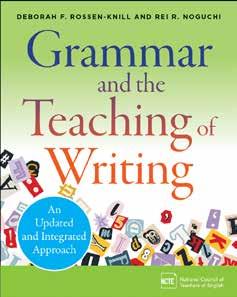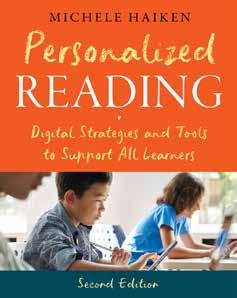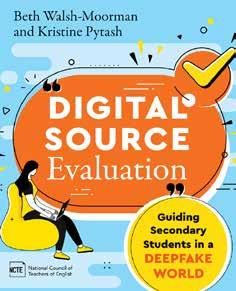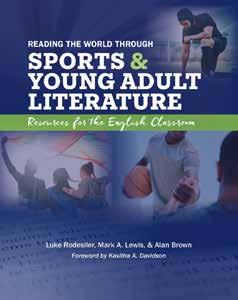


















All times are Eastern Time. Times below are subject to change.
Convention events Thursday–Tuesday will take place at the Boston Convention & Exhibition Center.
WEDNESDAY 11/20
4:00–7:00 P.M.—Registration & NCTE Central
THURSDAY 11/21
7:00 A.M.–6:30 P.M.—Registration & NCTE Central
8:00 A.M.–12:00 P.M.—Workshops (see p. 31; additional registration required)
11:30 A.M.–3:45 P.M.—A, B, C & D Sessions
4:00–5:15 P.M.—Opening General Session: Ketanji Brown Jackson
5:30–7:00 P.M.—Section Get-Togethers
FRIDAY 11/22
6:30 A.M.–6:00 P.M.—Registration & NCTE Central
7:15–8:00 A.M.—First-Timers’ Welcome Breakfast: Tonya B. Perry & Emily Kirkpatrick (no charge; registration required)
8:15–9:15 A.M.—Friday General Session: Kate McKinnon
9:30 A.M.–12:15 P.M.—E & F Sessions
10:00 A.M.–6:30 P.M.—Exhibit Hall
11:30 A.M.–1:30 P.M.—ELATE Luncheon: Ijeoma Oluo
11:30 A.M.–1:30 P.M.—Middle Level Section Luncheon: Ruta Sepetys & Steve Sheinkin
12:30–4:45 P.M.—G, H, I & J Sessions
5:00–6:30 P.M.—Annual Business Meeting
6:30–8:00 P.M.—NCTE in Primetime: Dr. Joy Buolamwini & Lee Ann Potter
8:00–9:30 P.M.—Cultural Celebration
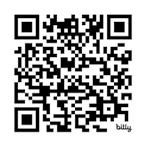
View the updated program details here!
SATURDAY 11/23
6:30 A.M.–5:00 P.M.—Registration & NCTE Central
7:00–9:15 A.M.—ALAN Breakfast: Ellen Oh
7:30–8:45 A.M.—Awards Session
8:15–9:30 A.M.—K Sessions
9:45–10:45 A.M.—Saturday General Session: Bryan Stevenson
11:00 A.M.–12:15 P.M.—L & M Sessions
11:00 A.M.–6:00 P.M.—Exhibit Hall
12:30–2:30 P.M.—Secondary Section Luncheon: Celeste Ng
12:30–2:30 P.M.—Children’s Book Awards Luncheon: Sarah Everett & Sneed Collard III
1:15–5:30 P.M.—N, O & P Sessions
5:45–7:00 P.M.—Special Interest Group Sessions
SUNDAY 11/24
7:00–8:45 A.M.—Children’s Literature Assembly Breakfast: Lesa Cline-Ransome & James Ransome
7:00–8:45 A.M.—Affiliate Breakfast: Antero Garcia & Emily Kirkpatrick
8:00 A.M.–12:00 P.M.—Registration & NCTE Central 8:00–11:30 A.M.—Exhibit Hall
8:15–11:45 A.M.—Q, R & S Sessions
10:30 A.M.–12:00 P.M.—National Writing Project Brunch
12:00–1:15 P.M.—Closing General Session: Shelley Rodrigo & Ada Limón
1:30–5:30 P.M.—CEL Annual Convention*
MONDAY 11/25
7:00–10:00 A.M.—Registration
8:00 A.M.–5:00 P.M.—CEL Annual Convention*
8:00 A.M.–5:00 P.M.—ALAN Workshop*
TUESDAY 11/26
8:00 A.M.–2:00 P.M.—CEL Annual Convention*
8:00 A.M.–2:00 P.M.—ALAN Workshop*
* (see p. 303; additional registration required)
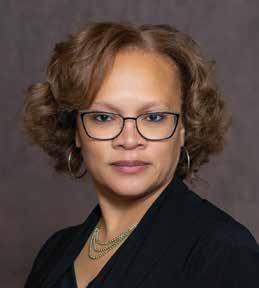
We gather to think more deeply about what it means to teach with heart, hope, and humanity and how we can better work together to do so. When we engage in the work of the heart, we hope for a better world for our students. We invest in them so that they can realize the promise they have within. During our days together, my hope for us is that we will take every opportunity to strengthen our teaching practices during our excellent sessions and workshops, informal meetings, walks through the corridors, and exhibit hall meanderings. Let’s be open to the dialogue and learning everywhere in Boston.
As educators, we are here because we see our students’ brilliance and want to help each student reach the highest potential. The English language arts educator, new or veteran, is the facilitator and careful guide who works with their students, teaching them to develop their abilities to communicate, challenging them to design new ways of thinking, and creating readers and writers who delve deep to explore themselves and the content around them with a sharp eye. We want our students to collaborate to create the synergy and change we need. Only when the promise of every child is allowed to be fulfilled do all have the opportunity to be who they are destined to be. That is teaching with hope, heart, and humanity.
We ask ourselves important questions during our time together at this Convention:
• How can we grow as literacy educators who have hope for the future of our students?
• How do we make learning actionable, relevant, purposeful, and engaging for our students?
• How do we create assignments that really push our scholars to think differently about learning?
• How does our teaching impact learning for students and their families and communities?
• How do students use their literacies to enact change in the world with hope, heart, and respect for humanity?
When we teach our students, it is far more than teaching for that moment and far more than teaching a particular skill in isolation. When we teach our students, the larger, more far-reaching purpose is for our scholars to learn to use the lessons from the classroom to transform their own lives and the lives of others.
Let’s take every opportunity to grow together in Boston.
With much hope, heart, and humanity,
Tonya B. Perry
NCTE
President-Elect
and 2024 NCTE Annual Convention Program Chair
NCTE would like to thank all of those volunteers who helped proposal writers, reviewed proposals, and assisted in making the Convention a success!
PATTI FORSTER
Local Committee Co-Chair
Camden Hills Regional High School, Rockport, ME
Five Towns Community School District, ME
MCELA President
TODD MCKINLEY
Hospitality Co-Chair
Middle School of the Kennebunks, Kennebunk, ME
Maine Regional School Unit 21, ME
MCELA Vice President
CATHY SOSNOWSKI
Registration Co-Chair
Central CT State University, New Britain
Torrington Public Schools, CT
NCTE SCOA Region 1
Representative/NEATE, CTCTE Board Member
MINDY BUTLER
Local Committee Co-Chair
University of Southern Maine, Portland
NEATE President-Elect
MCELA Member
AFFILIATES:
REBECCA ASHLEY
Local Committee Co-Chair
Canton High School, MA
Canton Public Schools, MA
NEATE President
TRISH WALTON
Hospitality Co-Chair
Hopkinton Middle/High School, NH
Hopkinton School District, NH
NHCTE Annual Conference Chair
DEBBIE WOELFLEIN
Office Co-Chair
NHTI – Concord’s Community College, NH
NEATE Finance Chair
DINA SECCHIAROLI
Registration Co-Chair
DKS Advanced Educational Solutions, CT
ACES PDSI, CT
CTCTE President
JILL PINARD
Office Co-Chair
James Faulkner Elementary School, Stoddard, NH
School Administrative Unit 24, NH
NHCTE President
CTCTE: Connecticut Council of Teachers of English
MCELA: Maine Council for English Language Arts
NEATE: New England Association of Teachers of English
NHCTE: New Hampshire Council of Teachers of English
Gabriel Acevedo
Mónica Baldonado-Ruiz
Rachel Bear
Nadia Behizadeh
Sarah Bonner
Yavanna Brownlee
Jonathan Bush
Christina Cantrill
Limarys Caraballo
Josh Coleman
Michael Domínguez
Jacquay Durant
María Fránquiz
Jennipher Frazier
Antero Garcia
Joel Garza
Joanne Baird Giordano
Keisha Green
Ileana Jiménez
Danny Martinez
Renee Moreno
Michele Myers
Tonya Perry
Darius Phelps
Luke Rodesiler
Shelley Rodrigo
Anna J. Small Roseboro
Lisa Scherff
Melanie Shoffner
Tiana Silvas
Kara Hinderlie Stroman
Josh Thompson
Nancy Valdez-Gainer
Yang Wang
Leah Werther
Darius Wimby
Whitney Jordan Adams
Kimberly Allred
Nicole Amato
Robin Atwood
Heather Barton
Bedashruti Mitra Basu
Diane Beers-Gallop
Victoria Boecherer
Sarah Bonner
Amy Bouch
Kristin Bourdage
Michael Bundalow
Joshua Cabat
Annette Calhoun
Brooke Carpenter
Ashley Carter
Anthony Celaya
Leticia Citizen
Jamita Cobb
Sarah Combs
Jennifer Dail
Fredeisha Darrington
Amy Davis
Jason DeHart
Giselle Elias
Raymond Epps
Shauna Evans
Carol Frow
Glenda Funk
Huan Gao
Ricki Ginsberg
Caroline Godfrey
Cassandra Grosh
Michelle Arellano Haberberger
Sara Herrera-Dandridge
Katherine Hoffman
Gordon Hultberg
Julianna Kershen
Ted Kesler
Jennifer Kirchoff
Jori Krulder
Catherine Lammert
Amber Lawson
Susan Luft
Emily Madison
Becki Maldonado
Courtney Marshall
Kristina McGee
Erin McNeill
Liz Murray
Liz Nelson
Dairee Njie
Marlena Peduzzi
Darius Phelps
Joseph Pizzo
Ann Marie Quinlan
Ann Reddy
Brittney Reeves
Larry Reiff
Carol Reuman
Ryan Schey
Lindsay Schneider
Faith Thompson Sears
Tara Shanley
Karen Shaw
Leora Smith
Kristina Stamatis
Melissa Stewart
Justin Stygles
Cathline Tanis
Valerie Taylor
Maria Underwood
Axa Khalid Warraich
Michelle Boyd Waters
Rick Williams
Suriati Abas
Brenda Abbott
Whitney Jordan Adams
Susan Adamson
Danelle Adeniji
Kathryn Struthers Ahmed
Michelle Alcaraz
Keisha Allen
Johnny Allred
Kimberly Allred
Nicole Amato
Kristi Amatucci
Jon Ambrosio
Gary Anderson
Phylicia Anderson
Sardia Anderson
Patrick Andrus
Joe Anson
Laura Ascenzi-Moreno
Robin Atwood
Michael Avery
Rebecca Babcock
Abbey Bachmann
Michelle Bahr
Mónica Baldonado
Kimberly Ballinger
Arianna Banack
Will Banks
Susan Barbee
Chelsey Barber
Molly Bardine
Lois Barker
Jonathan Bartels
Heather Barton
Bill Bass
Bedashruti Mitra Basu
Katherine Batchelor
Margo Batha
Deanne Battle
Crystal Beach
Jane Bean-Folkes
Melissa Bedford
Diane Beers-Gallop
Glynis Benbow-Niemier
Denine Benedetto
Sheila Benson
Susan Bernstein
Richard Beyer
Khadeidra Billingsley
Shameer Bismilla
Jennifer Blair
Elizabeth Blye
Victoria Boecherer
Sarah Bonner
Amy Bouch
Paula Bourque
Sara Brandt
Carolyn Brown
Rebecca Brown
Sally Brown
William Christopher Brown
Yavanna Brownlee
Dan Bruno
Jose Bruzon
Alexis Bryant
Michael Bundalo
Georgia Bunnell
Jonathan Bush
David Bwire
Candice Byers
Joshua Cabat
Kara Kalmer Caccuitto
Jordan Caldwell
Carolyn Calhoon-Dillahunt
Annette Calhoun
Nicole Campbell
Julie Carbaugh
Laura Cardona-Berrio
Brooke Carpenter
Jessica Carpenter
Ashley Carter
Autumn Carter
Christina Cedillo
Anthony Celaya
Grace Choi
Minkyung Choi
Mary Christel
Jocelyn Cipolaro
Leticia Citizen
Maria Clinton
Jamita Cobb
Richetta Coelho-Tooley
Meredith Collins
Natalie Colosimo
Sarah Combs
Michelle Commeret
Sean Connors
Annamary Consalvo
Sharon Cooke
monét cooper
Kaitlynn Cooper
Amy Croel-Perrien
Caryl Crowell
Christine Cucciarre
Wenqi Cui
Jonathan Cullick
Jamie Culver
Amy Cummins
Sara Cuzzo
Jennifer Dail
Melissa Dameron-Vines
Dolores Dangelo
Fredeisha Harper Darrington
Gita DasBender
Ann David
Amy Davis
Janine Davis
Dulce de Castro
Gilda De La Cruz
Jason DeHart
Stefanie DeLeon
Amanda Deliman
Matthew Deroo
Camille Despain
Michelle Devereaux
Michele DeVirgilio
Tim Dewar
Lorise Diamond
Adriana Diaz
Carol Dietrich
Susan Dillon
Darryn Diuguid
Cindy Dixon
Kinga Varga Dobai
Sarah Donovan
Kara Douma
Renee Drouin
Meghan Wilson Duff
Vivett Dukes
Amber Dumbuya
Sybil Durand
Sarah Dwyer
Darlene Dyer
Giselle Elias
Katie Harlan Eller
Raymond Epps
Carla España
Cecilia Espinosa
Amy Estersohn
Alex Evans
Shauna Evans
Michelle Falter
Danielle Filipiak
Christen Fillmore
Dawn Finley
Miranda Finn
Jessica Fixelle
Amy Flick
Shalonda Foster
Shianne Fouts
Jennifer Fox
Lindsey Franklin
Jennipher Frazier
Emily Freeman
Kylie Frontczak
Carol Frow
Glenda Funk
Denise Furlong
Nancy Valdez Gainer
Madison Gannon
Huan Gao
Romeo García
Traci Gardner
Shelly Garnett
Alexa Garvoille
Joel Garza
Suzanne Gatto
Sierra Gilbertson
Brent Gilson
Ricki Ginsberg
Joanne Baird Giordano
Cyndi Giorgis
Andrea Glaws
Caroline Godfrey
Chris Goering
Maria Goff
Eva Goins
Christy Goldsmith
Rubén González
Mike Goodwin
Emily Graboski
Jennifer Gray
Mara Lee Grayson
Ann Green
Barbara Green
Robert Greenberger
Jason Griffith
Cathy Griner
Cassandra Grosh
Sarah Gross
Rima Gulshan
Michelle Arellano Haberberger
Katie Hackett-Hill
Xenia Hadjioannou
Margaret Hale
Kailyn Hall
Jairus Hallums
Ling Hao
Paula Harmon
Brian C. Harrell
Nicole Harris
Kathleen Harsy
Liza Harville
Christopher Hass
Dawn Hayden
Stacy Haynes-Moore
Marcela Hebbard
Jillian Heise
Matthew Helmers
Lorrie Henrie-Koski
Nadger Henry
Wyatt Hermansen
Sara Herrera-Dandridge
Bailey Herrmann
Carla Higgins
Joshua Hill
Kathleen Hinchman
Jasara Hines
Michelle Hock
Katherine Hoffman
Daniel Hoilett
Cory Holding
Erica Holyoke
Huili Hong
Peggy Hopper
Sonja Howard
Aileen Hower
Dana Huff
Nancy Hulan
Gordon Hultberg
Melanie Hundley
Joe Mary Ibanez
Cathy Ikeda
Lindsay Illich
Sawsan Jaber
Brenda Jacks
Gina M. Jackson
Morgan Jackson
Sharon Jackson
Melissa Jacobsen
Brad Jacobson
Wanda Jaggers
Carol Jago
Victoria James
Adrienne Jankens
Gage Jeter
Kimberly Johnson
Sarah Z. Johnson
Wintre Johnson
Heather Jones
Karis Jones
Raven L. Jones
Sara Jones
Sylvia Jones
Kelsey Jones-Greer
Chris Judson
Katherine Judy
Suzanne Kail
Sara Kajder
Heidi Kaminski
Rachel Kanz
Lauren Katzman
Jacques Kayigema
Martha Keller
Katie Kelly
Madonna Kemp
Chelsea Kent
Julianna Kershen
Ted Kesler
Brittany Kester
Ellin Kim
Stephanie King
Jennifer Kirchoff
Paulette Koubek-Yao
Cindi Koudelka
Alison Kreiss
Kelly Kriner
Jori Krulder
Jonna Kuskey
Angela Laflen
Maria Lamattina
Catherine Lammert
Peter Landino
Sharon Langley
Gilberto Lara
Amy Larsen
Benjamin Lathrop
Jonathan Lawrence
Mary Lawrence
Amber Lawson
Teresa Layden
Kate Lechtenberg
Beth Lee
Cassidy Lee
Christopher Lehman
Maria Leija
Marie LeJeune
Jennifer Lemberg
Laura Leonard
Steven Lessner
Melina Lesus
Mark Letcher
Angie Lew
Elizabeth Lewis
Mark Lewis
Liz Lietz
Heather Lippert
Diana Liu
Maria Perpetua Liwanag
Mychuwan Logan
Beatrice Lopez
Julia López-Robertson
Kim Lovejoy
David Low
Ruth Lowery
Kris Lowrey
Susan Luft
Julianna Lux
Quang Ly
Nancy Mack
Emily Madison
Stephanie Maenhardt
Steffany Maher
Shiva Mainaly
Becki Maldonado
Victor Malo-Juvera
Dana Maloney
Christian Marcuzzi
Pam Brown Margolis
Jonathan Marine
Courtney Marshall
Davis Mary
Sharon Matthews
Lauren May
Jayleen Mayes
Russell Mayo
Jennifer Mazur
Sarah Mazure
Thomas McCann
Carol McCarthy
Dominique McDaniel
Jennifer McDaniel
Emily McDonald
Jen McDonough
Honor McElroy
Katie McGee
Kristina McGee
Keisha McIntyre-McCullough
Temptaous Mckoy
Erin McNeill
Amy Mecklenburg-Faenger
Cruz Medina
Mohit Mehta
Emily Meixner
Laura Mendoza
Diane Mertens
Craig A. Meyer
Caitlin Miller
Derek Miller
Nicole Mirra
Angela Moore
Daniel Moore
Renee Moreno
Sam Morris
Wendi Moss
Suki Mozenter
Jon Mundorf
Dana Munson
Liz Murray
Michele Myers
Rosa Nam
Mary Napoli
Jessica Nastal
Siskanna Naynaha
Jill Nelson
Liz Nelson
Cydny Neville
Beatrice Newman
Donna Niday
Christina Nikodemski
Dairee Njie
Lori Norton-Meier
Amy Nyeholt
Laura O’Brien
Laura O’Dea
Lakisha Odlum
Motunrayo Ogunrinbokun
Marie Ojofeitimi
Zachary Oneill
Jon Ostenson
Juan Ouvina
Joe Pacitti
Leah Panther
Erin Parke
Denise Patmon
Alexandra Patterson
Marlena Peduzzi
Jenell Igeleke Penn
Carolyn Perry
Chris Pesta
Emily Peters
Paul Peterson
Tien Pham
Darius Phelps
Sidonie Phillips
Christine Photinos
Jill Pinard
Janeen Pizzo
Joseph Pizzo
Grace Player
Bilal Polson
John Poole
Dina Portnoy
Rebecca Powell
Wendy Puljanowski
Tairan Qiu
Pengtong Qu
Ann Marie Quinlan
Caroline Rabalais
Amie Ranum
Roberta Raymond
Samantha Razem
Ann Reddy
Allison Reeder
Sarah Reid
Stephanie Reid
Lawrence Reiff
Carol Reuman
Rexana Rhoney
Kristin Richard
Beth Rimer
Grace Rivera
Jessica Rivera-Mueller
Skye Roberson
Meg Davis Roberts
Bradley Robinson
Kim Rocha
Luke Rodesiler
Mario Rosado
Heather Rundo
Michelle Ryan
Christina Saidy
Cori Salmeron
Erika Sanders
Kristen Schaefer
Lisa Scherff
Ryan Schey
Kellie Schmidt
Pauline Schmidt
Gillian Schneider
Lindsay Schneider
Shantel Schonour
Gretchen Schroeder
Karen Schubert-Ramirez
David Schultz
Megan Schumacher
Melissa Screven
Bethany Seal
Annabel Sengstock
Byung-In Seo
Haley Shaffer
Paul Shamchuk
Tara Shanley
Ritu Sharma
Sonia Sharmin
Caron Sharp
Katrina Sharp
Karen Shaw
Timothy Shea
Ellen Shelton
Melanie Shoffner
Emily Shrestha
Nicole Siffrinn
Haley Sigler
Katie Silvester
Philippe John Sipacio
Katrina Sire
Laura Slay
Bonner Slayton
Kaylee Smedley
Danielle Smith
Dywanna Smith
Hiawatha Smith
Jaclyn Smith
Jonathan Smith
Leora Smith
Melissa Smith
Mukkaramah Smith
Cathy Sosnowski
Lauren Spenceley
Holly Spinelli
Michelle Sprouse
Kristina Stamatis
Sheridan Steelman
Josephine Stewart
Melissa Stewart
Scott Storm
Jennifer Stumphy
Justin Stygles
Terri Suico
Danielle Sullivan
Vanessa Sullivan
Tadayuki Suzuki
Terre Sychterz
Ami Szerencse
Katie Szwejbka
Jay Taniguchi
Cathline Tanis
Islah Tauheed
Anna Taylor
Valerie Taylor
Alexis Teagarden
Allison Teicher-Fahrbach
Dianna Tejada
Marcey Thomas
Faith Thompson
Josh Thompson
Marisa Thompson
Mary Langer Thompson
Shawn Towner
Katie Trautman
Cher Treacy
Laura Turchi
Maria Underwood
Sarah Valter
Valerie Vancza
Josef Vice
Erin Vogler
Kelly Vorhis
Alison Vowell
Diane Waff
Michelle Wagner
Barbara Wahlberg
Elisa Waingort
Michelle Walker
Mary Kay Waterman
Michelle Boyd Waters
Erika Watts
Kristen Weinzapfel
Dianne Wellington
Melissa Wells
Leah Werther
Melissa Wheeler
Kristen White
Shauna Wight
Lauren Wilkie
Jennifer Williams
Nichole Wilson
Shelbie Witte
Joanna Wong
Rachel Wortherley
Alexis Wright
Shuling Yang
Michelle Yang-Kaczmarek
Deborah Yarbrough
Karen Yelton-Curtis
Ana York
Colton Young
Michael Young
Sheena Zadai
Steven Zemelman
Xuanya Zhou
Xiaodi Zhou
Emily Zuccaro

NCTE cordially welcomes you to Boston’s Seaport District. The fusion of history and a newly developed area with a modern convention center, new hotels, and restaurants offers so much to experience. We hope you enjoy all that our facilities and neighborhood have to offer.
The programming available at this Convention offers a similar fusion: legendary voices you love coupled with presenters new to the NCTE community. This year’s program features more than 1,000 total sessions. We will make new history when we welcome the first Supreme Court Justice to speak live at an NCTE keynote session, alongside a humanitarian, a comedic writer, and our current US Poet Laureate. We invite you to meet as many people as you can!
Our theme of “Heart, Hope, and Humanity” calls all of us forward to embrace what is unique and universal in each person. We envision conversations during this Convention that are based in the desire to learn more about each other and ourselves. NCTE is a community in which a great diversity of talent, experiences, and perspectives live.
The contributions of so many people have been required to bring this Convention to life. NCTE’s fine staff who work throughout the year to support our community certainly lead this list. I am proud of our staff’s consistent commitment to lead and serve with great heart. Our amazing partners who see the importance of NCTE’s work and bring their best to share with attendees are integral to the experiences you will enjoy across this event. The hospitality community will involve nearly 1,000 employees to support us during this Convention. We thank you in advance for appreciating their important role in our event. We also thank the contributors to NCTE’s scholarship program. Many investments pooled together enable more than 100 people to attend this event on scholarship. These meaningful contributions are important to the field and very much appreciated!
Thank you to every attendee who booked a hotel room within the NCTE room block. It is our collective purchasing that enables NCTE to deliver room rates that are far below market rates. This is a small but meaningful way in which each attendee can contribute to opportunity for all.
Enjoy all the learning and community that’s in store for you in Boston, and stay involved in the NCTE community across the year. Upon the conclusion of this Convention, you have the opportunity to propose a session for 2025 or consider serving as an online reviewer of sessions in winter 2025. We invite you to do both!
Welcome! We are glad you’re with us.
Emily Kirkpatrick NCTE Executive Director

From July 1, 2023, to September 30, 2024, an incredible 477 donors stepped forward to ensure that NCTE continues to elevate literacy education, support and celebrate teachers, and fight censorship.
Whether you give $1 or $100,000, your support sustains NCTE’s work. Together, we can provide scholarships, fund innovative programs, and shape the future of literacy education. Here are ways that you can make a difference:
• Give to the NCTE Scholarship Fund and help more teachers attend our Convention.
• Consider a legacy gift through estate planning to leave a lasting mark on the future of literacy education.
• Make a major gift to launch bold new initiatives.
• Contribute through grants or customized giving opportunities.
Wouldn’t it be great if every teacher who wanted to attend the NCTE Convention could do so? Help bring more teachers to next year’s Convention by scanning the QR code below. Your gift fuels the future!
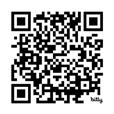
FRIDAY, NOVEMBER 22
10:30–10:50 A.M.
BYS.1 Love Makes a Family
Kelsie Corriston Burnett, The University of Texas at Austin
Emily McDonald, The University of Texas at Austin
Katie Trautman, The University of Texas at Austin
11:00–11:20 A.M.
BYS.2 Heart Books to Inspire Readers
Greg Micek, Maercker School District 60/Holmes Primary School
Katie Russell, Murphysboro Middle School
11:30–11:50 A.M.
BYS.3 Translingual Picturebooks and Multilingualism: Challenging English as the Norm
Kathy G. Short, University of Arizona
12:00–12:20 P.M.
BYS.4 The Hope for Muslim YA: Humanizing through Heartfelt Narratives
Zainab Jabak, Alief Taylor High School
12:30–12:50 P.M.
BYS.5 Envisioning Future Worlds
Cathline Tanis, North Plainfield School District
1:00–1:20 P.M.
BYS.6 The Heart of the Matter: Centering Mental Health with Picturebooks
Jessica Walsh, Granger Middle School, Indian Prairie District #204, Aurora, IL
Maria Walther, literary consultant, Aurora, IL
1:30–1:50 P.M.
BYS.7 Picturebooks That Scaffold Excavation, Regulation, and Transformation in Classroom Communities
Clare Landrigan, Stenhouse
Keisha Smith-Carrington, Princeton Public Schools
Michelle Yang-Kaczmarek, Dobbs Ferry School District
2:00–2:20 P.M.
BYS.8 Books with Powerful Author’s Notes
Lynsey Burkins, Dublin City Schools
Franki Sibberson, Franki Sibberson, LLC
2:30–2:50 P.M.
BYS.9 We Keep Us Safe
Anna Falkner, University of Memphis
Noreen Naseem Rodríguez, Michigan State University
3:00–3:20 P.M.
BYS.10 2024/2025 Notable Poetry Books and Verse Novels
Junko Sakoi, Tucson Unified School District, and the NCTE Children’s Poetry Awards Committee
3:30–3:50 P.M.
BYS.11 “Where a Flower Blooms, So Does Hope”: Books That Celebrate Nature
Michelle Houts, Ohio University Press/Feeding Minds Press/ Random House
Laura Shovan, Vermont College of Fine Arts
Tricia Springstubb, Holiday House/ Peachtree/Pixel+Ink
4:00–4:20 P.M.
BYS.12 Great Debuts in YA
Michelle Peterson-Davis, Uniondale UFSD
Christina Zandstra, Roy C. Ketcham High School
5:00–5:20 P.M.
BYS.13 What Do Picturebook Authors Read?
Josh Funk, Union Square Kids
5:30–5:50 P.M.
BYS.14 A Picturebook Is Worth a Thousand Words: Reading and Writing with Powerful Picturebooks
Joellen McCarthy, The Educator Collaborative
Jen Vincent, Bannockburn School
6:00–6:20 P.M.
BYS.15 Stanzas of Hope and the Plea against Palestinian Dehumanization
Kefah Ayesh, Maarif School
SATURDAY, NOVEMBER 23
11:00–11:20 A.M.
BYS.16 Texts That Cultivate Wonder and Curiosity about Our Natural World
Kristine Schutz, University of Illinois Chicago
Jen Vincent, Bannockburn School
11:30–11:50 A.M.
BYS.17 Storybook Connections: Supporting Children of Incarcerated Parents through Literature
Vivett Dukes, Teachers College, Columbia University
12:00–12:20 P.M.
BYS.18 Science in Poetry: Picturebooks and Poetry Collections That Weave Facts and Form
Marcie Flinchum Atkins, Oak View Elementary School/Fairfax County Public Schools
12:30–12:50 P.M.
BYS.19 From Hushed to Heard: The Picturebooks That Amplify the Accomplishments of Black Women and Their Impact on the World
Markesha Tisby, Tisby Educational Consulting
1:00–1:20 P.M.
BYS.20 Books That Give Us HOPE for HUMANITY
Laura Haney, L.W. Conder Arts Integration Magnet School
1:30–1:50 P.M.
BYS.21 What the Heart Wants: Books That Don’t Get Returned Carrie M. Santo-Thomas, Warren Township High School Almond Campus
2:30–2:50 P.M.
BYS.22 Pairing Picturebooks and Novels
Aliza Werner, Bookelicious
3:00–3:20 P.M.
BYS.23 Characters (Real & Fictional) That Inspire Hope, Heart, and Humanity
Bitsy Parks, Beaverton School District
Mandy Robek, Olentangy Local School District
3:30–3:50 P.M.
BYS.24 Read Alouds of Resistance and Joy in the Face of Grief and Pain
Samira Ahmed, Little, Brown Books for Young Readers
Luz Yadira Herrera, California State University, Dominguez Hills
Nawal Qarooni, NQC Literacy
Jasmine Warga, Balzer + Bray/ HarperCollins
4:00–4:20 P.M.
BYS.25 Reading Is Life: Diversity. Equity. Cultures.
Joyce Brooks
Mary Jade Haney, Horrell Hill Elementary School/Richland County School District One
Erica Jennings
Deedra Lee, Southeast Middle School
4:30–4:50 P.M.
BYS.26 Inspiring Hope with Queer Representation
Julie Hoffman, Springfield Public Schools
Cindi Koudelka, Fieldcrest CUSD 6/Aurora University
5:00–5:20 P.M.
BYS.27 People You Should Know: Engaging Biographies for Middle Grade and High School
Michelle Houts, Ohio University Press/Feeding Minds Press, Random House
5:30–5:50 P.M.
BYS.28 The Orbis Pictus Award®: Selected Nominated Titles You Should Know
Caryl Crowell, Retired, Tucson Unified School District
Julia López-Robertson, University of South Carolina
Janelle Mathis, University of North Texas
Melissa Summer Wells, University of Mary Washington
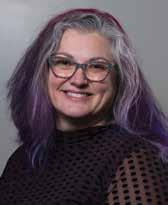
President ROCHELLE (SHELLEY)
RODRIGO
University of Arizona Tucson, AZ

ANTERO GARCIA
Stanford University Palo Alto, CA
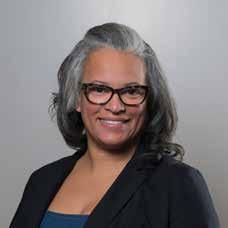
Representative-at-Large
KARA HINDERLIE STROMAN
Irving Elementary School Portland, OR
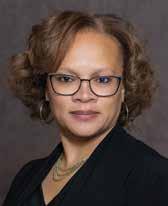
President-Elect
TONYA B. PERRY
Miles College Fairfield, AL
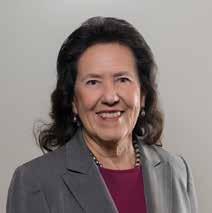
Past President MARÍA E. FRÁNQUIZ
University of Texas at Austin Austin, TX
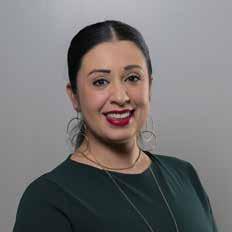
TIANA SILVAS
East Side Community New York, NY
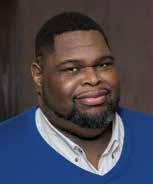
Secondary Section
Representative-at-Large
DARIUS B. WIMBY
DeKalb County School District Atlanta, GA In Memoriam
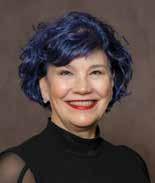
Chair, CCCC FRANKIE CONDON
University of Waterloo Ontario, Canada
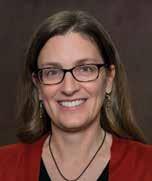
Chair, CEL EMILY MEIXNER
The College of New Jersey Ewing Township, NJ
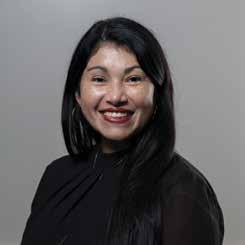
Chair, Elementary Section

Associate Chair, CCCC
JENNIFER SANO-FRANCHINI
West Virginia University Morgantown, WV
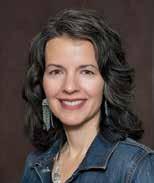
Chair, ELATE NADIA BEHIZADEH
Georgia State University Atlanta, GA
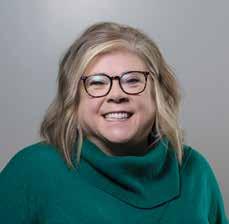
NANCY VALDEZ-GAINER
Texas State University San Marcos, TX
SARAH BONNER
University of North Carolina Wilmington, NC
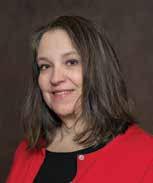
Chair, TYCA
JOANNE BAIRD GIORDANO
Salt Lake Community College Salt Lake City, UT

University of South Carolina Columbia, SC

Chair, Secondary Section
JOSH THOMPSON
Virginia Tech Blacksburg, VA University Kalamazoo, MI


Although the title of this page could read “The Lives of Educators No Longer with Us,” that phrase would be inaccurate. Even after they die, educators who have given so much to their profession, their colleagues, and their students continue, in fact, to live through us. Their commitment to teaching and learning enables so many people to express themselves, learn from others through words and interactions, generate new meanings, and make the world a better place. NCTE celebrates the lives of the educators listed below. We will continue to benefit from all that they accomplished as dedicated educators.
Members’ deaths we’ve learned about since the 2023 NCTE Annual Convention:
John Brereton
Lillian Bridwell-Bowles
Peter Carino
Beth Daniell
Edmund James Farrell
Sheila Mary Fitzgerald
Sandi Forsythe
William Hart-Davidson
Gail Hawisher
John Stephen Newmann
John W. Stewig
Dorothy Watson
Darius B. Wimby

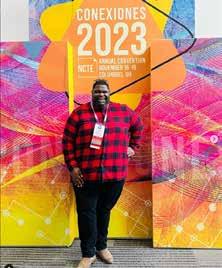
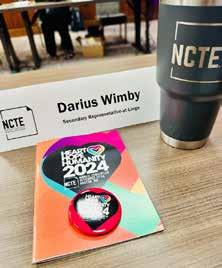
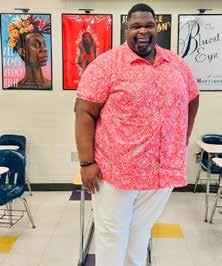



The NCTE Registration Desk is located in the North Lobby, BCEC (level 1).
REGISTRATION HOURS
Wednesday, Nov. 20 4:00–7:00 p.m.
Thursday, Nov. 21 7:00 a.m.–6:30 p.m.
Friday, Nov. 22 6:30 a.m.–6:00 p.m.
Saturday, Nov. 23 6:30 a.m.–5:00 p.m.
Sunday, Nov. 24 8:00 a.m.–12:00 p.m.
Attendance at the 2024 NCTE Annual Convention requires credentials. Admittance to all sessions, workshops, and the Exhibit Hall is limited to registered attendees with Convention badges. Name badges will be available onsite for all registrants. No name badges were mailed in advance. Visit the NCTE Registration Desk located in the North Lobby, BCEC (level 1), to pick up your badge. Registration is not transferable.
Access to Convention meal functions will be available via your name badge. A limited number of tickets will be available for purchase onsite. Visit the NCTE Registration Desk to purchase tickets. Tickets for meal functions are not refundable. For attendees interested in hearing speakers but not purchasing meal tickets, limited theater seating is available in most meal event rooms and will be open to other attendees after the meal is finished.
NCTE will capture photographs and videos throughout the Convention. By registering for this event, attendees understand that NCTE may use photographs and/or videos of their likeness taken at the event for all purposes, including publicity purposes, whether in print, electronic, or other media. If you prefer your likeness not be included, contact NCTE at NCTEevents@ncte.org.
NCTE does not allow recording in sessions. As a courtesy to speakers, please request permission before taking photographs. Speakers reserve the right to refuse permission.
The Exhibit Hall is located in Exhibit Hall A, BCEC (exhibit level).
Friday, Nov. 22 10:00 a.m.–6:30 p.m. Saturday, Nov. 23 11:00 a.m.–6:00 p.m. Sunday, Nov. 24 8:00–11:30 a.m.
Be sure to stop by the Exhibit Hall during these times, as well, when nothing else is scheduled: Friday: 4:45–6:30 p.m. & Saturday: 12:15–1:15 p.m.
A map and list of exhibitors begin on page 306 of this Convention Program.
Located near Registration in the North Lobby of the BCEC (level 1), NCTE Central will feature the latest NCTE products and publications. Browse a huge selection of NCTE books, Convention-themed apparel, and gift items, and pick up a free journal sample.
Information about author signings is available in the Meet the Authors booklet. Pick up your copy at the Registration Desk. Listings and updates will also be available in the mobile app.
Visit the Build Your Stack® stage in the Exhibit Hall for 20-minute sessions featuring authors and educators talking about their favorite books and how to use them in the classroom. See the complete schedule on pages 12–13.
The NCTE Annual Convention mobile app is available for Apple and Android devices. It provides a quick way to search Convention sessions, view maps of Convention Center and Westin meeting rooms, and connect with other attendees. The app is where the most up-to-date information about session locations, speakers, and events can be found. Any room changes will be updated in the app. To download the app, search for “eShow Events” in your app store and select the 2024 NCTE Annual Convention from within the app. The access code is NCTE24 (case sensitive). Prior to the Convention, all registered attendees will also receive an email inviting them to set up an account within the app.
Activities of the 2024 NCTE Annual Convention will be held at the Boston Convention & Exhibition Center (BCEC), 415 Summer Street, and the adjoining Westin Hotel.
Locations of each session, meeting, and event are noted in this program.
Massachusetts Convention Center Authority (MCCA) has implemented Evolv Express, which requires all attendees entering the building to pass through a state-of-the-art scanning system, along with other enhanced perimeter screening procedures. Evolv Express® uses a safe, ultra-low frequency, electromagnetic field, and advanced sensors to detect concealed weapons. It is a reliable and convenient option to move large groups of guests quickly and safely into an event without making them wait in line or take off their bags.
In addition, NCTE reserves the right to implement additional security and safety measures onsite, including but not limited to additional security screening to enter certain functions at the Annual Convention.
Nearby Urgent Care
AFC Urgent Care Back Bay
575 Boylston Street (617) 869-0500
Open 8 a.m.–8 p.m., 7 days a week
https://www.afcurgentcare.com/back-bay/patientservices/urgent-care/
Nearby Hospital
Tufts Medical Center Emergency Department + Trauma Center
830 Washington Street, North Building, 1st floor (617) 636-5566
Open 24 hours, 7 days a week https://www.tuftsmedicine.org/get-care/locations/ tufts-medical-center/tufts-medical-center-emergencydepartment
In case of emergency, contact the closest facility staff member for assistance or call 911.
Nearby Pharmacy
CVS Pharmacy
333 Washington Street (617) 742-0783
Monday–Friday, 7:00 a.m.–9:00 p.m.
Saturday–Sunday, 9:00 a.m.–8:00 p.m.
https://www.cvs.com/store-locator/boston-mapharmacies/333-washington-street-boston-ma-02108/ storeid=49
For all emergencies, call the public safety command center immediately. In-house black phones dial 2222 (speed dial press 2) or 617-954-2222 from any cellular phone.
The MCCA Public Safety Department are trained medical first responders and work with Boston EMS to ensure your safety.
The BCEC has 30 AEDs located throughout the facility. Each AED is inspected on a shift-by-shift basis and is certified to be working and ready for use. AEDs are easy to use and offer a step-by-step guide inside the cabinet that anyone can follow. In the event of a medical emergency requiring the assistance of an AED, call for help, then locate the nearest AED to your location. AEDs are clearly marked with signage.
A comprehensive Bleeding Control Kit is located next to every AED. Each kit contains tools that anyone can use in the event of severe bleeding emergencies. The tools include individual packets that can be removed from the larger kit and easily taken to the site of the emergency; they contain a tourniquet, wound packing gauze, scissors, gloves, and quick clot chemicals to stop bleeding.
In the event of an emergency that requires the evacuation of the building, you will hear alarms, automated instructions, and PA announcements providing clear instructions on how to evacuate safely. Please listen to all instructions and leave the building as quickly and safely as possible.
In some emergencies it may be safer to remain in the building and find a safe area until the emergency is cleared. Should the MCCA’s Public Safety leadership, or in coordination with local authorities and first responders, order to shelter in place, the following guidelines should be followed to stay informed and remain safe: Remain calm and follow all instructions. Listen for emergency directions from the building’s Public Address System. Find a safe area away from windows, lock doors, and close any airways (if possible). Be prepared to improvise and use your surroundings to stay safe. Assist others around you who may need assistance. Stay in your shelter location and listen for the “All Clear” signal.
NCTE will provide an LCD projector with accompanying screen, microphone, and sound patch. No other media equipment will be provided. The Wi-Fi bandwidth in the Convention venues will not be sufficient to present streaming video.
Found items should be turned in to the NCTE Registration Desk, North Lobby, BCEC (level 1). You may also check with the Convention Center’s Public Safety Command Center: 617-954-2222. (Complete a claim form at https://www.signatureboston.com/ attend/public-safety#lost.)
NCTE does not provide child care services. Please check with your hotel staff for available services.
There is a Mamava Nursing Pod located in the Boston Convention & Exhibition Center (Southeast Level 1, adjacent to restroom). This free-standing, private lactation suite is specifically designed for breastfeeding and pumping. Each Mamava Pod has a SmartLock with Bluetooth technology that connects with the Mamava Mobile App, allowing you to reserve, find, and unlock the pod through your smart phone. See the FAQ on our website for instructions on how to access the pod: https://convention.ncte. org/faqs/
NCTE provides American Sign Language (ASL) at the following convention sessions:
• General Sessions on Thursday, Friday, Saturday, and Sunday
• First-Timers’ Welcome Breakfast on Friday
• Board of Directors Meeting on Friday
• NCTE in Primetime on Friday
• NCTE Awards Session on Saturday
• ALAN Workshop General Sessions
The BCEC is ADA-friendly and equipped with accessibility in mind. A limited number of wheelchairs are available free of charge at each facility for guest convenience. For personal assistance, please contact the Public Safety Department at 617-954-2222.
To rent a motorized scooter, please see the Scoot Around website or phone 1-888-441-7575.
NCTE is committed to producing events where everyone may learn and network in an environment of inclusion and mutual respect. With this in mind, the Annual Convention provides gender-inclusive restrooms in our rented space within the Boston Convention & Exhibition Center.
The Boston Convention & Exhibition Center offers a wide array of options from coffee stands to specialty food carts throughout the Convention Center and on the Exhibit Hall floor. There is also a variety of dining options within walking distance of the Convention Center.
Volunteers from the New England Association of Teachers of English, the Maine Council for English Language Arts, the Connecticut Council of Teachers of English, and the New Hampshire Council of Teachers of English will be positioned throughout the Convention Center to assist you in locating a session room, the Exhibit Hall, the nearest restroom, or the closest exit to get back to your hotel.
The Annual Business Meeting for the Board of Directors and Other Members of the Council will take place Friday, November 22, from 5:00 to 6:30 p.m. in Room 210 C, BCEC (level 2). All registered attendees are invited to attend. Only NCTE voting members may participate in discussion and vote at the meeting. NCTE staff will verify your membership at the door by checking your Convention registration badge and provide voting cards. Note to Directors: Please obtain your voting card at the door before the meeting. The agenda and rules of conduct for the meeting will be available at the door of the meeting. The rules of conduct for the meeting are also included on pages 304–305 of this Convention Program. Resolutions will be presented and voted on during the meeting.
The nominating committees of NCTE, ELATE, TYCA, and the Elementary, Middle Level, Secondary, and College Sections of NCTE will accept nominations for the 2025 elections during the 2024 Convention. Bring your questions and nominations to the Annual Business Meeting on Friday, November 22, and to the committees’ open meetings on Saturday, November 23, 12:00–1:00 p.m. (Webster Room, lobby level, Westin) and Sunday, November 24, 9:00–10:00 a.m. (Room 051, BCEC, exhibit level).
NCTE expects all participants to adhere to the following policies while in attendance at the Annual Convention. NCTE reserves the right to dismiss any participant from the Convention whose conduct is inconsistent with these policies.
NCTE is committed to producing events where everyone may learn, network, and socialize in an environment of mutual respect. Therefore, some behaviors are expressly prohibited: harassment or intimidation related to gender, gender identity and/or expression, sexual orientation, disability, race, age, religion; deliberate intimidation, stalking, or following; harassing photography or recording; sustained disruption of talks or events; inappropriate contact and unwelcome sexual attention. Participants are expected to observe this code of conduct policy in all venues and events. Contact eventcommunications@ ncte.org if you believe you have been harassed or that a harassing situation exists. All reports will be directed to NCTE leadership immediately.
Demonstrations and protests will be conducted in a peaceful and organized manner, will be within the policies of the venue, and will be compliant with federal, state, and local laws. Such activities are strictly forbidden in exhibition space, and protesters will not be permitted to block the entrance to traffic flow within the exhibit area. NCTE retains the right to permit protests to occur in predetermined areas and to terminate any protests that occur on its property or property NCTE is renting, leasing, or otherwise using for a specific time to host an event. Attendees who do not uphold these standards may jeopardize their membership and/or event participation.
Individuals and groups interested in demonstrating/ protesting should contact our Convention Operations Team, at eventcommunications@ncte.org to register their plans and obtain further details.
By attending the Convention, you acknowledge and agree that NCTE, or others acting on its behalf or through sponsorship or exhibitor contracts, may take photographs and video (by any means) and/or make sound recordings during the Convention (including through the digital event platform and via social media) and that you may appear in such photographs and videos and be heard in such sound recordings, and that NCTE may edit and use the footage it captures for marketing and promotional activities (including through social media) now and in the future, and for any other lawful purpose in the ordinary course of its business.
Please be respectful of presenters and other attendees when photographing, videoing, or sound recording any part of any Convention sessions or other content. Please request permission of presenters before photographing or recording and/or posting on social media. Live streaming out any part of the Convention on a personal device is prohibited.
The expectation is that all presenters are to register and attend the Convention in person. This request is out of respect for the attendees who will travel to Boston expecting to see live presenters and to ensure a positive experience for the attendees.


THURSDAY OPENING GENERAL SESSION
11/21 | 4:00–5:15 P.M
KETANJI BROWN JACKSON was born in Washington, DC, and grew up in Miami, Florida. She received her undergraduate and law degrees, both with honors, from Harvard University, then served as a law clerk for three federal judges, including Associate Justice Stephen G. Breyer of the Supreme Court of the United States. Jackson subsequently practiced law in the private sector, worked as an attorney and later as Vice Chair and Commissioner of the US Sentencing Commission, and served as an assistant federal public defender. In 2012, President Barack Obama nominated Jackson to the US District Court for the District of Columbia. Elevated to the US Court of Appeals for the District of Columbia Circuit in 2021, Jackson made history in 2022 when President Joseph Biden nominated her as an Associate Justice. The first Black woman ever confirmed to the Supreme Court of the United States, she took her seat on June 30, 2022.
In her recently published memoir, Lovely One, Justice Jackson shares how her heritage, powerful family stories, and formative experiences throughout her life shaped her academic and legal careers.
11/22 | 8:15–9:15 A.M.
KATE MCKINNON is an award-winning performer and writer best known for her tenure as an Emmy Award-winning cast member on Saturday Night Live. Young readers will recognize her voice roles as Ms. Fiona Frizzle in The Magic School Bus Rides Again for Netflix and as Lulu the Guinea Pig in DC League of Super-Pets. Her film work includes Ghostbusters, Bombshell, Yesterday, and Greta Gerwig’s Oscar-nominated worldwide blockbuster, Barbie The Millicent Quibb School of Etiquette for Young Ladies of Mad Science is her debut novel.
A book signing will follow the session.
All times are Eastern Time.
Celebrating English Language Arts with the Library of Congress & the Poet of Code
11/22 | 6:30–8:00 P.M.


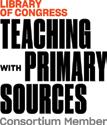
Join your fellow #NCTE24 attendees to celebrate together on Friday night with two exemplary speakers: Dr. Joy Buolamwini and Lee Ann Potter. You won’t want to miss this opportunity to network with each other and be inspired by the gems waiting for you and your students at the Library of Congress and the brilliance of the Poet of Code. NCTE in Primetime is open to all attendees and is included as part of your Convention registration. The evening will begin with a networking reception with hors d’oeuvres.
DR. JOY BUOLAMWINI is the founder of the Algorithmic Justice League, a groundbreaking researcher, and a renowned speaker. Her writing has been featured in publications such as TIME, The New York Times, Harvard Business Review, and The Atlantic. As the Poet of Code, she creates art to illuminate the impact of artificial intelligence on society and advises world leaders on preventing AI harms. She is the recipient of numerous awards, including the Rhodes Scholarship, the inaugural Morals & Machines Prize, and the Technological Innovation Award from the Martin Luther King Jr. Center for Nonviolent Social Change. Her MIT research on facial recognition technologies is featured in the Emmy-nominated documentary Coded Bias Born in Canada to Ghanaian immigrants, Buolamwini lives in Cambridge, Massachusetts.
LEE ANN POTTER is the Director of Professional Learning and Outreach Initiatives at the Library of Congress. She leads a dynamic team committed to developing educational programs and materials based on primary sources. Before coming to the Library, she created and directed education and volunteer programs at the National Archives and Records Administration for 16 years. Prior to that, she worked at the Smithsonian on a project to build museum-school partnerships, and before that, she was a high school social studies teacher. During the 2009–10 school year, she served as a Fulbright Roving Scholar of American Studies in Norway. She has conducted hundreds of presentations and is the author of more than one hundred articles promoting teaching with primary sources.
NCTE gratefully acknowledges the support of the Library of Congress for this special event and the ongoing work to expand the use of primary sources in English language arts.
A book signing will follow the session.
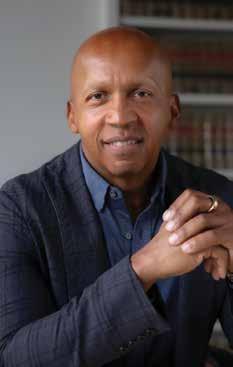
11/23 | 9:45–10:45 A.M.
BRYAN STEVENSON is the founder and executive director of the Equal Justice Initiative (EJI), a human rights organization in Montgomery, Alabama. Under his leadership, EJI has won major legal challenges eliminating excessive and unfair sentencing, exonerating innocent death row prisoners, confronting abuse of the incarcerated and the mentally ill, and aiding children prosecuted as adults.
Mr. Stevenson has argued and won multiple cases at the United States Supreme Court, including a 2019 ruling protecting condemned prisoners who suffer from dementia and a landmark 2012 ruling that banned mandatory life-imprisonment-without-parole sentences for all children seventeen or younger. Mr. Stevenson and his staff have won reversals, relief, or release from prison for over 140 wrongly condemned prisoners on death row and won relief for hundreds of others wrongly convicted or unfairly sentenced.
Mr. Stevenson has initiated major new anti-poverty and antidiscrimination efforts that challenge inequality in America. He led the creation of EJI’s highly acclaimed Legacy Sites, including the Legacy Museum, the National Memorial for Peace and Justice, and Freedom Monument Sculpture Park. These new national landmark institutions chronicle the legacy of slavery, lynching, and racial segregation, and the connection to mass incarceration and contemporary issues of racial bias. Just Mercy, his book chronicling one EJI case, is a bestseller and inspired a blockbuster film.
A book signing will follow the session.
All times are Eastern Time.
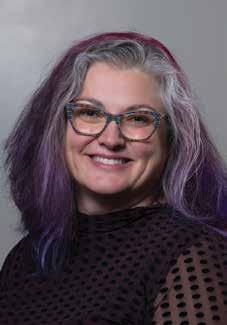
11/24 | 12:00–1:15 P.M.
SHELLEY RODRIGO is the senior director of the writing program and professor in rhetoric, composition, and the teaching of English in the Department of English at the University of Arizona. Rodrigo teaches undergraduate and graduate courses in writing, rhetoric, and film studies, and has coauthored three editions of The Wadsworth/Cengage Guide to Research, coedited Rhetorically Rethinking Usability, and recently published the award-winning Teaching Literacy Online: Observing, Analyzing, and Producing in Multiple Media (NCTE). Currently NCTE President, Rodrigo also has served on the NCTE Executive Committee as the Chair of the College Section Steering Committee; the CCCC Executive Committee, both as an elected member and as Parliamentarian; TYCA West Executive Committee as elected Chair and Treasurer; and on the TYCA Executive Committee.

ADA LIMÓN is the author of six books of poetry, including The Carrying, which won the National Book Critics Circle Award; Bright Dead Things, which was nominated for the National Book Award, the National Book Critics Circle Award, and the Kingsley Tufts Poetry Award; and The Hurting Kind, which was short-listed for the Griffin Poetry Prize. Her upcoming children’s book, And, Too, the Fox, is scheduled for release in January 2025. Limón is the recipient of a Guggenheim Fellowship. Her new book, In Praise of Mystery, is a transcendent picturebook featuring the poem that will travel into space on NASA’s Europa Clipper spacecraft, which will be launched to the second moon of Jupiter in October 2024.
As the 24th Poet Laureate of the United States, her signature project, called You Are Here, focuses on how poetry can help connect us to the natural world. She will serve as Poet Laureate until the spring of 2025. In October 2023, she was awarded a MacArthur “Genius Grant” Fellowship, and she was named a TIME magazine Woman of the Year in 2024.
A book signing will follow the session.

FRIDAY | 11/22 | 7:15–8:00 A.M.
TONYA B. PERRY, Provost and Senior Vice President at Miles College in Fairfield, Alabama, is a tireless advocate for students and educators who are often denied a voice. She works with and for educators, students, and communities to develop programs and initiatives that uplift historically marginalized peoples. In addition, she has advocated for others on numerous committees, including as a member of the NCTE Executive Committee, NCTE Research Foundation trustee, member of the NCTE Inclusivity Task Force, NCTEAR chairperson, NCTE Editorial Board member, and director for NCTE’s Cultivating New Voices among Scholars of Color program.
She currently is NCTE President-Elect and serves on the National Writing Project’s board of directors. Perry has also served the nation as a 2000 National Teacher of the Year finalist and a two-time National Board Certified Teacher. She has worked as a middle school teacher, teacher educator, full professor, executive director, and principal investigator for a large GEAR UP grant, director of the Red Mountain Writing Project, and both interim department chair and executive director for outreach and engagement for a school of education. Her coauthored book Teaching for Racial Equity: Becoming Interrupters (2022) is a collaborative work with two teacher educators, Steven Zemelman and Katy Smith, and other brilliant teacher-writers.
The breakfast is complimentary, but a ticket ordered in advance is required.
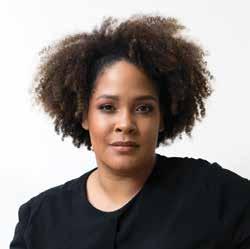
FRIDAY | 11/22 | 11:30 A.M.–1:30 P.M.
IJEOMA OLUO is a Seattle-based writer, speaker, and internet yeller. She is the author of the #1 New York Times bestselling books So You Want to Talk about Race; Mediocre: The Dangerous Legacy of White Male America; and Be a Revolution: How Everyday People Are Fighting Oppression and Changing the World—and How You Can, Too. Her work on race and gender has been published in The New York Times, the Washington Post, and NBC News, and she has been featured on The Daily Show and NPR’s All Things Considered. Named on the TIME100 Next list and The Root 100, she’s been awarded the Harvard Humanist of the Year Award, the American Humanist Association’s Feminist Humanist Award, Gender Justice League’s Media Justice Award, and the Equal Opportunity Institute’s Aubrey Davis Visionary Leadership Award.
A book signing will follow the luncheon.
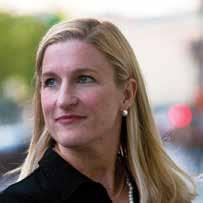

FRIDAY | 11/22 | 11:30 A.M.–1:30 P.M.
RUTA SEPETYS (rutasepetys.com) is an internationally acclaimed, #1 New York Times bestselling author of historical fiction published in over sixty countries and forty languages. Her novels Between Shades of Gray, Out of the Easy, Salt to the Sea, The Fountains of Silence, and I Must Betray You have won or been shortlisted for more than forty book prizes and are included on more than sixty state award lists. Between Shades of Gray was adapted into a graphic novel and the film Ashes in the Snow, and her other novels are currently in development for TV and film. She is also the author of You: The Story. A winner of the Carnegie Medal, Sepetys is passionate about the power of history and literature to foster global awareness and connectivity. She has presented to NATO, to the European Parliament, in the United States Capitol, and at embassies worldwide. Sepetys was born and raised in Michigan and now lives with her family in Nashville, Tennessee. Follow her on X and Instagram (@RutaSepetys) and on Facebook (facebook.com/RutaSepetys).
STEVE SHEINKIN is the acclaimed author of fast-paced, cinematic nonfiction histories, including Impossible Escape, Fallout, Undefeated, Born to Fly, The Port Chicago 50, and Bomb. His accolades include a Newbery Honor, three Boston Globe–Horn Book Awards, a Sibert Medal and Honor, and three National Book Award finalist honors. He lives in Saratoga Springs, New York, with his wife and two children. He can be found online at SteveSheinkin.com. Follow him on X (@SteveSheinkin) and on Facebook (facebook.com/Steve.Sheinkin).
A book signing will follow the luncheon.

SATURDAY | 11/23 | 7:00–9:15 A.M.
ELLEN OH is an award-winning author and editor of middle grades and young adult novels, including Haru, Zombie Dog Hero; Finding Junie Kim; The Dragon Egg Princess; the Spirit Hunters trilogy; and The Colliding Worlds of Mina Lee. She has also edited and contributed to On the Block: Stories of Home; You Are Here: Connecting Flights; and Flying Lessons & Other Stories She is a founding member of We Need Diverse Books, a nonprofit organization dedicated to increasing diversity in children’s literature. Oh lives in Rockville, Maryland, with her husband, three human children, and two dog children.
A book signing will follow the breakfast.
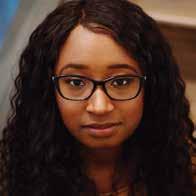

SATURDAY | 11/23 | 12:30–2:30 P.M.
SARAH EVERETT is the author of The Probability of Everything as well as several books for teens. Charlotte’s Web was the first book that ever made her cry, and while she despises spiders, she still has an abiding love of stories that move her. When she is not reading or writing, she is dreaming about summer, gearing up for her next travel adventure, perfecting her tree pose, or yodeling with her dog. Her next book, The Shape of Lost Things, is a heartfelt exploration of family and change as twelve-year-old Skye reunites with her older brother, Finn, after he spent four years on the run with their father. Everett lives in western Canada.
SNEED B. COLLARD III has written more than ninety books for young people, including his newest picture books Border Crossings; Like No Other: Earth’s Coolest One-of-a-Kind Creatures; and Waiting for a Warbler. Before beginning his writing career, Collard graduated with honors in marine biology from the University of California at Berkeley and earned a master’s in scientific instrumentation from UC Santa Barbara. To research and write his nonfiction books, he has traveled to Australia, Costa Rica, Southeast Asia, South America, and the deep-sea floor.
In addition to his nonfiction, Collard has written several popular middlegrade and YA novels and is a regular contributor to adult nature and science magazines. His third book for adults, Birding for Boomers—and Everyone Else Brave Enough to Embrace the World’s Most Rewarding and Frustrating Activity, was released this fall. Collard is an entertaining, award-winning speaker; he has visited more than six hundred schools and has been invited to more than one hundred professional educational conferences.
To learn more about Collard, visit his website, www.sneedbcollardiii.com, and keep up with the birding, writing, and photography blog he writes with his son, Braden, at www.FatherSonBirding.com
A book signing will follow the luncheon.

SATURDAY | 11/23 | 12:30–2:30 P.M.
CELESTE NG is the number one New York Times bestselling author of the novels Everything I Never Told You, Little Fires Everywhere, and Our Missing Hearts. Ng is the recipient of fellowships from the National Endowment for the Arts and the Guggenheim Foundation, and her work has been published in over thirty languages.
A book signing will follow the luncheon.
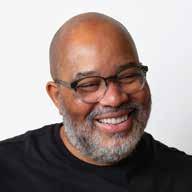
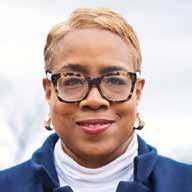
SUNDAY | 11/24 | 7:00–8:45 A.M.
JAMES E. RANSOME has been honored with the 2023 Children's Literature Legacy Award by the American Library Association in recognition of his exceptional contributions to children's literature. With a career spanning more than 34 years, Ransome has illustrated more than 70 books. His passion for art began in Rich Square, North Carolina. As a teenager, he moved to Bergenfield, New Jersey, before pursuing a BFA from Pratt Institute in Brooklyn, New York, and his MFA from Lesley University. Ransome's talent has garnered him numerous accolades, including the prestigious Coretta Scott King Awards, ALA Notables, a Jane Addams Award, and NAACP Image Awards. He resides in Rhinebeck, New York.
LESA CLINE-RANSOME is the author of numerous nonfiction and historical fiction titles for picturebook, chapter book, middle grade, and young adult readers, and her work has been named to ALA Notable Books and Bank Street Best Children’s Book lists. Her verse picturebook biography of Harriet Tubman, Before She Was Harriet, was nominated for an NAACP Image Award and received a Jane Addams Honor, a Christopher Award, and a Coretta Scott King Honor for Illustration. Finding Langston, the first in the Finding Langston trilogy, was the winner of the Scott O’Dell Award for Historical Fiction and received the Coretta Scott King Award Author Honor. One Big Open Sky, featuring the lives of three female narrators journeying along the Oregon Trail in 1879, is her debut novel in verse.
A 2022 MacDowell fellow, she serves on the SCBWI Advisory Council and is a host of KidLitTV's Past Present: Giving Past Stories New Life Cline-Ransome is the mother of four and frequently collaborates with her husband, illustrator James Ransome. She lives and works in the Hudson Valley region of New York, where each day she takes long walks and short naps. In between she writes. A book signing will follow the breakfast.

SUNDAY | 11/24 | 7:00–8:45 A.M.
ANTERO GARCIA is an associate professor in the Graduate School of Education at Stanford University. His research explores the possibilities of speculative imagination and healing in educational research. Prior to completing his PhD, Garcia was an English teacher at a public high school in South Central Los Angeles. His recent research explores learning and literacies in tabletop roleplaying games like Dungeons & Dragons and the civic learning possibilities in various learning environments. Based on his research, Garcia co-designed the Critical Design and Gaming School—a public high school in South Central Los Angeles. His recent books include All through the Town: The School Bus as Educational Technology, Everyday Advocacy: Teachers Who Change the Literacy Narrative (coauthored with Cathy Fleischer), and Civics for the World to Come: Committing to Democracy in Every Classroom (coauthored with Nicole Mirra). Garcia currently coedits La Cuenta, an online publication centering the voices and perspectives of individuals labeled undocumented in the US.
SUNDAY | 11/24 | 10:30 A.M.–12:00 P.M.
We Can Make Something Beautiful: Worldbuilding with Arts-Infused Writing Pedagogies
“What is the brightest, most just, most loving vision of education you can imagine? What colors do you see? What sounds do you hear? How does your body move in this space? What captivates you? Now, imagine your students experiencing school as a place of freedom and justice. What do you see, hear, and feel? . . . How might this vision of education serve to ground and inspire you as you approach your students, your curriculum, and your colleagues?”
With these opening questions, Kelly Wissman, director of the Capital District Writing Project and associate professor in the Department of Literacy Teaching and Learning within the University at Albany School of Education, invites readers of her book Teaching with Arts-Infused Writing Pedagogies to engage in freedom dreaming for educational justice.
Come to the NWP Brunch to “dwell [if only for 90 minutes] in a space of affirmative possibility and to engage in creative acts of building new worlds reflective of that possibility.” Drawing from her work with a multigenerational collective of writers, artists, students, and teachers, Wissman will share how arts-infused writing pedagogies can open up portals to educational worlds illuminated by heart, hope, and humanity. Join us for a morning of collaborative writing, artmaking, and freedom dreaming.
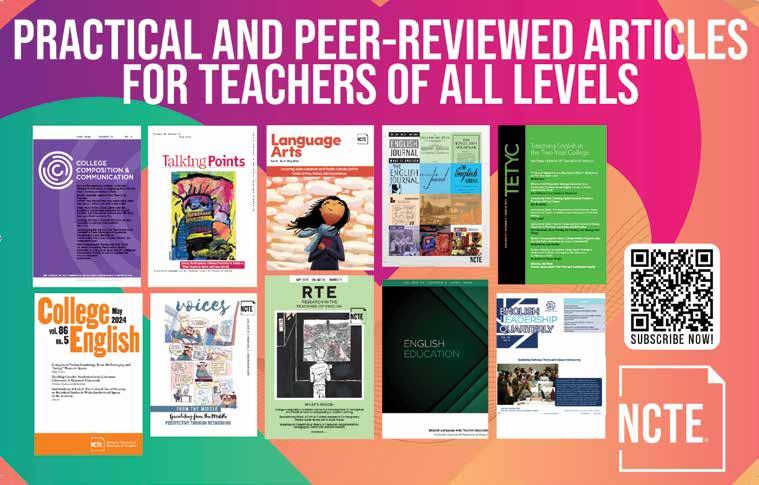
Enrollment is limited. Registration is required and will be checked at the door of each workshop. Visit the NCTE Annual Convention Registration Desk to add a Workshop to your Convention Registration.
THURSDAY, NOVEMBER 21, 8:00 A.M.–12:00 P.M.
W.1 A Heartfelt, Hopeful, and Culturally Proficient ELA Block for Elementary Latinx/o/a/e Learners
W.2 Boston Writing Marathon
W.3 Centering the Human in the English Classroom: Creation, Connection, and Inquiry with Digital Technology
W.4 Coaching the Human: How Starting with Heart, Hope, and Humanity Can Amplify Instructional Coaching
W.5 Committing to Inclusive ELA Instruction and Classroom Spaces: The Act. Change. Empower. Project
W.6 Contemporary Poetry That Inspires: Teaching Strategies, Writing, and Community Building In Person with Author José Olivarez
W.7 Crafting Purposeful Prose: A Workshop on Classroom Approaches to Sentences, Rhetoric, and Meaningful Writing
W.8 Creating Critical Consumers of American Indian Content to Achieve Equitable Representation
W.9 Designing Spaces for Students to Reshape Their Worlds: An Antiracist Pedagogy Workshop
W.10 E.A.R.T.H. Lit: A Collaborative and Culturally Relevant Resource for Teachers on Embedding Environmental Justice into Their Literacy Instruction
W.12 Humanizing the Grading System: Implementing a Growth Grading System for the Changemakers in Our Classrooms
W.15 Moving from Spectators to Players in Education Conversations: Writing for Publication
W.16 Nurturing Humanity: Integrating Hope and Arts in Teacher Education for Transformation
W.17 Read-Alouds That Celebrate Learners and Teach Racial, Historical, and Critical Literacies
W.18 Shakespeare and Way Beyond: Actively Empowering Students with Language and Literature
W.19 Text Tapestry: Weaving Diverse Text Sets for Dynamic Literacy Learning
W.20 Understanding the Armenian Genocide through Primary Sources and Memoir
W.21 We Are Family: Literacy Events and Engagements That Embrace Families and Communities
W.22 With Eyes of Appreciation: Looking at Student Work to Understand Children’s Language and Literacy Learning
W.23 Writing as a Catalyst for Transformation—for Ourselves and Our Students
W.24 Writing I.R.L.—Real-World Connections for Student Engagement
Meetings are held at the Boston Convention & Exhibition Center and at the adjoining Westin (as noted).
Children’s Literature Assembly Board Meeting
Friday, 6:00–9:00 p.m., Room 151 A (level 1)
Genders and Sexualities Equality Assembly Board Meeting
Saturday, 4:15–5:30 p.m., Stone Room (Westin, lobby level)
Assembly for Research Annual Business Meeting
Saturday, 5:45–7:00 p.m., Room 104 B (level 1)
The Rural Assembly on English Language and Literacy
Education Business Meeting & Social Saturday, 5:45–7:00 p.m., Room 204 B (level 2)
Unless otherwise noted, committee meetings are closed.
3D (Digital Democratic Dialogue) Cohort Meeting
Thursday, 11:30 a.m.–3:30 p.m. Room 154 (level 1)
Build Your Stack® Committee Meeting
Friday, 3:30–4:45 p.m. (open), Hancock Room (Westin, lobby level)
Charlotte Huck Award® for Outstanding Fiction for Children Committee Meeting
Thursday, 8:30 a.m.–5:00 p.m., Stone Room (Westin, lobby level)
Children’s Poetry Award Committee Meeting
Thursday, 8:30 a.m.–5:00 p.m., Otis Room (Westin, lobby level)
College Section Nominating Committee Meetings
Friday, 9:30–10:45 a.m. (closed), Webster Room (Westin, lobby level)
Saturday, 11:00 a.m.–12:00 p.m. (closed), 12:00–1:00 p.m. (open), Webster Room (Westin, lobby level)
Sunday, 9:00–10:00 a.m. (open), 10:00–11:00 a.m. (closed), Room 051 (exhibit level)
College Section Steering Committee Meeting
Thursday, 1:00–3:30 p.m., Webster Room (Westin, lobby level)
Cultivating New Voices among Scholars of Color Fall Institute
Thursday, 8:00 a.m.–4:00 p.m., Room 052 A (exhibit level)
Cultivating New Voices among Scholars of Color Reception & Mentor Panel
Thursday, 7:30–9:30 p.m., Room 253 A-C (level 2)
Elementary Cohort Meeting
Friday, 11:00 a.m.–12:30 p.m., Webster Room (Westin, lobby level)
Sunday, 8:00–9:30 a.m., Room 050 (exhibit level)
Elementary Section Nominating Committee Meetings
Friday, 9:30–10:45 a.m. (closed), Webster Room (Westin, lobby level)
Saturday, 11:00 a.m.–12:00 p.m. (closed), 12:00–1:00 p.m. (open), Webster Room (Westin, lobby level)
Sunday, 9:00–10:00 a.m. (open), 10:00–11:00 a.m. (closed), Room 051 (exhibit level)
Elementary Section Steering Committee Meeting
Thursday, 11:00 a.m.–1:00 p.m., Room 104 A (level 1)
LGBTQIA+ Advisory Committee Meeting
Friday, 3:30–4:15 p.m. (closed), 4:15–4:45 p.m. (open), Room 052 A (exhibit level)
Middle Level Section Nominating Committee Meetings
Friday, 9:30–10:45 a.m. (closed), Webster Room (Westin, lobby level)
Saturday, 11:00 a.m.–12:00 p.m. (closed), 12:00–1:00 p.m. (open), Webster Room (Westin, lobby level)
Sunday, 9:00–10:00 a.m. (open), 10:00–11:00 a.m. (closed), Room 051 (exhibit level)
Middle Level Section Steering Committee Meeting
Thursday, 1:30 p.m.–3:00 p.m., Room 104 A (level 1)
NCTE/SPA Reviewer Training
Friday, 9:00–11:30 a.m., Stone Room (Westin, lobby level)
NCTE/SPA Report Overview for EPPs
Saturday, 11:00 a.m.–12:15 p.m., Paine Room (Westin, lobby level)
NCTE Nominating Committee Meetings
Friday, 9:30–10:45 a.m. (closed), Webster Room (Westin, lobby level)
Saturday, 11:00 a.m.–12:00 p.m. (closed), 12:00–1:00 p.m. (open), Webster Room (Westin, lobby level)
Sunday, 9:00–10:00 a.m. (open), 10:00–11:00 a.m. (closed), Room 051 (exhibit level)
Orbis Pictus Award® for Outstanding Nonfiction in Children’s Literature Committee Meeting
Thursday, 8:30 a.m.–5:00 p.m., Paine Room (Westin, lobby level)
Professional Dyads and Culturally Relevant Teaching Program Meeting
Friday, 8:00 a.m.–5:00 p.m., Otis Room (Westin, lobby level)
Promising Young Writers Advisory Committee Meeting
Friday, 1:00–2:15 p.m. Room 159 (level 1)
Public Language Awards Committee Meeting
Friday, 3:30–4:45 p.m. (open), Room 052 B (exhibit level)
All Council assemblies, committees, caucuses, and collaboratives that meet during the Convention are listed alphabetically.
Recognizing Excellence in Art and Literary Magazines Committee Meeting
Thursday, 1:00–2:30 p.m. (closed), 2:30–4:00 p.m. (open), Hancock Room (Westin, lobby level)
Research Foundation Board of Trustees Meeting
Thursday, 3:00–6:00 p.m., Room 050 (exhibit level)
Resolutions Committee Meetings
Thursday, 8:00 a.m.–1:00 p.m. (closed)
Friday, 9:30–10:45 a.m. (closed)
Friday 11:00 a.m.–12:15 p.m. Open Hearings, Paine Room (Westin, lobby level)
If resolutions are received, drafts will be available at the Open Hearings.
Secondary Section Nominating Committee Meetings
Friday, 9:30–10:45 a.m. (closed), Webster Room (Westin, lobby level)
Saturday, 11:00 a.m.–12:00 p.m. (closed), 12:00–1:00 p.m. (open), Webster Room (Westin, lobby level)
Sunday, 9:00–10:00 a.m. (open), 10:00–11:00 a.m. (closed), Room 051 (exhibit level)
Secondary Section Steering Committee Meetings
Thursday, 2:00–3:00 p.m., Room 104 B (level 1)
Sunday, 10:00 a.m.–12:00 p.m., Room 050 (exhibit level)
Standing Committee Against Censorship Meeting
Friday, 3:30-4:45 (open), Webster Room (Westin, lobby level)
Standing Committee on Affiliates Meeting
Friday, 3:30-4:15 p.m. (closed), 4:15-4:45 p.m. (open), Paine Room (Westin, lobby level)
Standing Committee on Diversity and Inclusivity Meeting
Friday, 2:30-3:15 p.m. (closed), 3:15-3:45 p.m. (open), Room 104 C (level 1)
Standing Committee on Global Citizenship Meeting
Friday, 3:30–4:45 p.m. (open), Room 051 (exhibit level)
Standing Committee on Literacy Assessment Meeting
Thursday, 2:30–3:45 p.m., Room 210 A (level 2)
Standing Committee on Research Meeting
Friday, 9:30–10:30 a.m. (closed), 10:30–10:45 a.m. (open), Hancock Room (Westin, lobby level)
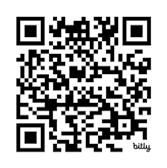
View the updated program details here!
American Indian Caucus Business Meeting
Saturday, 11:00 a.m.–12:15 p.m., Room 051 (exhibit level)
Asian/Asian American Caucus Open Forum Saturday, 11:00 a.m.–12:15 p.m., Stone Room (Westin, lobby level)
Asian/Asian American Caucus Networking & Mentoring Event Saturday, 5:00–7:00 p.m., Otis Room (Westin, lobby level)
Black Caucus Business Meeting Saturday, 11:00 a.m.–12:15 p.m., Room 052 A (exhibit level)
Jewish Caucus Open Forum Thursday, 2:30–3:45 p.m., Room 205 C (level 2)
Latinx Caucus Open Forum Saturday, 11:00 a.m.–12:15 p.m., Room 050 (exhibit level)
CEL Executive Committee Meeting Saturday, 9:00 a.m.–3:00 p.m., Otis Room (Westin, lobby level)
ELATE Executive Committee Meeting Thursday, 9:00 a.m.–5:00 p.m., Room 051 (exhibit level)
ELATE Graduate Student Strand Get Together Friday, 5:00–6:30 p.m., Room 210 A (level 2)
ELATE Nominating Committee Meetings Friday, 9:30–10:45 a.m. (closed), Webster Room (Westin, lobby level)
Saturday, 11:00 a.m.–12:00 p.m. (closed), 12:00–1:00 p.m. (open), Webster Room (Westin, lobby level) Sunday, 9:00–10:00 a.m. (open), 10:00–11:00 a.m. (closed), Room 051 (exhibit level)
LLA Executive Board Meeting Thursday, 12:00–4:00 p.m., Room 103 (level 1)
Two–Year College English Association (TYCA) Executive Committee Meeting
Saturday, 8:15–9:30 a.m., Paine Room (Westin, lobby level)
Two–Year College English Association (TYCA) Nominating Committee Meetings Friday, 9:30–10:45 a.m. (closed), Webster Room (Westin, lobby level)
Saturday, 11:00 a.m.–12:00 p.m. (closed), 12:00–1:00 p.m. (open), Webster Room (Westin, lobby level)
Sunday, 9:00–10:00 a.m. (open), 10:00–11:00 a.m. (closed), Room 051 (exhibit level)
Convention sessions with a special focus or in special sequences fall into session strands. Attend multiple sessions within a single strand for an in-depth learning experience with any of these important themes:


Early Childhood Education Strand sessions focus on issues pertaining to the education of children from birth to age eight, their families, and their teachers. Early literacy is a key concept in these sessions that also address diversities in early childhood and highlight practices and processes that are situated in social, historical, and cultural contexts.
ELATE Strand (English Language Arts Teacher Educators) sessions focus on issues, research, and practices pertaining to teacher development, professional development, and teacher education programs, including preservice and induction programs. These sessions highlight the practice of those who prepare literacy educators or support their continued development through courses, workshops, and inquiry.
LGBTQIA+ Strand sessions focus on issues pertaining to lesbian, gay, bisexual, transgender, queer/ questioning, intersex, asexual, and plus students, their families, and their teachers. These sessions address representations of sexual and affectional difference, and they offer a broad understanding of diversity, free inquiry and expression, critical pedagogy, and democratic teaching practices. The sessions encourage the creation of safer, more inclusive schools.

LLA Strand sessions focus on whole language theory and practice and are reviewed by Literacies and Languages for All leaders. These sessions push understandings of critical literacy, inquiry, and collaborative learning, and integrate literacy with other sign systems and knowledge systems situated in social, historical, political, and cultural contexts.
National Writing Project Strand sessions focus on research, practice, and innovation at Writing Project sites, including promising designs for professional learning and leadership programs; youth, community, and civic engagement projects; and fresh looks at curriculum and pedagogy in the teaching of writing. These sessions highlight the potential of teacher-leaders, and educators more broadly, to work collectively to improve the teaching of writing for all learners.


Rainbow Strand sessions focus on issues and strategies related to teaching and affirming culturally and linguistically diverse students, especially African Americans, Latinxs, American Indians, Asian Americans, and Pacific Islanders.
Research Strand sessions have been chosen through a refereed selection process sponsored by the NCTE Standing Committee on Research (SCR). Although reports and discussions of research are distributed throughout the Convention Program, sessions labeled “Research Strand” are those that report on rigorous and original research studies as refereed by the SCR.
Throughout the following session descriptions, each title includes a letter icon, indicating the level or levels of interest embraced by the topic:

James R. Squire Award
This award recognizes outstanding service, not only to the stature and development of NCTE and the discipline which it represents, but also to the profession of education as a whole, internationally as well as nationally.
Recipient: Kylene Beers, renowned teacher and professional author, TX
Advancement of People of Color Leadership Award
This award is given to an NCTE member of color who has made a significant contribution to NCTE and the development of our professional community. It supports those who advocate for policies and practices that influence and advance the understanding of equity and antiracism.
Recipient: Bilal Polson, Northern Parkway Elementary School, NY
Distinguished Service Award
The NCTE Distinguished Service Award recognizes a person or persons who have exhibited valuable professional service to the profession, scholarly or academic distinction, distinctive use of the language, and excellence in teaching.
Recipient: Ulrich H. Hardt, Portland State University, OR
LGBTQIA+ Advocacy and Leadership Award
The NCTE LGBTQIA+ Advocacy and Leadership Award recognizes a member of the LGBTQIA+ community who has made a significant contribution to NCTE and the development of our professional community.
Recipient: Saurabh Anand, University of Georgia
David H. Russell Award for Distinguished Research in the Teaching of English
This award recognizes published research in language, literature, rhetoric, teaching procedures, or cognitive processes that may sharpen the teaching or the content of English at any level.
Recipient: “K for the Way”: DJ Rhetoric and Literacy for 21st Century Writing Studies by Todd Craig, New York City College of Technology and CUNY Graduate Center
Julia E. Berry Research Award to Study Careers of English Majors
The Berry Research Award to Study Careers of English Majors (Berry Research Award) supports NCTE members in the teaching, learning, and application of literacy learning. The Berry Research Award provides research support for an NCTE member(s) who proposes a research project that studies the careers of English Majors and/or the role and function of English in career development.
Recipient: Kelly J. Sassi, Northern Michigan University, “Versatility and Resilience in English Alumni from a RuralServing Institution”
Media Literacy Award
This award showcases NCTE members who have developed innovative approaches for integrating media analysis and composition into their instruction.
Recipient: T. Philip Nichols, Baylor University, TX
George Orwell Award for Distinguished Contribution to Honesty and Clarity in Public Language
Given by the NCTE Public Language Awards Committee, the Orwell Award recognizes writers who have made outstanding contributions to the critical analysis of public discourse.
Recipient: Making Americans: Stories of Historic Struggles, New Ideas, and Inspiration in Immigrant Education by Jessica Lander, Lowell High School, MA
Promising Researcher Award
Given by the NCTE Standing Committee on Research, this award recognizes the promise of a researcher early in their career based on the quality of a manuscript’s statement of a research problem, literature review, methodology and data analysis, grounding of evidence, significance of results, and clarity and style.
Recipient: Alex Corbitt, SUNY at Cortland, NY
Alan C. Purves Award
The Alan C. Purves Award is presented annually to the author(s) of the Research in the Teaching of English article, from the previous year’s volume, judged most likely to have a significant impact on literacy learning and/or teaching.
Recipient: “Adopting an Empathizing Stance in Classroom Argumentation: Pedagogical Constructs and Affordances” by Min-Young Kim & Sanghee Ryu (May 2024)
Honorable Mention: “I’m Outside the Box. Too Outside the Box, I Explode It!’: Exploring Literacies of Dignity with Middle School Youth” by Danielle R. Filipiak (February 2024)
Orbis Pictus Award® for Outstanding Nonfiction for Children
Established to promote and recognize excellence in the writing of nonfiction for children.
Recipient: Border Crossings by Sneed B. Collard III, illustrated by Howard Gray (Charlesbridge)
Join us to celebrate many of these 2024 NCTE award recipients at a special breakfast session (all attendees are welcome; no ticket is required): Saturday, Nov. 23, 7:30–8:45 a.m., Room 205 B (BCEC, level 2).
National Intellectual Freedom Award
The purpose of this award is to honor individuals, groups, or institutions that merit recognition for advancing the cause of intellectual freedom.
Recipient: Henry “Cody” Miller, SUNY Brockport
Honorable Mention: Honesty for Ohio Education, cofounded by Lisa Vahey
Early Career Educator of Color Leadership Award
This award provides early career teachers of color a national forum at the NCTE Annual Convention for professional collaboration and development, and supports them as they build accomplished teaching careers as active NCTE members.
2024–2025 Recipients: Lakeya Afolalu, University of Washington, Seattle
Huan Gao, University of Memphis, TN
Wenyu Guo, University of South Florida, Tampa
Rachel Jordan, Mary McLeod Bethune Elementary School, Philadelphia, PA
Lakisha Odlum, Teachers College, Columbia University, New York, NY
Rocio Rivas, Trevor Browne High School, Phoenix, AZ
2023–2024 Recipients: G. Edzordzi Agbozo, University of North Carolina Wilmington
Elizabeth Castro, University of California, Davis
Rabiyatu Jalloh, West Philadelphia High School, PA
Darius Phelps, Teachers College, Columbia University, New York, NY
Sherita Roundtree, Towson University, MD
Cultivating New Voices among Scholars of Color
The NCTE Research Foundation’s two-year program is designed to provide support, mentoring, and networking opportunities for early career scholars of color. The program aims to work with graduate students of color to cultivate their ability to draw from their own cultural/linguistic perspectives as they conceptualize, plan, conduct, and write their research. The program provides socialization into the research community and interaction with established scholars whose own work can be enriched by their engagement with new ideas and perspectives. 2024–2026 Fellows: Janice Baines, University of South Carolina
monét cooper, University of Michigan-Ann Arbor
Rubén A. González, Stanford University
Adrianna González Ybarra, University of Missouri, Columbia
shea wesley martin, The Ohio State University
Mohit P. Mehta, The University of Texas at Austin
Alex Feliciano Mejia, San Francisco State University
Cristina S. Méndez, University of California, Berkeley
Rashida Mustafa, Teachers College, Columbia University, New York, NY
Tairan Qiu, University of Houston
Yvette M. Regalado, Texas State University
Ankhi G. Thakurta, Boston College
Charlotte Huck Award® for Outstanding Fiction for Children
Established to promote and recognize excellence in the writing of fiction for children.
Recipient: The Probability of Everything by Sarah Everett (Clarion Books)
Donald H. Graves Award for Excellence in the Teaching of Writing
Recognizes teachers in grades K–6 who, through the teaching of writing, demonstrate an understanding of student improvement in writing.
Recipient: Jen Vincent, Bannockburn School, IL
Outstanding Elementary Educator in the English Language Arts Award
Established in 1995, this award recognizes a distinguished national or international educator who has made major contributions to the field of language arts in elementary education.
Recipient: Angie Zapata, University of Missouri
Language Arts Distinguished Article Award
This award recognizes outstanding Language Arts articles that move forward the Elementary Section Steering Committee‘s mission of the pursuit for justice and equity, bring the sociocultural realities of children’s everyday lives into language arts instruction, and facilitate conversations of rich and authentic literacies.
Recipient: “What about the 1%? Transforming Current Literacy Pedagogy for Students with Significant Support Needs” by Monica C. Kleekamp, Maryville University, MO (January 2024)
Outstanding Middle Level Educator in the English Language Arts Award
This award recognizes exceptional English language arts teachers of grades 6–8 who have demonstrated excellence in teaching and inspired a spirit of inquiry and a love of learning in their students.
Recipient: Donald Jenkins; North Whidbey Middle School and Apex Virtual Learning School; Oak Harbor, WA
Richard W. Halle Award for Outstanding Middle School Educator
Honors a junior high/middle level educator who has worked to promote understanding of the developmental needs and characteristics of young adolescents, especially in the English language arts.
Recipient: Carla España, Brooklyn College, CUNY
Linda Rief Voices from the Middle Award
Recognizes an outstanding publication in Voices from the Middle written or cowritten by classroom teachers or literacy coaches.
Recipient: “‘On the Air with…’: Boosting Youth-DJs’ Speculative Civic Literacies on Local Radio” by Cassie Brownell (December 2023)
High School Teacher of Excellence Award
This national award celebrates high school teachers who have been nominated by their state affiliates.
Recipients: Rudy Esposo, Valley High School, AZ
Melanie West, Hubert Middle School, GA
Rachelle Blue, Eisenhower High School, KS
Dawn M. Reed, Okemos High School, MI
Tyler Thompson, Gering High School, NE
Laura Mundorff, Rex Putnam High School, OR Steve Kucinski, Dublin City Schools, OH
Adam Rudebusch, Castlewood High School, SD
Michelle D. Atkins, Roanoke Public Schools, VA
Marcy Siolka, School District of Bonduel, WI
English Journal Edwin M. Hopkins Award
This biannual award recognizes outstanding English Journal articles written by authors who are not high school teachers.
Recipient: “Seeing Beyond the Surface: Using Critical Lenses to Combat Anti-Blackness in the English Classroom” by Christian M. Hines and Jenell Igeleke Penn (September 2023)
Honorable Mention: “Possibilities for Rural Queer Liberation: Toward a Queer Rural Place-Based Pedagogy” by Josh Thompson and Clint Whitten (July 2024)
Honorable Mention: “Mirrors, Windows, and Mentors: Developing Critical Mentor Text Sets to Cultivate Student Writers’ Identities” by Elizabeth Thackeray Nelson and Margaret Osgood Opatz (September 2023)
Honorable Mention: “Relational Practices of Queer Literacy Educators in the US/Mexico Borderlands” by Em Bowen and Carol Brochin (July 2024)
Paul and Kate Farmer English Journal Writing Award
This award recognizes two articles published in English Journal during the previous school year that were written by high school teachers.
Recipients: “Black Teachers’ Use of Liberatory Design to Promote Literacies of Healing” by Jessica Lee Stovall, Lamar Timmons-Long, Thomas J. Rodney, and Taylor Hall “(November 2023)
“Resisting the Chilling Effect of Censorship and Scripted Curriculum” by Brooke Bianchi-Pennington and Arianna Banack (January 2024)
Honorable Mention: “Relational Literacies for More-thanEnglish Worlds” by Kelly Victor (May 2024)
Richard Ohmann Award for Outstanding Article in College English
This award recognizes an outstanding article published in College English in the past volume year.
Recipient: “’I’m a Bad Writer’: Latina College Students’ Traumatic Literacy Experiences” by María P. Carvajal Regidor (September 2023)
Geneva Smitherman Cultural Diversity Grant
This grant is offered for first-time NCTE Convention presenters who are members of ethnic groups historically underrepresented in NCTE and ELATE.
Recipient: Vincent Price, North Carolina Central University, Durham
Janet Emig Award for Exemplary Scholarship in English Education
The Emig Award recognizes an exceptional article for excellence in scholarship and educational leadership published in the ELATE journal English Education within the previous calendar year.
Recipient: Ankhi G. Thakurta, Boston College, Chestnut Hill, MA, “Research: Solidarity-as-Project: Charting Democratic Co-inquiries in an Asian American Girl and Woman–Centric English Education Community” (July 2023)
Richard A. Meade Award
The Richard A. Meade Award for Research in English Language Arts Education recognizes published research that investigates English/language arts teacher development at any educational level, of any scope and in any setting. The award was established in 1988 in honor of the late Richard Meade of the University of Virginia for his contributions to research in the teaching of composition and in teacher preparation.
Recipient: Dominique Skye McDaniel, Kennesaw State University, GA
James Moffett Award
The James Moffett Memorial Award for Teacher Research is a grant offered by ELATE to support teacher research projects that further the spirit and scholarship of James Moffett. Moffett, a great champion of the voices of K–12 teachers, focused on such ideas as the necessity of student-centered curricula, writing across the curriculum, alternatives to standardized testing, and spiritual growth in education and life.
Recipient: to be announced
ELATE Research Initiative Grants
The ELATE Research Initiative Grants contribute to ELATE’s mission and efforts to communicate more effectively with many different audiences: state and federal policymakers, accreditation agencies, school/department administrators, researchers, teacher educators, practicing teachers, and other education leaders.
Recipients: Karis Jones & Emily Schindler, “Facilitating ELA Teacher Learning at San Diego Comic Con”
Stephanie M. Robillard, “Club YESS! A Book Club for Young Engaged Sister Scholars”
Kelli A. Rushek & Katherine E. Batchelor, “Neoliberalism as It is Framed in Literature for Youth: Critical Analysis of School Choice Initiatives with Preservice ELA Teachers”
Honorable Mention: Erica Holyoke & Heather Dunham, “Shared Transformative and Inclusive Education Research: Literacy Teacher Inquiry Groups Focusing on Young Multilingual Learners”
ELATE Graduate Student Research Award
This award seeks to support graduate student research that advances the work of ELATE as articulated through the organization’s position statements and sponsored publications.
Recipient: Rubén A. González, “Developing and Enacting an Abolitionist Praxis: Novice Teachers of Color and a Community of Abolitionist Praxis”
Honorable Mention: Anthony Voulgarides, “Youth Media Production as a Vehicle for Civic Action: A Case Study”
Best Article of the Year Award
This award is given annually to the author of an article written and published in English Leadership Quarterly (ELQ)
Recipient: “From Interrogation to Action: Transformative Equity in English Classrooms” by Sawsan Jaber (October 2023)
Honorable Mention: “A Collaborative Effort to Develop and Implement an Online Social Justice Professional Development for Urban School Teachers” by Alma D. Stevenson, Sabrina N. Ross, Calvin Walton & Ming Fang He (August 2023)
Kent Williamson Exemplary Leader Award
This award is given annually to an NCTE member who is an outstanding English language arts educator and leader.
Recipient: Kelly Gallagher, Anaheim Union High School District, CA
Teacher-Leader of Excellence Award
This award is given to a classroom educator who leads the way of literacy instruction by sharing their work with others at local and/or national levels.
Recipient: Sarah Mulhern Gross, High Technology High School, NJ
Innovative Leadership Award
This award is given to an early/mid-career leader in recognition of their innovative leadership at the local, regional, and/or national level.
Recipient: Matthew Helmers, Ransom Everglades High School, FL
Affiliate Excellence Awards
This award is given to affiliates that meet standards of excellence to which all affiliates should aspire.
Recipients Georgia Council of Teachers of English (GCTE)
Iowa Council of Teachers of English (ICTE)
Maine Council for English Language Arts (MCELA)
Michigan Council of Teachers of English (MCTE)
New York State English Council (NYSEC)
Ohio Council of Teachers of English Language Arts (OCTELA)
Texas Council of Teachers of English Language Arts (TCTELA)
Virginia Teachers of English (VATE)
Student Affiliate Excellence Awards
This award is given to student affiliates that meet standards of excellence to which all student affiliates should aspire.
Recipients: NCTE @ Michigan State University
NCTE of West Chester University of Pennsylvania
Affiliate Intellectual Freedom Awards
This award is given by state, regional, and provincial affiliates to honor individuals, groups, or institutions that merit recognition for advancing the cause of intellectual freedom.
Recipients: Andrea Zellner, Oakland Schools & Michigan State University—Michigan Council of Teachers of English (MCTE)
Dylan Teut, Concordia University—Nebraska English Language Arts Council (NELAC)
Honesty for Ohio Education—Ohio Council of Teachers of English Language Arts (OCTELA)
Jenny M. Martin, Bridgewater College—Virginia Teachers of English (VATE)
Affiliate Multicultural Program Awards
This award is given to affiliates who adopt programs, policies, activities, and other events which encourage greater participation and development of multicultural involvement within each affiliate.
Recipients: Arizona English Teachers Association (AETA)
Texas Council of Teachers of English Language Arts (TCTELA)
Affiliate Journal of Excellence Award
This award is given to outstanding affiliate journals.
Recipients: Arizona English Journal, Arizona English Teachers Association (AETA)
California English, California Association of Teachers of English (CATE)
Kansas English, Kansas Association of Teachers of English (KATE)
Northwords, Maine Council for English Language Arts (MCELA)
Oregon English Journal, Oregon Council of Teachers of English (OCTE)
English in Texas, Texas Council of Teachers of English Language Arts (TCTELA)
The Utah English Journal, Utah Council of Teachers of English (UCTE)
Virginia English Journal, Virginia Association of Teachers of English (VATE)
Affiliate Newsletter of Excellence Award
This award is given to affiliate newsletters that are evaluated by a panel of judges as best meeting the award criteria.
Recipients: The English Pub, Arkansas Council of Teachers of English and Language Arts (ACTELA)
Connections Newsletter, Arizona English Teachers Association (AETA)
Scribbles ‘N Bits, Georgia Council of Teachers of English (GCTE)
MCELA Newsletter, Maine Council for English Language Arts (MCELA)
The Michigan English Teacher (MET), Michigan Council of Teachers of English (MCTE)
NEATE News, New England Association of Teachers of English (NEATE)
NYSEC News, New York State English Council (NYSEC)
Chalkboard, Oregon Council of Teachers of English (OCTE) Opportunities, Ohio Council of Teachers of English Language Arts (OCTELA);
Texas Voices, Texas Council of Teachers of English Language Arts (TCTELA)
WCTE Update, Wisconsin Council of Teachers of English (WCTE)
Affiliate Website of Excellence Award
This award is given to honor affiliates that have websites that best meet set criteria.
Recipients: Georgia Council of Teachers of English (GCTE)
Iowa Council of Teachers of English (ICTE)
Kansas Association of Teachers of English (KATE)
Kentucky Council of Teachers of English (KCTE)
Maine Council for English Language Arts (MCELA
Michigan Council of Teachers of English (MCTE)
Minnesota Council of Teachers of English (MCTE)
New York State English Council (NYSEC)
Oregon Council of Teachers of English (OCTE)
Ohio Council of Teachers of English Language Arts (OCTELA)
Texas Council of Teachers of English Language Arts (TCTELA)
Virginia Association of Teachers of English (VATE)
Western Pennsylvania Council of Teachers of English (WPCTE)
NCTE Fund Teachers for the Dream Affiliate Awards
The NCTE Fund invites affiliates to implement initiatives aimed at recruiting English language arts teachers of color and will offer grants to those selected affiliates.
Recipients: Arizona English Teachers Association (AETA)
Ohio Council of Teachers of English Language Arts (OCTELA)
Oregon Council of Teachers of English (OCTE)
Texas Council of Teachers of English (TCTELA)
Affiliate Leadership Development Awards
The award is designed to encourage the participation of early career teacher leaders in both NCTE (beginning at the Annual Convention) and the affiliate (through all its activities).
Recipients: Elias Dallmann, York High School—Nebraska English Language Arts Council (NELAC)
Olivia Johnson, Olentangy Shanahan Middle School—Ohio Council of Teachers of English Language Arts (OCTELA)
Kent D. Williamson Affiliate Membership
This award is given to affiliates with the highest percentage of membership increase. To be eligible, affiliates must electronically send their membership lists to NCTE.
Recipients: California Association of Teachers of English (CATE)
Kansas Association of Teachers of English (KATE)
Maine Council for English Language Arts (MCELA)
Michigan Council of Teachers of English (MCTE)
Minnesota Council of Teachers of English (MCTE)
Texas Council of Teachers of English Language Arts (TCTELA)
Western Pennsylvania Council of Teachers of English (WPCTE)
NCTE leaders of tomorrow are like you—active, dedicated NCTE members of today! Are you interested in running for a steering or nominating committee position? Or do you have a colleague you’d like to nominate for office in NCTE?
The nominating committees of NCTE; ELATE (English Language Arts Teacher Educators); TYCA (Two-Year College English Association); and the Elementary, Middle Level, Secondary, and College Sections of NCTE will accept nominations for the 2025 elections during the Annual Convention. Visit the committees at the following times:
FRIDAY, 5:00–6:30 PM SATURDAY, 12:00–1:00 PM SUNDAY, 9:00–10:00 AM
Annual Business Meeting Webster Room (Westin) Room 051 (BCEC) Room 210 C (level 2) (lobby level) (exhibit level)
ncte.org/get-involved/volunteer/elections/
NCTE ANNUAL CONVENTION
2025 NCTE Annual Convention
November 20–23
Denver, Colorado
Program proposal deadline: 9 a.m. ET
Wednesday, January 29, 2025
2026 NCTE Annual Convention
November 19–22
Site tba
OTHER CONVENTIONS & CONFERENCES
2025 CCCC Annual Convention April 9–12 Baltimore, Maryland
2025 NCTE-NCTM Joint Conference June 16–18
Chicago, Illinois
2025 CEL Annual Convention November 20–23 Denver, Colorado
2025 TYCA National Conference April 9 Baltimore, Maryland
2025 ELATE Summer Conference July 10–13
Charleston, South Carolina
2026 CEL Annual Convention
November 22–24
Site tba
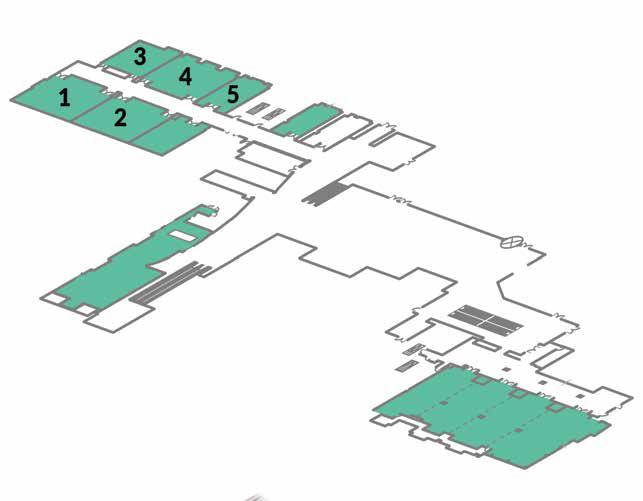
The Westin hotel is next door to the convention center. Meeting rooms are accessible from the 2nd floor skywalk from the convention center, or from walking outside.
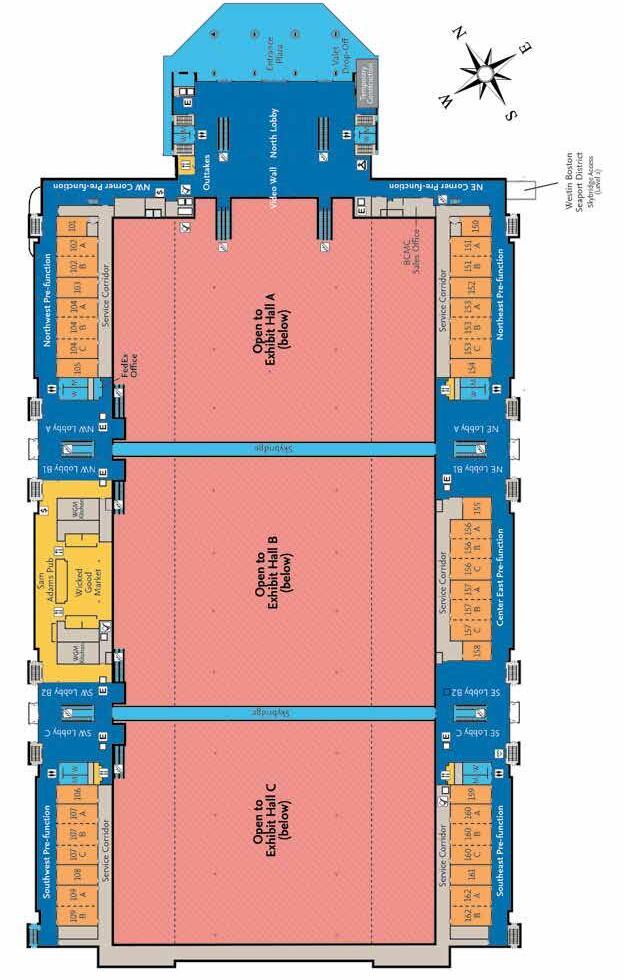
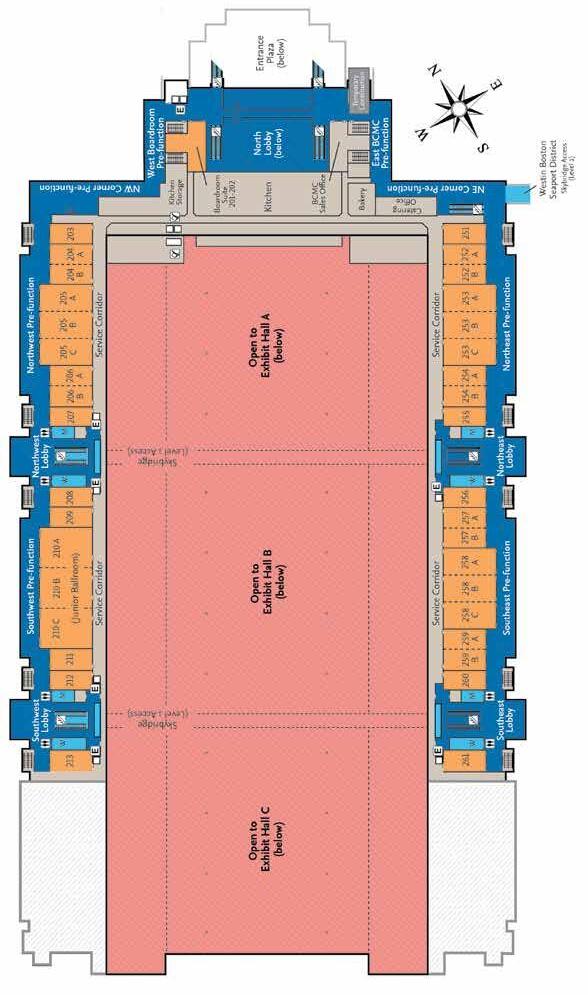
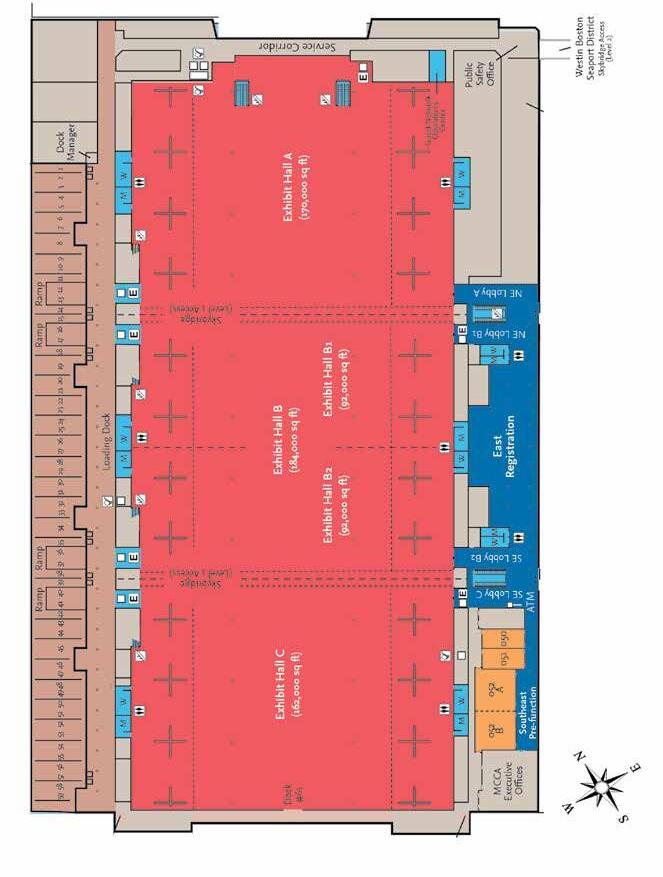
What if you could access that all year long?
You can with an NCTE membership!
Envision a year where you have hands-on resources for every stage of your career that help you:
• Engage your students with innovative ways to approach topics
• Prepare your lessons with our Video Library and book rationale database
• Take care of yourself when you’re feeling overwhelmed
• Teach in challenging times with articles and expertise from the NCTE community
Other membership benefits include:
• Exclusive invitations to a diverse tapestry of events and online learning for ELA educators
• Discounts at the NCTE bookstore and for Convention registration
• A biweekly digest of opportunities to engage with other teachers, apply for awards and special project opportunities, and learn about NCTE’s national work supporting literacy educators

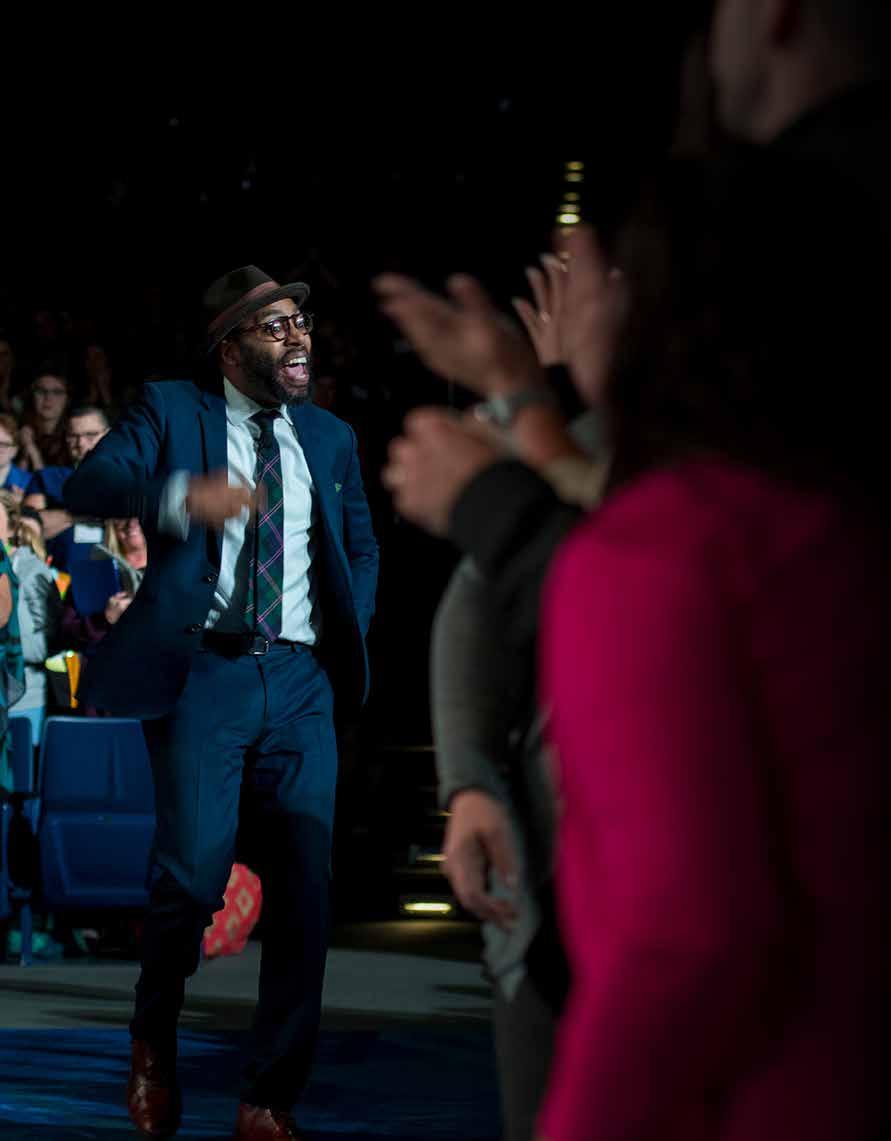
• Access to discounted insurance, including professional liability insurance, that helps you navigate today’s challenging climate
Keep the energy alive beyond Boston. Become an NCTE member today. ncte.org/membership

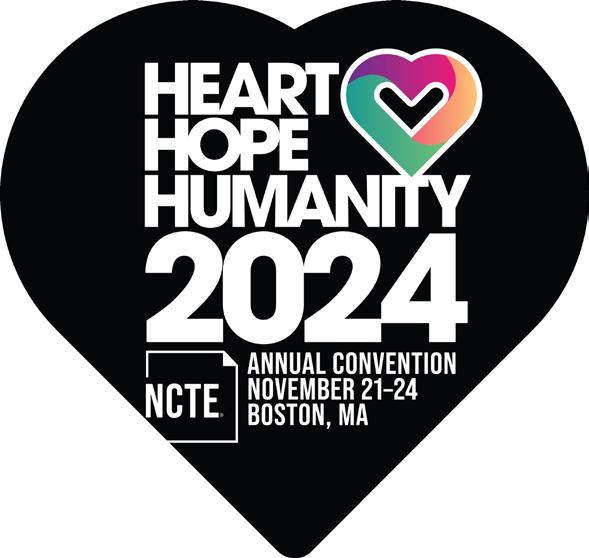
Session proposals and their descriptions were created by the session speakers and reviewed through a peer-review process. Session content does not necessarily reflect NCTE policies or positions.
A.M.–12:00 P.M.
All workshops will be held at the Boston Convention & Exhibition Center unless otherwise noted.
Registration is required to attend a workshop (name badges will be checked). If space is available, workshop registration may be purchased onsite at the NCTE Registration Desk (North Lobby, level 1).
W.1 A Heartfelt, Hopeful, Culturally Proficient ELA
Block for Elementary Latinx Learners
ROOM 257 B (LEVEL 2)
Elementary Latinx learners routinely score lower than their White peers on reading assessments. This session offers a solution—culturally proficient ELA instruction. Join a grade 4 teacher ESL expert and award-winning children’s book authors as they highlight the value of ELA blocks with equitable access to nonfiction and mirrors in fiction for Latinx learners and their classmates.
Tradebook Authors/Illustrators: Ernesto Cisneros, Quill Tree Books/HarperCollins
Rene Colato Lainez, Holiday House
Torrey Maldonado, SCBWI/Penguin Random House
Katherine Palacesnarita, NRSD Teacher/Chalk + Ink Podcast
Cindy L. Rodriguez, HarperCollins/Cardinal Rule Press
Melissa Stewart, Reycraft
W.2 Boston Writing Marathon
ROOM 254 B (LEVEL 2)
After hearing a brief introduction from the facilitator who founded the New Orleans Writing Marathon and has led Writing Marathons across the country, participants take part in a three-hour Writing Marathon writing and sharing their work in small groups around Boston before returning to the meeting room to reflect on the process as a community of teachers/writers.
Chair: Richard Louth, Southeastern Louisiana University
W.3 Centering the Human in the English Classroom: Creation, Connection, and Inquiry with Digital Technology
ROOM 254 A (LEVEL 2)
Sponsored by Assembly on Computers in English (ACE)
In this Bring Your Own Device (BYOD) workshop, participants will engage in digital literacy practices that encourage creation, connection, and inquiry using digital tools. Attendees will be led through activities centered on artificial intelligence, podcasting, writing instruction, journalistic learning, and map-based narratives.
Presenters: Johnny Allred, Brigham Young University
Abbie Atkinson-Jones, Diamond Fork Middle School
Bill Bass, Parkway School District
Celeste Kirsh, Ontario Institute for Studies in Education, University of Toronto
Ewa McGrail, Georgia State University
J. Patrick McGrail, Jacksonville State University
Jon Ostenson, Brigham Young University
W.4 Coaching the Human: How Starting with Heart, Hope, and Humanity Can Amplify Instructional Coaching
ROOM 255 (LEVEL 2)

Discover the impact of infusing empathy, optimism, and a human-centered approach into instructional coaching. Explore practical strategies for building connections, creating a positive coaching environment, and leveraging confidence to enhance outcomes. Through engaging activities, learn how prioritizing heart, hope, and humanity elevates the effectiveness of instructional coaching.
Presenter: Alissa Crabtree, Crabtree Coaching Collaborative
Session proposals and their descriptions were created by the session speakers and reviewed through a peer-review process. Session content does not necessarily reflect NCTE policies or positions.
W.5 Committing to Inclusive ELA Instruction and Classroom Spaces: The Act. Change. Empower. Project
ROOM 156 A (LEVEL 1)
This workshop introduces attendees to inclusive writing pedagogy, focusing on both designing instruction as well as cultivating spaces—both in and outside of traditional classroom settings—underpinned by this approach. The session framework, which facilitators will use to guide participants through discussions, exercises, and activities, centers on the Act. Change. Empower. (ACE) Project.
Presenter: Elizabeth Lewis, Dickinson College, Carlisle, PA
W.6 Contemporary Poetry That Inspires: Teaching Strategies, Writing, and Community Building in Person with Author José Olivarez
ROOM 156 C (LEVEL 1)
In this interactive workshop featuring author José Olivarez, participants will explore his poems, honoring the legacy of Gwendolyn Brooks, and learn new poetic forms. We will share culturally responsive strategies for teaching poetry, and write and share our own poems in a dynamic writing workshop led by Peter Kahn.
Chair: Melissa Smith, Lake Norman Charter High School Tradebook Author/Illustrator: José Olivarez, Macmillan Workshop Leader: Peter Kahn, Poet-Educator LLC
W.7 Crafting Purposeful Prose: A Workshop on Classroom Approaches to Sentences, Rhetoric, and Meaningful Writing
ROOM 157 A (LEVEL 1)
This interactive and entertaining workshop explores a foundation for writing often taken for granted: sentences. NCTE Past President Beverly Ann Chin joins sought-after coach and author Brandon Abdon, YouTube ELA sensation Timm Freitas, and consultant extraordinaire Chris Judson to explore approaches to sentence-level teaching that can transform students' writing and overall thinking.
Chair: Brandon Abdon, Murray State University
Presenters: Beverly Ann Chin, University of Montana
Timm Freitas, Whitinsville Christian School
Chris Judson, University of Notre Dame
W.8 Creating Critical Consumers of American Indian Content to Achieve Equitable Representation ROOM 256 (LEVEL 2)
This session will provide participants with strategies for implementing Indigenous content into classrooms and learning spaces through culturally respectful and responsible approaches. Focusing on literary practices, we will discuss crucial understandings regarding American Indians to achieve equitable, engaging environments for both Native and non-Native students.
Presenters: Tawny (Good Woman) Cale, Great Falls Public Schools
Jordann (Bright Trail Woman) Lankford, Great Falls Public Schools
W.9 Designing Spaces for Students to Reshape Their Worlds: An Antiracist Pedagogy Workshop
ROOM 252 B (LEVEL 2)

Students bring to the literacy classroom a wealth of resources such as linguistic competencies and reasons to compose. Yet their literacy education is often only designed for them to prove that they can meet state standards. This antiracist workshop will teach participants how to design and assess assignments that guide students’ use of these resources to address the social change they desire.
Workshop Leaders Kevin Eric DePew, Old Dominion University
Michelle Fowler-Amato, Old Dominion University
Cynthia Lopez Guerrero, University of Texas Rio Grande Valley
Tomas Guerrero, University of Texas Rio Grande Valley
Sawsan Jaber, Maine District 207/Education Unfiltered Consulting
Kole Matheson, Old Dominion University
Jessica Mattox, Radford University
W.10 E.A.R.T.H. Lit: Collaborative and Culturally Relevant Resources for Teachers on Embedding Environmental Justice into Their Literacy Instruction

ROOM 257 A (LEVEL 2)
Join our workshop where educators unleash the power of storytelling in intersectional environmental justice. Dive into diverse literature, activities, and resources. Ignite discussions empowering your classroom to shape a future where stories foster environmental consciousness and action. Be part of the movement for a sustainable, equitable future through ELA instruction. View www.earthlit.org
Presenters: Lauren Fletcher, Colorado State University Stanislaus
Erica Holyoke, University of Colorado Denver
Session proposals and their descriptions were created by the session speakers and reviewed through a peer-review process. Session content does not necessarily reflect NCTE policies or positions.
W.12 Humanizing the Grading System: Implementing a Growth Grading System for the Changemakers in Our Classrooms
ROOM 151 B (LEVEL 1)
Teacher-author Sarah Zerwin and teachers from across the country will outline the steps they have taken to inspire students to see their humanity beyond the numbers in the gradebook. This workshop will provide opportunities for participants to begin the process of decentering the grade—and themselves—in the classroom and provide specific practical steps that teachers can take immediately.
Presenters: Liz Campbell, Ellicott Mills Middle School
Allyssa Graham
Jolene Heinemann, Oak Park and River Forest High School
Elizabeth Kelly, Santa Clara High School
Maichen Liu-Grossman, Santa Clara High School
Jeanette Swank, Ellicott Mills Middle School
Sarah Zerwin, Fairview High School
W.15 Moving from Spectators to Players in Education Conversations: Writing for Publication ROOM 157 C (LEVEL 1)
Classroom teachers must engage as public scholars, contributing to and disrupting conversations about education, especially when our voices are missing from journals and policies. This workshop provides time and tools to examine teacher-crafted articles from contemporary journals. Oregon Writing Project coaches and authors offer both strategies and a platform for participants to kickstart drafts.
Presenters: Linda Christensen, Rethinking Schools/Oregon Writing Project Director (retired)
Ty Marshall, McDaniel High School, co-editor of Teaching for Transgender Justice
Kara Stroman, OWP coach, Irvington Elementary School
W.16 Nurturing Humanity: Integrating Hope and Arts in Teacher Education for Transformation
ROOM 252 A (LEVEL 2)


Participants will begin at the Museum of Fine Arts Boston by downloading an app we developed to support preservice teachers in this specific art space. Then we will model the app with a work of art before allowing participants to use the app to explore the museum in small groups.
Workshop Leaders: Matthew Kruger-Ross, West Chester University of PA
Pauline Schmidt, West Chester University of PA
W.17 Read-Alouds That Celebrate Learners and Teach Racial, Historical, and Critical Literacies
ROOM 153 A (LEVEL 1)
This session helps educators design lessons that thematically integrate texts aligned to social studies so that students learn to value and advocate for the appreciation of human differences across a broad range of characteristics and traits, including but not limited to race, ethnicity, gender, sexual orientation, language, religion, (dis)ability, age, and national origin.
Chair: Keisha Smith-Carrington, Princeton Public Schools
Presenter: Michelle Yang-Kaczmarek, Dobbs Ferry School District
W.18 Shakespeare and Way Beyond: Actively Empowering Students with Language and Literature
ROOM 251 (LEVEL 2)

Experience the Folger Method, a scaffolded sequence of strategies that puts students directly inside the language and issues of complex texts. Teachers will be on their feet speaking the words of authors, and connecting with the characters and ideas in Shakespeare and other complex texts in just the way they will with students.
Presenters: Liam Dempsey, Folger Shakespeare Library Liz Dixon, West Lafayette High School, IN Deborah Gascon, Dutch Fork High School, Irmo, SC
W.19 Text Tapestry: Weaving Diverse Text Sets for Dynamic Literacy Learning

ROOM 153 C (LEVEL 1)
Explore the art of building dynamic text sets in this session, designed to enhance literacy through diverse resources. Learn to craft conceptually coherent collections, accommodating various learning needs and fostering deep understanding. Discover strategies for engaging students, aligning with educational standards, and creating impactful, multi-dimensional learning experiences.
Presenter: Shannon Bosley, Reading Ways
Session proposals and their descriptions were created by the session speakers and reviewed through a peer-review process. Session content does not necessarily reflect NCTE policies or positions.
W.20 Understanding the Armenian Genocide through Primary Sources and Memoir NORTH LOBBY (LEVEL 1)

On Thursday, Nov. 21, join us in the heart of one of the oldest, most vibrant Armenian American community centers in the US—Watertown, MA. This full-day workshop (8:30 a.m.–4:00 p.m.) begins at the Armenian Museum of America (AMA) (https://www. armenianmuseum.org/), where participants will enjoy a tour of the exhibits and be guided through the fundamentals of the history of the Armenian Genocide, as well as the use of literature and survivor memoirs from master educators, museum staff, and local Watertown educator, Houry Boyramian, the daughter of an Armenian Genocide survivor and memoir author. At noon, the workshop moves to the National Association for Armenian Studies and Research (NAASR) (https:// naasr.org/), for an authentic Armenian lunch and an examination of its extensive primary source archive and a workshop on how to access and incorporate them into lessons about the Armenian Genocide. (Arrangements will be made to transport participants from NCTE to the workshops and back.)
Presenter: Kerri Flynn, The Genocide Education Project
W.21 We Are Family: Literacy Events and Engagements That Embrace Families and Communities
ROOM 155 (LEVEL 1)
Participants will take part in some sample literacy engagements that can be utilized for school-based literacy programs. These include a literacy escape room, book tasting, writing marathon, book clubs, author events, and more. Suggestions for planning, budgeting and grant funds, potential partnerships, and more will be explored in this workshop.
Presenter: Rebecca Harper, Augusta University Writing Project
W.22 With Eyes of Appreciation: Looking at Student Work to Understand Children’s Language and Literacy Learning

ROOM 153 B (LEVEL 1)
This workshop for P–12 teachers, preservice teachers, and teacher educators uses the concepts of resource pedagogies and appreciative inquiry as frames for looking at student work from literacy/ELA classrooms as a means to understand children’s literacy learning. We will employ a variety of LASW protocols to inform future collaborative work in professional learning communities.
Chair: Crag Hill, University of Oklahoma
Presenters: Tracy Hunt, Mid-Del Schools
Brianne Johnson, University of Oklahoma
Julianna Kershen, University of Oklahoma
Shelly K. Unsicker-Durham, University of Oklahoma
Michelle Boyd Waters, University of Oklahoma
W.23 Writing as a Catalyst for Transformation—for Ourselves and Our Students
ROOM 156 B (LEVEL 1)
What we tell ourselves about our experiences can either empower or limit us. In this workshop, we will explore the generative power of two modes of writing: reflective writing, which can help us learn and act from our authentic, whole selves, and expressive writing, a research backed approach for liberating ourselves from limitations. Bring a favorite pen/pencil and notebook.
Presenters: Margaret Perrow, Southern Oregon University
Jay Schroder, Southern Oregon University
W.24 Writing IRL: Real-World Connections for Student Engagement
ROOM 157 B (LEVEL 1)

By the end of this workshop, participants will be able to effectively integrate real-world writing experiences into their classrooms, employing cross-curricular inquiry methods and project-based learning to enhance student writing skills and engagement. Participants will be given a full unit of materials and will develop their own exemplars to use in their classrooms.
Presenter: Amber Dumbuya, School for Arts Infused Learning
Session proposals and their descriptions were created by the session speakers and reviewed through a peer-review process. Session content does not necessarily reflect NCTE policies or positions.
1:00–2:15 P.M.
ES-B.01 Disciplinary Literacy in Middle and High School ELA ROOM 155 (LEVEL 1)
Sponsored by Carnegie Learning
Ask seven English teachers what disciplinary literacy means in ELA and you'll get seven different answers. In this session, we'll briefly discuss definitions of disciplinary literacy, then get to work unpacking an instructional model that integrates informational and literary texts intentionally to develop disciplinary, rather than generic, reading and thinking skills.
Presenters: Stephanie Bolyard, Content Specialist, Literacy
Megan Jensen, Senior Director of Literacy Impact
Amy Keesling, Senior Manager of School Partnerships, Literacy
Suzanne Simons, Chief Literacy/Languages Officer
11:00 A.M.–4:00 P.M.
Leaf and Pen and the New York State English Council's Drop-in Writing Space
NORTH EAST LOBBY (LEVEL 1)
Drop in at any point in the Convention, for some time, space, and inspiration to do your own writing, in any form. We provide tools and activities for everything from brainstorming to generation to sharing. Feel free to try these—and bring them back to your schools and classrooms—or to make your own use of this space for writing, creativity, reflection, and breath.
Hosts: Eve Becker, Diana Liu, Lauren Nappi
All sessions will be held at the Boston Convention & Exhibition Center unless otherwise noted.
Session proposals and their descriptions were created by the session speakers and reviewed through a peer-review process. Session content does not necessarily reflect NCTE policies or positions.
A.1 #MakersInTheMiddle—Through the Eyes of an Author and a Teacher: Transforming Students’ Stories beyond the Page
ROOM 210 C (LEVEL 2)
Sponsored by the Middle Level Section Steering Committee
Embark on an immersive journey during this session where the dynamic synergy of an award-winning author and middle level teachers unfolds. Engage with captivating multimodal storytelling that transcends traditional boundaries. Dive into an interactive activity that beckons audience participation. Leave with innovative concepts to ignite inspiration in your students.
Presenters: Eva Goins, Northwest Independent School District
Haley Shaffer
Tradebook Author/Illustrator: e.E Charlton-Trujillo
A.2 Using Children's and YA Lit in Teaching and Teacher Education
ROOM 160 B (LEVEL 1)



Centering young adult (YA) literature, this panel demonstrates how these texts can challenge traditional classroom practices at the college level and engage multilingual learners in upper elementary classrooms. Additionally, presenters will explore representations of characters with autism spectrum disorder in YA realistic fiction.
Presenters: Jane Kelley, Washington State University, “Representation of Autism Spectrum Disorders in Children’s and Young Adult Realistic Fiction”
Sara Sterner, Cal Poly Humboldt, “Preparing Literacy Educators with Heart: Enacting Ginsberg’s Model for Challenging Traditional Classroom Spaces with YA Literature at the Undergraduate Level”
A.3 Using Comics and Graphic Novels to Make Literacy Come Alive in the Secondary ELA Classroom


ROOM 162 A (LEVEL 1)
This session offers perspectives on comics and graphic novels in the classroom. Presenters will give participants ample resources and research to bring comics and graphic novels to life for your students, including using book clubs and connections to multilingual education.
Presenters: Michael Gianfrancesco, North Providence High School/LitX, “Comics and Graphic Novels Are Great, but How Do I Teach with Them?”
Christian Hines, Texas State University, “Smells Like Teen Spirit: Exploring Empathy, Identity Development, and Critical Literacies with Book Clubs”
A.4 Toward Linguistic Justice in Literacy Development ROOM 258 C (LEVEL 2)



In this session, presenters will consider the notion of linguistic justice in writing and professional literacy learning activities. Centering justice and anti-Blackness, they consider how educators can implement pedagogies that honor the linguistic contributions of learners.
Presenters: Emily Duley, Jefferson County School District, Birmingham, AL, “Critical Professional Development in ELA: Bridging Critical Literacy and Antiracist Black Language Pedagogy”
Faith Thompson, Salisbury University/Archbishop Spalding High School, “Linguistically Just Writing Pedagogy: Insight into Tutor Practices”
A.5 Disrupting the Canon with LGBTQIA+ Themes, Stories, and Discussions
ROOM 259 (LEVEL 2)



These presentations offer strategies for incorporating LGBTQIA+ themes and stories in education, including integrating the stories of transgender parents in early childhood education and utilizing online communities to navigate challenges such as censorship of queer topics and literature.
Presenters: Nathaniel Bryan, The University of Texas at Austin, “Diversifying Queer Families: Elevating the Voices of Trans Parents in Early Childhood Teacher Education”
Claire Collins, The University of Texas at Austin, “It would be ‘good trouble’: Teachers’ Online Discussions of LGBTQIA+ Literature”
Grace MyHyun Kim, The University of Texas at Austin, “It would be ‘good trouble’: Teachers’ Online Discussions of LGBTQIA+ Literature”
Carolina Snaider, The University of Texas at Austin, TX, “Diversifying Queer Families: Elevating the Voices of Trans Parents in Early Childhood Teacher Education”
A.6 Promising Writing Practices from Middle Grades through College That Lead to Postsecondary Success
ROOM 102 (LEVEL 1)

When their voices are valued, student writers explore more, share more, and gain confidence along the way. Leaning on the Framework for Success in Postsecondary Writing, we situate promising writing habits to create conditions that compel students to write first for themselves and then take a risk, sharing their ideas with others.
Presenters: Ana Contreras Charmelo, Harper College
Sharon Murchie, Okemos Public Schools
Andy Schoenborn, Clare Public Schools
Session proposals and their descriptions were created by the session speakers and reviewed through a peer-review process. Session content does not necessarily reflect NCTE policies or positions. A SESSIONS — 11:30 A.M.–12:45 P.M.
A.7 Powered by Picturebooks: Lessons to Ease Students into Text Analysis, Reading Response, and Writing with Craft ROOM 102 B (LEVEL 1)
Sharing picturebooks is essential for building empathy and strong readers, writers, and thinkers. In this session, participants will learn to use diverse picturebooks as a vehicle for the intellectual work of discussion, writing, and responding to reading. Teachers will leave with their own writing and access to lessons for over 50 picturebooks to use in their classrooms tomorrow.
Presenters: Kayla Briseño, San Antonio Academy, TX
Stephen Briseño, St. George Episcopal School, San Antonio, TX/ Random House Studio
A.10 Literacy through Looking: A Replicable School and Museum Partnership Model
ROOM 151 A (LEVEL 1)

Learn how classroom teaching and museum learning partnerships can enhance literacy skills in students at the middle school level. Presenters will share a program model that builds literacy skills through the visual arts. Participants will receive practical instructional materials along with planning templates and teaching tips.
Presenters: Lisa Ryan, Diocese of Bridgeport Schools
Jessica Sack, Yale University Art Gallery
A.11 Empowering Readers beyond State Standards:
Implementing Lessons from an NEH Summer Institute on the History of American Literature Instruction
ROOM 152 (LEVEL 1)


A.8 Recognizing and Deepening the Brilliance of Students: Facilitating Literacy Experiences That Reflect the Hope, Heart, and Identity of Students ROOM 104 B (LEVEL 1)

Students enjoy relevant, engaging literacy experiences when educators are mindful of the knowledge and brilliance students bring and support them to make connections between the known and unknown as they make meaning of texts and themselves. Participants will learn to pose challenging questions that elevate the role of conferring and text sets to get at the heart of transformational literacy.
Presenters: Afrika Afeni Mills, Open Windows, Open Minds
Laura Reece, Marquardt School District 15
Hannah Schneewind, Trusting Readers LLC
Jennifer Scoggin, Trusting Readers LLC
A.9 Using Kid-Lit to Co-Teach Hope, Humanity, and Empathy in Challenging Times


ROOM 104 C (LEVEL 1)
Using powerful kid-lit paired with real classroom examples, this session blends practice with digestible ideas to adapt immediately. Explore steps to guide kids toward writing and drawing on their own experiences, empowering them to be critical thinkers, discerning researchers, and empathic readers, all while using books as co-teaching tools to locate the heart and humanity in all stories.
Presenters: Trudy Ludwig
Joellen McCarthy, The Educator Collaborative
Marissa Moss
Kathryn Otoshi
Four K–12 presenters show how the history of American literature instruction serves as vital context for designing curricula that empower student readers within the framework of required state standards. Participants will gain a stronger understanding of how reader-response can flourish even in times that privilege scientific, formalist approaches to reading. Materials and resources provided.
Presenters: Samantha Collins, Lexington High School, MA
Sarah Esberger, Eagleville School, TN
Ryan Judkins, Marblehead Veterans Middle School, MA
Jonna Perrillo, The University of Texas at El Paso
Leah Singerman, The Smith School, New York, NY
A.12 Enlivening Translingual Literacies through Picturebooks
ROOM 160 A (LEVEL 1)




This interactive panel will feature picturebooks’ approaches and planning guides to amplify the translingual literacies that thrive among racialized bi/multilingual children. Participants will reimagine picturebook collections and rethink literature instruction as essential, translingual work for literacy development and anti-oppressive classroom conditions.
Presenters: Adrianna Gonzalez, University of Missouri-Columbia
Mary Adu-Gyamfi, University of Missouri-Columbia
Whitney Hoffmann, Grant Elementary School/Parkade Elementary School, Columbia, MO
Angie Zapata, University of Missouri-Columbia
Session proposals and their descriptions were created by the session speakers and reviewed through a peer-review process. Session content does not necessarily reflect NCTE policies or positions.
A.13 Falling for Nonfiction: How Nature Can Nurture Heart in Young Writers ROOM 160 C (LEVEL 1)
Impactful writing comes from the heart. When approaching nonfiction writing with hearts first, students are more engaged and invested in the process and the writing is richer. Join this panel of STEM authors as they share how their passions and curiosity for the natural world led to their creative processes and offer ideas for inspiring students to keep their own hearts at the center of their writing.
Tradebook Authors/Illustrators: Nell Cross Beckerman, Scholastic/ Abrams
Adriana Hernández Bergstrom, Scholastic
Cedar Pruitt, Simon & Schuster/Capstone Editions
Michelle Schaub, Norton/Sleeping Bear
Randi Sonenshine, K–12 Literacy Specialist, Cartersville Schools/ Candlewick Press
A.14 Fiction as Social Commentary: A Unit Designed to Capture Hearts and Instill Hope in Humanity ROOM 161 (LEVEL 1)



We share a “Fiction as Social Commentary” unit designed to engage the hearts and minds of students and connect them to the world. This unit demonstrates the formative power of classroom spaces and curriculum centered around strategies that give voice to students’ understanding of the world. Walk away with the design principles and resources to adopt, adapt, or create your own engaging unit.
Presenters: Katelyn Baker, Olentangy Berkshire Middle School
Kristin Bourdage, Olentangy Schools
Scott Dills, Olentangy Schools
Jennifer Ebersole, Olentangy Berlin Middle School

A.15 Unlocking the Potential of Picturebooks: Literacy Experiences That Inspire Communication, Compassion, and Connection ROOM 162 B (LEVEL 1)
Join four optimistic educators as they discuss techniques for merging conversation-rich readalouds, short bursts of shared reading, and proven practices that support independent readers. Discover picturebooks and ideas to help learners enact positive change within themselves, their classroom, and their community. Together, let’s inspire the next generation of communicators and innovators.
Presenters: Vera Ahiyya, The Tutu Teacher, Random House Children’s Books
Juan Edgar Gonzalez Jr., Lobit Elementary, Dickinson, TX
Raakhee Mirchandani, Little Brown
Maria Walther, Literary Consultant, Aurora, IL
A.16 Critical Mentorship and Literacy Leadership with Preservice Teachers: Going beyond the Imposter Syndrome
ROOM 203 (LEVEL 2)



What happens when directors from a National Writing Project site and a university writing center learn they have much in common, including mentorship of students well positioned to grow with heart, hope, and humanity? They invite them to take on leadership roles within a critical mentorship framework, including an invitation to learn from authors of children’s and young adult texts.
Presenters: Nohea Breeden, Fairfield University
Joanna Dalton, Fairfield University
Max Limric, Fairfield University
Mentors: Elizabeth Boquet, Fairfield University
Bryan Ripley Crandall, Connecticut Writing Project/Fairfield University
Tradebook Author/Illustrator: Patricia Park, Random House Children’s Books
A.17 Ecoliteracy Can Change the World: How Reading and Writing about Our Environments Can Inspire Hopeful Activism
ROOM 204 A (LEVEL 2)

Sponsored by the ELATE Commission on Climate Justice, Inquiry, and Action
Climate change is a significant threat to human existence; one of the most powerful survival tools we have is the power of empathetic imagination. A panel of award-winning authors, scientists, and educators will discuss the vital role that ELA teachers play in our fight to preserve life on our planet and provide suggestions for ecoliteracy extension activities.
Chair: Nora Shalaway Carpenter, Running Press Kids/Hachette Book Group
Presenters and Tradebook Authors/Illustrators: Margarita Engle, Simon & Schuster
Karina Iceberg, Heartdrum
Russell Mayo, Chicago Public Schools
Jewell Parker Rhodes, Arizona State University/LBYR
Gabriel Valdez, Pacifica High School, Oxnard, CA
Padma Venkatraman, Penguin Random House
— 11:30 A.M.–12:45 P.M.
Session proposals and their descriptions were created by the session speakers and reviewed through a peer-review process. Session content does not necessarily reflect NCTE policies or positions.
A.18 Facilitating Fabulous Feedback: Middle Grade
Authors’ Proven Techniques for Running Effective and Supportive Critique Groups in the Classroom
ROOM 204 B (LEVEL 2)
A group of authors from a long-running critique group will use their works-in-progress to model the strategies teachers can use to create safe, supportive, and creative environments in which students can learn to critique each other’s work. Attendees will gain practical insights into how to set up and guide critique groups, along with a treasure trove of ideas to try in the classroom.
Presenters and Tradebook Authors/Illustrators: Kate Albus, Margaret Ferguson Books at Holiday House
Chrystal D. Giles, Random House Children’s Books
Rina Heisel, HarperCollins
Sylvia Liu, Scholastic/Penguin Random House/Razorbill
Evelyn O’Hara, Oceanside School District
Victor Pineiro, Sourcebooks
Jessica B. Speer, Familius
Alysa Wishingrad, HarperCollins
A.19 First Texts for Change: Possibilities for Humanizing ELA Classrooms
ROOM 205 A (LEVEL 2)
Where to start? Rationales for 7 texts leading to 7 different ways to start the year in ELA with a panel of teachers, teacher educators, and a debut author. Approaches that will inspire changes in your curriculum with new twists on classics, “linguistic activism,” YAL, networked literacies, and more. Includes time for sharing ideas. Join us for this popular session, now in its 8th year!
Presenters: Briana Asmus, Aquinas College
Steven Bickmore, Emeritus, University of Nevada, Las Vegas
Fawn Canady, Sonoma State University
Jennifer Johnson, Sonoma State University
Christopher Nagle, Western Michigan University
Anna J. Small Roseboro, Michigan Council of Teachers of English
Gretchen Rumohr, Aquinas College
Rene Saldana, Texas Tech University
Katie Sluiter, Wyoming Junior High School
A.20 Teachers as Readers: Building Book Knowledge in Service of Reading Joy
ROOM 205 B (LEVEL 2)
This session honors teacher book expertise while inviting participants to build and share book knowledge. Through a series of turn-and-talks, participants will discuss books they’re currently reading and resources they draw on to stay current in the world of books. Award-winning authors will also serve as a resource for teachers in this session dedicated to book love and reading joy.
Presenters: Jennifer Buehler, Saint Louis University
Donalyn Miller, The Book Whisperer, Inc.
Tradebook Authors/Illustrators: Kathleen Glasgow, Random House Children’s Books
Ellen Hopkins, Penguin Random House
Jo Knowles, Candlewick
Lesléa Newman, Levine Querido
A.21 Censorship and Its Impacts: Research Roundtables
ROOM 205 C (LEVEL 2)

Sponsored by the Standing Committee Against Censorship
In this roundtable, researchers present findings from their studies on the impacts of censorship. Topics include community organizing, teacher and librarian partnerships, methodological considerations, and others. Additionally, researchers and participants will share strategies for protecting participants while researching such a politically charged topic.
Roundtable Leaders: Katharine Covino-Poutasse & Caitlin
Moriarity, Fitchburg State University, “Persevering in a Time of Censorship: Reflections from Today’s English Classrooms”
Christine Emeran, National Coalition Against Censorship, “Educational Censorship”
Ann D. David, University of the Incarnate Word, “Beyond the Numbers: Using Arts-Based Methodology to Understand Censorships Impacts”
Stacy Haynes-Moore, Coe College, “Navigating Censorship, Negotiating Identity: Iowa ELA Teachers’ Classroom Choice”
Tadayuki Suzuki & Keith Newvine, SUNY Cortland, “How Educators Make Sense of and Navigate Book Challenges”
Amber Warrington, Boise State University, “Impacts of State Legislation on Teachers’ Decision Making”
Session proposals and their descriptions were created by the session speakers and reviewed through a peer-review process. Session content does not necessarily reflect NCTE policies or positions.
A.22 The Use of Graphic Novels to Engage Multilingual Learners in the Classroom
ROOM 206 A (LEVEL 2)
In a study of future teachers, graphic novels were implemented as a way to reach the multilingual learner in the upper elementary classroom. Student teachers spent the first part of a Curriculum and Instruction course learning about the text and visual features of graphic novels and then used their new-found knowledge to work with ML students in their field placements in small group settings.
Presenters: Jamie Caudill, Georgia Gwinnett College
Christine Reilly, Georgia Gwinnett College
A.23 “How the Light Gets In”: Using Kintsugi to Explore Brokenness and Beauty
ROOM 206 B (LEVEL 2)


Join presenters for a panel demonstration in which attendees will develop an understanding of the traditional Japanese art of kintsugi (“golden joinery”) and the multifaceted ways this concept can be implemented in the classroom to engage students in reshaping their notions of damage, repair, resilience, and beauty as they analyze, reflect, write, collaborate, and grow as school leaders.
Chair: Nichole Paquet Smith, Bentonville Schools, AR
Presenters: Julie Griggs, Thaden School
Hung Pham, University of Arkansas
A.24 Living Our Lineages: Considering Contemporary Applications for the History of English Education
ROOM 207 (LEVEL 2)
Sponsored by the ELATE Commission on the History of English Education

This session conducted by members of the ELATE Commission on the History of English Education will explore the ways that we live the legacies set by some of the great thinkers in our field. The aim of this session is to both position our contemporary practices as the products of the thinkers they came from and to offer the teachers in the room practical applications of these ideas.
Chair: Meg Davis Roberts, SUNY New Paltz
Presenters: Natalie Davis-Porada, Convent of the Sacred Heart
Shannon Potts, Special Music School
Maura Roosevelt, Teachers College, Columbia University
Ashlynn Wittchow, Louisiana State University
Respondent: Sheridan Blau, Professor Emeritus, University of California, Santa Barbara & Teachers College, Columbia University
A.25 Lives and Events of Heart and Hope That Led to Positive, Transformational Change and a Better Life for ALL
ROOM 208 (LEVEL 2)
Award-winning authors will share their research, writing techniques, and ways they have chosen to inform, inspire, and engage readers. They will share compelling stories, demonstrating the impact of heart and hope, to achieve a goal. They will discuss how past events have impacted life today, improving conditions for all of humanity. Instructional strategies will also be shared.
Presenter: Donna Knoell, Retired Teacher/Educational Consultant
Tradebook Authors/Illustrators: Ray Anthony Shepard, Retired Teacher/Astra Publishing House
Tonya Bolden, ABRAMS Books
Candace Fleming, Random House Children’s Books
Steve Watkins, Bloomsbury Children’s Books
A.26 Bringing Down Barriers to Belonging with We Are America and Facing History
ROOM 209 (LEVEL 2)
How can we unite head, heart, and conscience to empower students to bridge differences and find belonging in our shared humanity? This interactive session will focus on practical ways to elevate student voices on themes of borders and belonging in literature and their own lives. Hear from a student author and a teaching fellow with We Are America and explore a new ELA collection from Facing History.
Presenters: Sarah Casimiro, North Quincy High School
Jessica Lander, We Are America Project/Lowell High School
Nicole Renner, Facing History and Ourselves
Stella Wong, Bentley University
Session proposals and their descriptions were created by the session speakers and reviewed through a peer-review process. Session content does not necessarily reflect NCTE policies or positions.
A.27 Words That Mend: Finding Heart, Hope, and Humanity within the Healing Power of Poetry


ROOM 210 A (LEVEL 2)
Get ready to break through the anxiety some students and teachers bring to writing poetry in a session that bridges the challenges of nurturing connections through community. Author and poet
Ann E. Burg shoots a poetic arrow through fears, and we jump into prompts, share unifying verses, and exchange feedback that disrupts the digital separations in our classrooms, opening writers to poetic healing.
Tradebook Author/Illustrator: Ann E. Burg, Scholastic
Roundtable Leaders: Susan Ahlbrand, Jasper Middle School
Tammi Belko, North Ridgeville City Schools
Sarah Donovan, Oklahoma State University
Wendy Everard, Cazenovia High School
Kimberly Johnson, Pike County Schools
Jennifer Jowett, St. Gerard School
Denise Krebs, Al Raja School (retired educator)
Leilya Pitre, Southeastern Louisiana University
Margaret Simon, Iberia Parish Gifted Program

A.29 Where Advocacy, Inquiry, and Youth Participatory Action Research Meets the ELA Curriculum
ROOM 159 (LEVEL 1)

In this session, we discuss the importance of audience and purpose when designing social justice projects for 6–12 ELA classrooms. We will share examples, lessons, and resources from a middle school project on tolerance and a dual-credit inquiry into injustices within students’ communities. Each positioned students as decision makers, inquiring into matters closely tied to their day-to-day lives.
Presenters: Meagan Pike Dean, The University of Texas at Austin, “Designing Our Now: Writing for Change in Secondary ELA”
Emily McDonald, The University of Texas at Austin, “Designing Our Now: Writing for Change in Secondary ELA”
Glenn Rhoades, Georgia State University, Atlanta, “Raising Critical Awareness with YPAR Social Justice Book Clubs”
A.30 How Do We Define Justice, and What Does This Mean for Our Teaching?
ROOM 211 (LEVEL 2)

A.28 It’s Not So Black and White: Considering Antiracism in a Complex World
ROOM 210 B (LEVEL 2)



Two educators and their students draw on research and lived experiences, discussing the necessity of connecting to others and honoring antiracist behaviors, well-being, and cultural relevance. Panelists share insight from their courses, offering ideas for action as a means of understanding the value of empathy, humanity, and cultural literacy in a complex world. Together, we’ll move toward hope!
Presenters: Lauren DeJulio Bell, University Illinois Chicago/ Uplift Community High School
Savannah Johnson, University of Illinois Chicago
Erica Lande, University of Illinois Chicago
Alex Sainvilier, University of Illinois Chicago
Will Singleton, University of Illinois Chicago
Four teacher educators describe their experiences in an English Language Arts Teacher Educators (ELATE) working group to define justice relative to their contexts and what that means for their teaching. Panelists will guide participants to define justice relative to their personal, institutional, and geographic contexts—and the affordances and constraints therein—and what they then do in the classroom.
Presenters: Sara Cooper, Murray State University
Naitnaphit Limlamai, Colorado State University, Fort Collins
Jessica Rivera-Mueller, Utah State University
Elisabeth Spinner, Alma College
A.31 Groundwork: Heart, Hope, and Humanity in Rural Education
ROOM 258 A (LEVEL 2)

Sponsored by The Rural Assembly of English Language and Literacy
The Rural Assembly of English Language and Literacy (TRAELLE) at NCTE presents roundtables that explore rural sites of celebration of humanity and hope for our future as we focus on laying the groundwork for leading with our hearts in rural education.
Chairs: Rebekah Buchanan, Western Illinois University
Chea Parton, Purdue University
Roundtable Leaders:
Roundtable 1: Preservice Teachers: Hope for the Future
Carlin Borsheim-Black, Central Michigan University, “Laying the Groundwork to Sustain Field Experiences in Partnership with Small Town Schools”
Rebecca Chatham-Vazquez, North Dakota State University, “Laying the Groundwork for Rural Teacher Support”
Session proposals and their descriptions were created by the session speakers and reviewed through a peer-review process. Session content does not necessarily reflect NCTE policies or positions.
Roundtable 2: Reading Rural: Exploring Humanity and Social Justice
Janine J. Darragh, University of Idaho & Ashley S. Boyd, Washington State University, “Reading for Justice: Using The Benefits of Being an Octopus to Inspire Students to Engage in Social Action in Their Rural Communities”
Erika L. Bass, University of Northern Iowa, “Reading Rural Together: Running a Rural-Focused Book Club”
Roundtable 3: Queering Rural: Inspiring Hope with Rural Youth
Stephanie Anne Shelton, The University of North Carolina at Chapel Hill, “Cornbread and Community: Queer-Affirming Learning in a Rural Southern High School”
Gretchen Schroeder, Millersport High School/The Ohio State University, “Hosting a Queer Book Club in a Rural School”
Roundtable 4: Engaging Students: Getting at the Heart of Rural Action
Zoe Buccella, Frontier High/Middle School, “Rural Changemakers: Implementing Student Action Plans”
Layne Ilderton, Arizona State University, “Writing Apprehension in Rural Settings”
Roundtable 5: Supporting Rural: Sharing Hope for Rural Teachers
Kelsey Jones-Greer, Penn State University, “Humanizing Rural ELA: A Virtual Critical Friend Group’s Exploration of RuralSpecific Antiracist Curriculum and Instruction”
Alisha White, Western Illinois University, “Middle and Secondary ELA Teachers Bringing Heart and the Arts into Rural Classrooms”
Roundtable 6: Rural Resources: Initiatives with Heart
Crystal L. Beach, Union County Schools/University of Georgia, “Moving Mountains with Strategic Literacy Initiatives”
Rachelle Kuehl & Amy Price Azano, Virginia Tech, “Rural Literature Library: A Searchable Online Resource for Teachers”
Roundtable 7: Supporting Students: Honoring the Humanity of Rural Youth
Paul Thomas, Furman University, “Honoring Rural Literacy in the ‘Science of Reading’ and Censorship Era”
Giulia Weeda, Cascade Public Schools, MT/Montana State University, “The Influence of Exploring Rural Literature on Students’ Written Reflections of Self”
Roundtable 8: Dreaming and Belonging: Finding Hope in Rural Spaces
Asia Thomas Uzomba, American University, “Porch Literacies: Bridging New Educational Futures through Black Storytelling, Belonging, and Knowledge Sharing”
Wendy Glenn, University of Colorado Boulder, “Big Dreams in a Small Town: Access and Ableism in Rural Sporting Spaces”
A.32 Using Picturebook Biographies of South Asian Trailblazers to Raise Changemakers with Hope and Humanity
258 B (LEVEL 2)

Picturebook biographies are extensively researched works of literature and art that inform and inspire. They help students expand their worldviews, imagine possibilities, and see potential in their own hopes and dreams. Attendees will explore South Asian biographies focusing on visual literacy, authentic cultural portrayal, and cross-curricular themes, and leave with resources and activities. At each roundtable, speakers will share curriculum resources specific to their books and offer personal experiences from classroom visits.
Roundtable Leaders: Jyoti Rajan Gopal, author/teacher, Candlewick Press, “Desert Queen: Harish Kumar defies gender boundaries and shatters stereotypes about masculinity and dance”
Rina Singh, author/teacher, NorthSouth Books, “The Forest Keeper: How a young environmentalist and innovative problem solver saved an entire ecosystem with a bag of seeds and a vision”
Suma Subramaniam, author, “She Sang for India: Subhalakshmi advocates for peace and justice through song”
Srividhya Venkat, author/teacher, Little Bee, “Seeker of Truth: Kailash Satyarthi’s fight to end child labor”
A.33 I May Be Just a Teacher, but Please Listen: Advocating for Amplifying Teacher Voice in the Pursuit of Social Justice


ROOM 259 A (LEVEL 2)
This session, crafted for educators, unveils teachers’ voices in today’s challenging education landscape. Exploring advocacy and social justice, it delves into insights crucial for teacher education programs, aiming to amplify narratives and advocate for equitable education. Educators leave with a deepened understanding of their challenges and pivotal role in shaping effective education.
Presenters: Carrie Buckner
Jarvais Jackson, Georgia Southern University
Anne Valauri
Session proposals and their descriptions were created by the session speakers and reviewed through a peer-review process. Session content does not necessarily reflect NCTE policies or positions.
B.1 HS Matters—Stories of Hope and Humanity: Exploring Captivating and Compelling Memoirs
ROOM 211 (LEVEL 2)


Sponsored by the Secondary Section Steering Committee
Memoirs highlight unique voices, tell gripping stories from an author’s adolescence, or offer compelling coming-of-age experiences. This panel will share stories related to gender identity, diverse cultures, overcoming adversity, belonging, and finding a purpose. Classroomsituated responses will offer immediate, useful strategies for weaving powerful nonfiction memoirs into the classroom curriculum.
Presenters and Tradebook Authors/Illustrators: Cyndi Giorgis, Arizona State University
Elvira Gonzalez, Macmillan Children’s Publishing Group
George M. Johnson, Macmillan
Marie LeJeune, Western Oregon University
Amra Sabic-El-Rayess, Macmillan
B.2 Teaching Secondary Students to Use AI with Heart and Humanity to Improve Literacy Skills

ROOM 153 A (LEVEL 1)
Generative AI is not an issue that we can simply ignore. Our students will use it in ways familiar and unfamiliar to us. So, how can we help them learn to use AI as a tool that empowers them instead of as a replacement for their own voices? This session will share several lessons that we have used in teaching high school students to use AI as a valuable tool in their literacy learning.
Presenters: Chris M. Peck, Orem High School
Thomas Smith, Utah Valley University
B.3 Generative AI as a Tool for Cultivating Criticality with Students and Teachers
ROOM 160 B (LEVEL 1)


Everyone’s talking about GenAI, so come join the conversation! These interactive presentations explore the intersection of generative AI (GenAI) and English language arts (ELA) education, offering concrete strategies for integrating GenAI as a learning tool in ELA teacher education, reconceptualizing critical digital literacies for the current moment, and providing tips for using GenAI in elementary literacy teaching and teacher education.
Presenters: Carin Appleget, Creighton University, Omaha, NE, “Generative AI for Elementary Literacy Teachers and Teacher Educators”
Melissa Arasin, University of Toronto-OISE, “Critical Digital Literacies for an AI Era: Approaches for Education”
Jonathan Bartels, University of Michigan-Flint, “Heart, Hope, Humanity, and the Machine: Critically Exploring the
Intersections of Generative AI and English Language Arts Teacher Education”
Shuling Yang, University of Maryland, Baltimore County, “Generative AI for Elementary Literacy Teachers and Teacher Educators”
B.4 History and ELA Critical Literacies
ROOM 203 (LEVEL 2)

This panel offers teachers two ways to take a critical look at history. Through a lens of critical literacy, engage in interactive presentations that offer a glimpse into integrating history and ELA in ways that allow participants to challenge recent attempts to erase the real history of these United States.
Presenters: Andrew Flanagan, Teachers College, Columbia University, “A Critical Literacies Approach to Teaching the Truth about Thomas Jefferson and Ourselves”
Abdul-Qadir Islam, Teachers College, Columbia University, “Extraordinary Historians: The Utility of Archival Resources in Constructing Memoirs of Belonging in Schools”
B.5 Integrating Diverse Texts, Perspectives, and Languages in Literacy Education
ROOM 258 A (LEVEL 2)




This panel provides multiple approaches for elementary preservice and inservice teachers to create culturally relevant learning experiences in their classrooms through self-reflection, linguistically diverse text selection, critical metalinguistic engagement, and integration of Indigenous perspectives into curricula.
Presenters: Kathryn Accurso, University of British Columbia, “Integrating Indigenous Education and Language Arts Priorities in Elementary Teacher Education”
Renata Love Jones, Georgia State University, “Pursuing Language with Heart, Hope, and Humanity”
Jen McCreight, Kent State University, “’Can I say it?’ Elementary Preservice Teachers Examine Lived Linguistic Experiences to Create Linguistically Safe Spaces for Students”
Joaquin Munoz, University of British Columbia, “Integrating Indigenous Education and Language Arts Priorities in Elementary Teacher Education”
Patrick Proctor, Boston College, “Pursuing Language with Heart, Hope, and Humanity”
All sessions will be held at the Boston Convention & Exhibition Center unless otherwise noted.
Session proposals and their descriptions were created by the session speakers and reviewed through a peer-review process. Session content does not necessarily reflect NCTE policies or positions.
B.6 Picturing Hope: How Novels with Graphic Elements and Nontraditional Structures
Engage Readers, Create Space for Emotion, and Spark Connection
ROOM 102 A (LEVEL 1)
Middle school is a time of transition. As readers cross the bridge into adolescence, they’re often dealing with big changes in their lives. In this session, trade book authors and a notable educator-author share stories behind their unconventional novel structures along with best practices for engaging readers with books that explore big changes in ways that spark conversation and connection.
Presenters and Tradebook Authors/Illustrators: Mary E. Cronin, Dennis-Yarmouth Regional Schools
Lisa Fipps, Penguin Young Readers/Nancy Paulsen Books
Jo Knowles, Candlewick
Kate Messner, Bloomsbury Children’s Books
Phoebe Sinclair, Candlewick Press
B.7 Professional Writing Methods for Reluctant Young Writers
ROOM 102 B (LEVEL 1)

Is there one “right” way for students to approach writing? The answer is no! In this panel, authors share professional tips for approaching the intimidating “getting started” stage of writing. Whether planning out plots, writing spontaneously, or creating art before words, attendees will learn actionable classroom tips to help younger students approach writing and unlock their inner voices.
Presenters and Tradebook Authors/Illustrators: Phaea Crede, Viking Books/Barefoot Books
Carol Gordon Ekster
Kari Percival, Chronicle Kids/Rise X Penguin Workshop
B.8 Youth Ingenuity and Artificial Intelligence
ROOM 204 B (LEVEL 2)

Sponsored by the Standing Committee on Research
Participants in this panel will highlight research with and alongside youth who use AI in consequential ways across a range of activities. Unique to this panel are reports of the varied contexts where youth are productively using AI to transform and speak back to narratives that de-center their lived experiences.
Presenters: Jennifer M. Higgs, University of California, Davis
Clifford Lee, Mills College at Northeastern University
José Ramón Lizárraga, University of Colorado Boulder
Danny Martinez, University of California, Davis
Anna Smith, Illinois State University
B.9 Translanguaging Perspectives on Writing Practice and Pedagogy: Learning from Findings across Contexts
ROOM 104 C (LEVEL 1)

Embodying the multilingual and multicultural representation of emergent bilingual students, families, educators, and communities of practice with whom we work, this panel presentation brings together research grounded in a translanguaging perspective on writing instruction and practice across a variety of contexts (e.g., elementary and secondary classrooms, community spaces, teacher education).
Presenters: Mariana Castro, University of Wisconsin-Madison
Lucia Cardenas Curiel, Michigan State University
Tracey T. Flores, The University of Texas at Austin
Mileidis Gort, University of Colorado Boulder
Susana Ibarra Johnson, New Mexico State University
Heather Reichmuth, University of Maine
Kate Seltzer, Rowan University
Katie Trautman, The University of Texas at Austin
Thea Williamson, Salisbury University
B.10 Ink Bonds: Shaping Writing Identities and Communities among Preservice Teacher Writers through a University-Based Writing Across the Curriculum Course

ROOM 151 A (LEVEL 1)
Through this interactive panel, university educators and preservice teachers share the impacts of a Writing Across the Curriculum course designed to shape writing identities and communities among future educators. Participants will explore innovative teaching practices, student work samples, and hands-on exercises meant to foster authentic writing experiences.
Presenters: Megan Breaux, University of Louisiana at Lafayette
H. Michelle Kreamer, University of Louisiana at Lafayette
Emma Landaiche, Student/University of Louisiana at Lafayette
Abbey Poirier, Student/University of Louisiana at Lafayette
Session proposals and their descriptions were created by the session speakers and reviewed through a peer-review process. Session content does not necessarily reflect NCTE policies or positions.
B.13 Toward Empowerment, Equity, and Education for Liberation: The Intersections of Critical Literacy and Social Justice
ROOM 153 C (LEVEL 1)


This panel discussion focuses on intersections of critical literacy and social justice. Grounded in classroom practice, presenters will showcase ways of incorporating student literacies and critical literacy in diverse teaching environments for the empowerment of teacher practice and student voice. The panel also considers the challenges educators encounter when engaging in this work.
Presenters: Nadia Behizadeh, Georgia State University
Katharine Covino-Poutasse, Fitchburg State University
Jessica Edwards, Northern Kentucky University
Christina Fields, Marist College
Kierstin Giunco, Boston College
Sara Hoeve, Hope College
Sawsan Jaber, Maine District 207/Education Unfiltered Consulting
Wintre Johnson
Cara Mulcahy, Central Connecticut State University
Louise Shaw, Southern Connecticut State University
B.14 Being and Becoming Writers in an Age of AI: Reconnecting with Our Values and Reclaiming Writers’ Agency
ROOM 210 A (LEVEL 2)

AI tools that draw from large language models continue to complicate what it means to be and become a writer, as well as a teacher of writing. This session will share strategies and examples for guiding students as they engage with AI in order to help them reclaim agency, as writers, over the technologies that they encounter.
Presenters: Troy Hicks, Central Michigan University
Andy Schoenborn, Clare Public Schools
Jill Stedronsky, William Anin Middle School
Kristen Turner, Drew University/Drew Writing Project
B.15 Empowering Voices on Every Shelf: The Journey of Arts in Action to Bookshelf Diversity ROOM 156 A (LEVEL 1)
We will explore the remarkable impact and evolution of Arts in Action, a class project which led to the creation of Bookshelf Diversity (BSD). Sparked by a student project, and cofounded by English teachers, BSD’s aim is to enhance diversity in classroom libraries. Participants will learn how this initiative began and persevered through pushback and will identify ways to bring BSD to their state.
Presenters: Kristina Peterson, Exeter High School/Heinemann
Sylvia Foster
Dennis Magliozzi, Exeter High School
Ken Mendis
Kelly Touhey-Childress
B.16 It Takes Heart to Be a Hero: Three Approaches to Teaching Superhero Texts in ELA
ROOM 156 B (LEVEL 1)
This presentation offers three different approaches secondary ELA teachers can use to incorporate and teach superhero narratives in their classrooms. Additionally, this presentation offers three different modalities that can be used in secondary ELA classrooms. Participants will review curriculum and student work to generate their own ideas for using superhero texts in their classrooms.
Presenters: Christian Hines, Texas State University
Carrie Mattern, Michigan Council of Teachers of English
Jillian Miley, P.K. Yonge Developmental Research School, University of Florida
Henry Cody Miller, SUNY Brockport
Jon Mundorf, P.K. Yonge Developmental Research School, University of Florida
René M. Rodriguez-Astacio, California State University, Fresno
B.17 Heart, Hope, and Humanity behind Bars: Fostering Empathy with Incarcerated Adolescents and Adults

ROOM 156 C (LEVEL 1)
Two seasoned teachers highlight strategies for cultivating empathy among incarcerated youth and adults. Rooted in ELA curricula, they’ll showcase the use of virtual reality to deepen understanding, emphasizing the importance of comprehending how individual actions impact others. We’ll also explore the role of communities of practice in literacy classrooms, fostering empathy within and beyond bars.
Presenters: Deborah Appleman, Carleton College
Megan Mercurio, Woodside Learning Center
Respondent: Peter Williamson, Stanford University
Session proposals and their descriptions were created by the session speakers and reviewed through a peer-review process. Session content does not necessarily reflect NCTE policies or positions.
B.18 What It Means to Be a Good Creature: Developing a More Expansive and Hopeful Inquiry Curriculum with Young Children

ROOM 157 A (LEVEL 1)
Sponsored by the Center for Expansion of Language and Thinking
In this presentation, we share how a preschool teacher helped young children inquire into their roles and responsibilities to the more-than-human world the lands, waters, and creatures with whom we live. Drawing on Sy Montgomery’s 2020 book Becoming a Good Creature, we will share examples from this critical inquiry and the literacy engagements that expanded the preschool literacy curriculum.
Presenters: Tasha Tropp Laman, Western Washington University
Charlene Montaño Nolan, Western Washington University
Justine Williams, Mary E. Theler Early Learning Center/North Mason School District
B.19 Uplifting Student Voices in the Writing Classroom: Instructing with Hope, Humanity, and Heart
ROOM 157 B (LEVEL 1)
This panel presentation highlights the classroom practices of writing instructors who worked with preservice teachers. Utilizing humanistic curricular approaches, this presentation highlights ideas that can be implemented into the classroom to teach writing through diverse texts centering on hope and humanity with consideration of the sociopolitical contexts of our students.
Presenters: Joy Chang, Academy for Careers in Television and Film
Diana Liu, Brooklyn Technical High School/Teachers College, Columbia University
Rashida Mustafa, Teachers College, Columbia University
Manan Pandey, Jonas Bronck Academy
Respondent: Eve Becker, Leaf and Pen/Pace University/ Teachers College, Columbia University/New York State English Council
B.20 Reading Banned Books as an Act of Love: Walker, Morrison, and Baldwin in First-Year College English
ROOM 157 C (LEVEL 1)
This panel shares teachers’ experiences of teaching Alice Walker’s The Color Purple, Toni Morrison’s The Bluest Eye, and James Baldwin’s “Sonny’s Blues” to first-year writing community college students. With the recent trend of banning books, teaching these controversial texts takes on an even greater power by asking: how can we truly love others if we cannot hear their stories?
Presenters: Lindsay Brand, St. Charles Community College
Jacqueline Gray, St. Charles Community College
Rachel McWhorter, Century College
B.21 Preparing Culturally Responsive Elementary Teachers through Culturally Responsive Teacher Education Practices

ROOM 160 A (LEVEL1)
A teacher educator and six undergraduate preservice teachers share their experiences in elementary literacy methods courses. The courses centered on culturally responsive-sustaining pedagogy (CRSP) for urban elementary classrooms and utilized CRSP in the college classroom. Presenters will focus on how the courses deepened their knowledge about CRSP and how the courses could have been improved.
Presenters: Kathryn Struthers Ahmed, Hunter College, CUNY
Sonia Begum, Hunter College, CUNY
Jia Jiang, Hunter College, CUNY
Jessie Song, Hunter College, CUNY
Victoria Song, Hunter College, CUNY
Oumwatie Sooklall, Hunter College, CUNY
Samantha Wong, Hunter College, CUNY
B.22 Creating a Third Space: Bridging the Gap between High School and College via Collaboration and Culturally Responsive English Instruction
ROOM 160 C (LEVEL 1)
Third Space English, co-developed by high school and college faculty, was created to better fill the equity gap in dual-enrollment education and to prepare disenfranchised students more for college courses. This presentation highlights the philosophy and development of the course, an instructor’s perspective on what it looks like in the high school classroom, and the students’ success thus far.
Presenters: Rachel Brooks-Pannell, Columbus State Community College
Beth Koruna, Columbus State Community College
Whitney Larson, Columbus State Community College
Molly Spears, Franklin Heights High School
Session proposals and their descriptions were created by the session speakers and reviewed through a peer-review process. Session content does not necessarily reflect NCTE policies or positions.
B.23 Dialogic Teaching and Caring Thinking about Literature as Tools for Teaching Humanity ROOM 161 (LEVEL 1)


Reading promotes humanity, but facilitating dialogue is the actionable, powerful practice that teaches humanity. We describe caring thinking and inquiry dialogue, demonstrating “quality talk” facilitation moves that stress caring for others as much as they do critical thinking about the text. Dialogue is the vital link between reading and connecting with others to engage the heart and mind.
Presenters: Elizabeth Addy, Olentangy Local Schools, Berkshire Middle School
Katelyn Baker, Olentangy Berkshire Middle School
Kristin Bourdage, Olentangy Local Schools
Scott Dills, Olentangy Local Schools
Jennifer Ebersole, Olentangy Berlin Middle School
Nathan Mitch, Olentangy Local Schools
B.24 Using Literature to Address Antisemitism in Early Childhood, Elementary, Secondary, Postsecondary, and Teacher Education Classrooms
ROOM 162 A (LEVEL 1)
Sponsored by the Jewish Caucus
Antisemitism is ubiquitous, pernicious, and a threat to democracy in the United States. A team of six former classroom teachers, teacher educators, and children’s literature scholars introduce participants to outstanding children’s literature with Jewish themes to explore, problematize, and advocate against antisemitism across grade levels.
Chair: David Bloome, The Ohio State University
Presenters: Madeline Gottlieb
Huili Hong
Laurie Katz, The Ohio State University
Ted Kesler, Queens College, CUNY
Respondent: Mara Lee Grayson, Hillel International
B.25 Jewish Picture Books: Modeling Heart, Hope, and Humanity for Every Classroom
ROOM 162 B (LEVEL 1)

In this session, a panel of award-winning authoreducators will share a breadth of picture books demonstrating universal values drawn from Jewish traditions and culture. Lesson plans will highlight Jewish ideals and their origins, including kindness; respect; charity; environmentalism; social action; caring for one’s neighbor, the sick, and the elderly; gratitude; and pursuing justice and peace.
Presenters and Tradebook Authors/Illustrators: Laura Roettiger, children’s book author/teacher
Chana Stiefel, author, speaker
Liza Wiemer, Penguin Random House/Kalaniot Books
B.26 Centers of Heart and Hope: Using Picturebook Biographies to Advocate for Libraries ROOM 204 A (LEVEL 2)
This panel of educators and authors will highlight picturebook biographies of librarians and community activists and share strategies for using these informational texts as part of a larger library advocacy toolkit in the current era of book challenges. Attendees will leave this panel with ways to empower student voices and encourage book access for all in the face of budget cuts and censorship.
Presenters: Anika Aldamuy Denise, HarperCollins
Angela Burke Kunkel, Vergennes Union Middle High School/ Teacher-Librarian/ Random House Children’s Books
NoNieqa Ramos, Lerner/Carolrhoda Books
Pat Zietlow-Miller, Viking
Session proposals and their descriptions were created by the session speakers and reviewed through a peer-review process. Session content does not necessarily reflect NCTE policies or positions.

Learn how ELA teachers can engage with digital discourse to create learning communities that amplify student voice and sustain teacher practice. Oriented around the question, “Digital discourse for what?”, this session is a choose-your-own-adventure featuring strategies, frameworks, and approaches that National Writing Project teachers have found generative and meaningful in their classrooms.
Roundtable topics include:
Digital Discourse & AI: Can AI Be a Creative Thought Partner?
Social Making: How Do Texts Give Birth to New Texts?
Social Annotating: How Do We Dialogue with Texts?
Social Exchange: How Do We Make Sense of Texts Together?
Digital Discourse & Equity: Digital Discourse for What?
Digital Discourse & Appreciative Inquiry: What Can We Learn Together?
Chairs: Elyse Eidman-Aadahl, National Writing Project
Amy Stornaiuolo, University of Pennsylvania
Respondents: Nicole Mirra, Rutgers University
Ebony Elizabeth Thomas, University of Michigan
Roundtable Leaders: Shelly Ballinger, Denver Writing Project/ Thornton High School
Bonnee Bentum, Philadelphia Writing Project/Science Leadership Academy at Beeber
Katie Burrows-Stone, Philadelphia Writing Project/Fennville High School
Christina Cantrill, National Writing Project
Angela Crawford, Philadelphia Writing Project/Martin Luther King High School
Alex Crawford
Joe Dillon, Aurora Highlands P-8
Jennifer Dunbar, Denver Writing Project/Centaurus High School
Miranda Egger, University of Colorado Denver
Latrice Ferguson, University of Pennsylvania
Jen Freed, University of Pennsylvania
June Freifelder, Philadelphia Writing Project/Academy at Palumbo
Rabani Garg, University of Pennsylvania
Jennifer Henderson, Denver Writing Project
Rolyn Heywood, Philadelphia Writing Project/Central High School
Christina Puntel, W.B. Saul High School
Sam Reed III, Philadelphia Writing Project/U School
Molly Robbins
Barrett Rosser, Philadelphia Writing Project/University of Pennsylvania
Jon Saliman, Denver Writing Project/Littleton High School
Emmy Talian, University of Pennsylvania/Write4Change Project
Geoffrey Winikur, Philadelphia Writing Project/Carver High School of Engineering and Science
Michael Wohlust, Denver Writing Project/Endeavor Academy High School
Sarah Woodard, Denver Writing Project/University of Colorado Denver/Denver Public Schools
B.28 Mental Health Literacy and ELA: Using Books to Normalize Conversation ROOM 205 B (LEVEL 2)
This session will provide participants books and strategies for integrating mental health literacy into the classroom as a means of normalizing conversation on mental health. Educators, mental health specialists, and authors will lead roundtable discussions on titles featuring mental health themes with strategies for guiding readers through the pillars of mental health literacy and ELA objectives.
Roundtable Leaders: Oz Atwood, Lesley University
Katherine Buckett, Lesley University
Nick Calway, Lesley University
Jill Donlan, Lesley University
Brooke Eisenbach, Lesley University
Junior Pena Figueroa, Lesley University
Emily Finnegan, Lesley University
Daphne Freeman
Jason Frydman, Lesley University
Reese Hogan, Lesley University
Susan James
Dr. Tori Kelley, Central Florida Mental Health
Bailey McCarney, Lesley University
Cristina Ruiz, Lesley University
Neve Sheckells, Lesley University
Tradebook Authors/Illustrators: Nora Shalaway Carpenter, Running Press Kids/Hachette Book Group
Kerry Cerra, Carolrhoda Books, an imprint of Lerner Publishing Group
Alexandra Flinn
Melody Maysonet, Blackstone Publishing
Tony Weaver, Macmillan
ROOM 205 C (LEVEL 2)
In this interactive session, you are invited to join the presenters as they collectively unpack their discoveries and learning around decolonizing middle level literacy instruction.
Presenters: Michael Domínguez, San Diego State University
Alexis Molina, Clark County School District
Courtney Prather, Illinois State University
Robyn Seglem, Illinois State University
Session proposals and their descriptions were created by the session speakers and reviewed through a peer-review process. Session content does not necessarily reflect NCTE policies or positions.
B.30 Shake Up Your Shelf: An Interactive Roundtable Discussion to Help Meet Your Students Where They’re At
ROOM 206 A (LEVEL 2)
Bring your literary wants and needs to this roundtable presentation with award-winning authors and seasoned educators. In our time together, attendees can share classroom literature needs and wants, ask questions of the authors, and brainstorm ways to expand and explore a wider literary canon with their students. Leave with book lists, read-alikes, teaching ideas, and more!
Presenters and Tradebook Authors/Illustrators: Ashley Belote, Random House Children’s Books
Michael Leali, HarperCollins
Steph McHugh, Yorkville CUSD #115
Lauren Magaziner, Simon & Schuster Children’s Books
Kekla Magoon, Little, Brown Books for Young Readers
Katherine Roy, Norton Young Readers
Liz Garton Scanlon, Random House Children’s Books
Lakita Wilson, Viking Children’s/Penguin Random House
B.31 Everything Is Not Okay: Black Teens Changing Their Worlds
ROOM 206 B (LEVEL 2)
Young people use critical literacy skills to read their worlds every day, decoding society’s often unjust systems. Teens face daily decisions about when and how to challenge those systems. On this panel, authors and educators offer ways for teachers to support critical consciousness in schools using young adult literature about Black teens who challenge oppressive systems.
Presenters and Tradebook Authors/Illustrators: Autumn Allen, Penguin Young Readers
Jennifer Baker
Daren Graves, Simmons University
Don Hooper
Kim Johnson, Random House Children’s Books
Ibi Zoboi, Children’s Book Author
B.32 Saving Ourselves: How Black Women Educators Change and Heal from Unjust Systems
ROOM 207 (LEVEL 2)

This panel of Black women educators will discuss strategies, healing literature, and support structures needed to change unjust systems in efforts to create a community of care and hope for humanity.
Presenters: Erica Buchanan-Rivera, Butler University
Lisa Harton, Washington Township Schools/Black Teacher Project
Dennisha Murff, MSD Wayne Township Schools
Dena Simmons, LiberatED
B.33 Embracing Heart, Hope, and Life Lessons: Presenting Authors Whose Books Inspire and Engage Readers, Leading to a Lifelong Love of Reading
ROOM 208 (LEVEL 2)
Award-winning authors will discuss ways to truly inspire and engage readers: when characters embrace heart, hope, and communicate important life lessons. Authors will share compelling stories, emphasizing the importance of friendship, relationships, and courage that make stories meaningful to readers. Strategies will be shared for enriching literacy instruction when using outstanding trade books.
Presenter: Donna Knoell, Retired Teacher/Educational Consultant Tradebook Authors/Illustrators: Gennifer Choldenko, Random House Children’s Books
Sharon Draper, Simon & Schuster
John Hendrix, ABRAMS Books
B.34 These Books Will Save the Planet: Perspectives on Ecological Justice in the Classroom from Book Award Winners and Teacher Educators
ROOM 209 (LEVEL 2)
In this panel presentation, the co-chairs of the Social Justice Literature Award will be in conversation with award-winning climate justice author Dany Sigwalt. We will discuss her book, other award-winning ecological justice books, and engage with ecological justice book text sets and kits that promote sustainable classroom engagement.
Presenters: Judith Dunkerly, Old Dominion University
Char Moffit, California State University, Chico Tradebook Author/Illustrator: Dany Sigwalt, The Quarto Group
B.36 Break Up with That Book! How to Build Positive Relationships with Reading through Collaborative Reader Workshop
ROOM 210 B (LEVEL 2)
Many students see reading as a chore, done alone. We want to create readers who “delve deep,” exploring themselves and the world around them, and it’s not enough simply to make time for silent reading. This session provides a practical framework to build a community of readers through collaborative reader workshop, a model that creates the synergy needed to foster reading lives outside of school.
Presenters: Stephanie Fleck, Lake Park High School
Allyssa Graham
Jolene Heinemann, Oak Park and River Forest High School
Session proposals and their descriptions were created by the session speakers and reviewed through a peer-review process. Session content does not necessarily reflect NCTE policies or positions.
Embracing Our Book Love: Overcoming Obstacles to Build Literacy Communities of Hope and Humanity


The Book Love Foundation is a varied, vibrant community of teachers, scholars, leaders, creators, and authors. We are determined to ensure all K-12 students have equitable access to inclusive literature. This roundtable session features grant recipients and authors who will share practices for connecting students to each other within and beyond their community.
Chair: Penny Kittle, Plymouth State University Roundtable Leaders: Jasmine Bazemore, “Empowering Change Agents: Engaging Students in Nonfiction to Foster Critical Thinking and Real World Impact”
Michael Billotti, Merton Williams/Hilton CSD, “Boys in the Middle: Building Empathy and Enthusiasm in the Reading Lives of Boys”
Amy Bowden, Western Oregon University, “Making Book Recommendations without Reading Your Whole Library”
Maggie Bryant, “Joyful Reading: Encouraging and Motivating Readers”
Nathan Burr, Paramus School District, “Reading Celebrations at the Middle and High School Level”
Natalie Campbell, Don Tyson School of Innovation, “Reading Heart, Writing Hope: Common Formative Assessments That Embrace Choice in Reading and Cultivate Writing Craft”
Kaitlynn Cooper, Washoe County School District, “Using Humanity to Connect Hope”
Megan Davidhizar, Random House Children’s Books, “Using a Love of Reading to Foster a Love of Writing”
Rebecca Decker, Brick Memorial High School, “Cracking the Spine of Choice Reading”
Sheila Dugan, “Creating Community through Independent Reading”
Michael Méndez Guevara, “Independent Choice Reading Is Your Curriculum”
Lynn Hagen, Columbia Public School, “Using a Writer’s Notebook with a Graphic Novel Book Club”
Zainab Jabak, Alief Taylor High School, “Rewriting the Narrative: Unpacking and Healing Reading Traumas”
Lori Jordan, Westwood High School, “Building Leaders through Book Love”
Kelly Landen, Overland High School, “Teaching Literary Terms for Independent Readers”
Molly Love, Dublin City Schools, “Fostering a Love of Reading through Student Agency and Choice”
Madison Martin, Tell City Jr.–Sr. High School, “Reaching Reluctant Readers”
Kimberly Ouellette, Kingsclear Community School
Karlen Shupp, Trumbull High School, “Navigating Book Bans?"
B.38 Advocacy Writing from Students’ Lived Experiences and Creative Genres ROOM 152 (LEVEL 1)
Harnessing the power of student voice is the aim of many ELA classrooms. These presentations will provide attendees with strategies to employ writing instruction that empowers students to engage in poetry writing, personal narrative, and real-world writing for change.
Presenters: Keri Epps, Wake Forest University, “(Re)Imagining Invention: Teen Authors Creating Change across Genres”
Nathan Freeman, Authoring Action, “(Re)Imagining Invention: Teen Authors Creating Change across Genres”
Wyceta Thompson, Prince George’s County Public Schools, MD, “Empowering Change through Writing: Inspiring Secondary Educators to Cultivate Student Advocacy and Engagement”
B.39 Getting (Un)Stuck in the Middle: Generating a Digital Community of Heart, Hope, and Humanity for Teachers ROOM 251 (LEVEL 2)

This presentation will share what happened when three middle-grade educators came together to create a digital space to share the things happening within our classrooms that excited us in order to feel less isolated in our practice.
Presenters: Emelio DiSabato, Seattle Girls’ School
Shannon Potts, Special Music School
Zach Kohn, The Anderson School
B.40 Using Picturebooks as Tools for Change, Empathy, and Empowerment across Economic and Linguistic Lines
ROOM 252 A (LEVEL 2)


Six Latina picturebook authors will discuss the importance of storytelling as a tool to empower early readers, families, and educators. Picturebooks that depict cultural, linguistic, and socioeconomic diversity help students understand the world with heart, hope, and humanity. Resources and lesson plans will be provided to foster student learning and enable carryover in the classroom setting.
Presenters and Tradebook Authors/Illustrators: Gabriella Aldeman, Charlesbridge Publishing
Gabriela Orozco Belt, HarperCollins/Balzer + Bray
Jackie Morera, Beaming Books
Alyssa Reynoso-Morris, Atheneum Books for Young Readers
Aixa Perez-Prado, Florida International University
Cindy L. Rodriguez, HarperCollins/Cardinal Rule Press
Session proposals and their descriptions were created by the session speakers and reviewed through a peer-review process. Session content does not necessarily reflect NCTE policies or positions.
B.41 Telling Our Stories: Representation and Participation in Communities of Color ROOM 252 B (LEVEL 2)

Sponsored by the Early Career Educator of Color Leadership Award
This panel features projects developed by winners of the 2023 NCTE Early Career Educator of Color Leadership Award. This panel will focus on the projects of two award winners. Infusing history, art, and community-based literacies, the projects will include a focus on reshaping higher education courses and resources that focus on multiliteracies and communitybased literacies.
Committee Chair: Andy Chen, John Burroughs School; Early Career Educator of Color Co-Director
Presenters: Elizabeth Castro, University of California, Davis
Rabiyatu Jalloh
Darius Phelps, New York University
Respondent: Tiffany A. Flowers, Early Career Educator of Color Co-Director
B.42 Heart, Hope, and Humanity for Queer- and Trans-Affirming Education ROOM 253 A-C (LEVEL 2)

Sponsored by the Genders and Sexualities Equality Assembly
This roundtable session offers a variety of teaching and research approaches to queer work (meaning both LGBTQ+ identities and work that disrupts norms) in ELA classrooms. Keynote speakers and roundtable leaders will engage attendees in conversations that center queer joy through heart, hope, and humanity in and for queer- and trans-affirming education across K–12 and teacher education.
Committee Chair: Rae Oviatt, Eastern Michigan University
Committee Members: Adam Crawley, University of Colorado Boulder
Brandon Haskey-Valerius, University of Missouri
Presenters: Lindsey Allen, University of Maryland
Ryan Burns, Smithfield High School, RI
Darryn Diuguid, McKendree University
Toby Emert, Agnes Scott College
Heidi Fliegelman, Henderson High School/West Chester Area School District
Jill Hermann-Wilmarth, Western Michigan University
Kim Kelly, East Side Community High School
Taylor Lewis, University of Maryland
Jen McLaughlin Cahill, Penn State University
Summer Pennell, University of Vermont
Kevin Roach, Saint Louis University
Caitlin Ryan, University of North Carolina Wilmington
Reina Salgado, San Miguel High School
Stephanie Anne Shelton, The University of North Carolina at Chapel Hill
Nicole Sieben, SUNY Old Westbury
Kyle Smith, University of Michigan
Tadayuki Suzuki, SUNY Cortland
Torie C. Wheatley, North Mecklenburg High School
Emily Wilkinson, Teachers College, Columbia University
Craig Young, Commonwealth University of PA-Bloomsburg
Deb Zollmann, Greenwood Friends School
B.43 Cultivating Students’ Agency in Writing: Our Transformational Journey

ROOM 254 A (LEVEL 2)
As we build liberatory writing practices, we recognize that teaching writing is messy and time consuming. Formulas and programs offer easy solutions, but to get to the heart of writing, we have to invest time and effort into the writing process. In this session, we will share techniques that help students generate ideas and volume, focus and elaborate, and utilize conventions to convey meaning.
Presenters: Amanda Dey
Jessica DiBeneditto
Sara Kugler, Fairfax County Public Schools
Amanda Manno, Fairfax County Public Schools
B.44 When Resilience Stands Tall: Ten Years of Writing with Immigrant and Refugee Youth
ROOM 254 B (LEVEL 2)



In 2014, a National Writing Project site pitched an idea for creating summer programs for immigrant and refugee youth. Ten years later, the work continues and has expanded throughout the school year with partnerships and collaborations. Ubuntu Academy and Hope Club were built from human togetherness and the power of community. As youth write their lives, voices are added to the beautiful tapestry.
Presenters: Jessica Baldizon, Bridgeport Public Schools
Bryan Ripley Crandall, Connecticut Writing Project/Fairfield University
William King, Central High School
Session proposals and their descriptions were created by the session speakers and reviewed through a peer-review process. Session content does not necessarily reflect NCTE policies or positions.
B.45 Purposeful Writing with Young Learners: PreK through First-Grade Teachers Share Ideas and Connect Learning through Drawing and Emergent Writing


ROOM 255 (LEVEL 2)
Explore emergent writing with teachers and university educators from the Philadelphia Writing Project. Since 2017, we have been supporting early childhood teachers, paraprofessionals, and administrators in learning how to integrate learning across language processes, including a range of home languages, and documenting the positive impact a systematic developmental approach has on young learners.
Presenters: Mandy Crozier, Kinder Academy PreK Center
Robin Meadows-Fuller, Kinder Academy PreK Center
Danielle Murray, Spruance Elementary/School District of Philadelphia
Carol Roth, Philadelphia Writing Project
Leslie Spina, Director/Kinder Academy PreK Center
Diane Waff, Philadelphia Writing Project/University of Pennsylvania
Jen Winterle, Kinder Academy PreK Center
Respondent: Judy Buchanan, National Writing Project
B.47 Beyond the Mean Girl Narrative: How Fiction and Nonfiction Can Foster Social-Emotional Growth in the Classroom and Beyond
ROOM 257 A (LEVEL 2)
Conflicts in tween and teen female friendships are common. How do we help girls navigate these unexpected and often painful changes? Authors and educators explore using fiction and nonfiction to support social-emotional learning and growth. Stories featuring relatable narratives, authentic characters, healthy communication, and prosocial behaviors foster empathy, hope, and humanity in students.
Presenters and Tradebook Authors/Illustrators: Malia Maunakea, Penguin Workshop
Cheryl Mizerny, Cranbrook Schools
Anne Rellihan, Holiday House
Jessica B. Speer, Familius
Andrea Wang, Kokila Books/Neal Porter Books
B.48 Teaching YAL Methods in All Contexts and for All Purposes
ROOM 257 B (LEVEL 2)

This session creates a celebration space for all things young adult literature (YAL) methods in various contexts and for the many purposes we use with students of all age groups. YAL methods experts will share best practices for teaching YAL to middle grades, high school, and to preservice teachers while participants share their own.
Chairs: Crag Hill, University of Oklahoma
Victor Malo-Juvera, University of North Carolina Wilmington
Presenters: Steven Bickmore, Emeritus, University of Nevada, Las Vegas
Ashley Boyd, Washington State University
Fawn Canady, Sonoma State University
Chris Crowe, Brigham Young University
Janine Darragh, University of Idaho
KaaVonia Hinton-Johnson, Old Dominion University
Melanie Hundley, Vanderbilt University
Gretchen Rumohr, Aquinas College
T. Hunter Strickland, Georgia College & State University
B.49 Supporting Middle Level Students’ Original Research to Foster Curiosity, Critical Thinking, and Hope for the Future


ROOM 258 B (LEVEL 2)
Original research design and execution is commonplace for graduate students seeking master’s and doctorate degrees, however it is virtually non-existent for middle-level students. This presentation will delineate how I supported grade 8 students in following their “wondering” to conduct original research.
Presenter: Jennifer Morrison, Sam Houston State University
Session proposals and their descriptions were created by the session speakers and reviewed through a peer-review process. Session content does not necessarily reflect NCTE policies or positions.
B.50 Inviting Learners to Harness AI to Disrupt Colonialism and Reclaim History: AI, Social Studies Curriculum, and Indigenous Histories and Futures

ROOM 258 C (LEVEL 2)
As young people come of age in social studies classrooms, they encounter problematic texts such as The Iroquois. We need to create classrooms where learners ask about authorship and naming and ownership, where they set out to reclaim history—and where AI, surprisingly, can help in the task of anticolonialism. Join us to find out about teaching young people to harness AI as critical researchers.
Presenters: Mary Ehrenworth, Teachers College, Columbia University
Philip Seyfried, Teachers College, Columbia University
Rachel Talbert, Teachers College, Columbia University
Marc Todd, MS 289, NYC
B.51 Pathways for Dual Enrollment Partnerships: Collaborative Curriculum as a Catalyst for Hope and Change
ROOM 259 A (LEVEL 2)

This presentation highlights the development of social justice curriculum through a collaborative partnership between a university and rural high school offering college English courses. We share the process of collectively redesigning curriculum, navigating tensions around social justice pedagogy in rural classrooms, and finding hope as students become agents of change in rural communities.
Presenters: Kelly Moreland, Minnesota State University, Mankato
Jessica Possin, St. Clair Public Schools
Stephanie Rollag Yoon, Minnesota State University, Mankato
B.52 Building Hope One Video at a Time: A Montage of Teaching and Learning with Digital Video ROOM 259 B (LEVEL 2)


This panel presents key findings and examples or practice from the edited volume Digital Video Composing: Multimodal Learning, Teaching & Assessment. Providing a montage of how DV is being used in a range of educational settings, the chapter authors will share examples of purposefully designed learning that cultivates opportunities to think differently about learning that inspires hope.
Presenters: David Bruce, University at Buffalo
Candance Doerr-Stevens, University of Wisconsin/Milwaukee Writing Project
Damiana Gibbons Pyles, Appalachian State University
Russell Mayo, Chicago Public Schools
Ben McCorkle, The Ohio State University at Marion
Ewa McGrail, Georgia State University
J. Patrick McGrail, Jacksonville State University
J Palmeri, Georgetown University
Sunshine Sullivan, Newberg-Dundee Public Schools
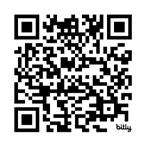
Session proposals and their descriptions were created by the session speakers and reviewed through a peer-review process. Session content does not necessarily reflect NCTE policies or positions.
C.1 HS Matters—Critical Literacies as Resistance: Finding Heart, Hope, and Humanity in Today’s English Language Arts Classrooms


ROOM 203 (LEVEL 2)
Sponsored by the Secondary Section Steering Committee
Today’s classrooms are rife with possibilities for teaching students to embrace heart, hope, and humanity. However, teachers often face restrictions to this practice through varying levels of divisive policy. This presentation shares the stories of ELA teachers who have resisted and risen above these challenges by imbuing their classrooms with strategies that embody ideals of critical literacies.
Presenter: Caroline B. Rabalais, Georgia State University
C.2 Literature and Primary Sources: The Perfect Pairing for Fostering Student Learning and Prompting Curiosity
ROOM 102 B (LEVEL 1)
Explore with past Library of Congress Teachers in Residence, Tom Bober and Rebecca Newland, who will demonstrate ways in which TPS strategies for incorporating primary source analysis of items such as maps, photographs, video and audio recordings, and manuscripts enrich the study of a variety of literature, including fiction and nonfiction, by fostering curiosity, building context, and enhancing critical thinking skills.
Presenters: Tom Bober Rebecca Newland, Fairfax County Public Schools
C.4 A World at War: Planting Seeds of Heart, Hope, and Humanity through Cosmopolitan Literacy Practices Using Global Children’s Literature
ROOM 151 B (LEVEL 1)
Sponsored by the Standing Committee on Global Citizenship
In a cosmopolitan approach, students become adept at investigating issues and understanding varying perspectives. They are encouraged to recognize their capacity to contribute to the future of their world. Recently the wars in Ukraine, the Middle East, and Sudan have filled the news. This session provides a way to use literature to address issues of war and plant seeds of heart, hope, and humanity.
Presenters: Hee Young Kim, West Texas A&M University
Cynthia Ryman, California State University, Monterey Bay

C.5 Elevating the ELA Classroom: Tech-Centered Practices to Awaken the Content Creator in Every Student ROOM 152 (LEVEL 1)
Disadvantaged schools tend to use technology for consumption rather than creation. Drawing from her research, the presenter will share data on disparate practices and suggest equitable approaches. Participants will gain tech-centered resources to promote collaboration and higher-order thinking in a real-world context. Let’s explore ways to empower and awaken the content creator in every learner!
Presenter: Amy Var, Waiakea Intermediate School
C.6 Jewish Caucus Open Forum ROOM 205 (LEVEL 2)

C.3 ABAR in ELA in 2024: Preparing Literacy Educators for an Antiracist Future with Heart and Hope through “Strong Backs, Soft Fronts, and Wild Hearts”
ROOM 151 A (LEVEL 1)
We will share our experiences as ELA teacher educators who integrate the NCTE Standards for the Initial Preparation of Teachers, which are infused with ABAR principles and practices. Using multicultural literature, multimodal activities, and reflective teaching practices, our goal is to empower ELA teachers to teach with “strong backs, soft fronts, and wild hearts” during these challenging times.
Presenters: Angie Hansen, Northern Arizona University
Andie Lenhart, Northern Arizona University
This is an open forum for all interested in the NCTE Jewish Caucus.
Committee Chair: Mara Lee Grayson, Hillel International
Session proposals and their descriptions were created by the session speakers and reviewed through a peer-review process. Session content does not necessarily reflect NCTE policies or positions.
C.7 Teachers as Advocates of Change: Harnessing Young Adult Literature in Challenging Times ROOM 153 A (LEVEL 1)

Teacher preparatory courses must strengthen preservice teachers’ capacity to critically teach literature and mitigate a “politically neutral” school system. In this session, participants will examine meaningful ways to engage teacher candidates in using critical literacy to guide their reading of young adult literature and the selection of classroom texts.
Presenters: Lauren Fletcher, California State University, Stanislaus Derek Riddle, California State University, Stanislaus
C.8 Encouraging Explorations of Identity through Creative Writing ROOM 153 C (LEVEL 1)
This program will discuss the importance of creative writing as a modality for discovering “spokes” of identity in self and others. Tools for student self-reflection will be presented, as well as a variety of follow-up activities aimed at crafting opportunities for students to give voice to their identity-driven experiences and the experiences of others in ways that are authentic and uncensored.
Presenter: Jessica Brosnan, Parsippany Hills High School
C.9 Family Matters: Adapting Our Literature and Lessons for Adoptive and Foster Families
ROOM 153 B (LEVEL 1)
Although there are 4.5 million adopted children in the US, their learning needs are often neglected. This presentation offers insight into adoptive children’s educational issues, interventions, and resources to create adoption-sensitive classrooms. Attendees will receive tips for positive adoption language, appropriate adoption text titles, adoption-friendly activities, and educational websites.
Presenter: Heather Bixler, Beaver Area High School
C.10 Going Micro: Using Microtexts to Explore the Literary Landscape
ROOM 156 B (LEVEL 1)
Microtexts: tiny texts that pack a big punch! Learn where to find authentic microtexts and how to leverage them in your secondary classroom through dynamic discussions, text analysis strategies, and writing activities that will hook even your most reluctant readers and writers. Great things really do come in small packages!
Presenter: Sarah Honore, Houston ISD
C.11 Using Literature to Affirm and Validate Palestinian American Students’ Identity and Classroom Experiences in the Midst of Political Turmoil
ROOM 156 C (LEVEL 1)
This session explores ways teachers can promote an empathetic and humanistic learning environment to their Palestinian American students. Resources and texts centered on personal narratives, culture, and history will be shared so that teachers can better incorporate them in the curriculum to see the value of Palestinians’ lives.
Presenter: Rashida Mustafa, Teachers College, Columbia University
C.12 Reclaiming Revision: Emphasizing Process over Product in the Age of AI
ROOM 157 A (LEVEL 1)
Two high school English teachers explore strategies and new ways of thinking about writing instruction in the age of AI. Presenters will share their experiences of creating a “process over product” mindset in their classrooms. Attendees will leave with new methods for creating community through the learning process, as well as non-traditional ideas to connect through writing and speaking.
Presenters: Tamara Empson, Louisiana State University Laboratory School
Anne McConnell, Louisiana State University Laboratory School
C.13 “Wait, Was That the Bell?”: Growing Learner Engagement from Grades 9 through 12
ROOM 157 B (LEVEL 1)


Engagement is critical in improving the quality of learning and heightening student ownership of their academic success. Appalachian educators Kristine Alvarez and Chase Leone share how students develop the skills necessary to navigate cooperative learning structures and visible thinking routines while teachers can simplify lesson planning and increase student engagement in literature and writing.
Presenters: Kristine Alvarez, Morgantown High School, WV Chase Leone, Morgantown High School, WV
Session proposals and their descriptions were created by the session speakers and reviewed through a peer-review process. Session content does not necessarily reflect NCTE policies or positions.
C.14 Empowering First-Year College Students through Mindfulness: Creating Actionable, Relevant, and Transformative Learning Experiences

ROOM 159 (LEVEL 1)
As an assistant professor at El Paso Community College, I will share insights from my research on implementing mindfulness practices for first-year college students. Mindfulness enhances academic performance, promotes engagement, and fosters purpose. This presentation addresses actionable learning, literacies for change, critical thinking, teacher preparation, and impact on students and families.
Presenter: Patricia Flores Hutson, El Paso Community College
C.15 Restoring Humanity through Culturally Relevant Texts: An Examination of the Challenges and Benefits of Reading Urban Street Literature with Students

ROOM 160 A (LEVEL 1)
This session will explore the controversy around the genre of Urban Literature and the research that supports its use as a tool for critical literacy learning and cultural validation, particularly for young Black girls. Educators will then be invited to share their perspectives and experiences with the genre after examining powerful passages from selected Urban Literature texts.
Presenter: Melissa LaCaze, The Ohio State University
C.17 Swimming with Students in a Sea of Meaning
ROOM 160 C (LEVEL 1)

We aim to simulate our experience in a Practical Criticism workshop to explore how students from varied backgrounds can “learn and unlearn” how to teach poetry with more heart, hope, and humanity. Taking audience members through an unseen poem, we discuss how international teachers can blend their cultural literacy practices with important active poetry pedagogies in ELA classrooms today.
Presenters: Jing Du
Tara Maria Fernandes, Teachers College, Columbia University
C.18 From the Classroom to a Platform: How ELA Teachers Are Using TikTok to Address Mental and Physical Health


ROOM 161 (LEVEL 1)
This paper provides examples of secondary ELA teachers using TikTok to address mental and physical health in education. Juxtaposed with content that is positive and humorous, these TikToks depict serious conversations and introspective questions, encouraging us, as teachers and teacher educators, to bring these difficult topics into discussion with colleagues and English education students.
Presenters: Lauren May, Longwood University
Heather Lynn Wright, Gardner-Webb University
C.19 People over Papers: (Re)establishing Connection through Labor-Based Grading ROOM 162 A (LEVEL 1)
This presentation is intended to illustrate how laborbased grading practices can refocus both studentwriters and writing teachers on what really matters: learning, risk-taking, authentic writing experiences, and the connection between reader and writer.
Presenter: Seth Czarnecki, Algonquin Regional High School
C.20 Reading Sprints: Quick and Easy Ways to Encourage Independent Reading in Classrooms ROOM 162 B (LEVEL 1)


Reading sprints have taken social media platforms by storm and encourage many of our students to read more on their own. Bringing this creative idea into our classrooms allows us to provide independent reading time daily, while still achieving state standards through applicable mini-activities. This quick activity has made a huge difference in creating life-long readers in our students.
Presenters: Allyssa Graham
Lindsay Stappert
C.21 Storytelling from the Caribbean Diaspora ROOM 102 A (LEVEL 1)


What stories do students en route to becoming early childhood and childhood educators know and use in a teacher preparation program? We will examine how teacher candidates read, enjoy, and plan instruction highlighting BIPOC storytellers who use multilingual voiced perspectives to present unfamiliar historical events that took place in nearby neighborhoods. Results address actionable joy in learning.
Presenters: Melissa Garcia, Lehman College, CUNY
Raquel M Ortiz
Session proposals and their descriptions were created by the session speakers and reviewed through a peer-review process. Session content does not necessarily reflect NCTE policies or positions.
C.22 Ensuring Equity in English Language Arts Classrooms
ROOM 204 A (LEVEL 2)

Equity in ELA classrooms is crucial for fostering inclusivity and ensuring that all students have opportunities to succeed. This session will discuss strategies that teachers can implement to address diverse learning needs, promote a sense of belonging, and reduce educational disparities.
Presenter: Carissa McCray
C.23 When Students Own the Learning: The Power of Metacognition
ROOM 204 B (LEVEL 2)

Join us in exploring powerful practices that empower students to take ownership of their learning! Metacognition can augment ELA skills while quantifying the soft skills of engagement, participation, and reflection. With this session, you will be empowered with tools for authentic integration of metacognition in your curriculum.
Presenters: Rebekah Gerard, Andover High School
Stacy Giggie, Andover Public School
C.24 Kid by Kid: Teaching the Hearts in Front of Us
ROOM 205 A (LEVEL 2)

This session will journey into the beautiful intersection of heart and science to teach the hearts in front of us within our classrooms each day. We’ll explore using data to understand each student’s unique reading needs and design strategies to foster their growth. This approach ensures every child is seen, heard, and supported in their reading journey. Expect a blend of theory and practical examples.
Presenters: Mary Brower
Jonathan Winslow
C.25 Spreading the Writing Love: Multigrade Writing Groups in High School
ROOM 205 B (LEVEL 2)
Writing groups can build a strong foundation for a writing community—but what if those writing groups included multiple grades and classes? We’ll share how we implemented online writing groups based on student interests rather than grade level. Join us as we describe our experiences and how writing groups led to a rise in our students’ motivation, writing confidence, and academic relationships.
Presenters: Ronelle Kilmer, Grand Island Northwest Public Schools
Melissa Pilakowski, Arthur County High School
C.26 Decolonizing Literacy Teaching and Learning through Indigenous Community Partnerships
ROOM 206 A (LEVEL 2)

We will tell the story of an elementary school’s journey to decolonize how literacy is defined, taught, and learned. Guided by culturally responsive pedagogies and local Indigenous knowledge keepers, teachers engage in processes of unlearning the traditional colonial tenets that guide their practices. Examples of reimagined pedagogical approaches to literacy teaching and learning will be shared.
Presenters: Donna Kozak, University of British Columbia/School District 23 Central Okanagan, Kelowna, BC, Canada
Lisa Wilson, School District 23 Central Okanagan, Kelowna, BC, Canada
C.27 Using African American Historical Graphic Novels to Teach English and Social Studies
Collaboratively in Florida ROOM 206 B (LEVEL 2)

This presentation will discuss ethnic studies, citizenship, media history, and how to teach graphic novels using a critical civic pedagogical framework. Additionally, we will discuss our problematic history and promote civic engagement using graphic novels at the secondary and postsecondary level, either in a social studies or English classroom or a combined methods course.
Presenters: Sarah Mathews, Florida International University
Keisha McIntyre-McCullough, Florida International University
Session proposals and their descriptions were created by the session speakers and reviewed through a peer-review process. Session content does not necessarily reflect NCTE policies or positions.
C.28 Cultivating Community: A Mixed-Methods Study Examining Community Literacy Practices in the Secondary ELA Classroom
ROOM 207 (LEVEL 2)

Though we know that students naturally engage in literacy practices in their lives, these are often completely disconnected from their literacy learning in schools. This session focuses on how (and why) to implement community literacy in secondary classrooms as a regular, essential part of instruction, while also analyzing community literacy pedagogies for teachers.
Presenters: Anna Heilers
Jess Smith, Bellarmine University
C.29 Breaking Barriers with Baking Impossible ROOM 208 (LEVEL 2)
Teachers and leaders of all levels will gain ideas for cross-curricular projects in this session that features what might seem like an unlikely pair: a veteran English teacher and a lighting engineer who was the winner of Netflix’s Baking Impossible. Participants will learn strategies for integrating hands-on projects into all aspects of the curriculum with a focus on reinforcing literacy skills.
Presenter: Shantel Schonour
C.31 “Can a Test Have Healing Potential?” ELA Teachers Experiment with Restorative and Transformative Assessments


ROOM 211 (LEVEL 2)
What does it mean for ELA teachers to create restorative and transformative assessments? This study follows six teachers in the Alternative Assessment Collective as they design and enact liberatory assessment alternatives. Analysis of meetings, interviews, and classroom artifacts surfaced three major findings: assessments characterized by 1) cogenerativity, 2) activism, and 3) healing.
Presenters: Kevin Ho, Chicago Public Schools
Daniel P. Moore, Stanford University
C.32 Reframing How We Teach Classics: Piecing Together Diverse Perspectives of Mary Shelley’s Frankenstein with Multimodal Texts
ROOM 251 (LEVEL 2)


How might we reconsider how classic novels are traditionally taught? This session will focus on how we can teach a classic like Frankenstein in a way that asks students to consider the impact of such an iconic text from multiple perspectives. This Frankenstein unit includes multimodal texts from multiple perspectives as students consider who the real monster is.
Presenter: Amanda Manning, Albuquerque High School

C.30 Mentoring Strategic Reading: Using Cross-Grade Collaborative Structures to Help Maturing Readers Gain Confidence and Expertise Using Self-Monitoring Strategies
ROOM 209 (LEVEL 2)
We know the benefits of strategic reading in small groups to improve comprehension. What about boosting self-image and confidence through crossgrade collaboration? How can “social feedback” play a part in strategy acquisition? In this session, participants will learn how students in diverse classrooms mentor younger peers to establish self-monitoring practices through engagement and feedback.
Presenters: Meghan Schofield, Brunswick School Department
Justin Stygles, Brunswick School Department/Corwin Literacy
C.33 Highlighting Black Royalty: Reimagining the Way We Think about Black History
ROOM 252 A (LEVEL 2)
Traditionally, lessons about Black history have been centered around certain aspects of the lives of activists like Martin Luther King Jr., Rosa Parks, and Harriet Tubman. This presentation will help educators reimagine how we think about teaching Black history by highlighting the “before slavery” perspective and centering love, joy, royalty, and expansion.
Presenter: Tatisha McKay, Boston College
Session proposals and their descriptions were created by the session speakers and reviewed through a peer-review process. Session content does not necessarily reflect NCTE policies or positions.
C.34 The Imagination Study: Developing a Curriculum to Explore Children’s Understanding and Usage of Imagination in the Classroom

ROOM 252 B (LEVEL 2)
Where does imagination live in learning spaces?
Interactive read-alouds open opportunities to amplify and enrich students’ voices through multi-genre book engagements. A small study blossomed into an imagination curriculum. Attendees are invited to hear findings from the imagination study, investigating books, and teaching practices that support curiosity and creativity.
Presenters: Mollie Welsh Kruger, Bank Street College of Education
Peggy McNamara, Bank Street College of Education
C.35 Inquiry toward Justice: Taking a Written Inquiry Stance toward Your Heart to Cultivate Humane Educational Environments
ROOM 254 A (LEVEL 2)
Sponsored by the National Writing Project
In this interactive session, Boston Writing Project educators address the transformative practice of reflection through inquiry-based personal writing. Presenters and participants will collectively talk, write, and envision ways to adopt an inquiry stance about matters of injustice, race, identity, power, and culture within K–16 classrooms.
Presenters: Dominique Herard, Public Schools of Brookline/ Boston Writing Project
Katie McGuire, Director of Data Inquiry, Boston Public Schools
C.36 Neurodiversity: Not So “Different” in Literature and Life
ROOM 254 B (LEVEL 2)

Teachers can improve student awareness, empathy, and acceptance with neurodivergence in literature and in writing. In this highly interactive, student-centered session, participants will learn about disabilities and neurodivergent characters as well as practice close reading and composition skills.
Presenters: Nancy Carol Bryant, Calhoun Community College
Amy Dobbs, Calhoun Community College
C.37 “Write” Down the Line: Using the School “Lifespan” to Support Writers in Effective Use of Generative AI
ROOM 255 (LEVEL 2)

As generative AI transforms learner landscapes around writing, teachers across writer development must take action to shape the writers themselves for efficient, effective, and ethical use of this technology. Panelists will share a “lifespan” framework for defining and supporting “heart, hope, and humanity” in writing in an age of AI.
Presenters: Cindy Minnich, Upper Dauphin Area High School
Kim McCollum-Clark, Millersville University of PA
Jennifer Shettel, Millersville University of PA
C.38 “Dear Universe…”: The Power of Writing Letters to Awaken Student Voice, Encourage Empathy, and Enact Change
ROOM 256 (LEVEL 2)
The letter is a perfect vehicle for connecting author and audience, text and purpose. “Dear Universe…” is a letter writing project that students can use to wield the power of their voices, as well as deepen their capacity for empathy and advocacy. This presentation outlines a 2–3-week unit on writing a portfolio of letters, and it can be adapted for all ELA courses and grade levels.
Presenter: James Sieck, Oak Park and River Forest High School
C.39 Thriving in Today’s Schools: Digging Deeper into Successful Social-Emotional Learning Strategies
ROOM 257 A (LEVEL 2)
In this presentation we will dive deep into showing how we look at neuroscience of the brain and ways that students’ behavioral issues might stem from lacking executive function skills. We will show social-emotional learning strategies, self-monitoring guides, and ways to successfully set up your classroom to help all students be successful in their learning.
Presenters: Mason Kuhn, University of Northern Iowa
Marissa Schweinfurth, University of Northern Iowa/Jacobson Center for Comprehensive Literacy
Session proposals and their descriptions were created by the session speakers and reviewed through a peer-review process. Session content does not necessarily reflect NCTE policies or positions.
C.40 Imagining Democratic Futures: Reflections on Critical Writing Pedagogy from Kindergarten to College



ROOM 257 B (LEVEL 2)
Critical pedagogies, specifically critical writing pedagogies, offer ways to examine systems of power in classrooms, communities, and beyond to honor students’ racial, linguistic, and cultural diversity. Teachers may feel unprepared to engage in the liberatory work critical democratized praxis offers. In this presentation, we reflect on the ways we have supported K–16 students and teachers, through classroom practice and teacher education, to inflect the writing curriculum with opportunities to practice democratic citizenship.
Presenters: Maria Jose Botelho, University of Massachusetts Amherst
Meghan Whitfield, University of Massachusetts Amherst
C.41 HumAnIzed: Empowering Students and Educators through Ethical and Intentional Partnership with AI in the ELA Classroom
ROOM 258 A (LEVEL 2)
This presentation introduces a novel method for offering and utilizing personalized, ongoing feedback in English classes, emphasizing the writing process over the final product. It combats unethical AI use, engages students in their learning journey, enhances critical literacy skills, and highlights the significance of iterative improvement in writing and interaction with advanced language models.
Presenter: Aimee Firmani, Beaver Area High School
C.42 Stories of Scale: Climate Change Memoirs and Self-Life Writing in the Classroom ROOM 258 B (LEVEL 2)
This presentation discusses both the teaching implications of recent climate change memoirs by authors such as Greta Thunberg, Daniel Sherrell, and Brianna Craft, as well as offers instructional methods for engaging with self-life writing about climate change in the composition classroom.
Presenter: Lucas Rodewald, Georgia Institute of Technology
C.43 Creative Writing Portfolios to Celebrate Divergent Thinkers and Connect with Communities
ROOM 259 A (LEVEL 2)

Creative writing portfolios allow divergent thinkers to construct their identities as writers and as their authentic selves. Students need safe spaces to develop their voices, connect with their community, and celebrate their progress as writers. With 30 years of experience as a middle school English teacher, I will share strategies for managing creative writing portfolios in the classroom.
Presenter: Elizabeth Gennosa, Hofstra University
C.44 A Literary Art Exhibit: An Exposition of Artistic Artifacts from the Classroom That Explore Literature through Art
ROOM 259 B (LEVEL 2)

This Literary Art Exhibit showcases various student artworks that have been created in secondary English classrooms as explorations of literature. From quick visual journals, thematic clay sculptures, collaging to look at diction, color mixing strategies for character profiles, and much more, participants will view a collection of hands-on activities they can bring to their English classroom.
Presenter: Ariela Robinson, Rochelle Zell High School, Northbrook, IL
Session proposals and their descriptions were created by the session speakers and reviewed through a peer-review process. Session content does not necessarily reflect NCTE policies or positions.
D.1 Education, Can You Hear Me Now? Using Podcasts in the Classroom

ROOM 102 A (LEVEL 1)
As our world becomes more digital and interconnected, it is imperative that as educators we help our students be successful in this world. This session will introduce ways to integrate podcasts into daily lessons, and as an assessment tool to help engage and enhance students’ learning and digital skills. This use of technology will help promote engagement, collaboration, and critical thinking.
Presenters: Rebecca Decker, Brick Memorial High School Joseph Stefanelli, Brick Memorial High School
D.2 Writing from the Heart for Humanity:
Multimodal Approaches as a Bridge to Rigorous and Complex Composition
ROOM 102 B (LEVEL 1)

Multimodal composition is all the rage, but does it ever feel too nebulous? Explore lessons with student samples and assessment scales from current classroom educators to fill your toolbox. This straight to the point session focuses on lessons that push our scholars to think differently about learning while also preparing educators to enter or move through multimodal composition comfortably.
Presenter: Ramona Puchalski-Piretti, Conard High School
D.3 Understanding Bias: Empowering Students to Navigate News Sources ROOM 151 A (LEVEL 1)
Perceptions and allegations of news media bias are commonplace, but teaching students how to think carefully about this nuanced subject can be difficult. Join the News Literacy Project to learn how to help your students cut through the partisan bluster to better determine the fairness and accuracy of news coverage.
Presenter: Hannah Covington, News Literacy Project
D.4 Canvases of Insight: Art and Literature in the Secondary English Classroom

ROOM 151 B (LEVEL 1)
Unleash the power of art in the English classroom! Inspired by NCTE’s call for transformative assignments, this session will guide educators on using fine art to ignite critical thinking. Explore how images inspire inquiry, foster a sense of community, and enhance learning. Don’t miss the chance to discover valuable resources and delve into research-backed methods for an engaging classroom.
Presenter: Karen Gately, Conestoga High School, TredyffrinEasttown School District
D.5 Renewing Our Hope: Becoming Authentic Readers and Writers while Teaching
ROOM 152 (LEVEL 1)

It’s important to fill our personal wells to avoid burnout and keep our heart for teaching alive. As writers, we can join students in sharing our words and reveal the threads of humanity that tie us together. In this session, two teachers share how they use authentic writing with students to renew hope in the classroom while achieving their dreams of becoming published authors.
Presenters: Megan Davidhizar, Random House Children’s Books
Nashae Jones, Simon & Schuster
D.6 Navigating a Minefield: Using Art, Music, and Theater to Teach a Controversial Topic in a Politically Diverse School Community ROOM 153 A (LEVEL 1)
How to teach a controversial topic in a politically polarized environment? This session examines a unit on the AIDS crisis, asking students to grapple with how a marginalized community uses art, music, and theater to take action and connect the historical reality of homophobia to today. This session will provide strategies for unit planning and communication with the school community.
Presenters: Ari Karpel, Milken Community School Leora Smith, Milken Community School
D.7 Stripping the Yellow Wallpaper: Moving beyond “Teaching Books by Women” in the High School Classroom ROOM 153 B (LEVEL 1)
It’s happened to most of us at some point: we teach women-authored novels but find ourselves shifting away from feminist topics in favor of themes perceived to be more “universal” within a co-ed classroom. This presentation explores how teachers can strip back Gilman’s infamous wallpaper and “free” ourselves to reimagine the ways we teach books by and about women—to students of all genders.
Presenter: Samantha Doolittle, Abbott Lawrence Academy, Lawrence High School
Session proposals and their descriptions were created by the session speakers and reviewed through a peer-review process. Session content does not necessarily reflect NCTE policies or positions.
D.8 Education “Gag Laws,” Politicized Harassment, and Teacher Resilience

ROOM 153 C (LEVEL 1)
Thirty “gag laws” limiting what teachers can teach have been passed. More are in the works. News routinely reports harassment of teachers who teach to raced and LGBTQ+ identities. This session will provide and invite information sharing regarding what teachers can do to protect themselves and support practical discussion of how to negotiate typical harassment scenarios.
Presenter: Christine Ross, Defense of Democracy/Rochester Institute of Technology
D.9 Centering the Work of the Heart to Do the Work of the Hands: Exploring How Our Identities Shape Our Teaching ROOM 210 C (LEVEL 2)

To what extent, if any, can an examination of teachers’ intersectional identities, via an archeology of the self, help them learn how to teach in justice-oriented ways? In this session we’ll develop an understanding of how we can do the work of ourselves and our hearts before engaging in instructional change, and what that instructional change might therefore look like.
Presenters: Naitnaphit Limlamai, Colorado State University, Fort Collins
Elisabeth Spinner, Alma College
D.10 Cultivating Racial Literacy through Children’s Literature: Do You See What I See? ROOM 156 A (LEVEL 1)

Critical educators of literacy education must be able to identify the “misconceptions” that tend to “dull or omit the critical edge” in the children’s literature that they share with their students. In our session we will show our audience how to identify such misconceptions, and how to use these misconceptions to teach criticality and racial literacy.
Presenters: Yarbel Mercedes, Teachers College, Columbia University Saba Vlach, University of Iowa
D.11 Critical Media Literacy in the Classroom
ROOM 156 B (LEVEL 1)

This interactive session will guide participants in strategies for implementing critical media literacy in the classroom that engage students in analyzing and questioning media. Some of the strategies that will be discussed and demonstrated are comparative analysis, deconstruction of social media posts, critical viewing, current event analysis, and the utilization of media journals.
Presenter: Samantha Udeagha
D.12 Start with Story: Native American Boarding Schools
ROOM 156 C (LEVEL 1)


Through first-person narratives, our short documentary introduces students to federally run boarding schools for Native American children. The accompanying lesson uses children’s literature to inspire empathy as students learn about the effect of these institutions on young people and explores how the boarding school experience continues to affect Native American communities today.
Presenters: Odia Wood-Krueger, education consultant Filiz Yargici, Retro Report
D.13 I’m with the Banned: Planning for and Engaging in Conversations about Book Bans
ROOM 157 A (LEVEL 1)
With book challenges continuing to dominate the news, how can we prepare ourselves to address this hot topic both with students and with adults? In this timely session, participants will experience a planning session geared toward developing a position on book challenges and walk away with resources for engaging students and adults in conversation.
Presenter: Sarah Honore, Houston ISD
D.14 Watering a Future Not Our Own: Enacting Culturally and Historically Responsive Education with Preservice Teachers

ROOM 157 B (LEVEL 1)
Join us as we share insights from our use of interactive read-alouds, lesson planning, mentoring reflections, and unit mapping to prepare culturally and historically responsive preservice teachers. Using Gholdy Muhammad’s framework, we show how scaffolding PTs to sustain children’s development of the five pursuits might create classrooms of heart, hope, and humanity.
Presenter: Kelsie Burnett, The University of Texas at Austin All sessions will be held at the Boston Convention & Exhibition Center unless otherwise noted.
Session proposals and their descriptions were created by the session speakers and reviewed through a peer-review process. Session content does not necessarily reflect NCTE policies or positions.
D.15 Environmental Justice Comics: Reading and Making Comics with Students at the Intersection of Local History, Science, and Social Justice
ROOM 157 C (LEVEL 1)
Participants will learn how to use middle grade graphic nonfiction science texts to jump start projects with students in grades 4-12 to research local social justice, environmental, and science issues, learn scripting and graphic storytelling techniques, and create their own social and environmental justice comic books.
Presenter: Cindy Jenson-Elliott, Lee & Low Books/San Diego Unified School District
D.16 Finding Our Humanity through Nonfiction Lit Circles

ROOM 159 (LEVEL 1)
Nonfiction lit circles allow for our students to engage in collaborative learning environments where they are encouraged to see, feel, and hear the experiences of others to bolster empathy while also fostering student autonomy. This presentation provides teachers with the resources to prepare for an engaging and successful lit circle experience in their classrooms.
Presenters: Jacqueline Rasnic, Edmond Public Schools
Alison Sterba, Edmond North High School
D.17 BLAST: Bringing Libraries and Schools Together
ROOM 160 A (LEVEL 1)

Though we advocate for school librarians in every district, we know this cry often falls on deaf ears. Our middle school has been without a librarian for over a decade. In response, we have teamed up with our local public library and created BLAST, giving our students access to our public library—and a certified librarian!—on a regular basis. Come learn about our library collaborative.
Presenters: Mary Giuffre, Frederick W. Hartnett Middle School
Erin O’Leary
D.18 Celebrating Our Roots: Sharing Ancestor Stories in an American Literature Course

ROOM 160 B (LEVEL 1)
How can American literature teachers celebrate the diverse cultures of our students? This seminar is an overview of a unit where students read model stories and poems before creating their own works that reflect upon and celebrate ancestral roots. Students learn research, analysis, composition, and public speaking skills; the true value, though, is in the creation of a joyful classroom community.
Presenters: Jamie Lundy, St. Ignatius College Preparatory
Carole Nickolai, St. Ignatius College Preparatory
D.19 A New Chapter: Integrating Accessibility for Diverse Voices in College English Courses ROOM 160 C (LEVEL 1)

Come learn some strategies you can use in your college English courses to make your class more accessible to a diverse set of learners. The landscape for students with disabilities in particular can change drastically from high school to college. This session focuses on building structures into your courses so that, regardless of ability, more students can respond to your course content.
Presenter: Thomas Ohno-Machado
D.20 Justice, Humanity, and Community: Using Literature to Spark Conversations and Action about Empathy and Accountability ROOM 161 (LEVEL 1)

Literature has a unique capacity to foster empathy and compassion. In this session, participants will receive tools to transform this concept into actionable outcomes through student-centered, classroom-ready activities for both the middle and secondary levels.
Presenters: Nichole Wilson, William Mason High School Blake Taylor, Walnut Hills High School
D.21 No More Elegies: Building the Habit of Joy in the Classroom ROOM 162 A (LEVEL 1)
Using Clint Smith’s poem, participants will discover how to provide poetic pauses, to help students find new ways to look at the world: to see, acknowledge, and take refuge in the moments of connection and celebration. As much as it is a habit to find and interrogate the inequalities and the injustices that we see in the world, it is also a habit to notice and take delight in what brings us joy.
Presenters: Linda Christensen, Rethinking Schools/Oregon Writing Project Director (retired)
Ty Marshall, McDaniel High School/co-editor, Teaching for Transgender Justice
Kara Stroman, OWP coach, Teacher Irvington Elementary School
Session proposals and their descriptions were created by the session speakers and reviewed through a peer-review process. Session content does not necessarily reflect NCTE policies or positions.
D.22 Start Lighthouse: A Literacy Nonprofit Partnering with Title 1 Schools to Bring the Joy of Reading to NYC Students ROOM 162 B (LEVEL 1)
D.25 Focusing on Sentences to Empower Proficient, Critical Reading

We transform abandoned libraries within public schools into dynamic Start Lighthouse Literacy Hubs. Our dedicated team offers daily lessons, supports students in building their own home libraries, and hosts interactive workshops with BIPOC authors and artists, fostering a love for reading in vibrant, inclusive environments.
Presenters: Rina Madhani, Start Lighthouse Deborah Rose, Start Lighthouse
D.23 Voices of Hope: Integrating Oral History Projects into the ELA Curriculum ROOM 203 (LEVEL 2)
Voices of Hope provides teachers with an introduction in how to successfully conduct an oral history interview project within their ELA classrooms, augmenting class reading and writing assignments. Oral history projects celebrate students’ unique family origins, cultural identity, and lived history. Participants will learn how to conduct, record, and preserve a formal interview through StoryCorps.
Presenter: Erica del Riego, St. Brendan High School
D.24 The 3 Cs of Engagement: How to Foster a Collaborative, Connective, Communicative Classroom in an Increasingly Digital Era

ROOM 204 A (LEVEL 2)
As teachers, we spend much of our time trying to entice our students to “look up” from devices and sustain interest in classroom lessons. This highly interactive session will engage participants in a playful, hands-on lesson of quickly moving content that ignites and holds interest, builds skills, and has students exclaim, “Today went so fast!”
Presenters: Emily Gallo, Milton Hershey School Gloria McElwain, Milton Hershey School
ROOM 204 B (LEVEL 2)
Though grammar and sentence structure are often discussed in the context of writing, this session explores how sentence-focused instruction can also support reading—both basic comprehension and critical, close reading of texts. Two ELA teachers share engaging strategies that empower students to look closely at sentences, break them apart, and analyze how they convey meaning, tone, and more.
Presenters: Rachel Knecht, Brigham Young University
Kaylee Smedley, Provo High School
D.27 Bridging the Gap between Secondary Writing and College Composition
ROOM 205 B (LEVEL 2)

In my experience teaching in secondary and higher education, I have found that students struggle with communicating their thoughts clearly through writing. This session will discuss the value of and provide strategies for teaching students how to read with the intent to write and clearly communicate with evidence and elaboration frames.
Presenter: Carissa McCray
D.28 On the Network to Freedom: Writing Boston’s Future and the African Meeting House as Sanctuary
ROOM 206 A (LEVEL 2)
Sponsored by the National Writing Project
In this interactive presentation, Boston Writing Project educators and Boston-area students share their inspired work accomplished through an NEH grant. Students conducted research in Boston’s Museum of African American History, teaching teachers and presenting their learning projects in a culminating museum exhibit. Join us if you want to center heart, research, and agency in public education.
Presenters: Pamela Doiley, Boston Public Schools
Denise Patmon, University of Massachusetts Boston/director, Boston Writing Project
Neil Pischner, Cambridge Public Schools
Christian Walkes, Harvard Graduate School of Education
Session proposals and their descriptions were created by the session speakers and reviewed through a peer-review process. Session content does not necessarily reflect NCTE policies or positions.
D.29 Reflecting on ELA Curricular Resources: Finding Inclusivity through Content Analysis ROOM 206 B (LEVEL 2)
English language arts educators must understand how they can make the classroom inclusive for students. This session explains one way teachers can survey and scrutinize their text choices for biased messaging. Insight is given to educators to determine what changes should be made to taught texts and how to avoid a hidden assimilationist curriculum within common resources.
Presenter: Autumn Frykholm Damann
D.30 Why Even Good People Can Disagree: How Rhetorical Reading Strategies Can Help Students Learn about Public Discourse (and Themselves) ROOM 207 (LEVEL 2)
In his 2019 book Hate Inc.: Why Today’s Media Makes Us Despise One Another, Matt Taibbi identifies negative rhetorical appeals in the public sphere that turn citizens against one another. Classroom strategies based on tagmemic rhetoric can teach students to recognize the diverse world views that underlie competing arguments, thus giving hope amid dispute.
Presenter: John Dunn, Eastern Michigan University
D.31 Testimony Service: Centering Black Scholars and Theorists’ Stories in Literacy Education ROOM 208 (LEVEL 2) T

In this session, we will share the tenets of the Black Gaze Framework. We will provide practical strategies on how to center Black scholars and theorists’ stories in ELA teacher education. We will share with session attendees ways to use the stories of Black scholars and theorists to teach with heart, hope, and humanity in ELA teacher education.
Presenters: Shamaine Bertrand, The College of New Jersey Kisha Porcher, University of Delaware
D.32 Revamped Socratic Seminars: Great Ideas
ROOM 209 (LEVEL 2)
Revamp the Socratic Seminar into a student-led “Great Ideas” discussion. Teach question crafting and accountable talk to foster engaged reading. Students drive the analysis by generating open-ended questions. Sit in a circle and track participation while moving through student questions. Students actively participate rather than passively receive teacher lectures.
Presenter: Morgan Taylor, Hamilton Township School District
D.33 Middle School Book Clubs: Reading about and Discussing Relevant Issues Our Students Struggle with on a Daily Basis

ROOM 211 (LEVEL 2)
Give students a choice to dive in to an after-school book club that will allow students time to read for enjoyment, discuss real-world issues that involve them, and discover various perspectives to help develop more understanding among the student population. While learning from others, book clubs also provide each student with an opportunity to reflect and learn more about themselves.
Presenters: Sarah Buchmann
Meredith Schoonhoven, Freeport School District
D.34 Painting with Words: A Loving Gaze of Latina Teachers and a Call to Creating Spaces of Intentionality


ROOM 251 (LEVEL 2)
This presentation focuses on a critical miniethnographic study centering young adult literature to explore the lived experiences of Latina teachers in the Deep South. Testimonios imbued with muxerista portraiture captured stories of otherness, belongingness, resilient mothers, and love for students, teaching, and culture. Implications for future research and teacher development will be discussed.
Presenter: Vanessa Vega, University of South Florida
D.35 Students at the Heart of Reading Instruction: Weaving Together SEL with Research-Based Reading Pedagogy


ROOM 252 A (LEVEL 2)
This presentation presents an approach that centers students and weaves together SEL strategies with research-based reading pedagogy. Participants will engage in scenarios that illustrate how to embrace a child-centered humanizing approach. This approach to literacy teaching centers students, integrates SEL, fronts best practice reading instruction, and is rooted in databased decision making.
Presenters: Lane Clarke, University of New England Krysten Gorrivan, University of New England/Biddeford School District
Session proposals and their descriptions were created by the session speakers and reviewed through a peer-review process. Session content does not necessarily reflect NCTE policies or positions.
D.36 From Pixar to Black Mirror: Engaging Students through Purposeful Low-Transfer Writing Experiences
ROOM 252 B (LEVEL 2)
This session will demonstrate successful strategies for teaching expository and synthesis writing to high school students by implementing high/low transfer activities. Selected Pixar animated short films, popular music lyrics, works of contemporary art, and episodes from Netflix’s Black Mirror series will serve as core media for this demonstration.
Presenter: Lauren Gottlieb, Watchung Hills Regional High School
D.37 Genocide Education through Literature
ROOM 254 A (LEVEL 2)

In our interdisciplinary Genocide Studies course, we use a variety of literature and testimony in each unit to provide students with an understanding of and empathy for the people who have endured atrocities.
Presenter: Justin Bilton, Essex North Shore Agricultural and Technical School
D.38 Ending Curriculum Violence through Text Selection

ROOM 254 B (LEVEL 2)
In this session, participants will be able to articulate what curriculum violence is and how it is displayed in our teaching pedagogy. We will ask English educators and teachers to self-examine how text choices can reproduce harmful environments. Participants will consider critical questions about text choice and how to envision text selection as a humanizing praxis for liberation.
Presenter: Stephanie P. Jones, Grinnell College
D.39 Playing Our Positions: A Black English Educator and White English Teacher’s Collaborative Practitioner Inquiry on Hip-Hop Pedagogies in Non-Black Spaces

ROOM 255 (LEVEL 2)
In this session, we, a Black male English educator and a white female 8th-grade ELA teacher, reflect on a collaborative practitioner inquiry on a hip-hop-based unit designed to strengthen white and Asian students’ critical literacy skills. Participants will engage in selfreflection and discussion about the unit and “playing their positions” when implementing hip-hop pedagogies in their contexts.
Presenters: Michele DeVirgilio, Herricks School District
H. Bernard Hall, Drexel University
D.40 Forging Futures: Decolonizing Advanced Placement
ROOM 256 (LEVEL 2)

This teaching demonstration and talk will center on ways in which teachers can decolonize the Advanced Placement curriculum.
Presenters: Lakisha Odlum
Sarah Richard, New York City Department of Education
D.41 Finding the Magic in the Ordinary: Magic Realism, Like Water for Chocolate, and a Cookbook for the Senses
ROOM 257 A (LEVEL 2)
In this session, we will offer a brief overview of our course on magical realism and share our culminating project that asks students to share a recipe from their own family or cultural cuisine and compile those recipes into a class cookbook. We will also share how students analyze the novel and explore how their chosen dish represents the magic to be found in the ordinary.
Presenters: Allyson Buie, Cary Academy
Kara Kalmer Caccuitto, Cary Academy
D.42 Hope for a Work-Life Balance: Ways to Get Students Writing More while Managing the Grading Load
ROOM 257 B (LEVEL 2)
Language arts teachers want students to write a lot, but the time spent grading can feel overwhelming. This session will offer ways that teachers can get students writing more while also providing solutions to keep grading manageable. Come away with ideas that you can implement immediately in your classroom.
Presenter: Stacy Cohen, Mandalay Middle School, Jeffco Public Schools
D.43 Reimagining Narratives: A Critical Exploration of Arab American Picturebooks in the Classroom
ROOM 258 A (LEVEL 2)

Join us as we critically explore Arab American picturebooks and delve into their profound impact in the classroom. Acknowledging historical misrepresentations, we’ll unravel the need for a nuanced examination and pave the way for the selection of authentic narratives. Together, let’s uncover innovative approaches that promise a more inclusive and enriching educational experience.
Presenter: Amanda Najib, New York University
Session proposals and their descriptions were created by the session speakers and reviewed through a peer-review process. Session content does not necessarily reflect NCTE policies or positions.
D.44 Visual Poetry? I Hardly Know Her: Inclusive Possibilities for VisPo in the ELA Classroom ROOM 258 B (LEVEL 2)
This session confronts what we perceive as a lack of visual poetry studies in creative writing classrooms, largely due to its incompatibility with familiar literary devices and analytical tools. As teachers and poets, we will provide prompts, examples, and considerations for teaching visual poetry outside of genre parameters to inform inclusive pedagogy and poetry-making.
Presenters: Meg Davis Roberts, SUNY New Paltz
Marisa Tirado, University of Colorado Boulder
D.45 Reassessing Writing Assessments in the AI Era: Unconventional, High-Yielding, AI-Resistant Assessments from the Field
ROOM 258 C (LEVEL 2)
With AI writing tools impacting classrooms, teachers need strategies to enhance engagement, equitably assess writing, and teach responsible AI use. This interactive session provides ready-to-implement activities that rethink assessments for the AI era through game-based learning, digital storytelling, and other unconventional techniques focused on higherorder thinking.
Presenter: David Rivas, Antelope Valley High School District
D.46 Inquiring Minds Want to Know: Teaching Students to Ask Primary Source Questions in the ELA Classroom
ROOM 104 B (LEVEL 1)
How do we make primary sources relevant and engaging for all students? Discover a simple, inquiry-based approach for bringing historical literary sources to life. When students use their own authentic questions to drive analysis, close reading, and discussion, required texts become visceral and personal. Actively participate, “learn by doing,” and walk away with lesson plans.
Presenters: Lauren Carlton, Foxborough Public Schools
Sarah Westbrook, The Right Question Institute
D.47 Teacher Mindset in Teaching Early Reading: How It Impacts Curriculum Renewal, Pedagogy, and Confidence

ROOM 259 B (LEVEL 2)
Teacher mindset in teaching early reading, how it is communicated through teaching practice, is consequential in the lives of students. In this session, we lay a foundation for the importance of understanding teacher mindset in teaching reading and identify the factors that foster feelings of confidence and efficacy. We refer to these areas as the “4 Ps”: Passion, Purpose, Pitfalls, and Promise.
Presenters: Robin Bright, University of Lethbridge
Adam Browning, Palliser School Division


Ketanji Brown Jackson was born in Washington, DC, and grew up in Miami, Florida. She received her undergraduate and law degrees, both with honors, from Harvard University, then served as a law clerk for three federal judges, including Associate Justice Stephen G. Breyer of the Supreme Court of the United States. Jackson subsequently practiced law in the private sector, worked as an attorney and later as Vice Chair and Commissioner of the US Sentencing Commission, and served as an assistant federal public defender. In 2012, President Barack Obama nominated Jackson to the US District Court for the District of Columbia. Elevated to the US Court of Appeals for the District of Columbia Circuit in 2021, Jackson made history in 2022 when President Joseph Biden nominated her as an Associate Justice. The first Black woman ever confirmed to the Supreme Court of the United States, she took her seat on June 30, 2022.
In her recently published memoir, Lovely One, Justice Jackson shares how her heritage, powerful family stories, and formative experiences throughout her life shaped her academic and legal careers.
During the 2023 NCTE Annual Convention, attendees shared their thoughts about the Convention and what it meant to them!
Share your Convention stories this year!
#NCTE24
5:30–7:00 P.M.
Elementary Section Get-Together
ROOM 210 C (LEVEL 2)
Meet NCTE’s elected leaders who represent the Elementary Section, network with educators from across the country, and snack on hors d’oeuvres. The recipient of the 2024 Outstanding Elementary Educator Award, Angie Zapata, University of Missouri, will speak.
Presiding: Nancy Valdez-Gainer, Texas State University, San Marcos; Chair, Elementary Section Steering Committee
Speaker: Angie Zapata, University of Missouri
DONALD H. GRAVES AWARD FOR EXCELLENCE IN THE TEACHING OF WRITING
Recipient: Jen Vincent, Bannockburn School, IL
LANGUAGE ARTS DISTINGUISHED ARTICLE AWARD
Recipient: Monica C. Kleekamp, Maryville University, MO, for “What about the 1%? Transforming Current Literacy Pedagogy for Students with Significant Support Needs” (January 2024)
OUTSTANDING ELEMENTARY EDUCATOR AWARD
Recipient: Angie Zapata, University of Missouri
Middle Level Meet-Up
ROOM 210 A (LEVEL 2)
Kick off your convention experience with this gathering of Middle Level attendees featuring authors Pablo Cartaya and Jamar Nicholas. The 2024 NCTE Richard W. Halle Award for Outstanding Middle Level Educator recipient, Carla España, Brooklyn College, City University of New York, will also be recognized.
Presiding: Sarah Bonner, University of North Carolina Wilmington; Chair, Middle Level Section Steering Committee
Speakers: Pablo Cartaya and Jamar Nicholas
RICHARD W. HALLE AWARD FOR OUTSTANDING MIDDLE LEVEL EDUCATOR
Recipient: Carla España, Brooklyn College, CUNY
ROOM 210 B (LEVEL 2)
This year’s Secondary Section Get-Together will feature Gholdy Muhammad, professor of curriculum and instruction at the University of Illinois Chicago, and author ofCultivating Genius: An Equity Model for Culturally and Historically Responsive Literacy.
Presiding: Josh Thompson, Virgina Tech, Blacksburg; Chair, Secondary Section Steering Committee
Speaker: Gholdy Muhammad
ROOM 209 (LEVEL 2)
Join leaders of the NCTE College Section and colleagues who teach at the postsecondary level across the country during Thursday night’s College Section Get-Together. Speaking at the event is Tracy K. Smith, a librettist, translator, and the author of five acclaimed poetry collections, including Life on Mars, which was awarded the Pulitzer Prize. Her memoir, Ordinary Light, was a finalist for the National Book Award. From 2017 to 2019, she served as the 22nd Poet Laureate of the United States. Smith is currently a Susan S. and Kenneth L. Wallach Professor at Harvard Radcliffe Institute and a professor of English and of African and African American studies in the Harvard Faculty of Arts and Sciences.
Presiding: Jonathan Bush, Western Michigan University, Kalamazoo; Chair, College Section Steering Committee
Speaker: Tracy K. Smith
RICHARD OHMANN AWARD FOR OUTSTANDING ARTICLE IN COLLEGE ENGLISH
María P. Carvajal Regidor for “’I’m a Bad Writer’: Latina College Students’ Traumatic Literacy Experiences” (September 2023)
7:30–9:30 P.M.
CNV Reception and Mentor Panel
ROOM 253 A-C (LEVEL 2)
Sponsored by the Cultivating New Voices among Scholars of Color Program
Come join the current and former fellows and mentors and friends of the NCTE Cultivating New Voices among Scholars of Color (CNV) Program in Boston, MA, for an evening of community and fun. This year’s event will feature a panel of current CNV mentors.
CNV Program Co-Directors: Latrise Johnson, University of Alabama
Leigh Patel, University of Pittsburgh
Mentor Panelists: Cati V. de Los Rios, University of California, Berkely
Betina Hsieh, University of Washington, Seattle
Lauren Leigh Kelly, Rutgers University
FRIDAY, NOVEMBER 22
Session proposals and their descriptions were created by the session speakers and reviewed through a peer-review process. Session content does not necessarily reflect NCTE policies or positions.
7:15–8:00 A.M.

TONYA B. PERRY
NCTE President-Elect
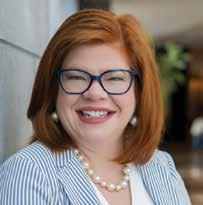
EMILY KIRKPATRICK
NCTE Executive Director
Never been to an NCTE Annual Convention before? Don’t miss this event we’re holding just for you! Join fellow first-time attendees for an informative session over breakfast to kick off your NCTE Annual Convention experience. You’ll have the opportunity to hear from NCTE President-Elect TONYA B. PERRY and NCTE Executive Director EMILY KIRKPATRICK. Plus, you’ll meet NCTE leaders and repeat attendees who can walk you through tips and strategies that will enhance your Convention experience, expand your knowledge of NCTE’s resources, and build your professional network.
The breakfast is complimentary, but a ticket ordered in advance is required.
TONYA B. PERRY, Provost and Senior Vice President at Miles College in Fairfield, Alabama, is a tireless advocate for students and educators who are often denied a voice. She works with and for educators, students, and communities to develop programs and initiatives that uplift historically marginalized peoples. In addition, she has advocated for others on numerous committees, including as a member of the NCTE Executive Committee, NCTE Research Foundation trustee, member of the NCTE Inclusivity Task Force, NCTEAR chairperson, NCTE Editorial Board member, and director for NCTE’s Cultivating New Voices among Scholars of Color program. She currently is NCTE President-Elect and serves on the National Writing Project’s board of directors. Perry has also served the nation as a 2000 National Teacher of the Year finalist and a two-time National Board Certified Teacher. She has worked as a middle school teacher, teacher educator, full professor, executive director, and principal investigator for a large GEAR UP grant, director of the Red Mountain Writing Project, and both interim department chair and executive director for outreach and engagement for a school of education. Her coauthored book Teaching for Racial Equity: Becoming Interrupters (2022) is a collaborative work with two teacher educators, Steven Zemelman and Katy Smith, and other brilliant teacher-writers.
8:15–9:15 A.M.

Kate McKinnon is an award-winning performer and writer best known for her tenure as an Emmy Award-winning cast member on Saturday Night Live. Young readers will recognize her voice roles as Ms. Fiona Frizzle in The Magic School Bus Rides Again for Netflix and as Lulu the Guinea Pig in DC League of Super-Pets. Her film work includes Ghostbusters, Bombshell, Yesterday, and Greta Gerwig’s Oscar-nominated worldwide blockbuster, Barbie The Millicent Quibb School of Etiquette for Young Ladies of Mad Science is her debut novel.
A book signing will follow the session.
During the 2023 NCTE Annual Convention, attendees shared their thoughts about the Convention and what it meant to them!
Share your Convention stories this year!
BUILD YOUR STACK® LOCATED IN EXHIBIT HALL A (BCEC, exhibit level)
FRIDAY, NOVEMBER 22
10:30–10:50 A.M.
BYS.1 Love Makes a Family
Kelsie Corriston Burnett, The University of Texas at Austin
Emily McDonald, The University of Texas at Austin
Katie Trautman, The University of Texas at Austin
11:00–11:20 A.M.
BYS.2 Heart Books to Inspire Readers
Greg Micek, Maercker School District 60/Holmes Primary School
Katie Russell, Murphysboro Middle School
11:30–11:50 A.M.
BYS.3 Translingual Picturebooks and Multilingualism: Challenging English as the Norm
Kathy G. Short, University of Arizona
12:00–12:20 P.M.
BYS.4 The Hope for Muslim YA: Humanizing through Heartfelt Narratives
Zainab Jabak, Alief Taylor High School
12:30–12:50 P.M.
BYS.5 Envisioning Future Worlds
Cathline Tanis, North Plainfield School District
1:00–1:20 P.M.
BYS.6 The Heart of the Matter: Centering Mental Health with Picturebooks
Jessica Walsh, Granger Middle School, Indian Prairie District #204, Aurora, IL
Maria Walther, literary consultant, Aurora, IL
1:30–1:50 P.M.
BYS.7 Picturebooks That Scaffold Excavation, Regulation, and Transformation in Classroom Communities
Clare Landrigan, Stenhouse
Keisha Smith-Carrington, Princeton Public Schools
Michelle Yang-Kaczmarek, Dobbs Ferry School District
2:00–2:20 P.M.
BYS.8 Books with Powerful Author’s Notes
Lynsey Burkins, Dublin City Schools
Franki Sibberson, Franki Sibberson, LLC
2:30–2:50 P.M.
BYS.9 We Keep Us Safe
Anna Falkner, University of Memphis
Noreen Naseem Rodríguez, Michigan State University
3:00–3:20 P.M.
BYS.10 2024/2025 Notable Poetry Books and Verse Novels
Junko Sakoi, Tucson Unified School District, and the NCTE Children’s Poetry Awards Committee
3:30–3:50 P.M.
BYS.11 “Where a Flower Blooms, So Does Hope”: Books That Celebrate Nature
Michelle Houts, Ohio University Press/ Feeding Minds Press/Random House
Laura Shovan, Vermont College of Fine Arts
Tricia Springstubb, Holiday House/ Peachtree/Pixel+Ink
4:00–4:20 P.M.
BYS.12 Great Debuts in YA
Michelle Peterson-Davis, Uniondale UFSD
Christina Zandstra, Roy C. Ketcham High School
5:00–5:20 P.M.
BYS.13 What Do Picturebook Authors Read?
Josh Funk, Union Square Kids
5:30–5:50 P.M.
BYS.14 A Picturebook Is Worth a Thousand Words: Reading and Writing with Powerful Picturebooks
Joellen McCarthy, The Educator Collaborative
Jen Vincent, Bannockburn School
6:00–6:20 P.M.
BYS.15 Stanzas of Hope and the Plea against Palestinian Dehumanization
Kefah Ayesh, Maarif School
Session proposals and their descriptions were created by the session speakers and reviewed through a peer-review process. Session content does not necessarily reflect NCTE policies or positions.
Session proposals and their descriptions were created by the session speakers and reviewed through a peer-review process.
Session content does not necessarily reflect NCTE policies or positions.
9:30–10:45 A.M.
"‘It’s About Time’: Centering, Supporting, and Learning from HBCUs and Black Brilliance at NCTE”
ROOM 205 C (LEVEL 2)
NCTE welcomes you to a uniquely generative space where all NCTE members can learn from the wisdom, courage, perseverance, and joy of administrators, faculty, and students from Historically Black Colleges and Universities (HBCUs) and grow in our ability to serve HBCUs as central to NCTE and the literacy education community. Valerie Kinloch, President of Johnson C. Smith University and NCTE Past President, will pose questions to a panel of HBCU representatives as NCTE charts a clear path toward centering HBCUs and our service to them as leaders in the work to remain strong and true to Pro-Black convictions in a time of heightened anti-Black legislation and curricular oppression.
Chair: Kamania Wynter-Hoyte, University of South Carolina
Moderator: Valerie Kinloch, Johnson C. Smith University
Presenters: Khalilah Ali, Spelman College
Janice Baines, Allen University/University of South Carolina
Will Boyles, Allen University
Fatima Brunson, Spelman College
Tamara Butler, Xavier University/College of Charleston's Avery Research Center for African American History and Culture
Flavia Eldemire, Allen University
Damara Hightower, Voorhees University
Tonya Perry, Miles College
Nicole Taylor, Spelman College
Natasha Thornton, Spelman College
Session proposals and their descriptions were created by the session speakers and reviewed through a peer-review process. Session content does not necessarily reflect NCTE policies or positions.
Session proposals and their descriptions were created by the session speakers and reviewed through a peer-review process. Session content does not necessarily reflect NCTE policies or positions.
12:30–1:45 P.M.
Artificial Intelligence in the ELA Classroom: Embracing Our Reality, Owning Our Responsibility ROOM 205 A (BCEC, LEVEL 2)
This session centers a public teacher’s expertise in a discussion on artificial intelligence in the ELA classroom. Come to explore the great potential of this moment, how students and teachers are engaging, alongside the responsibility we share to knowing where risks lie, who is most likely to be left out of opportunity, and where the next generation of oppression lurks. NCTE has specifically curated teaching, technology, and scholarly expertise for this timely conversation.
Presenters: Dr. Joy Buolamwini
Ernest Morrell, University of Notre Dame
Brett Vogelsinger, Central Bucks High School South, PA
DR. JOY BUOLAMWINI is the founder of the Algorithmic Justice League, a groundbreaking researcher, and a renowned speaker. Her writing has been featured in publications such as TIME, The New York Times, Harvard Business Review, and The Atlantic. As the Poet of Code, she creates art to illuminate the impact of artificial intelligence on society and advises world leaders on preventing AI harms. She is the recipient of numerous awards, including the Rhodes Scholarship, the inaugural Morals & Machines Prize, and the Technological Innovation Award from the Martin Luther King Jr. Center for Nonviolent Social Change. Her MIT research on facial recognition technologies is featured in the Emmy-nominated documentary Coded Bias. Born in Canada to Ghanaian immigrants, Buolamwini lives in Cambridge, Massachusetts.
ERNEST MORRELL is the Coyle Professor in Literacy Education and director of the Center for Literacy Education at the University of Notre Dame. He is an elected member of the National Academy of Education, a Fellow of the American Educational Research Association, and past president of NCTE. Dr. Morrell has been annually ranked among the top 200 university-based education scholars in the RHSU Edu-Scholar Public Influence Rankings published by Education Week. He has authored more than 100 articles and book chapters and fifteen books. His scholarly interests include literacy studies, English education, critical pedagogy, media and popular culture, and the African Diaspora. Morrell leads the NCTE James R. Squire Office of Policy Research in English Language Arts at the University of Notre Dame.
BRETT VOGELSINGER is an English teacher at Central Bucks High School South in Pennsylvania with over two decades of experience teaching in middle and high schools. He is the author of Poetry Pauses: Teaching with Poems to Elevate Student Writing in All Genres; his book Artful AI, about the use of generative AI in secondary writing instruction, is coming this summer from Corwin Literacy. He is the founder of Go Poems, a frequent contributor and webinar creator for Moving Writers, and a professional development presenter. Connect with him on LinkedIn, @theVogelman on Instagram, Threads, or X. His website is www.brettvogelsinger.com

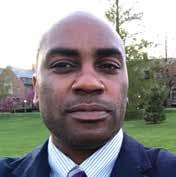

Session proposals and their descriptions were created by the session speakers and reviewed through a peer-review process. Session content does not necessarily reflect NCTE policies or positions.
Poster presentations will take place at the Boston Convention & Exhibition Center at the locations listed below.
Cultivating New Voices among Scholars of Color
Sponsored by the Cultivating New Voices among Scholars of Color Program
In this poster session, the presenters will share a delineation of three kinds of justices, which helps us examine to what extent we are pursuing the kinds of justices we say we are.
Committee Chairs: Latrise P. Johnson, University of Alabama
Leigh Patel, University of Pittsburgh
Presenters: Janice Baines, University of South Carolina monét cooper, University of Michigan-Ann Arbor
Rubén González, Stanford University
shea wesley martin, The Ohio State University
Mohit Mehta, The University of Texas at Austin
Alex Feliciano Mejía, San Francisco State University
Cristina Selena Mendez, University of California Berkeley
Rashida Mustafa, Teachers College, Columbia University
Tairan Qiu, University of Houston
Yvette Regalado, The University of Texas at San Antonio
Ankhi Thakurta, Boston College
Adrianna González Ybarra, University of Missouri
11:00 A.M.–12:15 P.M. / EXHIBIT HALL A (EXHIBIT LEVEL )
AI and Writing: Engaging Student Voices
This poster highlights college students’ voices from a class called “AI, Philosophy, and Writing,” as they grapple with complex philosophical and practical questions raised by AI—including who they are as learners and writers, and the role AI will play in their lives and careers.
Presenter: Margaret Perrow, Southern Oregon University
Blending the Editing and Revising Process

Why don’t students revise and edit? Why do we spend so much time writing little notes to our students to help them become better writers, knowing most won’t read them? Or if they do read them, they don’t apply them? The editing process has been a constant area that students (and teachers) groan about. The answer is simple and has been right in front of teachers for decades: station teaching.
Presenter: Sarah Webster, Camp Ernst Middle School, Boone County Schools
Empowering Intellectually Disabled Students through Systematic Phonics Instruction: Fostering Equitable Education

This poster presentation focuses on a research study in which students who were identified with an intellectual disability were given an intervention of systematic phonics through multisensory teaching for six weeks. After six weeks in a self-contained setting, the students in this study showed growth in phonemic awareness.
Presenter: Theresa Garcia, Texas A&M Central Texas
Multiliteracies for English Language Learners: Multilingual Multimodal Multidimensional Instructional Strategies
Do you have English learners/multilingual learners in your K-6 classroom? Have you noticed how unique each student is when it comes to their language and literacy development? Come to this poster session to expand your toolkit with multidimensional instructional strategies that include multilingual, multimodal, multisensory, and multilevel scaffolds and supports.
Presenter: Andrea Honigsfeld, Molloy University
Cultivating Success: The Power of Strong StudentTeacher Relationships in Building Heart, Hope, and Humanity
Despite being labeled an “alternative school,” Youth Opportunity is a beacon of hope for students who have been rejected by their previous high schools. We invite you to explore how a school-wide approach to creating an environment of hope contributes to the academic success and personal growth of our students, challenging the stereotypes associated with alternative education.
Presenter: Amy Sumor, Youth Opportunity Academy
Listening to Your Audience: Considering the “for” in Books for Children
This poster will showcase three different books for teens and kids and how they write for their specific audience: kids of today, not the past. Each example will explore how readers today need things that readers of even ten years ago didn’t, and why focusing on these differences and introducing these books to today’s kids are important.
Presenter: Nicole Melleby, Algonquin Young Readers
Session proposals and their descriptions were created by the session speakers and reviewed through a peer-review process. Session content does not necessarily reflect NCTE policies or positions.
Qué

Despite being a culturally diverse nation, mainstream classrooms in the US rarely provide opportunities for bilingual students to engage their full linguistic repertoire. All educators, regardless of their linguistic capacities, can create spaces of multilingual collaboration by incorporating translanguaging and providing students the opportunity to express meaning through multiple languages.
Presenter: Crystal Narvaez, Texas Woman’s University
The “R”evolution of the Sonnet

This poster presentation explores how the sonnet has evolved to be—at once—a traditional and revolutionary poetic form. From Petrarch, to Spenser and Shakespeare, to Hughes, Coleman, Hayes, Ruben Dario, Hua Nguyen, writers have used the sonnet form to participate in and revolt against tradition. Our history and our present are revealed in the 140 (give or take) syllable universe of the sonnet!
Presenter: Donna DeBenedetti
Writing with Purpose: How Adolescents’ Writing Improves by Connecting with an Authentic Purpose

This poster will explore results of a 2024 study of four high school ELA classrooms to examine how writing improves when teachers use an instructional routine called “Writing with Purpose” to help students write for personally meaningful purposes. The poster will present the study methods, results, and implications.
Presenters: Suzanne Myers, University of Kansas
Jocelyn Washburn, University of Kansas
A Critical Content Analysis of Indian American Immigrants in Contemporary Children’s Literature

Children deserve access to respectful and authentic books representing the plurality of the United States. Indian Americans are the second largest US immigrant population today, yet books about this community have been understudied. This study explores 35 middle grade novels about Indian American immigration. What themes are present in these books? What messages might children construct from them?
Presenter: Danielle Sachdeva, University of North Georgia
Bridging Rural Landscapes and Student Voices: Place-Based and Writing Center Pedagogies
Make writing relevant with the power of place in rural classrooms! Imagine students, inspired by local communities, crafting compelling narratives, poems, and essays with authenticity and confidence. This poster provides strategies to blend place-based writing pedagogies and writing center practices to empower rural students as confident, skilled writers.
Presenters: Brianne Johnson, University of Oklahoma
Michelle Boyd Waters, University of Oklahoma
Collaborate with Colleagues as Students Write across Your School
Don’t stay stuck in your silo! Come to this presentation and learn how you can collaborate with social studies classes, younger/older grades, and music teachers and art teachers in your school.
Presenter: Elizabeth Jorgensen, Arrowhead Union High School
Deeper Learning: Descriptions of Apprenticeship Learning in ELA Classes


Findings from the Study of Deeper Learning indicate students enrolled in schools promoting deeper learning competencies experience more opportunities for deeper learning activities, including in ELA classes. This undergraduate research project examines apprenticeship learning in ELA in literature on deeper learning schools. Our poster outlines research methods, findings, and implications.
Presenters: Julianna Kershen, University of Oklahoma
Guin Nalewajk, University of Oklahoma
Making Thinking Explicit: A Skill Continuum to Support Strategic Use of Think-Alouds


Think-alouds are a practice that most teachers implement frequently. Yet think-alouds can also be challenging to model and teachers may feel stagnant in their skills related to this instructional practice. We present a reflective tool that helps teachers analyze their current think-aloud practices and make intentional changes to improve the quality and explicitness of thinkalouds.
Presenters: Tracey Hodges, The Empowering Advocate LLC
Sharon Pratt, Indiana University Northwest
Session proposals and their descriptions were created by the session speakers and reviewed through a peer-review process. Session content does not necessarily reflect NCTE policies or positions.
Preserving the Soul of the Writer: Preservice Teachers’ Perceptions of the Role of AI in K–8 Writing Instruction

Preservice teachers are beginning their careers at a time when AI is just starting to change the educational scene. Particularly in the area of writing, there are important issues concerning balancing voice, originality, and the “humanity” of good writing with the incredible potential AI has as a helpful teaching tool to guide young writers.
Presenter: Marva Solomon, Angelo State University
Seeing the Promise Within: Using Animal-Assisted Therapy to Enhance Well-Being and Improve Reading Affect

In this interactive presentation, a secondary teacher and registered handler through Intermountain Therapy
Animals (ITA) will address key questions about the feasibility and impact of incorporating a therapy dog into the classroom. Saber the six-year-old Golden Retriever is present for the duration of the presentation to mimic the experience students have during R.E.A.D. visits.
Presenter: Kaitlyn Frakl, Hall High School
Shining the Light on Student Voices

How do preservice and new teachers create an environment that allows students to use their voice to enhance their learning? By bringing an asset-based perspective which honors student backgrounds and experiences, teachers will help to foster a more engaging learning experience. Through multiple years of classroom experience and relevant research, tools and tips will be presented.
Presenters: Karen Kopitsky, The University of North Carolina at Charlotte
Erica Neal, The University of North Carolina at Charlotte
Erin Northey, Steele Creek Elementary School, CharlotteMecklenburg Schools
Teaching Literature in the Age of Generative Machines

It’s been a matter of discussion for over a full year now: ChatGPT will change the way that learning happens in classrooms of all sorts. No one can say for certain whether the introduction of generative AI will truly be a pivot-point on which everything will change (only time will tell), however, what is certain is that there are many teachers—particularly teachers of English—seeking answers.
Presenter: Eric Abrams, Iona University
The Case for Civic Engagement in English Class
English class remains one of the main places students feel confident discussing ways to make the world a better place. “The Case for Civic Engagement in English Class” poster session merges civics, English, history, and media literacy through the work of three education organizations: PBS NewsHour Classroom, Our American Voice, and Indiana University’s Center on Representative Government.
Presenters: Elizabeth R. Osborn, Indiana University Center on Representative Government
Victoria Pasquantonio, PBS NewsHour Classroom
Too Scared to Share? Using Clips with Verse Literature Circles

Helping students find their voice in a post-pandemic classroom is paramount to self-awareness, confidence, and comprehension. Verse Literature Circles provide students with contemporary texts that include themes they can relate to, such as cultural identity, family, grief, and love. Using Clips, students collaborate with their peers using their voices and interactive audiovisual elements.
Presenter: Jennifer Jepsen, Oak Lawn Community High School
Unit-Runners: When Teacher Candidates Design
Interdisciplinary Units around Hosseini’s The Kite Runner

Khaled Hosseini’s The Kite Runner comes alive through interdisciplinary connections. As teacher candidates designing first units, we want to experiment with literature that expands beyond different content boundaries. Through SEL and social studies connections, unit design suggestions and research, new teachers and students will gain a unique and conceptual understanding of the content.
Presenters: Michele Castleman, Heidelberg University
Lexi Cheek, Heidelberg University
Trey Combs, Heidelberg University
Makenna Finnegan, Heidelberg University
Writing Apprehension in Rural High Schools (AZ, IN)


This poster demonstrates highlighted data from the presenter’s Writing Apprehension survey instrument. This survey instrument was conducted in rural high schools in Arizona and Indiana in 2023–2024. The instrument consisted of 16 quantitative questions as well as six qualitative questions in pursuit of solutions for and reasons behind writing apprehension in rural settings.
Presenter: Layne Ilderton, Arizona State University
Session proposals and their descriptions were created by the session speakers and reviewed through a peer-review process. Session content does not necessarily reflect NCTE policies or positions.
12:30–1:45 P.M. / EXHIBIT HALL A (EXHIBIT LEVEL )
Exploring “Fake Reading”: Authentic Engagement in Independent Reading

A common refrain against the idea of independent reading in secondary classrooms is the fear of students “fake reading.” This fear can lead to the implementation of assessments and accountability practices, from reading logs to projects, essays, or the use of Accelerated Reader. This poster shares findings about “fake reading” that emerged from a study of veteran middle grades teachers’ practice.
Presenter: Jess Smith, Bellarmine University
Armenian Bird Letters: Discovering Our Shared Humanity through Language and Art

Exploring Armenian language and culture through the illuminated manuscripts, students will gain an understanding of the Armenian language and cultural identity. Using a variety of reading and video activities, students will learn about Armenian history, culture, and language, and replicate Armenian Bird letters of their own names, discovering our shared humanity through language and art.
Presenters: Jessica DePamphilis, Watertown High School
Jackie Kemper, Christian School of York
Artful Idea: Critical Creativity and ELA around the Globe


How might we provide learners around the world opportunities to develop deeper language understanding, dynamic communication skills, and agile problem solving mindsets? Explore 40+ freely available strategies for creative expression in any ELA classroom, whether an ESL class in Egypt or a civic engagement seminar in New England.
Presenters: Jacquie Gardy, United States Department of State
Dan Ryder, Community Regional Charter School
Critical Content Analysis of Indigenous (Mis) Representation in Picturebooks

As representations of Indigeneity within elementary curricula remain largely underdeveloped, this poster session highlights the development of a heuristic for critical content analysis to evaluate accurate representations and misrepresentations of Indigenous Peoples in picturebooks commonly used in the elementary classroom.
Presenter: Rachel LaMear, University of Missouri
Paragraphology: The Bright Way to Write
Paragraphology is a multisensory, comprehensive, scaffolded approach to writing and note taking that can be easily utilized by children, teens, college students, and adults.
Presenter: Bridget Barley, The Jemicy School
Empowering Student Identity through Counter-Storytelling

Presentation of this counter-storytelling project, drawing on historically responsive literacy and pedagogy of possibility, will highlight student-created multimodal artifacts and findings centered on disrupting deficitbased approaches to literacy, leveraging diverse student resources and identities, and implications for developing relevant and meaningful curricular experiences.
Presenter: Janina Schulz
K-Pop Pedagogy: Multimodal Literacy and Transmedia Storyworlds
In this poster presentation, Nicholas E. Miller highlights how the transmedia storyworlds of contemporary K-Pop can serve as productive tools in the language arts classroom. This poster, and the accompanying handout, demonstrate how forms of transmedia storytelling found in K-Pop can be used to provide students with multimodal literacy skills and a deeper understanding of key literary concepts.
Presenter: Nicholas Miller, Mary Institute/Saint Louis Country Day School (MICDS)
Perceptions and Practices: Teachers’ Cultural Awareness and Insights on Black Boys
In this session, the presenter will explore teachers’ perceptions of culturally responsive practices and their impact on African American students. The discussion will focus on how gender, ethnicity, and teaching experience influence cultural awareness and the use of these practices. Attendees will gain insights into addressing biases and effectively supporting Black boys in the classroom.
Presenter: Kimberly Burks
First-Person Reading Writing and Speaking


The acts of reading/interpreting and of writing/discovery can be more than parallel, they can be intertwined. My students had to interpret one of ten essays, also used as examples of techniques to employ, and explain their own paralleling event such as the power of peer pressure, the joy of pursuing dreams, and the pain of abuse. The results were shared as both papers and presentations.
Presenter: Michael W. Young, University of Pittsburgh
Session proposals and their descriptions were created by the session speakers and reviewed through a peer-review process. Session content does not necessarily reflect NCTE policies or positions.
Level Up Your Game: A Collaborative ELA and Library Unit on Research Writing

This study explored the impact of a collaborative unit between an ELA teacher and a librarian on secondary students’ research writing skills. The unit focuses on developing research questions, engaging in the research process, and cultivating critical thinking skills. Key findings included increased student engagement, information synthesis, and focused research questions and thesis statements.
Presenters: Ana Katz, University of Utah
Brittany Maloy, Brigham Young University
Utilizing Advertisements to Advance Persuasive Writing Skills
Persuasive writing is one of the most difficult skills for students to master in the English classroom. While there are multiple ways to teach persuasive writing, real-world experience is a valuable tool in doing so. This presentation will demonstrate how students can use the art of media advertising to advance their persuasive writing skills.
Presenter: Tiffany Goldman, University of Mississippi
“‘Uncomfortable’ Reading on Sensitive Subjects”: A Survey of Young Adults’ Knowledge of and Attitudes toward Book Bans

Understanding the kinds of books students want and their objections to certain materials could be powerful knowledge for educators defending students’ access to literature. However, there is presently limited research about students’ knowledge of and attitudes toward censorship attempts. This study’s purpose is to bring students’ perspectives to the forefront of discourse about book challenges.
Presenters: Denise Johnson, William & Mary
Sue Kimmel, Old Dominion University
Shana Pribesh, Old Dominion University
Danielle Sachdeva, University of North Georgia
Digital Game Development in the ELA Classroom: Gamifying the Poster Session

In this interactive poster session, participants will be exposed to Unity, a free cross-platform game engine. While this session leverages one platform it offers a way of thinking about instruction and assessment in English classrooms that embraces the evolving technologies and creative strategies for new modes of storytelling.
Presenter: Chelsey Barber, Teachers College, Columbia University
Education Podcast Production as Meaningful Work in Academia


As teacher educators, we expanded our learning and leading in unforeseen ways by co-producing an education podcast. Interviews with educators cast a light on education issues, while designing newsletters and clipped content segments extended our reach into K–12 professional development and educator preparation. We identified worth in podcasting as a creative research pursuit in education.
Presenters: Joi Patterson, Governors State University
Amy Vujaklija, Governors State University
Embodying Her Words: Cultivating Writer Identity in Middle School Girls through Heart, Hope, and Humanity

An English teacher from Arizona showcases her research on humanizing our middle school girls and their experiences through writing. In an effort to maintain hope and engagement in restrictive teaching contexts, she will present on topics that create impactful learning and center student experiences, such as cultivating identities. She will share writing activities and showcase the work of her students.
Presenter: Adriana Diaz, Arizona State University
Empowering Bilingual Education via University-Rural Community Praxis Partnership

This research addresses global challenges in rural education, aiming to empower communities, harmonize global and local perspectives, and unlock education’s transformative potential.
Presenter: Ivy Haoyin Hsieh, National Dong Hwa University
Implementing Cross-Curricular Literacy Objectives to Meet Private School Accreditation Goals

The presenters will share ideas for developing academic accreditation goals regarding nonfiction literacy growth and the science of reading as it applies to 9–12 high school students. These accreditation goals are intended to help ELA instructors and content area teachers support students’ ability to better comprehend nonfiction texts and provide tools for students’ own independent learning. They will share their experiences of setting and implementing literacy goals for students with various reading abilities at their school.
Presenters: Jessica Colecchi, Cristo Rey Columbus High School
Rachel Dues, Cristo Rey Columbus High School
Session proposals and their descriptions were created by the session speakers and reviewed through a peer-review process. Session content does not necessarily reflect NCTE policies or positions.
Identifying and Describing the Theories That Inform Current Adolescent Literacy Research



This poster outlines our systematic literature review research methods and findings. Our study focuses on peer-reviewed research into adolescent literacy published between 2016 and 2023, with the goal of identifying and describing the theories and frameworks that inform and guide research efforts as well as those that serve as interpretive and analytic lenses.
Presenters: Tracy Hunt, Mid-Del Schools
Brianne Johnson, University of Oklahoma
Julianna Kershen, University of Oklahoma
It’s More than Multimodality: The Importance of Centering Literary Elements in Teaching Remix

My poster takes up the popular pedagogical strategy of remixing texts in a way that emphasizes students’ attention to and use of key literary elements such as setting, casting, and plot. It demonstrates how students are allowed to practice rhetorical skills through argumentation and remixing texts. It also emphasizes connecting texts that may seem irrelevant to students, with their lives.
Presenter: Emma Vaughn
Radical Empathy in Secondary School English Classrooms: The Narrative4 Approach to Improving Peerto-Peer Communication

This poster presents the multifaceted application of Narrative4’s Story Exchange to a secondary English classroom curriculum. Our work covers the positive benefits of the Story Exchange, specific methods and writing prompts that support curriculum standards as well as reinforce the CASEL 5 areas of social-emotional competence, and action steps to empower educators to experiment with this strategy.
Presenters: Amy Leshinsky, Curry College
Nicole LoPorto, Weymouth Public Schools
Social-Emotional Learning in Middle Schools: Teachers’ Experience with Implementation

Although existing literature indicates that SEL has generally had positive effects on students’ academic performance and overall mental and social health, one variable has sometimes been left out of the conversations about SEL: teachers’ voices. This presentation will feature proposed research aimed at filling that gap.
Presenters: Kiesia Anderson, Florida International University Claudine Morris, Florida International University
Education Teachers’ Instructional Practices and Needs Providing Writing Instruction to Students with Disabilities


Students with disabilities may experience difficulties across the writing process. Special education teachers were surveyed on their needs and instructional practices teaching writing. While teachers engaged in writing instruction, results suggest the role of teacher preparation and ongoing professional development.
Presenter: Joo-Young Lee, University of Maine
Visual Art as Literacy

Visual arts curricula offers a space for literacy to be embedded in planning stages, artwork creation, and reflections. This poster outlines examples of how a visual arts educator in a New York City public elementary school is applying literacy practices to grades 2–4 curricula.
Presenter: Sarah Sanders, New York City Department of Education, PS/IS 187 Hudson Cliffs

What children read is of critical interest as increased reading is linked to positive reading outcomes. We investigated the reading preferences of students in grades 2–4 for both genre and format, and analyzed for differences based on grade, sex, and other variables. We also conducted follow-up interviews to determine other variables influencing their preferences and motivation.
Presenters: Margaret Barr, William & Mary
Hailey Fisher, William & Mary
Katie Rusnak, William & Mary
Maya Sardar, William & Mary
Lily Silverman, William & Mary
Kristin Conradi Smith, William & Mary
Session proposals and their descriptions were created by the session speakers and reviewed through a peer-review process. Session content does not necessarily reflect NCTE policies or positions.
2:00–3:15 P.M. / EXHIBIT HALL A (EXHIBIT LEVEL )
Heart, Hope, and Humanity: Addressing the Language Arts Content Area Burden through a Culturally Responsive Approach to Teaching


Exploring Children’s Literature to Foster Self-Regulation and Social-Emotional Growth

COVID-19 challenged teachers to manage virtual instruction while upholding literacy standards and text choices. This poster acknowledges that burden, advocating for culturally responsive practices. By honoring the heart, hope, and humanity of teachers, we aim to empower them with tools and strategies to meet diverse student needs and create inclusive instruction where every voice is valued.
Presenter: Stephanie Fumiatti, Southern Connecticut State University
At the Heart of it All: Centering Care in Our Classrooms and School Communities

Explore the transformative synergy of self-regulation strategies and children’s literature in lower elementary classrooms. Join us for insights on fostering emotional regulation through engaging and effective educational practices, as we delve into the power of stories to shape young minds.
Presenter: Natalie James, PK Yonge Developmental Research School, University of Florida
Out of the Ashes: One Teacher’s Journey Evaluating the Impact of Student-Selected Independent Reading on Sixth-Grade Academic Intervention Services


Establishing a community of care in the classroom creates an environment where students feel valued, supported, and empowered to reach their full potential academically, socially, and emotionally. When students feel connected, they are more likely to seek help when needed, communicate openly, and collaborate with peers. In this session, we’ll explore what practices that center care look like.
Presenter: Vivett Dukes, Teachers College, Columbia University
Exploring the Definitions and Experiences of the Digital Divide: It’s More Than a Digital Distraction

This session identifies the need for professional development and instruction around digital distraction. The results of Beyond Digital Distraction: Educating Today’s Cyber Student will be shared. This book shares a wealth of educational stakeholder viewpoints about digital distraction from a 1:1 technology integrated high school. Data was collected before, during, and after the start of COVID-19, which provides a unique view into integrated learning and its transformation since the pandemic.
Presenters: John Rossi
Kurt Schuett, Leyden High Schools (District 212)/Concordia University, Chicago
This qualitative case study sought to evaluate the impact of student-selected independent reading on Academic Intervention Services (AIS) student engagement in AIS English language arts (ELA) class. Over the span of three months, the teacher-researcher facilitated a unit integrating the Flipped Classroom Model (FCM) and student-selected independent reading in hopes of increasing engagement.
Presenter: Michael Hockwater, University of South Carolina
How Implementation Teams Collaborate to Create a Supportive Environment for Writing Instruction

How do systems help and hinder the implementation of high-quality writing instruction? This poster will present findings from a simulation-based research study about educators’ use of a tool to assess schools’ infrastructure for writing instruction and professional learning, and support implementation planning for a new writing initiative.
Presenters: Suzanne Myers, University of Kansas
Jocelyn Washburn, University of Kansas

By tapping into your sense of wonder, you can design meaningful learning experiences that captivate your students’ interests and ignite their imaginations. Structured around the elements of wonder, surprise, curiosity, freedom, and inspiration, this poster session will showcase learner-centered literary instructional strategies and provide inspiration to create literary lessons that are compelling and purposeful.
Presenters: Ashley Bible
Jenna Copper, Slippery Rock University
Abby Gross, Archdiocese of Cincinnati St. Albert the Great School
Staci Lamb, Cecil County Public Schools
Session proposals and their descriptions were created by the session speakers and reviewed through a peer-review process. Session content does not necessarily reflect NCTE policies or positions.
Poetry in the Intermediate Grades: Bringing the Active View of Reading to Life

Students in intermediate grades (3-5) are expected to read and understand complex texts, yet their understanding of language often inhibits their ability to understand those texts. Reading and writing poetry enabled readers to increase their understanding and use of vocabulary, improved their oral reading fluency, and increased their motivation and participation in class conversations.
Presenter: Rochelle Mitlak, University of Bridgeport
Global Texts at the Heart of Learning: Lessons in Lesson Planning
National Education Association (NEA) Global Teaching Fellows from across the US served as mentor teachers for teacher candidates, using global texts at the heart of their instruction. This poster session will highlight the collaborative process and mentorship model utilized to provide lessons in lesson planning, using diverse texts, for preservice teachers in rural Minnesota.
Presenters: Deborah Jane, University of Minnesota Kathrina O’Connell, Bemidji State University
Who Gets to Write Fiction? Opening Doors to Imaginative Writing for All Students

Literature is an art. What if we gave students consistent opportunities to practice creating in the genres they read as a part of their study of literature? How might this transform students’ relationships to reading, writing, and to one another? Come and see the eight doors we can open when we integrate imaginative writing into our English language arts classes as well as a curriculum structure to support this work.
Presenter: Ariel Sacks, The Renaissance Charter School Queens NY/Norton Professional Books
“___ is something we have lost in the world today.” Celebrating Student Voice through Assignments They Actually Care About

Illustrating a dynamic assignment I created for my grade 12 English students—Write a speech entitled: “_________ is something we have lost in the world today”—this poster session will illustrate how crafting assignments that students truly care about can make all the difference in the ELA classroom, and the importance of students hearing their own voices in the classroom.
Presenter: Tara Maria Fernandes, Teachers College, Columbia University
A Long Long Time Ago in Southeast Asia: Lessons from Southeast Asian Folktales



Kim and McCabe (2018) collected oral folktales from Southeast Asian immigrant families from Cambodia, Vietnam, Burma, and Laos in the city of Lowell, Massachusetts, USA, and turned them into a children’s book. This poster session will present the folktales and examine the forms, functions, and lessons of the folktales for teachers to teach them as culturally sustaining texts
Presenters: MinJeong Kim, University of Massachusetts Lowell Allyssa McCabe
Communities of Student Teachers as Readers (CoSTaR) Project: A Transatlantic Venture

Read-alouds are valued practice in literacy instruction to convey background knowledge, demonstrate readers’ actions and cognitive processes, and build a community within a classroom. This presentation shows how a community of preservice teachers as readers between Ireland and the United States was built, as they mutually developed their skills with using read-alouds in literacy instruction.
Presenter: Sharon Pratt, Indiana University Northwest
Constellating Emotional Dialogues in Secondary Education: Autoethnographic Insights into Queerness, Race, and Compassion


This interactive poster session offers an overview of how one teacher developed a framework rooted in emotion, queer, dialogic, and Walter Benjamin’s new materialist theories to view and deconstruct the heaviest moments of teaching under a lens of compassion. Participants are invited to make novel meanings of these experiences by connecting themes of love, hope, and joy into new “constellations.”
Presenter: Emily Wilkinson, Teachers College, Columbia University
Pedagogy for Using AI as a Tool to Teach Shakespeare to English Language Learners in Secondary Schools
Secondary teachers of English language learners (ELL) can leverage artificial intelligence (AI) to revolutionize the teaching of Shakespeare in secondary ELA classrooms, addressing the diverse academic abilities of ELLs. By incorporating AI as a supportive teaching aid, educators can optimize time, implement evidence-based strategies, and foster a dynamic learning environment.
Presenters: Ricarma Jean Baptiste, Florida State University, Tallahassee
Alyssa VanLinder, Florida State University, Tallahassee
Lauren Woodham, Florida State University, Tallahassee
Session proposals and their descriptions were created by the session speakers and reviewed through a peer-review process. Session content does not necessarily reflect NCTE policies or positions.
Seeking Hope in “Seek You”: Interdisciplinary Understandings of a Required Freshman Read

A quiet resistance to Ta-Nehesi Coates’s Between the World and Me led to a new choice for a campus-wide required freshman read: Kristen Radtke’s graphic novel, Seek You: A Journey through American Loneliness. Faculty members from different disciplines discuss its value and predict its impact among their most impressionable population.
Presenter: Joanelle Morales, Colorado Mesa University
Supporting Multimodal Composing in Digital Environments: Understanding Needs and Strategies


Best supporting students as they compose using digital tools means understanding that traditional writing process lenses are no longer adequate for these multimodal environments. This presentation reports findings of a process study that moves toward a digital and multimodal process lens to help literacy educators support students sharing their ideas and voices in a digital and multimodal age.
Presenter: Brett Stamm, University of Southern Mississippi
Teacher Candidates’ Readiness to Teach Writing Across the Curriculum

When Fiction Influences Facts: The Significance of Popular Culture’s Connection to Teacher Recruitment, Retention, and Attrition

In this poster presentation, teacher educators provide research exploring the following research question: how does popular culture representation of English language arts educators influence teacher recruitment, retention, and attrition, and how has Abbott Elementary influenced educator representation in media? Interactive conversations will explore the significance of this issue to educators.
Presenters: Peggy Hopper, Mississippi State University
Mary Ann Parker, University of North Alabama
3:30–4:45 P.M.
Anti-Education Legislation, English Teacher Perspectives, and Subversion in the United States

At a Midwestern education prep program, all education teacher candidates since 2019 have participated in a course on the teaching of writing. Teacher candidates reflected and provided techniques on their readiness to design, scaffold, and assess writing within their content area(s).
Presenter: Michele Castleman, Heidelberg University
Using Art Criticism to Support Student Engagement with and Comprehension of Multimodal Texts in ELA Classrooms


When reading a multimodal graphic novel text, students are often ready to decode the words on the page but need more foundational skills to understand the text’s visual components. This poster gives educators a framework for utilizing the skills used in art criticism to decode multimodal texts in ELA classrooms.
Presenter: Annie Bolter, Lakeland Christian School
In many states, anti-education bills can uniquely impact ELA teachers. This study, a PhD dissertation for the University of Oxford enacted by a HS ELA teacher, connects interviews from 20 teachers with legislation, parents’ rights groups, and politician platforms. I tie conservative rhetoric to concrete experiences and then share how teachers maintain reputations, safety, and well being.
Presenter: Alexa Muse, University of Oxford
Engaging Critical Multimodal Literacies through Culturally Sustaining Pedagogies in the English Classroom

To resist restrictive state legislation that seeks to silence discussions of systemic racism in the classroom, presenters share a social-justice focused unit centered on the novel Punching the Air by Ibi Zoboi and Yusef Salaam. Through community involvement, student-led discussions, and mentorship, students engaged in critical multimodal literacies as a way of embodying social justice themes.
Presenter: Kelsey Chingren-Lockhart, Northwest Junior High/ University of Iowa
From Classroom to Global Citizenship: Fostering Multicultural Awareness in Young Minds through ProjectBased Learning



This study investigates how PBL fosters multicultural awareness among young children by integrating language and cultural learning. It provides implications for practitioners to initiate PBL, nurturing linguistically proficient and culturally empathetic learners prepared to engage meaningfully with the interconnected world.
Presenter: Zhen Ren, University of Illinois Urbana-Champaign

Session proposals and their descriptions were created by the session speakers and reviewed through a peer-review process. Session content does not necessarily reflect NCTE policies or positions.
Pairings: Blending Genres in Paired Texts
Borne from inspiring experiences of reading paired texts with students, this session introduces a new way to pair texts together: by blending genres. I share blended genres as a new way to pair complementary texts of differing genres. Discussion will include how to create blended genres, examples of blended genre pairs, and complimentary teaching strategies to use with blended genres.
Presenter: Abbey Galeza, Kent State University
Who Is Represented? A Content Analysis of Characters in Award-Winning and Acclaimed Literature for Elementary and Middle School Students
Who are the characters in award-winning children’s books? Do they reflect today’s children? We share an analysis of character representations from awardwinning and acclaimed book lists and invite attendees to look critically at the limitations of this literature, become cognizant of awards recognizing diverse literature, and become advocates for putting diverse books in children’s hands.
Presenters: Sunah Chung, University of Northern Iowa
Melanie Koss, Northern Illinois University
Kathleen Paciga, Columbia College Chicago
Choice and Classical Texts: Bringing Classics to Life for Secondary Students

This poster will offer secondary ELA educators a glimpse into pairing choice texts alongside classic works of literature to engage similar themes and insights into characters. High school students engage more with choice, and this is an opportunity to increase their engagement level while also demonstrating the influence classic texts have on our modern stories.
Presenters: Rachel DiGloria Jennifer Percival
Developing Teacher-Writer Identities in Preservice Content Area Teachers

This poster will highlight the results of a study investigating the extent to which preservice content area teachers conceptualize their responsibilities and development as teacher-writers with lived experiences of practicing content teachers. Viewers will gain knowledge of how preservice content teachers understand the role of writing in their future careers as content area teachers.
Presenter: Alison Bright, University of California Davis
Reflective Practices: Crafting Curriculum to Foster Joy in the AP Literature Classroom


One school’s decision to move to an “AP for All” instructional approach brought anxiety and anger to many students. However, for others, it brought a much-needed opportunity. As teachers of AP Literature, how can we shift curriculum and instruction to create a relevant and joyful space for all? The answer: shifts in curriculum with meaningful texts and a focus on student reflection and feedback.
Presenter: Lindsey Franklin, P.K. Yonge Developmental Research School, University of Florida
It’s Been a Long Time Coming: Teaching Rhetoric through Pop Culture

In this poster session, I will share the curriculum from my recently taught 3000-level Rhetoric and Pop Culture course, which focused on Taylor Swift and her impact on popular culture. I discuss how using pop culture as a tool helps students more effectively engage with rhetorical concepts, such as kairos, and helps students see the application of rhetoric outside of academia.
Presenter: Emily Proulx, University of Central Florida
JOYcabulary: Effortless and Effective Word Acquisition in K–3

Elevate your read-alouds to build knowledge and develop vocabulary. With three shifts, mindset, intention, and extension, engaged students joyfully learn and retain new content, ideas, and words. Rich readalouds are paired along with a warm-up poem to launch the learning. Extensions are where the words are stored in the brain and become accessible for speaking, writing, and thinking.
Presenters: Amanda Schoepflin Kovac, JOYcabulary, Onteora Central School District, NY
Linda Szakmary, JOYcabulary, Sullivan BOCES, NY
On the Same Page: Writing Systems to Improve Content Area Writing

Many teachers are frustrated with the rise of AI “assisted” writing assignments created outside of school and are hungry for techniques to allow more writing in class. Yet each subject taught (history, biology, math, ELA) has its own particular writing challenges, rhetorical organization, and demands. These systems will create schoolwide content writing systems so that AI authors can’t be used.
Presenters: Stacey Adams, Center for Teaching and Learning
Jill Cotta, Center for Teaching and Learning
Katy Inman, Center for Teaching and Learning
Annie Nixon, Center for Teaching and Learning
Glenn Powers, Center for Teaching and Learning
Session proposals and their descriptions were created by the session speakers and reviewed through a peer-review process. Session content does not necessarily reflect NCTE policies or positions.
Pages of Influence: Student-Created Bookshelves
The “Ideal Bookshelf” assignment, inspired by La Force and Mount’s (2012) book, asks students to identify, illustrate, and explain their 10 most influential reads that build student engagement and a community of readers. This visual poster will display the concept of studentcreated bookshelves, show examples, and provide resources for implementing this engaging classroom activity.
Presenter: Suzanne Porath, Kansas State University
Poetry Is the New TikTok
Students today long for the infinite scroll and instant gratification of social media. What doesn’t meet that requirement? Macbeth. What might? Poetry. Poems are short, punchy, and compelling, just like TikTok. Together, let’s commit to using poetry regularly to reinforce and deepen conversations about character, tone, theme, and language while studying longer pieces of literature.
Presenter: Erika Johnson, OLCHS
Breaking Deficit Views through a “Language as Resource” Orientation: One Teacher’s Journey of Shifting Lenses


The “language as resource” orientation holds transformative power in dismantling deficit perspectives of language in monolingual classrooms. This poster presentation traces the critical events of one teacher that led to transformative shifts in embracing a “resourcefulness” view of language. The findings highlight pedagogical possibilities for educators in adopting expansive views of language.
Presenters: Julie Choi, University of Melbourne
Catriona Vo, Groves Christian College, Brisbane, Australia
Sharing Cultures through Literature and Geography

Presenters will have pins and a world map on the poster. Participants will be invited to use a pin and slip of paper to mark an area of the map that reflects the culture of a book they are recommending with the book title and author on the paper. Books may reflect the culture participants live in, teach in, or are from. Recommendations should be appropriate for secondary classrooms.
Presenters: Michelle Clark, Tupelo High School, Tupelo, MS
Peggy Hopper, Mississippi State University
Rosemary Oliphant-Ingham, University of Mississippi
Shift: Collapse, Hiding, Fight, or Flight



This work explores human reactions to a large-scale societal shift. The title “The Shift: Collapse, Hiding, Fight, or Flight” suggests a breakdown in normalcy, forcing characters to adapt survival tactics. The world undergoes a critical change, forcing individuals to confront their primal instincts. Society fractures in “The Shift.” Facing a drastic change, characters grapple with primal urges.
Presenter: Kim Groshek, Pause Power Inc.
Here: Cross-Curricular Conversations and Applications
Ever wonder how to create a culture of open communication in your classroom? Building a foundation of open conversation is vital as we navigate our various communities. The world is here and we are stronger when we communicate across and through our differences, building on our commonalities. Discuss with us how to grow a learning environment to help students be able to learn together.
Presenter: Stephanie Hasty, Seneca Valley High School
Lifeworlds: Educators’ Reflective Journey toward Equity


How does reflective practice shape our cultural competence and commitment to social justice? In the changing educational landscape, educators should consider their roles as change agents for promoting equity, by examining them through the lifeworld fractions framework.
Presenter: Maria Halkias, Fairleigh Dickinson University
Multicultural Jewish Children’s Literature

This poster will showcase the full spectrum of Jewish cultures and characters, including Middle Eastern, North African, Ethiopian, Persian, and Hispanic. The audience will leave with an annotated list of recommended titles and suggestions for lessons using these books.
Presenters: Jany Finkielsztein, CAMERA Education Institute
Marjorie Gann, Association of Jewish Libraries, Canada
Session proposals and their descriptions were created by the session speakers and reviewed through a peer-review process. Session content does not necessarily reflect NCTE policies or positions.
Using Large Language Models (LLMs) to Teach the Writing Process
This poster focuses on an assignment using large language models (LLMs) in the technical writing classroom, focusing particularly on generating ideas for assignments and considering the revising process.
Presenter: Lisa Litterio, Bridgewater State University
Assessments and Interventions to Use with Reading Workshop

Reading workshops would be worth the time even if all they did was help kids enjoy reading. However, they can be much more than Sustained Silent Reading. They're an opportunity for teachers to assess student learning and employ interventions that struggling readers need. My poster shares how reading workshops allow me to find struggling readers and employ interventions to help them succeed.
Presenter: Andrew Filler, Howard Gardner Charter School, MI
Building Background Knowledge Is Vital for Supporting Students’ Reading Comprehension and Writing

This session is an overview of utilizing background knowledge to support reading comprehension and writing by incorporating the Expeditionary Learning curriculum. This is for teachers currently teaching in middle school classrooms. Attendees will challenge teaching practices and actively discuss positioning background knowledge at the focal point of teaching reading comprehension and writing.
Presenter: Jessica Coyne Ritter
Letter-Writing and Parental Incarceration: A Heart, Hope, and Humanity-Driven Literacy Practice
What is the impact of letter writing on students who go through childhood, through adolescence, and who enter young adulthood with an incarcerated parent? What sparks the intrinsic motivation of students to engage in writing practices that are not assigned, but assumed of their own volition? Explore letter-writing as an authentic literacy practice of students impacted by parental incarceration.
Presenter: Vivett Dukes, Teachers College, Columbia University
Books Build Bridges: Using YA Literature to Support Social-Emotional Learning

Rooted in CASEL’s 5 domains of social-emotional learning, and powered by our two decades in middle school, we will show you how to put the right book in the right hands at the right time. YA literature is the best way to support emotional learning in adolescents, and we’ll share carefully selected titles suited for developing each of the SEL competencies.
Presenters: Mary Giuffre, Frederick W. Hartnett Middle School Erin O’Leary

Session proposals and their descriptions were created by the session speakers and reviewed through a peer-review process. Session content does not necessarily reflect NCTE policies or positions.
9:30–10:45 A.M.
ES-E.01 Sparking the Writing Revolution with the Latest Insights and Research ROOM 155 (LEVEL 1)
Sponsored by Amplify
Writing is a powerful lever for deepening knowledge, improving reading comprehension, and enabling all students to access grade-level material. But it’s also the most difficult thing we ask students to do. Join Natalie Wexler and Judith C. Hochman, Ph.D., to learn how to make writing less overwhelming for students, and why you should embed it in your core curriculum across all subjects and grades.
Presenters: Judith C. Hochman, Founder, The Writing Revolution/ Co-Author, The Writing Revolution
Natalie Wexler, Education Writer; Author, The Knowledge Gap/ Co-Author, The Writing Revolution
ES-E.02
Build an On-Demand Professional Learning Library with NCTE (ISTE, ASCD, Corwin, Solution Tree, and more!) Professional Development Content ROOM 158 (LEVEL 1)
Sponsored by Gale
Create customized professional learning experiences for your district, department, or individual educators. Leave this session with digital access to titles from NCTE, ASCD, ISTE, and others! Reimagine professional learning by leveraging evidenced-based strategies from leading experts, fueled by Gale’s On-Demand platform that becomes the catalyst for consistent, ongoing professional growth.
Presenters: April Angel, Manager, Strategic Partnerships
Andrea Eshelman, Sr. District Sales Manager
11:00–11:30 A.M.
ES-F.01 Bringing Writing to Life: The Essential Components of Effective Writing Instruction
ROOM 155 (LEVEL 1)
Sponsored by Collaborative Classroom
Join us to unpack the research and find out how teaching writing as a separate content area provides a critical pathway for fostering effective communication skills as well as nurturing creativity and critical thinking, which are essential skills for academic and personal success. You’ll leave equipped with professional resources, lesson examples, and checklists to support your instruction.
Presenters: Kim Still, Collaborative Classroom
ES-F.02 Using DBQ Online to Help Teachers Scaffold and Differentiate Evidence-based Writing Instruction in the ELA Classroom
ROOM 158 (LEVEL 1)
Sponsored by The DBQ Project
EdTech Digest awarded DBQ Online first place in its prestigious "Cool Tool Award" competition. The writing scaffolds embedded in the platform help teachers differentiate writing instruction while maintaining the rigor needed to accelerate learning for ALL students. Come see what the buzz is all about and leave with a preview account and go to literacy strategies for analyzing nonfiction excerpts.
Presenter: Chip Brady, Co-Founder, The DBQ Project 12:30–1:45 P.M.
ES-G.01 Leveraging Writing and Discourse for Stronger Reading Proficiency in Middle School
ROOM 155 (LEVEL 1)
Sponsored by Amplify
Join Amplify VP of ELA 6–8 Deb Sabin to explore how two of the key components of the secondary ELA classroom—writing and discourse—can be leveraged to support reading development. We’ll investigate the connections among writing, discourse, and reading, as well as their relationship with the Science of Reading, and explore hands-on activities to ramp up reading proficiency in the secondary classroom.
Presenter: Deb Sabin, Vice President, ELA Education 6–8, Amplify
Session proposals and their descriptions were created by the session speakers and reviewed through a peer-review process. Session content does not necessarily reflect NCTE policies or positions.
ES-G.02 Bridging the Gap Between “Learn to Read” and “Read to Learn" ROOM 158 (LEVEL 1)
Sponsored by Newsela
Many states with best-in-class science of reading policies are seeing reading improvements in lower grades, but dips in NAEP Report Card scores after third grade. One cause might be a lack of knowledge building within literacy instruction. In this session, we’ll look at the research and dig into real-world recommendations for building effective literacy programs from elementary into secondary.
Presenters: Dan Cogan Drew, Co-Founder/Chief Academic Officer, Newsela
Natalie Wexler, Academic Writer/Author
2:00–2:30 P.M.
ES-H.01 Cultivating Curiosity: Questioning and Literacy Strategies for Young Children ROOM 158 (LEVEL 1)

Sponsored by The Right Question Institute
Discover how student-generated questions can enhance literacy learning, participation, and critical thinking. This study used the Question Formulation Technique in an early childhood summer program for under-resourced students. Results showed improved literacy skills as assessed by the OLAI-2, with significant increases in questioning and oral language. Leave with new classroom strategies.
Presenters: Cora Causey, University of Alabama at Birmingham Amelia Spencer, Birmingham-Southern College Faculty Emerita/ Program Evaluation Analyst , Glenwood, Inc.
Sarah Westbrook, Director, Professional Learning, The Right Question Institute
ES-H.02 Using Games to Inspire Creativity ROOM 155 (LEVEL 1)
Sponsored by Blabbi
Want to get your students excited for class? Looking for a fun, creative exercise to break the ice and spark engagement? We've got you covered! We’ll show you how to use creative games to inspire imagination, improve public speaking, and engage logic—all through the universal language of laughter.
Presenters: Adrian Yu, Blabbi Olive Yu, Blabbi
2:45–3:15 P.M.
ES-I.01 Sharing the Power of Questions: A new model for fostering independent thinking and democratic habits of mind
ROOM 155 (LEVEL 1)
Sponsored by The Right Question Institute
How can the practice of questioning foster nimble and democratic minds? Teachers around the country have used the Question Formulation Technique to power student-led discussions, close reading, literacy learning, community action projects, and more. Experience the strategy and leave with a simple, actionable plan for fostering skills and habits of mind that are essential for a healthy democracy.
Presenters: Maame Conduah, Education Program Associate, The Right Question Institute
Dan Rothstein, Co-founder, The Right Question Institute
Luz Santana, Co-founder, The Right Question Institute M.
ES-J.01 Literature and Theater Arts Collaboration: Where Shakespeare Means Heart and Humanity, and Social Justice Means Hope
ROOM 155 (LEVEL 1)
Sponsored by Shakespeare and Social Justice


In the Shakespeare and Social Justice Project, theaterbased education programs make Shakespeare teaching connect literary study and theater arts through social justice principles. Shakespeare teaching matters to 21st Century students when adults engage them in meaningmaking activities, close textual analysis, drama-based pedagogy, and creative re-storying. Incorporating a social justice perspective is essential: no teacher must figure this out alone.
Presenters: Alice Renier, Apocalyptic Artists Ensemble
Cori Stevenson, General Manager, Houston Shakespeare Festival
Lindsay Tanner, Theatre for a New Audience
Kea Trevett, Apocalyptic Artists Ensemble
Laura Turchi, Shakespeare and Social Justice/Shakespeare Center
Los Angeles
Samantha Wyer-Bello, Shakespeare Theatre Company
9:00 A.M.–4:45 P.M.
Leaf and Pen and the New York State English Council's Drop-in Writing Space
NORTH EAST LOBBY (BCEC, LEVEL 1)
Drop in at any point in the Convention, for some time, space, and inspiration to do your own writing, in any form. We provide tools and activities for everything from brainstorming to generation to sharing. Feel free to try these—and bring them back to your schools and classrooms—or to make your own use of this space for writing, creativity, reflection, and breath.
Hosts: Eve Becker, Diana Liu, Lauren Nappi
9:30–11:00 A.M.
the Magic of Reading: A Conversation
ROOM 210 B (BCEC, LEVEL 2)
Sponsored by Booksource
Join award-winning author Kwame Alexander and Project LIT Community co-founder Dr. Jarred Amato for an inspiring conversation, moderated by Booksource President Neil Jaffe, on igniting a love of reading in all students. Together, they will explore the power of storytelling and diverse literature in fostering inclusive and engaged reading experiences. With practical strategies and personal insights, Kwame and Jarred will discuss ways to create vibrant reading cultures that empower students to become lifelong readers, both inside and outside the classroom.
Breakfast will be served. Limit of 250 attendees. First come, first serve event.
2:00-3:15 P.M.
Tend the Flame: A Celebration of Teachers, Students and Writing
ROOM 210 B (BCEC, LEVEL 2)
Sponsored by the National Writing Project
NWP Reader's Theater: In celebration of the National Writing Project’s 50th year, beginning at NCTE in Columbus, Ohio, teachers were invited to contribute to “Tend the Flame,” a community poem created by the Wick Poetry Center. This session, an interactive Reader’s Theater Experience, draws on that community poem to celebrate teachers, students, and writing. Need a jolt of inspiration? Join us!
Session proposals and their descriptions were created by the session speakers and reviewed through a peer-review process. Session content does not necessarily reflect NCTE policies or positions.
E.1 NCTE Author Strand: Reading the World through Sports and Young Adult Literature
ROOM 151 B (LEVEL 1)
This session is designed to help attendees see students’ engagement in sports culture as a pathway into the meaningful exploration of contemporary sociopolitical issues. Examples provided will support attendees in using awardwinning and recommended works of sportsrelated young adult literature and related texts to teach for critical literacy.
Presenters: Kristen Bakehorn, Fort Wayne Community Schools
Alan Brown, Wake Forest University
Kavitha Davidson
Guy Hill, Triton High School
Mark A. Lewis, James Madison University
Luke Rodesiler, Purdue University Fort Wayne
E.2 Meet the NCTE Editors
ROOM 102 A (LEVEL 1)
Participants will have the opportunity to meet journal and book editors, explore the publishing possibilities available with NCTE and with other publications, and discuss specific project ideas with the editors.
The ALAN Review: Christian Hines, Texas State University & Terri Suico, St. Mary’s College College Composition and Communication: Matt Davis, University of Massachusetts Boston & Natalia Scarpetti, University of Massachusetts Boston College English: Lori Ostergaard, Oakland University
English Education: Melanie Shoffner, James Madison University
English Journal: Amy Burke, Aimee Hendrix-Soto & Mandy Stewart, all from Texas Woman’s University
English Leadership Quarterly: Henry “Cody” Miller, SUNY Brockport
The Journal of Children’s Literature: Jill Hermann-Wilmarth, Western Michigan University; Laura Jiménez, Boston University; Caitlin Ryan, University of North Carolina Wilmington & Craig Young, Bloomsburg University of Pennsylvania
Language Arts: Sandra L. Osorio, Erikson Institute Chicago
The Leaflet: Mark Fabrizi, Eastern Connecticut State University
NCTE Books Program: Kurt Austin and Cynthia Gomez
NCTE Journals Program: Kim Morse, Jon Reigelman, and Tom Tiller
Research in the Teaching of English: Mollie Blackburn, David Bloome & Laurie Katz, all from The Ohio State University
Talking Points: Patricia Paugh, University of Massachusetts Boston & Sherry Sanden, Goldendale School District, WA; incoming editors: Ted Kesler & Marcela Ossa Parra, Queens College
Teaching English in the Two-Year College: Darin Jensen, Salt Lake Community College
Voices from the Middle: Shanetia Clark, Salisbury University & Robyn Seglem, Illinois State University
E.3 HS Matters—Humanizing Literacy Instruction through Asset-Based Social Action Research
ROOM 159 (LEVEL 1)

Sponsored by the Secondary Section Steering Committee
This presentation gives hope through radical love and social action. Learn how two English educators encouraged multilingual learners to become change agents in Boston Public Schools and how one teacher took an asset and advocacy approach to literacy instruction with Indigenous Latinx multilingual learners.
Presenters: Monica Bartholomew, Dover High School, “The Literacy Practices of Students with Limited or Interrupted Education (SLIFE)”
Mary Grady, Ruth Batson Academy, Boston Public Schools, “Becoming Social Change Agents through Reading and Multimodal Composing: Insights from a Multicultural and Multilingual Boston Public Schools Classroom”
Allison Skerrett, The University of Texas at Austin, “Becoming Social Change Agents through Reading and Multimodal Composing: Insights from a Multicultural and Multilingual Boston Public Schools Classroom”
E.4 #MakersInTheMiddle Level Up Humanity with Games: Playing Games for Joy and Literacy in the Middle Grades
ROOM 205 B (LEVEL 2)
Sponsored by the Middle Level Section Steering Committee
In this exciting session, we will play games that exercise our reading, writing, speaking, and listening skills. Through gameplay, we will explore how games can challenge and transform our pedagogies in ways that hold space for students’ diverse voices and experiences. By creating opportunities for play, we will uncover innovative ways to craft narratives, arguments, and poetry with youth.
Presenters: Alex Corbitt, SUNY Cortland
Michael Dominguez, San Diego State University
Roundtable Leaders: Sarah Bonner, University of North Carolina Wilmington
Karis Jones, Empire State University SUNY
Robin Lange-Fazio, Tabletop Gold
Robyn Seglem, Illinois State University
Scott Storm, University at Albany, SUNY
Session proposals and their descriptions were created by the session speakers and reviewed through a peer-review process. Session content does not necessarily reflect NCTE policies or positions.
E.6 “Spilling Tea”: Reframing Gossip in the ELA Curriculum through a Critical Feminist Lens ROOM 162 A (LEVEL 1)
Using a critical feminist lens, panelists created ELA curricula to support gossip as a literary tool to enhance characters’ positions, personalities, allies, and enemies within texts. In three high school units, gossip is used as an analytical tool to promote gender equity, guiding adolescents in critical analysis of the ways systems of power/privilege intersect in the fight for gender equity.
Presenters: Delaney Barrett, Miami University
Katherine Batchelor, Miami University
Julia Beaumont, Miami University
Kelli Rushek, Miami University
Ava Shaffer, Miami University
E.7 “A Deeper Understanding for Why I Think the Way I Do”: Using Ethics Instruction to Enrich Secondary Literacy Education ROOM 050 (EXHIBIT LEVEL)
Critical thinking is more important than ever. Join us in exploring ways to incorporate critical thinking skills in the secondary classroom through ethics education. Prindle Institute for Ethics staff and educators will provide a brief foundation in ethics education and share free classroom resources, followed by a demonstration of interactive learning experiences.
Presenters: Pam Antos, Hilliard City School District
Jeffrey Dunn, The Prindle Institute for Ethics
Merry Guerrera, Hilliard City School District
Emily Knuth, The Prindle Institute for Ethics
E.8 Activating Funds of Knowledge through Intercultural Interaction in Introductory Composition


ROOM 252 B (LEVEL 2)
This panel focuses on an introductory composition curriculum that prioritzes genre-based pedagogy and intercultural competence as an inclusive framework for enacting social justice. It explores how diverse domestic and multilingual students engage funds of knowledge during self-reflective writing and intercultural interaction when navigating new academic, social, and cultural experiences.
Presenters: Hadi Banat, University of Massachusetts Boston
Bradley Dilger
Alexander Langlois, University of Massachusetts Boston
Nasiba Norova, University of Massachusetts Boston
Rebekah Sims, University of Strathclyde Scotland
Phuong Tran, Embry-Riddle Aeronautical University
E.9 Advancing Academia with AI: Empowering Educators, Students, and Administrators
ROOM 259 B (LEVEL 2)


In this interactive session, learn how to harness the full potential of artificial intelligence platforms both in and outside of the classroom. Come away with practical strategies that educators, administrators, and students can use to leverage AI tools and foster dynamic, innovative learning environments.
Presenters: Kathryn Kritzeck Anderson, Coon Rapids High School/ MCTE
Ellen Gianakis, Holmdel Public Schools
Lorin Ottone, Colts Neck High School, NJ
David Pegram, Paradise Valley Community College
E.10 Affirming the Humanity of Diversity: How to Embrace, Center, and Celebrate Multiculturalism in All Classrooms through Picturebooks


ROOM 209 (LEVEL 2)
Picturebooks that center diverse characters foster acceptance and empathy in students. Often featured exclusively during special occasions, these texts are most powerful when woven seamlessly into day-today instruction. Author-educators demonstrate how picturebooks can combat marginalization, infuse diverse perspectives, and inject hope and heart into lessons across subject matters.
Presenters and Tradebook Authors/Illustrators: Nathalie Alonso, Barefoot Books
Nancy Churnin, Albert Whitman/Beaming Books
Pamela Courtney, Macmillan (FSG)/educator
Vivian Kirkfield, Calkins Creek/Astra/Holiday House
E.11 Banned Books, Teacher Gag Orders, and Preserving Student Voices in Restricted ELA Classrooms


ROOM 258 C (LEVEL 2)
Participate in a robust and timely conversation about tackling the challenges of restrictive ELA environments where age-appropriate books are challenged in classrooms/libraries and educators’ voices are muffled in the name of protecting students. We’ll discuss strategies for navigating these standards responsibility while preserving the voice of students to express diverse viewpoints through ELA.
Presenters: Scott Alford, Sphere Education Initiatives
Elyse Alter, Sphere Education Initiatives
Shannon Edwards, Wichita North High School
Stephanie Hasty, Seneca Valley High School
Kobi Nelson, Prospect Ridge Academy
Cynthia Nicholson, Norfolk State University
Mark Rockeymoore, San Marcos High School
Session proposals and their descriptions were created by the session speakers and reviewed through a peer-review process. Session content does not necessarily reflect NCTE policies or positions.
E.12 Coauthoring Change: Educator-Community Strategies for Fighting Book Bans ROOM 203 (LEVEL 2)
Communities play a pivotal role in literacy education, and can offer critical support in the face of rising book challenges. How can educators connect with their local communities to keep diverse books in schools? Join us to learn and share strategies that have worked. Leave with concrete tools for engaging with your community, authors, and support organizations.
Presenters and Tradebook Authors/Illustrators: Jeanette Bradley, author
Tina Cane, Random House Children’s Books/Writers-in-Schools
Rhode Island
Lamar Giles, Scholastic
Barry Lyga, author
Jamie Michalak, author
Valerie Minteer, Literary Defense Network
Kristy Moore, Elizabethtown Area School District
Patrick Sweeney, EveryLibrary
E. 13 Collaborative Crafting: Building Efficacy through Process Writing ROOM 104 A (LEVEL 1)
With a focus on gradual release, learn how a content specialist, an instructional coach, and a classroom teacher support one another in implementing the progression of writing instruction alongside students, completing each step sequentially as students are guided through brainstorming, crafting multiple drafts and revisions, and underscoring writing as a series of problem-solving decisions.
Presenters: Scott Christensen, Canyons School District
Michelle Hall, Albion Middle School
Stephanie Nasser, Albion Middle School
E.14 Creating Energized Readers: The Key to an Empathetic, Thoughtful, and Hopeful Future ROOM 208 (LEVEL 2)
Access to a wide range of reading options allows children to develop not only literacy skills but also empathy, imagination, critical thought, and respect for the world around them. Join a conversation—with middle grade authors and an educator—about books as an essential catalyst, capable of reshaping our culture and reinforcing what it means to be a creative, compassionate, and hopeful citizen.
Presenters and Tradebook Authors/Illustrators: Kate Albus, Margaret Ferguson Books at Holiday House
Chrystal D. Giles, Random House Children’s Books
Sylvia Liu, Scholastic/PRH/Razorbill
Linda Oehler-Marx, deputy superintendent, New Paltz Central School District
Alysa Wishingrad, HarperCollins
E.15 Critical Literacy and History-Based Instruction for Social Justice and Hope ROOM 152 (LEVEL 1)


This combined panel will share two perspectives on critical literacy instruction for social justice and hope. One presentation will examine an instructional unit on the real history of the Tulsa Race Riots and the other will offer a perspective on reading documentaries toward social action awareness.
Speakers: Shanedra Nowell, Oklahoma State University, “Laying the Groundwork for Place-Based Inquiry: A Century of Questions about the Tulsa Race Massacre”
Fran Sterling, Life Stories, “Documentary Storytelling: Teaching Compassion and Solidarity alongside Argument and Critical Media Literacy”
E.16 Defying Gravity: Harnessing the “Wicked” Power of STEM and English through Interdisciplinary Learning
ROOM 257 A (LEVEL 2)

Explore the intersection of STEM and English to address “wicked problems”—complex, urgent issues that have no clear solutions. STEM and English teachers will share how they have collaborated with learning partners to create lessons in which students work together to identify and articulate complexity, as well as arrive at breakthroughs about “wicked problems” within and across disciplines.
Presenters: Dee Dee Messer, William Mason High School
Kimberly Parker Warren, Salem High School
Nichole Wilson, William Mason High School
Session proposals and their descriptions were created by the session speakers and reviewed through a peer-review process. Session content does not necessarily reflect NCTE policies or positions.
E.17 Disability as a Cultural Identity: Fostering Changemakers through Culturally and Disability-Sustaining Literacy ROOM 160 B (LEVEL 1)

What would it mean to honor students’ disability identities as a form of diversity worthy of sustaining? In this interactive session, meet elementary teachers whose literacy instruction centers disabled knowledge and culture and fosters youth who enact change in their communities. Learn about Culturally and DisabilitySustaining Literacy Pedagogy and imagine new possibilities for your teaching.
Presenters: Sam Jacob, University of Wisconsin-Madison
Charlotte Maltby, Little Red Schoolhouse
Lindsay Mann, University of Michigan
Heather Mohamed, Packer Collegiate Institute
Laurie Rabinowitz, Skidmore College
Amy Tondreau, University of Maryland, Baltimore County
E.18 Empowering Writing Communities: Dialogue, Peer Response, and AI in Writing Instruction ROOM 153 A (LEVEL 1)

Highlighting the importance of dialogue, peer feedback, and ethical AI use in writing instruction, this panel shares theories and practices for emphasizing personal reflection, improving feedback through peer responding, and maintaining a sense of community and humanity in writing classrooms while using AI.
Presenters: Patricia Dunn, Stony Brook University, “How Peer Responding Helps Improve the Writing of Student Responders”
Lindsey Ives, Auburn University, “Community Not Surveillance: Centering the Hope, Heart, and Humanity of Writing in the Age of AI”
Ellin Kim, Teachers College, Columbia University, “Discovering Universal Values through Peer Dialogue”
E.19 Extending the Conversation: Exploring GenAI’s Potential for Inspiring Hope and Enhancing the Humanity in Teaching ELA
ROOM 153 B (LEVEL 1)


Building on recent discussions in the field, speakers will discuss efforts to extend the conversation on GenAI and ELA education through collaborative research exploring the use of GenAI tools in various methods courses. The panel will examine AI’s potential to provide teacher educators and preservice teachers avenues for hope while countering pervasive fearmongering generated by the mass media.
Presenters: Nicole Damico, University of North Carolina at Chapel Hill
Laura Jacobs, Towson University
Janell Miller, North Carolina State University
Katie Peachey, North Carolina State University
Beth Poteat, North Carolina State University
Mark Sulzer, University of Cincinnati
Amy Walter, North Carolina State University
Carl Young, North Carolina State University
Respondent: Allyson Young, Wake County Public Schools
E.20 Finding Hope and Heart through Diverse Fiction and Nonfiction Picturebooks

ROOM 161 (LEVEL 1)
In this session, picturebook authors will explore how uncovering heart and hope in diverse fiction and nonfiction stories can invite readers to understand how other people’s cultures, struggles, and goals shape their beliefs and actions and help them develop empathy and become inspired to bring about positive change in their own families, communities, and the world at large.
Presenters and Tradebook Authors/Illustrators: Alexandra Alessandri
Danielle Joseph
Angela Padron, Atheneum Books
Sita Singh, Anne Schwartz Books/Random House Children’s Books
E.21 Finding Hope and Joy in Spoken Word and YA Literature for the LGBTQIA+ Community
ROOM 153 C (LEVEL 1)
Nonbinary adolescents and members of the queer community are underrepresented in the literature of the ELA classroom. These two presentations offer ways to affirm, honor, and celebrate these identities through spoken word poetry and exploration of YA Literature.
Presenters: Elizabeth Gennosa, Hofstra University, “Spoken Word Poetry Performance as Social Justice Advocacy for LGBTQIA+ Youth”
April Vazquez, University of Delaware, “‘It Meant Something to See Those Characters’: A Nonbinary Teen Responds to Nonbinary Protagonists in Young Adult Literature”
Session proposals and their descriptions were created by the session speakers and reviewed through a peer-review process. Session content does not necessarily reflect NCTE policies or positions.
E.22 From Inquiry to Action: Igniting Engagement and Purpose through Project-Based Research and Action
ROOM 157 C (LEVEL 1)


This session explores teaching practices that allow students to engage deeply with issues in the world and to take real-world action—all while building valuable research and literacy skills. Presenters give practical tips and ideas for incorporating independent and team research projects and for allowing students to make real-world impact via action research projects.
Presenters: Kelly Lormand, Grand Valley State University
Lauren Malanka, Tenafly High School
Dana H. Maloney, Montclair State University
E.23 Getting to the Heart of Cultural Stories: Using Young Adult Author Retellings of Myths and Fairy Tales as Mentor Texts

ROOM 254 A (LEVEL 2)
Literature has a long history of reimagining and retelling stories, making them new for contemporary audiences. This session introduces three YA authors, their novels, and the stories they retold. The panelists will offer strategies for writing, mentor passages, writing tasks, and resources for teachers and students.
Presenters and Tradebook Authors/Illustrators: Kalynn Bayron, Bloomsbury Publishers
David Bowles, Bloomsbury Press
Jen Calonita, Disney
Melanie Hundley, Vanderbilt University
Guadalupe Garcia McCall, Bloomsbury Press
Emily Pendergrass, Vanderbilt University
Elizabeth Seeker, Vanderbilt University
Marissa Tessier, Vanderbilt University
E.24 Heart, Hope, and Humanity through Humor
ROOM 104 B (LEVEL 1)

This panel will demonstrate how humor can make learning effective, relevant, and engaging. Presented through the lens of the panelists’ Jewish, African American, and Native American children’s books, this session will foster student engagement with the humor, wisdom, and humanity of all cultures. Our diverse literature examples will demonstrate that literacy can be a seriously fun experience.
Presenters and Tradebook Authors/Illustrators: Andrea J. Loney, Charlesbridge/Albert Whitman/Penguin Random House/Los Angeles Community College District
Charlotte Offsay, author
Dawn Quigley, HarperCollins Children’s Books
Caron Sharp, North East ISD
Chana Stiefel
E.25 Heartfelt Learning: Nurturing Hope and Humanity through Informal Education Strategies for Black Youth in Reading, Writing, and Theater
ROOM 154 (LEVEL 1)

This panel discusses strategies from two impactful projects that engage middle grade students in immersive reading, writing, and theater. One project teaches students to turn their peers’ stories into short plays, to consider what it means to care for someone else’s story. The other uses diverse literature to guide students in crafting life histories and digital stories with music and images.
Presenters: Cecy Abarca, StoryShare
Susan Browne, Rowan University
Desiree Cueto, University of Arizona
Sharon O’Brien, Literacy Connects
Tonya Strozier, Tucson Unified School District
E.26 Heartfelt Research with LGBTQIA+ Communities
ROOM 160 A (LEVEL 1)


This panel advances various research approaches to honoring the heart of LGBTQIA+ communities in schools. Presenters foreground literary texts and first-hand accounts to support researchers seeking to spotlight LGBTQIA+ stories.
Presenters: Em Bowen, The University of Arizona, “Toward a Trans* Educator-Informed Literacy of Care”
Ryan Schey, University of Georgia, “Teacher Learning and Gender and Sexual Diversity: Queerly Reviewing English Language Arts and Literacy Research”
Sara Staley, University of Colorado, “Teacher Learning and Gender and Sexual Diversity: Queerly Reviewing English Language Arts and Literacy Research”
E.27 Hope Is the Thing with Feathers: How Poetry Makes History Sing ROOM 052 B (EXHIBIT LEVEL)


Many view poetry as flights of fancy and history as dry facts. And yet, poetry can enliven and illuminate true stories, reveal the beating heart of history, and help kids foster deeper connections to our diverse heritages. Exploring poetry in historical fiction and nonfiction in verse, we’ll offer student writers tools to combine information with the inspiration needed to change the world.
Presenters and Tradebook Authors/Illustrators: Jeannine Atkins, Simon & Schuster
Susan Hood, Susan Hood Books/Simon & Schuster
Irene Latham, Lerner Publishing
Nicholl Montgomery, Simmons University
Nadine Pinede, Candlewick
Carole Boston Weatherford, Atheneum
Session proposals and their descriptions were created by the session speakers and reviewed through a peer-review process. Session content does not necessarily reflect NCTE policies or positions.
E.28 How Collaborative World-Building in Fiction
Supports Community Building in Reality ROOM 156 A (LEVEL 1)
The COVID-19 pandemic has deeply compromised social connection, especially for children, which makes it even more important to provide literature that both illuminates what it means to build community and models artistic collaboration as a tool for community-building. This panel will examine how and why authors benefit from such collaborations, and the potential for students to do the same.
Presenters and Tradebook Authors/Illustrators: William Alexander, Hachette Book Group/Vermont College of Fine Arts
Mike Jung, Algonquin/Allida/Levine Querido
Susan Tan, Roaring Brook Press/Scholastic/University of Massachusetts
E.29 In My Swift Lit Era: Connecting Past and Present Literature to a 21st-Century Audience ROOM 150 (LEVEL 1)

A Communications Division chair, an English instructor, and an instructional designer from Crowder College will present on how collaborating and coteaching an online course centered on comparing Emily Brontë’s Wuthering Heights and Sylvia Plath’s The Bell Jar to Taylor Swift’s writing increased student interest in classic literature.
Presenters: Kayla Branstetter, Crowder College
Leandra Toomoth, Crowder College
Stephanie Witcher, Crowder College
E.30 Inquiring into Issues That Challenge and Can Transform Us All: How to Choose Texts, Tasks, Techniques, and Topics That EMPOWER and Engage All Students
ROOM 206 B (LEVEL 2)
Participants will learn research-based frameworks and strategies developed in our own classrooms, including the EMPOWER model of guided inquiry/cognitive apprenticeship, through which we promote student agency and capacity, hope, and humanity, and through conversations about diverse texts, topics, and tasks designed to challenge and prepare them as students and citizens.
Presenters: Jim Burke, Corwin
Jeffrey Wilhelm, Boise State University
E.31 Inspiring Readers: Reading and Responding to True Stories
ROOM 207 (LEVEL 2)
Join educators and author, mom, athlete, and activist Minda Dentler (The Girl Who Figured It Out, 2024, Sourcebooks) in a panel discussion about the importance of inspiring readers through reading and responding to true stories.
Chair: Debbie Myers, Milton Hershey School
Tradebook
Author/Illustrator: Minda Dentler, Sourcebooks
Presenters: Jennifer Kemmery, Milton Hershey School
Nicole Siffrinn, Penn State Harrisburg
Tadayuki Suzuki, SUNY Cortland
E.32 Inspiring Student Voices: The Role of Digital Storytelling in Fostering Heart, Hope, and Humanity
ROOM 102 B (LEVEL 1)

In a time when educators feel like we’re on the losing side of the “attention economy” and powerful AI tools, we offer a path towards inspiring student voice. Three high school teachers share how they put student voice at the forefront of the curriculum, using their interests, passions, and individual stories as source content for creating digital stories.
Presenters: Tim Broeker, Glenbrook North High School
Julie Ann Hill
Jared Zuckerman
E.33 Journal Camp Jamboree: Exploring Writing through Reflection, Nature, Art, and Games

ROOM 254 B (LEVEL 2)
Educators of all grade levels, come swap a teacher hat for a camper hat. This is an open invitation to join a brief summer camp experience involving the pen’s BFF: the journal! Campers can earn two writing badges proving they have what it takes to journal in four different ways: reflection, nature, art, and games.
Presenters: Cheryl Curbishley, Thomas Grover Middle School
Leigh Anne Eck, George Rogers Clark Middle School
Erica Johnson, Teach Write, LLC.
Heather Morris, Trottier Middle School
Christie Wyman, Country School
Session proposals and their descriptions were created by the session speakers and reviewed through a peer-review process. Session content does not necessarily reflect NCTE policies or positions.
E.34 Literacies for Broken Hearts: Grieving, Organizing, and Surviving while Reading and Teaching the World
ROOM 157 B (LEVEL 1)

In an interactive panel that makes space for both hope and heartbreak, we’ll explore the creative, intentional use of LGBTQIA+ YA literature in traditional and community literacy spaces to center critical engagement with LGBTQIA+ YA texts, help youth and adults make connections, reframe canonical texts, and prioritize care-centered community-building in literacy instruction for a liberating future.
Presenters: shea wesley martin, The Ohio State University
Carrie Mattern, Michigan Council of Teachers of English
Henry Cody Miller, SUNY Brockport
E.35 Literature as Encounter across Religious Difference
ROOM 104 C (LEVEL 1)

Join teachers to discuss the anxieties of talking about religion and exploring characters’ religious identities. Many students encounter new and different religions in literature. What kind of guidance exists for what teachers can say? What about the Constitution? As we prepare students for a pluralistic society, we must give them the tools to engage across difference.
Presenters: Kallie Blakelock, Chesapeake High School, Pasadena, MD
Christine Gallagher, Institute for Islamic, Christian, and Jewish Studies
E.36 Narrative Medicines: The Power of Listening as Pedagogy: Engaging the Heart for the Hope of Humanity



ROOM 204 A (LEVEL 2)
Narrative medicine is the clinical and scholarly discipline that honors the role of deep listening in healing encounters. Narrative medicine pedagogies intersect with those used in English language arts classrooms. By learning from those who practice narrative medicine, ELA teachers can embed those pedagogies into their current practices and engage students’ hearts and minds for greater impact.
Presenters: Margaret Hale, University of Houston
Zainab Jabak, Alief Taylor High School
Tradebook Author/Illustrator: Sayantani DasGupta, Scholastic
E.37 Now More Than Ever: Making Space for Book Clubs in a Time of Polarization
ROOM 211 (LEVEL 2)
In this contentious time in literacy instruction, it’s challenging to enact our values around teaching and learning. We’ll share how book clubs build student agency so that students aren’t passive recipients, respond to students’ needs in the face of scripted curriculum, and expand the kinds of thinking that are valued. Book clubs just might provide what’s missing from the latest literacy initiatives.
Presenters: Amanda Dey
Jessica DiBeneditto
Sara Kugler, Fairfax County Public Schools
Amanda Manno, Fairfax County Public Schools
E.38 Panels Full of Heart, Hope, and Humanity: The Power of Graphic Novels to Foster Critical Literacy and Critical Reading



ROOM 156 B (LEVEL 1)
Graphic novels are powerful tools for building critical literacy and reading skills. Through intertextual images, words, and use of space, they uniquely approach representation, empathy, and compassion. This presentation will explore how graphic novels build critical perspectives of the world while also nurturing students’ empathy for others and helping them gain a deeper understanding of humanity.
Presenters: Julia Lopez-Robertson, University of South Carolina
Jennifer Morrison, Sam Houston State University
Melissa Wells, University of Mary Washington
E.39 Putting Humanity Back into the Humanities: Strategies to Encourage Creative Writing and Student Writers in Your Classroom and Beyond
ROOM 256 (LEVEL 2)
Sponsored by the Recognizing Excellence in Art and Literary Magazines Committee
Creativity, original thought, and self-expression are under siege in the ELA classroom; we must learn how to protect and enact these core skills of our discipline. This session offers a range of practical approaches to bring creative writing into your courses, from providing “dotomorrow” class activities to step-by-step ways to build writing communities in your classroom and beyond.
Presenters: Alexa Garvoille, Durham School of the Arts
Laura Gellin, Park Tudor School
Benjamin Lally, Hopkinton High School
David Ragsdale, Clarke Central High School
Gillian Schneider, Neuqua Valley High School
Amy Williams-Eddy, Saint Mary’s Hall
Session proposals and their descriptions were created by the session speakers and reviewed through a peer-review process. Session content does not necessarily reflect NCTE policies or positions.
E.40 Stories from the Heart: Elevating Voices of Women from the Arab Diaspora ROOM 162 B (LEVEL 1)


E.44 The Making of Antiracist Knowledge: Teaching the Fine Art and Intellectual Labor of Autoethnography and Counterstory

Too often, the voices of Arab women are erased or altogether ignored. This session will focus on Arab and Muslim women taking their own narratives and shedding the burden of a one voice-fits-all narrative, illuminating the disembodied voices of Arab women. Presenters will delve into insightful conversations highlighting the myriad of lived experiences of dynamic Arab women.
Presenters: Kefah Ayesh, Maarif School
Hannah Moushabeck, Chronicle Books/Interlink Publishing
Mona Mustafa, Paterson Charter School for Science and Technology
E.42 The Heart of Secondary School Writing Centers: Where Writing Feedback, Collaboration, Hope, and Humanity Thrive ROOM 252 A (LEVEL 2)

Sponsored by the International Writing Centers Association
In this session, secondary school writing center directors will share strategies for using the positionality of the writing center model as a way to amplify the voices of students within our connected communities. The directors will discuss specific, actionable ways in which participants can develop centers that become studentcentric avenues of advocacy and change.
Presenters: Heather Barton, Cherokee County Schools
Stacey Hahn, Shenendehowa High School, NY
Laura Peterson, Cherokee County Schools
E.43 The Language Struggle Is Still Real: Transdisciplinary and Transnational Approaches to Linguistic Justice and Antiracist Language/ Writing Pedagogies
ROOM 151 A (LEVEL 1)
This panel brings together a diverse group of educators who will extend the historical SRTOL resolution by providing attendees with transdisciplinary and transnational approaches to Linguistic Justice and antiracist language/writing pedagogies. Attendees will leave the session with approaches that honor linguistically and racially diverse students’ voices in ELA and college composition classrooms.
Presenters: April Baker-Bell, University of Michigan
Jodi Berry, University of Michigan
Aaron Bush, University of Michigan
Stephanie Renteria, University of Michigan
ROOM 258A (LEVEL 2)
In this roundtable discussion, speakers from a variety of institutional contexts and career stages explore the necessity and complexity of accompliceship at the nexus of Black and intersectional feminisms and masculinities for tutors, teachers, and leaders committed to antiracist pedagogy and program administration.
Presenters: Frankie Condon, University of Waterloo
Neisha Anne Green, American University
David Kelly, University of Baltimore
TJ Love, University of California San Bernadino
Vershawn Young, University of Waterloo
E.45 Trauma-Informed Writing Feedback and Teacher Professional Development


ROOM 157 A (LEVEL 1)
This combined session will lead attendees through professional development on trauma-informed instructional practices. One presenter will approach from the lens of a PTSD survivor while the other will inform from the perspective of a foster youth advocate. Attendees will learn gentle, humanizing response and pedagogy strategies.
Speakers: Katie Burnett, Edgewood High School, “Teaching Gently and Moving beyond Trauma-Informed PD: How Being an Advocate for Foster Youth Changed My Classroom”
Christine Ross, Defense of Democracy, Rochester Institute of Technology, “When the Writer Is a Trauma Survivor: Commenting on Student Writing Using Navigating Trauma in the English Classroom”
E.46 Unleashing Creativity through the Power of Podcasting
ROOM 156 C (LEVEL 1)

With a focus on eliciting student creativity, this presentation gives teachers the tools and resources needed to incorporate podcasting as part of their ELA practices. Podcasting supports students in writing process skills, creative thinking, peer collaboration, and digital learning. This presentation offers ELA teachers a variety of easy ways to incorporate podcasting into their classrooms.
Presenters: Jacqueline Rasnic, Edmond Public Schools
Alison Sterba, Edmond North High School
Session proposals and their descriptions were created by the session speakers and reviewed through a peer-review process. Session content does not necessarily reflect NCTE policies or positions.
E.47 Writing Hope: Channeling the Power of Words through Grief ROOM 255 (LEVEL 2)

As teachers and writers, we often seek to inspire hope and power with our words. But how can we be motivated to teach, write, or create with the energy that others demand when we feel particularly powerless in the face of grief? In this session, a panel of authors and book creators discuss strategies for producing essential stories of hope while coping with global and personal conflict.
Presenters and Tradebook Authors/Illustrators: Kaija Langley, author
Nedda Lewers, Putnam Young Readers/Penguin Young Readers
Rhonda Roumani, Union Square
Safa Suleiman, author/educator
E.48 Writing Love: Student to Student Writing Connections That Build Heart, Hope, and Humanity through Feedback ROOM 103 (LEVEL 1)
Inspiring feedback needs to be at the heart of writing instruction. Come learn about and experience the collaborative writing discourse among students from classrooms in Pennsylvania and Texas that demonstrates the process of sharing writing, creating meaningful, inspiring feedback, and developing relationships between students across the country to inspire hope and center humanity.
Presenters: Amy Bouch, Chartiers Valley Middle School/Western Pennsylvania Council of Teachers of English
Alissa Crabtree, Crabtree Coaching Collaborative
Carol Frow
Eva Goins, Northwest Independent School District
E.49 Writing with Heart: How Four Authors Mine Everyday Moments to Create Unforgettable Stories (and How Your Students Can Too!) ROOM 251 (LEVEL 2)

Four working authors of fiction and nonfiction for kids will share how they found the heart of their recent stories by paying attention to their mostly ordinary days. This author-educator panel offers participants tips and inspiration for ways teachers can nurture and cultivate student writers to discover the heart and promise of their unique voices by mining the stories of their daily lives.
Presenters: Lori Alexander, Calkins Creek/Astra
Karen S. Chow, Christy Ottaviano Books/Little Brown
Harshita Jerath, Random House Books for Young Readers
Dianne White, Chronicle Books/UCLA Writer’s Program
E.50 2024 Notable Books for a Global Society: Stories with Heart and Hope for Humanity ROOM 206 A (LEVEL 2)
The Notable Books for a Global Society Committee selects 25 books that demonstrate diverse genres, voices, and topics to enhance student understanding of people and cultures throughout the world. With multiple table discussions occurring concurrently, participants will be able to choose themes and books that are professionally and personally relevant.
Presenter: Mary Ellen Oslick, Stetson University, “Stories with Heart”
Roundtable Leaders: Jane Bean-Folkes, South Orange & Maplewood School District, NJ, “Standing Tall in the Midst of Change”
Jeanne Gilliam Fain, Lipscomb University, “Hope in the Midst of Journeys”
Tracey Hodges, Sam Houston State University, “Advocacy from Authentic Indigenous Voices”
Jane Kelley, Washington State University, “Courage and Hope in the Midst of War”
Lesli Morris, Canyons School District, UT, “Using Our Own Lives to Inspire Others”
Melissa Parks, Stetson University
Emily Reed, Northern York County School District, PA, “Overcoming Adversity through Music and Movement”
E.51 Current Conversations about Young Adult Literature in the Classroom
ROOM 253 A-C (LEVEL 2)
Sponsored by The Assembly on Literature for Adolescents of NCTE (ALAN)
This ALAN-sponsored session features roundtable conversations related to the teaching of young adult literature (YAL) in secondary classrooms. Roundtable topics will vary and may include connecting writing and YAL, using YAL to engage with social issues and in political discourse, fostering social and emotional learning through YAL, workshopping of popular YAL titles, and more.
Chairs: Andrea LeMahieu Glaws, Colorado State University
Mark Letcher, Lewis University
Naitnaphit Limlamai, Colorado State University-Fort Collins
Kellee Moye, Hunter’s Creek Middle School, Orlando, FL
Roundtable Leaders:
Table 1: Beth Spinner, Alma College, “Analyzing Political Discourse Using Internment by Samira Ahmed”
Victoria Gill, Lesley University, “Who/What Haunts Us: Using a Vietnamese American YAL Horror Novel to Understand the Impact of Colonialism”
Table 2: Erika L. Bass, University of Northern Iowa, “Highlighting Rural YA Literature: 2023 Whippoorwill Award Winners”
Chris Crowe, Brigham Young University, “How the YAL Past Shaped the Present”
Session proposals and their descriptions were created by the session speakers and reviewed through a peer-review process. Session content does not necessarily reflect NCTE policies or positions.
Table 3: Dywanna Smith, Claflin University, “Revolutionary Wordsmiths: Inspiring a Radical Black Love for Reading and Writing”
Sybil Durand, University of Arizona, “Notes from a Black Girl Book Club: Creating Spaces for Literary Activism”
Table 4: Stephanie Robillard, St. Mary’s College of California & Maggie McConnaha, Michigan State University, “Restorative Justice YAL and Future English Teachers”
Mary Beth Hines & Dan Freeman, Indiana University, Bloomington, “Speculative Fiction, Speculative Pedagogies, and the Cultural Production of Hope”
Table 5: Mercedes Allen, Utah Public Schools, “Making Independent Reading Worthwhile!”
Jennifer Fulton, Fairfax County Public Schools, “Where to Start with YAL in the Secondary Classroom”
Table 6: Arianna Banack, University of South Florida, “Reviewing YAL for Authentic Writing Tasks”
T. Hunter Strickland, Georgia College & State University, “Writing Middle Grades Literature with Teacher Candidates as a Way to Consider Community, Identity, and Early Adolescent Agency”
Table 7: Cheryl North, University of Maryland Baltimore County, “Reading and Writing as a Political Act”
Amy Garrett Dikkers, University of North Carolina & Tracy Daughtry, “Linking Leadership and Literature for Action and Advocacy”
Table 8: Maggie Bryant, Baylor University & Caitlin O’Connor, “Countering Fatphobia on Our Shelves: Books That Humanize Size Diversity”
Callie Hammond, North Carolina State University, “Picturebooks of the Holocaust for Secondary English Classrooms”
Table 9: Michelle Glerum, Arizona State University, “Healing Narratives: Exploring Trauma and Resilience with YAL and ‘What Happened to You?’”
Amber Moore, North Carolina State University, “Turning Pages, Nurturing Hearts: YA Literature as Shepherds through Grief, Loss, and Mourning”
Table 10: Mandy Luszeck, Utah Valley State, “Changing the World through Confronting Biases and Ghost Boys”
David Kuriny, Towson University, “’Ecotone’: Young Adulthood in Motion”
Table 11: Kelly Sassi, Northern Michigan University, “Indigenizing our Definition of Young Adult Literature”
Ashleigh A. Allen, University of Toronto, “Mobilizing Native/ Indigenous YAL to Learn about Indigenous Land and People— Past, Present, and Future: Finding Love in Our Solidary”
Table 12: Alyssa Chrisman, Denison University, “Mental Health in YA Literature Book Club”
Angie Hansen & Andie Lenhart, Northern Arizona University, “Fostering Social and Emotional Learning Through Indigenous Literature”
Table 13: Coley Lehman, Brooklyn College/Western Oregon University, “Queer YA Book Clubs for Teachers: How Powerful Texts Center LGBTQIA+ Students’ Humanity”
Ruth Caillouet, Louisiana Department of Education Innovative Assessment Program, “Answers in Pages: Finding Hope through LGBTQIA+ YA Texts”
Table 14: Gretchen Schroeder, Walnut Township Local Schools/ The Ohio State University, “Using Graphic Novels to Engage with Social Issues”
Federico Erebia, Levine Querido & Jamie Jo Hoang, Random House Children’s Books, “How to Use Three YA Debut Novels to Discuss a Variety of Societal Issues and Writing Styles in Your Classroom”
Table 15: Shaylyn Marks, California State University Bakersfield, “Using Young Adolescent Literature to Inspire Literacy in Preservice Educators”
Table 16: Snow Webb, Colorado State University, “Feeding Literacy: Using Food Narratives to Enhance Young Adult Literacy and Cultural Awareness”
James Blasingame, Arizona State University, “Heroes and Healers of The Water Monster: Connecting the YA Novels of Navajo author Brian Young with the Science of Climate Changes”
Table 17: zero Marshall, Colorado State University, “Using Multilingual YAL to Nurture Multilingual Learner’s Writing Styles”
Leilya Pitre, Southern Louisiana University, “Rediscovering Love and Hope with Literary Characters: Creative Writing in Response to YA Novels”
Table 18: Kevin D. Cordi, Ohio University Lancaster, “A New Way of Comprehension: Creating Radio Dramas from Young Adult Literature”
Kaylee Smedley, Provo High School/Brigham Young University, “Stories Brought to Life: The Labors of Hercules Beal and Embracing Personal Odyssey through Student Experiences”
E.52 Encouraging Empathetic Boys in Elementary and Middle Grades
ROOM 204 B (LEVEL 2)
Join current picturebook and middle grade authors at roundtables to learn about how they’re helping to promote empathetic traits in their male characters and, by extension, their male readers!
Chair: Michael Billotti, Merton Williams, Hilton CSD
Tradebook Authors/Illustrators: Derrick Barnes, Penguin Random House
Chris Baron, Feiwel & Friends/Macmillan
Lisa Fipps, Penguin Young Readers/Nancy Paulsen Books
Andrew Hacket, PageStreet Kids/WorthyKids/The Little Press
Ellen Hopkins, Penguin Random House
Jarrett Lerner, Simon & Schuster (Aladdin imprint)
Torrey Maldonado, SCBWI/Penguin Random House
Amber McBride, Macmillan Publishing
Allie Millington, Macmillan
Rex Ogle, Norton Young Readers
Pete Oswald, Random House
Aida Salazar, Scholastic
Dan Santat, MacKids
Alicia D. Williams, Simon & Schuster
Session proposals and their descriptions were created by the session speakers and reviewed through a peer-review process. Session content does not necessarily reflect NCTE policies or positions.
E.53 Harmony of Hearts and Minds: A Journey into Inclusive Early Literacy at Clark Atlanta University’s School of Education

ROOM 259 A (LEVEL 2)
Join our roundtable at Clark Atlanta University’s School of Education! Explore the heart, hope, and humanity in early literacy. Professors Douglas and Harris, with students, reveal connections between culture, Science of Reading, and navigating policy challenges. Unravel insights, discuss key topics, discover resources, and reflect on transformative practices shaping the future of early literacy.
Presenters: Azjoni Breeland & Amara Jackson, Clark Atlanta Unversity, “Diverse Literature as a Catalyst for Literacy”
Kristian Douglas, Clark Atlanta Unversity, “Professional Development for Inclusive Pedagogy”
Demetrius Dove & Veronica Gordon, Clark Atlanta Unversity, “Student Perspectives and Empowerment”
Towanda Harris, Clark Atlanta Unversity, “Cultural Relevance in Phonics Instruction”
Nila Jones-Burnett, Clark Atlanta Unversity, “Family and Community Engagement”
Anthony King & Breonna Robinson, Clark Atlanta Unversity, “Technology and Inclusivity”
E.54 L. Ramon Veal Research Seminar
ROOM 052 A (EXHIBIT LEVEL)


Sponsored by English Language Arts Teacher Educators (ELATE)
The L. Ramon Veal Research Seminar is an ELATEsponsored invitation-only session at the NCTE Annual Convention created to support graduate students and teacher-researchers engaged in educational research. At NCTE, the Veal Seminar offers a professional space for supportive and directed discussion between experienced scholars in ELA teacher education and those entering the field.
Presenters: Anthony Celaya, Western Washington University
James Chisholm, University of Louisville
Elizabeth Dutro, University of Colorado Boulder
Christine Feliciano-Barrett, Teachers College, Columbia University/KIPP
Jill Flynn, University of Delaware
Kierstin Giunco, Boston College
Maria Goff, Renton School District
Jenny Goransson, George Mason University
Jason Griffith, Penn State University
Alice Hays, California State University, Bakersfeld
Dulcey Hunter, University of South Florida
Rebecca Lee, Michigan State University
Molly Marek, The University of Texas at Austin
Nicole Mirra, Rutgers University
Chinwe Onwujuba, Pflugerville ISD
Joseph Sweet, University of North Carolina at Pembroke
Anthony Voulgarides, Hunter College CUNY
E.55 NCTE Research Foundation Grant Recipient Presentations

ROOM 205 A (LEVEL 2)
Sponsored by the Research Foundation
In this session, recipients of the 2023 NCTE Research Foundation Research Grants and Teacher Research Grants will share their grant-winning research.
Chair: Yolanda Sealey-Ruiz, Teachers College, Columbia University
Presenters: Kristen Berger, Williamsport Area School District, “’Who We Are and What We Love’: Elevating Student Identity and Fostering Community through Poetic Narratives”
Kristie Camp, Gaffney High School/University of South Carolina & Heather White, Gaffney High School, “Naturally Inspired: How an Outdoor Classroom Shaped Teens’ Ideas about Writing, Their Self-Images as Writers, and Their Writing Practices”
Michele DeVirgilio, Herricks School District, & H. Bernard Hall, Drexel University, “Playing Our Positions: A Black English Educator and White English Teacher’s Collaborative Practitioner Inquiry on Hip-Hop Pedagogies in Non-Black Spaces”
Sarah M. Fleming, SUNY Oswego, & Kelly Chandler-Olcott, Syracuse University, “Using Street Data to Revision Equitable Assessment Practices within a Critical Community of Teachers”
Katherine Higgs-Coulthard, Saint Mary’s College, & Danielle DeFauw, University of Michigan, “Exploring Elementary Teachers’ Assessment Practices and Development of Pedagogical Content Knowledge of Writing”
Kelly C. Johnston, Baylor University, “Centering Children’s Wellbeing through Literacy Experiences in a Community-Based Space”
Cierra Kaler-Jones, Rethinking Schools, & Jennifer Turner, University of Maryland College Park, “Stretching toward the Sankofan Sun: Black Girls’ Embodied Literacies and Dreams in a Community Dance Program”
Kelly Kriner, Medina High School, “Innovative Spaces, Inspired Minds: The Impact of Student- Led Design on Engagement”
Chinwe Onwujuba, Pflugerville ISD, “Reading Identity in an Elementary Classroom: Exploring the Confluence of Classroom and Home Literacy Discourse”
Anna Gotangco Osborn, University of Missouri-Columbia, “A Narrative Inquiry into Teacher Stories about Using Graphic Novels to Discuss Social Justice in the Secondary Classroom”
Reanne Rossi, West Hills S.T.E.M Academy, “Rainbows, Sharks, and Love: Young Writers at Work and Play”
Ting Yuan, CUNY, College of Staten Island, “From Unplugged to Plugged In: Computational Storytelling in a 3rd-Grade Classroom”
Session proposals and their descriptions were created by the session speakers and reviewed through a peer-review process. Session content does not necessarily reflect NCTE policies or positions.
E.56 Unearthing Joy in Teacher Education
ROOM 257 B (LEVEL 2)

Joy can transform education by humanizing relationships and countering oppression. This session explores the power of joy to transform teacher education by focusing on histories, identities, literacies, and liberation, or HILL pedagogies. Participants will engage in one or more of three perspectives of the HILL model in teacher education: research, theory, and practice.
Presenters: Cathryn Devereaux, Drew University
Justin Hauver, Harvard University
Gholdy Muhammad
Maureen O’Sullivan
Sarah Perry, Drew University
Ivelisse Ramos, Harvard University
Kristen Turner, Drew University/Drew Writing Project
Nancy Vitalone-Raccaro, Drew University
E.57 WOWED by Nonfiction! Exploring Nonfiction
Writing with Orbis Pictus Award-Winning Authors

ROOM 258 B (LEVEL 2)
Sponsored by the Orbis Pictus Award for Outstanding Nonfiction for Children
Don’t miss out on this interactive children’s literature session! Join Orbis Pictus award-winning authors and illustrators for engaging roundtable conversations focused on the process of writing nonfiction text and strategies for fostering a love of nonfiction literature in the classroom. All participants will receive a signed book!
Moderator: Jennifer Wimmer, Brigham Young University
Presenters: Eliza Braden, University of South Carolina
Sophie Ladd, University of Nevada Las Vegas
Sanjuana Rodriguez, Kennesaw State University
Tradebook Authors/Illustrators: Nell Cross Beckerman, Scholastic/ Abrams
Nana Ekua Brew-Hammond, Random House Children’s Books
Patricia Newman, Millbrook Press
Margaret Peot, Holiday House/Muddy Boots
Traci Sorell, Charlesbridge
E.58 Heart, Hope, and Humanity: Scaling Digital Portfolios in a Large, Urban District ROOM 160 C (LEVEL 1)
A digital portfolio is a collection of learning artifacts that demonstrates growth, skills, and a student's heart, hope, and humanity over time. Moreover, it is a tool to cultivate student agency and their reflection of the world. In this session, come learn about ways urban schools can implement and use digital portfolios in ELAR classrooms to showcase adolescent reading and writing development.
Presenters: Nicole Harris, North East ISD
Caron Sharp, North East ISD

Session proposals and their descriptions were created by the session speakers and reviewed through a peer-review process. Session content does not necessarily reflect NCTE policies or positions.
F.1 NCTE Author Strand: Deepening Student Engagement with Diverse Picturebooks through a Critical Literature Response Framework
ROOM 102 A (LEVEL 1)
Drawing on the NCTE Policy Research Brief on Teaching Children's and Young Adult Literature, this interactive session will invite participants to reimagine and rethink picturebooks instruction as essential, critical, multimodal, and multilingual work for both literacy development and a broader sense of citizenry among students.
Chair: Cathy Fleischer, Eastern Michigan University (Emerita)
Presenters: Whitney Hoffmann, Grant Elementary, Columbia, MO
Angie Zapata, University of Missouri
F.2 A Conversation with the Donald Graves Award Winner for Excellence in the Teaching of Writing

ROOM 252 A (LEVEL 2)
Sponsored by the Elementary Section Steering Committee
This presentation will showcase the 2024 Donald Graves Award Winner for Excellence in the Teaching of Writing. The presenter will share examples of teaching in the area of writing and share student work. This session will allow time for participants to be in conversation with the presenter and each other.
Chair: Jennipher Frazier, University of South Carolina
Presenters: Nancy Valdez Gainer, Elementary Section Steering Committee
Valente’ Gibson, Richland School District Two, Jackson Creek Elementary
F.3 “There is Joy in Our Collaboration”: Understanding Teacher Candidates’ Perceptions of Joy in Courses and in Teaching


ROOM 254 B (LEVEL 2)
Inspired by Muhammad’s (2023) Unearthing Joy, we explore how centering joy can counteract negative views of the teaching profession and build resilience in undergraduate teacher candidates. We will share findings about participants’ perspectives on cultivating joy in their coursework and in teaching, and we will then invite attendees to consider how the results apply to their own contexts.
Presenters: Jill Flynn, University of Delaware
Kisha Porcher, University of Delaware
Amy Santos, University of Delaware
Sophia Vilceus, University of Delaware
F.5 Pathways to Literacy Leadership
ROOM 052 A (EXHIBIT LEVEL)
Sponsored by the Conference on English Leadership

What does it mean to be a “literacy leader”? What are the paths K–12 ELA educators can take to make a difference in their schools and communities? To learn more about literacy leadership and connect with other teacher leaders, department chairs, supervisors, literacy coaches, state DOE consultants (and more!), join members of the Conference on English Leadership (CEL) for this interactive session.
Presenters: Matthew Helmers, Ransom Everglades School
Amy Marshall, Anglophone School District South
Emily Meixner, The College of New Jersey
Henry "Cody" Miller, SUNY Brockport
Cathline Tanis, North Plainfield School District
Roundtable Leaders: Oona Abrams, Supervisor of English Language Arts and Media Services, Pequannock, NJ
Jane Bean-Folkes, South Orange & Maplewood School District
Nicholas Emmanuele, McDowell Intermediate High School
Jordan Gribbin, Scotch Plains-Fanwood Public Schools
Liz Lietz, Macomb Intermediate School District
Kristine Lize, University of Wisconsin–Milwaukee
Lauren Spenceley, Arizona Department of Education
Jason Stephenson, Oklahoma State Department of Education
Kristen Tinch, Kentucky Department of Education
Naomi Watkins, Utah State Board of Education
Session proposals and their descriptions were created by the session speakers and reviewed through a peer-review process. Session content does not necessarily reflect NCTE policies or positions.
F.6 Adolescent Reading Reimagined: Cultivating Hope, Humanity, and Heart through YA Literature


ROOM 051 (EXHIBIT LEVEL)
This presentation will share an innovative reading program that inspires students to become life-long lovers of reading by focusing on the core components of environment, culture, learning, and agency. You will learn practical approaches and turn-key activities that cultivate hope, humanity, and heart through literacy and that encourage students to set aside their electronics and read for pleasure.
Presenters: David Griffith, Ridgefield High School, Ridgefield, CT
Kaley Kowarick, Ridgefield High School, Ridgefield, CT
Judith Silver, Ridgefield High School, Ridgefield, CT (retired)
F.7 Beyond Grades: Crafting Competency in Middle School Education
ROOM 258 C (LEVEL 2)
This session invites teachers to pull the veil off Competency-Based Learning (CBL) and delve into proficiency scales, student standards, and studentfacing playlists while maintaining engagement in a culturally diverse ELA curriculum. Participants will see a larger scope of CBL and be able to discuss how to go from traditional grading practices to utilizing proficiency scales effectively.
Presenters: Christina Dury, Ritenour School District
Brett Rutledge, Hoech Middle School
Rachel Schafer, Hoech Middle School
F.8 Beyond Spaghetti Dinners and 4-H Fairs: Transformational Community Practices in Rural Education
ROOM 160 C (LEVEL 1)

It’s more than tractors, spaghetti dinners, and 4-H fairs; rural education is the most overlooked area of our school system, yet, the kids who attend rural schools and the educators who serve them are important and unique. Join our group of teachers and authors to learn about how to bring choice reading, podcasts, storytelling and powerful empathy-focused discussions into your rural community.
Chair: Penny Kittle, Plymouth State University
Presenters: Emily Alt, Northport Public Schools
Allyssa Graham
Brian Reed, Producer, S-Town
Lindsay Stappert
Abigail Weber
Jeff Zentner
F.9 Book Banning as an Act of Control: Policies and Practices Obstructing Heart, Hope, and Humanity


ROOM 258 A (LEVEL 2)
Restrictive educational policies increasingly challenge critical literacies. These policies range from divisive concepts legislation, district-level book bannings, and even the CCSS. This presentation reviews literature about the experiences of teachers who face these obstacles and provides implications for resisting and pushing back against these attempts to neutralize one’s teaching.
Presenter: Caroline B. Rabalais, Georgia State University
F.10 Bringing Kids’ Out-of-School Literacy Lives to the Forefront to Boost Engagement and Connection
ROOM 104 A (LEVEL 1)
In this lively, fun, and interactive presentation, you’ll hear from educators who work in different spaces, including school libraries and community youth programs, about ways that students’ out-of-school literacy lives can flourish. You’ll gain fresh insights and practical strategies for inviting kids who seem disengaged in literacy back into your school reading and writing community.
Presenters: Shana Frazin, Scarsdale Middle School
Desiree Waters, CityKids Foundation
Katherine Wischow, Reading and Writing Project
F.11 Can’t I Just Google It? Approaches to Engaging Students in Meaningful Research Projects
ROOM 211 (LEVEL 2)
Three high school teachers present their varied but connected approaches to making academic discourse and research relevant to students after they’ve left the classroom. By personalizing the research, students leave with an eye toward more critical consumption of media as well as an understanding that engagement and service are worthwhile extensions of academic work.
Presenters: Tamara Empson, Louisiana State University Laboratory School
Matthew LaVergne, Louisiana State University Laboratory School
Candence Robillard, Louisiana State University Laboratory School
Session proposals and their descriptions were created by the session speakers and reviewed through a peer-review process. Session content does not necessarily reflect NCTE policies or positions.
F.12 Centering Critical Hope through Program and Course (Re)Design: Humanizing Teaching and Learning with Preservice and Practicing Teachers

ROOM 208 (LEVEL 2)
Three teacher educators story our individual and collective experiences reimagining programs and courses through a lens of critical hope—an actionoriented desire to instill hope in our students and influence our communities through curricular materials and pedagogical practices. Attendees will be invited to share their positionalities and reflect on their curricular and instructional practices.
Presenters: Ashley Bender, Texas Woman’s University
Gage Jeter, Texas Woman’s University
Aimee Myers, Texas Woman’s University
F.13 Centering Humanity and Justice while Working in Unjust Systems
ROOM 257 B (LEVEL 2)

Participants will learn how to couple mirror work with instructional practices to advance a culture of belonging for students and staff. They will also learn how to help students deconstruct their own humanity, foster civic discourse, and understand how to actively address identity threats in classrooms and institutions.
Presenters: Susan Adamson, Butler University
Erica Buchanan-Rivera, Butler University
Dennisha Murff, MSD Wayne Township Schools
F.14 Centering Humanizing Critical Knowledge in ELA: Preparing to Respond to Racism in the Structure and in the Moment
ROOM 104 C (LEVEL 1)

Professor and scholar, Saba Vlach, moderates a discussion centering the voices of ELA secondary educators and leaders, sharing stories and strategies of students using their literacies to enact change in the world in a state where legislation continues to undermine inclusive libraries, critical pedagogy, and BIPOC and LGBTQIA+ students.
Moderator: Saba Vlach, University of Iowa
Presenters: Petra Lange, Grinnell College
Blueberry Morningsnow
Erin Perry, Valley High School
Carrie Romo
Greg Wickencamp
F.15 Class Dismissed: Fostering Hope and Humanity by Teaching for Social Class Awareness and Economic Justice
ROOM 256 (LEVEL 2)


This session will feature a discussion among attendees and panelists about how ELA teachers might acknowledge and address social class inequality and poverty. Our conversation will seek to foster critical understandings of how striving with our students to understand and ameliorate class-based inequities is an often-neglected yet essential aspect of our vocation as justice-oriented educators.
Presenters: Katelynn DeLuca, SUNY Farmingdale State College
Todd DeStigter, University of Illinois Chicago
Jessica Gottbrath, University of Louisville
Chea Parton, Purdue University
F.16 Creating a Culture of Writing in a Typical High School Setting
ROOM 255 (LEVEL 2)
In this session, a core team of teachers will discuss how hosting a National Writing Project Young Writers Camp sparked the development of a student-led extracurricular writing program that has shifted our school’s culture, strengthened student achievement, and by design tied students to a community of peers and community at large.
Presenters: Zachary Jostad, Bentonville West High School
Peter Madsen, Bentonville West High School
Elizabeth Spicer, Bentonville West High School
F.17 Cultivating and Expressing Queer Joy through ELA Teaching and Research
ROOM 257 A (LEVEL 2)
This panel explores the possibilities of queer joy in ELA teaching and research. Panelists discuss ways to cultivate and express queer joy through ELA, including specific methods of inciting queer joy through the act of teaching, strategies to facilitate queer joy for students, texts that can foster queer joy, and practices of centering queer joy in educational research.
Presenters: Sophie Freeman, Columbia Public Schools
Brandon Haskey-Valerius, University of Missouri
Josh Thompson, Virginia Tech
Clint Whitten, Virginia Tech
Session proposals and their descriptions were created by the session speakers and reviewed through a peer-review process. Session content does not necessarily reflect NCTE policies or positions.
F.18 Curiosity Killed the Cat: The Power of Not Knowing in the Humanities Classroom
ROOM 205 B (LEVEL 2)
How can we harness the curiosity that students bring to our classrooms to make learning personal and engaging for every student? Good thinkers, readers, and writers ask questions. How do we make that visible for students who have learned to not to question and may fear not knowing? “Learn by doing” and leave with a powerful strategy for teaching students to ask their own questions.
Presenters: Lauren Carlton, Foxborough Public Schools
Ling-Se Chesnakas, Boston Public Schools
Dana Huff, Worcester Academy
Jose Reyes, Marlborough Public Schools
Sarah Westbrook, The Right Question Institute
F.20 Developing Humanity through a Disability Awareness Unit

ROOM 102 B (LEVEL 1)
Our presentation will include: book lists (fiction/ nonfiction with diverse representations), reading responses, activities, home projects, community connection ideas, and problem-based learning scenarios, all used to guide understanding of differentlyabled persons and the historical context of inclusive/ exclusionary practices. We will share student work samples to bring each idea into context.
Presenters: Rachel Ashley
Sarah Gayman
Kelsey Nelson
Karina Sanchez-Ortiz
F.21 Embracing Every Hue: Using Our Narratives to Cultivate Healing



ROOM 161 (LEVEL 1)
Sponsored by the Early Childhood Education Assembly
Using our personal narratives as testimonies, this panel discussion will demonstrate and speak from personal experience how teachers can use their stories to reflect, strengthen their literacy instruction, and cultivate a space of bravery, healing, and love in their classrooms.
Presenters: Andy Chen, John Burroughs School
Frank Mata, Eleanor Roosevelt High School
Taiyo Na
Darius Phelps, New York University
F.22 Finding Hope and Humanity in Intergenerational Resistance
ROOM 156 A (LEVEL 1)
Practicing hope can be hard, especially now. Yet, as Mariame Kaba writes, “Hope is a discipline.” In this session, teachers and authors explore how to draw on intergenerational resistance, community, and solidarity movements to find a path forward rooted in deliberate hope. Panelists will share insights, experiences, and classroom applications.
Presenters and Tradebook Authors/Illustrators: Autumn Allen, Penguin Young Readers
Floyd Cheung, Smith College
Tricia Ebarvia, Greene Street Friends School
Jessyca Mathews, Michigan Council of Teachers of English
Alyssa Reynoso-Morris, Atheneum Books for Young Readers
Randy Ribay, Penguin Young Readers
Shifa Saltagi Safadi, Penguin Random House
Tiana Silvas-Brunetti, East Side Community High School
Maggie Tokuda-Hall, Candlewick Publishing
Leah Werther, Guilderland Central School District
F.23 From Headstrong to Heartstrings: Leveraging All Types of Children’s Literature to Showcase Heart, Hope, and Humanity
ROOM 204 A (LEVEL 2)
Children’s literature can be an accessible model for social-emotional learning, providing access to characters with skills like agency, empathy, and kindness. Focusing on a variety of books—from quiet to humorous, fiction to nonfiction—panelists explore ways to engage an array of learning styles to build students’ confidence, character, and connection with each other and the world around them.
Presenters and Tradebook Authors/Illustrators: Anika Aldamuy Denise, HarperCollins
Casey Robinson, Rocky Pond Books/Penguin Random House
Cindy L. Rodriguez, HarperCollins/Cardinal Rule Press
Pam Vaughan, Pixel+Ink/Holiday House
F.24 Greenwood’s Heart, Hope, and Humanity through Fiction and Narrative Nonfiction
ROOM 205 C (LEVEL 2)

Join authors Victor Luckerson (Built from the Fire, narrative nonfiction) and Randi Pink (Angel of Greenwood, YA fiction) as they discuss their books focused on the 1921 Tulsa Race Massacre that destroyed the prospering Greenwood Financial District. This panel will also address how fiction and nonfiction work together to create positive learning experiences in the midst of challenging climates.
Presenter: Liz Shults, Homewood High School
Session proposals and their descriptions were created by the session speakers and reviewed through a peer-review process. Session content does not necessarily reflect NCTE policies or positions.
F.25 Harboring Critical Hope: A National Model for Teacher Inquiry and Youth Participatory Research to Sustain Teachers and Sustain Learning
ROOM 259 A (LEVEL 2)
In this session, you will explore how educators in a national network have developed relationships that have helped them and the high school youth with whom they work to maintain “critical hope” in the classroom. In the process, you will learn strategies of teacher inquiry, YPAR, and equity-based pedagogy that will help you do the same.
Presenters: Janelle Bence, North Star of Texas Writing Project/ New Tech High at Coppell
Giselle Bentley
Jessie Gossett, Colorado State University
Matthew Grace, Colorado State University
Cindy O’Donnell-Allen, Colorado State University
Maggie O’Riley, Colorado State University
Bryn Orum, Greater Madison Writing Project
Tobi Pirolla
Molly Robbins
F.26 Heart, Hope, and Humanity: A Tribute to Sheridan Blau
ROOM 052 B (EXHIBIT LEVEL)
In this session, several members of the NCTE community, many of whom have contributed to an NCTE festschrift entitled Building Literate Communities: In Conversation with Sheridan Blau, will pay tribute to Sheridan, discussing the deep and abiding influence he has had on their perspectives and their practice. Sheridan will offer some closing remarks about becoming a teacher of English.
Chair: Deborah Appleman, Carleton College
Presenters: Jim Burke, Corwin
Tim Dewar
Jessica Early, Arizona State University
Kelly Gallagher, Anaheim Union High School District
Noah Gordon
Mara Lee Grayson, Hillel International
Kathleen Buchanan Kelly
Carol Booth Olson, University of California, Irvine
Andrew Rejan, Darien High School
Paul Rogers
Cheryl Hogue Smith, Kingsborough Community College CUNY
Michael Smith, Temple University
Ruth Vinz, Teachers College, Columbia University
Anne Whitney, Penn State
Jeffrey Wilhelm, Boise State University
Respondent: Sheridan Blau, Professor Emeritus, University of California, Santa Barbara & Teachers College, Columbia University
F.27 Hope, Humanity, and Writing: Student, Teacher, and Researcher Perspectives on AI in the Writing Classroom
ROOM 151 B (LEVEL 1)

This unique discussion and interactive workshop brings together exciting perspectives from the classroom, education research, professional development, and social impact research spaces. The workshop will offer participants the opportunity to interact with writing and tech, moving the conversations about AI beyond the justified concerns to the implications for classroom practice.
Presenters: Sonia Koshy, Kapor Center for Social Impact
Christopher Mah, Stanford University
Molly Montgomery, Albany High School
Hillary Walker, University of California, Berkeley/Bay Area Writing Project
F.28 Humanizing Latinx Identities in Stories and Classrooms
ROOM 152 (LEVEL 1)
Educators and authors discuss the power of transformative texts that help us navigate the nuances of Latinx identity by examining Latinx children’s literature. We will explore pedagogies that bring together texts, topics, and translanguaging. Authors will share how they’ve developed stories that remain true to various Latinx experiences.
Presenters: Lorena German, Multicultural Classroom
Roberto Germán, Multicultural Classroom
Juan Gonzalez Jr, Dickinson ISD
Luz Yadira Herrera, California State University, Dominguez Hills
Respondent: Carla España, Brooklyn College CUNY
Tradebook Authors/Illustrators: Julio Anta, Penguin Random House
Aida Salazar, Scholastic
Session proposals and their descriptions were created by the session speakers and reviewed through a peer-review process. Session content does not necessarily reflect NCTE policies or positions.
F.29 Immigrant and New Generation Children’s Literature Opens Opportunities to Integrate Race and Culture into SEL Teaching
ROOM 207 (LEVEL 2)
The identity journeys of immigrants and their new generations shared through literature offer an opportunity for educators and scholars to explore SEL growth that centers race and culture. A panel of educators and an author will share how a “Welcoming Library” of immigrant-themed picture books and materials built a SEL training course for elementary educators that centers diverse voices.
Presenters: Michelle Amato, Portland Public Schools
Abusana Micky Bondo, In Her Presence/Portland, Maine School Board
Kirsten Cappy, I’m Your Neighbor Books
Darshana Khiani, author

F.30 Implications of Researcher Positionality on Research Praxis: How Do We Account for Who We Are and What We Cannot See?
ROOM 050 (EXHIBIT LEVEL)
The purpose of this session is to provide scholars considering submitting a manuscript to Research in the Teaching of English (RTE) and readers of RTE with an understanding of how researcher positionality is implicated in the research praxis, including its role in research design and data analysis.
Chair: Laurie Katz, The Ohio State University
Presenters: Ana Christina Da Silva Iddings
Michiko Hikida, The Ohio State University
Joanne Marciano, Michigan State University
Ryan Schey, University of Georgia
F. 31 In Conversation about GenAI in ELA Education: Initial Insights and Experiences from ELA Teachers and ELA Teacher Educators
ROOM 157 C (LEVEL 1)


This session features the voices, experiences, and insights of ELA teachers and teacher educators using GenAI tools in their courses. Presenters will share research findings from these experiences showing GenAI’s potential for inspiring hope as a dynamic tool along with a critical awareness of its limitations, thus reinforcing the importance of humanity when it comes to teaching ELA with heart.
Presenters: Anthony Celaya, Western Washington University
Brittany Gaddis, North Carolina State University
Kathryn Hackett-Hill, University of Arkansas
Laura Jacobs, Towson University
David Kuriny
Benjamin Lathrop, Purdue University
Matthew Scialdone, Wake County Public School
Carl Young, North Carolina State University
F.32 Intergenerational Writing Communities for Change: Reimagining Writing and Inquiry Partnerships with Youth ROOM 209 (LEVEL 2)


Panelists from four intergenerational writing communities share how their partnerships with youth reframe relational approaches to writing, inquiry, and reflection. Capturing insights into how educators can reimagine writing practices, we share strategies that sustain our partnerships, empower coalitional writing, and inform meaningful change within and beyond schools.
Presenters: Clara Abbott, University of Pennsylvania/ Write4Change
Giuliana de Grazia, University of Pennsylvania/Youth Civic Engagement Research Project
Jennifer Freed, University of Pennsylvania/Youth Civic Engagement Research Project/Write4Change Project
Rabani Garg, University of Pennsylvania
Barrett Rosser, Philadelphia Writing Project/University of Pennsylvania
Amy Stornaiuolo, University of Pennsylvania
Emmy Talian, University of Pennsylvania/Write4Change Project
Session proposals and their descriptions were created by the session speakers and reviewed through a peer-review process. Session content does not necessarily reflect NCTE policies or positions.
F.33 Knotted and Complicated: Teaching Writing in Secondary Contexts Can Be Tough


ROOM 251 (LEVEL 2)
Attendees will engage with scholars and practitioners whose research has explored complexities of teaching writing using Rittel and Webber’s wicked” framing of the persistent resistance of fixing social problems by mechanistic solutions. Issues include the writing process.
Chair: Ann David, University of the Incarnate Word
Presenters: Chanel Earl, Brigham Young University
Jessica Hrubik, Champion Local Schools
Amber Jensen, Brigham Young University
Tiffany Larson, University of Central Oklahoma
Denise Morgan, Western Carolina University
Joelle Pedersen, Newton Public Schools/Boston College
J. J. Sylvia, Fitchburg State University
Valerie Taylor, The University of Texas at Austin
Joseph Wiederhold, Provo High School
Amy Williams, Brigham Young University
F.34 Teen BookTok: Great Books for Classrooms and Communities
ROOM 162 B (LEVEL 1)
Come hear high school students from Brown Summer High School (BSHS) and around Rhode Island talk about books! Participants will receive a bookmark with the students’ recommendations and book give-aways of some of the recently taught BSHS books. Each of the teen book club participants will share a recently published novel that they recommend that you read and one that they recommend you teach.
Presenters: Ted Downing
Harris Galvin
Jonathan Goodman, Providence Public School District
Emilie Guan
Jiaqi Liu, Brown University
Laura Snyder, Brown University
Megan Thoma, Paul Cuffee Charter School
Rebecca Willner, Providence Public School District
Student Presenters: Raquel Coronel, Rhode Island Nurses Institute Middle College
Esmeraldas De León Perez, Rhode Island Nurses Institute Middle College
Xiaralix Gonzalez, Paul Cuffee School
Sabrina Hernandez, Classical High School
Katharine LaRoche, Barrington High School
Samantha Lin, Toll Gate High School
Daniela Muralles, The Met High School
Michael Ndimele, The Met High School
Aria Ozvan, La Salle Academy
Kendra Ramirez, Central Falls High School District
Katelyn Santilli, La Salle Academy
Kiley Vasquez, The Met High School
F.35 No Hero Has to Go Alone: The Vital Importance of Community and Connection in Middle Grade Literature
ROOM 157 A (LEVEL 1)
Several award-winning children’s authors and a middle school educator explore the need and power of middle grade stories that highlight community and interconnectedness. Panelists will explore how these themes play out in their latest middle grade novels, which are diverse in authorship and genre but united in their goal of celebrating shared humanity and offering hope and connection to readers.
Presenters: Evan Griffith, HarperCollins/Vermont College of Fine Arts
Veera Hiranandani
Lynne Kelly, Random House Children’s Books
Adina King
Jasmine Warga, Balzer + Bray/HarperCollins
F.36 Poetry to Inspire Explorations of Identity and Place in the Classroom
ROOM 204 B (LEVEL 2)
This session will include poets from the National Poetry Series and Raised Voices Series. The panelists will discuss how they use poetry to explore themes such as family, history, and identity in their lives. Poetry and its ability to access truth can be a transformative experience as they explore writing about the complexities of their lives and the world around them.
Presenters: Albert Abonado, SUNY Geneseo
Aaron Caycedo-Kimura, Trinity College
Alisha Dietzman
Alyssa Hassan, Beacon Press
Danielle Legros Georges
Roque Raquel Salas Rivera
F.37 Purposeful Reflection: Everyday Habits to Strengthen Student Performance and Explore Ways of Understanding the World through Reading, Writing, and Sharing
ROOM 254 A (LEVEL 2)
Meaningful student reflection is a vital facet of learning. This presentation provides practical and useful frameworks to support reflection as an everyday habit. Participants will practice how to guide students in examining their learning before, during, and after a lesson, through varied lenses, and with the desired result of higher student achievement and empathy for self and others.
Presenters: Lynne Dorfman, Arcadia University
Catherine Gehman, Boyertown Area School District
Aileen Hower
Session proposals and their descriptions were created by the session speakers and reviewed through a peer-review process. Session content does not necessarily reflect NCTE policies or positions.
F.38 Reading the Word and the World: Implementing Authentic Literacy Practices
ROOM 159 (LEVEL 1)


In a world marked by divisiveness, language can be a powerful tool to cultivate understanding, bridge philosophical differences, and increase empathy. In this interactive session, explore and experience strategies for incorporating authentic literacy experiences that will empower students to be critical consumers and active contributors in a global context.
Presenters: Kathryn Kritzeck Anderson, Coon Rapids High School/ MCTE
Ellen Gianakis, Holmdel Public Schools
Lorin Ottone, Colts Neck High School, NJ
David Pegram, Paradise Valley Community College
F.39 Reenvisioning the Conditions of Writing Workshop in Order to Teach to Student Need, Equity, and Social Justice

ROOM 259 B (LEVEL 2)
Writing workshop has traditionally been defined by the three conditions of choice, time, and response. However, research and new understandings of literacy education reveal that other conditions are necessary to extend and support original conceptions. This session introduces an expanded model, provides implementations resources, and helps participants evolve their own workshops to meet the need.
Presenters: Douglas Kaufman, University of Connecticut
Tracey Lafayette, Manchester Public Schools
Kiedra Taylor
F.40 Supporting Civically Engaged Argument Writing with Historical Primary Sources
ROOM 203 (LEVEL 2)
Engage with approaches and text sets for supporting civically engaged argument writing in K–12 classrooms using primary sources from the Library of Congress’s Teaching with Primary Sources program, argument writing routines from the National Writing Project, and Gholdy Muhammad’s Culturally and Historically Responsive Literacy Framework.
Presenters: Lisa Lapina, Philadelphia Writing Project/Penn Alexander School
Javaha Ross, Philadelphia Writing Project/Penn Alexander School
Trey Smith, Philadelphia Writing Project/Marian Anderson School
F.41 Teaching in the Wild: Moving Literacy Practices out of the Classroom and into Interdisciplinary Learning Spaces
ROOM 154 (LEVEL 1)
Join in an adventure out of the classroom and into the outdoors as the benefits of nature journaling and place-based writing are explored for teachers and students alike in this uniquely practical look at reminding ourselves how to create and teach with wonder and hope. Cross-curricular and intra-curricular techniques will be explored along with applications for self-care and the classroom.
Presenters: Brian Clements
Jennifer Dail, Kennesaw State University
Jessica Stephenson-Reaves, Kennesaw State University
F.42 Let’s Talk about Palestine: Voices, Experiences, and Education for Liberation
ROOM 258 B (LEVEL 2)

In a world where Palestine and Israel dominate headlines, diverse perspectives on this region spark controversy. This panel of leading experts aims to tackle urgent questions faced by students and educators. It will address ways to meet the needs of students facing discrimination, present accurate mirrors with books, and model ways in which teachers can be agents of justice through their roles.
Presenters and Tradebook Authors/Illustrators: Sawsan Jaber, Maine District 207/Education Unfiltered Consulting
Hannah Moushabeck, Chronicle Books/Interlink Publishing
Nora Lester Murad, author/educator/activist
Safa Suleiman, author/educator
F.43 Telling to Teach: Latina Educators Testimonios de Corazón y Esperanza
ROOM 150 (LEVEL 1)



Sponsored by the Latinx Caucus
Through testimonio, Latina educators and teacher educators share our trajectories as language learners and agents of change in bilingual and ESL settings, working with, for, and alongside our students and families. Together, we trace our journeys into education, describing how we draw on our linguistic resources and cultural ways of knowing in our teaching to create curriculum and reclaim our voices.
Presenters: Betsy Barron
Alethea Maldonado Cavin, Lockhart ISD
Tracey T. Flores, The University of Texas at Austin
Jennifer Perez-Castellano
Nina Porter, Marshall Middle School, AISD
Sanjuana Rodriguez, Kennesaw State University
Session proposals and their descriptions were created by the session speakers and reviewed through a peer-review process. Session content does not necessarily reflect NCTE policies or positions.
F.44 Tending to Loko I’a: Creating Sustainable Systems of Collective Hope and Healing ROOM 156 B (LEVEL 1)
Teaching in a colonized system that tries to erase our identity as Indigenous scholars, we hold on to our metaphors of hope in order to thrive. Using the loko i’a, or fishpond, as a metaphor, three generations of kumu will talk about how we sustain hope by creating an empowering and sustainable ecology and speak life into our communities as a form of collective healing.
Presenters: Cathy Ikeda, University of Hawai’i - West O’ahu
Naturalee Puou, Nanakuli High School
Angelo Rossetti, University of Hawai’i - West O’ahu
Lydia Saffery, Wai’anae High School
Coralyn Sunico, Kailua High School
F.45 The Art of Competitive Listening: Creating Debate-Inspired Classrooms to Foster Humanity and Build Community ROOM 160 A (LEVEL 1)
How do we equip readers and writers for criticality in a divisive world? How can we design content learning to build relationship skills while teaching students to navigate disagreement? Teacher and student leaders from the Boston Debate League share how debateinspired classrooms honor the transformative power of education and the role of learning as both deeply socialemotional and academic.
Presenters: Nathalie Arias Aguillon, Boston Latin Academy
Mary Dibinga, Boston Latin Academy/Boston Public Schools
Pamela Doiley, BCLA-McCormack Pilot School
Jana McCarthy, Boston Public Schools
Danielle Spencer, Boston Public Schools
F.46 The Misfit Within: Bringing Heart and Hope to the Classroom
ROOM 153 C (LEVEL 1)

This panel explores the misfits of our literary pasts as well as more recent young adult fictions. Each panelist will share her own struggles with fitting in and the literature that helped save them and influence their paths to teaching. The interactive session will provide participants with teaching ideas to take back to the classroom with lessons and books that bring us all hope.
Presenters: Ruth Caillouet, Louisiana educator
Alice Garcia, edCount
Barbara Holland, Louisiana educator

F.47 Transformative Intergenerational Collaboration Led with Heart, Hope, and Humanity
ROOM 252 B (LEVEL 2)
As intergenerational inquiry gains prominence, it is imperative to collectively counter the educational survival complex, recognizing the unique role of participatory action research with youth (YPAR) in challenging orthodox research practices. This panel will present a conceptual framework for collaboration, highlight youth research, and engage the audience in intergenerational dialogue.
Presenters: Limarys Caraballo, Teachers College, Columbia University
Vivett Dukes, Teachers College, Columbia University
Edith Middleton, Teachers College, Columbia University
Gregory Petershack, Teachers College, Columbia University
Fabiola Quinones, Teachers College, Columbia University
Mijin Yeom, Vanguard High School
F.48 A Narrative for Understanding: Using Story Exchange to Drive Empathy, Curiosity, and Compassion
ROOM 206 B (LEVEL 2)
In the face of information overload, toxic politics, and alienation, teachers often find it difficult to teach the whole student, balancing social-emotional learning against course materials. SEL in isolation can feel forced and ineffective. Attendees will participate in a story exchange to explore how stories can knit ELA with care for the whole student as they grapple with the human condition.
Chair: Brandon Abdon, Murray State University
Presenters: Evan Barker, Narrative 4
Allison Lerman-Gluck, Narrative 4
Meredith Towne, Academy for Software Engineering, New York City Public Schools
F.49 Using Literacy to Spark Hope, Expand the Heart, and Promote Humanity with Preservice/ Inservice Teachers
ROOM 151 A (LEVEL 1)
This panel will discuss how their literacy teaching practices spark hope, expand the heart, and promote humanity among preservice/inservice teachers. Panelists will share how they embed social-emotional learning (SEL) practices into literacy activities to foster brave spaces that promote culturally-responsive teaching and an inclusive classroom environment.
Presenters: Melissa Tobey LaBelle, Bridgewater State University
Sheena Manuel Rancher, Bridgewater State University
Sarah Thomas, Bridgewater State University
Session proposals and their descriptions were created by the session speakers and reviewed through a peer-review process. Session content does not necessarily reflect NCTE policies or positions.
F.50 Using Narrative Nonfiction to Humanize Our Students, Our Communities, and Ourselves ROOM 156 C (LEVEL 1)

As diverse voices are under attack, honoring student voice is vital. Creating opportunities to read and write narrative nonfiction, centering their communities, and communicating deep respect for who they are, lets learners know they matter. Educators will share how they’ve designed experiences using narrative nonfiction to create honest, hopeful, and brave spaces inspiring you to do the same.
Presenters: Tiffany Jewell
Ellen Lathrop
Trisha Moquino, Keres Children’s Learning Center
Islah Tauheed
Sophie Teitelbaum
F.51 Vital Stories That Situate Our Hope and Humanity: Long-Form Nonfiction for Today’s Adolescent Readers and Writers ROOM 160 B (LEVEL 1)
Long-form nonfiction offers powerful opportunities for adolescents to examine issues key to humanity—justice, equity, diverse themes, and cross curricular connections. This session will feature three award-winning authors of long-form nonfiction and inspire educators to expand their classroom use of nonfiction. Detailed book lists, classroom application strategies and responses will be shared.
Presenters: Cyndi Giorgis, Arizona State University
Marie LeJeune, Western Oregon University
Micah Walker, Western Oregon University
Tradebook Authors/Illustrators: Neal Bascomb, Scholastic
Simon Boughton, Little Brown Books for Young Readers
Candace Fleming, Random House Children’s Books
F.52 Who’s American? Who Decides? Literature and Lessons of Hope and Recognition
ROOM 153 B (LEVEL 1)
Young people come to the US from every country in the world. Even many whose families have lived in the US for generations see themselves as “other. When do young people see themselves as Americans? When do others welcome them as Americans with open hearts? A teacher and authors of books about the history of immigrants and Native Americans share ideas for classrooms to address these questions.”
Presenters: Donna Janell Bowman, Little, Brown Books for Young Readers
Jessica Lander, We Are America Project, Lowell High School
Cynthia Levinson, Simon & Schuster
F.53 Write Like John Green: Using the Braided Essay to Teach Authentic, Purposeful Writing (That Students Actually Want to Write!)
ROOM 153 A (LEVEL 1)
Often students see AP writing as formulaic. This panel of AP Lang teachers promotes an authentic genre worthy of our students’ efforts: the braided essay. By giving students more freedom over the structure, style, and content of their writing—and pushing them to imitate professionals—the braided essay bypasses AI-related cheating and fosters genuine interest for all students (not just AP).
Presenters: Erika Eckart, Oak Park and River Forest High School
Will Ejzak, Gwendolyn Brooks College Prep
Jolene Heinemann, Oak Park and River Forest High School
Rex Ovalle, Oak Park and River Forest High School
F.54 Writing for Community: How to Engage Community College Students in Active Learning and Activism

ROOM 206 A (LEVEL 2)
Panelists from two different community colleges will share assignments that encourage actionable learning and lesson plans that push students to consider the role they can and should take in changing their world. Panelists will also discuss how they assist students in seeing the relevancy of writing in an increasingly STEMfocused environment.
Presenters: Jordan Bell, SUNY Dutchess Community College
Shinelle Espaillat, SUNY Westchester Community College
Nicholas Haines, SUNY Westchester Community College
Jina Lee, SUNY Westchester Community College
F.55 Writing Hope Moments into English Teacher Education: Humanizing Pathways for Our Classrooms

ROOM 157 B (LEVEL 1)
This session shares research-based, classroom-tested, student-centered approaches and materials that immerse students (preservice and inservice teachers) in writing-based learning experiences. Presenters emphasize inquiry, agency, and critical reflection practices to create pathways to hope and change in teacher education classrooms.
Presenters: Christine Dawson, Siena College
Allison Karcher, University at Albany
Nicole Sieben, SUNY Old Westbury
Session proposals and their descriptions were created by the session speakers and reviewed through a peer-review process. Session content does not necessarily reflect NCTE policies or positions.
F.56 The Nerdy Book Club: Engaging Young People with Reading and the World ROOM 253 A-C (LEVEL 2)
The Nerdy Book Club is an online community of teachers, librarians, creators, and families who celebrate children’s and young adult literature and work to expand young people’s experiences through wide reading. In this interactive session, roundtables will exchange instructional moves and resources, discover new books, and explore ideas for sustaining students’ engagement with text and the world.
Roundtable Leaders: Sarah Aronson, Calkins Creek/Highlights Foundation
Tonya Bolden, ABRAMS Books
Kimberly Brubaker Bradley, Penguin Random House/Dial Books for Young Readers
Melanie Conklin, Little, Brown
Elisha Cooper, MacKids
H.E. Edgmon, MacKids
Lisa Fipps, Penguin Young Readers/Nancy Paulsen Books
Josh Funk, Union Square Kids
Nathan Hale, ABRAMS Books
Jodi-Beth Hazel, IDEA Public Schools
John Hendrix, ABRAMS Books
Donna Barba Higuera, Levine Querido
Morgan Jackson
Jessica Lanan, MacKids
J.S. Lemon, MacKids
Carole Lindstrom, Abrams Books for Young Readers
Natalie Lloyd, Scholastic Press
Donalyn Miller, The Book Whisperer, Inc.
Cindy Minnich, Upper Dauphin Area High School
Daniel Nayeri, Levine Querido
Jamar Nicholas, Scholastic, Inc.
LaQuita Outlaw, Bay Shore Schools
Andrea Rogers, Levine Querido
Rachael Maria Romero, Little, Brown
Colby Sharp
Dashka Slater, Macmillan Children’s Publishing Group
Sherri L. Smith, Scholastic
Duncan Tonatiuh, Abrams Books for Young Readers
Tony Weaver, Macmillan
F.57 National Censorship Study Findings and Collective Conversation
ROOM 205 A (LEVEL 2)

Much of the national rhetoric around book banning and censorship has centered the voices of politicians, parents, and extremist groups rather than teachers’ perspectives. This study offers findings from an ongoing national study of teacher perspectives about diverse texts and censorship. Participants will learn about the study and engage in discussion on reported teacher needs.
Presenters: Kyungae Chae
Ricki Ginsberg, Colorado State University
F.58 “I don’t let the challenges challenge me”: Five Teachers Share Pro-Black Practices and Strategies for Staying Strong in the Face of Anti-Black Legislation
ROOM 103 (LEVEL 1)
In this session, teachers and a principal from an elementary school that refuses to limit teaching in the face of anti-Black legislation will actively and vividly share practices that focus on Black excellence, strength, resistance, and joy as well as how they meet challenges, address state and district mandates, and engage families in the work.
Presenter: Susi Long, University of South Carolina
F.59 #freepalestine #climatejustice #barbie #taylorandtravis: Learning from Each Other in a Rapidly Changing World

ROOM 104 B (LEVEL 1)
This session explores ways to build responsive classrooms that center student experience and awareness of world events. Participants are invited to share student work and discuss how to reshape their classrooms to respond to today’s world. Together we will build tools for engaging in conversations about what is happening in the world and in our students’ lives so that we can take action together.
Presenters: Alex Crawford
Kyle Crawford, Denver Writing Project/University of Colorado Denver
Joe Dillon, Aurora Highlands P–8
Jennifer Henderson, Denver Writing Project
Jovan Mays, Aurora Public Schools
Kristina Stamatis
Sarah Woodard, Denver Writing Project/University of Colorado Denver/Denver Public Schools
Respondent: Nicole Mirra, Rutgers University
F.60 Lifting Student Voice: Sociolinguistics in the English Classroom
ROOM 151 B (LEVEL 1)
Sponsored by the Linguistic Society of America

Celebrate students’ voices through (socio)linguistic integration in teaching. Sponsored by the Linguistic Society of America, this panel explores linguistic phenomena in the English classroom, tackling discrimination, identity, and language attitudes. Presenters share practical strategies for inclusive teaching, emphasizing (socio)linguistics’ role in literacy and collaborative learning.
Presenters: Michelle Devereaux, Kennesaw State University
Jason Meilands
Mary Millette, Hudson High School
Amy Plackowski, Hudson High School
11:30 A.M.–1:30 P.M.

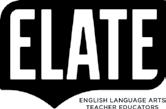
IJEOMA OLUO is a Seattle-based writer, speaker, and internet yeller. She is the author of the #1 New York Times bestselling books So You Want to Talk about Race; Mediocre: The Dangerous Legacy of White Male America; and Be a Revolution: How Everyday People Are Fighting Oppression and Changing the World—and How You Can, Too. Her work on race and gender has been published in The New York Times, the Washington Post, and NBC News, and she has been featured on The Daily Show and NPR’s All Things Considered. Named on the TIME100 Next list and The Root 100, she’s been awarded the Harvard Humanist of the Year Award, the American Humanist Association’s Feminist Humanist Award, Gender Justice League’s Media Justice Award, and the Equal Opportunity Institute’s Aubrey Davis Visionary Leadership Award.
Visit the NCTE Registration Desk to purchase a ticket to this meal event (pending availability).
A book signing will follow the luncheon.

View the updated program details here!
Session proposals and their descriptions were created by the session speakers and reviewed through a peer-review process. Session content does not necessarily reflect NCTE policies or positions.
11:30 A.M.–1:30 P.M.


RUTA SEPETYS (rutasepetys.com) is an internationally acclaimed, #1 New York Times bestselling author of historical fiction published in over sixty countries and forty languages. Her novels Between Shades of Gray, Out of the Easy, Salt to the Sea, The Fountains of Silence, and I Must Betray You have won or been shortlisted for more than forty book prizes and are included on more than sixty state award lists. Between Shades of Gray was adapted into a graphic novel and the film Ashes in the Snow, and her other novels are currently in development for TV and film. She is also the author of You: The Story. A winner of the Carnegie Medal, Sepetys is passionate about the power of history and literature to foster global awareness and connectivity. She has presented to NATO, to the European Parliament, in the United States Capitol, and at embassies worldwide. Sepetys was born and raised in Michigan and now lives with her family in Nashville, Tennessee. Follow her on X and Instagram (@RutaSepetys) and on Facebook (facebook.com/RutaSepetys).
STEVE SHEINKIN is the acclaimed author of fast-paced, cinematic nonfiction histories, including Impossible Escape, Fallout, Undefeated, Born to Fly, The Port Chicago 50, and Bomb. His accolades include a Newbery Honor, three Boston Globe–Horn Book Awards, a Sibert Medal and Honor, and three National Book Award finalist honors. He lives in Saratoga Springs, New York, with his wife and two children. He can be found online at SteveSheinkin.com. Follow him on X (@SteveSheinkin) and on Facebook (facebook.com/Steve.Sheinkin).
Visit the NCTE Registration Desk to purchase a ticket to this meal event (pending availability).
A book signing will follow the luncheon.
Session proposals and their descriptions were created by the session speakers and reviewed through a peer-review process. Session content does not necessarily reflect NCTE policies or positions.
G.1 HS Matters—Indigenizing English Education: Centering Indigenous Voices and Critiquing Settler Colonialism
ROOM 252 B (LEVEL 2)
Sponsored by the Secondary Section Steering Committee
This session highlights Indigenous and non-Indigenous secondary English teachers whose curricula: 1) facilitates students’ understandings of and abilities to navigate settler colonialism as an ongoing structure in the US; and 2) centers Indigenous texts and worldviews. Presenters discuss specific lessons/units they have developed, and audience members will leave with concrete ideas to implement.
Chair: Joaquin Munoz, University of British Columbia
Presenters: Jake Arrowtop, Buffalo Hide Academy
Jake Krane, Buffalo Hide Academy
Robert Petrone, University of Missouri
Nicholas Rink, Buffalo Hide Academy
Respondent: Timothy San Pedro, The Ohio State University
G.2 Community Perspectives in Immigrant and Refugee Education
ROOM 104 A (LEVEL 1)


In this session, presenters will highlight how communities can impact the educational lives of refugee and immigrant groups. Topics include heritage language development, migrant teachers, and supports for refugee and displaced communities.
Presenters: Chenlu Jin, Michigan State University, “Fostering Heritage Language Learning among Immigrant Families through Co-designing Community-Engaged Workshops with Asian American Youth”
Yeji Kim, University of Missouri, “Harnessing Transnational Funds of Knowledge through Translanguaging Pedagogy: Insights from an Asian Migrant Teacher”
Jungmin Kwon, Michigan State University, “Fostering Heritage Language Learning among Immigrant Families through Co-designing Community-Engaged Workshops with Asian American Youth” & “Harnessing Transnational Funds of Knowledge through Translanguaging Pedagogy: Insights from an Asian Migrant Teacher”
Min Yu, “Fostering Heritage Language Learning among Immigrant Families through Co-designing Community-Engaged Workshops with Asian American Youth”
G.3 Critical Literacies through Schoolwide Civic Engagement and Algorithms for Change

ROOM 104 C (LEVEL 1)
This plan explores ways critical literacies foster change. The first presentation shares a civic engagement project carried out by a K–6 school community using children’s interests, to contribute to making the world a more humane place. The second discusses a course curriculum on algorithmic literacy, including major assignments, daily activities, and other resources.
Presenters: Carolyn Clarke, St. Francis Xavier University, “Making School with Children: Schoolwide Civic Engagement and Critical Literacies in K-6 Classrooms”
Rachel Morgan, University of Louisville, “Algorithms for Change: Fostering Critical Digital Literacy in the Composition Classroom”
Vivian Vasquez, American University, “Making School with Children: Schoolwide Civic Engagement and Critical Literacies in K-6 Classrooms”
G.4 Developing Antiracist and Critically Conscious Preservice and Inservice Teachers
ROOM 153 B (LEVEL 1)


Centering teacher reflection and action, this panel examines the development of critical race consciousness and antiracist orientations in preservice and inservice ELA teachers, focusing on the power of narrative inquiry as a reflective tool, methods for developing antiracist orientations to racial literacy, and strategies for aiding teachers in taking up theory and practices of culturally responsive and sustaining pedagogies.
Presenters: Shaylyn Marks, California State University, Bakersfield, “Cultivating Identity with Preservice Educators as a Means to Develop Culturally Responsive and Sustaining Pedagogies”
Joanelle Morales, Colorado Mesa University, “Teaching and Sharing Critical Race Consciousness among Preservice English Teachers”
Faith Thompson, Salisbury University/Archbishop Spalding High School, “Developing Antiracist Orientations to Racial Literacy in Preservice and Inservice Teachers”
Session proposals and their descriptions were created by the session speakers and reviewed through a peer-review process. Session content does not necessarily reflect NCTE policies or positions.
Building Student
around Writing ROOM 153 A (LEVEL 1)


In a time when student apathy is one of our greatest barriers. In an attempt to meld classic literature with current, relevant topics, we will share our unit plan, student samples, and reflections on how to build student independence with writing. By using model texts, student-led discussion, and cyclical writing with feedback we will share the strategies that led to higher student achievement.
Presenters: Brianna Gee, Hillcrest High School Lesli Morris, Canyons School District
G.6 Formal Writing Instructional Strategies ROOM 153 C (LEVEL 1)

This combined panel offers insight into preparing students in formal writing settings. From an exploration of ways to teach grammar in creative writing settings to finding critical crossover connections between literary analysis and composition.
Presenters: Michael Albright, Southwest Minnesota State University, “Critical Crossovers between Composition and Literature for Concurrent Enrollment Teachers of English”
Catherine Carter, Western Carolina University, “Accountant Bill versus the Zombie Hagfish: Class-Generated Narrative, Grammar and Conventions Instruction, and Engagement”
G.7 Humanizing Teaching and Teacher Education through Artful Inquiry and Writing ROOM 159 (LEVEL 1)


What is the role of art and writing in teaching and teacher education? This panel explores innovative approaches to incorporating art and writing instruction in education, including the use of artful inquiry, engagement with contemporary art, and the integration of Design-Based Learning and Project-Based Learning frameworks to create culturally relevant writing high school and college classrooms.
Presenters: Claire Biscoe, University of Wisconsin-Eau Claire, "Critical Explorations: Using Artful Inquiry to Humanize Assessment in an Adolescent Literature Class"
Emily Freeman, University of Wisconsin-Eau Claire, “Critical Explorations: Using Artful Inquiry to Humanize Assessment in an Adolescent Literature Class”
Jacqueline Preston, Utah Valley University, “Writing as Assemblage: Designing Culturally Relevant DBL/PBL Classrooms”
Wendy Tronrud, Queens College, “‘How can the master’s tools dismantle the master’s house?’: Engaging New Teachers in Contemporary Art”
G.8 Innovations in Preservice ELA Teacher
Education: Field Experiences, Residencies, and Professional Learning Communities
ROOM 160 A (LEVEL 1)
This panel showcases innovative approaches to English language arts teacher preparation and professional development, including collaborative networks for preservice teachers during field experiences, redesigned methods courses in a teacher residency focusing on cultural sustainability and antiracism, and asynchronous support tools for teaching controversial topics, all aimed at enhancing learning and teaching in the ELA classroom.
Presenters: Michelle Commeret, University of Florida, “Equipping Middle School ELA Teachers with Asynchronous Support Surrounding Controversial Conversations: Innovative Approaches to Critical Professional Learning”
Denise Morgan, Western Carolina University & Kristine Pytash, Kent State University, “Developing Collaborative Networks to Support English Language Arts Preservice Teachers’ Learning in Literacy Field Experiences”
Andrew Torres & Karoline Trepper, New York University, “Meeting the Moment: English Education for the Culture and Beyond”
G.9 LGBTQIA+ Perspectives in the ELA Classroom
ROOM 206 B (LEVEL 2)

This session features a comprehensive approach to creating a curriculum and teaching a course in LGBTQIA+ literature, including suggestions about the process for approval and leveraging existing supports. Additionally, attendees will learn approaches to help students critically analyze, discuss, and write about LGBTQIA+ topics in canonical works.
Presenters: Kristen Srsen Kenney, Bay High School, “Strategies to Include LGBTQIA+ Themes When Reading Canonical Works in the ELA Classroom”
Stacey Kiggins, Fairfax County Public Schools, “Teaching LGBTQIA+ Perspectives in Literature”
Session proposals and their descriptions were created by the session speakers and reviewed through a peer-review process. Session content does not necessarily reflect NCTE policies or positions.
G.10 Shake Up Shakespeare: Changing How We Look at Teaching the Bard ROOM 256 (LEVEL 2)


G.13 50 Years of the National Writing Project and Teacher Leadership (The Power of Inquiry)

This combined panel will change the way you look at teaching the Bard. Add to your teaching repertoire new ways to engage students with canonical Shakespeare. From forming book clubs to new strategies, this session will revive your students’ interest in drama and classic literature.
Presenters: Sheridan Steelman, Grand Valley State University, “16th Century Shakespeare and 21st Century Students: Using Book Clubs to Hook Readers and Span Centuries” & “Follow the Yellow Brick Road through Shakespeare’s Sonnets: Alternatives to Teaching the Bard’s Plays”
Audra Whetstone, Northview High School, “16th Century Shakespeare and 21st Century Students: Using Book Clubs to Hook Readers and Span Centuries”
G.11 “A Room Where I Can Be Who I Am”: Diving into the 826 Writers’ Room Model ROOM 207 (LEVEL 2)

At 826, the largest youth writing network, we know that writing is the key to cultivating a new generation of thinkers. One way we engage students is through the 826 Writers’ Room, a creative space within a school dedicated to writing. This session will share the Writers’ Room model, firsthand experiences from educators, and research from Northeastern University showing that this model works.
Presenters: Emily Mann, Northeastern University Carolyn Navikonis, 826 Boston Gabriela Oliveira, 826 National
G.12 “You Ate That Up”: Student Scholar-Artists from Boston Arts Academy Speak to How ArtsIntegrated Literacy Projects in Their Classes Help Them Excel
ROOM 051 (EXHIBIT LEVEL)
The focus question of this panel presentation will be about how literacy projects in the arts-integrated classes at Boston Arts Academy positively impact student learning and achievement. Students will share their work and perspectives in an interactive format. The panel will be framed by compelling research and include an introduction to the Arts Academy, Boston’s only public arts high school.
Presenter: Jen Rose-Wood, Boston Arts Academy
ROOM 102 A (LEVEL 1)
In this interactive, reflecting, and engaging session, the National Writing Project, staff members, and friends are invited to celebrate and share a window into 50 years of NWP work, including inquiry projects and publications, while looking back in time for studies and influences on the work and the ways we might see writing instruction moving forward.
Presenters: Tanya Baker, National Writing Project
Bryan Ripley Crandall, Connecticut Writing Project/Fairfield University
Jessica Early, Arizona State University
Kristen Turner, Drew University/Drew Writing Project
G.14 Beyond Biographies: Empowering Students to Access Their Own Creative Voice
ROOM 252 A (LEVEL 2)
In this session, educators and award-winning children’s authors will highlight picture book biographies of individuals who impacted change through activism and art. Panelists will share strategies for using mentor texts, practicing specific craft moves, and empowering student voices. These ideas can be implemented right away and used across various ages, abilities, and curricula.
Presenters and Tradebook Authors/Illustrators: Nina Crews, Christy Ottaviano Books/LBYR
Angela Burke Kunkel, Vergennes Union Middle High School/ Random House Children’s Books
Kari Lavelle, Random House Children’s Books/Sourcebooks
Katie Mazeika, Simon & Schuster
Nadia Salomon, Philomel Books/PYR
G.15 Beyond Bridges for Multilingual Learners: Student-Centered and Student-Driven Practices for Equity

ROOM 103 (LEVEL 1)
Our schools can be spaces where all students, especially those from socially and historically marginalized backgrounds, are given space to learn and challenge themselves. We will share specific strategies to counter deficit-based narratives about immigrant and multilingual students. Teachers will share pedagogical methods while students will discuss personal experiences and ideas for change.
Presenters: Casey Andrews, Watertown Public Schools, MA
Luciana Castro, Watertown High School
Ketly DeOliveira, Watertown High School
Eduardo De Souza, Watertown High School
Gilberto Anastacio Do Silva Junior, Watertown High School
Eduardo Espada, Watertown High School
Session proposals and their descriptions were created by the session speakers and reviewed through a peer-review process. Session content does not necessarily reflect NCTE policies or positions.
Eduar Lopez Gamez, Watertown High School
Lori Kouyoumjian, Watertown High School
Uendel Batista Santana, Watertown High School
Layra Souza Silva, Watertown High School
Gabriele Souza, Watertown High School
Maria Venus, Watertown High School
G.16 Breaking Out of a Teaching Rut: Sharing Stories of Breakthroughs to Transform Teaching ROOM 150 (LEVEL 1)
In this session, National Writing Project site leaders share the power of educational breakthroughs, inviting participants into a space where burnout is replaced with a renewed passion for teaching. Resources, writing activities, and writing samples will be shared to help session attendees turn educational challenges into transformative learning experiences for themselves and their students.
Presenters: Megan Breaux, University of Louisiana at Lafayette
Toby Daspit, University of Louisiana at Lafayette
H. Michelle Kreamer, University of Louisiana at Lafayette
G.18 Civic Connection in the ELA Classroom: Teachers Sharing Strategies from the NCTE Digital Democratic Dialogue (3D) Project ROOM 258 B (LEVEL 2)
In this session, secondary ELA teachers from across the United States share strategies for fostering civic learning based on their experience participating in the NCTE 3D Project--a network that connects classrooms across time and space to encourage students and teachers to share their experiences, opinions, and hopes for their civic futures.
Presenters: Janelle Bence, North Star of Texas Writing Project/ New Tech High at Coppell
Peter Haun, Oak Park High School
Christopher Kline, Western Hills University High School
Shonterrius Lawson-Fountain, Center Point High School
Nicole Mirra, Rutgers University
Christina Puntel, W.B. Saul High School
Mary Louise Richards, Otter Valley High School
Molly Robbins
Morgan McGlone Smith, Northeast High School
Gabriel Valdez, Pacifica High School
Megan Pittman Wurth, Macomb Senior High School
G.19 Collecting Possibility from the Writing of YA Literature
ROOM 253 A-C (LEVEL 2)
We collect our knowledge of writing from reading. We imagine our voice on the page. Two award-winning YA authors will share how they craft sentences and characters; two teachers will show how this craft impacts the curiosity and creativity of young people.
Presenters and Tradebook Authors/Illustrators: Kwame Alexander, Little, Brown Books
Kelly Gallagher, Anaheim Union High School District
Penny Kittle, Plymouth State University
Amy Sarig (A.S. King) King, Dutton
G.20 Coming Together in Solidarity During Contentious Times: Teacher Action Research, a Pathway for Sustainable Change in Teaching for Justice

ROOM 160 C (LEVEL 1)
Identifying ways of resisting external mandates and inequitable policies that fail to speak to the unique needs and strengths of our learners and teaching is overwhelming and isolating. Join teachers who share how action research in community with others fuels their fire and offers hopeful possibilities for resisting the status quo necessary to teach for justice and enact humanizing pedagogies.
Presenters: Kelly Adkins, Mahomet-Seymour High School/Illinois State University
Raquel Armas, Hamlin Upper Grade Center, District 125/Illinois State University
Robin Atwood, University of Southern Mississippi/South Mississippi Writing Project
Leah Barnett, Oakland-Flint Writing Project/Royal Oak High School
Linda Denstaedt, Oakland-Genesee Writing Project
Mark Dziedzic, Greater Madison Writing Project/University of Wisconsin-Madison
Danielle Lillge, Illinois State University
Jenny Magee, Greater Madison Writing Project/Northside Elementary School
Bryn Orum, Greater Madison Writing Project
Session proposals and their descriptions were created by the session speakers and reviewed through a peer-review process. Session content does not necessarily reflect NCTE policies or positions.
G.21 Designing a Joyful Antiracist Writing and Literature Curriculum ROOM 258 C (LEVEL 2)
To aid teachers designing antiracist curricula, Western Massachusetts Writing Project created a course based on Gholdy Muhammad’s 5 Pursuits of Culturally and Historically Responsive Education and focused on humanizing writing pedagogy, selecting diverse readings, antiracist literary critiques, and ways to infuse joy. Instructors will explain course design; participants will share insights and applications.
Presenters: Violet Alvarado-Slatis erin feldman
Jeannette Lee-Parikh, The Cambridge School of Weston, MA
Bruce Penniman, Western Massachusetts Writing Project/ University of Massachusetts Amherst
G.22 Disrupting White Narratives about Race through Podcasting ROOM 206 A (LEVEL 2)
Three researchers present their study of podcasting in a secondary government class. Learn how a studentled investigation into the legacy of redlining offered meaningful and engaging opportunities for students to ask deep and meaningful questions about the nature of privilege and their own communities. We will explore the nature of antiracist pedagogy in mostly white schools.
Presenters: Rhonda Hylton
Molly Schneider, Notre Dame Cathedral Latin School
Beth Walsh-Moorman, ESC of the Western Reserve
G.23 The Intersection of Collective Histories, Communities, and Literacy Pedagogies

ROOM 156 A (LEVEL 1)
Sponsored by the Early Career Educators of Color Leadership Award
This panel features projects developed by winners of the 2023 NCTE Early Career Educators of Color Leadership Award. This panel will focus on the projects of two award winners. Infusing history, art, and communitybased literacies, the projects will include a focus on reshaping higher education courses and resources that focus on multiliteracies and community-based literacies.
Presenters: G. Edzordzi Agbozo, University of North Carolina Wilmington
Andy Chen, John Burroughs School; Early Career Educator of Color Co-Director
Sherita Roundtree
Respondent: Tiffany A. Flowers, Early Career Educator of Color Co-Director
G.24 Embracing Artificial Intelligence in the Classroom: How AI and Grammar Instruction Can Make Learning Relevant, Purposeful, and Engaging
ROOM 152 (LEVEL 1)
How can we bridge the divide between the realities of AI and the literacies of the ELA classroom? In this session, participants will explore grammar and language myths, both traditional and modern. Then, participants will examine how AI can help students engage with language in purposeful ways. From paragraphing to genre, AI can help expand our worlds and understandings of language possibilities.
Presenters: Darren Crovitz, Kennesaw State University
Michelle Devereaux, Kennesaw State University
Rob Montgomery, Kennesaw State University
G.25 Everything You Need to Know about Participating in the NCTE Book Awards . . . and More!
ROOM 203 (LEVEL 2)
Sponsored by the Charlotte Huck Award® for Outstanding Fiction for Children, the Orbis Pictus Award® for Outstanding Nonfiction for Children, and the Notable Children’s Poetry Books and Verse Novels List
Calling all educators and literature enthusiasts! Want to get involved with NCTE’s Awards for Excellence in Children’s Literature? Come meet the committees of the Charlotte Huck, Orbis Pictus, and Poetry/Verse Novel awards to learn about the different ways educators, librarians, publishers, literacy advocates, and students can participate! All are welcome.
Presenters: Cecilia Espinosa, Lehman College
Julia Lopez-Robertson, University of South Carolina
Junko Sakoi, Tucson Unified School District
G.26 Finding Hope in Harsh Times: Using Verse Novels to Explore Challenging Topics in History

ROOM 160 B (LEVEL 1)
Verse novels can help classrooms of students explore disturbing topics in history without overwhelming them with information. Students may connect personally to protagonists from the past and from those connections build strengths to carry into the world. The panelists will suggest ways poetry can deepen knowledge of history’s rough edges while highlighting moments that offer hope.
Presenters and Tradebook Authors/Illustrators: Jeannine Atkins, Simon & Schuster
Marcie Atkins, Oak View ES, Fairfax County Public Schools, VA/ Versify
Nadine Pinede, Candlewick
Kip Wilson, Versify
Session proposals and their descriptions were created by the session speakers and reviewed through a peer-review process. Session content does not necessarily reflect NCTE policies or positions.
G.27 Flex Your Sketch: Visual Thinking for Comprehension, Composition, and Creativity ROOM 156 C (LEVEL 1)
The benefits of visual thinking are established: deeper comprehension, easier recall/retrieval, increased focus and immersive attention. Yet perhaps your inner voice says “I’m not artistic.” Not to worry. There’s hope! Join us for accessible strategies designed for learners of all ages and abilities. By the end of this session, you’ll optimistically welcome the possibilities for your classroom.
Presenters: Paula Bourque, Augusta School Department
Jarrett Lerner, Simon & Schuster (Aladdin Imprint)
Tanny McGregor, Tanny McGregor Consulting
Kim Zajac, Norton Public Schools
G.28 Fostering Connections and Community through Racial and Social Justice Literacy ROOM 255 (LEVEL 2)
This presentation will demonstrate how implementing a reading and writing for social justice unit with middle schoolers fostered community, collaboration and racial awareness among the diverse young people in those classrooms. Attendees will leave with tools to implement a curriculum that embraces inquiry and empowers students to tackle injustice both in their own communities and in the world.
Presenters: Dana Johnson, Round Rock ISD
Miles Phillips, Round Rock ISD
Sidonie Phillips, Austin Community College
Alice Strenger, Round Rock ISD
G.29 From Fart Jokes to Freedom: How Humor in Middle Grade Novels Can Help Young Readers Find Their Own Voices and Imagine a Better Future
ROOM 162 B (LEVEL 1)
Learn creative ways to use humor in middle grade novels to break down barriers, build empathy, and talk about tough issues from authors writing laugh-out-loud comedy on everything from perfectionism to puberty to fear and grief.
Presenters: Kaitlin Long, Powhatan High School
Tradebook Authors/Illustrators: Nashae Jones, Simon & Schuster
Allie Millington, Macmillan
Laura Parnum, HarperCollins
G.30 From Head to Heart to Hand: The Secret of Crafting Engaging Nonfiction ROOM 162 A (LEVEL 1)


Why does students’ nonfiction writing often seem dull and lifeless? Because their hearts just aren’t in it. Listen in as four award-winning authors discuss how they choose a topic, identify a core idea of personal interest, and analyze and synthesize their research to craft engaging prose that’s uniquely their own. They’ll also share strategies to help young writers create nonfiction that sings.
Chair: Grace Enriquez, Lesley University
Tradebook Authors/Illustrators: Lesa Cline-Ransome, Simon & Schuster
Candace Fleming, Random House Children’s Books
Melissa Stewart, Reycraft
Traci Sorell, Charlesbridge
G.31 From Studying about Antiracist ELA to Enacting It in the Classroom ROOM 254 A (LEVEL 2)


A group of white, female middle and high school ELA teachers and teacher educators have been meeting virtually, monthly, for three years to support each other in implementing antiracist ELA in classrooms. Panelists will share the structures of meetings, examples of challenges faced and curricular and other strategies utilized to address them, and the impact on students of these efforts.
Presenters: Rebecca Ashley, Canton Public Schools 6–12
Cara Crandall, Glenbrook Middle School
Brittany Cross, Hampden Charter School of Science
Katie Eressy, South High Community High School
Sophia Sarigianides, Westfield State University
Meredith Webber, Holyoke High School
Respondents: Carlin Borsheim-Black, Central Michigan University
Susan Groenke, The University of Tennessee
Session proposals and their descriptions were created by the session speakers and reviewed through a peer-review process. Session content does not necessarily reflect NCTE policies or positions.
G.32 Heart, Hope and Humanity in the Age of Misinformation: Creative Strategies for Teaching Media Literacy with Award-Winning AuthorJournalists ROOM 156 B (LEVEL 1)

In print, online, and increasingly through AI, students are being bombarded with misinformation, disinformation and mal-information. Award-winning authors who have worked as journalists will share exercises and strategies for teaching students to sharpen critical literacy skills in and out of the classroom. Jennifer LaGarde, an educator specialist in media literacy, will moderate.
Moderator: Jennifer LaGarde, Rutgers University
Presenters and Tradebook Authors/Illustrators: Martha Brockenbrough, Macmillan
Katherine Marsh, Macmillan Children’s Publishing Group/Clarion/ Harper Kids
Dashka Slater, Macmillan Children’s Publishing Group
G.33 Hope Is a Verb: Meeting Censorship with Action ROOM 208 (LEVEL 2)
Sponsored by the Standing Committee Against Censorship
The Standing Committee Against Censorship (SCAC) will offer an overview of the current state of censorship in ELA classrooms, feature a local author to share their perspectives on censorship and storytelling, and offer teachers’ stories of navigating censorship. The SCAC will close the session by highlighting resources and events that participants can attend that address censorship and teaching.
Committee Members: Katie Burnett, Edgewood High School
Mark Letcher, Lewis University
Pamela Mason, Harvard University
Tadayuki Suzuki, SUNY Cortland
Presenters: Katharine Covino-Poutasse, Fitchburg State University
Ann David, University of the Incarnate Word
Christine Emeran, National Coalition Against Censorship
Jo Knowles, Candlewick
Respondent: Christina Dobbs, Boston University
G.34 Inquiry to Activism: How Teacher Communities Support Action in Challenging Times ROOM 151 B (LEVEL 1)

Panelists will explore how teacher communities provide a homeplace for educators as they navigate challenging sociopolitical times. Examples will explore what these communities meant to the participants and how they supported teachers in taking action in their classrooms, schools, and districts. Participants will consider how teacher communities can be created and supported in their contexts.
Presenters: Rebekah Adams, University of Georgia
Madison Gannon, University of Georgia
Emily Grove, University of Georgia
Jill Hermann-Wilmarth, Western Michigan University
Brenda Jaster
Laura Jimenez, Boston University
Kathleen Riley
Caitlin Ryan, University of North Carolina Wilmington
Ryan Schey, University of Georgia
Lindsay Coleman Taylor
G.35 Life Histories: Empowering Youth in an Urban School through Story and Drama ROOM 052 A (EXHIBIT LEVEL)
Life Histories can become a strong catalyst to evoke emotion, compassionate understanding, and the acknowledgement of difference and its challenges. This project works with middle school youth in an urban district. It shows that talking about story, and engaging in collaborative writing and dramatic performances creates a deeper understanding of students’ lives and of possibilities in the broader world.
Presenters: Susan Browne, Rowan University
Tonya Howard-Obamoh, Mastery Charter School, Camden, NJ
Valarie Lee, Rowan University
Marjorie Madden, Rowan University
G.36 Living Out Our Truths: LGBTQIA+ Asian American Youth Narratives as an Escape and Anchor
ROOM 204 A (LEVEL 2)

Our session incorporates student voices that offer reflections and takeaways on reading LGBTQIA+ texts. We will include lesson activities, personal writing, media artifacts, and assessment products. These artifacts will be used to deepen our conversation on ways educators can support and celebrate Asian American LGBTQIA+ youth and lived experiences.
Presenters: Tasha Lindo, University of Iowa
Diana Liu, Brooklyn Technical High School/Teachers College, Columbia University
Session proposals and their descriptions were created by the session speakers and reviewed through a peer-review process. Session content does not necessarily reflect NCTE policies or positions.
G.37 Missing the Heart of It: The Effects of (Pre)
Scripted Curricula in the ELA Classroom
ROOM 259 B (LEVEL 2)


Presenters will share findings of an ongoing qualitative research study of a widely-used scripted ELA curriculum. This study provides an analysis of perspectives on the curriculum and its impact when implemented: missing heart and humanity as felt by teachers and, subsequently, by students. Participants and presenters will collaborate to create a network of support and resources.
Presenters: Laura Jacobs, Towson University
Janell Miller, North Carolina State University
Sarah Montello, North Carolina State University
Carl Young, North Carolina State University
G.38 No More Fake Reading! Leveraging Reading Conferences to Build Student Success and Engagement
ROOM 157 C (LEVEL 1)
Tired of watching kids fake read? Learn strategies that bring clear purpose to independent reading. This panel of teachers will share how they addressed the problem of disengaged readers through reading conferences. Walk away with strategies for building rapport with students, managing time, getting and giving quality feedback about reading, and deciding what to do with the information you gain.
Presenters: Brooke Carpenter, Colonial Middle School
Christine Gaetano, Colonial Middle School
Joe Pacitti
Amanda Thornton, Colonial Middle School
Joan Warwick, Colonial Middle School
G.39 Refining Our Practice for a Loving Pedagogy ROOM 157 B (LEVEL 1)
In this cultural and sociopolitical moment, the conversation about love, hope, and humanity in education is urgent. This panel will discuss how to nurture learning spaces where students realize their genius and inform attendees’ teaching stance as well as philosophy, compelling them to revise aspects of their practice.
Chair: Vivett Dukes, Teachers College, Columbia University
Presenters: Lorena German, Multicultural Classroom
Gholdy Muhammad
Respondent: Chanea Bond, Fort Worth ISD
G.40 Representations of Trans, Nonbinary, and Gender-Nonconforming Characters in AwardWinning Books

ROOM 251 (LEVEL 2)
This research evaluates LGBTQ+ award-winning picture books featuring trans, nonbinary, and gendernonconforming characters, through an analysis of conflicts and recurring plot lines. We identify predominant plot lines and critique their inherent messages in recommended and not recommended books. Lastly, we suggest key questions educators can use when selecting LGBTQ+ books for children and youth.
Presenters: Wendy Keyser, Fitchburg State University
Alyssa Whitford, Hope College, Holland, MI
G.41 Restoring Humanity to Striving Adolescent Readers
ROOM 209 (LEVEL 2)

Literacy ability—and gaps in literacy ability—have farreaching consequences for students, including lasting perceptions of themselves and their place in society. This session explores how to build empathic, restorative mindsets by using high-yield instructional practices to reduce shame and anxiety for striving adolescent readers.
Presenters: Lauren Spenceley, Arizona Department of Education
Jason Stephenson, Oklahoma State Department of Education
Kristen Tinch, Kentucky Department of Education
Naomi Watkins, Utah State Board of Education
G.42 Social Issues Are Human Issues: How Picturebook Biographies Help Teachers and Students Engage Personally with Social Justice Issues

ROOM 104 B (LEVEL 1)
Most students are bombarded by social issues, but they too often think of them as problems faced by other people. Such disconnect risks a lack of societal empathy and interest in becoming positive changemakers. Award-winning authors and educators share how true stories, told in compelling ways, can draw hope while encouraging engagement within and beyond students’ personal spaces.
Presenters: Donna Janell Bowman, Little, Brown Books for Young Readers
Evan Griffith, Harper/Vermont College of Fine Arts
Session proposals and their descriptions were created by the session speakers and reviewed through a peer-review process. Session content does not necessarily reflect NCTE policies or positions.
G.43 Social Media: Pluses, Minuses, and Middle Grade Novels That Help Students Sort It All Out ROOM 154 (LEVEL 1)
The tween years are a vulnerable time when students seek connection and affirmation. For many, social media feels crucial to identity, even as its pressures can be hard to handle. This panel of middle grade authors will discuss how fiction provides a safe space for exploring the ups and downs of social media, helping readers find their way to authenticity in themselves and their relationships.
Tradebook Authors/Illustrators: Melanie Conklin, Little, Brown and Company Books for Young Readers
Sydney Dunlap, North Star Editions/Jolly Fish Press
Amar Shah, Scholastic
Tricia Springstubb, Holiday House/Peachtree/Pixel+Ink
Andrea Wang, Kokila Books/Neal Porter Books
G.44 Spreading the Love of Reading from Middle School Classroom to Greater Community ROOM 052 B (EXHIBIT LEVEL)
Belmont Ridge Middle School, like schools across the country, wants its kids to read! How better to encourage reading than to engage the wider community, including staff members and families? Our reading push includes the Million Word Challenge, family book club, staff book club, and schoolwide challenges. Learn about these initiatives and brainstorm how to hype up reading at your school.
Presenters: Heidi Branch, Loudoun County Public Schools
Lori Bryant
Mathias Bryant
Katherine Chiet, Loudoun County Public Schools
Maggie Mason, Loudoun County Public Schools
Margaret Stokes, Loudon County Public Schools
G.45 Teach, Strike, Teach: Inspiring Hope and Fostering Racial and Economic Equity through Social Justice Unionism
ROOM 254 B (LEVEL 2)

In this panel, teachers and teacher educators will share stories and invite attendees to join a discussion about how ELA teachers’ careers and classroom practices can be transformed by their involvement in “social justice unionism,” a model of activism that highlights how teacher unions can struggle (and bargain) for a comprehensive, humanizing, and antiracist vision of schools and communities.
Presenters: Todd DeStigter, University of Illinois Chicago
Nora Flanagan, Chicago Teachers Union
Melina Lesus, Chicago Public Schools
G.46 Teaching in Troubled Times: How to Understand and Navigate the Cultural Conflicts of the Times
ROOM 157 A (LEVEL 1)
Participants in this session will discuss the types and sources of conflict increasingly common in schools and even, for some, the profession itself. The session will focus on how to understand and respond to the challenges of the texts we teach, the instructional techniques we use, and the topics we ask students to study and write about.
Presenters: Deborah Appleman, Carleton College
Jim Burke, Corwin
Carol Jago, University of California Los Angeles
G.47 The Scientific Superpower of Curiosity: How Stories of Scientists Spark Inquiry, Critical Thinking, and Hope in the Classroom and Beyond ROOM 151 A (LEVEL 1)
In a world rife with science denialism, stories featuring scientists and scientific discoveries are our best hope for sparking critical thinking, inquiry, action, and optimism in young readers. This session features four acclaimed nonfiction authors paired with an inquirydriven educator who explore strategies for sharing these and other science trade books in elementary and middle school classrooms.
Presenters and Tradebook Authors/Illustrators: Sarah Albee, Charlesbridge
Loree Griffin Burns, Candlewick/MITKids
Melissa Guerrette, Oxford Elementary School, MSAD17
Rajani LaRocca, Little Bee Books/Candlewick/HarperCollins/ Abrams/Penguin Random House
Kate Messner, Bloomsbury Children’s Books
Angela Padron, Atheneum Books/educator
G.48 Windows, Mirrors, and Barn Doors: Busting Stereotypes in Rural Literacy and Literature ROOM 257 A (LEVEL 2)

Students in rural America are a minority, and even with a push for more diverse literature, realistic narratives that mirror the lives of the 9.3 million rural students are still underrepresented. Join seven authors and the 2023 Rural Indiana Teacher of the Year in exploring ways to amplify rural voices and ensure accurate representation to help overcome the stereotypes prevalent in children’s literature.
Presenters and Tradebook Authors/Illustrators: David Bowles, Bloomsbury Press
Kimberly Brubaker Bradley, Penguin Random House/Dial Books For Young Readers
Session proposals and their descriptions were created by the session speakers and reviewed through a peer-review process. Session content does not necessarily reflect NCTE policies or positions.
Nora Shalaway Carpenter, Running Press Kids/Hachette Book Group
Leigh Anne Eck, Vincennes Community School Corporation
Jewell Parker Rhodes, Arizona State University/LBYR
Nanci Turner Steveson, HarperCollins/Quill Tree
G.49 Writing Memoir with YA Authors: Raise Your Voice, Claim Your Story
ROOM 102 B (LEVEL 1)
Memoirs by queer authors and authors of color invite diverse students to claim and share their stories. In this interactive session, three authors of recently published illustrated memoirs will share their books’ origins, craftbased excerpts for close reading and discussion, and writing invitations. Participants will leave with seeds for their own memoirs and quickwrites to use with students.
Chair: Jennifer Buehler, Saint Louis University
Tradebook Authors/Illustrators: Huda Fahmy, Penguin Random House
Jonell Joshua, Levine Querido
Sarah Myer, Macmillan
G.50 A Functional Approach to Teaching Writing: SFL Multilingual Genre Pedagogy
ROOM 161 (LEVEL 1)
Sponsored by the North American Systemic Functional Linguistics Association
Systemic Functional Linguistics informed approach to teaching writing uses the Teaching and Learning Cycle to scaffold instruction and encourages flexibility of language use. Students make meaning using all their language resources, reflecting their cultural and linguistic identities. The session will explain and illustrate with classroom examples all the components of the pedagogy.
Chair: Maria Estela Brisk, Boston College
Presenters: Jennifer Dines, Boston Public Schools
Elizabeth MacDonald, Boston Public Schools
G.51 #HackYourStack 2.0: Lessons for Critical Media Literacies with Digital Texts
ROOM 258 A (LEVEL 2)

While NCTE’s #BuildYourStack presentations focus on developing physical classroom libraries, this session’s #HackYourStack presentations will support teachers in developing multimodal and networked “libraries” as well as accompanying critical media literacy strategies to use in our classrooms. Participants will have the
opportunity to access or contribute to a crowdsourced #HackYourStack platform.
Presenters: Trevor Aleo, Greenwich Country Day School
Rabani Garg, University of Pennsylvania
Karis Jones, Empire State University SUNY
William Kist, Kent State University
Angel Huynh Ky, DeWitt Middle School
Caroline B. Rabalais, Georgia State University
Dianne Wellington
G.52 Critical Pedagogy and Closing the Literacy Achievement Gap

ROOM 204 B (LEVEL 2)
Nationwide only 32% of students from HUP are at or above level in reading, maintaining a steady achievement gap (Diette, 2021; Hammond, 2015). This session will allow educators to discuss current best practices in Reading Comprehension and Critically Responsive Teaching & explore how background knowledge is built and how is this knowledge is utilized to generate higher order thinking skills.
Presenters: Robyn Lee-Diaz, Clark County School District
Latoya McIntosh, Proviso Township High School
G.53 Illuminating Our Humanity: Exploring Literature for Empathy, Understanding, and Enacting Change
ROOM 205 B (LEVEL 2)
How can teachers create opportunities that enable students to illuminate humanity? Let the literature do the work! This session explores works focusing on the human experience and our need to empathize with each other in order to enact change. Participants will walk away with ideas for teaching Fences, Frankentstein, The Nickel Boys, Othello, Song of Solomon, and Their Eyes Were Watching God.
Roundtable Leaders:
Table 1: Cindy Dixon, Richmond Hill High School, “Fences”
Table 2: Kelli Sowerbrower, Northgate High School, “Their Eyes Were Watching God”
Table 3: Lisa Boyd, Midtown High School, “Frankenstein”
Table 4: Steven Bickmore, Emeritus UNLV, “Crime and Punishment”
Table 5: Cindi Koudelka, Aurora University, “Invisible Son”
Table 6: Karen Brown, Provo High School, “The Grapes of Wrath”
Session proposals and their descriptions were created by the session speakers and reviewed through a peer-review process. Session content does not necessarily reflect NCTE policies or positions.
G.54 Inviting Heart, Hope, and Humanity into the Writing Classroom
ROOM 205 C (LEVEL 2)

Sponsored by the ELATE Commission on Writing Teacher Education
The ELATE Commission on Writing Teacher Education and the National Writing Project Research Network present practical, classroom-based roundtables that will allow teachers to take away writing lesson plans and assignments focusing on reaching our students hearts, inspiring hope, and underscoring everyone’s humanity in the classroom.
Roundtable Leaders: Katie Alford, McKendree University
Cheryl Almeda, Kalamazoo Valley Community College
Erinn Bentley, Columbus State University
Rebekah Buchanan, Western Illinois University
Laura Davies, SUNY Cortland
Christine Dawson, Siena College, Latham, NY
Sarah Donovan, Oklahoma State University
Deborah Van Duinen, Hope College
Jenni Eaton, University of Maryland, College Park
Michelle Glerum, Arizona State University
Rebecca Guerrero, Young Women’s STEAM Research and Preparatory Academy
Kate Hope, Chandler-Gilbert Community College
Lindsey Ives, Auburn University
Brad Jacobson, The University of Texas at El Paso
Amber Jensen, Brigham Young University
Elsie Lindy Olan, University of Central Florida
Maggie Peterson, University of Maryland, College Park
Amanda Plaizier, Utah State University
Christina Saidy, Arizona State University
Nicole Sieben, SUNY Old Westbury
Kate Sjostrom, University of Illinois Chicago
Amanda Stearns-Pfeiffer, Oakland University
Vanessa Sullivan, Arizona State University
Deborah Van Duinen, Hope College
G.55 Learning to Know Student Writers through the Practice of Dialogic Assessment: New Teachers Discuss the Development of Their Agency

ROOM 259 A (LEVEL 2)
In this roundtable session, three first-year teachers in a large urban district will discuss examples of how they have developed agency in practicing studentcentered writing instruction, using tools that originated in a mentorship community of practice that they participated in as preservice teachers. The co-designer of this mentorship program, a teacher educator, will facilitate the discussion.
Presenters: Sarah Beck, New York University
Andrew Cartano, New York City Department of Education
Jacqueline LeKachman, New York City Department of Education
Jill Roberts, New York City Department of Education/Teachers College, Columbia University
G.56 Planning with Purpose: Nuts and Bolts for New College Teachers

ROOM 257 B (LEVEL 2)
Sponsored by the College Section
Are you a graduate student preparing to teach for the first time? Are you a community college instructor or adjunct professor hired to teach what you know but realize you need to know more? Come connect with leaders in the field who will share their hard-won wisdom and useful hacks for the first years in the college classroom. After short keynotes, participate in expert-led roundtable discussions.
Chairs: Sarah Z. Johnson, Madison Area Technical College
Anna J. Small Roseboro, Michigan Council of Teachers of English
Presenters: Earl Brooks, University of Maryland, Baltimore County
Charissa Che, Queensborough Community College
R. Joseph Rodriguez, St. Edward’s University
Roundtable Leaders: Glenda Funk, Pocatello/Chubbuck School District #25
Lisa Fink, NCTE
Alfredo Lujan, Monte del Sol Charter School (retired)
Roz Roseboro, Grand Valley State University
Kelly Sassi, Northern Michigan University
Sheridan Steelman, Grand Valley State University
Session proposals and their descriptions were created by the session speakers and reviewed through a peer-review process. Session content does not necessarily reflect NCTE policies or positions.
G.57 Resisting Scripted Curriculum as Erasure: Holding on to the Heart, Hope, and Humanity of Reading


ROOM 210 B (LEVEL 2)
How do we continue to center students and hold on to what we hold dear in this time of mandates? This roundtable session offers participants a wide range of analyses and examinations of the multiple threats to student access to diverse texts and teacher autonomy and includes practical strategies for resisting scripted curriculum that threatens to undermine and erase student and teacher autonomy.
Presenter: Lester Laminack, Margaret Quinlin Books, “A Parable and an Analogy: Thoughts on Our Times” Roundtable Leaders:
Table 1: Hannah Schneewind & Jennifer Scoggin, Trusting Readers LLC, “Engagement and Motivation Are Foundational Skills: Teaching into Reading Identity”
Table 2: Paul Thomas, Furman University, “Orange: Teaching Reading Not Simply Black-and-White”
Table 3: Katie Kelly, Furman University & Crystal Glover, Winthrop University, “Teaching for Transformation: Literacy Practices Rooted in Love and Liberation”
Table 4: Emily Pendergrass & Melanie Hundley, Vanderbilt
University, “When Students Don’t Know Their Lines; Directing a Play with Only One Script”
Table 5: Mike P. Cook & Lindsey Ives, Auburn University, “Bringing authenticity to the script: Multimodal text sets and critical friend groups in the scripted curriculum classroom”
Table 6: Stacy Haynes-Moore, Coe College, “Strategies to navigate and enrich a narrowed curriculum”
Table 7: Michael Young, Illinois State University, “Structured, scripted, and erased: Recasting the science to cultivate a humanity of reader”
Table 8: Meghan Valerio, Kent State University, “You Don’t Even Have to Think—It’s Done for You!” A School District’s Transition to SOR-Informed Curricula
Table 9: Douglas K. Kaufman, University of Connecticut, “Tools of Resistance: Developing the Teacher Identities and Response Skills That Defy the Scripted Reading Program”
Table 10: Dorothy Suskind, Longwood University, “The Multigenre Research Project: Resisting and Expanding a Narrow Definition of Literacy & Predicting”
Table 11: Andy Schoenborn, Clare Public Schools, “The Banned Book Project”
Table 12: Alyssa Likens, Furman University, “Extra Support Doesn’t Fit in a Box: Centering Students During Intervention”

Session proposals and their descriptions were created by the session speakers and reviewed through a peer-review process. Session content does not necessarily reflect NCTE policies or positions.
H.1 HS Matters—Making Space for Manga in the ELA Classroom: Introducing and Exploring a Foreign Literary Form
ROOM 104 C (LEVEL 1)
Sponsored by the Secondary Section Steering Committee
Manga is essential to the identities and interests of many of our students, yet manga is largely ignored and even perhaps considered to be unworthy or nonliterary by many educators. Teachers in attendance will be given a walk-through of engaging and classroom-ready works of manga that could be used in a variety of classroom settings and purposes.
Presenter: Eric Abrams, Iona University
H.2 (Missed) Opportunities to Build Solidarity through Children’s Books
ROOM 254 A (LEVEL 2)
In this session, participants will hear findings from a study examining Spanish-English bilingual fiction picture books for ways that Black characters were positioned in the narrative and illustrations. They will leave this session with (1) tools to analyze their own picture books for opportunities for solidarity and (2) ideas of how they can counter misrepresentation.
Presenters: Allison Briceño, San Jose State University
Claudia Rodriguez-Mojica, University of California Davis
H.3 Inspiring Middle School Students to Want to Write
ROOM 104 B (LEVEL 1)
Join this session to engage in meaningful strategies for promoting powerful writing instruction in middle school classrooms. Participants will learn about culture, curriculum, and joy, the three pillars that lead students to finding and embracing the writer within.
Presenter: Germaine Tarver
H.4 Access Denied! Hope for Teachers Who Want to Teach Novels but Can’t Get Them
ROOM 254 B (LEVEL 2)


Books are the heart of ELA classrooms. When you can’t get access to books for your students (beyond the dusty old book room) . . . when your requests are refused or barricaded by leadership . . . or when you feel defeated by the systems in place (or not in place), DON’T GIVE UP! Join us for some best practices, inspiration, and workarounds!
Presenters: Rashaun James, The Ohio State University/Miffilin Middle School
Melissa LaCaze, The Ohio State University
H.5 Adult Learning: The Hidden Principles to Becoming an Effective Literacy/Curriculum Coach

ROOM 160 A (LEVEL 1)
In this session, learn first-hand how Literacy/Curriculum Coaches can form and sustain effective working relationships with teachers. Come and learn transferrable strategies on how to be visible, establish trust, and collaborate with teachers. The strategies learned in this session will also help to attend to the characteristics of adult learners. The implementation of these strategies will help schools and school districts build human capacity to increase and sustain reading achievement.
Presenter: Dimple Martin, Miles College
H.6 An Ancient Tale New Told: Pairing Shakespeare with Modern Young Adult Literature
ROOM 102 B (LEVEL 1)
In this engaging and interactive session, experience a unit that pairs Romeo and Juliet with Long Way Down. Learn strategies for pairing Shakespeare with today’s literature and knowledge, engage in discussion about paired excerpts, connect with texts across genres, and walk away with ready-to-use activities. Join this session and reframe how you bring classic texts into the modern classroom.
Presenter: Sarah Honore, Houston ISD
H.7 Beyond “Dividing It Up”: Collaborative Writing Teaching Strategies
ROOM 156 B (LEVEL 1)
Often, students (or teachers) approach co-writing by “dividing up” an assignment, or having one person do most of the drafting. But, these approaches bypass opportunities for deep collaborative idea generation and development. This presentation will offer creative and engaging models of facilitating collaborative writing, drawn from an interview study of 24 writers who co-write across difference.
Presenter: Rachael Shah, University of Nebraska-Lincoln
H.8 Beyond “Nice Work!”: How to Give Better Task, Process, and Relationship-Strengthening Feedback to Writers

ROOM 157 A (LEVEL1)
In this session, we’ll discuss the power of feedback as well as three different types of feedback and how they’re useful (or not!). We’ll invite participants to give feedback on student writing samples and consider ways to make the feedback we give more specific, actionable, and effective, while strengthening our relationships with students. Our session format invites conversation and reflection.
Presenters: Sara Bailey
Kristin Blais, Astra Center for Innovative Education
Session proposals and their descriptions were created by the session speakers and reviewed through a peer-review process. Session content does not necessarily reflect NCTE policies or positions.
H.9 Beyond the Bell: Transformative Strategies for ELA Engagement
ROOM 252 A (LEVEL 2)
This presentation unveils the power of integrating art, painting, and interactive strategies into English language arts. Explore practical approaches to enhance literacy skills through artistic expression learning. Join me to discover how these dynamic strategies not only captivate students but also deepen their understanding of English language art. Walk away with actionable insights.
Presenter: Khalil Roy, Avoyelles Parish Schools-LaSAS
H.10 Building Friendship Literacy: How a LiteratureDriven Curriculum Can Help Students Become Nuanced Readers of Friendship and Connection



ROOM 259 B (LEVEL 2)
This presentation and flash workshop invites teachers to examine the value and urgency of building students’ friendship literacy. Using literature, theory, and research to make friendship itself an explicit subject of study, we can cultivate students’ friendship literacy and build more grounded and nuanced readers of friendship in literature and community, online and in real life
Presenters: Keira Flynn-Carson, Brookline High School/Schoolwithin-a-School
Karen Harris, Boston University/Brookline High School/NEH
H.11 Critical Conversations: Why Body Representation in Young Adult Literature Matters
ROOM 203 (LEVEL 2)

Participants will receive practical strategies for engaging students in critical dialogue on how youth bodies are represented in current YA literature and techniques for selecting and analyzing texts that represent diverse youth bodies. This session is designed for teachers and teacher educators and will explore current trends in how youth bodies are represented across genres.
Presenters: Katherine Peachey, North Carolina State University
Beth Poteat, North Carolina State University
H.12 Delaware Black ELA Clinical Educator Network: Centering Blackness in English Education

ROOM 259 A (LEVEL 2)
In this session, participants will get an opportunity to engage with some of the Delaware Black teachers who serve in the Delaware Black ELA Clinical Educator Network. Black educators will share their personal
experiences with engaging in mirror work with teacher candidates to develop their multimodal racial literacy development playlists.
Presenters: Mariam Dukuray, Thomas McKean High School/Red Clay Consolidated School District
Michelle Gamble, Delcastle Technical High School/New Castle County Vo-Tech
Kisha Porcher, University of Delaware
Brittany Powell, University of Delaware
Taria Pritchett, Mount Pleasant High School
H.13 Disciplinary Literacies and Seneca Village: Teaching for Hope and Transformation ROOM 151 B (LEVEL 1)


A trip to Seneca Village, virtual guided tour, exploration of primary and secondary sources, and collaborative reflection and lesson planning show how teachers can be taught to teach for inquiry across the disciplines, so they can be more intentional about dismantling racism in the curriculum, while providing opportunities to read, write, see, explore and share with, and alongside, their students.
Presenter: Nadine Bryce, Hunter College CUNY
H.14 Diversifying Text Selection: A Systemic Approach ROOM 204 B (LEVEL 2)

Representation is paramount to a safe and inclusive classroom, and the books students read matter. This session will guide teachers, coaches, and leaders in developing a plan to support clear text-selection criteria that diversify literature while prioritizing both institutional and classroom teacher values.
Presenters: Johnny Cole, Lexington Public Schools
Jon Roy, Lexington Public Schools
Casey Siagel, Lexington Public Schools
H.15 Empowering ESL Learners through Comics and Visual Storytelling ROOM 258 C (LEVEL 2)


Visual art is a universal language that connects us all. How can creating comics bridge cultural differences and language barriers for ESL learners? Two authorillustrators (one a former ESL learner) discuss how comics can help build connections and encourage reading and writing participation. Attendees will leave with resources for comics-based engagement strategies that benefit all students.
Presenters: Jannie Ho, Holiday House
Katia Wish, Katia Wish Studio LLC
Session proposals and their descriptions were created by the session speakers and reviewed through a peer-review process. Session content does not necessarily reflect NCTE policies or positions.
H.16 Empowering Future Change Agents: Literacy
Meets Global Activism
ROOM 150 (LEVEL 1)


Explore Project Changemaker: a unique initiative blending literacy with activism for middle schoolers. Discover how reading and research skills lead to community impact and how educators can integrate global awareness into teaching, from understanding challenges to executing projects and fostering informed citizenship.
Presenters: Kiley Little Esty Ubuntu
H.17 Finding Inspiration and Renewed Hope Outside the Classroom: Summer Professional Learning Opportunities
ROOM 156 C (LEVEL 1)
In an ever-changing world with increasing demands on educators, it’s easy for teachers to experience burnout. This presentation will highlight opportunities for summer professional development through organizations like Fund for Teachers and the National Endowment for the Humanities to help teachers get back to the heart of why they teach.
Presenter: Chelsea Dodds
H.18 Good Writing Habits, Good Thinking Habits: Using the Writing Process to Foster Intellectual Virtues
ROOM 252 B (LEVEL 2)
We all strive to teach our middle school students to be critical thinkers, but what does that look like in practice? By using the framework of intellectual virtues, along with emphasizing process, writing and writing instruction can be a gateway to teaching your students good thinking habits.
Presenter: Joshua Prichard, St. Peter’s School
H.19 Green Is the Color of Hope: Developing Student Agency through Emulation
ROOM 157 C (LEVEL 1)
Through writing, we are growing humanity. We do this by giving students opportunities to be vulnerable, opportunities to find their way, opportunities to accept themselves and others. When they write with hope, their humanity emerges. Hope comes from the fresh voices we put in front of them. True hope comes from a text that tells us, “You can do this, too.”
Presenter: Bridgette Gallagher, Saratoga Springs High School
H.20 Grounded Relationships: Practicing an Intergenerational Mentorship in Community Literacy Projects

ROOM 157 B (LEVEL 1)
We build on ideas of reciprocity, kinship, materialness, and community literacies in mentorship models to forward the importance of intentionally building intergenerational models of mentorship into any community literacy/engagement project. Building with these stories, the facilitators will invite participants to imagine and work through how intergenerational mentorship models fit into their work
Presenter: Estrella Torrez
H.21 Hearts to the Front: Centering Student Voice and Experience
ROOM 257 A (LEVEL 2)


How do we joyfully, effectively engage students in practices that have the power to improve classroom and school culture (and outcomes well beyond the classroom)? Learn from a dedicated, experienced “lead learner,” about how making space and time for experiences that put “hearts to the front” can improve your relationships with your students, all while strengthening your literacy instruction.
Presenter: Michelle Philippin, Eleanor Van Gelder School, Edgewater, NJ
H.22 Helping Student Writers Get Unstuck: Using the Personal Essay to Propel the Writing Process
ROOM 258 B (LEVEL 2)

We have all seen student writers struggle to get their ideas “onto paper” when faced with a writing assignment. Including the personal essay in the writing repertoire can help break that “writer’s cramp” by centering student voice and experience, giving them authority and agency over their story and its telling.
Presenter: Jennifer Vaida, Sacred Heart Schools
H.23 Hopeful Histories: Unearthing Black Teacher Joy and Praxis through Archival Research
ROOM 153 C (LEVEL 1)


Using works from the Colored Teachers’ Associations, published books, and articles in NCTE journals, this presentation hopes to illuminate those questions alongside reimagining how we, as contemporary members, connect to the past in meaningful ways to build hopeful, historically accurate futures.
Presenter: Abdul-Qadir Islam, Teachers College, Columbia University
Session proposals and their descriptions were created by the session speakers and reviewed through a peer-review process. Session content does not necessarily reflect NCTE policies or positions.
H.24 How Scaffolding Works: Supports for Students’ Literacy Learning
ROOM 162 A (LEVEL 1)
The term scaffolding has been used for decades. There have been numerous studies and practical guides devoted to the practice of scaffolding learning experiences for students of all ages. But what does it mean to scaffold literacy learning? And how can teachers fade scaffolds as students develop their skills and concepts?
Presenters: Douglas Fisher, San Diego State University
Nancy Frey, San Diego State University
H.25 Humanizing the Digital Frontier: Cultivating Hope and Humanity through AI Literacy and Generative AI Tools

ROOM 160 C (LEVEL 1)
Exploring AI in literacy education, this presentation introduces a Generative AI Instructional Framework. It aligns with UNESCO’s literacy definition, focusing on effectively using AI tools for education. The framework covers understanding AI functions, accessing resources, optimizing prompts, verifying AI content accuracy, and ethically integrating AI into teaching.
Presenter: Virginia Reischl, Orange County Department of Education, California
H.26 Institutions of Humanity and Hope: Elevating Student Engagement, Action, and Purpose with Smithsonian Learning Lab ROOM 153 B (LEVEL 1)

The Smithsonian’s mission to “spark curiosity and learning” aligns with educator goals, and its diverse collection of texts and reliable resources offer a path to multimodal integration or the chance to build your teacher toolbox for visual literacy, rhetorical reading and critical thinking. Explore lessons and learn to navigate resources with a fellow active classroom educator.
Presenter: Ramona Puchalski-Piretti, Conard High School
H.27 Inviting Hope to Stay through Young Adult Literature
ROOM 208 (LEVEL 2)
Maya Angelou writes, “Hope and fear cannot occupy the same space. Invite one to stay.” Never has hope been more important to the mental well-being of secondary students than in this post-pandemic present. Participants will learn how one school used selected YA titles, responsive writing, and community outreach projects to bring hope to students’ lives and local community.
Presenter: Judi Thorn, Thorn Learning Consultants LLC
H.28 Layered Read-Alouds to Promote Culturally and Linguistically Sustaining Pedagogy
ROOM 207 (LEVEL 2)


In this interactive session, presenters will introduce the Layered Read-Aloud strategy as a classroom experience and as an assignment in university methods courses. Presenters will share the necessity and the emergence of this assignment in their teaching and the affordances to student engagement and representation. Attendees will be invited to create their own foundational Layered Read-Alouds.
Presenters: Reka Barton Tempestt Johnson, University of South Carolina
H.29 Muslim Mothers as Guides: Championing and Protecting Their Children’s Literacy Lives in the United States

ROOM 257 B (LEVEL 2)
Muslim mothers in the United States are often and wrongfully storied as voiceless within their homes and communities. This presentation serves as a call to action to make space to elevate Muslim mothers’ voices as they tell their own stories about how they mother their children in the Islamophobic context of the US, and specifically how they champion and guide their children’s literacy experiences.
Presenter: Saba Vlach, University of Iowa
H.30 Nurturing Creativity through 14 Poetry Exercises: Intergrating Emotional Intelligence while Developing Writing
ROOM 161 (LEVEL 1)
I spent decades learning to teach and use the writing process preparing students to write college level essays and begun metacognitively to embed healthy habits of the mind into all the lessons and activities to prepare students for better lives. I especially achieved a high level of success in a long poetry unit. I will share what I have recently published in a book titled “Nurturing Creativity through Poetry Writing, Integrating Emotional Intelligence in the Secondary Classroom.
Presenter: Michael Goldfine, retired English teacher, State College, PA
Session proposals and their descriptions were created by the session speakers and reviewed through a peer-review process. Session content does not necessarily reflect NCTE policies or positions.
H.31 Putting Our Words on Front Street: Celebrating Student Voices through Authentic Publication ROOM 206 A (LEVEL 2)

Writing is identity work; it must be shared and celebrated beyond the evaluative eyes of a teacher. In this session, two secondary teachers will help learners reinvigorate student writing by discussing authentic publication experiences for their students. Join us as we breathe life, energy, and joy back into student writing.
Presenters: Amber Funderburgh, Vista Ridge High School, Cedar Park, TX
Nicole Mize, Vista Ridge High School, Cedar Park, TX
H.32 Radical Love in Literacy: hooks, Freire, and Darder in Today’s Classroom ROOM 255 (LEVEL 2)
Literacy education as transformation and liberation through a pedagogy of radical love as conceptualized by bell hooks, Paulo Freire, and Antonia Darder. We aspire to reinvigorate and rejuvenate your work and mindset as literacy teachers. We will discuss what it means to teach reading and writing with radical love in today’s culture.
Presenters: Jacinta Bader, Brooklyn City Schools
Bethany Berg, Brooklyn City Schools
H.33 Reading Heart, Writing Hope: Building Empathy and Humanity through Cultural Literacy, Inquiry Learning, Arts Integration, and Competency-Based Education ROOM 156 A (LEVEL 1)
The pursuit of curating a relevant, purposeful, and engaging curriculum that correlates with actionable learning is an art—a dance drawing together student voice and need. During this session, we will share strategies that have led to authentic opportunities for students to develop meaningful expressions of their worldviews through culturally rich mentor texts, art, inquiry, and CBE.
Presenters: Abby Arriola, Don Tyson School of Innovation
Natalie Campbell, Don Tyson School of Innovation
H.34 Snap, Chat, and Write: Students’ Perceptions of Literacy and Responses to a Program That Promotes Critical Consciousness
ROOM 205 C (LEVEL 2)


This study explored how six Black youth in middle and high school perceived literacy and responded to Black Participatory Action Research (BPAR). Students participating in the study conducted action research
projects using photographs and narratives with a goal of transforming their school communities and cultivating their critical literacy skills. They documented schooling strengths and challenges.
Presenter: Glenda Chisholm, Georgia State University
H.35 Teach Your School to TRAC Their Source: Building Information Literacy Skills via Common Terminology
ROOM 152 (LEVEL 1)
This workshop will focus on how embracing simplified information literacy tools consistently can benefit the whole school community. We’ll discuss their uses and the collaboration efforts that have enabled these tools to be successfully used by students to simplify higherlevel thinking and be embraced by an entire school community. Come see what TRAC is all about!
Presenter: Sarah Chessman, Wellesley Middle School
H.36 Teaching Antiracist Approaches to Audience in Writing in the Disciplines Courses

ROOM 103 (LEVEL 1)
Drawing on a qualitative study on how race becomes salient in undergraduate writing-in-the-disciplines courses, this researcher finds that students with antiracist sensibilities expressed a desire to learn how to communicate with marginalized populations. Students’ stories can offer strategies for antiracist writing teachers to recast audience, thereby fostering hope and heart.
Presenter: Haivan Hoang, University of Massachusetts Amherst
H.37 Teaching Narrative through Game Design for Hope and Transformation
ROOM 209 (LEVEL 2)
To game is to co-create a story. Recently we’ve seen games become movies, the same way that books become movies. Each follows similar conventions of narrative with some key differences. This session will present two units designed for high school classrooms: the first presents narrative components through games, and the second facilitates students designing games for transformation.
Presenters: K. A. Keener, New York City Department of Education/ New Directions Secondary School
Rachel Besharat Mann, Wesleyan University
Session proposals and their descriptions were created by the session speakers and reviewed through a peer-review process. Session content does not necessarily reflect NCTE policies or positions.
H.38 Teaching with Mentor Text: Digging into Rich Text to Model and Teach the Standards ROOM 251 (LEVEL 2)
Teach grammar skills in isolation no more! With this instructional strategy, students learn to analyze engaging text and discover the use of language beyond simply identifying the parts of speech. They examine how authors craft language to convey meaning and make text interesting. Take skills instruction from passive to active engagement while building the bridge between reading and writing.
Presenters: Kimberly Pennington, Gulf Shores Elementary School Melissa Ryall
H.39 Telling Isn’t Teaching: Close Reading and Composition Lessons from a Montessori Muse ROOM 204 A (LEVEL 2)

Teachers can improve student engagement with literature and mastery of composition skills by using some standard, easily transferable Montessori practices. In this highly interactive, student-centered session, participants will practice Montessori-inspired approaches to literacy that can help our students to have more ownership over and confidence with these skills.
Presenter: Blake Taylor, Walnut Hills High School
H.40 Telling Our Stories in Pictures and Words: Fostering Critical Empathy within the Multilingual Classroom ROOM 206 B (LEVEL 2)

Witness firsthand the powerful collage images and poignant writing created by students in a multilingual classroom as they reconstruct and share their family immigration stories. Observe how creating multimodal “identity texts” helps to affirm students’ identities, foster critical empathy, and cultivate deeper understanding about who we are at our core. Listen to students’ heartfelt reflections.
Presenter: Beth Olshansky, Center for the Advancement of Art-Based Literacy
H.41 The New 21st Century Classroom: A Pedagogical Approach to Teaching Students in the Age of Influencers
ROOM 211 (LEVEL 2)
YouTubers, influencers, and content creators dominate our kids’ attention and their aspirations. With this new landscape, we must equip our students with the tools and literacies necessary to understand the complexities of these spaces. This workshop explores digital tools, text sets, and teaching points that will support students as they dig deeper into the world in which they immerse themselves.
Presenter: Nicole Conter, Teachers College, Columbia University
H..42 The People Can Fly: Exploring Black American Mythology and Folk Literature in Toni Morrison’s Song of Solomon

ROOM 154 (LEVEL 1)
Song of Solomon addresses the Black American myth of flight, among other themes. In this workshop we’ll explore the oral histories that gave birth to this myth and trace the ways in which this folklore influenced Black culture for the next two hundred years. We’ll also discuss the works of artists like Faith Ringgold, Virginia Hamilton, Robert Hayden, Daveed Diggs, and Beyoncé.
Presenter: Angela Jones, Harvest Collegiate High School
H.43 The Stories We Tell: Creating Shared Destinies (The Armenian Genocide Captured in Memoir)


ROOM 258 A (LEVEL 2)
“Those who tell the story rule society”—Plato. Attendees will be equipped with a multiliteracy lesson plan that shares the history of the Armenian Genocide through memoir, inquiry, and writing opportunities. The lesson set moves the participants through the process of finding hope in stories; and how shared memories can heal us, connect us, and lead us to a pursuit of dignity for all people.
Presenter: Kristi Ugland, Bishop England High School
H.44 Thematic-Based Instruction: Bringing Secondary Montessori Philosophy to a Traditional 7-12 ELA Classroom


ROOM 151 A (LEVEL 1)
Teachers will participate in a workshop to incorporate thematic-based instruction that encompasses different instructional strategies through the use of anchor texts, supplemental texts, seminar discussions, project-based learning, and culminating activities in their classrooms. This supports the Universal Design for Learning to meet the needs of students through meaningful thematic connection.
Presenters: Nathaniel Burke, Cincinnati Public Schools
Robert Wheatley, Cincinnati Public Schools
Session proposals and their descriptions were created by the session speakers and reviewed through a peer-review process. Session content does not necessarily reflect NCTE policies or positions.
H.45 This Is Just to Say . . . Food Writing in the ELA Classroom
ROOM 162 B (LEVEL 1)
Food is integral to identity. In this session connecting food, heart, hope, and humanity, teachers will share culturally relevant activities for a food writing unit. Teachers will offer podcast, documentary, poetry, and memoir mentor texts through choice boards to facilitate student-created food diaries, food maps, reviews, and a class cookbook. Presenters will offer extension ideas and activities.
Presenters: Amber DeSimony, Niskayuna High School
Kristin Richard, Niskayuna High School
H.46 Transforming Dominant Ideologies: Centering Student Critical Hopes through Problem-Based Learning

ROOM 104 A (LEVEL 1)
A problem-based curriculum asks learners to envision the transformation of their community by creating space to examine racialized identities, practicing antiracist analysis and efforts, and articulating learners’ hope for their future. Learners practiced freedom dreaming, critical literacy, and joy collectively. Participants can access literature, prompts, and standards-based assessments for secondary ELA.
Presenters: Petra Lange
Erin Perry, Valley High School
H.47 US-Ghana Literacy Virtual Exchange: Reading and Writing Children’s Lives across Borders ROOM 160 B (LEVEL 1)


This session reports on an exchange program, “USGhana Literacy Virtual Storytelling Exchange,” between Ghanaian students in Ghana and Ghanaian diasporic students in the US. The curriculum unit draws on picturebooks: Gizo-Gizo! A Tale from the Zongo Lagoon by author and co-presenter Emily Wiliamson Ibrahim, Nana Akua Goes to School by Tricia Elam Walker, and Mama’s Amazing Cover Cloth by Ruby Yayra Goka.
Presenters: Emily Williamson Ibrahim, Kenyon College/Zongo Story Project
Elsa Wiehe, Boston University African Studies Center Education Program
H.48 Using the Heart, Hope, and Humanity Found in Picturebooks in the Secondary Classroom

ROOM 159 (LEVEL 1)
This session will introduce ten ways picturebooks can be used in the secondary ELA classroom. Using examples from classic and contemporary stories, diverse and
culturally responsive stories, and a few crowd favorites, veteran teacher and tradebook authors will provide the connections between picturebooks and relevant ELA curriculum. Attendees will leave with 100 picturebook titles to use!
Presenter: Gabriela Orozco Belt, Needles High School/Balzer + Bray
H.50 When Students Take the Lead: How a Discussion about the Intersection of Gender and K–12 Schooling Opened a Brave Space in an Education Classroom


ROOM 205 A (LEVEL 2)
This interactive session focuses on a study exploring the creation of a brave classroom space for preservice teachers enrolled in a 400-level Critical Issues of Education course. Examples highlight powerful findings that emerged after students challenged the professor to walk the walk by including readings and opportunities to discuss the experiences of LGBTQIA+ students in K–12 settings.
Presenters: Sandra Freire-Ferraz, Univeristy of Brasilia
Janet Navarro, Grand Valley State University
H.51 Writing about Literature from a MotherDaughter Teaching Team: Bridging the Gap between Inservice and Veteran Teachers
ROOM 102 A (LEVEL 1)
A veteran and a preservice teacher will discuss how to bridge the gap between writing instruction in the university and writing instruction in the classroom. Topics will include writing about literature, meeting students where they are, helping students to find their own humanity in their writing (even when book choice is not an option), fostering a love of writing and reading, and more.
Presenters: Kathryn Clark, Lake Central School Corporation
Abigail Goss, Ball State University
H.52 Young People Judge the National Book Awards for Young People’s Literature: Building Reading Culture through Authentic Literary Work

ROOM 256 (LEVEL 2)
Each year, judges for the National Book Awards declare finalists in October before announcing winners in November. This presentation shares student experiences taking on this process in real time, with panels of student judges reading and evaluating finalists to award their own winners while building a culture of critical reading.
Presenter: Evan Mousseau, Brookline High School, Brookline MA
Session proposals and their descriptions were created by the session speakers and reviewed through a peer-review process. Session content does not necessarily reflect NCTE policies or positions.

Sponsored by the English Language Arts Teacher Educators (ELATE)
All interested ELATE and NCTE members are invited to come learn about the ELATE commissions. After an overview from each commission, attendees can visit the commissions at roundtables to learn more about past and current commission projects.
Presenters: Nadia Behizadeh, Georgia State University
Sheridan Blau, professor emeritus, University of California, Santa Barbara & Teachers College, Columbia University
Amanda Brewer, University of Central Missouri
Fawn Canady, Sonoma State University
Katharine Covino-Poutasse, Fitchburg State University
Merideth Garcia, University of Wisconsin-La Crosse
Keisha Green, University of Massachusetts at Amherst
Pamela Hartman, Ball State University
Alice Hays, California State University, Bakersfield
Julianna Kershen, University of Oklahoma
Catherine Lammert, Texas Tech University
Danielle Lillge, Illinois State University
Naitnaphit Limlamai, Colorado State University-Fort Collins
Steffany Maher, Indiana University Southeast
Brady Nash, Miami University
Cynthia Nicholson, Norfolk State University
Todd Reynolds, University of Wyoming
Vanessa Sullivan, Arizona State University
Danny Wade, Washburn University
Wendy Williams, Arizona State University
Ashlynn Wittchow, Louisiana State University
Committee Chair: Nadia Behizadeh, Georgia State University
Committee Members: Keisha McIntosh Allen, University of Maryland, Baltimore County
Katie Caster, Teachers College, Columbia University
Anthony Celaya, Western Washington University
Cati V. de los Rios, University of California, Berkeley
Maria Hernandez Goff, California State University, Fresno
Rubén González, Stanford University
Keisha Green, University of Massachusetts Amherst
Davena Jackson, Boston University
Lindy L. Johnson, William & Mary, Williamsburg, VA
Jung Kim, Lewis Universty, Romeoville, IL
David E. Low, California State University, Fresno
Joanne E. Marciano, Michigan State University
Keisha McIntyre-McCullough, Florida International University
T. Philip Nichols, Baylor University, Waco, TX
Grace D. Player, University of Connecticut
Bradley Robinson, Texas State University, San Marcos
Luke Rodesiler, Purdue University, Fort Wayne, IN
Melanie Shoffner, James Madison University
Roundtable 1: Commission on Social Justice in Teacher Education Programs
Co-Chairs: Danielle Lillge, Illinois State University
Naitnaphit Limlamai, Colorado State University
Cynthia S. Nicholson, Norfolk State University
Roundtable 2: Commission on Digital Literacies and Teacher Education (D-LITE)
Co-Chairs: Meredith Garcia, University of Wisconsin-La Crosse
Brady Nash, Miami University, OH
Roundtable 3: Commission on the Study and Teaching of Adolescent Literature
Co-Chairs: Alice Hays, California State University, Bakersfield
Steffany Comfort Maher, Indiana University Southeast
Roundtable 4: Commission on the Teaching of Poetry
Co-Chairs: Juliana E. Lopez-Kershen, University of Oklahoma, Norman
Danny Wade, Washburn University, Topeka, KS
Roundtable 5: Commission on English Methods Teaching and Learning
Co-Chairs: Katy Covino-Poutasse, Fitchburg State University, MA
Todd Reynolds, University of Wyoming, Laramie
Roundtable 6: Commission on Writing Teacher Education
Co-Chairs: Elsie Lindy Olan, University of Central Florida, Orlando
Vanessa Sullivan, Arizona State University, Tempe
Roundtable 7: Commission on Arts and Literacies
Co-Chairs: Pamela Hartman, Ball State University, Muncie, IN
Wendy Williams, Arizona State University, Tempe
Roundtable 8: Commission on Family and Community Literacies
Co-Chairs: Tracey T. Flores, The University of Texas at Austin
Laura Gonzales, The University of Texas at El Paso
Roundtable 9: Commission on the History of English Education
Co-Chairs: Sheridan Blau, Teachers College, Columbia University
Ashlynn Wittchow, Teachers College, Columbia University
Roundtable 10: Commission on Climate Justice, Inquiry, and Action
Co-Chairs: Fawn Canady, Sonoma State University
Catherine Lammert, Texas Tech University
Session proposals and their descriptions were created by the session speakers and reviewed through a peer-review process. Session content does not necessarily reflect NCTE policies or positions.
I.1 HS Matters—Monsters Matter: Finding Humanity in Villainized Characters ROOM 207 (LEVEL 2)

Sponsored by the Secondary Section Steering Committee
Using Monster Theory and the Monstrous Feminine, both postmodern perspectives, this presentation will show how these reading lenses produce valuable insight into any work’s character motivations, themes, and world perspectives. Emphasis will be placed on how contemporary versions of monsters can articulate new readings of canonical “monsters.” Participants will leave with specific activities.
Presenter: Laura Bolf-Beliveau, University of Central Oklahoma
I.2 “...A Negligible Factor in the Thought of the World”: Pedagogy and Andragogy via History and Experiential Learning to Teach African American Literature in Florida ROOM 153 C (LEVEL 1)
This presentation identifies and demonstrates practices in teaching African American literature at a state college in Florida. Through dissemination of history while utilizing Experiential Learning as a theoretical framework, students are taught to think critically and introspectively on the significance of African American literature in a state where it is deemed to have no “educational value.”
Presenter: Orlando A. Pizana, University of South Florida
I.3 Show (Don’t Tell) Them the Way: Using Guided Inquiry in the ELA Classroom to Augment Students’ Critical Thinking and Creativity
ROOM 160 A (LEVEL 1)
Join 2024 Ohio District 7 Teacher of the Year Steve Kucinski in a presentation designed to equip you to use Guided Inquiry in your ELA classroom successfully. We have strayed so far from compelling students to think critically from the beginning of a project as opposed to after its conclusion. Guided Inquiry truly teaches students how to think more critically and to be more creative.
Presenter: Steve Kucinski, Dublin Coffman High School/The Ohio State University
I.4 A Momma’s Love: Centering the Voices of Black Girls through Critical Family Ethnography
ROOM 150 (LEVEL 1)


There is a long history of Black girls and their experiences being heavily overlooked, devalued, discounted, and dehumanized historically in a variety of social contexts. This presentation will discuss the capacity of critical family ethnography to humanize the comprehensive evolution of Black female identities and languages across educational spaces.
Presenter: Merlong Taylor, Mercer University
I.5 AI, Close Reading, and Self-Perception: At the Crossroads of the Future of Intermediate and Middle Grade Students
ROOM 154 (LEVEL 1)

Do you wonder what learning is as the AI era is ushered in? This session is devoted to looking at essential skills students need without AI and intelligence that supersedes the developmentally appropriate cognitive abilities of our students. We will also consider the role of self-perception and motivation in light of AI. Please bring your thoughts and opinions as we explore the future together.
Presenter: Justin Stygles, Brunswick School Department/Corwin Literacy
I.6 Building Knowledge, Cultivating Citizenship: Bringing Together Two Important Goals for Elementary Education ROOM 209 (LEVEL 2)



Creating interdisciplinary experiences allows learners to engage and connect with the content, themselves, and their community. Using a thematic learning template, we will demonstrate methods using purposeful talk, a broadened definition of texts, and dramatic play to create joyful experiences where students learn new content, become active community members, and pursue positive social change.
Presenters: Katie Even, The Reading and Writing Project –Mossflower
Shanna Schwartz, Educators for Collaborative Literacy
Sara Thorne, P.S. 29 John M. Harrigan Elementary School, New York City Departmetnt of Education
Session proposals and their descriptions were created by the session speakers and reviewed through a peer-review process. Session content does not necessarily reflect NCTE policies or positions.
I.7 Building Students’ Literacy and Language Strengths with Collaborative, Engaging, and Empowering Experiences

ROOM 102 A (LEVEL 1)
An award-winning children’s poet-author, poet laureate of Missouri and Drury University, and veteran co-author of books for the classroom, will demonstrate with audience engagement the collaborative and empowering experiences of poetry. Join in reading partner-voice poems and sharing examples of word ladders and hands-on lessons.
Tradebook Author/Illustrator: David L. Harrison, Benchmark Education Company
I.8 Centering Literacy, Inquiry, and Humanity in a True Crime Media Course
ROOM 205 C (LEVEL 2)
There’s no denying we are in the midst of a true crime boom. While this explosion has invited valid criticism of the genre, it also presents compelling pedagogical opportunities. Given its popular with young adults, true crime can be a valuable classroom text. This presentation will demonstrate the genre’s potential for engaging students in urgent discourses and fostering critical media literacy.
Presenter: Lauren Picard, University of Denver
I.9 Collaborative at Heart: Reimagining Collaboration in Student Teaching beyond Isolation and Individualism


ROOM 203 (LEVEL 2)
This presentation examines how teacher preparation programs discursively perpetuate educational norms of individualism, isolation, and noninterference. Come reimagine the opportunities that programs have to prepare novice teachers to collaborate with “heart, hope, and humanity.”
Presenter: Christopher Kingsland, University of Michigan, Ann Arbor
I.10 Community Literacy Engagement: Preservice Teachers Create Family Literacy Projects for Local Students around Diverse Children’s Literature

ROOM 162 A (LEVEL 1)
This academic service-learning initiative enables teacher education candidates to create research-based family literacy activities to donate to local elementary students. Each project includes a detailed letter, which provides an activity overview; materials; step-by-step procedures; prompting questions; ideas for differentiation to meet the needs of all learning styles; and real-world extensions.
Presenter: Anne Katz, University of Houston
I.11 Cultivate Inclusivity and Empathy through Cultural Aphorisms
ROOM 259 A (LEVEL 2)

Are you struggling to make all your students feel seen? Today’s social environment calls on educators to be intentional in providing safe spaces where empathy is nurtured. This workshop shows teachers how to use culturally representative visuals to foster inclusivity. Learn to build community in the classroom. Leave with methods to incorporate diverse voices into your lessons and classroom design.
Presenter: Michelle Singh, LCT-E Learning Solutions
I.12 Cultivating the Hope and Hearts of Teachers: Culturally Responsive Book Groups to Build Community and Teacher Practice
ROOM 160 B (LEVEL 1)

In this interactive session, teachers from a 6–12 public school present strategies for building culturally responsive book groups that include teachers, students, and administrators. Resources will focus on building equity in the school community as well as improving individual teacher practice. Participants will walk away with strategies and tools for their own school contexts.
Presenters: Amy Matthusen, East-West School of International Studies
LaToya Patterson, East-West School of International Studies
I.13 Decoding the Prompt: Strategies for Transforming Student Success in Timed Writing for Advanced Placement English Courses and Beyond
ROOM 104 C (LEVEL 1)
Join us in exploring parallels between Crying in H Mart and Taylor Swift’s “All Too Well.” Uncover the threads linking Frida Kahlo’s Self-Portrait, Fleetwood Mac’s “Landslide,” and Thoreau. This session for ELA educators delves into diverse instructional strategies for timed writing prompts, promoting equity through varied voices, graphic organizers, and inclusive assessments in both AP and beyond.
Presenters: Tien Pham, Erie Public Schools
Miriam Plotinsky, Montgomery County Public Schools
Session proposals and their descriptions were created by the session speakers and reviewed through a peer-review process. Session content does not necessarily reflect NCTE policies or positions.
I.14 Engaging the Writer’s Notebook: Developing Student Voice through High-Volume, Low-Stakes Writing Practice
ROOM 211 (LEVEL 2)
Students build confidence in their voice through purposeful and engaging low-stakes writing practice. By increasing the volume of student writing in writer’s notebooks, students explore writing characteristics and craft in authentic and relevant mentor texts. Bring your notebook and a pen—student writing is empowered when they see teachers as both writers and teachers of writing.
Presenters: Cassie Madewell, Hebron 9/Lewisville ISD
Alyson Vick, Hebron 9/Lewisville ISD
I.15 Engaging, Experiential Hands-on Strategies for the ELA Classroom
ROOM 254 B (LEVEL 2)

This presentation offers engaging, purposeful experiential strategies such as using LEGO to find your writer’s voice, using optical illusions to teach about the importance of perspectives, or using a wordless picture book to teach about transitions. Use this presentation’s content with little preparation but high student engagement leading to increased students’ long-term retention.
Presenter: Lea Maryanow, St. Paul’s School
I.16 Enhancing Educators’ Support of Muslim Students in the English Language Arts Classroom

ROOM 156 A (LEVEL 1)
To advocate for the integration of Muslim literature into curriculum, this presentation hopes to collaborate with educators to look at perceptions of Muslim representation and discuss strategies to support Muslim students. This presentation will promote the inclusion of diverse voices, especially Muslim students’ voices, to create an equitable learning environment.
Presenters: Haleema Khalil, North Carolina State University
Crystal Lee, North Carolina State University
I.17 Ensuring Student Voices through Discussion: The Socratic Seminar
ROOM 252 B (LEVEL 2)

Teachers will learn strategies to guide students through the entire Socratic seminar process, from text annotation, topic selection, question writing, response preparation, discussion facilitation and discussion protocols, and reflection. A structured Socratic seminar ensures that all students have an equal opportunity to have their voices heard.
Presenters: Kelly Danielson, The Woodstock Academy
Michael Harten, The Woodstock Academy
I.18 Exploring the Ethics of Storytelling with Culturally and Linguistically Diverse Learners through Drama
ROOM 252 A (LEVEL 2)
Storytelling and drama can invite culturally and linguistically diverse learners’ lived experiences and identities into the curriculum. Yet, the way we ask our students to share their stories can run the risk of making students feel further marginalized, pigeonholed, or retraumatized. This session explores the ethical considerations inherent in asking students to share their stories.
Presenter: Kathleen McGovern, The University of Southern Maine
I.19 Found Truth: Racial Reconciliation within and beyond the English Classroom
ROOM 205 B (LEVEL 2)
Around the country, communities are promoting remembrance and reconciliation in response to local histories of racial violence. Yet many students know little about these histories in their own communities. Acquire strategies to facilitate hard conversations through literature, confront painful history through found poetry, and empower students to become involved in community remembrance work.
Presenters: Caitlin Atkins, Our Lady of Good Counsel High School
Lesley Younge, Maret School
I.20 From Inspiration to Liberation: Writing in and around Nature
ROOM 255 (LEVEL 2)
Participants will redefine nature writing, a genre rooted in 1700s first-person natural observations. We’ll examine its colonial influence and disrupt its alignment to expressivist pedagogy. Emphasizing indigenous views on nature and collaboration, attendees will transform nature writing into a communal, inclusive, and liberatory practice that can extend to their diverse learning environments.
Presenters: Lucy Arnold, University of North Carolina, Charlotte
Jessica Hawkins, University of North Carolina, Charlotte
Session proposals and their descriptions were created by the session speakers and reviewed through a peer-review process. Session content does not necessarily reflect NCTE policies or positions.
I.21 Go Where the Sidewalk Ends: The Value of Reading, Writing, and Publishing Children’s Books in Secondary Education ROOM 254 A (LEVEL 2)

This session will explore how secondary ELA teachers can transform their classrooms into incubators of creativity and connection by integrating children’s books into their curriculum. Together, we will delve into the practicalities and joys of reading, writing, and sharing children’s books, laying the groundwork for an educational legacy that extends far beyond our current classrooms.
Presenter: Andrew Cotten, Mountain Brook Junior High
I.22 Grow Your Own Teachers: Using High School and Community College Partnerships to Recruit the Next Generation of Teachers ROOM 258 A (LEVEL 2)

By working with area community colleges, Illinois high schools can work to offer educational opportunities for students to participate in coursework, observation, and field experience in the field of education. An engaging and accessible course can provide students with opportunities to explore the education field prior to college.
Presenter: Brenda Stalder, Quincy Public Schools
I.23 Hip-Hop and Spoken Word Praisesongs from the High School English Classroom

ROOM 151 A (LEVEL 1)
This individual presentation shares original spoken word compositions from a recent multimodal dissertation that studied a high school poetry slam. The presenter is a teacher educator and former high school English teacher who worked alongside youth to create a poetry slam at a public high school in the northeastern United States.
Presenter: Brian Mooney, Fairleigh Dickinson University
I.24 Hope for Different Days Ahead: The Role of Student Humor in a Critical Literacy Classroom ROOM 210 C (LEVEL 2)



In this presentation, one high school ELA teacher and one literacy researcher discuss relationships between teacher-initiated critical literacy lessons and student-initiated humorous outbursts. The goal of our discussion is to explore how teachers and students negotiate understandings of humor and social critique vis-à-vis the critical literacy curriculum.
Presenters: David Low, California State University, Fresno Emma Nalchajian, Boston Public Schools
I.25 If Books Could Talk: Using AI to Nurture Literary Explorers
ROOM 103 (LEVEL 1)
What if students could engage in witty banter with Percy Jackson or problem solve with Sherlock Holmes? Join us for an interactive session where we will dive into the worlds of our favorite stories, bringing texts and characters to life using the latest in AI technology. You will leave with ready-to-use, free tools to ignite a passion for active reading, writing, questioning, and understanding!
Presenter: Heather Anderson, Oklahoma State University Writing Project
I.26 Inquiry, AI, Zombies, and Time Travel: Everything You Need to Address Academic Honesty and Save Humanity!

ROOM 157 A (LEVEL 1)
The reasons behind academic dishonesty have not changed over time, even though the means continue to evolve. What can we as ELA teachers do to preemptively help strengthen that integrity? This discussion module will provide attendees with the tools they will need. Re-thinking assessment and rediscovering inquiry might just stop this cheating apocalypse from taking place.
Presenter: Michael Crowther, Bishop’s College School
I.27 Integrating Technology to Create Virtual Field Trip Experiences and Digital Literacy Exploration
ROOM 257 A (LEVEL 2)

Join us as we demonstrate the power of Google Slides in crafting immersive and differentiated virtual field trips to explore various literacy forms. Whether you are an elementary teacher looking to prepare your students for a field trip or a high school teacher hoping to lead your students through the literary landscape of America, we hope to unleash the power of digital field trip experiences.
Presenters: Savannah Armistead, University of Mississippi Anna Robinson, University of Mississippi
Session proposals and their descriptions were created by the session speakers and reviewed through a peer-review process. Session content does not necessarily reflect NCTE policies or positions.
I.28 Intentionally and Sustainably Validating American Sign Language in the ELA Classroom ROOM 256 (LEVEL 2)

In this presentation, Cait O’Connor (she/her/hers), a hearing middle school ELA teacher, will discuss the ways she has learned about and incorporated discussions of ableism and disability and made American Sign Language visible in her English language arts classroom and beyond.
Presenter: Caitlin O’Connor
I.29 Leveraging Growth Mindset and Frequent Opportunities to Support Students in Revision ROOM 151 B (LEVEL 1)

We will share our work supporting student understanding of writing as an ongoing process that can always be improved. We will share practices of revising work in all content areas to build revision muscle focusing on revision for elaboration. This frames writing with a growth mindset lens as something we all do and can improve. Ideas for rubrics, practices, and implementation will be shared.
Presenters: Sarah Gayman
Madysen Gifford
Kelsey Nelson
Serena Rahahleh
I.30 Literature as Liberation: Using Texts to Dismantle Dominant Narratives and Inspire Humanity in Education ROOM 162 B (LEVEL 1)
In this interactive workshop, Boston Writing Project educators will present on the ways in which literature (from picture to college-level books) can interrupt dominant narratives in our culture. Join us if you are interested in using texts as an instrument of change, liberation, and joy. Participants will receive lesson plans, book lists with discussion questions, and writing prompts.
Presenters: Mary Dibinga, Boston Public Schools
Amy Gonzalez, Cambridge Public Schools
Nakia Hill, City of Boston
Dan Tobin, Rindge Avenue Upper School, Cambridge, MA
I.31 My Curriculum Sucks! How to Adapt Curriculum to Create a Pro-Black Learning Experience ROOM 159 (LEVEL 1)

No curriculum meets the needs of all students. We will explore how to meet the needs of all students by evaluating your curriculum from a pro-Black and culturally relevant perspective. From there, we will look at how to adjust, supplement, and revise your curriculum to create something that cultivates a proBlack learning experience.
Presenters: Tiffany Herndon, Nzinga Incorporated
Jennifer Herring, Aspire Public Schools/Texas Tech University
I.32 Never Grade Again…Well Almost Never: Pedagogies, Practices, and Systems for Giving Timely, Efficient, and Impactful Feedback
ROOM 251 (LEVEL 2)
This session will offer rationale and support with adjusting grading policies and practices that result in creating cultures of revision, intrinsic motivation for students to engage positively in the work, and help lighten teachers’ grading loads while promoting deeper conversations about revision and proficiency.
Presenters: Jacqueline Smilack, Denver Public Schools
Caitlin Weaver, Denver Public Schools
I.33 Nurturing “Historically and Culturally Responsive Teaching and Learning” in a Middle School ELA Classroom: A University-School Collaboration


ROOM 206 A (LEVEL 2)
Presenters engage with literacy expert Muhammad’s (2023) Unearthing Joy as they—one literacy doctoral candidate and one middle school ELA teacher—share findings of how one unit was intentionally co-designed using The Watsons Go to Birmingham and Muhammad’s Historically and Culturally Responsive Teaching and Learning Framework to nuance pursuits of identity, skills, intellect, criticality, and joy.
Presenters: Michelle Commeret, University of Florida
Jillian Miley, P.K. Yonge Developmental Research School, University of Florida
Session proposals and their descriptions were created by the session speakers and reviewed through a peer-review process. Session content does not necessarily reflect NCTE policies or positions.
I.34 Overlooked, Underreported, and In the Gaps: Discovering New Voices and Developing Global Competency in the ELA Classroom ROOM 208 (LEVEL 2)
I.37 Picture This! A Framework for Selecting Picture Books for the Secondary Classroom
ROOM 102 B (LEVEL 1)


This session will explain how a research unit on overlooked and underreported individuals allows students to develop important global competencies and empowers them to raise awareness about important global issues. Attendees will learn how to design lessons and projects using guiding questions, global thinking routines, and key resources.
Presenters: Amy Frontier, Ann Arbor Public Schools
Don Packard, Ann Arbor Public Schools
I.35 Persuasion in the Mode of Sound: Teaching Rhetorical Appeals Using Radio Advertisements ROOM 204 A (LEVEL 2)
From AP students delving into ethos, pathos, and logos to freshmen exploring the basics of persuasive writing, rhetorical appeals have remained crucial to effective communication since the time of Aristotle. This session showcases how, in a digital, multimodal, and globalized world, radio ads are a relevant and engaging way for students to foster a hands-on understanding of rhetorical appeals.
Presenters: Danah Hashem, University of Massachusetts Boston Anne Mooney, Malden High School
I.36 Photo Storytelling: Engaging Students in the Narrative Writing Process with Photography ROOM 157 C (LEVEL 1)
In this session, participants learn to enhance students’ sensory and figurative language writing skills through visual exploration in photography. By using hearttouching, hope-evoking images showcasing humanity’s diversity, educators empower students to create narratives reflecting a profound understanding of the world.
Presenter: Rachelle Provost, Prince George’s County Public Schools
Analysis of literary devices. Thematic connections. Beautiful mentor sentences. Would it surprise you to learn that all of these things can be brought into the secondary classroom through picture books? In this dynamic and engaging session, learn about four lenses for choosing incredible picture books to elevate the discourse in your secondary classroom.
Presenter: Sarah Honore, Houston ISD
I.38 Porch Conversations as Method: Freedom Dreaming in Teacher Education through Ancestral-Afrofuturistic Writing ROOM 156 B (LEVEL 1)


This session examines “porch conversations” as a research method that mobilizes archival research, oral history interviewing, and speculative fiction to reimagine educational futures in teacher education. Session attendees will learn theories, such as womanism and daughtering, that inform this method and how to apply it to their practices as literacy educators and teacher educators.
Presenter: Asia Thomas Uzomba, American University
I.39 Positioning New Literacies Content for 21st-Century Teaching
ROOM 160 C (LEVEL 1)


This session shares an overview of New Literacies theory positioned for teaching in the 21st century. For teachers currently teaching in P–20 classrooms, New Literacies theory can have a direct impact on their teaching practice. Attendees will challenge teaching practice and discuss positioning New Literacies theory at the focal point of literacy pedagogy, technology, and the social world.
Presenter: Ryan Kelly, Arkansas State University
Session proposals and their descriptions were created by the session speakers and reviewed through a peer-review process. Session content does not necessarily reflect NCTE policies or positions.
I.40 Racial Literacy for International Asian Students: Examining White Writing Faculty Teaching Beliefs and Practices

ROOM 104 A (LEVEL 1)
In this critical ethnographic study, the researcher examined the beliefs and teaching practices of two white second-language writing teachers whose main student population was international Asian students. The study employs the “Racial Literacy Development Model for Teaching and Learning” (Sealey-Ruiz, 2021). The study advocates for increased education on racial literacy for international students.
Presenter: Nasiba Norova, University of Massachusetts Boston
I.41 Shrouded Displays of Heteronormativity in the Teaching of Literature: Crafting LGBTQIA+Inclusive Classrooms
ROOM 156 C (LEVEL 1)

This presentation will examine the perpetuation of homophobia through our silences and the inclusion of LGBTQIA+ people in negative contexts only. Educators will be provided examples of challenging texts and dialogue that occur in K–12 English classrooms, strategies to incorporate these conversations, and a model for reflecting on the dialogue we use in the classroom to ensure inclusive practices.
Presenters: Kate Kelly, Curry College
Amy Leshinsky, Curry College
I.42 Slow on Purpose: The Humane Practice of Decelerated Reading and Viewing
ROOM 204 B (LEVEL 2)
As reading teachers and readers ourselves, we value deep thinking for understanding. We relish the joy that meaning making brings, yet realize comprehension takes time. Our everyday literacy practices feel shallow when rushed, and time is scarce. How can we move toward a more satisfying, decelerated habit of reading and viewing? Let’s explore the benefits of deceleration, for you and your students.
Presenter: Tanny McGregor, Tanny McGregor Consulting
I.43 Students in and of the World: Exploring Scholarly Gaps and Experiential Artifacts
ROOM 206 B (LEVEL 2)
We encourage students to see themselves as agents of transformation in the world. We present 1) experiential models of transformation through which students explore ways that individuals respond to trauma and, then, strive to build personal and cultural resilience;
and 2) scholarly models of transformation through which students assert themselves in distinction from established thinking.
Presenters: Thomas Akbari, Northeastern University
Bret Keeling, Northeastern University
I.44 Teaching and the Writing Life: Making the Best of Both Worlds
ROOM 258 C (LEVEL 2)

Many English teachers are active writers or aspiring ones. How can these two vocations complement and enrich one another, rather than compete? In this session, middle grade author Karen Wilfrid offers her insights for how to be a successful “teacher-writer”: incorporating real-world writing skills into your teaching practice and finding creative ways to develop—and make time for—your own writing.
Presenter: Karen Wilfrid
I.45 Teaching Paraphrasing Methods: Rewording, Resentencing, Reparagraphing

ROOM 259 B (LEVEL 2)
As teachers of writing, how can we help our students find their own voices? How can we help them stop relying on excessive quoting or plagiarizing? While modeling the methods of re-wording, re-sentencing, and re-paragraphing, the presenters will share guidelines for when and how to delete irrelevant information from the original text and for creating hybrids of paraphrase, summary, and quotation.
Presenters: Kerri Bennett, Arkansas State University
Robert Lamm, Arkansas State University
I.46 The Three-Grammars Framework: Uncovering the Plural in Grammars for Humanizing Composition Practices
ROOM 157 B (LEVEL 1)

Participants will first explore a three-grammars framework and the affordance this approach offers teacher and student writing. These explorations will lead to a workshop of designing humanizing writing units such as flash biography, multimodal how-tos, and research talks intended for specific impacts on audiences that celebrate rich language practices.
Presenter: Sarah Donovan, Oklahoma State University
Session proposals and their descriptions were created by the session speakers and reviewed through a peer-review process. Session content does not necessarily reflect NCTE policies or positions.
I.47 The Balikbayan Project: The Possibility of Return
ROOM 257 B (LEVEL 2)

In a society that deems AAPI individuals invisible and where queer lives are under threat, this session centers Filipinx diasporic and ancestral knowledge through an arts-based literacy inquiry and YPAR project. Focusing on agency and imagination to make sense of identity and dream new worlds, I discuss a framework that allows intersectional youth to “return home” to self through a literacy lens.
Presenter: Anthony Andre Zarate
I.48 The Black Cap Is in the Air: Developing Strategies to Combat Book Banning and Promote Community Engagement
ROOM 104 B (LEVEL 1)
The purpose of this workshop is to have participants develop hands-on strategies that they can employ in various scenarios concerning book banning. Participants will appraise websites devoted to censoring literature and then form their own book critiques that they defend.
Presenter: Kevin Staton, Fairfield Public Schools
I.49 The Write Way Forward: Success with a Blended Teaching Pedagogy on the Modern University Campus

ROOM 258 B (LEVEL 2)
The needs of the modern classroom reflect the needs of the students, no matter the setting. Hear from lecturers Jonathan Guelzo of the United States Military Academy in West Point, NY, and Thomas Ohno-Machado of Howard University in Washington, DC, to learn ways they center multimodal pedagogy to prepare the next generation of writers, scholars, and leaders.
Presenters: Jonathan Guelzo
Thomas Ohno-Machado
I.50 Using Diverse Science, Speculative, and Fantasy to Engage Students in the Middle School Classroom
ROOM 205 A (LEVEL 2)
This presentation discusses the use of diverse middle grade science, speculative, and fantasy fiction in the classroom to explore aspects of the human condition against the backdrop of fantastical lands and situations. This work seeks to redefine the usefulness of science fiction novels and will provide tips for picking novels, strategies, and activities educators can use with students.
Presenter: Doricka Menefee, University of North Texas
I.51 Using Positioning Theory to Investigate the Participation of Culturally and Linguistically Diverse Adolescent Students in Classroom Discussion
ROOM 153 A (LEVEL 1)
This presentation reports the findings of a scoping review of peer-reviewed studies that used positioning theory to study adolescent CLD students’ participation in class discussion. Participants will be introduced to a new model that can help them self-reflect on how teachers are honoring students’ transnational funds of knowledge and other cultural and linguistic assets.
Presenter: Karissa Sywulka, Saint Louis University
I.52 Collaborative Knowledge Creation Transcribing Library of Congress Primary Sources

ROOM
Crowdsourced transcription of primary source documents offers students the opportunity to read closely in context and use critical inquiry to decipher texts while learning in community and making a real world impact. The Library of Congress and Black digital humanities program Douglass Day will share strategies for integrating transcription into curricula and service learning.
Presenter: Lauren Algee, Library of Congress
I.53 Photography Pastiching: Using the Art of Visual Composition to Engage with Purposeful and Relevant Writing
ROOM

The internet makes access to the most talented and outspoken photographers in the world easy. These artists use their cameras to tell stories, capture moments, and make waves to create change. Since every part of their process mirrors that of traditional writing, we can use their work to engage our students. This session has a particular focus on female and non-binary artists.
Presenter: Ramona Puchalski-Piretti, Conard High School
Session proposals and their descriptions were created by the session speakers and reviewed through a peer-review process. Session content does not necessarily reflect NCTE policies or positions.
J.1 NCTE Author Strand: Sonic Literacy: Using the Mode of Sound to Teach High School Reading and Writing ROOM 151 B (LEVEL 1)
In this session, we’ll talk about our book, a guide to the theory and practice of leveraging the audio mode to empower student readers and writers. Covering sound text genres like radio ads, audio dramas, speeches etc., our research-backed discussions and classroom-ready assignments explore the audio mode’s accessibility, diversity, and relevance in ELA students’ lives.
Presenters: Danah Hashem, UMass Boston
Anne Mooney, Malden High School
Social Awareness and Change through Community Writing and Indigenous Storytelling
ROOM 205 B (LEVEL 2)


Sponsored by the Middle Level Section Steering Committee
Storytelling and writing are interconnected in creating social awareness and activism among our youth. Our session features Wampanoag historian, educator, and author Linda Coombs, who will share her process of researching and representing indigenous voices in storytelling as a method of social change, along with practicing classroom teachers sharing their researchbased writing projects.
Presenters: Alethea Maldonado Cavin, Lockhart ISD
Linda Coombs, Random House Children’s Books
Haley Shaffer
Building Communities through Critical Reading and Writing Practices
ROOM 153 C (LEVEL 1)


This session highlights the role of local communities of youth, teachers, and parents in imagining powerful reading and writing communities beyond what traditional schools provide. From communities collaborating on social justice issues, teachers creating libraries beyond what is available in their schools, and communities mentoring youth writers, this session will focus on the possibilities available to collective community action.
Presenters: Ashley Boyd, Washington Sate University, “Conversations on Young Adult Literature and Social Justice: Building Human Connections through a Community Reading Project”
Meredith Murray, Fontbonne University/Booksource, “From the Heart: Enhancing Student Engagement and Reading Outcomes through Collaborative Book Selection in Classroom Libraries” Wendy Williams, Arizona State University, “Strategies for Building a Supportive Community in the Classroom: Findings from a Study of a Youth Writing Program”
Rachael Wolney, Washington State University, “Conversations on Young Adult Literature and Social Justice: Building Human Connections through a Community Reading Project”
J.4 Centering Joy through Critical Inquiry and Composition

ROOM 157 A (LEVEL 1)
This session illuminates the role of joy and connection in writing and critical inquiry spaces in urban high schools that serve plurilingual youth of color.
Presenter: Aimee Hendrix-Soto, Texas Woman’s University

Session proposals and their descriptions were created by the session speakers and reviewed through a peer-review process. Session content does not necessarily reflect NCTE policies or positions.
ROOM 153 A (LEVEL 1)


We will share findings from our research and equip teachers with tools and resources to help them critique disability representation in children’s literature. Teachers will feel empowered to have conversations around potential deficit portrayals or stereotypes of disability populations with their students. We will share the models of disability we use to analyze books and share exemplary titles.
Presenters: Sara Parrish, John Carroll University
Jewel Yoder Kuhns, John Carroll University
Deborah Wolter, Ann Arbor Public Schools District
ROOM 159 (LEVEL 1)
This session shares strategies for supporting students from diverse backgrounds through culturally and linguistically responsive and sustaining pedagogies.
Presenters: Hannah Franz, Jack Kent Cooke Foundation, “A Linguistically Inclusive Approach to Grading Writing”
Heather Moulton, Central Arizona College, “DEI in Action: Disrupting Traditional Pedagogy in Community College Composition Classes”
ROOM 160 A (LEVEL 1)

Get ready to innovate! Led by teachers, teacher educators, and National Writing Project site leaders, this interactive panel highlights innovative approaches to literacy education, including incorporating historically responsive literacy across content areas, methods for supporting future teachers in exploring and identifying their theory of action, and the use of multimodal texts like The Miseducation of Lauryn Hill to engage teachers and students in identity work and critical sociocultural analysis.
Presenters: Andrea LeMahieu Glaws, Colorado State University, “Making Disciplinary Literacy Actionable and Relevant through the Incorporation of Historically Responsive Literacy in Content Area Classrooms”
Rebecca Kaminski, “Getting to the Heart of Praxis: Encouraging Future Teachers to Explore a Theory of Action”
Jasmyne Rogers, The University of Alabama, “Spark Somethin’ in Critical Literacy and Liberatory Spaces: Examining The Miseducation of Lauryn Hill as a Multimodal Text”
Ellen Shelton, The University of Mississippi, “Getting to the Heart of Praxis: Encouraging Future Teachers to Explore a Theory of Action”
J.8 Multimodal Literacies: Sharing Ways to Give Hope in the Writing Classroom


ROOM 206 B (LEVEL 2)
This session shares ways to infuse multimodal literacies into writing instruction. One presenter demonstrates the power of multimodal social justice projects, and another focuses on using one-to-two-day multimodal lesson plans. This session provides the tools educators need to empower students to have hope within themselves, reflect with their hearts, and connect with humanity.
Presenters: Heather-Ann O’Loughlin, Arizona State University, “The In-Betweeners: 1-2 Day Multimodal Assignments That Allow Students a Chance to Breathe and Reflect”
Tara Warmerdam, Fresno Pacific University, “‘What Do You Care About?’: Hope and Speaking from the Heart with Adolescents”
J.9 “What Is Poetry, if Not a Luxury?”: Centering Social-Emotional Learning to Help Students Internalize and Humanize Texts ROOM 211 (LEVEL 2)
Participants will explore why we read texts beyond the academic, and will learn a process to add internalization to their students’ intellectualization of a text. They will practice a structured SEL process to gain proximity to a text based on their own intersectional identity and lived experiences. They will, ultimately, respond to Audre Lorde’s question “What is poetry, if not a luxury?”
Presenters: Scott Bayer
Chanea Bond
J.10 Arthur Applebee’s Tradition and Reform in the Teaching of English (1974) at Fifty: Our Shared History


ROOM 160 C (LEVEL 1)
NCTE 2024 is an ideal occasion to look back upon Arthur Applebee’s Tradition and Reform in the Teaching of English: A History (1974), and upon the 50 years since NCTE published this landmark curricular history. Furthering our understanding of the origins and development of high school English can inform teacher preparation and practice, and our vision for the future of English language arts.
Chair: Sheridan Blau, professor emeritus, University of California, Santa Barbara & Teachers College, Columbia University
Presenter: Andrew Newman, Stony Brook University
Jonna Perrillo, The University of Texas at El Paso
Annmarie Sheahan, Albuquerque Public Schools
Session proposals and their descriptions were created by the session speakers and reviewed through a peer-review process. Session content does not necessarily reflect NCTE policies or positions.
J.11 “I Love My Class Family”: Literacy Learning as Relational Pedagogy


ROOM 252 B (LEVEL 2)
In this presentation we share how children experienced ways of being in relation with each other and the curriculum through interactive read-alouds and writing engagements. Dialogic interactions around children’s literature revealed an understanding that peers listened and responded to one another’s ideas, and the knowledge created belonged to the greater community.
Presenters: Amy Seely Flint, University of Louisville
Wanda Jaggers, University of Louisville
Tasha Tropp Laman, Western Washington University
Reanne Rossi, West Hills STEM Academy/Bremerton School District
J.12 #TeachLivingPoets: Persistence in Resistance— Poems That Challenge, Protest, and Hold on to Hope
ROOM 157 C (LEVEL 1)
This #TeachLivingPoets panel will offer classroom-tested strategies that complicate the canon and foster student questioning, discovery, and insight. We are excited to share new, engaging ideas for students to explore advocacy through poetry and connect poems to their own lived experiences. Panelists will introduce works from our favorite living poets sure to inspire and provide hope.
Presenters: Susan Barber, Midtown High School
Joel Garza, Greenhill School
Jessyca Mathews, Michigan Council of Teachers of English
Melissa Smith, Lake Norman Charter High School
Grover Winfield, Rappahannock High School
J.13 “It Feels Dystopian!”: Exploring the Problems of Today’s World with YA Literature
ROOM 102 B (LEVEL 1)
The enduring popularity of YA dystopia is one indication that students want to read and talk about political, social, and environmental problems. This session brings together YA authors whose new books are “modern dystopias” presented in a variety of genres and formats. After authors share events and questions that sparked their books, participants will crowdsource curriculum connections.
Chair: Jennifer Buehler, Saint Louis University
Tradebook Authors/Illustrators: Donna Barba Higuera, Levine Querido
Sacha Lamb, Levine Querido
Jen Wang, Macmillan
Seema Yasmin, Simon & Schuster
J.14 A Community of Abolitionist Praxis: A Fugitive Approach to English Language Arts Teacher Education


ROOM 154 (LEVEL 1)
The presenters elucidate the involvement of novice ELA teachers of color in a “community of abolitionist praxis”—a fugitive space, beyond the confines of traditional teacher education, where participants develop and enact an abolitionist praxis. The presenters outline how to implement and sustain a community of abolitionist praxis within, outside, and against traditional teacher education.
Presenters: Rubén González, Stanford University
Haia Haidari, Dublin High School, California
Stephanie Robillard, Saint Mary’s College
J.15 ABCs of Play in Literacy: Apps, Books, and Culture
ROOM 255 (LEVEL 2)
Leaders in education, children’s literature, engineering, and school psychology share research-based strategies to enhance literacy outcomes using play. Panelists emphasize the heart of learning and move instruction forward using current and futuristic tools. Applying a multidisciplinary, multimodal approach, presenters convey unique methods of enhancing student and family engagement.
Presenters: Stephanie Box, Pecan Park Elementary
Pamela Courtney, Macmillan (FSG)
Eloise Freeman, LAUSD Retired Elementary Teacher
Shantel Gobin
J.P. Miller
Mona Pease
Allen Wells, HarperCollins/Macmillan
J.16 Amplifying Your Multilingual Students’ Voices
ROOM 208 (LEVEL 2)

Secondary ELA and ML educators will outline two frameworks that center on language development and the scaffolding of instruction to provide access. These amplify multilingual student voices while honoring their funds of knowledge. We will share with you real-world student work and provide resources that you can implement in your own classrooms that are good for all, but essential for some.
Presenters: Ani Arakelian, Hillcrest High School
Scott Christensen, Canyons School District
Amy Gutiérrez, Canyons School District
Lesli Morris, Canyons School District
Leona Schulz, Midvale Middle School
Session proposals and their descriptions were created by the session speakers and reviewed through a peer-review process. Session content does not necessarily reflect NCTE policies or positions.
J.17 Analyzing and Elevating Asian American Representation in Children’s Books
ROOM 209 (LEVEL 2)


In this interactive session, presenters will share resources and strategies for K–8 classroom teachers to engage their students with critical conversations on children’s books about AAPI guided by AsianCrit tenets. Join us for an AAPI book author’s suggestions on how to engage students with these books in the classrooms and teachers’ experiences reading them with their students.
Presenters: Amy Tondreau, University of Maryland
Shuling Yang, University of Maryland
J.18 Are You Listening to Me? Finding Space to Listen to Our Students with Heart and Humanity ROOM 256 (LEVEL 2)

To create a climate of curious listening among our students, we must model excellent listening ourselves. But restrictive curricula, administrative tasks, and countless distractions pull us away from listening to our students. How can we quiet the noise long enough to make space for true listening? Come explore some practical classroom structures that allow us to position ourselves as listeners.
Presenters: Katie Keier, Fairfax County Public Schools
Christy Thompson, Fairfax County Public Schools
Kassia Wedekind
J.19 Confronting Post-Truth with Hope and Heart: Integrating Critical Media Literacy into the ELA Curriculum


ROOM 104 B (LEVEL 1)
Misinformation, propaganda, fake news—all characterize the “post-truth” era. ELA teachers can play a key role in helping students navigate our often confusing media landscape. In this session, a PhD student, three teachers (rural, suburban, and urban), and a student teacher share the results of a semester-long practitioner research effort to integrate critical media literacy into their curricula.
Presenters: Cindy Aubuchon, McCutcheon High School
Benjamin Lathrop, Purdue University
Katie Plonski, Tecumseh Junior High School
Kaylyn Stockdell, Attica Junior-Senior High School
Arden Woodall
J.20 Consider the Source: Exploring Multiple Perspectives Using Primary Sources in the ELA Classroom
ROOM 153 B (LEVEL 1)

Discover the power of primary sources in the English language arts classroom! Led by experienced classroom teachers and staff from the Massachusetts Historical Society, this interactive panel explores effective strategies for tackling primary sources in the elementary and secondary ELA classroom and introduces participants to The History Source, a free online resource for teachers.
Presenters: Rebekah Brooks, Stoneham Public Schools
Maura Condon, Medfield Public Schools
Emily Donahue, Newton Public Schools
Jason Eppskrier, Stoneham Public Schools
Paula Sampson, Massachusetts Historical Society
Heather Wilson, Massachusetts Historical Society
J.21 Dig Deeply into Mentor Texts to Inspire Student Motivation and Engagement
ROOM 251 (LEVEL 2)
This session will focus on the connection between teaching with mentor texts and student engagement. The goal is to show participants how they can help students across a school develop mentor-mentee relationships with authors that will inspire them to write and learn how to craft their writing powerfully.
Presenters: Carl Anderson
Emily Callahan, Smithville School District
Ralph Fletcher
Sharon Hill, Greenacres Elementary School
J.22 Diversifying Verse: Expanding the Poetic Canon by Including BIPOC Poets in Classrooms and Collections

ROOM 162 B (LEVEL 1)
Young people need access to historically marginalized voices in poetry. BIPOC authors will amplify these voices and present activities to build critical literacy in K–8 students through the reading and writing of diverse poetry. Attendees will be connected to various resources, including a list of recommended works by poets from underrepresented communities.
Chair: Padma Venkatraman, Penguin Random House
Presenters and Tradebook Authors/Illustrators: Valerie Bolling, Chronicle/HarperCollins/Scholastic
Lisa Stringfellow, The Winsor School/HarperCollins/Quill Tree
Books
Suma Subramaniam
Session proposals and their descriptions were created by the session speakers and reviewed through a peer-review process. Session content does not necessarily reflect NCTE policies or positions.
J.23 Dreaming beyond the Classroom: Exploring Youth Imagination and Civic Praxis in Intergenerational Pedagogical Design ROOM 151 A (LEVEL 1)


This youth-led presentation shares findings from a social design research project examining youth freedom-dreaming through the collaborative design and implementation of a framework for teachers based on the identities, values, and experiences of high school and undergraduate activist-oriented youth. The presenters share youth-developed strategies for engaging and connecting with students.
Presenters: Lauren Kelly, Rutgers University
Abigail Osorio
Semaj Skillings
J.24 Exploring Concepts and Tools in Text-Based AI: A Rhode Island Experience ROOM 254 B (LEVEL 2)
A learning specialist, a high school English teacher, and a college professor share their explorations of the policies, pedagogies, and relationships they developed while adapting text-based AI to their respective environments. Using frameworks based on NWP principles, they will describe their experiences, provide opportunities for experiential learning, and share resources.
Presenters: Janet Johnson, Rhode Island College
Alyssa Mason, Moses Brown School
Keith Sanzen, Scituate High School
J.25 Finding the Write Balance: Integrating ChatGPT into the Writing Workshop ROOM 161 (LEVEL 1)
This session will explore the impact of AI on writing. We aim to equip educators with strategies to explore AI’s impact on narrative, informational, poetry, and research writing. Shift your perspective from threat to invaluable tool. We’ll address responsible use, ethical considerations, and preserving the writing journey. Join us in embracing AI’s power to inspire the next generation of writers.
Presenters: Dennis Magliozzi, Exeter High School
Thomas Newkirk, University of New Hampshire
Kristina Peterson, Exeter High School/Heinemann
J.26 Fool Me Once: Preparing K–12 Students to Decode Online Media and Survive the Internet ROOM 102 A (LEVEL 1)



As the saying goes, “Fool me once, shame on you. Fool me twice, shame on me.” The problem with many Internet consumers is they don’t realize or care they’ve been fooled more than once. Preparing students to decode online, multimodal information is essential to developing literate and civically engaged communities today. Our panelists will share their tips for achieving this in K–12 classrooms.
Presenters: Emily Clark, Scarsdale Public Schools
Shoshana Cooper, Scarsdale Public Schools
Meredith Dutra, Scarsdale High School
Susan Luft, Scarsdale Public Schools
Paul Tomizawa, Scarsdale Public Schools
William Yang, Scarsdale Public Schools
J.27 From Research to Practice: Research-Based Writing Instruction That Strengthens Teaching and Engages Scholars ROOM 259 B (LEVEL 2)
When literacy educators are fluent in the research behind best instructional practices, students’ writing lives flourish. In this session, the coauthors of Two Writing Teachers share essential research about writing instruction so teachers can engage scholars to become strong writers with the power to change the world.
Presenters: Lainie Levin, Northbrook-Glenview District 30
Melanie Meehan, Simsbury Public Schools
Stacey Shubitz, Shubitz Literacy LLC
Leah Thomas, Two Writing Teachers
Sarah Valter, Lindbergh Schools
J.28 From White Folks Who Teach in the Hood: Reflections on Race, Culture, and Identity ROOM 150 (LEVEL 1)
Progressive white educators speak on the challenges and reimaginings of antiracist education, cultural responsiveness, and sustained liberatory learning practices.
Presenters: Chris Emdin, Teachers College, Columbia University
Adam Seidel, educator
sam seidel, Stanford d.school
Eli Tucker-Raymond, Boston University
Session proposals and their descriptions were created by the session speakers and reviewed through a peer-review process. Session content does not necessarily reflect NCTE policies or positions.
J.29 Getting to the Heart of It All: Creating Relevance and Authenticity through Project-Based Research
ROOM 156 C (LEVEL 1)

The Senior Capstone is a year-long project that merges research, writing, presentation skills, collaboration, and community involvement to push all students beyond the classroom, producing empathetic and responsible citizens. Attendees will learn about the genesis of the program before exploring some results and participating in related activities.
Presenters: Brandon Abdon, Murray State University
Jennifer Nash, Fort Thomas Independent Schools
Lauren Peterson, Fort Thomas Independent Schools
J.30 Graphic Novels as Mirrors and Windows: Fostering Empathy into Comic-Based Pedagogy
ROOM 156 B (LEVEL 1)

Led by experienced educators as well as award-winning writers, explore effective ways to incorporate diverse graphic narratives into your instructional approach. Learn how to facilitate students in connecting with characters, comprehending complex perspectives, and using graphic storytelling as both mirrors and windows to explore the world.
Presenters and Tradebook Authors/Illustrators: George Jreije
Kristen Kiesling, Abrams
Dan Santat, MacKids
Tim Smyth, Wissahickon High School
J.31 Hugging Hearts with Humor to Engage Students in Reading, Writing, and SEL
ROOM 162 A (LEVEL 1)
In this session, we share how humorous picture books are powerful (and fun!) tools teachers can use to make reading, writing, and SEL themes more accessible to students. Teachers will leave with booklists, writing prompts, classroom examples, and ways to engage in open, honest, and fun discussions with students. Humor can build hope, open hearts, and help our young learners believe in themselves.
Presenters: Sylvia Chen, Atheneum/Simon & Schuster
Carrie Finison, Penguin Random House
Andrew Hacket, PageStreet Kids/WorthyKids/The Little Press
Janet Sumner Johnson, Pixel+Ink/Capstone
J.32 Immigration History and Young Adult Literature: An Interdisciplinary Model
ROOM 204 A (LEVEL 2)
Based on an immigration history cross-university collaborative learning experience between three very different courses, this presentation shares opportunities for using young adult literature to facilitate conversation, teaching moves for engaging students in discussions about immigration history, and practical ideas for structuring interdisciplinary collaboration.
Presenters: Arianna Banack, University of South Florida
Ricki Ginsberg, Colorado State University
Jessica Jackson
J.33 Let’s Talk about It: How We Help Students Have Critical Conversations
ROOM 205 C (LEVEL 2)
In this session, we’ll share how we help students join classroom conversations willing to explore their thinking. You’ll learn how to move students into critical conversations that help them think critically, respond compassionately, and listen carefully.
Presenters: Kylene Beers, Beers.Probst Consulting
Stephanie Harvey, Stephanie Harvey Consulting
Jennifer Ochoa, MS 324-New York City Department of Education
Session proposals and their descriptions were created by the session speakers and reviewed through a peer-review process. Session content does not necessarily reflect NCTE policies or positions.
J.34 Let’s Talk about Mental Health! Exploring the Power of Story ROOM 203 (LEVEL 2)
In this session, middle grade and YA authors will speak about their work, share their process, and respond to questions on the use of mental health-themed literature in the classroom. Session participants will leave with booklists to develop mental health literacy (MHL) among adolescent readers and suggestions for considerately and effectively engaging such content and conversations as educators.
Presenters: Katherine Buckett, Lesley University
Jill Donlan, Lesley University
Brooke Eisenbach, Lesley University
Emily Finnegan, Lesley University
Jason Frydman, Lesley University
Bailey McCarney, Lesley University
Respondents: Yuliana Astorga-Licardie
Daphne Freeman
Susan James
Tori Kelley, Central Florida Mental Health Tradebook Authors/Illustrators: James Bird, Macmillan and Feiwel & Friends
Kerry Cerra, Carolrhoda Books, an imprint of Lerner Publishing Group
Alexandra Flinn
Melody Maysonet, Blackstone Publishing
Amy Sarig (A.S. King) King, Dutton
Nora Shalaway Carpenter, Running Press Kids/Hachette Book Group
J.35 Literacies That Enact Change: Translingual and Culturally Sustaining Writing Instruction in Home, Community, and School Settings
ROOM 258 C (LEVEL 2)


This symposium provides specific examples of how ELA teachers can push against English-only ideologies to make learning more humanizing, relevant, and purposeful for EB students. Researcher-educators will share how they have engaged their students in explicit translingual writing instruction that draws on their students’ translingual and transcultural funds of knowledge.
Presenters: Xiaochen Du, Jump Emerging Dual Language School
CoCo Li, Chapin Intermediate School
Alisha Nguyen, Lesley University
Tairan Qiu, University of Houston
Yang Wang, University of South Carolina
Dianne Wellington
J.36 Literacy Is Love Work: Disruption and Liberation in the English Classroom ROOM 258 B (LEVEL 2)
How can we embody critical love in our teaching? How can we fulfill the promise of teaching as love work, of literacy as love work? Join the #DisruptTexts cofounders to explore how critical love can empower teachers and students toward a literacy that frees us all. This is an interactive session combining scholarship and practice. Participants will leave feeling affirmed, challenged, and inspired.
Presenters: Tricia Ebarvia, Greene Street Friends School
Lorena German, Multicultural Classroom
Ellen Oh, We Need Diverse Books/Random House Children’s Books
Kim Parker, Harvard University
Randy Ribay, Penguin Young Readers
Shifa Saltagi Safadi, Penguin Random House
J.37 Nature-Themed Mentor Texts to Fuel K–2 Research, Writing, and Action

ROOM 252 A (LEVEL 2)
Our natural world is a continual source of hope and wonder for children. Filled with rich imagery and language, nature-themed picture books model strong descriptive writing and teach research through observation and inquiry. In this session, award-winning authors share literacy activities that connect children to nature, empowering them to write from the heart and contribute to humanity.
Chair: Lesley Burnap, Calvin Coolidge School, Shrewsbury
Presenters and Tradebook Authors/Illustrators: Adriana Hernández Bergstrom, Scholastic
Heather Lang, Candlewick Press
Susan Edwards Richmond, Mass Audubon Drumlin Farm Community Preschool
Melissa Stewart, Reycraft
Session proposals and their descriptions were created by the session speakers and reviewed through a peer-review process. Session content does not necessarily reflect NCTE policies or positions.
J.38 New Research on Writing: The Heart of the National Writing Project ROOM 207 (LEVEL 2)

As NWP celebrates 50 years, join us to learn about the latest research on writing, writing instruction, and teacher learning from NWP Regional Sites. After a brief review of NWP’s contributions to writing research, participants will engage with ongoing research about writing engagement, our youngest writers, argument, and facility with research itself. Help steer the next 50 years of NWP research.
Presenters: Megan Breaux, University of Louisiana at Lafayette
Tim Dewar
Diana Hammond
Crag Hill, University of Oklahoma
Amy Lannin, University of Missouri
Jonathan Marine, George Mason University
Paul Rogers
Katie Schrodt
J.39 Parenthood and the Professoriate: Negotiating New Identities in Teacher Education ROOM 259 A (LEVEL 2)

A session for educators pursuing academics while juggling the demands of work and family. Three PhD moms reflect on navigating their personal and professional identities as they moved from secondary English teachers to college professors. They offer practical suggestions for finding work/life balance and creating a community for attendees pursuing “the life of the mind” with the joy of parenting.
Presenters: Sara Hoeve, Hope College
Steffany Maher, Indiana University Southeast
Katie Sluiter, Wyoming Junior High School
J.40 Popular Culture, Media, and the Artifacts of Childhood: Digging into Children’s Identity Texts



J.41 Practical Strategies for Supporting Postsecondary Readers ROOM 206 A (LEVEL 2)
Instructors in community colleges, open-access institutions, and dual credit programs often face complex challenges in developing accessible, equitable, and effective strategies for supporting students’ development as postsecondary readers. This panel presentation will describe practical strategies for integrating reading instruction into college classes.
Presenters: Joanne Baird Giordano, Salt Lake Community College
Rachel Ihara, Kingsborough Community College CUNY
Cheryl Hogue Smith, Kingsborough Community College CUNY
J.42 Reaching Readers and Writers: Teaching with Heart and Authenticity within the Constraints of a Mandated, Prescribed Literacy Curriculum
ROOM 254 A (LEVEL 2)
How can teachers use their professional judgment and expertise to make literacy relevant, engaging, and meaningful while teaching within the constraints of a mandated program? How can teachers still include independent reading and writing workshop? Four panelists will share what is working for them, show student work, and reassure you that you can still teach from the heart and for your students.
Presenters: Julia Arcuri, Davidson Elementary, Katy ISD
Whitney La Rocca, La Rocca Literacy
Jessie Miller, Davidson Elementary, Katy ISD
Hannah Schneewind, Trusting Readers LLC
J.43 Restorying Silences and Reclaiming Ourselves: Asian/American Stories ROOM 152 (LEVEL 1)

ROOM 050 (EXHIBIT LEVEL)
Offering ideas for analyzing symbolic, visual, aesthetic, and semantic features of popular culture texts alongside children’s literacy products, this session interrogates what happens when early years researchers and practitioners transform into ethnographers and archaeologists of children’s interests and social worlds.
Presenters: Rachel Knight, Teachers College, Columbia University
Carmen Lugo Llerena
Jon Wargo, University of Michigan, Ann Arbor
Haeny Yoon, Teachers College, Columbia University
Highlighting themes of hope and humanity, the session will begin with a brief overview of the complex and nuanced influences of race, culture, and sociopolitical identities on Asian/Americans and the stories they tell. The presenters will discuss how themes of silence, trauma, and the importance of storytelling connect their reading/writing of texts and personal experiences.
Presenters: Mike Jung, Algonquin/Allida/Levine Querido
Jung Kim, Lewis University
Chu Ly, Framingham State University
Rani Pan, Boston Public Schools
Thien Pham, author
Session proposals and their descriptions were created by the session speakers and reviewed through a peer-review process. Session content does not necessarily reflect NCTE policies or positions.
J.44 Social Action Projects: Turn Literacy Skills into Tools for Advocacy ROOM 103 (LEVEL 1)

Social action projects empower students to assess their own communities and create necessary change. Through reading, writing, and critical thinking, students gain the ability to articulate their ideas, understand diverse perspectives, and take an active role in raising awareness and confronting real-world problems through a project they implement in their community.
Presenters: Carolyn Fritts
Diane Robinson
Jennifer Mitchell
Michael Moran
Andrew Schultz
J.45 Stand for the Banned: Practical Tools for Fighting Censorship in Schools ROOM 160 B (LEVEL 1)
Our students deserve to see themselves reflected in the books they read. But an organized campaign against the inclusion of LGBTQIA+ and diverse books in classrooms and school libraries threatens access to information and student rights. In this program, a panel of educators and advocates will talk about their experiences fighting book bans and how others can advocate for the right to read.
Presenters: Betsy Gomez, American Library Association
Ben Hodge, Central York High School
Patricia Jackson, Central York High School
Cameron Samuels, Students Engaged in Advancing Texas (SEAT)
J.46 Teaching Is Heart Work: Cultivating Literacies of the Head, Heart, and Hand in the English Language Arts Classroom
ROOM 156 A (LEVEL 1)

This panel presentation explores the question, "How do English educators cultivate literacies of the head, heart, and hand alongside their students to enact change in the world?" We apply the head-heart-hand model to our pedagogies and research methodologies to advance the teaching of English as a humanizing project of hope, justice, and social change.
Presenters: David Beauzil, Teachers College, Columbia University
Christine Feliciano-Barrett, Teachers College, Columbia University/KIPP
Diana Liu, Brooklyn Technical High School/Teachers College, Columbia University
Brian Mooney, Fairleigh Dickinson University
J.47 Waystations, Node, and Paths: Teaching Strategies and Resources for Diverse YA and MG Literature
ROOM 104 C (LEVEL 1)

This session is all about strategies and resources you can take home to your classrooms on the teaching of diverse-in-all-the-ways YA and MG literature. We plan to talk teaching middle school, high school, and some university-level instruction. What’s exciting about this panel is that it brings together authors of new YA and MG, most of whom are teachers too, with two educators as moderators.
Presenters and Tradebook Authors/Illustrators: Aaron Aceves, The University of Texas at Austin/Simon & Schuster
Tracy Badua, HarperCollins
Latesha Dejean
Jen Ferguson, Coe College/Heartdrum/HarperCollins
Caroline Huntoon, Greenhills School/Feiwel & Friends/Macmillan
Joaquin Munoz, University of British Columbia
Hannah V. Sawyerr, Abrams
J.48 Weaving in Language and Conventions: Simple Ways to Add Purposeful Word Study Into Your Already Packed Day
ROOM 257 A (LEVEL 2)
While educators know the importance of engaging students in the study of language and conventions, it can often feel daunting to figure out just how much, when, and how. Research is clear that out-of-context practices do not stick. This session will provide some do-it-tomorrow methods of weaving the study of language and conventions into your teaching.
Presenters: Khary Fletcher, Old Saybrook Public Schools
Christopher Lehman, The Educator Collaborative
Kristine Paulson, Skokie School District 73.5
J.49 When the Points Don’t Matter: Motivating Learners through Authentic and Rigorous Celebratory Learning Structures

ROOM 157 B (LEVEL 1)
Imagine classrooms where teachers’ assessments stretch far beyond any gradebook. Instead of grades, the spirit of celebration, cultivated through regular opportunities to share learning, fuels motivation. Join us to reflect on our curricular structures that promote authentic sharing from all learners, thoughtful feedback from multiple perspectives, and connected reflection toward growth.
Presenters: Liz Baranik
Chris Hass
Tianna Myers
Emily Whitecotton, Center for Inquiry
Session proposals and their descriptions were created by the session speakers and reviewed through a peer-review process. Session content does not necessarily reflect NCTE policies or positions.
J.50 Dreaming Up a Unit: Planning for Cultural Relevance and Critical Consciousness as an Act of Change

ROOM 204 B (LEVEL 2)
This session will share concrete activities an instructor used in a planning and instruction course for ELA preservice teachers to engage them in dreaming and planning beyond their current limitations, while also reflecting on the tension of preparing PSTs for teaching within the constraints of the contexts in which they are currently placed, and preparing them to dream and plan beyond those constraints.
Presenter: Emily Grove, University of Georgia
J.51 Eight Great Memoirs That Capture the Resilience of the Human Spirit ROOM 253 A-C (LEVEL 2)
This roundtable session highlights eight memoirs that open windows into writers’ lives and allow teachers to make learning actionable, relevant, purposeful, and engaging for students. At each table, facilitators and attendees will engage in collaborative discussions about teaching these powerful texts that help students capture the resilience of the human spirit.
Roundtablle Leaders:
Table 1: Born a Crime by Trevor Noah
Keri Epps, Leni Caldwell & Matt Koval, Wake Forest University; Elizabeth Kennard, Charlotte Country Day School; Carl Young, North Carolina State University
Table 2: Brown Girl Dreaming by Jacqueline Woodson
Ashley D. Black, Northwest Missouri State University; Taylor Crandall, Lesley University; Jennifer Fernbach, The Downtown School; Lindsay Schneider, Reagan High School; Kelli Sowerbrower, Northgate High School
Table 3: Educated by Tara Westover
Justin Corazza, Cranford High School; Madeline Katsarelis, Charlotte Country Day School; Rachel Koval, Ministerio de Educacion Publica de Costa Rica; Liz Shults, Homewood High
School; Taylor Whitman, Wake Forest University
Table 4: I Know Why the Caged Bird Sings by Maya Angelou
Lauren Jensen, Fairfax County Public Schools; Sheryl Long, Meredith College; Joan Mitchell & Michele Myers, Wake Forest University; Lily Richards, FamilyAid Boston
Table 5: They Called Us Enemy by George Takei
Heather Barto Wiley, R.J. Reynolds High School; Michelle Falter, St. Norbert College; Kimberly Jones, Chapel Hill High School; Savannah Smith, Wake Forest University
Table 6: Persepolis by Marjane Satrapi
Greg Bartley, Oakland University; Victor Malo-Juvera, University of North Carolina Wilmington; Kate Youngblood, Ben Franklin High School; Ben Woodcock, Okemos High School
Table 7: I Am Malala by Malala Yousafzai
Elizabeth Davis, Sayre School; Alice Garcia, edCount; Pamela Kirkland, RJ Reynolds High School; Alicia Lemar, Wake Forest University; Caroline Pope, Reagan High School
Table 8: Spinning by Tillie Walden
Alan Brown & Rachel Rosen, Wake Forest University; Mark Lewis & Liz Shanks, James Madison University; Luke Rodesiler, Purdue University Fort Wayne
J.52 Hope and Wonder: Cultivating Connection and Community through an All School Read
ROOM 257 B (LEVEL 2)


Unlock the unifying power of an All School Read! Join faculty and student presenters in this interactive session as we guide you through our innovative approach to developing a series of workshops and community events based around one text. Sample some of our mini-workshops and see firsthand how a year-long endeavor culminates in a day of transformative shared experiences and community engagement.
Roundtable Leaders: Allison Bass-Riccio, Cheshire Academy
Nicole Beaudwin, Cheshire Academy
Kate Daly, Cheshire Academy
Jennifer Guarino, Cheshire Academy
Lucy McDermott, Cheshire Academy
Ishaan Pandey, Cheshire Academy
Laney Paul, Cheshire Academy
Sasha Russell, Cheshire Academy
David Samuels, Cheshire Academy
Naomi Wolfe, Cheshire Academy
Session proposals and their descriptions were created by the session speakers and reviewed through a peer-review process. Session content does not necessarily reflect NCTE policies or positions.
J.53 How We Use Storytelling Games for Heart, Hope, and Humanity
ROOM 210 C (LEVEL 2)

How can you customize storytelling games for your classroom or library programming to support changing ourselves and the world? Join this roundtable session to learn from multiple teachers, librarians, and teacher educators about different ways they have integrated storytelling games with their students.
Roundtable Leaders:
Table 1: Robin Lange-Fazio, “Developing a Table Top Role Playing Game (RPG) for a Middle School Classroom”
Table 2: Virginia Killian-Lund, The University of Rhode Island; Karis Jones, Empire State University SUNY; Darian Thrailkill, East Carolina University; Kelly Smith, Arizona State University; Faye Edmiston, The Ohio State University, “Playing Games with Teacher Educators”
Table 3: Nathan Lawrence & Peter Reitz, Commerce High School; Beth Krone, Kennesaw State University, “Writing Collaborative Fanfiction for The Great Gatsby”
Table 4: Emily Schindler & Danny Beckwith, San Diego Comic Con Museum, “Supporting Youth in Game Design”
Table 5: Mia Gittlen, Milpitas High School, “Using Games in Library Stations”
Table 6: Alex Corbitt, SUNY Cortland, “Supporting Critical Worldbuilding”
Table 7: Brady Nash, The University of Florida; Abigail Sweinhart, Miami University, “Readers Exploring Subjectivity through an Interactive, Multimodal Narrative”
Table 8: C. Will West, Murray State University, “High Schoolers Learning to Read and Write through Dungeons and Dragons”
Table 9: Jennifer Castillo, The Peddle School, “Supporting Vocabulary Learning and Creating a ‘Double Experience’ through Roleplaying Games Paired with Literary Texts”
J.54 NCTE 2024 Black Children’s and Young Adult Literature Roundtable
ROOM 258 A (LEVEL 2)

The Brown Bookshelf will continue to build community and encourage dialogue between Black authors, illustrators, teachers, and librarians working to provide increased visibility and access to works exploring the breadth of the Black experience. Participating authors will discuss their current books and the ways they can be used to bring heart, hope, and humanity to students and classrooms.
Roundtable Leaders: Crystal Allen, Balzer and Bray
Tracey Baptiste, Little Brown Books for Young Readers/Disney Publishing/The Brown Bookshelf/ Algonquin Young Reader
Kelly Starling Lyons, HarperCollins/Penguin Random House/Lee & Low/ Albert Whitman, founding member of The Brown Bookshelf
Kevin Staton, Fairfield Public Schools
Don Tate, Penguin/Nancy Paulsen Books; founding member of The Brown Bookshelf
Ebony Elizabeth Thomas, University of Michigan
J.55 Teaching with the 2024 Charlotte Huck and Orbis Pictus Award Books
ROOM 205 A (LEVEL 2)
Sponsored by the Charlotte Huck Award® for Outstanding Fiction for Children and Orbis Pictus Award® for Outstanding Nonfiction for Children Committees
Don’t miss this interactive children’s literature session! The authors, illustrators, and committee members of the 2024 Charlotte Huck & Orbis Pictus Book Awards will host roundtable conversations with participants about lesson ideas, discussion strategies, and cross-curricular uses for the 2024 winning titles. Bonus: All participants are eligible for signed books!
Presenters: Grace Choi, Fairfax County Public Schools
Suzanne Costner, Fairview Elementary School
Caryl Crowell, retired, Tucson Unified School District
Cecilia Espinosa, Lehman College
Jason Griffith, Penn State University
Maria Leija, The University of Texas at San Antonio
Julia Lopez-Robertson, University of South Carolina
Becki Maldonado
Katherine Marsh, Macmillan Children’s Publishing Group/ Clarion/Harper Kids
Janelle Mathis, University of North Texas
Tiffany Rehbein, Washington Middle School
Hiawatha Smith, University of Wisconsin-River Falls
Yoo Kyung Sung, University of New Mexico
Kimetrice Tate, International Prep Academy
Melissa Wells, University of Mary Washington
Tradebook Authors/Illustrators: Selina Alko, Carolrhoda Books
L.E. Carmichael, Kids Can Press
Sneed B. Collard III, Charlesbridge
Lulu Delacre, Candlewick
Sarah Everett, HarperCollins
Raj Haldar, Sourcebooks Explore Vicki Johnson, Little Bee Books
Kristen W. Larson, Astra/HarperCollins/Chronicle Books
Carole Lindstrom, Abrams Books for Young Readers
Dan Nott, Random House Children’s Books
Alyssa Reynoso-Morris, Atheneum Books for Young Readers
Traci Sorell, Charlesbridge
Caren Stelson, Carolrhoda Books
Matt Tavares, Candlewick Press
Duncan Tonatiuh, Abrams Books for Young Readers
Judith Valdés B., little bee books
Charles Waters, Charlesbridge Publishing
Session proposals and their descriptions were created by the session speakers and reviewed through a peer-review process. Session content does not necessarily reflect NCTE policies or positions.

At the heart of this session is an emphasis on engagement with students’ multiple literacies. Presenters share approaches to leveraging digital tools in the ELA classroom to move toward justice, equity, and antiracism. Specifically, presenters introduce practical strategies for engaging with multimodal texts, critical media literacy, connection building, and digital composition.
Roundtable Leaders:
Table 1: Lucy Arnold; University of North Carolina, Charlotte, “Forging Communities in Contested Spaces: Critical Media Literacy as a Social Justice Practice”
Table 2: Alexandra Johnson, Fairfax County Public Schools; Lindy Johnson; William and Mary; Grace Myhyun Kim; The University of Texas at Austin, “Affirming Students’ Multiple Literacies”
Table 3: Clarice M. Moran, Appalachian State University, “Leveraging Digital Tools to Enhance Social-Emotional Learning Practices”
Table 4: Mary Rice, University of New Mexico; Stephanie Rollag Yoon, University of Minnesota-Twin Cities, “Digital Composition in Classrooms: Audiences, Purposes, Identities, Materialities”
Table 5: Janelle Bence, New Tech High at Coppell; Nicole Mirra, Rutgers University; Christina Puntel, W. B. Saul High School; Mary Richards, Alaska Writing Project; Molly Robbins, Cherokee Trail High School, “Bridging Time, Space, and Experience: Reclaiming the Purpose of Digital Connection in the Classroom”
Table 6: Merideth Garcia, University of Wisconsin-La Crosse; Amy Piotrowski; Utah State University, “Equitable Teaching of Multimodal Texts”
Table 7: Bryan Ripley Crandall, Fairfield University; Jennifer S. Dail, Kennesaw State University; Christian Z. Goering, University of Arkansas; W. Ian O’Byrne, College of Charleston; Detra Price, The Ohio State University; Shelbie Witte, Oklahoma State University, “When you know better, do better: Developing Antiracist, Digitally Literate Educators through Critical Media Literacy”
Table 8: Trevor Aleo; Greenwich Country Day School; Troy Hicks; Central Michigan University, “Fostering Digital Literary Literacies: Moving Students Toward Participatory Forms of Reading, Writing, and Thinking about Literature”
J.57 ELATE Membership Meeting and Social ROOM 210 A (LEVEL 2)

Sponsored by English Language Arts Teacher Educators (ELATE)
All those interested in shaping English language arts teacher education are invited to attend this membership meeting and social to mingle with representatives from English education programs nationwide and prospective English education graduate students and PhD candidates.
Presenters: Nadia Behizadeh, Georgia State University
Keisha Green, University of Massachusetts Amhurst

Session proposals and their descriptions were created by the session speakers and reviewed through a peer-review process. Session content does not necessarily reflect NCTE policies or positions.
5:00–6:30 P.M.
Annual Business Meeting for the Board of Directors and Other Members of the Council
ROOM 210 C (BCEC, LEVEL 2)
The agenda for the meeting will be available at the door. The rules of conduct for the meeting are listed in this Convention program. NCTE, ELATE, TYCA, and NCTE Section nominating committees will be on hand to accept nominations for candidates for the 2024 elections.
Presiding: Rochelle (Shelley) Rodrigo, University of Arizona, NCTE President
Parliamentarian: Victor Del Hierro, University of Florida, NCTE Parliamentarian
Presentation of Resolutions: Sheila Carter-Tod, University of Denver, Resolutions Committee Chair
Campus Connections: The 2024 ELATE-GS Graduate Student Get Together
ROOM 210 A (BCEC, LEVEL 2)

All current and prospective members of the ELATE-Graduate Student strand are invited to attend our first ELATE-GS social event on Friday, November 22, from 5:00 to 6:30 p.m. Consider it an ELATE-GS “homecoming.” We will provide a brief overview of who we are as the ELATE-GS Strand, provide a calendar of events planned for the upcoming year, and vote on new officers for 2024–2025. Rep your program or school. School attire is strongly encouraged.
Presenters: Katie Caster, Teachers College, Columbia University
Rubén González, Stanford University
8:00–9:30 P.M.
Cultural Celebration, hosted by the Black, Latinx, and American Indian Caucuses
ROOM 210 B (BCEC, LEVEL 2)
The celebration, cosponsored by the Black, Latinx, and American Indian Caucuses, opens with a welcome and introductions to the history of the celebration by Caucus leadership. Local youth artists will perform, engaging the audience in the history and tradition of the local community through various creative endeavors. The celebration will conclude with a mix and mingle networking event for all in attendance who wish to continue the conversation. The Cultural Celebration is open to all those in attendance at the NCTE Annual Convention.
Presenters: Tracey T. Flores, The University of Texas at Austin
Alexis McGee, University of British Columbia Joaquin Munoz, University of British Columbia
Session proposals and their descriptions were created by the session speakers and reviewed through a peer-review process. Session content does not necessarily reflect NCTE policies or positions.
6:30–8:00 P.M.
Celebrating English Language Arts with the Library of Congress & the Poet of Code


Join your fellow #NCTE24 attendees to celebrate together on Friday night with two exemplary speakers: Dr. Joy Buolamwini and Lee Ann Potter. You won’t want to miss this opportunity to network with each other and be inspired by the gems waiting for you and your students at the Library of Congress and the brilliance of the Poet of Code. NCTE in Primetime is open to all attendees and is included as part of your Convention registration. The evening will begin with a networking reception with hors d’oeuvres.
DR. JOY BUOLAMWINI is the founder of the Algorithmic Justice League, a groundbreaking researcher, and a renowned speaker. Her writing has been featured in publications such as TIME, The New York Times, Harvard Business Review, and The Atlantic. As the Poet of Code, she creates art to illuminate the impact of artificial intelligence on society and advises world leaders on preventing AI harms. She is the recipient of numerous awards, including the Rhodes Scholarship, the inaugural Morals & Machines Prize, and the Technological Innovation Award from the Martin Luther King Jr. Center for Nonviolent Social Change. Her MIT research on facial recognition technologies is featured in the Emmy-nominated documentary Coded Bias. Born in Canada to Ghanaian immigrants, Buolamwini lives in Cambridge, Massachusetts.
LEE ANN POTTER is the Director of Professional Learning and Outreach Initiatives at the Library of Congress. She leads a dynamic team committed to developing educational programs and materials based on primary sources. Before coming to the Library, she created and directed education and volunteer programs at the National Archives and Records Administration for 16 years. Prior to that, she worked at the Smithsonian on a project to build museum-school partnerships, and before that, she was a high school social studies teacher. During the 2009–10 school year, she served as a Fulbright Roving Scholar of American Studies in Norway. She has conducted hundreds of presentations and is the author of more than one hundred articles promoting teaching with primary sources.
NCTE gratefully acknowledges the support of the Library of Congress for this special event and the ongoing work to expand the use of primary sources in English language arts.

SATURDAY, NOVEMBER 23
7:00–9:15 A.M.


ELLEN OH is an award-winning author and editor of middle grades and young adult novels, including Haru, Zombie Dog Hero; Finding Junie Kim; The Dragon Egg Princess; the Spirit Hunters trilogy; and The Colliding Worlds of Mina Lee. She has also edited and contributed to On the Block: Stories of Home; You Are Here: Connecting Flights; and Flying Lessons & Other Stories She is a founding member of We Need Diverse Books, a nonprofit organization dedicated to increasing diversity in children’s literature. Oh lives in Rockville, Maryland, with her husband, three human children, and two dog children.
Visit the NCTE Registration Desk to purchase a ticket to this meal event (pending availability). A book signing will follow the breakfast.
4:15-5:30 P.M.
Connecting Our Hearts: Having Difficult Conversations in the Classroom ROOM 205 A (BCEC, LEVEL 2)
This session, facilitated by Dr. Yolanda Sealey-Ruiz, consists of a panel of teachers and other experts who will discuss their experiences conducting difficult topics in the classroom, including topics related to race, religion, gender, and sexual orientation. The panelists will share how they navigate conversations and build community, starting first with the teacher and the development of self-awareness and critical love for humanity.
Presenter: Dr. Yolanda Sealey-Ruiz, Teachers College, Columbia University

YOLANDA SEALEY-RUIZ, PhD, is a Professor of English Education at Teachers College, Columbia University, and the 2024 New York University Steinhardt School of Culture, Education, and Human Development’s Dorothy Height Distinguished Alumni Award winner. Her research has appeared in several top-tier academic journals. She is coeditor of five books and is coauthor of the multiple award-winning book Advancing Racial Literacies in Teacher Education: Activism for Equity in Digital Spaces (2021) where she examines her concept of Archeology of Self ™ in education. For three years in a row, she was named one of EdWeek’s EduScholar Influencers a list of the Top 1% of educational scholars in the United States a highly selective group of 200 scholars (chosen from a pool of 20,000).
At Teachers College, Sealey-Ruiz is the founder of the Racial Literacy Project @TC, and the Racial Literacy Roundtables Series, where for 15 years, national scholars, teachers, and students facilitate conversations around race and other issues involving diversity. She appeared in Spike Lee’s “2 Fists Up: We Gon’ Be Alright” (2016), a documentary about the Black Lives Matter movement and the campus protests at Mizzou, and “Defining Us, Children at the Crossroads of Change,” a documentary about supporting and educating the nation’s Black and Latinae male youth. Yolanda’s first full-length collection of poetry, Love from the Vortex & Other Poems, was published in March 2020. Her sophomore book of poetry, The Peace Chronicles, was published in July 2021. Yolanda opened the 2022 TEDx UPENN conference at the University of Pennsylvania with her TEDx Talk: Truth, Love & Racial Literacy. Connect with Yolanda on Twitter at @RuizSealey and on Instagram at @yolie_sealeyruiz
7:30–8:45 A.M.
Join us to celebrate many of these 2024 NCTE award recipients at a special breakfast session (all attendees are welcome; no ticket is required).
Chair: Shelley Rodrigo, NCTE President, University of Arizona
JAMES R. SQUIRE AWARD
Kylene Beers, renowned teacher and professional author, TX
DISTINGUISHED SERVICE AWARD
Ulrich H. Hardt, Portland State University
EARLY CAREER EDUCATOR OF COLOR LEADERSHIP AWARDS
2024–2025 Recipients:
Lakeya Afolalu, University of Washington
Huan Gao, University of Memphis
Wenyu Guo, University of South Florida
Rachel Jordan, Mary McLeod Bethune Elementary School, Philadelphia
Lakisha Odlum, Teachers College, Columbia University
Rocio Rivas, Trevor Browne High School, Phoenix, AZ
2023–2024 Recipients:
G. Edzordzi Agbozo, University of North Carolina Wilmington
Elizabeth Castro, University of California, Davis
Rabiyatu Jalloh, West Philadelphia High School
Darius Phelps, Teachers College, Columbia University
Sherita Roundtree, Towson University
DAVID H. RUSSELL AWARD FOR DISTINGUISHED RESEARCH IN THE TEACHING OF ENGLISH
“K for the Way”: DJ Rhetoric and Literacy for 21st Century Writing
Studies by Todd Craig, New York City College of Technology & CUNY Graduate Center
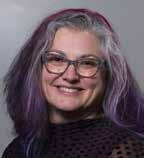
ADVANCEMENT OF PEOPLE OF COLOR LEADERSHIP AWARD
Bilal Polson, Northern Parkway Elementary School, NY
LGBTQIA+ ADVOCACY AND LEADERSHIP AWARD
Saurabh Anand, University of Georgia
GEORGE ORWELL AWARD FOR DISTINGUISHED CONTRIBUTION TO HONESTY AND CLARITY IN PUBLIC LANGUAGE
Making Americans: Stories of Historic Struggles, New Ideas, and Inspiration in Immigrant Education by Jessica Lander, Lowell High School, MA
NATIONAL INTELLECTUAL FREEDOM AWARD
Henry “Cody” Miller, SUNY Brockport
Honorable Mention: Honesty for Ohio Education, cofounded by Lisa Vahey
PROMISING RESEARCHER AWARD
Alex Corbitt, SUNY at Cortland, NY
MEDIA LITERACY AWARD
T. Philip Nichols, Baylor University
ALAN C. PURVES AWARD
“Adopting an Empathizing Stance in Classroom Argumentation: Pedagogical Constructs and Affordances” by Min-Young Kim & Sanghee Ryu (May 2024)
Honorable Mention: "I’m Outside the Box. Too Outside the Box, I Explode It!’: Exploring Literacies of Dignity with Middle School Youth” by Danielle R. Filipiak (February 2024)
Now Screening at NCTE 2024
ROOM: 052B (EXHIBIT LEVEL)
10:30 A.M.–5:00 P.M.
Now Screening at NCTE screens recent feature films. We also include some student-made films, offering teachers creative ways to have their own students create films. All films featured at the screenings can become springboards for classroom study.
Cochairs: Christina Anker, Adlai E. Stevenson High School, Lincolnshire, IL
David Handelman, Adlai E. Stevenson High School, Lincolnshire, IL
Consultants: Frank Baker, Media Literacy Clearinghouse, Inc., Columbia, SC
Mary Christel, Adlai E. Stevenson H.S. (retired), Wheeling, IL
William Kist, Kent State University
Annotations for the films were compiled using information found on the webpage for each film.
11:00 A.M. —12:45 P.M.
A Reckoning in Boston (2021, 93 min & Q & A)
A white filmmaker comes into a Black community looking for transformation in the lives of low-income adults enrolled in a night course in the humanities. As he spends more time with the students, he’s awakened to the violence, racism, and gentrification that threaten their very place in the city.
A Q & A with the director will follow the screening. https://www.pbs.org/independentlens/documentaries/a-reckoning-inboston/ https://www.areckoninginboston.com/

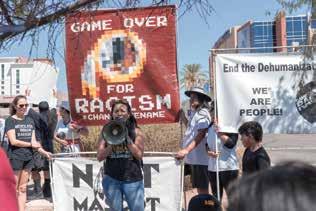
12:45 - 2:30 P.M.
Reimagining the Indian: The Fight against Native American Mascoting (2022, 95 min & Q & A)
Reimagining the Indian is a comprehensive examination of the movement to eradicate the words, images, and gestures that many Native Americans and their allies find demeaning and offensive. The film takes a deep-dive into the issues through archival footage and interviews with those involved in the fight. The psychological research is clear, the use of Native American mascots is detrimental, not only to Native people, but to marginalized groups everywhere.
A Q & A with the director and producer will follow the screening.
https://imaginingtheindianfilm.org/
Session proposals and their descriptions were created by the session speakers and reviewed through a peer-review process. Session content does not necessarily reflect NCTE policies or positions.
2:30–3:35 P.M.
Teacher (2023, 50 min & Q& A)
In a time when teachers are leaving the profession at an alarming pace, Nkanga Nsa makes the selfless choice to change careers and dive headfirst into the classroom. Teacher chronicles her transformative yearlong residency at Curtis Elementary in the Roseland Community on the Southside of Chicago. Through the process we get an inside look at the challenges teachers face in and out of the classroom and explore the root causes of the teacher shortage.
A Q&A with the director and teachers included in the documentary will follow the screening.
https://www.teacherdocumentary.com/
Support material: https://www.teacherdocumentary.com/store-1
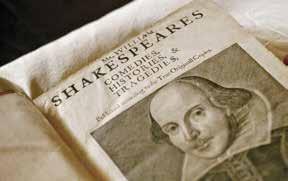
4:35–5:00 P.M.
The Boy (2023, 25 min)
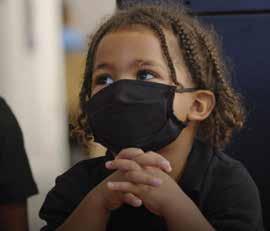
3:35–4:35 P.M.
Making Shakespeare: The First Folio (2023, first hour excerpt)
Great Performances episode PBS
Celebrate the 400th anniversary of Shakespeare’s First Folio, which saved 18 plays from being lost. Tracing the First Folio’s story, the film also spotlights how New York City’s Public Theater presents Shakespeare’s work for today’s audiences.
https://www.pbs.org/wnet/gperf/making-shakespeare-firstfolio/15130/
Yahav Winner’s film captures the discordant reality of life along the Israel-Gaza border.
https://www.newyorker.com/culture/screening-room/a-murdered-israelifilmmakers-prophetic-warning-in-the-boy
4:35–5:00 P.M.
The Present (2020, 24 min)
On his wedding anniversary, Yusef and his young daughter set out in the West Bank to buy his wife a gift. Between soldiers, segregated roads, and checkpoints, how easy is it to go shopping?
https://www.chicagotribune.com/entertainment/movies/ct-ent-israelipalestinian-war-on-film-20231109-z5s7zrlwnzcp5psn62kh3xx724-story. html
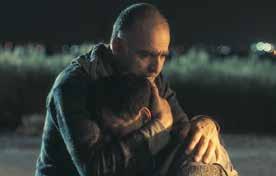

SATURDAY, NOVEMBER 23
Session proposals and their descriptions were created by the session speakers and reviewed through a peer-review process. Session content does not necessarily reflect NCTE policies or positions.
11:00–11:20 A.M.
BYS.16 Texts That Cultivate Wonder and Curiosity about Our Natural World
Kristine Schutz, University of Illinois Chicago
Jen Vincent, Bannockburn School
11:30–11:50 A.M.
BYS.17 Storybook Connections: Supporting Children of Incarcerated Parents through Literature
Vivett Dukes, Teachers College, Columbia University
12:00–12:20 P.M.
BYS.18 Science in Poetry: Picturebooks and Poetry Collections That Weave Facts and Form
Marcie Flinchum Atkins, Oak View Elementary School/Fairfax County Public Schools
12:30–12:50 P.M.
BYS.19 From Hushed to Heard: The Picturebooks That Amplify the Accomplishments of Black Women and Their Impact on the World
Markesha Tisby, Tisby Educational Consulting
1:00–1:20 P.M.
BYS.20 Books That Give Us HOPE for HUMANITY
Laura Haney, L.W. Conder Arts Integration Magnet School
1:30–1:50 P.M.
BYS.21 What the Heart Wants: Books That Don’t Get Returned
Carrie M. Santo-Thomas, Warren Township High School Almond Campus
2:30–2:50 P.M.
BYS.22 Pairing Picturebooks and Novels
Aliza Werner, Bookelicious
3:00–3:20 P.M.
BYS.23 Characters (Real & Fictional) That Inspire Hope, Heart, and Humanity
Bitsy Parks, Beaverton School District
Mandy Robek, Olentangy Local School District
3:30–3:50 P.M.
BYS.24 Read Alouds of Resistance and Joy in the Face of Grief and Pain
Samira Ahmed, Little, Brown Books for Young Readers
Luz Yadira Herrera, California State University, Dominguez Hills
Nawal Qarooni, NQC Literacy
Jasmine Warga, Balzer + Bray/ HarperCollins
4:00–4:20 P.M.
BYS.25 Reading Is Life: Diversity. Equity. Cultures. Joyce Brooks
Mary Jade Haney, Horrell Hill Elementary School/Richland County School District One
Erica Jennings Deedra Lee, Southeast Middle School
4:30–4:50 P.M.
BYS.26 Inspiring Hope with Queer Representation
Julie Hoffman, Springfield Public Schools
Cindi Koudelka, Fieldcrest CUSD 6/ Aurora University
5:00–5:20 P.M.
BYS.27 People You Should Know: Engaging Biographies for Middle Grade and High School
Michelle Houts, Ohio University Press/ Feeding Minds Press, Random House
5:30–5:50 P.M.
BYS.28 The Orbis Pictus Award®: Selected Nominated Titles You Should Know
Caryl Crowell, Retired, Tucson Unified School District
Julia López-Robertson, University of South Carolina
Janelle Mathis, University of North Texas
Melissa Summer Wells, University of Mary Washington
Session proposals and their descriptions were created by the session speakers and reviewed through a peer-review process. Session content does not necessarily reflect NCTE policies or positions.
8:15–9:30 A.M.
ES-K.01 Sparking the Writing Revolution with the Latest Insights and Research ROOM 155 (LEVEL 1)
Sponsored by Amplify
Writing is a powerful lever for deepening knowledge, improving reading comprehension, and enabling all students to access grade-level material. But it’s also the most difficult thing we ask students to do. Join Natalie Wexler and Judith C. Hochman, Ph.D., to learn how to make writing less overwhelming for students, and why you should embed it in your core curriculum across all subjects and grades.
Presenters: Judith C. Hochman, Founder, The Writing Revolution/Co-Author, The Writing Revolution
Natalie Wexler, Education Writer; Author, The Knowledge Gap/Co-Author, The Writing Revolution
8:15–9:30 A.M.
ES-K.02 Improve Accessibility and Joy for Readers with Large Print ROOM 158 (LEVEL 1)

11:00–11:30 A.M.
Sponsored by Gale
Give readers choices in format—national research shows large print helps students enjoy reading, increasing confidence and stamina with easier decoding and less distraction. With high-demand titles, large print is a no-tech solution to engage readers with age-appropriate, relatable content— it’s helped many students, including multi-language learners or those with dyslexia, ADHD, or low vision.
Presenters: Sabine McAlpine, VP, Thorndike Press and Print
Tiffany Schofield, Sr. Acquisition Editor, Thorndike Press

ES-L.01 How to Bring Back Reading in the Age of Digital Distraction: A Simple Secondary Reading Protocol That Works ROOM 158 (LEVEL 1)
Sponsored by Zinc Learning Labs
Our job has never been harder. Students’ achievement depends on fundamental abilities they simply don’t have. When we equip them with the skills to succeed and discover the pleasure of reading, we give them a lifeline to mental agency and freedom. Learn Zinc’s simple strategies for equipping secondary students with the four skills proven to raise comprehension, focus, stamina, and joy in reading.
Presenters: Matt Bardin Zinc Learning Labs
Leah Sewell, Zinc Learning Labs
11:00 A.M.–12:15 P.M.
ES-L.02 To Read Stuff You Have to Know Stuff ROOM 156 A (LEVEL 1)
Sponsored by Savvas

In the age of click-and-go reading, why do students need to know information when they can just look things up? Because students who know more are able to read more and read better. This session will explore the importance of building knowers.
Presenter: Kelly Gallagher, Anaheim Union High School District, CA
11:45 A.M.–12:15 P.M.
ES-M.01 Phonological Awareness and Phonics: Transferring Learning Using Decodable Text ROOM 158 (LEVEL 1)
Sponsored by Pioneer Valley Books
Orchestrating the transfer of phonological awareness and phonics instruction from isolation to continuous text is at the heart of literacy learning. We will uncover the value of creating strategically aligned activities and explore the power of applying that learning to engaging decodable text. The goal: to build confident decoders and encoders who love to read and write and to instill hope as they read to learn more about their world.
Presenter: Karen Cangemi, Pioneer Valley Books
Session proposals and their descriptions were created by the session speakers and reviewed through a peer-review process. Session content does not necessarily reflect NCTE policies or positions.
1:15–2:30 P.M.
ES-N.01 Building Better Writers: Strengthening Writing Skills with Sentence-Level Feedback ROOM 155 (LEVEL 1)

Sponsored by Quill.org
Feedback isn’t just about correcting mistakes—it’s about honoring students' voices and empowering them to communicate more effectively. In this session, we’ll explore how ELA teachers, with the support of Quill. org’s tools, can provide sentence-level feedback that fosters student self-efficacy and bridges the gap to strong long-form writing.
Presenter: Scarlet Melo, Professional Learning Specialist
ES-N.02 Empowering Students to Drive Their Data ROOM 158 (LEVEL 1)

Sponsored by ThinkCERA
Teachers, coaches, and building leaders will explore the benefits of explicit instruction on student data to both build student buy-in and empower them to drive their growth. Engage in a student data tracking process utilizing any regularly collected data by experiencing a data folder lesson as students with sample MAP and ThinkCERCA data and explore resources attendees can adapt to their unique needs.
Presenters: Erin Beatty, Cincinnati Public Schools
Janine Smith, Cincinnati Public Schools
Caitlin Vagedes, ThinkCERCA
2:45–4:00 P.M.
ES-O.01 Bringing The New York Times into the English Classroom
ROOM 155 (LEVEL 1)
Sponsored by The New York Times

We'll explore exercises to improve media literacy, foster critical thinking, and excite students around writing and research, using The New York Times as a classroom tool. We’ll dive into the difference between News and Opinion and how to foster this understanding among students; discover how Games can support students' mental sharpness; explore Cooking and how to empower students around food; get to know The Athletic, which offers in-depth sports journalism and can get students excited about persuasive writing, analysis, and longform nonfiction; and more.
Presenter: Mark Condor, The New York Times
ES-O.02 Celebrate American Lit with BFW!
ROOM 158 (LEVEL 1)

Sponsored by Bedford/Freeman/Worth Publishers
The forthcoming second edition of American Literature & Rhetoric, by Robin Dissin Aufses, Renée H. Shea, Katherine E. Cordes, Natalie Landaeta Castillo, and Lawrence Scanlon is cause for celebration! Join us!
Presenters: Robin Dissin Aufses
Natalie Landaeta Castillo
Katherine E. Cordes
Lawrence Scanlon
Renée H. Shea
9:00 A.M.–5:30 P.M.
Leaf and Pen and the New York State English Council's Drop-in Writing Space
NORTH EAST LOBBY (LEVEL 1)
Drop in at any point in the Convention, for some time, space, and inspiration to do your own writing, in any form. We provide tools and activities for everything from brainstorming to generation to sharing. Feel free to try these—and bring them back to your schools and classrooms—or to make your own use of this space for writing, creativity, reflection, and breath.
Hosts: Eve Becker, Diana Liu, Lauren Nappi
Session proposals and their descriptions were created by the session speakers and reviewed through a peer-review process. Session content does not necessarily reflect NCTE policies or positions.
Session proposals and their descriptions were created by the session speakers and reviewed through a peer-review process. Session content does not necessarily reflect NCTE policies or positions.
Poster presentations will take place at the Boston Convention & Exhibition Center at the locations listed below.
Leveling readers and organizing classroom texts by reading level is still a very common practice in elementary classrooms. However, there is significant evidence that this practice is not only not useful, it's harmful. On this poster, I address each argument for leveling with what the research says we can do instead to support all our children in becoming life-long readers.
Presenter: Evelyn Pollins, University of Illinois Chicago
Teaching Shakespeare’s Hamlet as a Ghost Story: A Creative Writing Approach
Based on a creative writing activity from the presenter’s recent book, Teaching Hamlet to the Next Generation, this hands-on session will provide participants with strategies that they can incorporate immediately into their own Hamlet instruction.
Presenter: Joseph Haughey, Northwest Missouri State University
Expanding the Gradual Release of Responsibility: A New Model

The Cycle of Responsibility shifts the Gradual Release of Responsibility model to a cyclical process that includes five motivators for early literacy teaching and learning: challenge, creativity, collaboration, choice, and independence.
Presenters: Adrienne Minnery, Shelton School District Antony Smith, University of Washington Bothell
Literature for the “Left-Brained” Mind: Getting Math and Science Students to Excel in English Courses

In literature courses, we have many students who love analyzing novels, short stories, and poems, and many that would rather be cracking calculus or physics equations. We’ll explore how to get our more “leftbrained” students to see how literary analysis can be broken down into simple formulas while still not alienating our book-loving students who crave a more traditional inquiry experience.
Presenter: William Denton, Oak Lawn Community High School, Oak Lawn, IL
Three Ways Writing Workshop Brings Authenticity to the Classroom
Too often our students see writing as a task on the way to graduation, not a human activity which they can share. In that case, there’s no reason to not use ChatGPT. Writing workshop, however, brings writing to the students’ identities. Authentic texts, an authentic process, and authentic purposes all help our students see themselves as authentic writers.
Presenter: Andrew Filler, Howard Gardner Charter School, MI
ChatGPT’s Disruption of Culturally Responsive Literacy Instruction: How the Predictive Nature of an LLM Contributes to Stereotyping in Student Research

OpenAI’s ChatGPT and other LLMs lend themselves to content that is antithetical to culturally responsive practices. Students depend on AI frequently and are unable to build new literacy research skills that incorporate their lived experiences. We highlight stereotypes that are perpetuated through predictive AI and considers how to use AI effectively while strengthening students’ research skills.
Presenters: Cassie Lo, St. Thomas Aquinas College Michael Malin, North Rockland Central School District
Critical Media Pedagogy and Critical Consciousness Development: A Retrospective Case


Drawing on retrospective reflections from first-generation college students about their learning during an interdisciplinary high-school environmental justice documentary project, this case study explores how critical media pedagogy provided opportunities for critical consciousness development and examines how that learning impacted future thinking, learning, and actions.
Presenter: Anthony Voulgarides, Hunter College, CUNY
Session proposals and their descriptions were created by the session speakers and reviewed through a peer-review process. Session content does not necessarily reflect NCTE policies or positions.
Building Connections: 6–12 English Language Arts Collaborations and Purposeful Text Selections


Teaching and learning can be isolating endeavors in today’s world. How do we encourage students and colleagues to practice empathy and perspective-taking in classrooms burdened by the numerous pressures of our current society? In this poster session, two secondary educators provide a model for selecting literary texts to nurture empathy and build school community today and for their futures.
Presenters: Lindsey Franklin, P.K. Yonge Developmental Research School, University of Florida
Jillian Miley, P.K. Yonge Developmental Research School, University of Florida
Measuring College-Ready Literacy Skills in High School Completers and First-Year College Students

This research offers a comprehensive review of secondary and college-level literacy standards, identifying constructs to be integrated in a literacy self-efficacy scale for high school completers. The presentation also shares data from interviews with first-year college students; these responses, along with literature review constructs, serve as the foundation for further scale development.
Presenter: Charlie Potter, Metropolitan State University, Denver, CO
Using Drama in the High School ELA Classroom to Inspire Heart and Humanity


This poster will share findings and applicable practitioner strategies from a study of a literacy coach’s collaboration with a teacher to implement drama-based pedagogies in the ELA classroom. Lesson examples and findings specific to the impact of these strategies on student meaning making and literacy learning will be shared.
Presenter: Chelsea Taylor, Wicomico County Board of Education
Fostering Hope and Heart through Global Books
Come find out about exceptional global books! Title VI National Resource Centers (NRCs) in African, European, Latin American, Middle Eastern, and South Asian area studies housed in universities around the nation sponsor a number of book awards which highlight easily accessible global books which have been vetted by scholars and educators to have accurate content.
Presenters: Deborah Jane, University of Minnesota
Kathrina O’Connell, Bemidji State University
Tamara Ramirez-Torres, El Colegio High School
Susan Tenon, Fairport Harbor Exempted School District, OH
From Mandate to Practice: Teacher Perspectives on Implementation of “High-Quality” Literacy Curriculum


This mixed-methods study followed 15 elementary schools across one district in the first year of implementing EL, a state-approved “high-quality” literacy curriculum. Through surveys, classroom observations, and student and teacher interviews, we explored teachers’ perceptions of the new curriculum and the conditions that either constrained or enabled teacher agency and cohesive instruction.
Presenters: Deana Lew, Newton Public Schools
Joelle Pedersen, Newton Public Schools/Boston College
Integrating Black History and Algebra Concepts: Creating Inclusive Learning Spaces in Mathematics Education

In this engaging presentation, Ware, a distinguished Doctor of Education specializing in mathematics education, will share his innovative approach to creating inclusive learning spaces in mathematics classrooms. The session will focus on Ware’s groundbreaking series of mathematics textbooks, specifically tailored for Algebra 1, which seamlessly integrates Black history with algebra concepts.
Presenter: Kendall Ware, Dream Builders 4 Equity/Harris Stowe State University
The Impact of Instructional Coaching: A First-Year Teacher’s Experience Working toward Equity Pedagogy

Explore the impact an instructional literacy coaching partnership has on a first-year teacher’s practice, including a review of literature on literacy coaching, artifacts from coaching conversations, co-created inclusive curriculum and assessment, student work samples, and reflections. This poster will demonstrate how to incorporate critical literacy in the creation of US history units.
Presenter: Christa Blaske, P.K. Yonge Developmental Research School, University of Florida
Carla-Ann Brown, P.K. Yonge Developmental Research School, University of Florida
Culturally Responsive Teaching: Empowering Student Identity through Literacy

The presentation explores the role of identity construction in English education for multilingual and multicultural students, emphasizing the critical connection between literacy and identity. It advocates for culturally responsive teaching and addresses the challenges faced by minority students, particularly those affected by the “model minority” stereotype among Asian Americans.
Presenter: Ellin Kim, Teachers College, Columbia University
Session proposals and their descriptions were created by the session speakers and reviewed through a peer-review process. Session content does not necessarily reflect NCTE policies or positions.
Critically Engaging with Children’s Environmental Media to Teach about Climate Change in Elementary Classrooms


This presentation shares guiding questions and ideas for teachers when selecting texts to teach about climate change with children’s environmental media. An animated musical cartoon about global warming will be highlighted to demonstrate how teachers can draw upon both the content and the multimodal components of the eco-text to engage students in critical conversations around climate change.
Presenters: Robby Anggriawan, Illinois State University
Sarah Reid, Illinois State University
While project-based learning is a student-centered approach to instruction, most students need varying levels of teacher support to successfully learn skills and concepts through each phase of the project. This poster explains how project-based learning differs from product assessment and provides scaffolding strategies based on case studies in presenters’ classrooms.
Presenters: Katherine McGrail, The Miami Valley School
Debbie Voetberg, The Miami Valley School
Teachable Moments: Using AI-Generated Lesson Plans to Support Preservice Teachers’ Pedagogical Thinking about Reading Instruction

Our poster will showcase how preservice teachers recognize and utilize AI in reading instruction lesson planning. Combining specific knowledge about students with the support of AI-generated lesson plans is an important step toward teacher candidate development. With guidance and support, teachers can learn to evaluate, modify, and implement creative and contentrich lessons using AI technologies.
Presenters: Mary Ellen Oslick, Stetson University
Melissa Parks, Stetson University
Picturebooks are a valuable resource for fostering student representation and academic growth. They offer students opportunities to connect with their peers, explore the world, and develop essential academic skills. When students feel a personal connection to a picturebook, does it enhance their comprehension of academic subjects or social and emotional learning concepts?
Presenters: Angela Mundt, University of Northern Iowa/Jacobson Center for Comprehensive Literacy
Marissa Schweinfurth, University of Northern Iowa/Jacobson Center for Comprehensive Literacy
Try a New Lens: Literary Theory in the K–12 ELA Classroom


Reading is a window to the world, an opportunity for students to explore both themselves and new perspectives (Bishop, 1990). This interactive poster will display 12 literary lenses that can be used to create meaningful multiple-perspective learning opportunities for students. Attendees will walk away with a new lens for planning an ELA lesson or unit.
Presenter: Jenna Copper, Slippery Rock University
What’s in a Name? Exploring Identity through Literature

In this lesson, students will read several texts where characters explore their names and their relation to their identities and heritage (texts can be modified to fit student levels and needs). Then, students will analyze the characters and their relation to their own name identities. Students will create a “name story” of their own exploring their personal identities and heritage. Visual and art components can be added to suit student needs and abilities. The lesson uses diverse texts in literature and personal narrative.
Presenters: Monica Murphy, Swampscott Middle School
Lucia Papile
When “Stepping In” becomes “Stepping On”: Navigating the Dance of Unwanted Mentoring during Student Teaching


This poster illustrates three distinct narratives of how ELA student teachers responded to unwanted “stepping in” by their mentor teachers during instruction. Drawing on research on mentoring and co-teaching, this presentation considers how student teachers worked (and danced) in and out of step within their placements to enact socially just teaching practices.
Presenter: Christopher Kingsland, University of Michigan, Ann Arbor
Fostering Passion and Confidence in Writing (in English and Beyond!)
Does student writing often strike you as flat, formulaic, and unconvincing? Stasis Theory is an instructional tool that helps our students display their intelligence on an issue with a passionate and potent voice. Specifically, it helps students articulate a focused position within the conversation, generate relevant ideas to support it, and structure these ideas in a persuasive manner.
Presenter: Daniel O’Rourke, Riverside Brookfield High School
Session proposals and their descriptions were created by the session speakers and reviewed through a peer-review process. Session content does not necessarily reflect NCTE policies or positions.
“It’s everything so you get to understand it in all different ways”: Using Drama to Develop Vocabulary and Content Knowledge for Writing



Drama-rich pedagogy can be used to enrich and enliven established approaches for the teaching of writing, including genre pedagogy. This poster presents work carried out in a third/fourth grade science and literacy classroom demonstrating how drama can provide multimodal, highly engaging, and embodied entry points to writing for students.
Presenter: Rafaela Cleeve Gerkens, Faculty of Education
Preparing Future Teachers to Work with Transnational Families Using Culturally Sustaining Literature



In this poster, participants will be engaged in using interactive and culturally responsive texts, mixed-media journals, and field-based experiences that empower transnational and refugee students and their families in the classroom.
Presenters: Julie Paul Flannery, University of Alabama at Birmingham
Grace Jepkemboi, University of Alabama at Birmingham
Addressing Adolescent Apathy: Re-Engaging Middle and High School Student Interest in English Language Arts Content

In the modern educational landscape, students demonstrate increasing levels of apathy in English language arts settings. We will demonstrate a plausible solution to this issue through an ELA lesson employing authentic tasks and the legitimization of digital technology. In a poster session, we will justify our pedagogical choices and explore data collected in middle and high school classrooms.
Presenters: Emma Perron, Florida State University
Alicia Southworth, Florida State University
Hospitable Hearts: Supporting Students’ Social and Emotional Outcomes through Community Collaboration

In this interactive poster presentation, one elementary school administrator in a rural, Title 1 school and two university faculty from separate institutions will present ELA teacher survey results in response to the following research question: How do ELA teachers develop meaningful parent, caregiver, and community partnerships to advance social-emotional learning outcomes for all students?
Presenters: Peggy Hopper, Mississippi State University
Jerry Bradford Parker, Pontotoc County School District
Mary Ann Parker, University of North Alabama
Democracy Quest: Using Virtual Reality to Increase Student Interest in Learning while Building Content Knowledge and Literacy Skills

Can virtual reality help increase student interest in learning? Democracy Quest (DQ), a three-year project funded by the Department of Defense, seeks to answer this question. DQ’s goal is to develop critical thinking and empathy skills while interacting with virtual characters. The session will include samples of primary sources, research surveys, and an opportunity to see DQ’s virtual world for yourself.
Presenters: Whitney McCarthy, Custer Baker Intermediate School, Franklin, IN Elizabeth R. Osborn, Indiana University Center on Representative Government
Dialogic Instruction to Navigate and Transform

For a former teacher, enacting dialogic instruction (DI) afforded the freedom to center students’ choices and value their voices, despite increases in curricular restrictions, standardization, and accountability. DI was for me a kind of fugitive pedagogy; this practitioner paper aims to support teachers in enacting DI towards navigating and transforming our classrooms.
Presenter: Rebecca Lee, Michigan State University
Storyboxes: A Screenless Multimodal Approach to Teaching Early Literacy


Ever heard of a storybox? It is a soft, box-shaped, screen-free speaker device that connects to the Internet using a kid-safe platform that allows students to listen to and create stories. This poster presentation documents a year-long research study with diverse kindergarten students who engage with literacy through storyboxes in order to expand oral narrative skills and listening comprehension.
Presenters: Sally Brown, Georgia Southern University Jennifer Smalarz, Whitesville Elementary School
Examining Power in Picturebook Biographies
This poster presentation shares initial findings of a study of picturebook biographies with a focus on their potential for readers to explore and understand the ways authors and illustrators depict their subjects operating within contexts, exercising various types and degrees of power. We highlight the transformative pedagogical possibilities inherent in high-quality nonfiction.
Presenter: Sunah Chung, University of Northern Iowa
Session proposals and their descriptions were created by the session speakers and reviewed through a peer-review process. Session content does not necessarily reflect NCTE policies or positions.
Integrating Enrichment Projects into Elementary Literacy Intervention: Repositioning Students as Creative and Capable


When students are labeled as struggling, support takes precedence—but often at the exclusion of creative projects. How can small-group literacy instruction integrate foundational skills with activities that foster creativity and social-emotional learning? This poster will share findings from a year-long qualitative study and share strategies for monolingual and bilingual instructional settings.
Presenter: Emily Johns-O’Leary, University of Colorado Boulder
How to Make Much Ado about You(r Students) with Universal Design for Learning and Early British Literature
My poster introduces the background of Universal Design for Learning and gives a case study of using its components to create a cumulative assessment offering multiple options to spark students’ passions while cultivating belonging in the classroom. The case study includes initial assignment parameters, examples of student work, and the outcome of the assignment against the original UDL goals.
Presenter: Maggie Raymond, Bishop Lynch High School
Practical Steps for Incorporating Equity-Based Instruction in the English Language Arts Classroom
An overview of the steps involved in conducting an Equity Audit of ELA texts using the NYU Steinhardt Scorecard and developing an Equity Library consisting of culturally responsive diverse titles. The session will also highlight strategies for implementing these titles in the ELA classroom, partnership with the school library, and the role of administrative support for these initiatives.
Presenters: Kristen Fehr-Thompson Jaclyn OHagan
Colleen Oates-Robesch
Reimagining a Foundational Early Childhood Graduate Course through Stories

Stories are pivotal in human cognition, framing our understanding of the world. However, when elevated as absolute truths, they can silence diverse narratives, even in early childhood education. This presentation reimagined a graduate course, employing transformative learning and narrative inquiry to explore dominant and alternative narratives in the field of early childhood through the lens of students’ experiences.
Presenters: Maria Acevedo Aquino, Texas A&M University-San Antonio
Catherine O’Brien, Texas A&M University-San Antonio
Analog Adventures: Cultivating a Love for Reading in the Digital Age


What is the impact on students when they read books of their own choosing? Given the time and space to read, students will fall in love with reading for the first time—or perhaps all over again. Additionally, students will notice their reading pays dividends—in and out of the classroom. My presentation will inspire you to breathe new life into your students’ reading lives.
Presenter: Jennifer Billings, Marblehead High School
Student-Led Learning: A Framework to Empower and Amplify Student Voices

This poster session will show you how to empower students to take on more active roles in teaching and learning through the use of a metacognitive framework: watch, intend, reflect, and engage. Using this framework, we will look at students as advisors, coaches, teachers, and agents of change.
Presenters: Jill DeRosa, South Country Central School District/ Long Island University/Benchmark Publishing
Jennifer Hayhurst, South Country Central School District/Long Island University/Benchmark Publishing
The Journal Project

This poster will provide information on a successful journaling endeavor for middle school students. This poster will include numeric proof of student success, as well as tips for teachers who wish to use this technique in their own classrooms. Not only will this poster cover the success of the students, but it will also mention the social and emotional changes within the classroom as a result.
Presenters: Alison Hruby, Morehead State University Kayla Underwood, Nicholas County Middle and High School, Carlisle, KY
Writing Their Way to Well-Being: How Journals Were Used with Adolescents to Integrate SEL and Academic Writing on Well-Being Topics


Students are struggling more than ever with mental health, but what if educators could impact well-being with journals? This poster will highlight findings from a case study where students learned about their wellbeing while writing. The information will highlight student work samples and voices on well-being improvements and examples of how SEL can be tied to academic content through journaling.
Presenter: Kristin Bellinger
Session proposals and their descriptions were created by the session speakers and reviewed through a peer-review process. Session content does not necessarily reflect NCTE policies or positions.
Cultivating Agency and Expertness among Literacy Educators Using an Advocacy Framework



Literacy educators are being deprofessionalized as their expertness is being replaced with scripted curriculum and legislative mandates. They are leaving the field. Teachers need avenues to effectively advocate for their professionalism. Participants will learn how teachers utilized components of Everyday Advocacy (Fleicher & Garcia, 2021) to navigate this professional reality.
Presenter: Jennifer Schneringer, University of Missouri
Amplifying Voices: Utilizing Black Women’s Life Writing to Champion Abolitionist Teaching and Social Justice



Discover the impact of black women’s memoirs as educational resources for promoting abolitionist teaching and social justice in classrooms. Learn to integrate these narratives to teach identity, social change, and self-care, fostering a more inclusive and equitable educational environment.
Presenter: Tilifayea Griffin, Georgia State University
Understanding Multimodal Text Assessments


Students engage with various multimodal texts in and out of school. Therefore, corresponding school assessment needs to be reconceptualized to jump out of the box of print-based practices and to recognize literacies’ sociocultural and sociopolitical dimensions. However, the assessment of multimodal text is still lagging in many cases. This poster reviews related literature.
Presenter: Hong Zhang, University of Florida
Why Triptych? Promoting Student Engagement with Counternarratives via Genre Blending

A triptych is a three-paneled artwork in which each panel is used to explore a central theme. In this session, using triptych as metaphor, I will advocate for a new type of multigenre paper for use in the secondary English classroom, one that asks students to engage with diverse texts while forming conclusions in the interstices of personal narrative, literary analysis, and research writing.
Presenter: Merit O’Hare, Teachers College, Columbia University
The Impact of Student Choice, Voice, and Volume in Reading
When students are given choice and voice in their reading materials, they read more volume, and produce better results. Come see what current secondary ELA teachers are doing in their classrooms to get students of all levels (from novice readers in Reading Intervention to advanced readers in IB English) motivated to be part of a reading community.
Presenter: Megan Koppes, Kalispell Public Schools
2:45–4:00 P.M. / EXHIBIT HALL A (EXHIBIT LEVEL)
Shakespeare in the College Classroom
What are the best practices for teaching Shakespeare’s plays in a diverse college classroom? This poster session attends to Shakespeare’s literary sources, early modern stagecraft, performance history, and film adaptation to achieve a studentcentered pedagogical method that develops critical thinking and historical consciousness, as well as encourages aesthetic exploration.
Presenter: Esther Hu, Boston University
Bringing Hope to Language Acquisition: Integrating Duolingo into ELA and ESOL Classrooms

The surge of English language learners in secondary ELA classrooms necessitates creative approaches to enhancing their English language acquisition. This proposal advocates for implementing Duolingo, an internationally recognized language learning program, to improve English competence among ELLs. Duolingo provides a transformational approach to language instruction by harnessing technologies.
Presenter: Linh Hoang, Florida State University
Celebrating Young Creative Minds with the Brazilian: Classic Children’s Book Marcelo Martello Marshmallow: A Playful Reflection about Language and Its Origin




Tapioca Stories presents Marcelo, Martelo, Marshmallow, a vibrant translation of Ruth Rocha’s classic Brazilian children’s book. Illustrated by Ana Matsusaki and translated by Tal Goldfajn, young Marcelo’s linguistic adventures offer insights and activities on neologism and linguistic signs, connecting young readers with the depth of Latin American culture and the love of language.
Presenters: Yael Berstein, Tapioca Stories
Tal Goldfajn, University of Massachusetts Amherst
Creating Student-Centered Freedom Writing Strategies for BIPOC Students

This poster introduces educators to writing methods for BIPOC students. Teachers will challenge students to embrace “freedom writing” through narrative, argumentative, and informative methods. Educators are given resources for student-centered writing activities. The Freedom Writers novel/film are used as a reference. Students will use their voice to write for social change, justice, and equity.
Presenter: Wytinsea Jones, Hardaway High School
Session proposals and their descriptions were created by the session speakers and reviewed through a peer-review process. Session content does not necessarily reflect NCTE policies or positions.
Utilizing the Science of Reading to Build Heart Hope and Humanity in the Secondary ELA Classroom
By the time students enter the secondary classroom the expectation is that they are prepared to engage with text. However, when students are unable to read an assigned text, teachers aren’t sure how to proceed. Join us as we navigate the intersection between evidenceand research-based practices in order to infuse our classrooms with heart, instill hope, and cultivate a love for literacy.
Presenters: Michelle Peterson-Davis, Uniondale UFSD
Christine Zandstra, Roy C. Ketcham High School
Writing Embodiment: Fanfiction as a Tool for Knowledge Building in First-Year Composition

This presentation aims to explore how introducing fanfiction writing into the first-year composition classroom can provide opportunities for students to engage in embodied individual and sociocultural epistemological discourse. In doing this, students are provided the mental and emotional space to become more socially conscious and engaged community participants both in and beyond the classroom.
Presenter: Courtney Crisp, Ball State University
Exploring Teachers’ Lived Literacies: Disrupting Hegemonic Conceptions of Literacy in Schools


In this poster session, I share research findings from a narrative inquiry examining three English teachers' personal conceptions of literacy and the ways these conceptions cross the boundary into their classrooms. These findings also serve as a professional development model for literacy educators to explore the influence their literacy histories have on their pedagogical practices.
Presenter: Katie Whitley, Manchester Regional High School
Exploring the Implementation and Impact of Embedded Vocabulary Teaching in High School Biology: A Focus on Scientific and Engineering Practices

This study investigates the role of embedded vocabulary teaching (EVT) in high school biology, focusing on its impact on Multilingual Learners’ (MLs) engagement with Scientific and Engineering Practices (SEPs). Through a multiple case study of four biology teachers, we explore how EVT strategies are implemented and their effectiveness in promoting MLs’ participation in scientific activities.
Presenters: Julie Brown, University of Florida
Mark Pacheco, University of Florida
Han Zheng, University of Florida
Fostering Strong Claim/Evidence Connections in Argument Writing: How Students Took a Cultural Stance across Multiple Mediums

Two high school English teachers from Eastern Kentucky showcase how their students used their cultural stances on assigned multiple media texts (e.g., a Ted Talk on gaming) to apply claim/evidence connections in their written arguments through a poster presentation. The poster presentation will include lesson materials, detailed explanations of lesson instruction, and student comments and voices.
Presenters: Alora Jones, Fleming County High School, Flemingsburg, KY
Brandie Trent, Fleming County High School, Flemingsburg, KY
From Cheatbot to Writing Partner: How Students Use ChatGPT to Unsequester the Writing Process

How can writers use ChatGPT as a supportive chatbot rather than a cheatbot? Drawing from a study with high school students, we share how students used the tool to assist with argument, diction, and style, while learning that there is more than one way to write a good essay. We illustrate how students use ChatGPT in three phases of the writing process—planning, translating, and reviewing.
Presenters: Christopher Mah, Stanford University
Lena Phalen, Stanford University
Follow the Yellow Brick Road: How to Help Students Unlock Their Writer’s Voice

As teachers, dive into this poster presentation to learn more about writer’s voice in the classroom by first discovering your own voice, which will help students unlock theirs. With inspiration from other young adult authors, walk away ready to acknowledge and applaud students as they develop their own writer’s voice and are empowered to make change in the world with heart, hope, and humanity.
Presenter: Lori Polydoros, Santa Ana Unified School District
Critical Reflection and Community Building: Blogging with Preservice Teachers

Learn about a project investigating how blogging can be used to help preservice teachers develop a practice of critical reflection and build community in a postpandemic world.
Presenters: Samantha Duke, North Carolina State University
Alicia Whitley, North Carolina State University
Session proposals and their descriptions were created by the session speakers and reviewed through a peer-review process. Session content does not necessarily reflect NCTE policies or positions.
Literacy Practices to Enact Change: Making Shifts in Reading Lenses and in Writing Frames

With an interest in literacy practices to enact change, the speaker offers practical ideas for expanding the scope of student reading and writing via shifts in reading lenses and writing frames. She focuses especially on questions students can bring to texts and ways in which introductions and conclusions can expand context and meaning of writing, opening all to the world.
Presenter: Dana H. Maloney, Montclair State University, NJ
Mindfulness for the Endless Stack: A Qualitative Study of English Teachers Incorporating Mindfulness Practices into Their Feedback Work


How might mindfulness practices such as meditation help English teachers more intentionally and compassionately navigate providing feedback on student writing? This poster will share findings from a dissertation study on this topic. Viewers will learn with new strategies for (a) managing the challenges of feedback and (b) finding moments of joy and connection in this work.
Presenter: Jenny Goransson, George Mason University
Playful Learning in Writers Workshop



This presentation explores play-based pedagogy in classroom-based and teacher education contexts, focusing on integrating play into writers workshop. Drawing from the work of Lucy Calkins, Anne Haas Dyson, Angela Stockman, and the Reggio Emilia pedagogy, we discuss how educators inspire writing through play.
Presenters: Cathy Fields, University of Massachusetts Amherst/ Longmeadow Public Schools
Meghan Whitfield, University of Massachusetts Amherst
Culturally Responsive Practices through Poetry Diversity and Digital Literacy in Preservice Teacher Education

poetry, and research will be shared with participants explaining why names are so important. Participants will also have the opportunity to explore their names and learn about other’s names.
Presenters: Ben Cromwell
Raven Cromwell, Utah Valley University
Supporting K–3 Children’s Social and Emotional Learning with Children’s Literature and Literacy Activities

In this informational poster session, participants will learn evidence-based and developmentally appropriate literacy instructions using children’s literature that supports children’s social and emotional development. This poster will also provide specific book titles that can be incorporated into K–3 literacy activities and readalouds that address the CASEL 5 framework.
Presenters: Soo Joung Kim, Saint Michael’s College
Stacy Simonyi, Saint Michael’s College
Teacher Educators Write: Answering the Call to Write about the Craft of New Teacher Preparation
Teacher Educators Write is an online venue for writing about how you make literacy learning actionable, relevant, purposeful, and engaging for teacher candidates. If you work with preservice teachers, visit this poster session to learn about a publishing space where writing by teacher educators illuminates a shared belief in the influence of skilled teaching on new teachers’ development.
Presenter: Suzanne Kaback, University of St. Thomas
How the “Spot the Difference” Approach Helps Students Conquer Literary Analysis

This presentation focuses on how teacher candidates gain skills through creative artifact that gives them opportunity to explore their cultural identity using creative writing, and critical thinking through coding through digital platforms in order to utilize culturally responsive practices. The artifact, example instructional practices, and students’ visual examples will be shared.
Presenters: Selen Ergin-Cakmak, New York Public Schools
Meral Kaya, Brooklyn College, City University of New York
The Power of Names in the Classroom

This poster presentation examines how the “Spot the Difference” approach helps students pay more attention to the effect specific words have in a text passage. Teachers will walk away with engaging, differentiated, ready-to-use material for astonishing improvement in literary analysis.
Presenter: Lea Maryanow, St. Paul’s School
The Heart of Teacher Education: Building Confidence in Preservice Teachers

This interactive poster session will teach you why it is important to use students’ preferred names and pronounce them correctly. Children’s books, slam
Teacher education programs often struggle against the logistical barriers of providing preservice teachers with more quality time in the K–12 classroom. This poster will present practical examples of how teacher education programs can work with local schools to enhance field experiences and explore the factors that increase preservice teacher confidence.
Presenters: Allison Thompson, Riverside High School, Greer, SC
Bill Visco, University of Akron
Session proposals and their descriptions were created by the session speakers and reviewed through a peer-review process. Session content does not necessarily reflect NCTE policies or positions.
Technology in Writing Instruction: Engaging Students and Affirming Cultural Identities with Pixton.com
This poster board will illustrate how elementary school teachers can enhance student engagement and help students embrace their cultural identities as they become proficient writers by utilizing a technology platform to showcase their students’ uniqueness and writing skills.
Presenter: Livia Gama Fagundes, New York City Department of Education
How Can We Unify Body and Mind in Class?
Epistemic beliefs remain dualistic and disembodied. What changes when we: (1) conceive of the bodymind as a unit, (2) train students to see the body as a site of knowledge production and constituent element of mind, and (3) link learning and embodiment? This poster presents teacher research from BodyMind Literacy, an interdisciplinary and experimental course in the UCLA Honors Collegium.
Presenter: Lauri Mattenson, University of California Los Angeles
4:15–5:30 P.M. / EXHIBIT HALL A (EXHIBIT LEVEL)
Always Ask for Help: A Documentary Film about a Teacher and Her Students


The “Always Ask for Help” project started 20 years ago when Arnie Stewart told his story to an 11th grade English class. At 59 years old, Arnie accidentally fed his kids dog food because he could barely read or write. His story changed their lives and made their teacher dedicate her life to a partnership and continued legacy for literacy. The documentary is in production.
Presenter: Janet Lee, Best Day EVER Productions
Integrating Universal Design for Learning and Disciplinary Literacy in ELA


This poster presentation focuses on preservice secondary English language arts teachers’ initial attempts to grapple with the integration of UDL and disciplinary literacy in ELA in a course titled Literacy in the Content Areas. Ultimately, the presenter offers suggestions for integrating UDL and disciplinary literacy in ELA teacher preparation.
Presenter: Lisa Paolucci, St. Francis College
Critical Capacities: An Interdisciplinary Approach in the ELA and Engineering Classrooms

Learning must go beyond the classroom to engage students in critical activities that can impact their communities and their world. This poster presents the “Critical Capacities” framework, a pedagogical approach that intersects English language arts and engineering processes. The framework extends learning by centering students’ lived realities and driving actionable change in their communities.
Presenter: Neisha Terry Young, Stony Brook University
Critical Reading in the Age of Disinformation: Five Questions for Any Text
What does critical reading mean in a time of social media, YouTube, algorithms, AI, and fake news? This display gives five questions for examining any text to see the influences around it, the voices and sponsors, the craft and rhetoric, the intent and message, and one’s own reactions. You’ll learn a simple, powerful, classroomtested daily practice to help students habitually ask the five questions!
Presenter: Marilyn Pryle, Abington Heights High School
Embracing Inclusion: Forging New Learning Connections and Creating a Culture of Belonging: Inclusive Teaching Practices
In the current polarizing times, it is imperative to make our classrooms a safe space for students, so the environment is conducive to their academic success. It is equally important to engage students in critical thinking and reflection strategies outside of the classroom to understand mutual respect and humanize education to understand diversity. This presentation will address student belonging and inclusion in the classroom which will showcase not just readings that students can identify with but global perspectives on everyday life which will help students navigate themselves towards mutual respect and understanding.
Presenter: Rima Gulshan, Northern Virginia Community College
Engaging Scholars through Counterstory and Connection


Authentic literacy practices should celebrate joyful stories of the AAPIDA community, but what texts and literary lens are best to teach the growing diverse student body? We will offer a discussion and examination about how counterstory narratives empower scholars and promote empathy across racial, ethnic, and socioeconomic groups and challenge ourselves to view all stories with complexity, nuance, and compassion.
Presenter: Erin Perkins, Adlai E. Stevenson High School
Session proposals and their descriptions were created by the session speakers and reviewed through a peer-review process. Session content does not necessarily reflect NCTE policies or positions.
Ethnic Studies and Writing Instruction: Composing Spaces for Possibility
Ethnic Studies offers a plethora of possibilities for writing instruction across grades and subjects. Building on principles of Ethnic Studies, this poster will make visible some ways that writing emerges in and beyond classrooms. The poster will offer a three-pronged view of writing: genre-spanning mentor texts (possibility), curriculum design (space), and student voice (composing).
Presenters: Hannah Hohle, Bay Area Writing Project/University of California Berkeley
Hillary Walker, Bay Area Writing Project/University of California Berkeley
Jenn Wolfe, California State University Northridge
Hope for the Future: How Preservice Teachers View Financial Literacy

A Ramsey Solutions study found teaching as one of the top five professions to become millionaires. Over half of the US states require a personal finance course for graduation, but future teachers report feeling ill-prepared to manage the future income. This poster will include summary charts made after reading an article about different types of literacy focusing on those specific to financial literacy.
Presenter: Stacey Fisher, East Tennessee State University
From Page to Stage: Infusing Performance Literacy and Dramatic Lenses in Order to Empower English Language Heart and Move beyond a Classroom to Change the World

How do performance strategies excavate texts with empathy? Viewers will explore dynamic resources related to Landry & Wootton’s Arts Literacy Performance Cycle, an engaging approach that builds community, fosters creativity, and nurtures inquiry. This process restores heart by catalyzing learning, instills hope by cultivating change, and inspires humanity by helping students unlock true curiosity.
Presenter: Kristina Aste-Mayer, Danvers High School
Making Writers Workshop Mine
When teaching students to become writers, it’s important to emphasize voice and choice. We want to encourage others to intentionally create ways for students to write about their personal interests and experiences. From crafting personal narratives to writing multi-chapter memoirs, we found that when our students are excited about their work, they engage more in their learning.
Presenters: Meredith Klusman, Pathways High School, Milwaukee, WI
Brett Rutledge, Hoech Middle School
Preparing Literacy Educators for Developmentally Appropriate Critical Information Literacy Instruction

This poster will introduce critical information literacy and describe how it can be practiced within a writing classroom using the example of a graduate English course geared towards high school and college writing teachers. The poster will provide insight into how developmentally appropriate elements of critical information literacy can be incorporated into high school and college courses.
Presenter: Jennifer Turner, Minnesota State University, Mankato
READCON: A Curriculum for Library Readiness
Advocacy and Community Empowerment during Challenging Conditions

READCON partners educators with experts in education and family law; crisis communication, public and media relations; community reconciliation; and youth leadership to develop a targeted suite of blended professional development experiences.
Presenter: Valerie Byrd Fort
Readers’ Roundtable: Collaborative Inquiry + Dialogue in Middle School

Readers’ Roundtable is a unique means of encouraging a student-centered, whole-class discussion about literature. Presenters will share topics and essential questions, scaffolds for written preparations, student-driven record-keeping, and synthesis of ideas for follow-up lessons. Participants will learn how Roundtable supports students in becoming independent, critical, and enthusiastic readers.
Presenters: Angela Lathem-Ballard, Center for Teaching and Learning
Glenn Powers, Center for Teaching and Learning
Relief and Hope through Multimodal Autobiographical Writing with Multilingual Learners

Multilingual language learners come to school in the US to pursue the American Dream, yet many struggle with the social and emotional journies of their lives. This presentation will demonstrate how multimodal autobiographical writing as asset-based pedagogy can assist MLLs through their transitions to the US, providing hope for their futures, all while meeting language and content-area goals.
Presenter: Sarah Campbell, Indiana University
Session proposals and their descriptions were created by the session speakers and reviewed through a peer-review process. Session content does not necessarily reflect NCTE policies or positions.
Scientists Are Writers, Too: Facilitating Academic Research Writing in a Student-Run, Peer-Reviewed Journal
Even though argument-based writing is central in scientific disciplines (and all academic discourse for that matter), high schools rarely provide students with opportunities to engage in the research publication process. Our academic journal, Sigma, is a student-run, peer-reviewed publication that mirrors the authentic research writing processes that students will find in academic publishing.
Presenter: Christopher Olshefski, Winchester Thurston School
Valuing Storytelling among Children in a Racially, Culturally, and Linguistically Complex Classroom


This presentation negotiates tensions between teacher beliefs and the politics of schooling in the age of highly monitored early literacy teaching. This study discusses the implications of the contrast between the personal and the system of schooling in a culturally, linguistically, and racially diverse public first-grade classroom.
Presenter: Maile Newberry-Wortham, University of Missouri, Columbia
Tensions in Teacher Candidates’ Conceptualizations of Culturally Relevant and Just Teaching: Competing Discourses in Contentious Contexts

Beginning English teacher candidates (TCs) experienced current political and educational policy as competing discourses with methods courses co-designed around cultural relevance and justice. We offer typologies of ways TCs managed tensions and found disciplinary concepts did or did not connect, with implications for assignments where TCs grapple with competing discourses in contentious contexts.
Presenters: Emily Plummer Catena, Florida State University
F Blake Tenore, Florida State University
Teaching Out-of-Field in English: Past, Present, and Hope for the Future

When teachers teach classes for which they are not licensed, they are teaching out-of-field (OOF), a misalignment of qualifications from the course they teach. Teaching OOF is bad for students and teachers yet is growing due to teacher shortages. In Texas, ELA has the most courses taught OOF. We discuss research around teaching OOF in ELA and ways to improve teaching and student outcomes.
Presenters: Minda Lopez, Texas State University Katrina Jansky Quintanilla
The Whole Story: Media and the Shaping of Student Perceptions

This poster session delves into the dynamics of how media shape the perceptions, attitudes, and beliefs of adolescents. This session aims to share the results of classroom practice that involves students tracking and monitoring their views based on a series of media, with the goal of helping students unravel the complex relationship between media consumption and students’ responses to the texts.
Presenter: Brian Weishar, Lakehead University
Finding Hope through Painful Histories with Connection: Collaboration between ELA and Civics to Teach Holocaust Studies

In this poster session, an experienced civics teacher and an early-career ELA teacher share their model to guide 7th-grade students through the painful history of the Holocaust. Through this partnership of middle grade humanities teachers, we present a way to satisfy state standards and grapple with genocide while emphasizing individual stories, confronting prejudice, and moving forward with hope.
Presenters: Jillian Miley, P.K. Yonge Developmental Research School, University of Florida
Megan Miller, P.K. Yonge Developmental Research School, University of Florida
Exploring Local News: Students Improve Thinking, Reading, and Writing Skills through Community Engagement
Learn about our federally funded media literacy unit that connects reading and thinking skills with the writing process using a student-centric, project-based approach. See how local news and community-based issues can serve as a motivational hook to empower and engage students of all reading levels. Results showed that students improved their reading and critical thinking skills in 8–10 weeks.
Presenters: Florian Feucht, Thinking Habitats
Mona Mustafa, Paterson Charter School for Science and Technology
All sessions will be held at the Boston Convention & Exhibition Center unless otherwise noted.
Session proposals and their descriptions were created by the session speakers and reviewed through a peer-review process. Session content does not necessarily reflect NCTE policies or positions.
K.1 HS Matters—Supporting Student Writers by Teaching for Agency: Toward Equity and Justice in Our Teaching and Assessment of Writing
ROOM 206 B (LEVEL 2)
Sponsored by the Secondary Section Steering Committee
This panel will explore how to design writing tasks and assess them in ways that encourage student agency and center linguistic equity practices in instruction and assessment. Then teachers will discuss how they have implemented these ideas in their middle and high school classrooms with linguistically diverse students.
Presenters: Christina Dobbs, Boston University
Christine Montecillo Leider, University of Massachusetts Boston
Meghan McCormick, Malden Public Schools
Emma Meier, McDevitt Middle School
Erik Scott, Cambridge Public Schools/Boston University
K.2 #MakersInTheMiddle—Creating a HeARTful Community: Infusing ELA, Art, and Activism to Promote Student Voices
Room 205 A (level 2)
Sponsored by the Middle Level Section Steering Committee
In this #MakersInTheMiddle interactive session, you are invited to join graphic novelist Debbie Fong and classroom teachers as they collectively unpack their discoveries and learning within a community-based, exploratory unit of study resulting in work that integrates both language arts and art in an effort to promote authentic student writing.
Chair: Sarah Bonner, University of North Carolina Wilmington Roundtable Leaders: Reka Barton
Alex Corbitt, SUNY Cortland
Casey Pennington, SUNY Cortland
Ankhi Thakurta, Boston College
Jon Wargo, University of Michigan, Ann Arbor Tradebook Author/Illustrator: Debbie Fong, Random House Children’s Books
K.3 Centering Teachers and Students in Humanizing Assessments
ROOM 151 B (LEVEL 1)


This session considers how teachers and students can be involved in the ongoing development of assessments. Honoring teachers and students in this process, as the presenters will share, can shift classroom instruction and agency for teacher and student learning.
Presenters: Mueze Bawany, Chicago Public Schools & Daniel P. Moore, Stanford University, “’Transformative, Not Punitive’: Cogenerating Humanizing Assessments with Grade 9 ELA Students”
Danielle DeFauw, University of Michigan-Dearborn & Katherine Higgs-Coulthard, Saint Mary’s College, Notre Dame, IN, “Exploring Elementary Teachers’ Assessment Practices and Development of Pedagogical Content Knowledge of Writing”
K.4 New Literacies, Multiliteracies, and Multimodalities: Tensions and Possibilities for Teaching and Teacher Education

ROOM 156 A (LEVEL 1)
Dive into tensions and possibilities for integrating new literacies within ELA teacher preparation programs and ELA classrooms! Presenters in this panel emphasize the need to position new literacies at the forefront of P–20 literacy pedagogy, while also exploring strategies for incorporating multimodalities and multiliteracies into teacher education programs.
Presenters: Jonathan Bartels, University of Michigan-Flint, “Nurturing New Literacies in a Changing World: Exploring the Tension(s) of Centering New Literacies in Education”
Hongye Zeng, University of Maryland, “Moving from Literacy to Literacies: Finding Space for Multiliteracies and Multimodalities in Literacy Teacher Education Classrooms”
K.5 Passion Projects and Rebuilding Curiosity in Secondary ELA
ROOM 156 B (LEVEL 1)

These two presentations seek to challenge the notion that curiosity dwindles in adolescence. Each presentation offers ways for ELA educators to rekindle curiosity and passion for learning in the secondary classroom through choice-based inquiry projects.
Presenters: Maria Clinton, Northglenn High, Northglenn, CO, “Rebuilding Curiosity in the Secondary Classroom: A Springboard to Enthusiasm, Achievement, and Community”
Patricia Elmore, Athens State University, “Incorporating Writing for Social Media into the Secondary ELA Classroom”
K.6 Pedagogies and Practices for LGBTQIA+ Humanity
ROOM 156 C (LEVEL 1)
This panel details practitioner approaches for teaching with and about LGBTQIA+ communities. Presenters focus specifically on various pedagogies for teaching youth literature and including LGBTQIA+ content in both welcoming and restrictive contexts.
Presenters: Jill Ceneskie, Olentangy Local Schools, “Simple Ways to Add LGBTQIA+ Representation in Secondary ELA Classrooms for Fiction and Nonfiction”
Grant King, “Queer Pedagogy, Queer Practice: Applying Queer Theory in the Classroom”
Lauren LaPorta, Altair Education Consulting, “Reshaping Perspectives: Strategies for Overcoming Resistance in LGBTQIA+ Inclusion”
Session proposals and their descriptions were created by the session speakers and reviewed through a peer-review process. Session content does not necessarily reflect NCTE policies or positions.
K.7 Reimagining and Supporting Diversity in School and Classroom Libraries: Using StoryMaps and the Diverse BookFinder

ROOM 157 A (LEVEL 1)
How do you teach in a time and place that restricts, suppresses, or outright censors the lived histories and experiences of its citizens? This session will navigate the silencing of systemic oppression by creating texts that arise organically from marginalized groups through the use of StoryMapping, geo-inquiry processes, and the Diverse BookFinder (DBF), a free online resource.
Presenters: Brittany Kester, University of Florida & Megan Koppitch, P.K. Yonge Developmental Research School, University of Florida, “Supporting Diversity in School and Classroom Libraries: Using the Diverse BookFinder to Evaluate Book Collections”
Shanna Peeples, West Texas A&M University, “Reimagining the Mother Road with StoryMaps: Social Justice Work in Challenging Contexts”
K.8 The Texts and Contexts of Teaching LGBTQIA+ Youth Literature
ROOM 152 (LEVEL 1)


This panel highlights the hope present in LGBTQIA+ youth literature. Presenters explore teaching strategies for challenging exclusionary canon, exploring book clubs in Puerto Rico, and honoring the intersection of rural queer life.
Presenters: Gabriel Acevedo, Arizona State University, “A Queer Book Club: Developing Empathy and Resistencia through Young Adult Literature in Puerto Rican Classrooms”
Karen Eppley, Penn State University; Matthew Panozzo, University of Memphis; Rachelle Kuehl & Josh Thompson, Virginia Tech, “Queer and Rural Intersections in Contemporary Middle Grade Novels”
Tara West, The Ohio State University, “Centering Joy, Healing, and Acceptance through Neurodivergence and Queer Literature for Young Adults”
K.9 Building Bridges: When High School and College Writing Programs Share Visions and Resources
ROOM 153 A (LEVEL 1)


Are you a high school or college writing teacher in need of shared resources for writing improvement? This session will help high school teachers provide opportunities and applications for process writing that includes conferencing, response groups, and digital writing. Future networking and communication are included.
Presenters: Sheridan Steelman, Grand Valley State University, Allendale, MI
Audra Whetstone, Northview High School
K.10 Poems and Picturebooks as Writing Prompts and Conversation Starters
ROOM 254 A (LEVEL 2)

First comes reading; then comprehension. But what follows—personal writing and conversation skills—is what allows children to express themselves and learn from others. Three traditionally-published authors and an educator discuss how children’s literature can be used in fun, creative ways to help students come to know themselves and those around them better, while developing literacy skills.
Presenters and Tradebook Authors/Illustrators: Matt Forrest Esenwine, Beaming Books/Astra Young Readers/POW! Kids Books
Laura Purdie Salas, Lerner
Michelle Schaub, Norton/Sleeping Bear
Charles Waters, Charlesbridge Publishing
K.11 Action Steps toward Passionate Writing Students

ROOM 104 A (LEVEL 1)
Challenged by shortened time for writing instruction, the presenters met outside of the school day to brainstorm ideas and celebrate their passion for teaching writing. Their collaboration led to creative writing initiatives for students. In this session, the presenters share initiatives and ideas for impactful, student-centered work and passionate writers.
Presenters: Kristin Fitch, Simsbury Public Schools
Lisa Jacobs, Simsbury Public Schools
Melanie Meehan, Simsbury Public Schools
Beth Scudder, Simsbury Public Schools
Rebecca Warchut, Simsbury Public Schools
Frank Zuliani, Simsbury Public Schools
K.12 Becoming Literate: Building Identities in Elementary School Classrooms


ROOM 160 C (LEVEL 1)
In this interactive session, teacher educators, literacy scholars, and former and current elementary school teachers will guide participants to explore literate identities in classrooms. The presenters will provide practices that align assessments to students’ evolving literate identities and support their literate identities to be validating, rigorous, relational, and transformative.
Presenters: Ted Kesler, Queens College, CUNY
Lindsey Moses, Arizona State University
Meridith Ogden, Pinnacle Peak Preparatory
Dina Weiss, Hewlett Elementary School
Session proposals and their descriptions were created by the session speakers and reviewed through a peer-review process. Session content does not necessarily reflect NCTE policies or positions.
K.13 Beyond Old MacDonald—Rural Representation in Picturebooks: Building a Classroom Library That Fosters Respect, Empathy, and Understanding

ROOM 153 B (LEVEL 1)
Four picturebook authors and an editor discuss how rural voices are represented in children’s literature. Participants will learn how to move beyond stereotypes and into the diverse, accurate stories that represent modern rural living. Resources will include booklists and activities to shift perspectives toward a broader understanding of the connections between urban and rural communities.
Presenters and Tradebook Authors/Illustrators: Lisa Amstutz, author
Lisl Detlefsen, author
Janice N. Harrington, University of Illinois Urbana-Champaign
Michelle Houts, Ohio University Press/Feeding Minds Press/Random House
Julia Recko, Feeding Minds Press, American Farm Bureau Foundation
K.14 Building Empathetic Viewpoints through Picturebooks
ROOM 252 A (LEVEL 2)
If a goal of literature in the ELA classroom is to help students better understand their community, our society, and the larger world around them, picturebooks are a valuable tool in our repertoire. Join our conversation with picturebook authors discussing the ways inclusive representation humanizes cultures, opening hearts and helping students grow an empathetic approach to the world.
Presenter: Jillian Heise, Fox Point-Bayside School District
Tradebook Authors/Illustrators: Vera Ahiyya, The Tutu Teacher, Random House Children’s Books
Carole Lindstrom, Abrams Books for Young Readers
Kyle Lukoff, Penguin Young Readers
Raakhee Mirchandani, Little Brown
Maysa Odeh, Macmillan
K.15 Centering Middle Grade Novels about Families in Crisis in Our Classrooms: Providing Authentic Narratives to Inspire Hope in Young Readers

ROOM 159 (LEVEL 1)
This panel of acclaimed authors and educators will discuss the need to center middle grade literature featuring authentic portrayals of families in crisis in the classroom. In our post-pandemic world, there is a critical need for educators to expand classroom practice so that students can see relevant, purposeful, and engaging reflections of their own brave experiences in the books they read.
Presenters and Tradebook Authors/Illustrators: Chris Baron, Feiwel & Friends/Macmillan
James Bird, MacMillan/Feiwel & Friends
Susan James
Amber McBride, Macmillan
Marcella Pixley, Candlewick
K.16 Change Really Does Sing: Talking about Race in a Community-Wide Reading Program with Homegoing, Door of No Return, New Kid, and Change Sings
ROOM 211 (LEVEL 2)
Teachers, college students, professors, and public librarians from one community discuss their participation in a community-wide reading program that used a text set of books to explore issues of race, identity, home, and belonging. Presenters will share the resources and activities they used for each book and how they navigated political divides and the possibility of book challenges/bans.
Presenters: Audra Bolhuis, West Ottawa High School
Rachel Leep, Hope College
Bridget Pyle, Black River Public Schools
Sarah Rinsema-Sybenga, Muskegon Area District Library
Ron Suszek, Muskegon Area District Library
Deborah Van Duinen, Hope College
Kristin VanEyk, Hope College
Dana VanderLugt, Ottawa Intermediate School District
Adelyn Wilcox, Hope College
Eric Wilkinson, West Ottawa Public Schools
K.17 Civic Engagement with Global Perspectives in the English Classroom

ROOM 104 B (LEVEL 1)
Join representatives from international National Resource Centers at the University of Minnesota and University of Wisconsin-Milwaukee and a high school English teacher to learn how students have used literary activities to enact change. This presentation equips teachers with free resources to globally diversify the learning experiences of their students in the language arts classroom.
Presenters: Joanie Heineman, Red Wing High School
Deborah Jane, University of Minnesota
Nicole Palasz, University of Wisconsin-Milwaukee
K.18 Consent and Writing Pedagogy: A Hope for Human Connections
ROOM 051 (EXHIBIT LEVEL)
Teachers in this panel maintain that consent has a powerful role to play in ELA classrooms. We offer approaches to writing and literacy that transform what is possible when we teach with a consent mindset.
Chair and Presenter: Timothy Oleksiak, University of Massachusetts Boston
Presenters: Al Harahap, Queens College, CUNY
Violet Livingston, Michigan State University
Sam Phillips, University of North Carolina, Greensboro
Stephanie West-Puckett, University of Rhode Island
Session proposals and their descriptions were created by the session speakers and reviewed through a peer-review process. Session content does not necessarily reflect NCTE policies or positions.
K.19 Creating a Deep Culture of Writing in Secondary Schools: Practices That Create Community, Make Writing Great, and Invite Writing across the School Day ROOM 258 A (LEVEL 2)
This session will ignite new thinking about creating authentic writing communities in schools. Participants will learn from fellow educators who have fostered strong cultures of writing across their school, and hear about the specific practices that made that possible. This interactive session will help participants reimagine how writing can look in their schools.
Presenters: Rhonda Perry, Salk School of Science
Marcel Pezet, Salk School of Science
Ling Teo, Salk School of Science
Katherine Wischow, Reading and Writing Project
K.20 Creating Change with Picturebook Biographies ROOM 103 (LEVEL 1)

Join authors of picturebook biographies about diverse activists to explore the process of change making. Participants will leave with elementary classroom activities and a list of picturebook biographies. They will have time to share their own ideas and experiences about teaching this topic. Come to be inspired to encourage students to create positive change in your community and the world.
Tradebook Authors/Illustrators: Anne Broyles, Holiday House
Nina Crews, Christy Ottaviano Books/LBYR
Dinah Johnson, Christy Ottaviano Books/LBYR/University of South Carolina
Cynthia Levinson, Simon & Schuster
Michelle Markel, HarperCollins
Pat Zietlow-Miller, Viking
K.21 Curating Heart, Hope, and Humanity: CoCreating Galleries of Girlhoods of Color
ROOM 257 A (LEVEL 2)

In this symposium, the presenters highlight three unique projects that are designed to co-create gallery spaces with GoC that center on their passions, hopes, dreams, experiences, and humanity. Each paper will demonstrate how language and literacy pedagogies that center the lived realities of GoC can lead to creative transformations and opportunities for GoC to represent themselves authentically.
Presenters: Chelsea Bouldin, Syracuse University
Courtney Mauldin
Idalia Nuñez, The University of Texas at San Antonio
Grace Player, University of Connecticut
Rochele Royster, Syracuse University
Mónica González Ybarra, University of Illinois Urbana-Champaign
K.22 Embracing Multilingualism in K–12 Classrooms through the Use of Children’s and Youth Literature
ROOM 050 (EXHIBIT LEVEL)



Normalizing and embracing multilingualism is part of educators’ responsibilities to combat language oppression, resist language erasure, and interrogate the underlying English monolingual ideologies in teaching ELA. This panel will examine the occurrences of multilingualism in English-dominant children’s and youth literature and discuss how these texts can be used in different K–12 classrooms.
Presenters: Celina-Maria Espinosa de Rosales, University of South Carolina
Tracey T. Flores, The University of Texas at Austin
Kyungjin Hwang, University of South Carolina
Jung Kim, Lewis University
CoCo Li, Chapin Intermediate School
Alisha Nguyen, Lesley University
Yang Wang, University of South Carolina
Jing Zhang, Carver-Lyon Elementary School
K.23 Engaging the Heart: Book Clubs, Book Chats, and Read-Alouds to Grow Humanity and Offer Hope in K–8 Classrooms

ROOM 162 B (LEVEL 1)
The panel builds connections through a shared body of literature that reflects the faces in today’s classrooms while providing windows to the world. Panelists share approaches to shape reading identities and incorporate new experiences into the lives of students and teachers. Panelists explore relationships with writing and reading as pathways to wonder, critique, and engage with others.
Presenters: Lynne Dorfman, Arcadia University
Aileen Hower
Dana Kramaroff, Boyertown Area School District/Penguin Random House
Brenda Krupp, independent literacy consultant
K.24 Fighting Fake News in the Age of AI: Building Bridges to News and Digital Literacies
ROOM 204 A (LEVEL 2)

Our students are bombarded with texts from a variety of sources each day, many developed by human actors and/or AI with an intent to deceive and manipulate them. This session will explore how traditional topics of the ELA curriculum can be taught in ways that promote openminded inquiry, critical reading, news literacy, and digital literacies that can serve to promote hope, humanity, and agency.
Presenters: Deborah Appleman, Carleton College
Michael Smith, Temple University
Jeffrey Wilhelm, Boise State University
Session proposals and their descriptions were created by the session speakers and reviewed through a peer-review process. Session content does not necessarily reflect NCTE policies or positions.
K.25 Finding Hope through Sharing Stories
ROOM 153 C (LEVEL 1)
Join educators and author, Hanh Bui, (Ánh’s New Word: A Story about Learning a New Language) in a panel discussion about the transformative power of finding one’s voice by sharing culturally authentic children’s literature.
Chair: Sarah Fischer, Messiah University
Tradebook Author/Illustrator: Hanh Bui, Macmillan/Feiwel & Friends
Presenters: Alexandra Cass, Winding Creek Elementary School
Marshella Cass, North Main Street School
Emilee Truitt, Sara Lindemuth/Anna Carter Primary School
K.26 Growth and Growing Pains: Student and Instructor Perceptions of English Dual Enrollment Courses

ROOM 151 A (LEVEL 1)
This presentation shares interviews with dual enrollment (DE) students and teachers on the perceived benefits and challenges of DE English courses. The DE English classroom develops student literacies and emphasizes the pivotal role of literacy educators in enacting change. We explore the growth and growing pains of Ohio’s DE model in extending student learning beyond the secondary classroom.
Presenters: Christine Denecker, University of Findlay
Nicole Diederich, University of Findlay
Jamie Erford, Bluffton High School
Wes Martin, Northwestern High School
K.27 Harnessing AI to Teach with Heart, Hope, and Humanity
ROOM 258 B (LEVEL 2)


In this interactive presentation, teachers and researchers will share their thinking and solicit ideas on best practices for using generative artificial intelligence, such as ChatGPT and DALL-E, in English education. The group will share current research, offer tips, and seek input from the NCTE membership at large.
Presenters and Tradebook Authors/Illustrators: Varsha Bajaj, Penguin Random House
Stefani Boutelier, Aquinas College
Melanie Hundley, Vanderbilt University
Rajani LaRocca, Little Bee Books/Candlewick/HarperCollins/ Abrams/Penguin Random House
Robert Maloy, University of Massachusetts Amherst
Rick Marlatt, New Mexico State University
Clarice Moran, Appalachian State University
Emma Otheguy, Simon & Schuster
Emily Pendergrass, Vanderbilt University
Amy Piotrowski, Utah State University
Meera Sriram, Random House Children’s Books
Lisa Stringfellow, The Winsor School/HarperCollins/Quill Tree Books
Torrey Trust, University of Massachusetts Amherst
Ingrid Vredevoogd, Grandville High School, MI
Carl Young, North Carolina State University
K.28 Heads, Hearts, and Hands-On Learning: Fiction as a Tool for Conflict Resolution and Problem Solving

ROOM 102 B (LEVEL 1)
A panel of five authors discusses how elements of fiction, e.g., character development and try-fail cycles, can provide models for real-life conflict resolution. In a collaborative exercise, they’ll demonstrate practical, hands-on strategies for problem solving in and out of the classroom. Teachers will leave with a bibliography of relevant fiction and other suggested tools for actionable learning.
Tradebook Authors/Illustrators: Jenn Bishop, Chronicle Books
Ernesto Cisneros, Quill Tree Books/HarperCollins
Janet Sumner Johnson, Pixel+Ink/Capstone
Elisa Stone Leahy, Quill Tree Books/HarperCollins
Tricia Springstubb, Holiday House/Peachtree/Pixel+Ink
K.29 Heart, Hope, and Humanity: Crime Narratives as a Lens into the Human Soul
ROOM 207 (LEVEL 2)

Teaching crime fiction may seem counterintuitive to ideals of heart, hope, and humanity, but it can help us challenge and reaffirm these seemingly idyllic aspirations. In this session, we help educators integrate crime fiction into their existing classroom practices and explore how studying it helps us move beyond platitudes about right and wrong toward a more complex conception of humanity.
Chair: Bob Fecho, Teachers College, Columbia University
International Services
Presenters: Chelsey Barber, Teachers College, Columbia University
Kelsey Hammond, Teachers College, Columbia University
Natalie Morgan, Teachers College, Columbia University
International Services
All sessions will be held at the Boston Convention & Exhibition Center unless otherwise noted.
Session proposals and their descriptions were created by the session speakers and reviewed through a peer-review process. Session content does not necessarily reflect NCTE policies or positions.
K.30 Hope, Bravery, and Resilience: An Exploration of Heroes through Nonfiction Picturebooks

ROOM 251 (LEVEL 2)
This panel illuminates how the power of small but strong beliefs and actions of hope, bravery, and resilience can transform the ordinary to the extraordinary. Three collaborators discuss their nonfiction picturebooks of unlikely heroes (both human and animal!), and one teacher shares how literature ignites curiosity and serves as a bridge to understand ourselves and the known and unknown world.
Chair: Nancy Johnson, Western Washington University
Presenters: Sambat Meas, APOPO Visitor Center, Siem Reap, Cambodia
Megan Sloan, Snohomish School District
Tradebook Authors/Illustrators: Huy Voun Lee, Lerner Books
Scott Riley, Lerner Books/Singapore American School
K.31 Keeping Heart, Hope, and Humanity in the AI Loop: Teaching Secondary Writing in the Generative Age
ROOM 258 C (LEVEL 2)
Over the past few years there has been much excitement, debate, and anxiety regarding the arrival of AI and its potential impact for teaching and learning. This panel shares ways to use artificial intelligence (AI) to support the teaching of secondary writing in innovative, hands-on, and supportive ways.
Chair: Tanya Baker, National Writing Project
Presenters: Paul Allison, National Writing Project/ WritingPartners.net
Bonnee Bentum, Philadelphia Writing Project/Science Leadership Academy at Beeber
David Cole, NEXMAP
Respondent: Jessica Early, Arizona State University
K.32 Leveraging the Power of Read-Alouds to Nurture Hearts and Minds in the Myopic Era of the Science of Reading (Yes, You Can Do Both!)


ROOM 162 A (LEVEL 1)
Rethink the power of read-alouds in an environment myopic about SOR. Identify steps you can take to increase support and gain momentum for the compassion culturally responsive practice cultivates. Leave with a collection of ideas, along with samples to inspire you to think more deeply about the ways we are using books and students as our most precious co-teachers.
Presenters: Joellen McCarthy, The Educator Collaborative
LaQuita Outlaw, Bay Shore Schools
Roderick Peele, Northern Parkway School
Tradebook Author/Illustrator: Charles R. Smith Jr., Candlewick Press
K.33 Liberation as Stance: Literacy Toolkits to Teach for Humanity

ROOM 157 B (LEVEL 1)
Ladson-Billings emphasizes the importance of students having access to literacy instruction that helps them “make connections between their community, national, and global identities.” This panel centers the identities of students who have been disenfranchised in education and provides literacy toolkits for creating humanizing, liberatory spaces where all students thrive.
Presenters: Sonja Cherry-Paul, Red Clay Educators
Colleen Cruz, M.C.C. LLC
Tricia Ebarvia, Greene Street Friends School
Amanda Hartman, Staff Developer at Advancing Literacy, Teachers College
Aeriale Johnson, North Slope Borough School District
Anna Osborn, Jefferson Middle School: A STEAM Academy
Tiana Silvas, East Side Community, New York City Department of Education
Keisha Smith-Carrington, Princeton Public Schools
Michelle Yang-Kaczmarek, Dobbs Ferry School District
Respondent: Kim Parker, Harvard University
K.34 Making Learning Actionable: Disruption, Inquiry, and Remix
ROOM 255 (LEVEL 2)

The presenters on this panel will engage in a cross-grade level dialogue that aims to foster shared approaches toward creating dynamic pedagogies, lesson plans, and assignments. Attendees will learn about how the presenters discuss their teaching using varied and diverse texts as opportunities for disruption that is grounded in inquiry-based, student-driven learning.
Presenters: Casie Cobos, The Post Oak School
Judy Colindres, University of Florida
Victor Del Hierro, University of Florida
Justin Williamson, Texas A&M University
Session proposals and their descriptions were created by the session speakers and reviewed through a peer-review process. Session content does not necessarily reflect NCTE policies or positions.
K.35 Moving beyond the Classroom to Change the World: Reflections from the Field
ROOM 254 B (LEVEL 2)
Through a discussion of community-based projects and writing practicums, this session will showcase examples of students engaging with learning beyond the classroom. Focusing on a US-Mexico border community and university, the speakers will reflect on how practicing what they learned in the classroom in community settings contributes to their growth as academics and socially responsible citizens.
Presenters: Ever Atilano, University of Texas at El Paso
Isabel Baca, University of Texas at El Paso
Marissa Bond, University of Texas at El Paso
Monique Dominguez, University of Texas at El Paso
Menuka Gurung, University of Texas at El Paso
Ambir Khadka, University of Texas at El Paso
Renuka Khatiwada, University of Texas at El Paso
Shankar Paudel, University of Texas at El Paso
K.36 Poems at the Heart of It All ROOM 161 (LEVEL 1)
When nothing else will do—poetry will. This session celebrates what happens when we place the most potent genre at the heart of our students’ learning experiences. Not just for brackets, not just for National Poetry Month. From collections and innovative close reads to Poem of the Day and student podcasts, four teachers share how to center poetry in your instruction and in your students’ hearts.
Presenters: Susan Barber, Midtown High School
Chanea Bond, Fort Worth ISD, TX
Joel Garza, Greenhill School, TX
Brett Vogelsinger, Central Bucks High School South, PA
K.37 Power of a Literate Life: From Engagement to Empowerment
ROOM 252 B (LEVEL 2)
Join us as we discuss how to help kids to become powerful in the world as they discover the power of reading and writing. We’ll share strategies that help move your students from response to reflection and from engagement to empowerment. You’ll leave with strategies you can use with all your students, but especially those most disengaged from learning.
Presenters: Kylene Beers, Beers.Probst Consulting
Georgia Heard, author/consultant, The Poet’s Studio
Ellin Keene, Mosaic Literacy, LLC
K.38 Preparing Students to Be Responsible Researchers
ROOM 259 A (LEVEL 2)

In this session, we will share resources and strategies for embedding digital source evaluation to classroom writing tasks. The framework guides student researchers to evaluate the appropriateness of their own choices. The session will include suggestions for building student awareness about ethical use of information in the social digital spaces of their everyday lives.
Presenters: Jessica Hrubik, Champion Local Schools
Kristine Pytash, Kent State University
Beth Walsh-Moorman, ESC of the Western Reserve
K.39 Reading for Humanity: Engaging in Perspective

Taking to Build Compassionate and Civically Engaged Critical Readers
ROOM 104 C (LEVEL 1)
With each turn of the page, readers interact with characters and situations, opening their minds and challenging their ideas and views. Reading about characters with different lived experiences allows us to consider different perspectives and cultivates compassion. Join us to learn how to engage students as critically compassionate readers who seek action and change for the greater good.
Presenters: Chris Hass
Katie Kelly, Furman University
Lester Laminack, Margaret Quinlin Books
Vivian Vasquez, American University
K.40 Reading Justice, Reaching Justice
ROOM 154 (LEVEL 1)

Project LIT founder Jarred Amato and three bestselling authors of young adult narratives will discuss the reality of teaching and writing in 2024 and offer specific strategies and resources to engage and empower adolescent readers and to effect real change in our classrooms and communities—one book, one conversation at a time.
Chair: Dashka Slater, Macmillan Children’s Publishing Group
Presenter: Jarred Amato, Project LIT Community
Tradebook Authors/Illustrators: Tiffany Jackson, author
Nic Stone, Random House Children’s Books
Session proposals and their descriptions were created by the session speakers and reviewed through a peer-review process. Session content does not necessarily reflect NCTE policies or positions.
K.41 Respect the Mic: Getting to the Heart of Writing and Sharing Poetry ROOM 157 C LEVEL 1)
We will celebrate how to build a more empathetic, inclusive, and supportive classroom by utilizing Respect the Mic: Celebrating 20 Years of Poetry from a Chicagoland High School and its free website to provide entryways to writing poetry. The anthology shows the connectedness of an extended family through the life-changing, sometimes life-saving, power of student voice.
Presenters: Alani Espinosa, Emerson College
Maggie Farren, Outreach Coordinator at Poetry in America
Peter Kahn, Poet-Educator, LLC
Penny Kittle, Plymouth State University
Melinda Moos, KIPP Columbus High School
K.42 Stories of Belonging: Exploring Our Responsibility to the Cosmos, Self, Texts and Others ROOM 259 B (LEVEL 2)

Using our stories as educators, we consider what a sense of belonging means. Informed by scholars and educators who provide perspectives on belonging, we seek to bring dialogue and engagements in our courses and encourage students to consider their own stories of belonging that challenge us to consider what it means to belong and to expand our circle of belonging through heart, hope, and humanity.
Presenters: Kathleen Crawford-McKinney, Wayne State University
Desiree Cueto, University of Arizona
Deanna Day, Washington State University
Mary L Fahrenbruck, New Mexico State University
Hee Young Kim, West Texas A&M University
Janelle Mathis, University of North Texas
Cynthia Ryman, California State University Monterey Bay
Kathy G. Short, University of Arizona
Yoo Kyung Sung, University of New Mexico
K.43 Stories of Water: Educators Enacting Hope through Climate Literacy
ROOM 052 A (EXHIBIT LEVEL)

This session highlights stories of hope from lesson plans and reflections developed in response to climate change’s impact on water at a community and global level. Drawing on a special issue of Climate Literacy in Education, teachers will share their imaginative processes, reflections, and possibilities for enacting change through climate literacy.
Presenters: Candance Doerr-Stevens, University of WisconsinMilwaukee Writing Project
Kristin Geren, University of South Florida/Hillsborough County Schools
Tiffany Hagey, Hamilton High School, Milwaukee, WI
Alexandra Panos, University of South Florida
Katharine Werthwine, Pasco County Schools
Stephanie Rollag Yoon, Minnesota State University-Mankato
K.44 Teaching with Heart, Hope, and Humanity: Creating Physical and Digital Spaces That Support the Whole Child and Promote Creative Learning

ROOM 210 A (LEVEL 2)
In elementary classrooms, cultivating creativity through the integration of digital tools is not just about preparing students for the future—it’s about empowering them in the present. By providing physical and digital spaces for exploration, offering diverse mediums for expression, and promoting independence and ownership, we create environments where creativity thrives and the whole child grows.
Presenters: Lynsey Burkins, Dublin City Schools
Detra Price, The Ohio State University
Franki Sibberson, Franki Sibberson, LLC
Kristin Ziemke
K.45 The Resounding Power of Quiet Books: Text-toHeart Connections in the Classroom ROOM 160 B (LEVEL 1)


“Quiet” books are the stories that gently pull at your heartstrings, validate big feelings, and grow empathy. They create emotional journeys, encouraging powerful and lasting text-to-self connections. Panelists will offer ways to use heartprint books as springboards to classroom discussion and writing exercises for students to write their own emotion-filled “quiet” stories.
Presenters and Tradebook Authors/Illustrators: Melanie Conklin, Little, Brown
Hena Khan, Random House Children’s Books
Caron Levis
Cheryl Mizerny, Cranbrook Schools
Katrina Moore, Roaring Brook Press/Macmillan
Susan Verde
Session proposals and their descriptions were created by the session speakers and reviewed through a peer-review process. Session content does not necessarily reflect NCTE policies or positions.
K.46 Uncovering Untold Stories: Humanizing History through Middle Grade Fiction ROOM 160 A (LEVEL 1)

Acclaimed middle grade authors and an educator discuss how fiction can be used in the classroom to understand a more nuanced version of the past by exploring untold stories and humanizing the people behind the events that shaped our world.
Presenters and Tradebook Authors/Illustrators: Kimberly Brubaker
Bradley
Barbara Dee, Simon & Schuster
Sarah Beth Durst, author Veera Hiranandani
Aliza Werner, Bookelicious
K.47 Understanding the History and Present of American Indian Boarding Schools through Cultural and Individual Affinities ROOM 208 (LEVEL 2)
This session provides an interactive historical and current overview of Native boarding schools in the United States. Participants will have the opportunity to gain an inkling of the historical and current boarding school experience through an Indigenous lens with activities and strategies designed around embracing and celebrating cultural identity within the classroom.
Presenters: Jessica Bailey, Riverside Indian School
Kelly Berry, Kansas State University
Mary Sloat, Garber Public Schools
K.48 Using YA Texts to Support Student Community Advocacy
ROOM 256 (LEVEL 2)
Five young adult and middle grade authors of books featuring social issues will share their writing and research processes. A teacher educator will share research study findings that offer insight on how to better support student advocacy in local communities. This presentation will include examples of (real) students who have used young adult texts for community advocacy projects.
Presenter: Ricki Ginsberg, Colorado State University
Tradebook Authors/Illustrators: Linda Coombs, Random House Children’s Books
Jas Hammonds, Macmillan
Claire Osongco, Disney Publishing
Randy Ribay, Penguin Young Readers
Steve Watkins, Bloomsbury Children’s Books
Respondent: Danny Saldana, Colorado State University
K.49 When History Meets Humanity: A Conversation with Ruta Sepetys and Steve Sheinkin
ROOM 150 (LEVEL 1)
We’re bringing together best-selling authors Ruta Sepetys and Steve Sheinkin to discuss their new book

The Bletchley Riddle. This middle-grade gem takes center stage as attendees learn about their research, writing process, and collaborative partnership. Join us as we explore the relationship between nonfiction and historical fiction and the benefits of students having both in their reading lives.
Presenters: Mary Giuffre, Frederick W. Hartnett Middle School
Erin O’Leary
Tradebook Authors/Illustrators: Ruta Sepetys
Steve Sheinkin, Macmillan Children’s
K.50 Centering Land and Indigenous Presence with Preservice Teachers: A Pedagogy of Land Acknowledgment

ROOM 102 A (LEVEL 1)
Sponsored by the ELATE Commission on Climate Justice, Inquiry, and Action
At the heart of teacher education is a hope to engage future teachers with the communities, land, and histories where we work. We explore the role of literacy educators in advancing environmental justice and engaging with land acknowledgment as a representation of Indigenous experiences and humanity. We share pedagogies of land acknowledgment in our teaching, offering attendees resources.
Roundtable Leaders: Meagan Pike Dean, Hannah Halford, Valerie Taylor, The University of Texas at Austin, “Engaging with a Learning Process: Making Land Acknowledgements More Than Superficial”
Molly Marek, The University of Texas at Austin, “Remixing Land Acknowledgment through Syncretic Genre Stud”
Session proposals and their descriptions were created by the session speakers and reviewed through a peer-review process. Session content does not necessarily reflect NCTE policies or positions.
K.51 Critical Issues in English Education: Research by ELATE Research Grant and Award Winners


ROOM 210 C (LEVEL 2)
Sponsored by English Language Arts Teacher Educators (ELATE)
In this roundtable session, the recipients of the annual Research Initiative Grant, Graduate Student Research Award, Janet Emig Award, Richard Meade Award, and James Moffett Memorial Award, sponsored by English Language Arts Teacher Educators (ELATE), present their award-winning works on current issues in the fields of literacy and English teacher education.
Chair: Nadia Behizadeh, Georgia State University
Speaker: Reanne Rossi, West Hills STEM Academy/Bremerton School District, “Rainbows, Sharks and Love: Young Writers at Work and Play”
Roundtable Leaders: Emma Bene, Stanford University, “Developing Racial Literacies on Social Media: Exploring White Adolescents’ Interactions with Race-Related Texts on TikTok and Instagram”
Jazmine Bryant, Jordan Middle School, "Supporting Georgia FirstYear English Educators as They Foster Critical Conversations about Literature"
Adrianna Johnson, Osborne Middle School, "Supporting Georgia First-Year English Educators as They Foster Critical Conversations about Literature"
Jin Kyeong Jung, Texas Tech University, “Unveiling Untold Stories: Exploring the Intersection of Identity, Resilience, and Social Justice for Asian Adolescents”
Beth Krone, Kennesaw State University, “Supporting Georgia First-Year English Educators as They Foster Critical Conversations about Literature”
Jonathan Marine, George Mason University & Shannon Potts, Special Music School, “Invisible Writing Revisited: Investigating Cognitive Processes in K–13 Composition”
Dominique Skye McDaniel, Kennesaw State University, “Supporting Justice-Oriented English Instruction through Teens’ Digital Activist Literacies”
Michael Martin & Amber Wagnon, Stephen F. Austin State University, “The Impact of Mentorship”
Stacy Pierre, Kennesaw Mountain High School, "Supporting Georgia First-Year English Educators as They Foster Critical Conversations about Literature"
Constance Reynolds, Gwinnett Central High School, "Supporting Georgia First-Year English Educators as They Foster Critical Conversations about Literature"
Sandra Saco, Arizona State University, “How Latinx Student Book Clubs Engage Latinx YAL in the ELA Classroom”
Ankhi Thakurta, Boston College, “’We’re Such a Strong Community’: Centering the Politics of Asian American Girlhood in the English Language Arts”
Shuling Yang, University of Maryland, Baltimore County, “Demonstrating Teachers’ Authentic Care via Children’s Books about Names”
K.52 Finding Hope in the Nudge: Equity-Oriented Consciousness Raising in Teacher Preparation

Pedagogies and Literacy Practices
ROOM 204 B (LEVEL 2)
In this roundtable session, we share the use of Nudge Theory (Thaler & Sunstein, 2008) to theorize equityoriented consciousness raising in teacher preparation pedagogies and practices. We explore the enactment of teacher-educator actions and consider how the nudging/pressing process evolves into a generative and responsive cycle in ideologically diverse environments.
Roundtable Leaders: Laura Lemanski, University of Minnesota
Sara Sterner, Cal Poly Humboldt
Megan Van Deventer, Weber State University
K.53 Implementing Intentional Practices of Heart and Hope through Leadership, Advocacy, and Instruction

ROOM 257 B (LEVEL 2)
Eight educators working in various school districts in a variety of roles will discuss how they instill heart and hope in their respective areas of education. Participants will learn about instructional practices, advocacy efforts, mentoring, and leadership strategies used in curriculum and instruction, library media, and advanced academics to transform and expand teaching and learning.
Presenters: Fredeisha Harper Darrington, Miles College
Kimberly Green, Birmingham City Schools
Sonjanika Henderson-Green, Birmingham City Schools
Shonterrius Lawson-Fountain, Center Point High School
Shawnta Owens, Jefferson County Schools
Veronica Rhodes-Simmons, Birmingham City Schools
Jameka Thomas, Bessemer City Schools
Nikkia White-Wright, Birmingham City Schools
All sessions will be held at the Boston Convention & Exhibition Center unless otherwise noted.
Session proposals and their descriptions were created by the session speakers and reviewed through a peer-review process. Session content does not necessarily reflect NCTE policies or positions.

Sponsored by the ELATE Commission on English Methods Teaching and Learning Teacher educators engage with their preservice teachers hoping to enact positive change. In this process, they operate in a convergence of three central concepts: 1) methods courses, 2) field experiences, and 3) social justice perspectives. These three underlying ideas form the basis for this roundtable, a collaboration between the Methods Commission and Social Justice Commission.
Roundtable Leaders: Ginger Barnhart, University of North Carolina at Chapel Hill, “Participatory Teacher Education”
Julie Bell, University of Nebraska at Omaha, “Striving for Equity and Excellence in the Evaluation of ELA Methods Candidates’ Practicum Performance”
Shelby Boehm, Illinois State University, “Writing Play to Develop Writers and Teachers of Writing”
Stephanie Buelow & Charlotte Frambaugh Kritzer, University of Hawaii at Manoa/Hawaii Writing Project, “Converging Learning Pathways: Connecting the ELA Methods Course to Field Placement Experiences through Micro-Teaching”
Rebecca Chatham-Vazquez, North Dakota State University, “The Power of Modeling”
Michael Cook, Auburn University, “Fostering Teacher-Activist Identities in Methods Courses: Preparing Teachers Who Engage the World”
Katharine Covino-Poutasse, Fitchburg State University, “Using Critical Reflection to Bridge the University Classrooms and Field Experiences”
Mandie Dunn, University of South Florida, “Emotional Labor as Teaching Expertise”
William Fassbender & Allison Wynhoff Olsen, Montana State University, “Teaching with/as Podcasts/ers: Invitations for PSTs to Feel Professional Belonging”
Jessica Gallo, University of Nevada, Reno & Bailey Hermann, University of Wisconsin-Oshkosh, “Teaching Inquiry in Field Experiences”
Jeremy Glazer, Stanford University/Rowan University & Emily Wender, Indiana University of Pennsylvania, “Working to Teach: Robust Methods Courses for Over-Employed (and Overwhelmed) TCs”
Michelle Goodsite, Kennesaw State University, “Building and Sustaining School and Community Partnerships: Keys to Student Success”
Robin Griffith
Sara Kajder & Madison Gannon, University of Georgia, “(Re)seeing Our Teaching: Building a Community of Reflective Practitioners through Video Analysis”
Elizabeth Kahn, Northern Illinois University, “Helping ELA Teacher Candidates Navigate the Challenges of Implementing Dialogic Discussion in Secondary Classrooms”
Julianna Kershen, University of Oklahoma, “Engaging in Appreciative Inquiry when Looking at P–12 Student Writing”
Christopher Parsons, Keene State College, “The Dissonance of Grammar Instruction in University Coursework and Site-Based Fieldwork: A Social Justice-Focused Case Study”
Kristen Pastore-Capuana, Buffalo State University, “Inquiry into Mentor Teacher Partnership: A Pilot Program for Mentor Teacher Communities of Practice”
Todd Reynolds, University of Wyoming, “Presenting a Spectrum of Action”
Melanie Shoffner, James Madison University, “Reading the ‘Why’ in High School Methods”
Jennifer Smith, Texas Christian University
Blake Tenore, Florida State University, “Connecting the Methods Course to Field Practices”
K.55 Staying True to the Heart of Teaching Writing: How to Avoid Over-Scaffolding and Support Writers with Hope and Agency
ROOM 206 A (LEVEL 2)
Are you ready to demystify the concept of “scaffolding” in writing? In this roundtable session, we will explore its impact on student learning and offer strategies to avoid over-scaffolding. Dive into practical approaches that align with the essence of a writing workshop, empowering educators to foster independent writers who can apply their skills in the real world.
Roundtable Leaders: Jessica Ostrich, Lindbergh Schools, “Scaffolding during Prewriting and Drafting”
Shannon Roe, Lindbergh Schools, “Scaffolding during the Editing Process”
Katie Syrett, Lindbergh Schools, “Scaffolding Revision”
Sarah Valter, Lindberg Schools/St. Louis University, “Responding to Writers: Differentiating Your Scaffolding”
Session proposals and their descriptions were created by the session speakers and reviewed through a peer-review process. Session content does not necessarily reflect NCTE policies or positions.
K.56 Teaching Human/Nature from NEH Institute to the Classroom: Nurturing Hope and Empathy through Climate Futurism
ROOM 052 B (EXHIBIT LEVEL)
Explore interdisciplinary approaches to climate futurism with K–20 educators from the 2023 NEH Human/ Nature Institute. Find out how they applied strategies from the Institute through a line of metadiscursive questions for creating and revising “life-giving” curriculum. Learn tangible strategies and see student work from lessons on climate fiction (cli-fi), media literacy, and project-based learning.
Roundtable Leaders: Tara Broeckel, Oakland Community College, Farmington Hills, MI, “Empathy and Ekphrastic Poetry: A Metadiscursive Approach to Teaching Creative Writing”
Zoe Buccella, Frontier High/Middle School, “Empowering Argumentative Writing with Student Action Plans”
Jake Crow, Paw Paw Middle School, MI, “Empathy and Joy: Centering Student and Local History to Foster Connection”
Norah Doss, Albuquerque Academy, “Integrated Sci-Fi Curriculum in High School English Classes”
Sarah Faison, Sampson Middle School, NC, “Climate Futurism Project: Introducing Social Activism to Rural Middle Schoolers”
Kim Irvine, Weber School District
Nadya Klimenko
Madeline Levasseur, South Effingham Middle School, GA, “Writing Speculative Fiction as Environmental Activism: An Interdisciplinary PBL”
Leah McFarlane, Arlington Public Schools, VA, “Disrupting Dystopia PBL:Teaching Dystopian Literature to Launch Civic Action”
Blue Morningstar, Scattergood Friends School, West Branch, IA, “Teaching Biophilia and Hope through Future Fables, Nature Poems, and Ross Gay’s ‘Essayettes of Delight’”
Catie Peterson
Gabe Valdez, Pacifica High School, Oxnard, CA, “Place. Identity. Humanity. Story: Community and Campus Protection and Revitalization to Make Pacifica Green Again”
Jessica Volpi
Respondents: Fawn Canady, Sonoma State University
Troy Hicks, Central Michigan University
K.57 Empowering New Educators: Navigating Equity, Bias, and Trauma-Informed Practices for Student Success

This session is tailored for new teacher educators, aiming to arm them with essential tools and insights focused on equity, implicit bias, and trauma-informed practices. By understanding and addressing the basic needs of today’s students, educators will be equipped to nurture academic and personal growth, fostering the development of well-rounded individuals.
Presenter: Stephanie Ford, Murray State University, “Navigating Equity, Bias, and Trauma-Informed Practices for Student Success”
K.58 Harnessing the Power of Intergenerational Stories in the Classroom ROOM 203 (LEVEL 2)
Intergenerational relationships carry stories and cultures. How can educators help kids connect with generational wisdom, customs, and cultures, and empower them to use that knowledge in their writing?
This panel of picture book writers will discuss how their books can help incorporate these relationships into the teaching of reading and writing.
Presenters and Tradebook Authors/Illustratorss: Varsha Bajaj, Penguin Random House
Rajani LaRocca, Little Bee Books/Candlewick/HarperCollins/ Abrams/Penguin Random House
Emma Otheguy, Simon & Schuster
Meera Sriram, Random House Children’s Books
Lisa Stringfellow, The Winsor School, HarperCollins/Quill Tree Books
K.59 Teaching with Heart, Hope, and Humanity: Imagining Holistic Languaging Practices for Young Emergent Bilinguals


ROOM 209 (LEVEL 2)
Three bilingual teacher educators and a bilingual classroom teacher contend that early childhood teachers need to center their practices on a deep understanding of young emergent bilinguals’ families and communities. Presenters will share ways they teach with heart, hope, and humanity by creating learning environments that actively engage young emergent bilingual children and their families.
Presenters: Laura Ascenzi-Moreno, Brooklyn College
Cecilia Espinosa, Lehman College
Rocio Herron, Jackson Creek Elementary School Richland District Two
Julia Lopez-Robertson, University of South Carolina
Session proposals and their descriptions were created by the session speakers and reviewed through a peer-review process. Session content does not necessarily reflect NCTE policies or positions. 9:45–10:45 A.M.

Bryan Stevenson is the founder and executive director of the Equal Justice Initiative (EJI), a human rights organization in Montgomery, Alabama. Under his leadership, EJI has won major legal challenges eliminating excessive and unfair sentencing, exonerating innocent death row prisoners, confronting abuse of the incarcerated and the mentally ill, and aiding children prosecuted as adults.
Mr. Stevenson has argued and won multiple cases at the United States Supreme Court, including a 2019 ruling protecting condemned prisoners who suffer from dementia and a landmark 2012 ruling that banned mandatory life-imprisonment-without-parole sentences for all children seventeen or younger. Mr. Stevenson and his staff have won reversals, relief, or release from prison for over 140 wrongly condemned prisoners on death row and won relief for hundreds of others wrongly convicted or unfairly sentenced.
Mr. Stevenson has initiated major new anti-poverty and anti-discrimination efforts that challenge inequality in America. He led the creation of EJI’s highly acclaimed Legacy Sites, including the Legacy Museum, the National Memorial for Peace and Justice, and Freedom Monument Sculpture Park. These new national landmark institutions chronicle the legacy of slavery, lynching, and racial segregation, and the connection to mass incarceration and contemporary issues of racial bias. Just Mercy, his book chronicling one EJI case, is a bestseller and inspired a blockbuster film.
A book signing will follow the session.
During the 2023 NCTE Annual Convention, attendees shared their thoughts about the Convention and what it meant to them!
Share your Convention stories this year!
Session proposals and their descriptions were created by the session speakers and reviewed through a peer-review process. Session content does not necessarily reflect NCTE policies or positions.
L.1 HS Matters—Love Letter to Letters: How Epistolary Practice Saved My Sanity and Helped My Students Find Their Voices

ROOM 210 C (LEVEL 2)
Letter writing is often dismissed as an outdated mode of communication, but embracing epistolary practice can reinvigorate your relationship with your students and their parents and invite everyone into an authentic, ongoing conversation between teachers and students and with other members of the community. Ultimately, this practice can empower students to find their voices and speak their minds.
Presenter: Catherine Winn, Saint James School
L.2 “Worthy of a Forever”: How Abolitionist Young Adult Literature Can Lead to Liberatory Futures
ROOM 204 A (LEVEL 2)

Many of our students have felt the need to think critically about our current context while imagining more just futures. As English educators, we explore how educators can invite them to explore texts that question our world as we know it, critique oppressive systems and structures, and dream more liberatory futures.
Presenters: Lauren Midgette, Teachers College, Columbia University
Satoria Ray, Teachers College, Columbia University
L.3 Authentic Inquiry: Using Your Community as a Living Textbook
ROOM 102 A (LEVEL 1)
Explore local projects to boost AP Language skills as identified in the CED. Learn to plan and lead student inquiries on community topics and local issues of interest. Get practical tips, like creating infographics, writing editorials, or using a book-length nonfiction text about local subjects to spark student interest.
Presenter: Lloyd Hoshaw, Millard West High School
L.4 Beyond the Books: Using Picturebooks to Teach Black Histories


ROOM 104 C (LEVEL 1)
This session will present three strategies for ways to use the fullness of picturebooks that center Black people, culture, and histories to educate both students and educators and be foundational texts that support teachers’ Black history instruction in their elementary classrooms.
Presenter: Dawnavyn James, University at Buffalo
L.5 American Indian Caucus Business Meeting
ROOM 051 (EXHIBIT LEVEL)
The American Indian Caucus invites Indigenous rhetoricians and scholars of Indigenous rhetorics to attend our open meeting.
Committee Members: Joaquin Munoz, University of British Columbia
Cindy Tekobbe, University of Illinois Chicago
Kimberly Wieser-Weryackwe, University of Oklahoma
L.6 Asian/Asian American Caucus Open Forum
ROOM STONE (WESTIN, LOBBY LEVEL)
This is an open forum for all interested in the NCTE Asian/Asian American Caucus.
Committee Chair: Jung Kim, Lewis Unversity
Betina Hsieh, University of Washington, Seattle
L.7 Black Caucus Business Meeting
ROOM 052 A (EXHIBIT LEVEL)
This business meeting is open to all interested in the NCTE Black Caucus.
Committee Chair: Alexis McGee, University of British Columbia
L.8 Latinx Caucus Open Forum
ROOM 050 (EXHIBIT LEVEL)
This is an open forum for all interested in the NCTE Latinx Caucus.
Committee Chair: Tracey T. Flores, The University of Texas at Austin
L.9 Dismantling the Teetering Tendencies of Global Citizenship Education with Decolonial Literacy Practices

ROOM 159 (LEVEL 1)
Sponsored by the Standing Committee on Global Citizenship
This presentation results from a collaborative inquiry between a researcher and a high school English teacher who sought to engage global citizenship education in a secondary literacy classroom with decolonial literacy practices. We will share findings from students’ critical engagement with text and classroom projects to enhance student understanding of the world and their place in it.
Presenters: Morgan Dolan, Balboa Academy
Jillian Kneeland, University of Colorado Boulder
Session proposals and their descriptions were created by the session speakers and reviewed through a peer-review process. Session content does not necessarily reflect NCTE policies or positions.
L.10 Emerging to Multilingualism and Literacy: Culturally Appropriate Strategies for Inclusively Educating Learners from Diverse Heritage and Sociocultural Languages ROOM 209 (LEVEL 2)
Got underrepresented culturally and linguistically diverse learners? Embrace their full potential in our dynamic workshop. Get practical strategies to take middle schoolers building proficiency in multiple heritage or sociocultural languages from emerging to proficient. Gain skills to boost your cultural proficiency, increase their academic achievement, and foster inclusion and engagement.
Presenter: Almitra Berry, ALBerry Consulting
L.11 Exploring Strategies for Analyzing Primary Sources ROOM 156 C (LEVEL 1)


Primary sources—whether texts, images, artifacts, or recordings—expose students to multiple perspectives on important topics of the past and present, and help students gain critical inquiry skills. This interactive session introduces teachers to a variety of source analysis tools from the Library of Congress and National Archives and models teaching methods for effective classroom integration.
Presenter: Kristen Hallahan, Institute for Curriculum Services
L.12 Feedback to Feedforward: Sustainable Feedback Practices That Lead to Student Success
ROOM 257 A (LEVEL 2)

As English teachers, we know how important feedback is for students and their writing. However, not only is it time consuming, but frustrating! How many times have you given students written feedback, only to have them completely ignore it? This session is aimed to shift our mindset about why we give feedback and share practical and sustainable strategies to give feedback.
Presenters: Emma Czaplinski, Ellington Middle School
Christina Herrick, Ellington Middle School
L.13 For the Love of Nature: Ecowriting the World ROOM 161 (LEVEL 1)


Ecowriting is a process for reflecting on our relationship with the natural world. Through writing poems, creating stories, journaling, photographing, and using various modalities to write about the environment and all living things, students can dive into the magic of writing while exploring the power of nature. Attendees will engage in lesson demonstrations to produce their own ecowriting.
Presenters: Andrea Gambino, North Carolina State University
Jeff Share, University of California Los Angeles
L.14 Fostering Inclusive Literacy Education: The Crucial Role of Representation across the African Diaspora ROOM 252 A (LEVEL 2)

This presentation will discuss the nature and significance of representation in literature for Black children across the African diaspora. We will examine recent Black children’s literature research and discuss the need for an expansive view of Blackness in children’s literature. Moreover, we will contextualize the need for expansive literary narratives specifically for Black Bahamian children.
Presenters: Tiffany Meadows
Wintre Johnson
L.15 From “I Hate Reading” to “Look What I Read!” Reframing Reading Processes and Reading Engagement in the Era of Crisis Teaching ROOM 104 B (LEVEL 1)


Have you ever heard the phrase “I Hate Reading!” from a student? Interested in finding where that sentiment comes from and what you can do about it? This session will be devoted to learning how to interact with students who have a disdain toward reading and using their self-perceptions to guide them toward competence and confidence through small-group instruction and responsive conferring.”
Presenter: Justin Stygles, Brunswick School Department/ Corwin Literacy
L.16 From Awareness to Action: Building Civic Engagement through Solutions Journalism ROOM 205 A (LEVEL 2)
In this presentation, educators will explore the principles of solutions journalism, and its role in guiding young people to be active in their communities. We’ll discuss practical strategies and resources for integrating solutions journalism into lessons, emphasizing its impact on cultivating a sense of agency and social responsibility in students.
Presenter: Hannah Covington, News Literacy Project
Session proposals and their descriptions were created by the session speakers and reviewed through a peer-review process. Session content does not necessarily reflect NCTE policies or positions.
L.17 Global Storytelling: Cultivating Hope and Connecting Hearts across Borders ROOM 152 (LEVEL 1)
In an increasingly interconnected world, the role of global literature and film in shaping our perceptions, values, and understanding of humanity is more important than ever. This interactive presentation seeks to explore the transformative power of international stories to cultivate empathy and understanding of cultures and the ways we tell stories.
Presenter: Timothy Shea, Messiah University/York College of PA
L.18 Identifying Teacher Perceptions of Free-Choice Reading in the Middle School Classroom ROOM 150 (LEVEL 1)

Reading significantly influences students’ experiences, particularly in middle school, where there is a growing desire for self-selected reading. The absence of structured, in-class reading time can lead to rushed assignments and lower grades. Reflecting on personal experiences, free-choice reading emerges as a valuable, low-risk activity that creates a safe haven for students to learn.
Presenter: Shelby Bessette, The University of Kansas
L.19 If I Can Stop One Heart from Breaking: Finding Heart and Hope in Book Bans
ROOM 205 C (LEVEL 2)

For public school teachers, finding support is imperative when facing or anticipating a book challenge. This presentation will highlight the ways advocacy groups, students, librarians, and others are supporting educators and defending the right to read.
Presenters: Danielle Sachdeva, University of North Georgia Westry Whitaker, University of North Georgia
L.20 Knowing All Too Well That Lemonade from Silver Springs Is Sweet Revenge: Incorporating the Music of Powerful Women into Your Classroom ROOM 151 A (LEVEL 1)

Taylor Swift said, “I think songwriting is the ultimate form of being able to make anything that happens in your life productive.” Many students seem to agree since they have the productivity of musicians in their ears and moving their souls constantly. The focus for us becomes how to use this gold rush of resources to engage our scholars and elevate their skills.
Presenter: Ramona Puchalski-Piretti, Conard High School
L.21 Lit Leadership: Using Design Thinking to Develop Students as Literacy Leaders in Middle School

ROOM 160 B (LEVEL 1)
Building a culture of literacy in middle school is paramount to keep kids loving ELA at an age when interest in reading and writing declines. In this session, we will share how we used the design thinking process in an elective called “Lit Lab” to provide opportunities for students to build a culture of joyful literacy at our school. Classroom-ready materials will be provided.
Presenters: Trisha Brennan
Erin Ott, Wydown Middle School
L.22 Melanated Literacies: Black Women Educators Holding Space with and for Black Girls
ROOM 157 C (LEVEL 1)


Our session centers Black girls’ experiences in education. We’ll explore the role of Black women educators in nurturing their genius, emphasizing cultural intuition and literacies that resonate with their lived realities.
Presenters: Barrett Rosser, Philadelphia Writing Project/University of Pennsylvania
Tyana Velazquez-Smith, University of Rochester
L.23 My Young Adolescent Self: Using Memoir for Teacher Preparation and Formation
ROOM 162 B (LEVEL 1)

A writing workshop for a young adolescent memoir provides the perfect intersection for theory and practice, while also fostering community and teacher formation and resilience. By engaging the stages of the writing process, pre-service teachers relate their own middle school lives to the theories of young adolescent human development. Exercises and scaffolding for the memoir will be provided.
Presenter: Amy Maupin, Transylvania University
L.24 Pop-Up Poetry
ROOM 255 (LEVEL 2)
Teach your students to set up Pop-Up Poetry events, where they write poems on demand for the school community.
Presenters: Allison Adair
Ben Berman, Brookline High School
Session proposals and their descriptions were created by the session speakers and reviewed through a peer-review process. Session content does not necessarily reflect NCTE policies or positions.
L.25 Powerful Understanding: Linking Literacy to Social-Emotional Learning to Promote Positive Change in Students

ROOM 204 B (LEVEL 2)
Foundational to the curriculum in Britsh Columbia, Canada, are core competencies spanning all subject areas. Specifically, the personal and social awareness competency links literacy to SEL by inviting learners to develop and explore their roles and responsibilities as community members and citizens of the world and help to promote positive change in their understandings of themselves, others, and the world.
Presenters: Adrienne Gear, School District 23 Central Okanagan, Kelowna, BC, Canada/University of British Columbia/Reading Power Gear, Ltd.
Lisa Wilson, School District 23 Central Okanagan, Kelowna, BC, Canada
L.27 Role-Playing Games: A Quest for Increased Engagement, Social and Emotional Competence, and Writing Output

ROOM 211 (LEVEL 2)
Role-playing games have gone mainstream, and we’ve leveraged them to combat decreasing engagement, improve writing, and encourage social and emotional competency. Journaling RPGs can take as little as a class period, and the episodic nature of these games allows for laser-focused feedback on student writing. Attendees will benefit from examples, systems, and plans.
Presenters: Heather Anstett, Reedsburg Area High School
David Fitzpatrick, Reedsburg Area High School
L.28 Rules Are Made to Be Broken: Exploring Essay Structure with Braided Essays in the Composition Classroom
ROOM 206 A (LEVEL 2)


L.26 Reimagining NCTE Affiliates: How Innovative Programming Can Activate an Affiliate as a Statewide Leader in Educational Service

ROOM 258 A (LEVEL 2)
In this session, the New York State English Council, an NCTE affiliate, will share our threeyear journey of developing an online learning platform as a rapid-response to member need during the COVID-19 pandemic. Not only did this program development serve members in vital ways, it helped leaders reimagine what an affiliate could be—a network leader for educational equity.
Presenters: Michelle Bulla, Monroe-Woodbury High School
Michele DeVirgilio, Herricks School Districtb
Vivett Cereta Hemans Dukes, Teachers College, Columbia University
Christine Furnia, Wappingers Falls CSD
Bridgette Gallagher, Saratoga Springs High School
Christopher Mazura, New York State English Council/ Capital District Writing Project/Guilderland High School
Michelle Peterson-Davis, Uniondale UFSD
As students move into postsecondary English classrooms, many of them find it difficult to break from the familiar structure of the five-paragraph expository essay. One way to help students embrace this change is with a braided essay. This presentation explores how braided essays help to break the mold, empower students, blend genres, and explore literacies in a variety of modalities.
Presenter: Corina Roche, Northern Arizona University
L.29 SCOTUS Stories
ROOM 157 A (LEVEL 1)


How do we make Supreme Court decisions accessible for students? Connect them to the stories of real people. Participants will examine this Retro Report collection of historic and contemporary cases. From Korematsu to Nixon, Affirmative Action to Gerrymandering, help students grapple with the complexities of SCOTUS decisions and their consequences.
Presenters: Filiz Yargici, Retro Report
Kim Yates, Pineville High School, KY
L.30 Seeking the Promised Land: Teaching African American Stories of the West with Diverse Books
ROOM 252 B (LEVEL 2)
How can teachers use books to expand young readers’ visions of the past and deepen students’ understanding of US history, geography, and culture? In this interactive session, explore children’s literature and primary sources that capture African American experiences west of the Mississippi River in the 1800s and early 1900s. Participants will be given a digital resource list.
Presenters: Robin Fisher, Oklahoma State University
Shanedra Nowell, Oklahoma State University
Session proposals and their descriptions were created by the session speakers and reviewed through a peer-review process. Session content does not necessarily reflect NCTE policies or positions.
L.31 Self-Assessment and Reflection: Strategies That Help Students (and Their Teachers!) ROOM 154 (LEVEL 1)
In this session, we’ll consider ways to help students assess their own work and reflect on their learning before, during, and after completing tasks to assist in metacognition and critical thinking. Participants will view samples of rubrics and consider how to adapt these models for their students. Finally, participants will develop strategies to integrate selfassessment into daily teaching.
Presenter: Rachel Mazor, Grace Church School
L.32 Shine Your Inner Light: A Journey to Girl Empowerment
ROOM 206 B (LEVEL 2)


Learn how to combine girl empowerment, literacy, social-emotional growth, and STEM learning during this session. “Shine Your Inner Light” integrated mindful movement, literature, and hands-on projects to enhance self-esteem and address the critical issue of teen mental health. Join us to delve into insights and the implications of implementing innovative approaches to empower our next generation.
Presenter: Michelle Arellano Haberberger, LitShop
L.33 Sijo Workshop: Learning and Writing Korea’s Poetry Form
ROOM 156 B (LEVEL 1)
Rich in Korean history, sijo is a poetry form divided thematically and structurally by line and syllable count. Teachers will learn how to write sijo and then compose and workshop their own poems. Teachers will learn about a sijo competition with a $1,000 first-place prize as well as how to use this competition in the classroom.
Presenter: Elizabeth Jorgensen, Arrowhead Union High School
L.34 Sticking Out by Design: A Black Male English Teacher’s Story of Identity, Presence, and Power ROOM 151 B (LEVEL 1)

Join professional writing consultant Vincent Price as he opens up about growing up a Black male in his femaledominated world of literacy. Leaning on autoethnography and Alfred Tatum’s notion of textual lineage, this session offers a rare glimpse into the building of a Black male English teacher, who through his unique presence in the classroom became an enabling text worth reading.
Presenter: Vincent Price, North Carolina Central University/Price Stamp of Approval, LLC
L.35 “Strange Fruit” to Strange Fruition: Using Poetry and Song to Discuss Injustice


ROOM 162 A (LEVEL 1)
In this presentation, we will read, listen, and examine the history of “Strange Fruit” written by Abel Meeropol and set to song and popularized by Billie Holiday. After, we will compare Lupe Fiasco’s song “Strange Fruition,” as it draws direct and thematic comparisons to racism and injustice today. The audience will participate in modeled activities for how these works can be used in classrooms.
Presenter: Michael DiCicco, Northern Kentucky University
L.36 Student Voice in the Service Classroom: Collaborative Design Thinking ROOM 203 (LEVEL 2)

This session will have a panel of former service and research seminar students work with teachers to develop collaborative approaches to service and research curriculum. Students will share how their experience in our servicelearning program and independent development of research and projects in conjunction with a collaborative approach to curriculum shaped their service experience in high school.
Presenter: Alyssa Dioguardi, Bronxville High School
L.37 Students as Policymakers: Authentic Student-Driven Research Projects to Create School AI Standards
ROOM 208 (LEVEL 2)
All of us are considering the limits and possibilities of AI tools: how can we involve our students more authentically in this process to help shape meaningful school policy? In this collaborative session, two teachers from New York City and Pennsylvania public schools share student-driven inquirybased projects designed to position students as school policymakers.
Presenters: Amy Matthusen, East-West School of International Studies Jennifer Shaw, Chartiers-Houston School District
Session proposals and their descriptions were created by the session speakers and reviewed through a peer-review process. Session content does not necessarily reflect NCTE policies or positions.
L.38 Sustaining Inspiration and Possibilities: The First 50 Years of the National Writing Project ROOM 251 (LEVEL 2)
Why has NWP remained useful, relevant, and inspiring for 50 years, as other PD initiatives have faded? A six-year study spurred by this question suggests that NWP’s exceptional longevity is due to its empowering professional culture, produced by its approach to professional development rather than mere teacher training. Learn more about NWP’s work and the theories and approaches that support it.
Presenters: Kathleen Reilly, Towson University Diane Wood, Towson University (retired)
L.39 Teaching Native Nonfiction in the Secondary School Classroom
ROOM 153 C (LEVEL 1)
Inclusive classrooms usually teach some form of Native American literature, such as orature, fiction, or poetry. However, we often neglect the rich array of Native nonfiction available. Focusing on the writing of Red Jacket and William Apess, this presentation offers a framework that enables teachers to approach this genre with confidence and expertise.
Presenter: Clay Zuba, Xavier College Preparatory High School
L.40 Teaching Students about “Asians”
ROOM 156 A (LEVEL 1)

Representation of Asian people in the West often follows the same script: model minorities, motherdaughter conflicts, exotic and oppression traditions, and other ways to reinforce the Orientalist idea that the East is fundamentally in contrast to the West. In this session, I will share practical ways to represent Asian people in the classroom that goes against the common script.
Presenter: Jeremy Quach, Jones College Prep
L.41 Teaching the Holocaust through First-Person Perspectives: Connecting to Heart, Hope, and Humanity
ROOM 153 B (LEVEL 1)

This interactive presentation will focus on how to approach teaching tough topics, primarily the Holocaust, in English classes through pedagogically sound practices. Participants will discover resources that are ready to use, connect with other social justice teachers, learn about professional development opportunities, and discuss what works in their classrooms.
Presenter: Amber Tilley, Northland Pines School District
L.42 The Most Human Thing We Do: Conversations in the English Classroom ROOM 259 B (LEVEL 2)
As a profession, we absolutely will need to interrogate the meanings of and effects that GPT-3 and other AI will have on our classrooms. But as researcher Sherry Turkle says, “face-to-face conversation is the most human— and humanizing—thing we do.” This session will focus on ways to create the environment needed to support productive classroom conversations.
Presenter: John Golden, Portland Public Schools
L.43 Unveiling the Heart of Empowering Writing: From Practice to Community ROOM 256 (LEVEL 2)


This presentation shares the findings of an action research study in which newly immigrated alternative education students found meaningful connections to their culture and lived experiences in a college biography writing class. Findings from the study showed students explored various writerly identities, processed traumatic experiences, and showcased writing strengths and growth.
Presenter: Tashema Spence, New York City Department of Education
L.44 Using AI to Support Instructional Practices in English ROOM 254 B (LEVEL 2)

This presentation will give an overview of three popular AI tools, including MagicSchool.ai, Bard, and ChatGPT, and how to utilize them to support instructional practices in a secondary English classroom. The presentation will use audience input to model the responsiveness of the AI tools and demonstrate how AI can enhance literary accessiblity in the English classroom.
Presenter: Shelley Yu, Fairfax County Public Schools
L.45 Using Place-Based Learning to Inspire Purposeful Writing ROOM 157 B (LEVEL 1)

Connecting students to a shared space acts as a catalyst for purposeful writing. A tour around the outdoor areas of the school allows students to develop an attachment to their place, resulting in a desire to learn more about it and protect it. Come hear how we helped students learn more about their area and create an online field guide.
Presenters: Becky Hallowell, Wiscasset Elementary School Kaden Pendleton, Wiscasset School Department
Session proposals and their descriptions were created by the session speakers and reviewed through a peer-review process. Session content does not necessarily reflect NCTE policies or positions.

L.46 Using Science Fiction as a Pathway for Literacy Development and Culturally Affirming and Humanizing Social-Emotional Learning for Neurodiverse Youth ROOM 160 A (LEVEL 1)
The purpose of this presentation is to offer ELA teachers ways to use science fiction with neurodiverse students. The presenter will provide an overview of how she leveraged young adult literature to help neurodiverse youth develop their literacy skills of reading, speaking, and listening, while also centering opportunities for culturally-affirming and humanizing social-emotional learning.
Presenter: Jody Polleck, Hunter College CUNY
L.47 Visualizing Our Humanity: Diversity and Visual Images in the Elementary Classroom ROOM 153 A (LEVEL 1)

L.49 Warrior Writing Buddies: Unlocking Engagement, Assessment, and Partnerships
ROOM 104 A (LEVEL 1)

Learn about the Warrior Writing Buddies project. This ongoing partnership between a teacher education program and local school district brings a practical writing experience in the form of letter-writing to preservice elementary teachers and first- or secondgrade students to help increase writing motivation for the students and authentic assessment practices for preservice teachers.
Presenter: Christina Brando-Subis, Lewis-Clark State College
L.50 Writing for Wellness: Exploring Social-Emotional Practices through Literacy


This session highlights the visual images in awardwinning diverse picture books to center visual images (pictures, photos, typography, etc.) as under-explored tools to support teaching and learning practices in reading. Attendees will engage in a critical visual content analysis protocol of representations with diverse fiction and nonfiction picture books across content areas.
Presenters: Roberta Price Gardner, Kennesaw State University Sanjuana Rodriguez, Kennesaw State University
L.48 Voices Unheard: Empowering Student Perspectives through Free Verse Poetry and Culturally Responsive Teaching Strategies



ROOM 103 (LEVEL 1)
Poetry is a powerful form of expression. This presentation focuses on analyzing free verse poetry by diverse fifth graders from Newark, New Jersey, providing a platform for expression and addressing social injustices. Lastly, this presentation will share effective culturally and historically responsive poetry teaching strategies that can be applied to English language arts literacy for grades 3–5.
Presenter: Kevin Cataldo, Newark Board of Education
ROOM 207 (LEVEL 2)
In this presentation I will discuss how I used writing and storytelling as a pedagogy and practice of care for wellness in my work with elementary education preservice teachers. I will define and provide a comprehensive summary of these writing and storytelling practices. I use the term storytelling as an overarching theme that connects various reflective practices.
Presenter: Kinga Varga-Dobai, Georgia Gwinnett College
L.51 Writing from the Heart: Creating Social Change through Multigenre Writing with Preservice Teachers
ROOM 102 B (LEVEL 1)


This paper amplifies the role of preservice teachers as writers. Authentic writing for change is explored to empower preservice teachers as change-makers. The presentation draws on affective literacy and storytelling to share findings from a cross-institutional study. We will share course structures and strategies for facilitating writing for change and preservice teachers’ writing portfolios.
Presenters: Erica Holyoke, University of Colorado Denver Susan Tily, University of Wisconsin-Eau Claire
L.52 Writing Groups Bring It In ROOM 257 B (LEVEL 2)
This session will provide an overview of and handson practice with a dynamic writing group protocol for revision that honors multiple perspectives and voices.
Presenter: Ken Lundberg, Pollard Middle School
Session proposals and their descriptions were created by the session speakers and reviewed through a peer-review process. Session content does not necessarily reflect NCTE policies or positions.
L.53 Writing with the Body in Mind ROOM 160 C (LEVEL 1)
Writing is often taught in American schools as an act of the mind even though writing—and creative expression—also comes from the body. When we teach writing as an act of mind and body, we honor the humanity of our students and show them how writing plays a relevant and purposeful role in their lives. Learn exercises and techniques to help your students explore writing with the body in mind.
Presenter: Naomi Watkins, Utah State Board of Education
L.54 Centering Heart and Humanity: Argumentative Writing as Restorative and Sustaining ROOM 259 A (LEVEL 2)
In this session, we will discuss dialogic literary argumentation, which asks students to engage with multiple perspectives on critical topics. This approach can be culturally sustaining and restorative, asking students to draw on their expertise and build dialogic skills. We will share examples of lessons and ask attendees to consider ways to incorporate these practices in their classrooms.
Presenter: Meghan Kuehnle, The Ohio State University
L.55 Centering the Multiply Othered: Toward a Culturally Sustaining Pedagogy in Bilingual Special Education
ROOM 258 B (LEVEL 2)
Focusing on bilingual special education students as dialogic agents, this session identifies opportunities to consider culturally sustaining practices within and beyond the content of lessons to include modalities of engagement and expression, disrupting ideologies of good” languaging, and recognizing students as the guiding agents in developing their classroom community/ies.
Presenters: Luis Bernard, U46 School District, Oak Hill Elementary School
Lilly Padia, Erikson Institute
L.56 Developing and Designing a Human Rights Literature Course ROOM 205 B (LEVEL 2)
Literature can often be a tool to protect, preserve, and gain human rights. In this presentation, examine how one teacher designed, developed, and implemented a human rights literature course in the high school setting. Attendees will hear about strategies, activities, and materials that can help students gain a greater understanding of the global human rights movement.
Presenter: Ross Winegardner
L.57 Developing the SoFlo Writing Project: Addressing Gaps through Collaboration
ROOM 254 A (LEVEL 2)
This individual presentation reports on creating a National Writing Project site in South Florida while the political climate is trending away from the critical values teacher education explores. Attendees will learn ways to collaboratively develop writing communities and apply DEI concepts employed in one writing community to their own.
Presenters: Adele Leon, Nova Southeastern University Joanna Sutherland, SoFlo Writing Project

Session proposals and their descriptions were created by the session speakers and reviewed through a peer-review process. Session content does not necessarily reflect NCTE policies or positions.
M.1 HS Matters—hook’d on Ebonics and Black Texts: Enacting an Engaged Pedagogy in an 11th-Grade ELA Classroom
ROOM 259 B (LEVEL 2)

This session shares how a teacher unknowingly enacted an engaged pedagogy (hooks, 1994) that embedded authentic, engaging literacy activities as ongoing test prep as the heart of ELA instruction. This developed academic skills and positive racial identity. The presenter will share three approaches that use Black texts to amplify reading instruction for skills-based standardized tests and life.
Presenter: Teaira McMurtry, The University of Alabama at Birmingham
M.3 What’s Up with All This Book Banning? Exposing the Banners and Changing the Conversation

ROOM 255 (LEVEL 2)
Much of the force behind book banning has little to do with books, but has more to do with a desire among some heavily funded powerbrokers to conserve and increase power and privilege among those who already have most of it. Along with pseudo-religious, radical right-wing, school “choice,” and white supremacist groups, book banners gin up controversial conversations to enrage and distract ordinary citizens. This presentation will explore specific ways teachers and public intellectuals can thwart these efforts and shift the conversation in more positive directions that support K–12 schools and institutions of higher education.
Presenter: Kenneth Lindblom, Stony Brook University SUNY
M.4 “You Are Capable of More than You Know” Agents of Change: Environmental Equity and Action
ROOM 204 B (LEVEL 2)


The senior class capstone project in ELA explored local environmental activist groups, executed a tree replanting initiative, and shared findings at a community event. Through interviews, research, and presentations, students highlighted grassroots efforts for ecological sustainability and environmental equity.
Presenter: Melissa S. Meola Shanahan, University at Buffalo/ Buffalo Public Schools
M.5 “Big Kids” Like Picturebooks Too! “Greening” the English Curriculum with Environmental Justice Children’s Literature at All Grade Levels
ROOM 103 (LEVEL 1)

Sponsored by the ELATE Commission for Climate Justice, Inquiry, and Action
Two teacher educators, committed to helping new teachers bring issues of environmental justice and climate change into K–12 classrooms, reveal how teachers can use picturebooks to promote content area literacy and explore past actions and core cultural beliefs, often unexamined, that elucidate underlying reasons for hope versus inaction or denial in the face of the climate emergency.
Presenters: Janet Graham, University of Nebraska at Kearney Catherine Lammert, Texas Tech University
M.6 “That’s What I Had Growing Up”: Influence of K–12 Experiences on Your Pedagogy
ROOM 209 (LEVEL 2)

This proposal presents a window into how teachers develop and maintain their pedagogical commitments in classrooms through their north star. We provide examples of what we have learned from early career teachers’ critical reflection on their personal K–12 experiences and engage the attendees in a similar process.
Presenters: Renata Love Jones, Georgia State University Cori Salmeron, Georgia State University

M.7 A More Inclusive Approach: Study the Genre of Picturebooks, Then Create Content-Based Picturebooks to Advance Student Writing in the Multilingual Classroom
ROOM 254 B (LEVEL 2)
Pictures offer a universal language for those who struggle with words. Treating words and pictures as complementary and equal languages for learning can transform literacy learning. Studying the genre of picturebooks draws students into close reading of image and text; creating content-based picturebooks gives students critical new tools for advancing writing. Review promising research findings.
Presenter: Beth Olshansky, Center for the Advancement of ArtBased Literacy
sessions will be held at the Boston Convention & Exhibition Center unless otherwise noted.
Session proposals and their descriptions were created by the session speakers and reviewed through a peer-review process. Session content does not necessarily reflect NCTE policies or positions.
M.8 Art and Writing Unite: 29 Pieces and the Artists




Making a Kinder World Curriculum ROOM 160 A (LEVEL 1)
This session will take the audience on a brief but powerful journey of art and creative self-expression as they complete a “Six-Minute Love Lesson,” learn about the free curriculum available through 29 Pieces’ website (www.artistsmakingakinderworld.org), and, finally, engage in small-group dialogue about potential applications of the curriculum in their own schools, classrooms, and communities.
Presenter: Karen Isbell, Dallas ISD
M.9 Beyond Boundaries: Nurturing Inclusive
Classrooms with Diverse Children’s Literature ROOM 252 A (LEVEL 2)


M.11 Beyond the Book: A Quest through ELA with Tabletop and RPG Adventures ROOM 206 A (LEVEL 2)
Unlock dynamic learning with tabletop games and role-playing games! Explore theory, alignment with standards, and practical strategies. Discover how games elevate literary analysis, character development, and storytelling.
Presenters: Andrea Arnold, Caldwell High School Student Council
Piper Gearheart, Caldwell High School
M.12 Compassionate, Critical Conversations in Our Classrooms and Beyond ROOM 256 (LEVEL 2)

Promoting culturally responsive literacy, we guide teachers and teacher candidates to explore children’s literature, fostering self-discovery and enhancing pedagogical and content knowledge. Our curated list highlights overcoming boundaries like deficit ideologies, fostering equitable language arts teaching through diverse books in classroom libraries. Participants will leave with a booklist.
Presenters: Jasmyn Jones, The University of Memphis Dianne Wellington
M.10 Beyond Grades: Empowering Learners to Discover Their Potential, Navigate Challenges, and Embrace Resilience ROOM 156 A (LEVEL 1)
Our session, “Beyond Grades,” empowers educators with a conference-based grading approach and strategies to prioritize personal growth over points. We emphasize a more human approach to grading that fosters new ideas, skills, and resilience. Our session, drawing from Guskey, Feldman, and Wormelli, equips teachers with a clear, transparent, and human grading model.
Presenters: Adam Page, Metea Valley High School Aurora, IL
Rachel Bostick, Metea Valley High School Aurora, IL
Our national discourse seems to be succumbing to rage, accusation, and unyielding divisiveness. We are losing the ability to talk together, reason together, and hear one another. This session focuses on helping our students develop civil, reflective, and empathetic listening and speaking skills--skills they can use in the classroom and in the wider communties they live in and will be part of.
Presenter: Jan Stallones, Western States Center/teacher educator, retired classroom teacher
M.13 Creating Safe Literacy Spaces for Black and Brown Boys ROOM 104 B (LEVEL 1)
Whiteness and Eurocentrism in ELA curriculum have led to Black and Brown male students feeling isolated, disengaged, and unseen through disregarding their academic needs. This presentation ponders the question: How can literacy spaces be reimagined to correct the harm traditional literacy curricula and spaces have caused to Black and Brown boys?
Presenter: William Shelton, CUNY, Graduate Center
Session proposals and their descriptions were created by the session speakers and reviewed through a peer-review process. Session content does not necessarily reflect NCTE policies or positions.
M.14 Cultivating an Inclusive Classroom: Utilizing Picturebooks to Support Palestinian Identity ROOM 151 B (LEVEL 1)
This presentation aims to raise awareness regarding the exclusion of Palestinian identity in American classrooms and how using picturebooks solves this issue. This presentation demonstrates the benefits of incorporating diverse picturebooks and equips attendees with picturebook examples, activities, and specific tools to amplify Palestinian voices.
Presenter: Furat Abdeljaber, American University of Sharjah
M.15 Don’t Lose Hope, Our Students Can Lead the Way to Humanity ROOM 161 (LEVEL 1)

M.17 Empowering Your Neurodivergent Students and Colleagues, from an Autistic Teacher

ROOM 205 A (LEVEL 2)
Learn more about how autism affects the lives of students and adults in the school environment. From assignment design to classroom routines, immerse yourself in what it is like to approach the neurotypical world as an autistic person. Leave with concrete plans and ideas for best practices in teaching and working with people with autism.
Presenter: Annie Hackney, Vestavia Hills City Schools
M.18 Every Word Matters: Strategies for Putting Heart, Humanity, and Music Back into Poetry Instruction

In this world of censorship and banning, are you losing hope for our students? We can model and teach students how to have deeper discussions. Through using choice reading, our middle school students can probe each other and work together for humanity. As the teacher, you will model and teach these skills. Come participate in this session as you gain practical ideas that you can implement.
Presenter: Rebecca Henry, Lakeland School System
M.16 E-Poetry for Tomorrow: Creating and Humanizing Poem-ing in Digital Spaces (grades 6 and beyond)
ROOM 162 A (LEVEL 1)

Elevate your curriculum with tech-first approaches to poetry-centric methods, and discover how to seamlessly integrate these elements for a transformative learning experience in any classroom. At the intersection of electronic poetry (e-poetry) and educational technology (ed tech), learn to bridge the gap between these two elements of literacy to help humanize the art of expression and analysis.
Presenters: Stefani Boutelier, Aquinas College Sarah Donovan, Oklahoma State University
ROOM 150 (LEVEL 1)
Poetry sometimes feels dead on arrival. This session will discuss the importance of reading poetry for feeling before asking the question, “What does this mean?” By applying musical terms such as chord and harmony, the music of poetry can bring feeling, humanity, and emotional literacy into the classroom. Help your students hear the music, like Whitman’s yawp, bellow from your gut!
Presenters: Melissa LaDuc Miller Raybon
M.19 Finding Hope in Book Ban Rhetoric
ROOM 258 C (LEVEL 2)

By examining the rhetoric used by those fighting to remove books from library shelves and the rhetoric used by those fighting to keep books on library shelves, this session explores the ongoing trends in literary censorship that have recently moved from school and classroom libraries to public libraries. This study reveals a hopeful rise in the LGBTQIA+ social movement toward equality.
Presenter: Tiffany Doerr, Louisiana State University
Session proposals and their descriptions were created by the session speakers and reviewed through a peer-review process. Session content does not necessarily reflect NCTE policies or positions.
M.20 Foregrounding Humanity in Assessment: Changing Assessment Practices to Change Students’ Lives

ROOM 258 A (LEVEL 2)
This session addresses the rise of alternative assessment methods in postsecondary settings and explores the potential of “engagement-based grading” as a means to not only stem inequities (racial and otherwise) in postsecondary writing and literature classrooms but to support students’ mental health. Attendees will reflect on their assessment practices within this context.
Presenter: Ellen Carillo, University of Connecticut
M.21 Getting to the Heart of the Matter: Helping Students Find Their Inner Poets
ROOM 207 (LEVEL 2)
While some students cannot wait to write poetry, others may find it intimidating. How can we help all students find their inner poets? Kate Hosford will draw on her background as an author, poet, and elementary school teacher to offer creative strategies for teaching poetry to students of different ages, backgrounds, and learning styles.
Presenter: Kate Hosford
M.22 I Can See It Now: Incorporating YA Graphic Novels into Humanizing Pedagogies

ROOM 104 C (LEVEL 1)
This interactive session examines diverse representations in YA graphic novels and provides scaffolding to introduce graphic novels into the classroom. Presenters will provide examples of how graphic novels can connect to marginalized individuals like LGBTQ+ and fat characters in addition to examining visual rhetoric, critical theories, and teaching pedagogies.
Presenters: Jace Brown, Weber State University Kristen Foos, The Ohio State University
M.23 Jewish Americans: Identity, History, Experience ROOM 156 C (LEVEL 1)
This session examines the rich diversity of the Jewish American community in efforts to teach students about individual identities, as well as the diversity of the Jewish American community and its impact on American society. Learning about Jewish diversity illustrates how identities of Jews, and all people, are multifaceted and encourages an understanding and celebration of diversity in general.
Presenter: Kristen Hallahan, Institute for Curriculum Services
M.24 Empowering Diverse Voices: Culturally Responsive Literacy for Equity and Engagement

ROOM 157 B (LEVEL 1)
This session will delve into the transformative power of culturally responsive literacy practices that champion equity and student engagement. We’ll explore how educators can create inclusive classrooms that not only acknowledge but celebrate the diverse identities of students. Participants will learn to craft dynamic literacy experiences that ignite students’ passion for reading, fostering a lifelong love for literature and learning.
Presenter: Kenya Clark, Rankin County School District
M.25 Letting Multilingual Learners Lead Us toward Expansive Writing Assessment Practices
ROOM 160 B (LEVEL 1)

In this presentation, we illustrate the importance of expansive writing assessment practices to notice and value PK–12 multilingual learners’ dynamic use of their full communicative repertoires for composing.
Presenters: Margarita Gómez, Loyola University Maryland Joanna Wong, California State University, Monterey Bay
Session proposals and their descriptions were created by the session speakers and reviewed through a peer-review process. Session content does not necessarily reflect NCTE policies or positions.
M.26 Lit Think: Using Pop Culture Analysis to Teach Empathy

ROOM 153 A (LEVEL 1)
We live in a culture of quick story fixes and media binges. Encouraging our students to practice a pause in this cycle is a crucial first step in connecting the English classroom to the real world. This is what we do on the Lit Think podcast, where we work to highlight and analyze diverse pop culture resources through an English scholar’s lens—and therefore better connect with our fellow humans.
Presenters: Alicia Drier
Sarah Styf, Franklin Central High School
M.27 Literacy Moves Outdoors: Five Approaches That Work Everywhere
ROOM 157 A (LEVEL 1)
Create literacy experiences outside the classroom that invite students to consider purpose and audience. Learn five approaches to reading and writing that address your students’ needs, your curricular goals, and materials: “literacy to go,” StoryWalks, Word Gardens, Literacy Trails, and Interpretive Signage. Suggestions for resources, funding, and community partners will be offered.
Presenter: Valerie Bang-Jensen, Saint Michael’s College
M.28 Literate Voices: The Power of Personal Narrative to Transform Teachers and Students
ROOM 251 (LEVEL 2)



Stories hold transformative power not just for students but for teachers as well. We share a powerful proven method of engaging educators in the personal narrative process before they teach it, truly impacting their own teaching practice and their students’ approach to learning. We show how writing personal narrative can empower teachers and students to name their world and thereby improve it.
Presenters: Jyothi Bathina
Agustin Ramirez, Fresno Unified School District
M.29 More than Just a Turn and Talk: Reading Partners That Transform Their Own Lives and the Lives of Others

ROOM 157 C (LEVEL 1)
Is there a way to do turn-and-talks? How can we make our turn-and-talks during reading more meaningful and impactful? In this session, the presenter will explore what it means to have a turn-and-talk with reading partners that transforms their own lives and the lives of others. We will teach how to use their multiple literacies by thinking about ways of listening, sharing, and making meaningful conversations.
Presenter: Viridiana Fimbres, The University of Arizona
M.30 Nature Writing Made Personal through Wonder Essays
ROOM 104 A (LEVEL 1)
Learn how to combine personal narratives and nature writing for students in an original unit inspired by Aimee Nezhukumatathil’s sublime World of Wonders. You’ll be able to guide students in analyzing Nezhukumatathil’s unique nature essays and to craft their own illustrated “wonder essays” with all the classroom-ready resources provided!
Presenters: Clifford Burke Cristina Veresan
M.31 Navigating the Intersection: Addressing OverIdentification of English Language Learners in Special Education
ROOM 102 B (LEVEL 1)
This session explores the challenges and implications of ELLs being disproportionately identified for special education services and delves into factors contributing to over-identification, such as language barriers, cultural considerations, and assessment practices. We will discuss strategies for accurate assessment, effective interventions, and inclusive practices that support the diverse needs of ELLs.
Presenter: Sonia Lee, Oakland Unity Charter Schools
Session proposals and their descriptions were created by the session speakers and reviewed through a peer-review process. Session content does not necessarily reflect NCTE policies or positions.
M.32 Nuestros Cuentos: Honoring Latinx Community Cultural Wealth through Storytelling

ROOM 257 A (LEVEL 2)
The purpose of this multigenerational, multilingual, and community-based project is to uplift local Latinx youth experiences through the power of storytelling. Undergraduate students worked alongside faculty and community members to explore how Latinx youth navigate a (post) pandemic world. We created spaces for Latinx families to gather and engage with cuentos.
Presenters: Lucia Cardenas Curiel, Michigan State University
Estrella Torrez
M.33 Passports and Pictures: Building Student Empathy through Historical Study—An ELA/SS Collaboration

ROOM 159 (LEVEL 1)
Join us for a look at how coordinating historical fiction in ELA and the study of historical events in social studies can be infused with social-emotional learning pillars of character to help students learn to recognize, foster, and grow opportunities to show empathy. We will share two activities designed for students to engage their curiosity and build their capacity to be more mindful and empathetic with themselves and others.
Presenter: Francine Young, Molly Ockett Middle School
M.34 Paths to Healing: Object-Based Learning, Civic Engagement, and Arts Integration to Restore Heart, Hope, and Humanity in Our Classrooms and Communities

ROOM 156 B (LEVEL 1)
The HEAL framework—(H) Historical Commemorations and Memorials, (E) Events, (A) Art and Activism, and (L) Literature and Laws—explores ways communities mend after conflict and tragedy. We will explore how object-based learning, civic engagement, and arts integration strengthen literacy skills, inspire engagement, and offer models of restoration to our classrooms and communities.
Presenters: Kiby Atkins, Thaden School, Bentonville, AR
Julie Griggs, Thaden School, Bentonville, AR
M.35 Patterns of Analysis: Using Grammar as a Concrete Entry Point for Analytical Reading and Writing
ROOM 160 C (LEVEL 1)
Secondary ELA classrooms have little time and much to teach, including filling in any blanks from years prior. Come learn about a process that provides a specific and clear entry point into a text that bridges convention and grammar instruction with analytical reading instruction. The session will review a process for analyzing a text as well as share a lesson and planning template.
Presenter: Holly Durham, Stenhouse/Routledge
M.36 Pedagogy of Performance: Incorporating Theater-Based Instruction in the Secondary ELA Classroom

ROOM 206 B (LEVEL 2)
Theater and oral storytelling are foundational to literacy and textual transmission throughout history and now. Why then do English classrooms often not prioritize elements of theater in instruction? This presentation explores how memorization, recitation, and oral performance can enrich ELA instruction and asks attendees to practice theater-based activities they can immediately implement.
Presenters: Ian Haas, Florida State University
Libby Smith
M.38 Reimagining Curriculum to Center Students’ Identities and Agency: Scaffolding Literary Essay through Podcasting


ROOM 152 (LEVEL 1)
Schools today are shifting toward scripted curricula, often at the expense of student-centered, culturally sustaining learning. Presenter 1 shares how she reimagined literary essay curriculum by creating a class podcast. Participants will learn methods for modifying curriculum to honor students’ identities, offer diverse texts, and have students take social action through multimodal writing.
Presenters: Krista Senatore, Schuylerville Central School District
Jessica Somerville-Braun, Skidmore College
Session proposals and their descriptions were created by the session speakers and reviewed through a peer-review process. Session content does not necessarily reflect NCTE policies or positions.
M.39 S.C.R.I.B.E.: How Structured Conflict Rewriting to Interrupt Biased Encounters Can Be Used in ELA Classrooms
ROOM 153 B (LEVEL 1)
Why didn’t she just . . . . I would have . . . . As English educators, we have heard these statements about characters repeatedly. In this session, participants will explore S.C.R.I.B.E., a dialogic equity framework informed by theater pedagogy that considers how educators can provide the space for students to rehearse responses to interrupt biased encounters using incidents in young adult literature.
Presenter: Lauren Midgette, Teachers College, Columbia University
M.40 Sharing Control: The Benefit of Student Voice and Choice in the AP Classroom

ROOM 211 (LEVEL 2)
Providing choices for learners is one of the most effective strategies to get learner buy-in. When learners have a stake in what and why they are more willing to dive deeply, think analytically, and produce dynamic outcomes.
Presenter: Kelley Culp, Bartholomew Consolidated School Corporation-CNHS
M.41 Singular Hero, or One Activist within a Movement, or Many?: Using Critical Literacy to Analyze Dr. Martin Luther King Jr. in Children’s Literature
ROOM 208 (LEVEL 2)
Change is made through collective struggle. Portraying activists as singular heroes divorced from the context of thousands of everyday people does not teach students how to make change. In this session, teachers will learn to use critical literacy to read picturebooks about Dr. Martin Luther King Jr., interrogating how Dr. King is positioned as either a singular hero or as one activist among many.
Presenter: Erin Green
M.42 Spilling over the Pages of the Book: Exploring Social Justice Issues in Early Grades with Primary Sources
ROOM 205 B (LEVEL 2)

Social Studies often gets overshadowed, denying students opportunities to explore social justice issues. As teacher educators, we value leveraging awardwinning children’s literature to foster transformative discussions. Discover how to pair primary sources with children’s literature, explore social justice issues book sets, and gain lesson ideas that integrate ELA and social studies standards.
Presenters: Amanda Deliman, Utah State University Salt Lake
Marla Robertson, Utah State University Vernal
Rachel Turner
M.43 Tiny Advocates, Big Impact: The Power of Young Children as Social Changemakers
ROOM 162 B (LEVEL 1)
Join us as we share classroom stories of teachers who expertly engage young children in community outreach projects that address injustices in their local communities. Moving beyond the typical “here is what we must do” to the “look what we did,” photos, student work samples, and detailed classroom anecdotes will illustrate how this work has been and can be done in early childhood classrooms.
Presenters: Crystal Glover, Winthrop University
Erin Hamel, Winthrop University
Session proposals and their descriptions were created by the session speakers and reviewed through a peer-review process. Session content does not necessarily reflect NCTE policies or positions.
M.44 Trauma-Sensitive Teaching and Teacher Well Being: Strategies to Support Teachers and Learners
ROOM 252 B (LEVEL 2)
Information about the different types of trauma, how trauma affects the brain and learning, classroom strategies for supporting students who have encountered trauma, and the need to prioritize teacher wellness will be shared. Participants will leave the session with resources on trauma-sensitive teaching for immediate classroom implementation as well as a plan for prioritizing their own wellness.
Presenter: Janine Darragh, University of Idaho
M.45 Uncovering Curriculum Ideologies: Supporting New English Teachers in Understanding, Negotiating, and Resisting Ideological Pressures ROOM 153 C (LEVEL 1)


This presentation explores the potential of Schiro’s (2013) curriculum ideologies as a tool to help preservice and new English teachers understand and navigate varying ideologies surrounding curriculum. Audience members are invited to consider their own relationship to the range of curriculum ideologies, and how this framework might support their own practice as a teacher or teacher educator.
Presenter: Jacqui Stolzer, Teachers College, Columbia University
M.46 Undergraduate Research: Fostering Media Literacy and Changemaking

ROOM 259 A (LEVEL 2)
In this session, participants will be exposed to creative undergraduate research projects. Intersectional undergraduate research that fosters media literacy and changemaking will be explored through the research process and final products such as podcasts, escape rooms, websites, documentaries, and short films that highlight social justice, sustainability, and human rights.
Presenters: Emily Sendin, Miami Dade College Nicole Viloria, Yale University
M.47 Using Audio Memoirs to Empower Student Voice in Writing
ROOM 258 B (LEVEL 2)
In teaching writing, one of our goals is to empower students’ individual, authentic voices. However, anxiety and competition in a grades- and standards-focused system can hinder this. This session promotes audio memoirs as an accessible classroom writing assignment, composing with literal student voices in the audio mode in an author-centric narrative genre to foster authentic student expression.
Presenters: Danah Hashem, University of Massachusetts Boston
Anne Mooney, Malden High School
M.48 Using Creative Writing Techniques to Help Spark Academic Research Writing
ROOM 102 A (LEVEL 1)


This presentation covers creative writing techniques that prompt students to find alternative ways to get their ideas on paper for their academic research essay. These techniques focus on the core meaning behind the purpose of a student’s academic writing. Various prewriting strategies will demonstrate how to achieve this “spark” among students. All grade levels can utilize these strategies.
Presenter: Jeanine Rauch, The University of Mississippi
M.49 Using Resonance Practice to Build Empathy and Human Connection in English Classrooms
ROOM 154 (LEVEL 1)

A tool of antiracist education, resonance practice connects hearts and minds. An English professor/ teacher-educator and a high school English teacher report on a study in which students at different institutions read, analyzed, and created artifacts related to Persepolis and reflect on their experiences to offer concrete strategies for teachers using resonance practice to build human connection.
Presenters: Katharine Covino-Poutasse, Fitchburg State University Matthew McCann, Eagle Hill School
Session proposals and their descriptions were created by the session speakers and reviewed through a peer-review process. Session content does not necessarily reflect NCTE policies or positions.
M.50 Visuals for Justice: In Pedagogy & Praxis ROOM 151 A (LEVEL 1)


Students’ worlds are steeped in visual texts. Thus, powerful reading includes interpreting, critiquing, and making images. Attendees to this session will develop a rationale for teaching critical visual literacy, learn strategies to support students in developing critical literacy practices, and leave with a list of contemporary visual texts that focus on world changing through social justice.
Presenters: Reka Barton Stephanie Reid, University of Cincinnati
M.51 Voices from Gaza: Teaching Palestinian Writers under Duress ROOM 257 B (LEVEL 2)
This session presents possibilities for incorporating literature from Gaza into secondary or college curriculum. We will address the role of writing and teaching in addressing violence, with opportunities to discuss current debates surrounding antisemitism and academic freedom.
Presenter: KC Harrison, University of Minnesota
M.52 Where Is the Joy? The Hope, Heart, and Humanity of a Joyful Literacies Approach to ELA ROOM 254 A (LEVEL 2)

Participants will consider a joyful literacies approach to teaching secondary ELA. Focusing on the multiple literacies students encounter and enact, this session will discuss how joy can be a lens to build secondary ELA curricula by connecting students’ authentic, agentive, and action-oriented lives.
Presenters: Christian Z. Goering, University of Arkansas
Kathryn Hackett-Hill, University of Arkansas
Holly Riesco, University of Arkansas
M.53 Writing for OUR Rights: How a Writing Workshop for Latinx Parents Disrupted the Conservative “Parental Rights” Rhetoric in Texas ROOM 203 (LEVEL 2)

“Parental rights” has become a rallying cry for conservatives. We work with different parents, many of whom immigrated from Mexico. In this session, a dual language teacher and professor will detail our work with parents in a culturally-sustaining writing workshop. Our work inspired us to ask: Could we challenge the “parental rights” conversation, demanding OUR rights be included too?
Presenters: Deb Kelt, The University of Texas at Austin/Heart of Texas Writing Project Carmela Valdez, LCpl. Nicholas S. Perez Elementary School

M.54 Unlocking the Potential of Artificial Intelligence in the Classroom: Practical Strategies for Embracing and Harnessing AI Tools for Teaching and Learning ROOM 153 B (LEVEL 1)
Artificial intelligence is revolutionizing education, offering educators transformational tools to enhance instructional practices and content in literacy and beyond. As with many new technologies, the inclusion and use of AI can be intimidating and scary. This session is designed to empower K-12 educators, providing practical and proven methods for incorporating AI into daily teaching functions.
Presenter: Meghan Hargrave, Meghan M. Hargrave, LLC



SARAH EVERETT is the author of The Probability of Everything as well as several books for teens. Charlotte’s Web was the first book that ever made her cry, and while she despises spiders, she still has an abiding love of stories that move her. When she is not reading or writing, she is dreaming about summer, gearing up for her next travel adventure, perfecting her tree pose, or yodeling with her dog. Her next book, The Shape of Lost Things, is a heartfelt exploration of family and change as twelve-year-old Skye reunites with her older brother, Finn, after he spent four years on the run with their father. Everett lives in western Canada.
SNEED B. COLLARD III has written more than ninety books for young people, including his newest picture books Border Crossings; Like No Other: Earth’s Coolest One-of-aKind Creatures; and Waiting for a Warbler. Before beginning his writing career, Collard graduated with honors in marine biology from the University of California at Berkeley and earned a master’s in scientific instrumentation from UC Santa Barbara. To research and write his nonfiction books, he has traveled to Australia, Costa Rica, Southeast Asia, South America, and the deep-sea floor.
In addition to his nonfiction, Collard has written several popular middle-grade and YA novels and is a regular contributor to adult nature and science magazines. His third book for adults, Birding for Boomers—and Everyone Else Brave Enough to Embrace the World’s Most Rewarding and Frustrating Activity, was released this fall. Collard is an entertaining, award-winning speaker; he has visited more than six hundred schools and has been invited to more than one hundred professional educational conferences.
To learn more about Collard, visit his website, www.sneedbcollardiii.com, and keep up with the birding, writing, and photography blog he writes with his son, Braden, at www.FatherSonBirding.com
ORBIS PICTUS AWARD FOR OUTSTANDING NONFICTION FOR CHILDREN
Presenter: Julia López-Robertson, University of South Carolina, Columbia
Recipient: Border Crossings by Sneed B. Collard III, illustrated by Howard Gray (Charlesbridge)
CHARLOTTE HUCK AWARD FOR OUTSTANDING FICTION FOR CHILDREN
Presenter: Cecilia Espinosa, Lehman College, CUNY, Bronx, NY
Recipient: The Probability of Everything by Sarah Everett (Clarion Books)
A book signing will follow the luncheon. 12:30–2:30 P.M.
Visit the NCTE Registration Desk to purchase a ticket to this meal event (pending availability).
Session proposals and their descriptions were created by the session speakers and reviewed through a peer-review process. Session content does not necessarily reflect NCTE policies or positions.
12:30–2:30 P.M.

CELESTE NG is the number one New York Times bestselling author of the novels Everything I Never Told You, Little Fires Everywhere, and Our Missing Hearts. Ng is the recipient of fellowships from the National Endowment for the Arts and the Guggenheim Foundation, and her work has been published in over thirty languages.
AWARD RECOGNITION
HIGH SCHOOL TEACHERS OF EXCELLENCE AWARD
Rudy Esposo, Valley High School, AZ; Melanie West, Hubert Middle School, GA; Rachelle Blue, Eisenhower High School, KS; Dawn M. Reed, Okemos High School, MI; Tyler Thompson, Gering High School, NE; Laura Mundorff, Rex Putnam High School, OR; Steve Kucinski, Dublin City Schools, OH; Adam Rudebusch, Castlewood High School, SD; Michelle D. Atkins, Roanoke Public Schools, VA; Marcy Siolka, School District of Bonduel, WI
PAUL AND KATE FARMER ENGLISH JOURNAL WRITING AWARD
Recipient: “Black Teachers’ Use of Liberatory Design to Promote Literacies of Healing” by Jessica Lee Stovall, Lamar TimmonsLong, Thomas J. Rodney, and Taylor Hall (November 2023)
“Resisting the Chilling Effect of Censorship and Scripted Curriculum” by Brooke Bianchi-Pennington and Arianna Banack (January 2024)
Honorable Mention: “Relational Literacies for More-than-English Worlds" by Kelly Victor (May 2024)
ENGLISH JOURNAL EDWIN M. HOPKINS AWARD
Recipients: "Seeing Beyond the Surface: Using Critical Lenses to Combat Anti-Blackness in the English Classroom" by Christian M. Hines and Jenell Igeleke Penn (September 2023)
Honorable Mention: "Possibilities for Rural Queer Liberation: Toward a Queer Rural Place-Based Pedagogy" by Josh Thompson and Clint Whitten (July 2024)
"Mirrors, Windows, and Mentors: Developing Critical Mentor Text Sets to Cultivate Student Writers’ Identities" by Elizabeth Thackeray Nelson and Margaret Osgood Opatz (September 2023)
"Relational Practices of Queer Literacy Educators in the US/Mexico Borderlands" by Em Bowen and Carol Brochin (July 2024)
Visit the NCTE Registration Desk to purchase a ticket to this meal event (pending availability).
A book signing will follow the luncheon.
Session proposals and their descriptions were created by the session speakers and reviewed through a peer-review process. Session content does not necessarily reflect NCTE policies or positions.
N.1 NCTE Author Strand: Digital Source
Evaluation: Guiding Secondary Students through a Deepfake World ROOM 258 A (LEVEL 2)
Navigating today’s complex digital spaces requires developing habits of mind to protect students’ autonomy online. In this session, participants should come prepared to act as students as the presenters simulate several activities they developed to support ongoing, embedded practice to prepare our students to be responsible readers, researchers, and creators.
Presenters: Kristine Pytash, Kent State University
Beth Walsh-Moorman, ESC of the Western Reserve
N.2 Two-Year College English Association Member Networking Event
STONE (WESTIN, LOBBY LEVEL)
In this interactive session, Convention attendees will learn about opportunities for becoming involved in the Two-Year College English Association at the national and regional levels through professional engagement, networking, and leadership roles. Participants will have time to make connections with others who share similar interests. This event is open to all college literacy educators, including high school teachers who teach dual credit courses or work as part-time adjunct instructors.
Presenters: Charissa Che, Queensborough Community College
Joanne Giordano, Salt Lake Community College
Bethany Sweeney, Des Moines Area Community College
N.3 HS Matters—Afrofuturism and Speculative Fiction as a Practice of Hope and Joy
ROOM 259 B (LEVEL 2)
Afrofuturism is a multidisciplinary genre with many points of entry that can be used to engage students. It is a practice of hope and joy through (archival) recovery and imagination by centering the spotlight on those in the margins. This session will share practical teaching and assessment ideas for using Afrofuturism and speculative fiction to center joy and hope.
Presenters: Regine Darius, Broward College
Dana Huff, Worcester Academy
Kyle Layne-Allen, Westtown School
N.4 HS Matters—Teacher Education for Queer and Trans Humanity
ROOM 102 A (LEVEL 1)
This panel foregrounds humanizing approaches to teacher education for queer and trans students and teachers. Presenters share research and strategies that span geographic contexts and intersectional identities across LGBTQ+ communities.
Presenters: Gabriel Acevedo, Arizona State University, “‘Pato’ y “‘Maricón’: Puerto Rican Gay Teachers’ Interventions with Homophobic Language”
Jack Helton, Teachers College, Columbia University, “Beyond Queer Pain: Middle Grade and YA Books That Center the Humanity of LGBTQ+ Students”
Petra Lange, Grinnell College, “(Trans)formation: Fostering Healing and Hope through Learner-Led In(queer)y in the Face of AntiLGBTQ Legislation”
Coley Lehman, Western Oregon University, “Beyond Queer Pain: Middle Grade and YA Books That Center the Humanity of LGBTQ+ Students”
Erin Perry, Valley High School, “(Trans)formation: Fostering Healing and Hope through Learner-Led In(queer)y in the Face of AntiLGBTQ Legislation”
N.5 Place-Based Teaching ROOM 156 B (LEVEL 1)


Place-based teaching provides opportunities for students and teachers to engage in their communities as places of exploration, research, and inquiry.
Presenters: Jocelyn Amevuvor, Hampton University, “Hope at Hampton University: Engaging and Motivating Freshman Writing Students through Place-Oriented Teaching”
Nadrian Antoine, Hampton University, “Hope at Hampton University: Engaging and Motivating Freshman Writing Students through Place-Oriented Teaching”
Jorge Gomez, El Paso Community College, “Reading between Lines and Borders: Learning through the Papagayo Literacy Project”
Valerie Vancza, Suffolk University, “A Project-Based Learning (PBL) First-Year Writing Course That Examines Sustainability in Boston”
Session proposals and their descriptions were created by the session speakers and reviewed through a peer-review process. Session content does not necessarily reflect NCTE policies or positions.
N.6 Pop Culture and Zines Create Connection and Humanity in the ELA Classroom ROOM 156 A (LEVEL 1)


This presentation will focus on pop culture. One presenter will reflect on how analyzing popular media (movies, music, social media, etc.) can bring hope to students. The other presenter will focus on zines as formative assessments to engage students in critical analysis, authentic collaboration, and purposeful written communication.
Presenters: Heidi Fliegelman, Henderson High School, West Chester Area School District, “Engaging Students’ Humanity through the Use of Zines in Secondary Spaces”
Tara Peracchia, Henderson High School, West Chester Area School District, “Engaging Students’ Humanity through the Use of Zines in Secondary Spaces”
William Visco, The University of Akron, “Making Pop Culture the Heart of Your Classroom to Connect to Content, Build Positive Relationships, and Provide Hope for All Students”
N.7 Preparing Teachers for Bilingual and TESOL Classrooms through Critical Lenses ROOM 156 C (LEVEL 1)


Drawing on critical lenses, this panel highlights innovative methods for preparing teachers for bilingual and TESOL classrooms, including through computational and digital literacies, a TESOL/English education dual certification program, and centering translanguaging pedagogy in preservice teacher education to challenge oppressive ideologies.
Presenters: Adele Bruni Ashley, Teachers College, Columbia University, “Beyond Dual Certification: Integrating TESOL and the Teaching of English”
Kathryn Caster, Teachers College, Columbia University, “Preservice Teachers and Translanguaging Pedagogy in English as a New Language and English Language Arts Settings”
Sarah Creider, Teachers College, Columbia University, “Beyond Dual Certification: Integrating TESOL and the Teaching of English”
Veronica Paredes, The Graduate Center, City University of New York, “Expanding Literacy and Learning: Supporting Teacher Pedagogical Growth and Curricular Design”
Cristian Solorza, Bank Street Graduate School of Education, “Preservice Teachers and Translanguaging Pedagogy in English as a New Language and English Language Arts Settings”
Jessica Velez Tello, City University of New York, “Expanding Literacy and Learning: Supporting Teacher Pedagogical Growth and Curricular Design”
N.8 Shakespeare Primary Sources and Plants ROOM 153 A (LEVEL 1)


Are you looking for new ways to teach Shakespeare? This unique perspective utilizes primary sources in a new way to help students connect to cannonical texts using both historical connections and plant lore. This session will provide resources and ideas to take and implement in your classroom right away.
Presenter: Sheridan Steelman, Grand Valley State University, Allendale, MI, “Green Desire: Finding Meaning and Joy in Shakespeare’s Plants” & “Walking in Shakespeare’s Shoes: Connecting His World and Ours Using Primary Sources”
N.9 The Past and Present of LGBTQIA+ in Elementary Education
ROOM 152 (LEVEL 1)

This panel concentrates on LGBTQIA+ communities in elementary contexts. Presenters foreground literary and historical representation as well as teacher wellbeing to highlight the importance of humanizing queer and trans content in primary schools.
Presenters: Kathleen Barker, History UnErased, “Exploring LGBTQ History through Stories, Songs, and Symbols”
Debra Fowler, History UnErased, “Exploring LGBTQ History through Stories, Songs, and Symbols”
Glenn Rhoades, Georgia State University, Atlanta, “Teaching while Queer: Ally Is a Verb”
N.10 60 Years of Heart, Hope, and Humanity in English Teacher Education


ROOM 210 C (LEVEL 2)
ELATE (English Language Arts Teacher Educators), originally known as CEE (Conference on English Education), is turning 60 this year! Current and former leaders of the organization will explore its history and evolution and consider how it may continue to evolve in the coming years. ELATE’s illustrious history is full of heart, hope, and humanity! Come hear about it!
Presenters: Nadia Behizadeh, Georgia State University
Mollie Blackburn, The Ohio State University
Marshall George, Hunter College CUNY
Christian Z. Goering, University of Arkansas
Keisha Green, University of Massachusetts Amhurst
Latrise P. Johnson, University of Alabama
Louann Reid, Colorado State University
Leslie Rush, University of Wyoming
Melanie Shoffner, James Madison University
Session proposals and their descriptions were created by the session speakers and reviewed through a peer-review process. Session content does not necessarily reflect NCTE policies or positions.
N.11 Accessing the Heart: Teaching Universal Themes through Culturally Specific Stories

ROOM 204 A (LEVEL 2)
Across cultures, humanity shares the same wants and needs. In this panel discussion, authors and authoreducators from diverse backgrounds explore how books with universal themes foster empathy, inclusivity, and positive representation for students. Panelists will share classroom-ready, multicultural, hands-on activities and themed lists of culturally specific picture books and chapter books.
Presenters and Tradebook Authors/Illustrators: Stephen Briseno, St. George Episcopal School, San Antonio, TX/Random House Studio
Sylvia Chen, Atheneum/Simon & Schuster
Pamela Courtney, Macmillan (FSG)/educator
Vicky Fang, Candlewick/Scholastic
Zainab Khan, Candlewick
Lindsay H. Metcalf, Astra Books for Young Readers
N.12 And Then the Black Birthed Me: Afrofuturism as Radical Black Love, Hope, and Resilience for Black Girlhood
ROOM 160 C (LEVEL 1)

N.14 Beyond Hope: Storytelling, Freedom-Dreaming, and Curricular Design as Pedagogies of Resistance
ROOM 154 (LEVEL 1)
Three community-engaged educators present pedagogical tactics for bridging literacy, imagination, and activism with youth. Focused on engaging students in critical literacy practices of visual storytelling, scholar-activism, and freedom-dreaming, this session invites teachers to consider how we might help students bridge past, present, and future while also connecting the local to the global.
Presenters: Ariel Aberg-Riger
Sawsan Jaber, Maine District 207/Education Unfiltered Consulting
shea wesley martin, The Ohio State University
N.15 Centering Hope and Humans for the Transformative Teaching of Writing
ROOM 257 A (LEVEL 2)

This session explores Afrofuturism’s impact on Black Girlhood and English pedagogy, offering fresh perspectives on intersectionality, agency, and empowerment. Afrofuturistic young adult literature blends African diaspora culture with science and technology, empowering all, especially Black girls, to see themselves in fantastical worlds, thereby fostering themes of love, hope, and resilience.
Presenters: Kenesha Johnson, Claflin University
Dywanna Smith, Claflin University
Jada Williams, Claflin University
N.13 Authentic Neurodiversity and Disability
Representation as Resistance against Misinformation and Passive Curricular Violence in the Classroom
ROOM 252 B (LEVEL 2)

This panel highlights The Literacy Consortium (TLC) as part of Rowan University Writing Project’s professional development for 6–12 educators. TLC’s model—participant driven and grounded in inquiry and reflection—validates teacher knowledge and agency. Presenters share mini-lessons designed for participating teachers and create space to explore strategies for their own teaching of writing.
Presenters: Katherine Bond, Rowan University
Susan Browne, Rowan University
Celeste Del Russo, Rowan University
Kristine Lafferty, Rowan University
Valarie Lee, Rowan University
Marjorie Madden, Rowan University
N.16 Designing Professional Belief Statements as a Catalyst for Hope and Change
ROOM 157 C (LEVEL 1)

In this interactive session, a panel of kidlit creators and audience members will discuss how educators can support neurodivergent and/or disabled students and expand their nondisabled peers’ empathy and understanding. They will explore how authentic representation in children’s books helps resist curricular violence in the classroom.
Presenters: Meghan Wilson Duff, University of Maine at Machias/ Magination Press
Federico Erebia, Levine Querido
Halli Gomez, Union Square & Co/North Star Editions
Katie Mazeika, Simon & Schuster
This panel examines the process, product, and genre of the professional “belief statement” in all of its complexities. To do so, we draw on the experiences, stories, and expertise of English Language Arts Teacher Educators commission members who have recently composed or revised a belief statement core to the work of that commission.
Presenters: Jessica Gallo, University of Nevada, Reno
Merideth Garcia, University of Wisconsin-La Crosse
Christopher Parsons, Keene State College
Amber Warrington, Boise State University
Session proposals and their descriptions were created by the session speakers and reviewed through a peer-review process. Session content does not necessarily reflect NCTE policies or positions.
N.17 Disciplinary Pivots: Harnessing the Heart of Oceanographic Research to Support Secondary Students Writing in ELA & Science ROOM 209 (LEVEL 2)

Teaching writing through a disciplinary lens fosters student understanding of purpose, audience, and genre. Join us as we discuss the concept of disciplinary literacy, the skills required to translate newfound knowledge into writing for diverse audiences (from scientists to teen nonfiction readers), and the implications for student writing.
Presenters: Mary Ann Cappiello, Lesley University
Michelle Cusolito, Simmons University/Charlesbridge Publishing
Joel Llopiz, Woods Hole Oceanographic Institution
N.18 Disrupting Dystopia: Empowering Students to Imagine a More Optimistic Future ROOM 256 (LEVEL 2)
Teens are already bombarded with news and images about the climate crisis, poverty, war, and more. How can we leverage the prescience of dystopian lit in ways that foster hope rather than despair? Teachers from throughout the US will share classroom-tested units that connect fictional scenarios with real-world topics, providing students with practice in building a future they can believe in.
Presenters: Zoe Buccella, Frontier High/Middle School
Norah Doss, Albuquerque Academy
Madeline Levasseur, South Effingham Middle School
Leah McFarlane, Arlington Public Schools
Jessica Volpi
N.19 Dreaming for Change: Middle Grade Fantasy as a Springboard for Inspiring Real-World Action ROOM 207 (LEVEL 2)
Fantasy novels offer readers far more than escapist pleasure—they also carry in their pages a blueprint for creating significant change in the real world, while inspiring their readers to pursue it. Join five middle grade authors for an interactive discussion of how today’s young fantasy readers may well become tomorrow’s best leaders, and how we as educators can help facilitate that development.
Presenters and Tradebook Authors/Illustrators: William Alexander, Hachette Book Group/Vermont College of Fine Arts
H.M. Bouwman, University of St. Thomas/Neal Porter Books/ Holiday House
Caroline Carlson, Candlewick Press
Kekla Magoon, Little, Brown Books for Young Readers
Katherine Marsh, Macmillan Children’s Publishing Group/Clarion/ Harper Kids
N.20 Early Career Teachers: Enacting Humanizing Pedagogies for Heart, Hope, and Humanity
ROOM 251 (LEVEL 2)

This session will focus on the work of early career teachers participating in a mentoring program designed to support them in disrupting inequity within racially and economically marginalized schools. The ECTs drew from their own varied identities. previous work, and lived experiences to humanize their practice and honor the cultures, languages, and literacies of their students and families.
Presenters: Aimee Hendrix-Soto, Texas Woman’s University
Kimberly Lawson, Texas Woman’s University
Amanda Messer, Texas Woman’s University
Christina Salazar, Texas Woman’s University
N.21 Enriching Readers’ Lives with Nature-Centered Book Clubs


ROOM 103 (LEVEL 1)
Studies show that exposure to nature can improve mental and physical well-being. In this session, a teacher educator and author of a professional book on book club reading and five award-winning middle grade/ YA authors present evidence-based practices to create change through nature-centered book clubs that inspire hope, respect student agency, promote student engagement, and create lifelong readers.
Moderator: Lesley Roessing, Roman & Littlefield
Tradebook Authors/Illustrators: Ann Burg, Scholastic
Kerry Cerra, Carolrhoda Book, an imprint of Lerner Publishing
Jo Hackl, Random House Children’s Books
Lynne Kelly, Random House Children’s Books
Jewell Parker Rhodes, Arizona State University/LBYR
N.22 Finding Hope and Understanding between the Pages: Reading, Writing, and Compassion through PictureBooks
ROOM 160 B (LEVEL 1)
In this panel, authors and educators explore the intersection of reading and writing about personal topics, even tough ones, and the effect they have on others far beyond the page. Teachers will walk away with booklists, handouts, and ready-to-use activities.
Presenters and Tradebook Authors/Illustrators: Monica Acker, Beaming Books/Wood End Elementary School
Andrew Hacket, PageStreet Kids/WorthyKids/The Little Press
Kelly Swemba
Kaz Windness
Session proposals and their descriptions were created by the session speakers and reviewed through a peer-review process. Session content does not necessarily reflect NCTE policies or positions.
N.23 Finding Hope, Heart, and Humanity through the ELA Honor Society

ROOM 104 A (LEVEL 1)
Presenters discuss the many profound emotional and community connections middle school students and teachers can make with both literature and their communities through membership in the ELA Honor Society. Panel members discuss their experiences of supporting their students to develop literacy-focused projects which create connections that generate impacts way beyond the classroom.
Presenters: Christopher Lockwood, ELA Honor Society
Katie Mudd, ELA Honor Society
N.24 Fostering Viewpoint Diversity in Late Elementary and Middle School ELA Classrooms
ROOM 259 A (LEVEL 2)


This session provides practical techniques and resources to enhance respectful dialogue, critical thinking, and effective communication in middle school and late elementary ELA classrooms. We incorporate five key instructional tactics for educators to build foundations of Viewpoint Diverse Civil Discourse and Social-Emotional Learning (SEL) around courageous conversations in their classroom.
Presenters: Scott Alford, Sphere Education Initiatives
Elyse Alter, Sphere Education Initiatives
Stephanie Hasty, Seneca Valley High School
Cynthia Nicholson, Norfolk State University
Betty Nordengren, Benjamin School District 25
N.25 Freedom Schools as Counterspaces and Multilayered, Multifunctional Communities of Practice




ROOM 162 B (LEVEL 1)
The CDF Freedom School (FS), a national six-week summer literacy program rooted in the Civil Rights Movement which addresses social justice issues through a culturally relevant curriculum, was implemented locally at a pilot, DAFSP, (pseudonym)-summer 2023. DAFSP is located in the midwest and served 30 K–5 participants at a local church near our university’s campus. We employed a CoP framework.
Presenters: Laura Bofferding, Purdue University
Duane Carlisle, First United Methodist Church
Michelle Fry, Purdue University
Breanya Hogue, Purdue University
Tirtha Karki, Purdue University
Signe Kastberg, Purdue University
Xuwei Luo, Purdue University
Amber Neal-Stanley, Purdue University
Eloisa Nuguid, Purdue University
Araba Osei-Tutu, University of Ghana/Purdue University
Sue Ellen Richardson, Purdue University
Muna Sapkota, Purdue University
Ofelia Schepers, Purdue University
Christie Wessel-Powell, Purdue University
Mengying Xue, Purdue University
N.26 Graphic Novels and Social Justice: Teachers’ Stories of Heart, Hope, and Humanity
ROOM 206 B (LEVEL 2)

In a world where legislation is impacting the topics and materials teachers bring into the classroom, graphic novels are especially susceptible to legislation and district mandates. Yet this group of teachers continue to use them with their secondary students to discuss social justice. Why graphic novels? Why social justice? This panel of educators will share their unique stories and reasons.
This research project is supported both by a 2023 ALAN Foundation Research Grant and a 2024 NCTE Teacher Research Grant.
Presenters: Maargaret Frey, Columbia Public Schools
Brent Gilson, Magrath High School
Lynn Hagen, Columbia Public School
Anna Osborn, Jefferson Middle School: A STEAM Academy
N.27 Harnessing the Power of the Nature to Nourish Literacy

ROOM 205 A (LEVEL 2)
A group of educators from multiple grade levels and geographic areas in the country, who have collectively studied the power of nature-based learning, will share practices for utilizing nature to enhance language and literacy learning, foster a deeper connection and responsibility to the natural world, and build healthier emotional learning communities.
Presenters: Courtney Crenshaw, PS 011 Sarah J Garnet School
Esther Epkin, Parkside Preparatory Academy at Middle School 2
Liz Franchi, Roosevelt Elementary
Kris McPherson, Waterside Children’s Studio School
Fanny Naula, New Bridges Elementary School
Traci Tucker, PS/IS 30 Mary White Ovington
Shan White, New York City Department of Education District 17
Session proposals and their descriptions were created by the session speakers and reviewed through a peer-review process. Session content does not necessarily reflect NCTE policies or positions.
N.28 How to Get Published on PBS NewsHour Education Platforms ROOM 151 A (LEVEL 1)
PBS NewsHour supports student and educator voice through two programs: Student Reporting Labs and PBS NewsHour Classroom. Join this session to learn about opportunities for students to report stories in their communities and work with PBS journalists. Educators will learn how they can publish their own stories about teaching, including personal and professional triumphs and challenges.
Presenters: Briget Ganske, Student Reporting Labs
Keira Lapsley, Fieldston Middle School
Victoria Pasquantonio, PBS NewsHour Classroom
N.29 Humanizing, Heart-Centered Professional Social Media Engagement ROOM 160 A (LEVEL 1)
Social media spaces are powerful forums that can inform our practice and extend our thinking, allow us to share writing for multiple audiences, discuss our thoughts, and engage with others’ ideas. Panelists will discuss their use of social media to enhance their ELA teaching. Participants will leave with ideas about finding like-minded educators and using social media as a tool for their practice.
Presenters: Chanea Bond, Fort Worth ISD, TX
Betina Hsieh, University of Washington, Seattle
Caitlin O’Connor
N.30 Implementing a National Professional Development Program to Enhance Academic Writing Opportunities and Outcomes for Secondary Students ROOM 255 (LEVEL 2)

This symposium will report on a large-scale professional development literacy intervention, with positive and significant results for student writing outcomes. We will share the heart, hope, and humanity of this work to demonstrate how this intervention achieved its goal of helping students to improve their academic writing despite the challenges they faced during the pandemic.
Presenters: Huy Chung, University of California, Irvine
Carol Booth Olson, University of California, Irvine
Undraa Maamuujav
N.31 Is There Hope for Me as an Artist?: Writing, Art, and Anxiety in the Classroom
ROOM 052 A (EXHIBIT LEVEL)
Four acclaimed middle grade authors (Hena Khan, Jarrett Lerner, Barbara Dee, and Emily Barth Isler), in conversation with teacher and school librarian Elizabeth Blye, consider the place of artistic creativity in education and the role anxiety plays in hindering and helping the creative process.
Presenters: Elizabeth Blye, Ossining Schools/AMD Middle School
Tradebook Authors/Illustrators: Barbara Dee, Simon & Schuster
Hena Khan, Random House Children’s Books
Jarrett Lerner, Simon & Schuster (Aladdin Imprint)
N.32 Justice-Oriented Collaborators: Affirming Black Students’ Humanity by Disrupting Disciplinary Boundaries and Cultivating Spaces for Joy across ELA Classrooms ROOM 150 (LEVEL 1)


Using justice-oriented solidarity as the framework, the presenters discuss how they operationalize their shared commitments of affirming Black students’ multiple and nuanced identities at a school in the northeast. Attendees will engage in critical inquiry about relationship building to cultivate antiracist teaching and student learning and leave with ideas and activities for their classrooms.
Presenters: Allie Bruce, Boston University
Vanessa Hernandez, Boston Public Schools
Ashley Houston-King, Boston University & Boston Public Schools
Davena Jackson, Boston University
Lindsay McAfee, Boston Public Schools
Kyle Smith, University of Michigan
N.33 Leading with Our Humanities in Academia: Reflections of Teachers and Scholars of Color
ROOM 252 A (LEVEL 2)

In this presentation, four scholars of color share testimonios (Mora, 2015) as an antidote to “an earth that systemic racism and oppression have made dry” (Muhammad, 2023, p. 19). Participants will come away hearing stories of their colleagues and peers of color and how they have learned to center their own humanities in an attempt to thrive in the academy.
Presenters: Monica Baldonado-Ruiz, San Diego State University
Laura-Ann Jacobs, University of Michigan
Naitnaphit Limlamai, Colorado State University Fort Collins
Sandra Saco, Arizona State University
Session proposals and their descriptions were created by the session speakers and reviewed through a peer-review process. Session content does not necessarily reflect NCTE policies or positions.
Step Aside: Strategies for Student-Driven Learning
ROOM 157 B (LEVEL 1)
Sponsored by the Standing Committee on Literacy Assessment
All students can drive their own learning when we show them how. Humanized, equitable classrooms start with a commitment to building student agency. This session will showcase the current work of NCTE’s Standing Committee on Literacy Assessment and offer strategies for helping students set goals, track their progress, and learn anything they want to learn in their life, in or out of school.
Chair: Carol Jago, University of California Los Angeles
Presenters: Stephen Chiger, Uncommon Schools
Kristen Luettchau, Morristown High School/The College of New Jersey
Sarah Zerwin, Fairview High School
Respondents: Gilda De La Cruz, Santa Monica High School
Megan Harowitz
Renata Love Jones, Georgia State University
N.35 Loving & Liberatory Literacy Teachings in K–3 Classrooms
ROOM 104 B (LEVEL 1)


Sponsored by the Elementary Section Steering Committee
The purpose of this panel session is to illuminate what love looks like in diverse elementary classrooms across the nation. PDCRT members will showcase literacy teaching that is anchored in loving and liberatory practices.
Presenters: Luis Bernard, U46 School District, Oak Hill Elementary School
Alexandria Estrella Bridges, Arizona State University
Cristina Celaya, Biltmore Preparatory Academy
LaQuita Ngando Duvall
Jennipher Frazier, University of South Carolina
Chris Hass
Jarvais Jackson, Georgia Southern University
Virginie Jackson, Kennesaw State University
Sandra Lucia Osorio, Erikson Institute Chicago
Lilly Padia, Erikson Institute
Kyanna Samuel, Jackson Creek
Kadesha Mellisia Scharschmidt, Savannah Chatham Public School System
Alexa Weeks, Smithland Elementary
Kamania Wynter-Hoyte, University of South Carolina
N.36 Meeting the Crisis of Anxiety with Stories That Help Readers Love Themselves
ROOM 102 B (LEVEL 1)
Given the prevalence of children with anxiety in the post-pandemic world, it’s crucial to provide students with literature that reflects and normalizes their experiences while providing road maps for working through it. Books like those we’ll discuss in this panel provide opportunities for frank discussions about mental health while giving hope to young readers by reflecting our shared humanity.
Presenters and Tradebook Authors/Illustrators: Ann Braden, Nancy Paulsen Books/Penguin Young Readers
Mike Jung, Algonquin/Allida/Levine Querido
Mónica Mancillas, Penguin Workshop/Scholastic/Balzer + Bray/ Chronicle
Debbie Myers, Milton Hershey School
Susan Tan, Roaring Brook Press, Scholastic, University of Massachusetts
N.37 Not Forgotten: The Distinct Need to Reestablish and Repurpose the Role of Small-Group Instruction in a New Instructional Era
ROOM 153 B (LEVEL 1)

As our classrooms evolve into more specified responsive teaching, we can shift the nature of small-group instruction to include attention to affective factors of reading be it seeing oneself in a text or helping students work through neurodiverse challenges. Here we will discuss small-group instruction redesign from achieving goals beyond leveled reading to tiered interventions.
Presenters: Patty McGee, Patty McGee, LLC
Justin Stygles, Brunswick School Department/Corwin Literacy
N.38 Opening Our Classrooms to the World of Black Poetry: Lessons from the #FuriousFlowerSyllabus
ROOM 162 A (LEVEL 1)
This panel, focused on the teaching of Black poetry, will engage educators across grade levels through lessons from the #FuriousFlowerSyllabus. This open source syllabus is a turnkey resource providing educators with unfettered access to creatively explore the world of Black poetry with their students. Our goal is to empower educators to equip students with a language to articulate their world.
Presenters: Mary Beth Cancienne, James Madison University
Teri Ellen Cross Davis
Brian Hannon, Hayfield Secondary School
TJ Hendrix
Dave Wooley, Westhill High School
Imani J. Wallace, University of Massachusetts Amherst
Session proposals and their descriptions were created by the session speakers and reviewed through a peer-review process. Session content does not necessarily reflect NCTE policies or positions.
N.39 PSAs, Podcasts, and Proposals: Writing for Hope, Heart, and Humanity in Secondary Classrooms
ROOM 050 (EXHIBIT LEVEL)
Youth are increasingly utilizing their digital and literate lives to work toward and support positive change at the local, national, and international level. This panel invites teachers to use the teaching of writing to give students opportunities to examine, extend, and make public the issues that matter to them using public service announcements, podcasts, and proposals.
Presenters: Amber Curlee, Arizona State University
Jessica Early, Arizona State University
Ginette Rossi, Arizona State University/Arizona School for the Arts
Tala Pirouzian, Tucson Unified School District
N.40 Science Fiction and Humanity: More Than Just “A New Hope” ROOM 161 (LEVEL 1)
While students have long been devouring science fiction books, the lens of sci-fi allows readers to view worlds as outsiders, offering readers opportunities to hear and respect different perspectives, especially those whose lives and cultures are different than their own. Through discussion and questions, panelists will share ways to utilize sci-fi in the classroom as readers AND writers.
Presenter: Jennifer Vincent, Bannockburn School
Tradebook Authors/Illustrators: Tom Angleberger, Candlewick/ Walker Books
Josh Funk, Union Square Kids
Lamar Giles, Scholastic
Emma Otheguy, Simon & Schuster
N.41 Someday, Somewhere: Poetry’s Ability to Repair, Restore, and Resist ROOM 151 B (LEVEL 1)
Danez Smith says: “love is one of those natural things that we write about when we turn to poetry. Love, what it means to be a human, death and what it means to be amongst other humans.” This panel looks at the complex ways poetry centers love, liberation, and humanity for BIPOC children and their communities, and how to have these conversations even with the youngest readers.
Presenters: Aeriale Johnson, North Slope Borough School District
Clare Landrigan, Stenhouse
Kim Parker, Harvard University
Tradebook Authors/Illustrators: Matt de la Pena
Shifa Safadi
N.42 Sustainable Hope: Climate Fiction and Ecocriticism for Critical Thinking and Climate Justice

ROOM 254 B (LEVEL 2)
Sponsored by the ELATE Commission on Climate Justice, Inquiry, and Action
Climate fiction and ecocritical theory offer hope for teachers to position students as critical agents of change for humanity. Using whole-class texts (grade 10 Parable of the Sower) and book clubs (grade 12 AP), three teachers share units and student work that highlight inquiry, advocacy, and action. Mini-workshops will follow where participants will apply these concepts to their own work.
Presenters: Kerry Baird, Monroe-Woodbury High School
Michelle Bulla, Monroe-Woodbury High School
Richard Novack, Fairfield Warde High School
N.43 Teaching Shakespeare Is Teaching Race: Courageous Conversations through the Bard ROOM 051 (EXHIBIT LEVEL)

Teaching Shakespeare is teaching race. Using Shakespeare’s language and the Folger Shakespeare method of tackling texts, teachers will leave the session with lessons that they can use in class TOMORROW, strategies they can implement with any text (not just Shakespeare), and tools necessary to facilitate effective and authentic discussions with students
Presenters: Noelle Cammon, Heritage High School
David Fulco, The Laboratory School of Finance/New York City Department of Education
Liam Dempsey, Folger Shakespeare Library
N.44 The Necessity of Addressing Social Class in the Literature Classroom
ROOM 153 C (LEVEL 1)


So much of what is conveyed via literature features classed experiences. Yet, how comfortable are most ELA teachers with drawing out these experiences and guiding students to sophisticated interpretations and discussions? Two high school teachers and one teacher educator share strategies and insights from teaching about social class through literary study.
Presenters: Rebecca Ashley, Canton Public Schools 6–12
Nicole Godard, Hampden Charter School Science
Sophia Sarigianides, Westfield State University
Session proposals and their descriptions were created by the session speakers and reviewed through a peer-review process. Session content does not necessarily reflect NCTE policies or positions.
N.45 The Queer-o’s Journey: Expanding the Literary Canon by Utilizing LGBTQ+ Texts to Teach and Subvert Tropes in Middle and High School Classrooms
ROOM 157 A (LEVEL 1)
The hero’s journey is a staple in English study, and pairing that framework with LGBTQ+ texts enables students to explore key story elements and to engage in nuanced discussion about the power in subverting traditional narratives. Join LGBTQ+ authors as they offer a robust list of exciting texts for middle and high school students and discuss the dynamic work these stories can do in classrooms.
Presenters and Tradebook Authors/Illustrators: Jen Ferguson, Coe College/Heartdrum/HarperCollins
Kate Fussner, HarperCollins
Caroline Huntoon, Greenhills School/Feiwel & Friends/Macmillan
Edward Underhill, Macmillan
Kelly Williams, Greenhills School
N.46 The Role of the Humanities—and Humanity—in a High-Tech Age
ROOM 159 (LEVEL 1)

Tracey Baptiste, Martha Brockenbrough, and Melanie Koss unpack the advantages and disadvantages of AI and advanced technology using fiction and nonfiction texts. They will examine how informational writing and fiction can help students make sense of the technological age and prepare to make ethical decisions within it.
Presenters and Tradebook Authors/Illustrators: Tracey Baptiste, Little Brown Books for Young Readers/Disney Publishing/The Brown Bookshelf/Algonquin Young Reader
Martha Brockenbrough, Macmillan
Melanie Koss, Northern Illinois University
N.47 The Uplifting Power of STEAM: Using Books about Nature and Technology to Inspire Hope ROOM 208 (LEVEL 2)



We live on a planet where nature, technology, and humanity are undeniably intertwined. How can we support students just starting to learn about these connections? This panel of author-educators showcases diverse, nonfiction books that highlight human curiosity and achievement in surprising and accessible ways. Attendees will gain new tools to help students think outside—often far outside—the box.
Presenters and Tradebook Authors/Illustrators: Jonathan Roth
Debra Shumaker, Kids Can Press
Ann McCallum Staats, Ann McCallum Books
Helen Taylor
N.48 Tugging at Heartstrings: Tapping into Personal Experiences to Find the Heart and Hope of a Story
ROOM 211 (LEVEL 2)


Four children’s book authors will discuss how drawing from personal experiences and backgrounds helps create emotionally packed stories that connect with readers. The panelists will focus on identifying the emotional heart of a story using critical thinking and literary analysis, and how effective writing from lived experiences can resonate with readers to provide a hopeful ending.
Presenters and Tradebook Authors/Illustrators: Angela Padron, Atheneum Books/educator
Mariana Llanos, Reycraft Books
Sera Rivers, Speilburg Literary Agency
Sita Singh, Anne Schwartz Books/Random House Children’s Books
N.49 Using Fiction to Develop Student Engagement with and Understanding of Restorative Justice Programs in Schools
ROOM 254 A (LEVEL 2)
This interactive session will explore how to use fiction to teach restorative justice concepts and skills. Using their books as models, authors Charlene Allen (Play the Game, young adult), Dayna Lorentz (Wayward Creatures, middle grade), and Lindsey Pointer (Wally and Freya, picturebook) will demonstrate strategies to foster students’ engagement with and understanding of restorative justice.
Presenters and Tradebook Authors/Illustrators: Charlene Allen
Karen Bohmann, South Burlington School District
Dayna Lorentz, HarperCollins Children’s Books
Lindsey Pointer
N.50 Valuing More Than What Can Be Seen: Leveraging Language Composition and Oral Rehearsal to Support Individual Student Writers
ROOM 258 C (LEVEL 2)
It is easier for students to write when they have a vision for what they are going to create. It’s also easier for students to write when they can orally compose using the language of a genre, before they ever start writing. Using video from action research of children’s language composition, the presenters will share strategies that support writing identities, engagement, and high-quality writing for all students.
Presenters: Julia Arcuri, Davidson Elementary, Katy ISD
Emily Callahan, Smithville School District
Kathy Collins, author/consultant
Matt Glover, Matt Glover Consulting
Whitney La Rocca, La Rocca Literacy
Nicky Newsome, St. Michaels University School
Session proposals and their descriptions were created by the session speakers and reviewed through a peer-review process. Session content does not necessarily reflect NCTE policies or positions.
N.51 Wednesday Night PLC: Teachers Nurturing Heart, Hope and Humanity for Anti-Oppressive Practice

ROOM 203 (LEVEL 2)
This session features educators brought together by an interest in furthering their anti-oppression practices and a desire to teach with authentic children’s literature. Ranging in experience, age, location, and grade levels, these teachers will share the ways this online PLC pushed their thinking, supported them through COVID, and in some cases helped them decide to stay in the profession.
Presenters: Sarah Hubbard Benham, Florida Ruffin Ridley, Public Schools of Brookline, MA
Taryn Brosnan, Russell Elementary, Boston Public Schools
Lizzie Harvey, Acton-Boxborough Regional High School
Brenda Jaster
Laura Jimenez, Boston University
Ashley Houston King, Winship Elementary, Boston Public Schools
Kristin McIlhagga, Boston University
Amanda Mirabella, Lowell High School, MA
Stephanie Motta, South Middle School, Braintree, MA
Mollie Wright, Garland High School, TX
N.52 Writing for Liberation with Latinx Teens
ROOM 104 C (LEVEL 1)


This session features Latinx middle and high school educators, Latinx authors of youth literature, and a teacher educator. Teachers share how they nurture a writing community. Authors discuss writing complex Latinx narratives. Participants will leave with a framework for teaching writing using Latinx youth literature, text recommendations, and lessons.
Presenters: Carla España, Brooklyn College, CUNY
Enrique Lopez Pino, De La Salle Academy
Raúl Vaquero, International High School at Union Square
Tradebook Authors/Illustrators: NoNieqa Ramos, Lerner/ Carolrhoda Books
Alexandra Villasante, Highlights Foundation/Penguin/Random House
Respondent: Anel V. Rivera Guerrero, White Plains, NY, School District/Rutgers University
N.53 ELA Education for a Better World: Integrating Arts and Literacies with Hope and Heart ROOM 205 C (LEVEL 2)
Sponsored by the ELATE Commission on Arts and Literacies

In this concurrent roundtable session, presenters will share hands-on strategies for integrating a range of arts practices into the ELA curriculum to foster deeper, more innovative and humane learning experiences. The session includes artistic methods such as clay making, dramatic performances, songwriting, drawing, map making, tattoo designing, and mixed media projects.
Chairs: Pamela Hartman, Ball State University
Wendy Williams, Arizona State University
Presenters: Alexander Parra Andrade, Indiana University
Adele Bruni Ashley, Teachers College, Columbia University
Christopher Bass, Elmhurst University
Thomas Crochunis, Shippensburg University
Catherine Crochunis-Brown, Artist Year Philadelphia
Liz Daniel, University of Wisconsin-Milwaukee
S. Rebecca Leigh, Oakland University
Peggy Rice, Ball State University
Nichole Paquet Smith, Bentonville Schools, AR
Jean Hoffheimer Warren, Farmington Jr. High School
Roundtable Leaders: Nathan Blom, Alabama A&M University
Jennifer Brownson, University of Wisconsin-Milwaukee
Tim Duggan, Northeastern Illinois University
Toby Emert, Agnes Scott College
Stephen Goss, Kennesaw State University
Matthew Kruger-Ross, West Chester University of PA
Katherine Macro, Buffalo State University
Hung Pham, University of Arkansas
Ariela Robinson, Rochelle Zell High School, Northbrook, IL
Christina Romero, Indiana University
Pauline Schmidt, West Chester University
Alisha White, Western Illinois University
Wendy Williams, Arizona State University
Michelle Zoss, Georgia State University
Session proposals and their descriptions were created by the session speakers and reviewed through a peer-review process. Session content does not necessarily reflect NCTE policies or positions.
N.54 Empowering the Agency of Heart: Unleashing Student Voice in Makerspace Environments


ROOM 257 B (LEVEL 2)
In this interactive roundtable session, you are invited to learn how makerspaces can go beyond the traditional approach. Join us as we showcase strategies that ensure agency of student writers through integration of multimodal writing initiatives and makerspace exploration. Participants will leave with ideas to foster students’ collaboration and express their unique voices in all content areas.
Roundtable Leaders:
Table 1: Melissa Chan, Olentangy Berkshire Middle School, “Past and Future: Unleashing Student Voice in Maker Space”
Table 2: Elizabeth Addy, Berkshire Middle School, “Poetry: Unleashing Student Voice in Maker Space”
Table 3: Katelyn Baker, Olentangy Berkshire Middle School, “Making of a Story: Unleashing Student Voice in Maker Space”
N.55 Environmental Justice from Cover to Cover: Critical Peritextual Analysis in Environmental Picturebooks


ROOM 258 B (LEVEL 2)
In this roundtable presentation, we argue for the importance of elementary educators’ critical readings of peritextual material in environmental picturebooks shared with students. When peritext is considered critically, educators are able to facilitate students’ development of environmental justice awareness in ways that are responsive to students’ developmental needs and strengths.
Presenters: Rebekah Degener, Minnesota State University, Mankato
Sarah E. Jackson, Millersville University
Nithya Sivashankar

N.56 NWP Site Development: Uncovering Heart, Hope, and Humanity across the Network ROOM 253 A-C (LEVEL 2)
Are you looking for ideas to develop your National Writing Project site? This session provides an opportunity for NWP Site Leaders to connect in person and to share best practices across sites. All educators interested in learning more about the NWP are welcome, regardless of whether they are currently affiliated with an NWP site.
Chair: Kristen Turner, Drew University, Drew Writing Project
Respondent: Tanya Baker, National Writing Project
Roundtable Leaders:
Brittany Ahnrud, Rhode Island Writing Project, "No Conference, No Problem: Innovative Events to Connect and Sustain Teachers"
Robin Atwood, University of Southern Mississippi/South Mississippi Writing Project, “Building Professional Development Partnerships”
Leah Barnett, Oakland-Flint Writing Project/Royal Oak High School, “Why Go Public: Participatory Engagement as a Doorway to Inspiration”
Susanna Benko, Ball State University, “Growing Youth Writing Programs”
Tracy Brosch, University of Missouri-St. Louis, “State Networks”
Stephanie Buelow, University of Hawaii at Manoa/Hawaii Council of Teachers of English/Hawaii Writing Project, “Fostering Mutually Beneficial Partnerships”
Jen McLaughlin Cahill, Philadelphia Writing Project, "Partnering with Community Cultural Institutions to Sustain and Strengthen Summer Institute"
Darlene Calderon, Connecticut Writing Project-Fairfield University, “Year 11 of Young Adult Literacy Labs - Investing in the Next Generations”
Amy Clark, University of Virginia’s College at Wise/Appalachian Writing Project, “Institutional Partnership and Young Writers Program”
Jason Courtmanche, University of Connecticut, Storrs/ Connecticut Writing Project, “Mini-Grants to Fund TeacherResearch beyond the Summer Institute
Bryan Ripley Crandall, Connecticut Writing Project, Fairfield University, “Year 11 of Young Adult Literacy Labs - Investing in the Next Generations”
Toby Daspit, National Writing Project of Acadiana, "Sparking New Connections and Reigniting Old Flames"
Linda Denstaedt, Oakland-Genesee Writing Project, “Why Go Public: Participatory Engagement as a Doorway to Inspiration”
Jennifer DiGrazia, Westfield State University, “Navigating Transitions: From University to Town to Participants”
Margaret-Mary Sulentic Dowell, Louisiana State University Writing Project, “Navigating Legislative Mandates: How a Hard-Reset Allowed our Site to Tailor Offerings to Local Needs”
Kirstey Ewald, Central Rivers Area Education Agency, “Adapting to the Times We’re In: The Evolution of the Iowa Writing Project”
Session proposals and their descriptions were created by the session speakers and reviewed through a peer-review process. Session content does not necessarily reflect NCTE policies or positions.
William Fassbender, Montana Writing Project, Montana State University, “Adding Value via Content Creation: Network Newsletters & Podcasting”
Thor Gibbins, SUNY Oneonta, “Local Sites as Third Spaces”
Jen Greene, West Chester Writing Project, West Chester Area School District, “Rethinking the Summer Institute”
Rebecca Harper, Augusta University Writing Project, “Pivots, Partnerships, and Possibilties”
Maggie Herb, SUNY Buffalo State University, “Learning on our feet: Rethinking and revising our Core Work”
Troy Hicks, Central Michigan University, “Adapting the Summer Institute for Place-Based Learning”
Crag Hill, University of Oklahoma, “Maintaining TC Engagement”
Emily Howell, Upstate Writing Project, "Sustaining a Site with Limited Funding"
Ashley Isello, Drew Writing Project, “Writing with and Throughout the Community”
Amber Jensen, Brigham Young University, “Rebranding and Rebooting: The Public-Facing Side of a NWP Site”
Janet Johnson, Rhode Island College, “No Conference, No Problem: Innovative Events to Connect and Sustain Teachers”
Stephanie Renee Jones, University of Georgia, “Spreading the Love: Institutionalizing Red Clay Practices in a Required Masters Course”
Darshna Katwala, Nassau Community College/Long Island Writing Project, “Leadership and Collaboration”
Deb Kelt, University of Texas at Austin/Heart of Texas WP, “Rebuilding post covid: Lessons learned during difficult times in a stressful state like TX”
Megan Kennedy, Westfield State University, “Navigating Transitions: From University to Town to Participants”
H. Michelle Kreamer, University of Louisiana at Lafayette, “Sparking New Connections and Reigniting Old Flames”
Jeff Lawton, Rhode Island Writing Project, "No Conference, No Problem: Innovative Events to Connect and Sustain Teachers"Hilary Lochte, SUNY Buffalo State University, “Learning on our feet: Rethinking and revising our Core Work”
Katherine Macro, Buffalo State University
Alyssa Mason, Rhode Island Writing Project, "No Conference, No Problem: Innovative Events to Connect and Sustain Teachers"
Tom Meyer, Hudson Valley Writing Project, “When WP Sites work with Early Career Teachers”
Rob Monaco, Connecticut Writing Project, Fairfield University, “Year 11 of Young Adult Literacy Labs - Investing in the Next Generations”
Clarice Moran, Appalachian Mountains, “From the Beginning”
Sarah Morris, West Virginia University, “Writing (Project) in Place”
Shanedra Nowell, Oklahoma State University, “Supportive Partnerships with University and State Organizations”
Cindy O’Donnell-Allen, Colorado State University, “Leveraging University Partnerships to Support Site Programming: Two Examples”
Allison Wynhoff Olsen, Montana Writing Project, Montana State University, “Adding Value via Content Creation: Network Newsletters & Podcasting”
Denise Patmon, Boston Writing Project, “Teaching Writing from the Heart”
Luke Patmon, Boston Writing Project, "Teaching Writing from the Heart"
Margaret Perrow, Oregon Writing Project, Southern Oregon University, “Educators’ Writing as a Vehicle for Resilience, Growth, and Transformation”
Maggie Peterson, University of Maryland Writing Project, College Park, “Maintaining Our Large Teacher Network: What We’ve Tried”
Jeanie Reynolds, Piedmont Voices Writing Project, University of North Carolina at Greensboro, “Heart, Hope, Humanity and a Healthy Dose of Tenacity”
Beth Rimer, Ohio Writing Project, “Building a Self-sustaining Site”
Barrett Rosser, Philadelphia Writing Project, "Partnering with Community Cultural Institutions to Sustain and Strengthen Summer Institute"
Pauline Schmidt, West Chester Writing Project, West Chester Area School District, “Rethinking the Summer Institute”
Andy Schoenborn, Clare Public Schools, “Adapting the Summer Institute for Place-Based Learning”
Katie Schrodt
Ellen Shelton, The University of Mississippi Writing Project, “Providing Professional Development with Partner Agencies”
Nicole Siffrinn, Penn State Harrisburg
Trixie Smith, Red Cedar Writing Project, Michigan State University, “Land-Grant Tensions: Resistance, Reciprocity, and Building Relations”
Rebecca Stortz, San Antonio Writing Project, The University of Texas at San Antonio, “La Plaza de Lectura and Escrito: Creating a Space for Literacy”
Dorothy Suskind, Southside Virginia Writing Project, Longwood University, “Writing as a tool to boost creativity and mental health”
Hillary Walker, Berkeley/Bay Area Writing Project, “Building an Ecosystem for Collaborations”
Christian Walkes, Boston Writing Project, "Teaching Writing from the Heart"
Steven Zemelman, Illinois Writing Project, Northeastern Ilinois University, “Renewing Writing Project Leadership and developing new efforts that address teachers’ contemporary needs”
Session proposals and their descriptions were created by the session speakers and reviewed through a peer-review process. Session content does not necessarily reflect NCTE policies or positions.
N.57 Stitching Humanity: Unraveling the Art of Storytelling in the Arab Tradition through “Tatreez” Embroidery ROOM 205 B (LEVEL 2)

This session tells the beautiful tale of cultural preservation through a visual form of storytelling known as “tatreez,” cross stitch embroidery. Learn how the matriarchs of Arab families throughout the Middle East have shared their stories of love, hope, and humanity for centuries through the delicate intertwine of needle and thread.
Roundtable Leaders: Kefah Ayesh, Kean University/Maarif School, “The Art of Tatreez as a Form of Resistance” Mona Mustafa, Paterson Charter School for Science and Technology, “Keeping History Alive through Tatreez/Classroom Connections”
N.58 Tensions and Triumphs in Historically Responsive Literacy in Lesson Planning ROOM 206 A (LEVEL 2)


This session highlights the tensions and triumphs of teaching using Muhammad’s (2023) historically responsive literacy (HRL) framework. Using competencies Muhammad names, the novice teachers in this study explicitly plan to teach lessons that promote identity, criticality, skills, intellect, and joy. This is an interactive presentation with conversation between the attendees and the facilitator.
Presenter: Glenda Chisholm, Georgia State University
N.59 Visualizing Emotions in Social Spaces of Inclusion and Exclusion: Using Affect Mapping in Counterstorytelling ROOM 204 B (LEVEL 2)


In this session, we describe how affect mapping, a tool used to visualize emotions in social space of inclusion and exclusion, can be integrated into school literacy curriculums to help marginalized students tell their stories critically and hence construct counternarratives with depth and complexity.
Presenters: Angela Kohnen, University of Florida Xuanya Zhou, University of Florida

O SESSIONS — 2:45–4:00 P.M.
Session proposals and their descriptions were created by the session speakers and reviewed through a peer-review process. Session content does not necessarily reflect NCTE policies or positions.
O SESSIONS — 2:45–5:30 P.M.
O.1 Developing Concurrent Enrollment and Dual Credit Courses for Equitable Student and Instructor Support
ROOM 156 A (LEVEL 1)
Sponsored by the College Section Steering Committee and Two-Year College English Association
This NCTE College Section and Two-Year College English Association workshop will provide attendees with strategies for developing concurrent enrollment and dual credit programs around principles for effective learning and teaching support. Attendees will explore principles for creating equitable college credit English courses for high school students and participate in small group activities to apply concepts from the workshop to their own teaching or program administration contexts.
Committee Chairs: Jonathan Bush, Western Michigan University, Kalamazoo
Joanne Baird Giordano, Salt Lake Community College
Presenters: William P. Banks, East Carolina University
Vivett Dukes, Teachers College, Columbia University
Sarah Z. Johnson, Madison Area Technical College, WI
Raven Jones, Michigan State University
LaVie Leasure, Winston-Salem State University
Cristin Longhurst, Salt Lake Community College
Kris Messer, Community College of Baltimore County
Renee Moreno, California State University
Jessica Nastal, College of DuPage
Siskanna Naynaha, California State University Dominguez Hills
O.2 NCTE Author Strand: Power in Pictures: Picturebooks That Energize Secondary ELA Instruction
ROOM 052 A (EXHIBIT LEVEL)
Picturebooks generate engagement and interest in students of all ages. Postmodern picturebooks for older students provide many opportunities for teaching and learning. In this session, after an overview of the many benefits of using picturebooks to teach several aspects of ELA, teachers will share specific applications from their own classrooms.
Presenters: Mercedes Allen, Brigham Young University
Karen Brown, Provo High School
Deborah Dean, Brigham Young University
Annika Nielson, Wasatch High School
Abby Scoresby, Bryan High School
Madison Simpson, View Ridge Middle School
O.3 HS Matters—The Benefits of Oral History Storytelling to Foster Belonging, Community, and Student Agency in and Outside of the Classroom

ROOM 252 B (LEVEL 2)
Spnsored by the Secondary Section Steering Committee
After teaching an oral history project-based class for 7 years, we surveyed and interviewed class alumni and found that oral history storytelling has profound impacts on student writing, empathy, community engagement, and social action far beyond the classroom. Learn how you can harness the power of oral history storytelling in your classrooms from the teachers and alumni themselves.
Presenters: Jessica Fagen
Lisa Thyer, Amos Alonzo Stagg High School CHSD 230
Christopher Wendelin, Amos Alonzo Stagg High School CHSD 230
Session proposals and their descriptions were created by the session speakers and reviewed through a peer-review process. Session content does not necessarily reflect NCTE policies or positions.
O.4 #MakersInTheMiddle:Finding Hope in Middle
Grade Literature: The Middle Level Mosaic
ROOM 253 A-C (LEVEL 2)
Sponsored by the Middle Level Section Steering Committee
Don’t miss the capstone to our #MakersInTheMiddle sessions! This year’s Mosaic features conversations with middle-grade authors as they explore how middle-grade literature helps students create inclusive communities and more equitable worlds. Share questions, play with ideas, and discuss books with more than 15 authors!
Chairs: Alethea Maldonado Cavin, Lockhart ISD
Alex Corbitt, SUNY Cortland
Sonam Shahani
Roundtable Leaders and Tradebook Authors/Illustrators: Rob
Cameron, Random House Children’s Books
Ruth Chan
Gennifer Choldenko, Random House Children’s Books
Zack Loran Clark, Zando Young Readers
H.E. Edgmon, MacKids
Nick Eliopulos, Zando Young Readers
Rob Harrell
Donna Barba Higuera
Veera Hiranandani
Hena Khan, Random House Children’s Books
Dan SaSuWeh Jones, Scholastic
Jonell Joshua, Levine Querido
Sacha Lamb, Levine Querido
Anna Lapera, Levine Querido
J. S. Lemon
Natalie Lloyd, Scholastic Press
Rekha Rajan, Scholastic
Mae Respicio, Random House Children’s Books
Olugbemisola Rhuday-Perkovich, Random House Children’s Books
Andrea Rogers, Levine Querido
Amra Sabic-El-Rayess, Macmillan
Sarvenaz Tash, Random House Children’s Books
Ali Teresi,
Tony Weaver, Macmillan
O.5 Reading and Writing for Sustaining Identities and Joy across Learning Settings



ROOM 156 C (LEVEL 1)
This session highlights consequential reading and writing practices for a range of learners. Specifically, presenters underscore how literacy activities steeped in a range of identities, cultures, and experiences can incite joy among learners.
Presenters: Ashlan Bishop, The Ohio State University, “Sustaining Joy in an Elementary Literacy Classroom”
Qinchun Li, University of Illinois Urbana-Champaign, “Writing with the Arts: A Placemaking-Justice Pedagogy with Indigenous and Transnational Latinx Children”
Marisol Masso, Michigan State University, “Culturally Relevant Children’s Literature in an ESL Classroom: Exploring Teacher Identities and Ideologies in Book Selection”
Idalia Nunez, University of Texas at San Antonio, “Writing with the Arts: A Placemaking-Justice Pedagogy with Indigenous and Transnational Latinx Children”
Katie Papesh, Dublin City Schools, “Sustaining Joy in an Elementary Literacy Classroom”
Shuai Xu, University of Illinois Urbana-Champaign, “Writing with the Arts: A Placemaking-Justice Pedagogy with Indigenous and Transnational Latinx Children”
O.6 Speculative Civics and Digital Citizenship in K–12 Classrooms
ROOM 153 A (LEVEL 1)

This session highlights the role of speculative civics and digital media in the lives of K–12 students. Authors will highlight how varied digital practices mediated civic participation among diverse learners, from classroomcreated products to social media posts that express their multiple identity and social justice stances.
Presenters: Daryl Axelrod, Florida International University, “Exploring Speculative Civic Futures through Digital Storytelling with Transnational Immigrant Youth”
Matthew Deroo, University of Miami, “Exploring Speculative Civic Futures through Digital Storytelling with Transnational Immigrant Youth”
Jennifer Kahn, “Exploring Speculative Civic Futures through Digital Storytelling with Transnational Immigrant Youth”
Rachel LaMear, University of Missouri, “Examining Educational Accessibility through Digital Citizenship in the Elementary Classroom”
Dominique McDaniel, Kennesaw State University, “#OnlineLiteraciesMatter: A Multi-case Study Examining Teens’ Activism and Social Media Literacies”
Sam von Gillern, University of Missouri, “Examining Educational Accessibility through Digital Citizenship in the Elementary Classroom”
O.7 Teaching Grammar by Integrating Diversity and an Antiracist Intervention
ROOM 152 (LEVEL 1)

This session seeks to provide instructional methods to improve grammar, language mechanics, and sentence structure by using excerpts from diverse groups while simultaneously addressing implicit bias practices. This presentation takes up the call for pedagogies that validate language-minoritized students’ language and literacy practices.
Presenters: Stephanie Ford, Murray State University, “Addressing Implicit Bias: How to Integrate Diversity into Teaching Grammar through Excerpts from Work by Diverse Authors“
Gitte Frandsen, Marquette University, “Rhetorical Grammar as Antiracist Intervention”
Session proposals and their descriptions were created by the session speakers and reviewed through a peer-review process. Session content does not necessarily reflect NCTE policies or positions.
O.8 Building Civic Futures in ELA: Strategies to Support Critical Praxis ROOM 051 (EXHIBIT LEVEL)
This session explores how ELA teaching can explode traditional understandings of “civic education” and offer creative new possibilities for civic world-building in classrooms and communities. In this interactive session, presenters and attendees will share stories and strategies to help literacy educators design equitable social futures through curriculum, pedagogy, and partnerships.
Chair: Nicole Mirra, Rutgers University
Presenters: Lakisha Odlum, Queens College CUNY
Stephanie Robillard, St. May's College
LaMar Timmons-Long, ATech High School/New York University.
O.9 Picturebooks That Help Students Celebrate Imperfection: A Conversation with Matt de la Peña, Brad Montague, and Sarah Cordova ROOM 252 A (LEVEL 2)

Award-winning authors Matt de la Peña (Last Stop on Market Street, Patchwork) and Brad Montague (The Fantastic Bureau of Imagination, The Circles All Around Us) sit down with Sarah Cordova, Director of Literacy Matters, to discuss how to use their newest texts to foster powerful and purposeful writing instruction while also speaking to lessons children can learn from failure and making mistakes.
Presenters and Tradebook Authors/Illustrators: Sarah Cordova, D.E.I./Literacy Matters
Matt de la Pena
Brad Montague
O.10 Agency, Advocacy, and Action: The Art of Shaping Global Citizens and Defining Solidarity ROOM 259 B (LEVEL 2)



Teachers around the world are tasked with supporting students navigating national and global events and showing solidarity through their art. What does the push toward justice and liberation look like when it happens with students in the classroom? Focus on what solidarity and equity in action look like through the lenses of agency, advocacy and action. Join for an opportunity to shape global citizens.
Presenters: Scott Bayer, Montgomery County Public Schools, MD
Joel Garza, Greenhill School, TX
Jessyca Mathews, Michigan Council of Teachers of English

O.11 At the Crossroads of Latinx and STEAM in Picturebooks: Interdisciplinary Lessons with Heart Empowering Students with Hope ROOM 259 A (LEVEL 2)

Four Latina picturebook authors explore culturally relevant fiction and nonfiction texts containing STEAM and cross-content subject matter. They will explain how their books address critical thinking and inquiry skills and discuss how to connect their book topics and student experiences to inspire, empower, and ignite hopeful change in communities and the world.
Presenters: Adriana Hernández Bergstrom, Scholastic Publishing, Inc.
Marta Magellan, Eifrig Publishing/ Albert Whitman Tradebook Authors/Illustrators: Alexandra Alessandri
Lulu Delacre, Candlewick
O.12 Banned but Not Broken: Navigating the Challenges of Book Censorship in Schools ROOM 204 B (LEVEL 2)
How can teachers find strategic ways to oppose book bans? In this interactive session, hear from a PEN America researcher about their recent report on book banning and from Ellen Hopkins (the most banned YA author, according to the report) about why students need access to books. Then, learn how Everyday Advocacy builds on PEN’s research to help us change the narrative surrounding bans.
Presenters: Sabrina Baeta, PEN America
Jennifer Buehler, Saint Louis University
Cathy Fleischer, Eastern Michigan University (Emerita) Tradebook Author/Illustrator: Ellen Hopkins, Penguin Random House
O.13 Beyond Breathing Exercises and Mood Checkins: Transformative SEL Principles and Practices in the ELA Classroom ROOM 255 (LEVEL 2)
This panel will feature the work of three high school teachers and their sustained transformative socialemotional learning (SEL) practices in their ELA classrooms. This presentation will go beyond the activities that have come to dominate our notions of SEL. These presenters will share recent developments in the field, and they will present their own sustained SEL work in the classroom.
Presenters: Avram Lessing, Oak Park and River Forest High School
Rex Ovalle, Oak Park River Forest High School
James Sieck, Oak Park and River Forest High School
Session proposals and their descriptions were created by the session speakers and reviewed through a peer-review process. Session content does not necessarily reflect NCTE policies or positions.
O.14 Bodies in Motion: Affect Theory and Contemplative Pedagogy in Literacy Classrooms
ROOM 104 C (LEVEL 1)
This interactive session will invite attendees to participate in contemplative pedagogical practice through a variety of strategies designed to deepen focus; connect learners to course material; forge compassion, connection, and empathy for others; and promote self inquiry, personal meaning, and creativity.
Chair: Susan Barber, Midtown High School
Presenters: Jennifer Fletcher, California State University, Monterey Bay
Glenda Funk, Pocatello/Chubbuck S.D. #25
Michael Guevara, Judson High School
O.15 Braiding Priorities: Color-Conscious Language and Literacies Instruction in K–8
ROOM 156 B (LEVEL 1)


This panel for K–8 teachers and teacher educators explores antiracist language and literacies instruction with considerations for multilingual learners. Rooted in critical race theory and genre pedagogy, three presenters address preservice teacher challenges, countertext access, and a grade 8 case study. They share curated resources and conclude with insights for practice.
Presenters: Kathryn Accurso, University of British Columbia
Holly Graham
Jason Mizell, Berkmar High School
O.16 Breaking/Shattering Glass: Interrogating Textual Representation with Preservice Teachers in Adolescent and Children’s Literature Courses ROOM 161 (LEVEL 1)
This presentation highlights how three ELA teacher educators use course assignments in children’s and adolescent literature courses to guide preservice teachers to nuance and (re)imagine Sims Bishop’s windows, mirrors, and sliding glass doors metaphor, exploring the framework as a sometimes limiting yet necessary entry point to PSTs’ understanding of the importance of diverse representation.
Presenters: Katherine Batchelor, Miami University
Abbey Galeza, Kent State University
Jen McCreight, Kent State University
Kelli Rushek, Miami University
O.17 Bringing HeART into the Classroom: Using the Creative Process to Offer Choice, Voice, and Engagement with Literacy Instruction

ROOM 102 B (LEVEL 1)
Children are curious learners who thrive on creativity and interpersonal connections. But today’s one-sizefits-all educational model leaves little room for choice and engagement. In this presentation led by authoreducators, teachers will be introduced to a MAKECREATE-INNOVATE framework that allows students to construct and demonstrate their learning in language arts through the creative arts.
Presenters: Jyoti Rajan Gopal, Candlewick Press
Megan Litwin, Penguin Young Readers
Dianne White, Chronicle Books/ UCLA Writer’s Program
O.18 Building Bridges between Language Arts and STEM: Middle School Teachers Learning and Writing Together
ROOM 257 A (LEVEL 2)

This session considers the connections across STEM and language arts for middle schoolers, especially multilingual students, through hands-on learning, inquiry-based investigations, and inclusive writing methods. Panelists, including ELA, STEM, and EL teachers, share cross-curricular innovations from the STEM/LA Teaching/learning Ecosystem (SLATE) grant, funded by the US Department of Education.
Presenters: Athena Anger, Middle School at Parkside, Manchester, NH
Julie Bryce, University of New Hampshire
Janice Chase, Middle School at Parkside, Manchester, NH
Ann DeCiccio, University of New Hampshire
Nicole Gammella, Middle School at Parkside, Manchester, NH
Camryn Hanninen, Middle School at Parkside, Manchester, NH
Jamie Hebert, Middle School at Parkside, Manchester, NH
Therese Lemerise, Middle School at Parkside, Manchester, NH
Christina Ortmeier-Hooper, University of New Hampshire
Olesia Pavelnko, University of New Hampshire
Bethany Silva, University of New Hampshire
Mahbuba Sultana, University of New Hampshire
Session proposals and their descriptions were created by the session speakers and reviewed through a peer-review process. Session content does not necessarily reflect NCTE policies or positions.
O.19 Close Reading, Critical Theory, and Aesthetics: Doing Literature for Social Justice
ROOM 157 C (LEVEL 1)


Drawing on Maxine Greene’s theories of critical aesthetic interpretation and bell hooks’s understanding of theory as liberatory practice, this session offers a rationale and pedagogical strategies for approaching literature instruction as a vehicle for social justice. We discuss critical literary practices and explore kinesthetic pedagogies for transforming courses toward joyful literary practice.
Presenters: Trevor Aleo, Greenwich Country Day School
Lily Fox, Greenwich Country Day School
Beth Krone, Kennesaw State University
Jacqueline LeKachman, New York City Department of Education
Karen Smith, Harvest Collegiate High School
Scott Storm, University at Albany, SUNY
O.20 Discussing Inclusive Children’s Picture Books with Elementary Students: Teachers’ Perspectives
ROOM 251 (LEVEL 2)


In the current sociopolitical climate, educators may be hesitant to read aloud and discuss books that accurately portray the diversity of contemporary and historical human experiences. To support educators in using inclusive children’s picture books that may feel risky, this panel of teachers and teacher educators will present their perspectives on a framework used to scaffold such discussions.
Presenters: Lissa Levine Andre, Salem Public Schools
Richard Giso, Salem Public Schools and Salem State University
Francesca Pomerantz, Salem State University
Amy Powers
O.21 Echoes and Evolutions: Generations of InquiryBased Practice ROOM 151 B (LEVEL 1)
This presentation explores how four classroom teachers, in different stages of their careers, implement an inquirybased curriculum, with the goal of establishing an inquiry-based department at their school. We explore theoretical frameworks that inform our approach, while reflecting on the process we face as we work to reinvent our classrooms. Student projects, lessons, and units will be shared.
Presenters: James Cercone, Buffalo State University
Vanessa O’Neil-White
Katherine Rapp, Amherst Central High School
Geoffrey Testa, Amherst Central High School
O.22 Finding Hope and Humanity in Academia: A Conversation on Navigating the Ranks of Academia in English Teacher Education ROOM 157 A (LEVEL 1)
In this interactive session, full professors share their perspectives on the journey to academic rank promotion. We explore the difficulties in advancing in the professoriate. We listen to attendees’ stories, teasing out common threads and problems. We also share advice and develop an ongoing community aimed at assisting associate professors who seek to move to full professor.
Presenters: Jennifer Dail, Kennesaw State University
Shelbie Witte, University of North Dakota
O.23 Celebrating the Legacy of Dr. Luis Moll: Reflections and Practices Inspired by Funds of Knowledge
ROOM 050 (EXHIBIT LEVEL)
Sponsored by the Elementary Section Steering Committee
In this session, we honor the legacy of Dr. Luis Moll, a transformative figure in education whose work on funds of knowledge has inspired countless educators and communities. This gathering features reflections from colleagues and students who learned alongside Dr. Moll, sharing personal anecdotes and insights that highlight his passion for culturally responsive pedagogy. We will also hear from educators who have integrated the concept of funds of knowledge into their teaching practices, providing glimpses into innovative strategies that celebrate and leverage students’ home experiences.
Presenters: Alethea Maldonado Cavin, Lockhart ISD
Caryl Crowell, Retired, Tucson Unified School District
Tracey T. Flores, The University of Texas at Austin
Julia Lopez-Robertson, University of South Carolina
Nina Porter, Marshall Middle School, AISD
O.24 Finding Hope, Heart, and Humanity through the National English Honor Society

ROOM 206 B (LEVEL 2)
Presenters discuss the many profound emotional and community connections high school students and teachers can make with both literature and their communities through membership in the National English Honor Society. Panel members discuss their experiences of supporting their students to develop literacy-focused projects which create connections that generate impacts way beyond the classroom.
Presenters: Christopher Lockwood, ELA Honor Society
Katie Mudd, ELA Honor Society
Session proposals and their descriptions were created by the session speakers and reviewed through a peer-review process. Session content does not necessarily reflect NCTE policies or positions.
O.25 Hope and Healing through Writing: How Centering the Voices of Student Writers Can Fuel Joy, Strengthen Relationships, and Build Inclusive Communities
Justin A. Coles, University of Massachusetts Amherst
Mikayla Hinds
Danny Martinez, University of California Davis

ROOM 258 B (LEVEL 2)
In polarizing times, how do we use writing to foster a classroom culture of mutual respect? How do we show up as authentic humans and writers? In this session, we will offer a bit of hope as we share practical and actionable strategies that empower students to make a difference in how they perceive the world and explore their thoughts, beliefs, identities, and experiences through writing.
Chair: Keisha Smith-Carrington, Princeton Public Schools
Presenters: Kelly Boswell, Ridge View Elementary
Towanda Harris, Clark Atlanta University
Gita Varadarajan, Princeton Public Schools
O.26 Huddles, Hoops, and Home Runs: How Sporty Books Reach Students’ Hearts and Remind Us of Our Common Humanity

ROOM 160 B (LEVEL 1)
Four middle grade authors and one illustrator discuss how sports-centered stories can engage athletes and nonathletes alike while developing students’ socialemotional literacy and collaboration skills. How can teachers harness the power of sporty books to open up important, hopeful conversations, encourage positive communication, honor our shared humanity, and build community?
Presenter and Tradebook Authors/Illustrators: Jenn Bishop, Chronicle Books
Laurie Morrison, ABRAMS Books/The Philadelphia School
Amar Shah, Scholastic
David Wilson, HarperCollins
Misty Wilson, HarperCollins
Nicole Mirra, Rutgers University
Grace Player, University of Connecticut
Alicia Rusoja, University of California, Davis
Sanjana Thakur
Blanca Vazquez
Olivia Vasquez
O.28 Teaching LGBTQIA+ Hope in College and Beyond

ROOM 051 (EXHIBIT LEVEL)
This panel focuses on strategies for teaching LGBTQIA+ content in higher education contexts.
Presenters: Andrew Burks-Wright, Wayne State University, “First Steps for Using Queer Theory in the Writing Classroom“
Tiffany Larson, University of Central Oklahoma, “Teaching Gendered Identity in YA Texts: From Femininity to Masculinity and Everything In-Between”
O.29 Learning with Head, Heart, and Hope: Creating a Humanity-Based Approach to Literacy ROOM 104 B (LEVEL 1)

Five educators working in a variety of roles share practical classroom activities that support students’ learning with heart, hope, and humanity, especially at a time when these are in short supply in many settings. Attendees will see short video testimonies by students we’ve worked with and will be invited to share their strategies that embody these qualities that transform learning.
Presenters: Tina Curry, National Louis University
Fredeisha Harper Darrington, Miles College
Vanessa Heller, Oak Park Unified School District
Shonterrius Lawson-Fountain, Center Point High School
Tonya Perry, Miles College
Katy Smith, Northeastern Illinois University

O.27 Intergenerational Civic Disruption and Organizing in the Current Political Context
ROOM 257 B (LEVEL 2)
Sponsored by the Standing Committee on Research
This panel will share experiences of intergenerational community activists and scholars who leverage their dynamic communicative practices to interrupt policies and practices that replicate systems that harm BIPOC, immigrant, and stigmatized communities. This includes research with and alongside youth, students, teachers, parents, and grandparents who have and continue to organize for equity.
Presenters: Aliana Aviles, East Side Community High School
Leah Boveda, Brown University
Gerald Campano
Steven Zemelman, Northeastern Ilinois University
Session proposals and their descriptions were created by the session speakers and reviewed through a peer-review process. Session content does not necessarily reflect NCTE policies or positions.
O.30 Light and Legacy: Asian American Nonfiction to Inspire Every Reader ROOM 208 (LEVEL 2)
Sponsored by the Asian/Asian American Caucus
While Asian American history has long been underrepresented in literature, today’s nonfiction is turning the tide with compelling true stories that inform and inspire. Our panel of award-winning authors will discuss their latest works that delve into the history and narratives of Asian America. Attendees will go home with a substantial list of recommended books for all reading levels.
Presenters: Sarah Park Dahlen, University of Illinois UrbanaChampaign
Joanna Ho, Orchard Books
Raakhee Mirchandani, Little Brown
Sun Yung Shin, Beacon Press
Christina Soontornvat, Scholastic
O.31 Locally Developed and Responsive Asset-Based Assessment: Tools for Strategically Working within and against the Status Quo ROOM 258 C (LEVEL 2)

By design, external assessment mandates stifle educators’ ability to identify and enact responsive teaching that best supports learner needs and strengths. Panelists share their efforts to develop and use locally responsive, asset-based assessment tools for strategically working to enact more equitable, inclusive, socially just ELA instruction in their classrooms and school communities.
Presenters: Kelly Adkins, Mahomet-Seymour High School/Illinois State University
Linda Denstaedt, Oakland-Genesee Writing Project
Danielle Lillge, Illinois State University
O.32 Macbeth and Frederick Douglass? Troy Maxon and Lord Capulet? Pairing Texts for Maximum Learning
ROOM 150 (LEVEL 1)

Explore the power and possibility of pairing texts in the classroom with Donna Denizé and the Folger Shakespeare Library. This session will show you how to set up a classroom where students can make discoveries about the world and themselves through paired texts from across the sweep of history.
Presenters: Liam Dempsey, Folger Shakespeare Library
Donna Denizé, St. Albans School
Stefanie Jochman, Flint Hill School
Peggy O’Brien, Folger Shakespeare Library
O.33 Multilingual Authors “Standing Taller” in Multimodal Translanguaging Spaces: Developing Writerly Identities through Arts-Rich Bookmaking




ROOM 103 (LEVEL 1)
Arts-rich bookmaking experiences support plurilingual learners in opening up possibilities and multiple entry points into being resourceful multilingual writers. The three projects in this panel showcase work in outof-school settings with elementary children and their families in Melbourne, Australia, and transnational exchanges across the Americas with libros cartoneros.
Presenters: Julie Choi, Faculty of Education, University of Melbourne
Jesse Gainer, Texas State University- San Marcos
Rafaela Cleeve Gerkens, Faculty of Education
Liz Murray, Bay Area Writing Project
O.34 Pens and Practice: Writing with First Year Teachers for Critical Consciousness and Community
ROOM 254 A (LEVEL 2)


This session explores the transformative role of teacher writing and critical literacy in redefining early career teacher narratives. These five teachers share stories from their first year of teaching and introduce twelve unique writing prompts designed to foster critical consciousness and reframe pedagogy among beginning ELA teachers, developing their heart, hope, and humanity.
Presenters: Caitlin M. Donovan, Duke University
Onyinyechi Egwim-Chima, Maureen-Joy Charter School
Jordan Harless, Durham Public Schools
Roess Makgill, Chapel Hill-Carrboro City Schools
Lauren Oliver, Chapel Hill-Carrboro City Schools
Myriama Smith-Traore, Durham Public Schools
O.35 Place-Based Learning as a Framework for Building School and Community Partnerships

ROOM 151 A (LEVEL 1)
Hope begins at home. Consider how partnership across a community can honor and question local truths to navigate landscapes of a changing world with confidence. Place-based learning using artifacts and area expertise aids understanding of ourselves, our communities, and the questions posed by place. Hear one story of a prospering school-university-museum partnership grounded in place.
Presenters: Bryan Gaskill, Missouri Writing Project
Amy Lannin, University of Missouri
Julie Sheerman, Missouri Writing Project
Session proposals and their descriptions were created by the session speakers and reviewed through a peer-review process. Session content does not necessarily reflect NCTE policies or positions.
O.36 Poetry Comics: Combining Words and Pictures to Inspire Young Writers and Readers ROOM 162 B (LEVEL 1)
Poetry + Comics = Magic. How can poetic language work with pictures in panels to make an entirely new form of expression? Writers and readers of all ages will be inspired to combine words and pictures in a unique way to create their own poetry comics as a launching pad for deeper reading and writing.
Presenters: Grant Snider, Chronicle Books
Brett Vogelsinger, Central Bucks High School South, PA

O.37 Prioritizing Advocacy in Curriculum: Engaging Student Voice and Identity as Change Agents through Critical Literacy and Discourse ROOM 153 C (LEVEL 1)
How will you use your voice to enact change in the world? Participants will learn how an advocacy book club unit focused on student identity and building connections to each other through identity profiles, critical discussions, and pertinent adjacent texts supports students in answering this question. Resources and support for how participants can begin this work in their own classrooms will be provided.
Presenters: Emily Christopher
Heather Hale
Kayla McCleaf
O.38 Reading Together at School: Stretching Our Social Imagination through Book Clubs for All ROOM 254 B (LEVEL 2)
Richard Rorty wrote that solidarity develops “not by inquiry, but by imagination, the imaginative ability to see strange people as fellow sufferers.” This panel will discuss how whole schools can use talking about books to connect humans. You’ll learn about faculty/staff/ student-run book clubs, multilingual family reading groups, and ELA curriculum for reading together to consider identit(ies).
Presenters: Christina DiZebba, IS 289 Hudson River Middle School
Lisa Moore, United Nations International School
Audra Robb, United Nations International School
O.39 Rx for Hope: The Power of Forgiveness in Children’s Literature ROOM 159 (LEVEL 1)

To err is human. Misgivings, misunderstandings, and misdeeds can dissolve friendships, change the course of a life, promote hatred, even start wars. When kids connect to books that promote forgiveness—for others and for ourselves—these books become powerful forces for understanding our hearts, sharing compassion, fostering hope, and reaching new levels of humanity.
Presenters and Tradebook Authors/Illustrators: Susan Hood, Susan Hood Books/Simon & Schuster
Rhonda Jenkins, Kendall Elementary School
Janae Marks, HarperCollins/Quill Tree Books
John Schu, Candlewick Press
Phoebe Sinclair, Candlewick Press
Elly Swartz, Random House Children’s Books
O.40 Saving Journalism through Education
ROOM 203 (LEVEL 2)


If journalism is the first draft of history, we aim to be the second draft. Join members of Retro Report’s awardwinning team of journalists and educators as we discuss the stories-behind-the stories in our living short-form documentary library! Hear about our process of crafting captivating stories, and learn about the free, highquality classroom resources that accompany them.
Presenters: Kyra Darnton, Retro Report
Sianne Garlick, Retro Report
Filiz Yargici, Retro Report
Kim Yates, Pineville High School

O.41 The Dilemma of (Dis)Comfort: Human-Centered Approaches to Navigating the Transition to First-Year Writing ROOM 157 B (LEVEL 1)
This audience-inclusive and collaborative panel, hosted by four experienced FYW instructors, will discuss the challenge involved in navigating student discomfort during the transition to college-level writing and critical inquiry. We’ll also share teaching practices we’ve found effective in encouraging critical discourse without sacrificing students’ feelings of inclusion, safety, or wellbeing.
Presenters: Tamara Black, University of Southern California
Ryan Boyd, University of Southern California
Amber Foster, University of Southern California
Lindsay Illich, Curry College
Session proposals and their descriptions were created by the session speakers and reviewed through a peer-review process. Session content does not necessarily reflect NCTE policies or positions.

O.42 The Poetry of Nature: Instilling Awe, Wonder, and the Gift of Language for Sharing and Exploring Our World ROOM 104 A (LEVEL 1)
Authors Teresa Robeson, Debra Kempf Shumaker, Tanya Konerman, and teacher-librarian and author Marcie Flinchum Atkins will share how to use nature writing to instill wonder in students. Participants will learn how to write nature poetry with students using specific poetic techniques, and how to use hands-on, low-cost activities to get students excited about our world and our universe.
Presenters and Tradebook Authors/Illustrators: Marcie Atkins, Oak View Elementary School, Fairfax County Public Schools, VA/ Versify
Tanya Konerman, Web of Life Books
Teresa Robeson, MIT Kids Press
Debra Shumaker, Kids Can Press
O.43 The Power of Poetry: How Lyrical Texts Convey Messages of Heart, Hope, and Humanity and Develop Lifelong Readers and Writers ROOM 160 C (LEVEL 1)


Rhythm, rhyme, and poetry are valuable for students to experience as readers, writers, and thinkers. They support phonological skills and syntax comprehension for young readers yet have the complexity and heart to affect all of humanity. Panelists will explore the importance and craft of rhythm, rhyme, and verse in their books and how they can encourage a lifelong love of reading and writing.
Presenters: Vera Ahiyya, The Tutu Teacher, Random House Children’s Books
Josh Funk, Union Square Kids
Tradebook Authors/Illustrators: Valerie Bolling, Chronicle/ HarperCollins/Scholastic
Margarita Engle, Simon & Schuster
Vikram Madan, Astra/WordSong/Holiday House
Heidi E.Y. Stemple
Jane Yolen
O.44 This I Believe: Engaging Middle School Writers in an Analysis of Their Core Values
ROOM 211 (LEVEL 2)
Rural middle school teachers describe a project in which students explored their identity and core values, culminating in producing a This I Believe essay. Presenters describe the implementation process and how they supported students’ autonomy and built their identities as writers. Session participants collaboratively analyze middle school student writing and hear videotaped student reflections.
Presenters: Robin Atwood, University of Southern Mississippi/ South Mississippi Writing Project
Hannah Doleac, South Mississippi Writing Project
Brooke McWilliams, Lamar County Schools
Catherine Williams, South Mississippi Writing Project
Dylan Williams, Lamar County School District
O.45 Unearthing Practical Applications of Cuentos for Heart, Hope, and Humanity
ROOM 160 A (LEVEL 1)

Cuentos are stories that can be transformative for students, their families, and communities. The presenters will explore effective strategies and practical steps for creating both written and digital Cuentos. They will demonstrate how AI was used to enhance the digital storytelling experience by generating images, background music, and other multimedia elements.
Presenters: Aurelia de Silva, Co-Director, The Cuentos Project
Lucretia Fraga, University of the Incarnate Word
Roxanne Henkin, The University of Texas at San Antonio (emeritus)
Deepti Kharod, University of the Incarnate Word
Alfredo Lujan, Monte del Sol Charter School, Santa Fe, NM (retired)
O.46 Using Stories to Find Hope in a Climate-Changed World
ROOM 162 A (LEVEL 1)
Climate change is already impacting our world and increasing the anxiety of students and the complexities they face. But if we turn toward the earth and recognize the power of our own agency, it’s possible to find hope. This MG panel will dig deep into stories that offer guideposts to readers, reflecting both the reality of our climate challenges and the promise that we can rise to the occasion.
Presenters and Tradebook Authors/Illustrators: Elizabeth Blye, Ossining Schools/AMD Middle School
Ann Braden, Nancy Paulsen Books/Penguin Young Readers
Sayantani DasGupta, Scholastic
Anne Nesbet, Candlewick Press
Nikki Shannon Smith, Scholastic/Penguin Random House
Session proposals and their descriptions were created by the session speakers and reviewed through a peer-review process. Session content does not necessarily reflect NCTE policies or positions.
O.47 Writing Our Identities: Using Novels-in-Verse to Inspire Authentic Poetry in the ELA Classroom ROOM 204 A (LEVEL 2)


This panel of acclaimed authors will discuss practical strategies for classroom teachers to use verse novels as catalysts to inspire middle school students to write their own poetry about identity, memory, and culture. Attendees will leave this presentation with a collection of lesson plans that will ignite teachers and give young writers permission to write their own powerful poetry.
Presenters and Tradebook Authors/Illustrators: Chris Baron, Feiwel & Friends/Macmillan
Lisa Fipps, Penguin Young Readers/Nancy Paulsen Books
Karianne Holt
Rajani LaRocca, Little Bee Books/Candlewick/HarperCollins/ Abrams/Penguin Random House
Marcella Pixley, Candlewick Press
Aida Salazar, Scholastic
O.48 Young Adult Literature Representation, Pedagogy, and Politics: Critically Interrogating and Reimagining Ideas of Adolescence/ts in English Education
ROOM 154 (LEVEL 1)


Presenters discuss circulating ideas of “adolescence/ts” across different sites of English education, examining representations of age and youth in young adult literature, secondary literacy curriculum, and school board campaign rhetoric.
Presenters: Mary Juzwik, Michigan State University
Mark Sulzer, University of Cincinnati
O.49 Confronting Resistance: Queering the Curriculum Amid Standardization and Political Resistance
ROOM 205 C (LEVEL 2)
How do we ensure that queer voices are heard in ELA curricula given the current climate of increasing standardization, political resistance, and book bans? Join Massachusetts Department of Elementary and Secondary Education LGBTQ Modal Curriculum Unit authors Marie Caradonna, Kristin M. Comment, and Arthur Lipkin for a discussion about inclusion strategies in high school ELA curricula.
Presenters: Marie Caradonna, Natick Public Schools (retired) Arthur Lipkin, Cambridge Public Schools (retired) Kristin Comment, Framingham State University
O.50 Engaging Teachers toward a Vulnerable Heart of Literacy: A Trauma-Informed Book Study after Disaster
ROOM 206 A (LEVEL 2)


This presentation explores a book study with preservice teachers and teachers from tornado-affected schools reading The Vulnerable Heart of Literacy by Elizabeth Dutro (2019). We will present key findings and practical implications for educators, emphasizing compassion in literacy practices. Our goal is to enhance understanding of trauma-informed pedagogy and provide implementation approaches.
Presenters: Nancy Hulan, Western Kentucky University
Leslee Tarbett, Western Kentucky University
O.51 Harnessing Poetic Power: Using Poetry to Inspire Heart, Hope, and Change in the ELA Classroom

ROOM 102 A (LEVEL 1)
Sponsored by the ELATE Commission on the Teaching of Poetry
In this roundtable session, presenters will demonstrate how they use the reading and writing of poetry to inspire students and teachers to question, to notice, to wonder, to reflect, to pause, to imagine, to discover, to advocate, to honor, to resist, to hope, and to express heart. Participants will leave with various reading and writing poetry strategies they can use to harness poetic power.
Roundtable Leaders: Maddie Diring, Norman High School
Kerry Friesen, Norman High School
Crag Hill, University of Oklahoma
Tracy Hunt, Mid-Del Schools
Brianne Johnson, University of Oklahoma
Julianna Kershen, University of Oklahoma
Guin Nalewajk, University of Oklahoma
Jackie Rasnic, Edmond Public Schools/University of Oklahoma
Ambyr Rios, Kansas State University
Meg Davis Roberts, SUNY New Paltz
Bonner Slayton, Moore Norman Technology Center
Alison Sterba, Edmond North High School
Shelly K. Unsicker-Durham, University of Oklahoma
Danny Wade, Washburn University
Michelle Waters, University of Oklahoma
Session proposals and their descriptions were created by the session speakers and reviewed through a peer-review process. Session content does not necessarily reflect NCTE policies or positions.
O.52 Reading Instruction and Linguistically Diverse Learners: Three Research Briefs for Policy and Practice

ROOM 153 B (LEVEL 1)
What should teachers of linguistically diverse learners know about research on reading? We present research briefs and materials for professional learning to guide policies and practices that impact literacy learning in the elementary grades. We provide resources for teaching early literacy in ways that support skilled reading while affirming the hearts, minds, and humanity of multilingual youth.
Presenters: Crystal Galván Doucette, The University of Texas at Austin, “Translanguaging for Emergent Bilinguals”
Molly Marek, The University of Texas at Austin, “African American English and Early Literacy Instruction”
Laura Sanchez, The University of Texas at Austin, “Fostering and Sustaining Diverse Literacy Practices”
O.53 Standing for—Indeed, Fighting for—Teacher Professionalism and the Right to Teach Responsively
ROOM 205 A (LEVEL 2)


This session offers participants ways to connect with others in the field who are resisting attacks on teachers’ professionalism. Participants will all hear from Paul Thomas and Lucy Calkins, and then participate in two cycles of round table discussions, each designed to support those who are fighting for the right to teach and lead responsively.
Presenters: Lucy Calkins, Teachers College, Columbia University, "Holding onto Our Values--Indeed, onto Ourselves--in the Context of the Reading Wars"
Paul Thomas, Furman University, "Attacks on Balanced Literacy Are Attacks on Teacher Professionalism"
Roundtable Leaders: Lucy Calkins, Teachers College, Columbia University, "Rebalancing Literacy: What Can We Draw from S of R Research that Strengthens Our Work?"
Kathy Champeau, University of Wisconsin Milwaukee, "How Can We Be Influential Advocates in the Politics of Education"
Julie Droller, Darien Public Schools, "Advice for District Leaders who Want to Protect The Right to Teach Well"
Rachael Gabriel, University of Connecticut, "Living in the curve: staying focused on children during culture wars and curriculum shifts"
George Hruby, Utah State University, "Meaning Means More Than You Think It Means: Reading for Meaning Fosters Language, Learning and Thought"
Rhonda Perry, Salk School of Science, New York, NY, "Building a School Community That Resists Pendulum Swings"
Clare Donavan Scane, CDS Literacies, "How Can a Coach Straddle a Strong Belief System and District Mandates"
Paul Thomas, Furman University, "Reclaiming BL's Commitment to
Serving Individual Student Needs and Teacher Autonomy"
Lisa Vahey, Honesty for Ohio Education, "Understanding the Broader Political Context in Order to Improve Our Advocacy"
Lisa White, Plymouth Public Schools, "Fighting the Good Fight: Maintaining Balance in the Face of One Sided Legislation"
O.54 Teaching with Books That Open Hearts, Offer Hope, and Provide Connection around Mental Health

ROOM 258 A (LEVEL 2)
Sponsored by the Society of Children’s Book Writers and Illustrators (SCBWI)
Alarming increases in mental illnesses are affecting young people, with LGBTQ+ and BIPOC youth disproportionately impacted. Excellent books for children and young adults tackle mental health, addiction, trauma, stigma, and isolation, and model effective coping and asking for help. Panelists will discuss all this and explore how teachers can use this literature to improve student resiliency.
Presenters: Nancy Bo Flood, SCBWI
Ann Jacobus, SCBWI
Torrey Maldonado, SCBWI/Penguin Random House
SD Nelson, SCBWI
0.55 Taking a Critical Look at the Children’s Literature We Use in Early Childhood/Elementary Classrooms


ROOM 205 A (LEVEL 2)
We live in a moment when teachers committed to using authentic, diverse literature for children face challenges. How do we as teachers promote positive representations and messages of hope through the books we select? Two different sets of roundtable discussions will allow hands-on work with strategies for critically considering implicit and explicit messages conveyed in the books we choose.
Roundtable Leaders: Christie Angleton, Illinois State University
Kate Booher, Saint Louis University
Carol Gilles, University of Missouri, Emerita
Kathryn Pierce, Saint Louis University
Sarah Reid, Illinois State University
Jackelyn Rivera-Orellana, Stanford University
Kevin Roach, Saint Louis University
Erin Ott, Wydown Middle School
Session proposals and their descriptions were created by the session speakers and reviewed through a peer-review process. Session content does not necessarily reflect NCTE policies or positions.
O.57 Teaching Young Adult Literature with and through Heart, Hope, and Humanity ROOM 210 C (LEVEL 2)

Sponsored by the ELATE Commission on the Study and Teaching of Adolescent Literature
This session features young adult authors George M. Johnson and Josh Galarza and roundtable presentations that address teaching YA literature.
Presenters: Alice Hays, California State University, Bakersfield
Steffany Maher, Indiana University Southeast, New Albany, IN
Tradebook Authors/Illustrators: Josh Galarza, Macmillan
George M. Johnson, Macmillan
Respondents: Anita Dubroc
Michelle Falter, St. Norbert College
Gretchen Rumohr, Aquinas College
Melanie Shoffner, James Madison University
Roundtable Leaders:
Table 1: Katie Sluiter, Wyoming Junior High School, “Choices Change Lives: Hope in Long Way Down”
Leilya Pitre, Southeastern Louisiana University, “Building a Safe Space for Our Students: When Hope Comes from Within”
Table 2: Cheryl North, University of Maryland Baltimore County & Gareth Hinds, Gareth Hinds, “More Than Just Art: High Quality Graphic Novels”
Beth Spinner, Alma College, “Slay: Using Literacy Skills in Video Games to Act for Justice”
Table 3: Kia Jane Richmond, Northern Michigan University & Elsie Lindy Olan, University of Central Florida, “Sharing Strategies for Teaching Nic Stone’s Chaos Theory: Making Connections to English Language Arts Standards”
Sarah Fleming, SUNY Oswego, “Instructional Methods with All My Rage”
Table 4: Liz Shanks, James Madison University & Mark Lewis, James Madison University, “Finding Hope during Grief: Teaching I Kill Giants”
Alice Hays, California State University, Bakersfield, “Eating Your Grief: Dealing with Trauma in The Great Cool Ranch Dorito in the Sky”
Table 5: Dan Stockwell, California State University, Bakersfield, “Why Is It Fine in Shakespeare but Not These Books?”
Arianna Banack, University of South Florida, “Using an Anthology and Choice to Critically Interrogate the Canon”
Table 6: Valarie Morgan, Delta State University, “Embracing Our Traumas and Identity to Enact Change
Ann Marie Smith, “Humanity: (Re)constructing Identity through Trauma and Recovery”
Melissa Bedford & Shelly Shaffer, Eastern Washington University, “Finding Heart, Hope & Humanity through Generational Trauma: Exploring My Father, The Panda Killer”
Table 7: Ashley S. Boyd, Washington State University & Janine Darragh, University of Idaho, “Teaching about Consent through Kelly Yang’s Parachutes”
Victor Malo-Juvera, University of North Carolina Wilmington, “Examining the Criminal Justice System through Monster”
Table 8: Sarah Donovan, Oklahoma State University, “Cultivating Critical Friendship in Reading YAL with a Youth Lens: An EJ Article Project”
Daniel Moore, “Reading Mentor Teachers: Exploring Effective Teachers in YAL”
Table 9: Chelsea Rae Kent, University of Colorado Boulder, “Making Sense of Radical Acts of (Self) Love through the Reading of The Lesbiana’s Guide to Catholic School”
Steffany Comfort Maher, Indiana University Southeast, New Albany, IN, “Sharing the Heart, Hope, and Humanity of Our Past to Fight for Our Future: Intellectual Freedom, the Queer Harlem Renaissance, and Flamboyants”
Table 10: Margaret Osgood Opatz, “A New Voice in YA Lit That Gives Us Hope”
Trade 11: Melinda McBee Orzulak, Bradley University, “Nature’s Best Hope: Exploring Conservation and Climate Change through YAL”
Andrea Mahieu Glaws, Colorado State University, “Engaging Students in Actionable, Purposeful, and Relevant Learning through the Reading of Nonfiction Young Adult Literature”
Table 12: Kristina ByBee, Arizona State University & Mandy Luszeck, “Defying Expectations and Following Our Hearts in Anatomy: A Love Story”
Rachel R. Wolney, “Teaching Disability Studies Using YAL: The Importance of Representation”
Table 13: Terri Suico, Saint Mary’s College, “Using The Giver to Explore Heart, Hope, and Humanity”
Summer Pennell, University of Vermont, “Alice, Adoption, and the Fantastic in The Hazel Wood”
Table 14: William Williams, Concord University & John Istel, “Two Different Cultures Reading and Responding to One Book”
Liz Thackeray Nelson & Lauren Aimonette Liang, University of Utah, “YMAmazing Awards: Exploring the Impacts of Book Awards”
Table 15: Francisco L. Torres, Kent State University, “Being a Hope: Family and Community for Our Shared Liberation and Humanity”
Tiffany Doerr, Louisiana State University; Kaitlin Ducote, Zachary Schools & Hannah Froehlich, Zachary High School, “Who am I? The Power of Truth in Firekeeper’s Daughter”
Table 16: Shaylyn Marks, California State University Bakersfield, “Cultivating Criticality with YA Historical Fiction Texts”
Session proposals and their descriptions were created by the session speakers and reviewed through a peer-review process. Session content does not necessarily reflect NCTE policies or positions.
P.1 NCTE Author Strand: Tools and Strategies to Personalize Reading
ROOM 151 B (LEVEL 1)
Reading is a lifelong skill. No matter the grade level, all teachers need to support a range of readers and meet students where they are at. Enhance your literacy toolbox to support the diverse readers in the classroom with strategies and tools grounded in SoR, UDL, and assistive technology.
Presenter: Michele Haiken, Rye Middle School/ Manhattanville College, Westchester, NY
P.2 HS Matters—Black to the Future: Black YA
Speculative Fiction as Maps of Possibility
ROOM 252 B (LEVEL 2)
Sponsored by the Secondary Section Steering Committee
In a world filled with antiblackness, it’s critical to use pedagogical methods that move beyond the bounds of white supremacy, cis-hetero patriarchy, capitalism, and other forms of oppression. In this session, four panelists center analyses of Black speculative fiction to explore how this genre offers educators a means to move beyond white supremacy culture and toward a pro-Black future.
Presenters: shea wesley martin, The Ohio State University
Amber McBride, Macmillan Publishing
Ebony Elizabeth Thomas, University of Michigan
LaMar Timmons-Long, New York City Department of Education
Stephanie Toliver, University of Illinois Urbana-Champaign
P.3 Affiliate Leadership Get-Together
ROOM 210 A (LEVEL 2)
Sponsored by the Standing Committee on Affiliates
Make connections, develop new relationships, and offer new and unique ideas! Join us this year as we seek to network and connect through our shared work as Affiliate Leaders. We recognize that the diverse contexts of Affiliate Leadership give us unique perspectives on how to address the needs of affiliate members across the country, within our states, and within our specific regions of influence.
Presenters: Kathryn Kritzeck Anderson, Coon Rapids High School, MN/Minnesota Council of Teachers of English
Lois Marshall Barker
Stephanie Buelow, University of Hawaii at Manoa/Hawaii Council of Teachers of English/Hawaii Writing Project
Cheryl Golden, Hanover County Public Schools
Amy Nyeholt, SCOA, PA Cyber
Cathy Sosnowski
Nathan Whitman, Derby High School USD 260
P.4 Windows, Mirrors, and Sliding Glass Doors in Teacher Education Coursework
ROOM 207 (LEVEL 2)


Using (and critiquing) Rudine Sims Bishop’s metaphor of windows, mirrors, and sliding glass doors, these presentations explore tensions of ELA teacher preparation, including use of this metaphor to discuss classroom changes, dilemmas in field-based literacy methods courses that arise from a university-school disconnect, and the impact of preservice teachers’ engagement with metaphors on their critical analysis of teaching practices.
Presenters: Mary Coakley-Fields, Manhattanville University, “Teaching Field-Based Literacy Methods Courses: Exploring Dilemmas and Opportunities So That Everyone Benefits”
Jill Hermann-Wilmarth, Western Michigan University, “Do ‘Window and Mirror’ Books Leave Shards of Broken Glass? Examining the Hopescape of Sims Bishop’s Sliding Glass Door in Teacher Education Coursework”
Christopher Kingsland, University of Michigan, Ann Arbor, “’A Closed Door behind a Closed Door’: Using Windows, Mirrors, and Sliding Glass Doors to Talk about Making Changes in Student Teaching”
Brianne Pitts, Western Michigan University, “Do ‘Window and Mirror’ Books Leave Shards of Broken Glass? Examining the Hopescape of Sims Bishop’s Sliding Glass Door in Teacher Education Coursework”
Session proposals and their descriptions were created by the session speakers and reviewed through a peer-review process. Session content does not necessarily reflect NCTE policies or positions.
P.5 Heart Matters: The Roles of Teachers as Agents, Commonplace Texts, and Critical Thinking in Growing Writers
ROOM 258 A (LEVEL 2)
This session explores National Writing Project pedagogical shifts using culturally responsive lens leading to student agency. Teacher-driven discussions and practical action plans that lead to student agency in classroom and community settings will be shared. Participants will identify their own resonant texts relevant to their students’ literacies, identities, and places.
Presenters: Cindy Christian, Rankin County School District, “Finding Hope through Community: Teachers as Change Agents”
Nicole Conter, Teachers College, Columbia University, “Unlocking Students’ Funds of Knowledge and Cultivating Critical Thinking through Powerful Content Area Writing and Disciplinary Literacy”
Lauren Gould, “Unlocking Students’ Funds of Knowledge and Cultivating Critical Thinking through Powerful Content Area Writing and Disciplinary Literacy”
Sarah Morris, West Virginia University, “Dismantling Our Anthems: Commonplace Texts in the Writing Classroom for Place—Literacy, Identity, and Relevant Research”
Ellen Shelton, The University of Mississippi, “Finding Hope through Community: Teachers as Change Agents”
P.6 Picturebooks for Peace and Early Literacy Instruction
ROOM 156 B (LEVEL 1)


Focused on elementary grades and centering peace, this panel explores the use of picturebooks as tools for promoting language acquisition and building a sense of place. Additionally, panelists will share findings from a study of preservice teachers’ early literacy practices to inform elementary education methods courses and support effective literacy instruction.
Presenters: Tara Johnston, York College of PA, “Exploring Early Literacy Practices and Knowledge among Preservice Teachers: A Mixed-Methods Investigation”
Jennifer Miskec, Longwood University, “Place Studies, Picturebooks, and Peace Pedagogy”
Aixa Perez-Prado, Florida International University, “Picturebooks for Peace Linguistics: Empowering, Engaging, and Empathetic Literacy Activities for Diverse Learners”
P.7 Reading with Joy and Love: Sharing Strategies for Engaging Students in Liberatory Language Experiences
ROOM 156 C (LEVEL 1)
Two perspectives on reading instruction for a new generation of BIPOC students. One presenter will discuss Black English (BE) and its representation in YA texts. The other will highlight the need for replacing traditional texts with representative literature. Change what you believe counts as rich literacy experiences.
Presenters: Jessica Hunter, Plainview Old Bethpage Public Schools, Long Island, NY, “Intersectional Literature for Gen Z: Hope for the Future”
Danetra King, University of North Texas, “For the Love of Language: Providing Authentic Examples of Black Language in the Classroom through Black YA Literature”
Doricka Menefee, University of North Texas, “For the Love of Language: Providing Authentic Examples of Black Language in the Classroom through Black YA Literature”
P.8 Teacher Mentoring and Community Building

ROOM 152 (LEVEL 1)
This session brings together practices and concepts that support new and experienced teachers through structured communities and systems.
Presenters: John Levine, University of California, Berkeley, “Bay Area Writing Project: Teachers as Writers Podcast”
Evan Nichols, Merritt College, “Bay Area Writing Project: Teachers as Writers Podcast”
Andrew Suralski, Chippewa Valley Technical College, “Empowering Technical College Educators as Writing Project Leaders: A PBL Approach to Innovation and Collaboration”
Kristen Weinzapfel, North Central Texas College, “Cultivating Hope in the Two-Year College: Mentoring New Teachers in a Complex Landscape”
P.9 Pro-Blackness in Early Childhood Education: Diversifying Curriculum and Pedagogy in K–3 Classrooms


ROOM 050 (EXHIBIT LEVEL)
This session explores pro-Blackness, empowering educators with practical insights from Boutte et al. (2024). It promotes a positive stance on Blackness, enabling practitioners to integrate pro-Black teaching with young learners and address anti-Black racism in schools through actionable classroom insights, benefiting all students in fostering inclusivity and equity.
Presenters: Janice Baines, Allen University/University of South Carolina
Gloria Boutte, University of South Carolina
Anthony Broughton, Alabama State University
Saudah Collins, Jackson Creek Elementary
Jarvais Jackson, Georgia Southern University
George Johnson, South Carolina State University
Session proposals and their descriptions were created by the session speakers and reviewed through a peer-review process. Session content does not necessarily reflect NCTE policies or positions.
P.10 Embracing the Silence, the Loudness, the Untold, and the Underrepresented in Our Artspaces: Girls & Femmes of Color as Curators of Educational Justice

ROOM 104 A (LEVEL 1)
This panel offers an interruption to the silencing experienced by girls and femmes of color (GFOC) in educational spaces by inviting a panel of GFOC and a woman of Color researcher to narrate how they mobilized raced-gendered multiliteracies to curate gallery exhibitions exploring GFOC artistic narratives of their experiences with and visions for education.
Presenters: Aliana Aviles, East Side Community High School
Leah Boveda, Brown University
Mikayla Hinds
Lauren Kelly, Rutgers University
Grace Player, University of Connecticut
Sanjana Thakur
Blanca Vazquez
P.11 “We Go Forward”: Building a Community of Hope through Third Space English
ROOM 153 B (LEVEL 1)
Third Space English, co-developed by high school and college faculty, came about as a way to help our more diverse high schools better fill the equity gap in dualenrollment education and to prepare academically at-risk students more for college courses and the world around them. The Third Space course, taught by high school instructors, will be introduced and shared in this presentation.
Presenters: Whitney Larson, Columbus State Community College
Melinda Moos, KIPP Columbus High School
Whitney Probst, Grove City High School
Molly Spears, Franklin Heights High School
P.12 2024 Notable Children’s Books in the Language Arts Award Session
ROOM 157 C (LEVEL 1)
Sponsored by the Children’s Literature Assembly
This session will highlight 30 books that best exemplify the criteria established for the 2024 Notable Children’s Books in the Language Arts Award. Books considered for this annual list are works of fiction, nonfiction, and poetry written for children in grades K-8, based on the criteria established by the Children’s Literature Assembly.
Presenters: Patrick Andrus, Eden Prairie School District
Dorian Harrison, The Ohio State University at Newark
Ally Hauptman, Lipscomb University
Joyce Herbeck
Laura Hudock, Framingham State University
Osha Lynette Smith, Walden University
Fran Wilson, Madeira City Schools
Tradebook Authors/Illustrators: James Bird, MacMillan/Feiwel & Friends
Shelly Brown, Shadow Mountain Publishing
Elaine Dimopoulos, Charlesbridge Publishing
Jessica Lanan, MacKids
Kari Lavelle, Random House Children’s Books/Sourcebooks
Jarrett Lerner, Simon and Schuster (Aladdin Imprint)
Chad Morris, Shadow Mountain Publishing
Dana Kramaroff, Boyertown Area School District/Penguin
Random House
Traci Sorell, Charlesbridge
Charles Waters, Charlesbridge Publishing
P.13 A Battle of the Bans: Organizing Effective Resistance to Combat Book Restrictions and Censorship

ROOM 258 C (LEVEL 2)
This session highlights findings from three communitybased research projects on book bans, censorship legislation and the influence of parental rights’ groups in Michigan, Iowa, and Pennsylvania. Presenters share successful strategies and new understandings to help educators organize and take action against dangerous rhetoric, disinformation campaigns, and book bans in their local communities.
Presenters: Josh Coleman, University of Iowa
Sara Hoeve, Hope College
Mary Juzwik, Michigan State University
P.14 Advocating for Critical Multilingual Pedagogies: Perspectives and Approaches of Inservice and Preservice Bilingual/ESL Teachers in the Midwest
ROOM 103 (LEVEL 1)

The panel session consists of three presentations about research conducted in the Midwest region of the US. The session reckons with the current issues related to how bilingual and ESL pre- and inservice teachers embrace translanguaging as a central approach to multilingual pedagogies and the implications of this work for bilingual and multilingual students.
Presenters: Giselle Martinez Negrette,
Idalia Nunez, The University of Texas at San Antonio
Monica Gonzalez Ybarra, University of Illinois Urbana-Champaign
Session proposals and their descriptions were created by the session speakers and reviewed through a peer-review process. Session content does not necessarily reflect NCTE policies or positions.
P.15 Human-Centered Storytelling for a Richly Nuanced, Multiethnic (and Loving) World ROOM 256 (LEVEL 2)



P.18 Building Networks: Bringing Together Teachers, Researchers, Families, and Communities to Explore, Expand and Interrogate Writing Instruction

Join author Joanna Ho, author/educator Nawal Qarooni, and literacy instructional coach Stella Villalba in a session focused on storytelling, in a variety of ways, for all children by connecting widely with families in our care. Together we will explore questions to think about how we are bridging families’ cultural wealth with students’ learning experiences.
Presenters: Nawal Qarooni, NQC Literacy
Stella Villalba, Dublin City Schools
Tradebook Author/Illustrator: Joanna Ho, Orchard Books
P.16 Advocating for Neurodivergent and Disabled Kids and Creating Inclusive Classrooms Using Children’s and Young Adult Books ROOM 160 A (LEVEL 1)


This panel is composed of disabled authors who share their lived experiences with the characters they create, and write books that explore themes of awareness and acceptance. They discuss ways teachers can use fiction and nonfiction, along with writing and interactive activities, to create empathetic and respectful environments for students. Students will then have the tools to model this behavior outside the classroom.
Presenters: Sunshine Bacon, Holiday House/Peachtree/ Pixel+Ink
Halli Gomez, Union Square & Co/North Star Editions
Jen Malia, Norfolk State University/Beaming Books
Katie Mazeika, Simon & Schuster
Arlyn Miller-Lachmann, Carolrhoda Lab
Zainab Khan, Candlewick
P.17 Breaking the Barriers: Embracing Relevant and Empowering Pedagogy while Enacting Change
ROOM 151 A (LEVEL 1)

Three teachers at a PWI highlight the strides they make in and out of the classroom to elevate marginalized voices through relevant, authentic, and engaging pedagogy. Presenters demonstrate positive impact through data, work samples, and student testimonials. Educators will leave inspired by steps taken in the face of opposition and empowered to implement a similar approach in their own schools.
Presenters: Kathryn Gibb, River Bluff High School
Apryl Henry
Ashton Miller
ROOM 205 C (LEVEL 2)
Sponsored by the ELATE Commission on Writing Teacher Education
How can we, as teachers of writing, share our ideas, our experiences, and our visions in a public space? Join the new editors, authors, and reviewers from the writing advocacy blog, Writers Who Care, to discuss and write together. We will bring together voices from across communities to inspire change in writing instruction.
Presenters: Monica Bartholomew, Dover High School
Kristen Evans, Hudson City Schools
Danielle Gruhler, Kent State University
Jessica Hrubik, Champion Local Schools
Denise Morgan, Western Carolina University
Kristine Pytash, Kent State University
Emma Royan, University School
Heather Rundo, Eastlake North High School
Beth Walsh-Moorman, ESC of the Western Reserve
P.19 CEECing Change through the Critical English Educator Collaborative

ROOM 209 (LEVEL 2)
This session introduces the Critical English Educator Collaborative (CEEC), a teacher-guided, informal learning community focused on supporting prospective and practicing ELA teachers’ understandings of critical pedagogy. We draw on our work with CEEC to identify teachers’ experiences implementing critical pedagogy and the support teachers need to maintain their commitments to critical pedagogy.
Presenters: Lucy Arnold, University of North Carolina, Charlotte
Meghan Barnes, University of North Carolina, Charlotte
Heather Coffey
P.20 Celebrating Stories with Traditions to Offer Hope, Grow Heart, and Strengthen Human Bonds


ROOM 206 A (LEVEL 2)
Traditions are integral to humanity, and stories centering traditions can prompt children to celebrate or create their own. They affirm identity, offer a sense of belonging, and help cultivate community. In our session, authors whose work highlights varied traditions will offer insight and activities for how traditions can give hope, grow heart, and enhance learning in the classroom and beyond.
Presenters and Tradebook Authors/Illustrators: JaNay Brown-Wood, Charlesbridge
Laurie Morrison, ABRAMS Books/The Philadelphia School
Mae Respicio, Random House Children’s Books
Amar Shah, Scholastic
Meera Sriram, Random House Children’s Books
Session proposals and their descriptions were created by the session speakers and reviewed through a peer-review process. Session content does not necessarily reflect NCTE policies or positions.
P.21 Centering Humanity and Creating Hope through Equitable Assessment and Feedback Practices ROOM 255 (LEVEL 2)
Grounded in Inoue’s antiracist pedagogies, this session examines the implementation of labor-based and other alternative grading practices in teacher education and secondary classrooms. The presenters explore creating equitable and empathetic assessment practices where students approach learning from an inquiry stance (versus a focus on grades) and the level of engagement this positioning creates.
Presenters: Noah Brewer, Carrollton High School
Michael Cook, Auburn University
Darren Crovitz, Kennesaw State University
Jennifer Dail, Kennesaw State University
Lindsey Ives, Auburn University
P.22 Change in the Language and More: Translating and Editing Books for Hope and the Heart ROOM 251 (LEVEL 2)
Sponsored by the United States Board on Books for Young People
Translating children’s books requires dancing with languages and understanding childhood and cultural nuances. Award-winning translators and editors introduce educators to the unique transformation of books from one language to another, along with the challenges and rewards. The creation of multiple communities who can share in the reading of a book connects humanity and increases communication.
Presenters: Xenia Hadjioannou, Pennsylvania State University
Andie Krawczyk, NorthSouth Books
Lauren Liang, University of Utah
Sara Parrish, John Carroll University
Gelsey Phaneuf, NorthSouth Books
Lawrence Schimel
Wendy Stephens, Jacksonville State University
P.23 Connecting Secondary Students and Climate Youth Activists
ROOM 259 A (LEVEL 2)
Secondary students learn about activists their age, read their words and stories, and find ways that they too can educate others and have their own voices heard. Thus, they move beyond anxiety and despair about their future and join with others like themselves to develop hope, take action, and make a difference.
Presenters: Kerry Baird, Monroe-Woodbury High School
Mia Breznau, Mattawan High School
Michelle Bulla, Monroe-Woodbury High School
Candance Doerr-Stevens, University of Wisconsin-Milwaukee WP
Lara Saguisag, New York University
Abby Scoresby, Bryan High School
Allen Webb, Western Michigan University
P.24 Cultivating Engagement, Emotion & Enthusiasm for Reading through Dialogical Approaches and Practical Strategies for Teaching Reading
ROOM 208 (LEVEL 2)
Dialogical approaches for reading and literature instruction make reading actionable, relevant, purposeful, and engaging for students. This presentation highlights how teachers used artifactual inquiries, simulations, drama, and stations to help students— particularly English language learners, struggling readers, and neurodiverse learners—increase comprehension and stimulate excitement for reading.
Presenters: Mercedes Allen, Brigham Young University
Jeanie Christensen, Thunder Mountain Middle School
Dawan Coombs, Brigham Young University
Matti Hingano, Orem Junior High School
JC Leishman, Kimberly Middle School
Abigail Marchant, Stevens High School
Marion Morrow, College & Career High School
Madison Simpson, View Ridge Middle School
Kaylee Smedley, Provo High School
Kara Trammell, Hunter High School
P.25 Disciplinary Literacy: What We Can Do to Make Connections and Build Competence across the School Day
ROOM 102 A (LEVEL 1)
Disciplinary literacy instruction develops the skill to engage with multiple ways of knowing and communication across contexts. In this session we will discuss research-based models of disciplinary literacy and four types of thinking that can be integrated across departments. Structures and strategies for instruction will be modeled so that participants leave with frameworks and tools to begin.
Presenters: Rachael Gabriel, University of Connecticut
Gravity Goldberg, Gravity Goldberg LLC and Wesleyan University
Kate Roberts
P.26 Embracing Every Hue: Fostering Brave Spaces to Find and Utilize Our Voices ROOM 159 (LEVEL 1)




This session is geared toward educators of all settings to show how utilizing books rooted in diverse voices can be groundbreaking, especially with students of color. Presenters will discuss how to open the door for fostering meaningful discussions, and also encourage students to find solace, foster creative expression, and cultivate cultural experiences leading to healing and liberation.
Presenters: Darius Phelps, New York University
Tradebook Authors/Illustrators: Naz Kutub, Bloomsbury
Benson Shum, Penguin Random House
Session proposals and their descriptions were created by the session speakers and reviewed through a peer-review process. Session content does not necessarily reflect NCTE policies or positions.
P.27 Engaging and Empowering Families in Literacy: Practical Strategies and Ideas to Build Family Engagement in Districts and Schools ROOM 154 (LEVEL 1)

P.30 Latine Children’s Literature as a Catalyst for Hope, Healing, and Change ROOM 160 C (LEVEL 1)

Family engagement is a crucial factor for student success in school; however, oftentimes the families who engage most frequently with the school are the ones whose students are already finding success. This session will explore ways to connect with our most vulnerable families and empower them to be part of the school community.
Presenters: Danielle Himalaya
Jessica Kato
Caroline Langlais
P.28 Finding Your Voice, Finding Your People, Finding Yourself through Stories ROOM 203 (MEETING LEVEL 2)

Literature helps readers define who they are, discover they aren’t alone, find hope in hard situations, and celebrate all of themselves. In this panel discussion, six award-winning authors will talk about the importance of using fiction to nurture identity and authentic selves through stories, using the safety of a fictional world to help readers find their voice and build empathy.
Presenters and Tradebook Authors/Illustrators: Maria Blackburn
Ann Braden, Nancy Paulsen Books/ Penguin Young Readers
Erin Soderberg Downing, Scholastic
Natalie Lloyd, Scholastic
Jasmine Warga, Balzer + Bray/HarperCollins
Alicia D. Williams, Simon & Schuster
P.29 Heart, Hope, Humanity: Happiness: Bringing Queer Picturebook Joy to the Classroom ROOM 206 B (LEVEL 2)

In this interactive panel, queer picturebook creators will discuss how LGBTQIA+ picture books can create an inclusive classroom community and provide social emotional benefits for all students. Speaking to intersections of race, gender, ability, and orientation, panelists will share moments of heart and hope their books have created, and address fears of censorship or challenge.
Presenters: Jeanette Bradley
Meghan Wilson Duff, University of Maine at Machias/Magination Press
Vicki Johnson, Little Bee Books
Lesléa Newman, Levine Querido
Eric Rosswood, Little Brown Books for Young Readers
Allen Wells, HarperCollins/Macmillan
DeAnn Wiley
This interactive panel presentation will highlight classroom literacy practices that center powerful Latine children’s literature that serves as counternarratives and promotes positive identities, student agency, and community responsibility. Participants will leave the session with resources, ideas, and expanded networks for engaging in identity-based and justice-oriented literacy teaching.
Presenters: Luz Alvarez-Sims, University of Texas at Austin
Jesse Gainer, Texas State University- San Marcos
Nancy Valdez Gainer, Elementary Section Steering Committee
Yadi Landaverde, Austin Independent School District
P.31 Lessons Learned from Co-teaching Models with Underserved Secondary, Undergraduate, and Graduate Populations
ROOM 157 B (LEVEL 1)

“The representation of underrepresented minority groups at the doctoral level has improved—indeed, it has improved substantially. However, representation remains well below parity in the population” (Startz, 2023). There is, therefore, a need to address this issue with heart, hope, and humanity. One such way is through a nontraditional co-teaching model with parttime doctoral students.
Presenters: Plymouth-Ann Cook, Florida International University
Keisha McIntyre-McCullough, Florida International University
Rochelle Zuniga, Florida International University
P.32 Liberation via Literacy: A Multigenerational Discourse of Centering Black and Brown Voices through Social Justice Education
ROOM 259 B (LEVEL 2)

This panel includes three social justice-oriented perspectives toward liberatory schooling in New England. The research examines generational experiences of Black women who navigate antiBlackness, a high school poetry club using the arts as a vehicle for social justice, and a summer program where ethnic studies students create a digital archive documenting the city’s first Ethnic Studies program.
Presenter: Princess Garrett, University of Massachusetts Amherst
Session proposals and their descriptions were created by the session speakers and reviewed through a peer-review process. Session content does not necessarily reflect NCTE policies or positions.
P.33 Literacies for Hope, Progress, and Change: Creating Digital Heartspaces in Online Learning ROOM 256 (LEVEL 2)
Online learning drives innovation in pedagogy, engagement, and design. This panel of online literacy educators shares strategies translated from traditional spaces, showing how hope energizes digital learning spaces including expansions and extensions into AI. Panelists will interact with attendees in framing tenets of sound, productive online literacy instruction to reshape literacy pedagogies.
Presenters: Kevin Eric DePew, Old Dominion University
Beatrice Newman, The University of Texas Rio Grande Valley
Shelley Rodrigo, University of Arizona
Mary Lourdes Silva, Ithaca College
Joanna Whetstone, Lakeland Community College
P.34 Looking at Our Past to Find Our Place in the Present: A Multimodal Book Study Unit with the Graphic Memoir Belonging ROOM 104 C (LEVEL 1)

P.36 Multimodal Argumentative Writing in a Translanguaging Space: Digital Identity Texts
ROOM 153 A (LEVEL 1)
Effective argumentative writing goes beyond forms and structures, it reflects the writer’s view of reality. This presentation reveals how a synergy of multiliteracies and translanguaging creates a beneficial space for L2 students to leverage their linguistic repertoire and sociocultural background. The research artifacts digital identity texts--present students’ views and express their voices.
Presenter: Natalya Stepanova, University of South Carolina
P.37 One More Page: Using Children’s Nonfiction and Interest-Driven Learning to Develop Multiple Literacies

This panel will share a multimodal unit that examines the power of memory and belonging of a family’s history through the use of the graphic memoir Belonging by Nora Krug.We will provide the tools for educators to empower students to look within to find their own identity and sense of belonging.This interactive session will give educators tools to add more heartfelt experiences to their classrooms.
Presenters: Lauren Hill, UK-JHF Holocaust Education Initiative, Classroom Teachers Enacting Positive Solutions
Heather-Ann O’Loughlin, Arizona State University
P.35 Make Haste Slowly: Cultivating Purposeful, Passionate Readers and Writers ROOM 162 B (LEVEL 1)
Marie Clay reminds us that depth in students’ literate process and outcome takes time, offering sage advice: “Make haste slowly.” This session highlights the design of teaching and learning that honors time to linger with texts and ideas as readers and as writers, leading to learning that’s actionable, relevant, purposeful, and engaging, and has a life-long impact on learners as human beings.
Presenters: Adria Klein, St. Mary’s College
Lester Laminack, Margaret Quinlin Books
Maria Nichols, San Diego Unified School District
ROOM 104 B (LEVEL 1)
Award-winning authors Rochelle Strauss and Dr. L. E. Carmichael describe how nonfiction authors craft engaging, curriculum-informed nonfiction that supports development of multiple literacies. Teacher Chris Carlton showcases use of diverse children’s nonfiction to guide student-centered, interest-driven lessons across language, arts, STEM, history, and social justice curricula.
Presenters and Tradebook Authors/Illustrators: Chris Carlton, Queen’s University
Lindsey Carmichael, Kids Can Press
Rochelle Strauss, Kids Can Press
P.38 Own Your Own Education: International Book Clubs Focused on Community and Humanity
ROOM 204 A (LEVEL 2)


Connecting about literature across classroom discussions is certainly a powerful experience; building a community of international readers felt like an even more important goal. In our International Book Clubs, our students explored a variety of topics, learned about one another’s lives, and engaged in an international book club journey that dramatically impacted their senior year of high school.
Presenters: Emily Alt, Northport Public Schools
Allyssa Graham
Lindsay Stappert
Session proposals and their descriptions were created by the session speakers and reviewed through a peer-review process. Session content does not necessarily reflect NCTE policies or positions.
P.39 Playful Notebook Writing: Feeding Your Teacher
Heart and Writer Soul
ROOM 160 B (LEVEL 1)
Rarely as educators do we get an opportunity to sit and write. In this session, we provide space to write through a variety of prompts designed to explore our hearts, build our sense of hope, and connect to each other’s humanity through sharing. Bring your notebook and favorite pens as we model classroom-ready prompts and protocols that help us connect to ourselves and fellow writers.
Presenters: Kayla Briseno, San Antonio Academy of Texas
Kathrine Sullivan, Essex High School, Essex Junction, VT
Erin Vogler, Dalton-Nunda (Keshequa) Central School
Amy Watkins, Novi High School
P.40 Powerful Poop: Using “Gross” Children’s Books to Build a Classroom Community Full of Heart and Laughter
ROOM 252 A (LEVEL 2)
Do your students love poop emojis? Do they giggle at Dog Man’s fart jokes and delight in nonfiction books about animal scat? Join us as we explore the power of “forbidden” topics like toilet talk and their connection to student agency and voice in reading and writing. You’ll walk away laughing with book titles, teaching ideas, and commitment to honoring students’ interests and voices.
Presenters: Grace Choi, Fairfax County Public Schools
Christy Thompson, Fairfax County Public Schools
Kassia Omohundro Wedekind
P.41 Preservice Teacher Book Clubs with Middle Level Readers: Using Intentional Clinical Experiences
ROOM 102 B (LEVEL 1)

Panelists from a large district, a diverse middle school, and a land grant university will share about their partnered work preparing teachers to work with diverse middle level readers, specifically discussing the pragmatics of working across public school and university institutions and the benefits of partnerships like this for students, preservice teachers, and districts.
Presenters: Sara Danielson, Lincoln Public Schools
Jillian Harpster, University of Nebraska-Lincoln
Michelle Spethman, Lincoln Public Schools
P.42 Revising the Iowa Model: Ideas for Building a Better Creative Writing Workshop ROOM 153 C (LEVEL 1)

The traditional Iowa model of the creative writing workshop, which silences the author and centers their readers, can feel alienating, overwhelming, noninclusive, and—at worst—racist, especially for students from marginalized communities. This presentation will feature a new model for the creative writing workshop, one that is trauma-informed, inclusive, and empowering for young writers.
Presenter: Ashley Hogan, Meredith College, Raleigh, NC
P.43 Teaching through Our Shared Humanity: Providing Hope through the Arts in Middle Grade Fiction

ROOM 150 (LEVEL 1)
The arts have been shown to positively impact students, from bolstering academic performance to improving mental health and reducing stress. In this panel, five diverse authors will discuss how the visual, culinary, and performing arts in their stories serve as vehicles for hope, and how these can help students navigate challenges in the classroom and beyond.
Presenter: Alexandra Alessandri Tradebook Authors/Illustrators: Karen S. Chow, Christy Ottaviano Books/Little Brown
Ashley Granillo, Carolrhoda Books/Los Angeles Pierce College
Mónica Mancillas, Penguin Workshop/Scholastic/Balzer + Bray/ Chronicle
E.L. Shen, FSG/Macmillan
P.44 Teaching Writing from Inside-Out: Center Students’ Voices, Languages and Funds of Knowledge


ROOM 257 B (LEVEL 2)
Teaching writing from inside-out allows teachers to teach at the intersection of curriculum mandates and our students’ diverse needs/languages/abilities. Drawing from two case studies in dual language and integrated co-teaching classrooms, we share principles, strategies, and resources for centering students’ voices, languages, and funds of knowledge in writing instruction.
Presenters: Sara Beers, New York City Department of Education
Yang Hu, Hunter College CUNY
Alissa Reicherter, Alongside Learning LLC/Waterside Children’s Studio School
Leslie Romero Rodriguez, New York City Department of Education
Session proposals and their descriptions were created by the session speakers and reviewed through a peer-review process. Session content does not necessarily reflect NCTE policies or positions.
P.45 The Importance of Truth: Reading Diverse Books to Expand Hearts and Understand Our Common Humanity


ROOM 052 A (EXHIBIT LEVEL)
The best way to recognize our common humanity is through getting to know the “other’s” truth. Join four Latine authors who explore the immigrant experience, and focus on the effects of poverty and lack of acceptance. We will discuss ways to present the truth about each other to students using diverse books, writing exercises, and discussion strategies for getting to the truth.
Presenters and Tradebook Authors/Illustrators: Gabriella Aldeman, Charlesbridge Publishing
Gabriela Orozco Belt, HarperCollins/Balzer + Bray
Zara Gonzalez Hoang, Dial Books/Harry N Abrams/ Candlewick
Mariel Jungkunz, Astra Young Readers/Las Musas Books
P.46 The New Voices in Children’s and YA Lit That Give Us Hope for Humanity
ROOM 254 B (LEVEL 2)
Each year, ILA’s Children’s and YA Book Awards illuminate emerging authors who display unusual promise with their first or second publication. This session highlights the book winners of the primary, intermediate, and YA awards for a robust discussion about each book’s contemporary relevance and universal themes, including how each author reveals a profound hope in humanity.
Presenters: Sonja Ezell, The University of Texas at Arlington Miriam Martinez, The University of Texas at San Antonio
Megan Van Deventer, Weber State University
Margaret Opatz, Capti
P.47 The Power of Story: What Sustains Us in Times of Uncertainty
P.47 ROOM 210 B (LEVEL 2)
Join us as we come together to discuss how the stories we read, the ones we write, and those we share help all of us—but especially our students—navigate challenging times. This conversation will leave you inspired and ready to face whatever is next.
Presenters: Kylene Beers, Beers.Probst Consulting
Sharon Draper, Simon & Schuster
Penny Kittle, Plymouth State University
Robert Probst, Georgia State University
Linda Rief
Pam Munoz Ryan, Scholastic
P.48 The Value of the Misreading: When Getting it Wrong Is Getting It Right ROOM 161 (LEVEL 1)


In traditional English classrooms, excessive emphasis is placed on close, accurate reading. But can a misreading be valuable? In this workshop, we will use case studies from the secondary and postsecondary English classroom to illustrate how student “misreadings” can offer English teachers opportunities to better work with and serve students across a diverse range of cultures and backgrounds.
Presenter: Brian Artabane, Bay Ridge Preparatory
Adele Ashley, Teachers College, Columbia University
Adam Wolfsdorf, New York University
P.49 Six YA Authors Highlight Societal Issues In Their Novels, Including Colorism, Various Types of Abuse, Mental Health, Immigration, Addiction, and Climate Change ROOM 162 A (LEVEL 1)
Moderator Jennifer Buehler and panelists Jennifer De Leon, Federico Erebia, Jas Hammonds, Hannah Sawyerr, Jen Wang, and Jamie Jo Hoang will discuss how and why their protagonists deal with significant societal issues in their YA novels: Borderless, Pedro & Daniel, Thirsty, All The Fighting Parts, Ash’s Cabin, and My Father, The Panda Killer. There will be an interactive Q&A at the end.
Chair: Jennifer Buehler, Saint Louis University
Presenters: Jennifer De Leon, Simon & Schuster
Federico Erebia, LevineQuerido
Jas Hammonds, Macmillan
Jamie Jo Hoang, Random House Children’s Books
Hannah V. Sawyerr, Abrams
Jen Wang, Macmillan
P.50 Translanguaging a Lens for Hope, Action, and Innovation in Literacy in Elementary Classrooms
ROOM 211 (LEVEL 2)



In this interactive session, participants will engage with a complex understanding of translanguaging as both a lens and a springboard for action to analyze a variety of literacy approaches. In particular, we will examine foundational literacy, digital literacies, and communitybased literacies through a translanguaging approach.
Presenters: Laura Ascenzi-Moreno, Brooklyn College
Danielle Derrig, Samara Dual Langauge School
Cecilia Espinosa, Lehman College
Rubi Brioso, Samara Dual Language School
Session proposals and their descriptions were created by the session speakers and reviewed through a peer-review process. Session content does not necessarily reflect NCTE policies or positions.
P.51 We Need Diverse Books (WNDB) Presents Our 10th Anniversary Celebration—An Activation of Hope
ROOM 051 (EXHIBIT LEVEL)

For the last several years, far too many communities have experienced and endured unprecedented calls for book bans. But in recent months, the pendulum has started to swing in the other direction. When authors, educators, and community activists unite to preserve the right to access information and the truth, and to protect the rights of all children to read widely and diversely, we win.
Presenters: Phil Bildner, The Author Village
Ellen Oh, We Need Diverse Books/Random House Children’s Books
Tradebook Authors/Illustrators: Samira Ahmed, Little, Brown Books for Young Readers
Tracey Baptiste, Little Brown Books for Young Readers/Disney Publishing/The Brown Bookshelf/Algonquin Young Reader
Dhonielle Clayton, HarperCollins Children’s Books/Henry Holt & Co./Macmillan
Moderator: Cornelius Minor, The Minor Collective
P.52 Words beyond Borders: A Human vs. AI Content Analysis Smackdown


ROOM 257 A (LEVEL 2)
In this project, the researchers examine the uses of AI to analyze themes, concepts, and connections in a set of picture books. Touted for its exciting and cutting-edge possibilities in the classroom, this contested technology has many possibilities for education. The researchers will compare the authentic and artificially generated content analysis results in order to compare the findings.
Presenters: Donna Fortune, Virginia Tech
Paige Horst, Radford University
Lisa Pennington, Governors State University
Mary Tackett, Longwood University
P.53 Invest in People, Not (Just) Programs: Powerful Ideas for Professional Learning in an Era of Mandated Curricula
ROOM 258 B (LEVEL 2)
This roundtable session is designed to keep heart, hope, and humanity in our professional lives—even if we need to create those opportunities ourselves. In the recent frenzy to mandate new curricular materials, what cannot be lost is the simple truth that programs do not teach students, educators do! When PD is increasingly focused on “implementation,” we need avenues to grow beyond the script.
Chairs: Towanda Harris, Clark Atlanta University
Christopher Lehman, The Educator Collaborative Roundtable Leaders:
Table 1: “The Heart-Hope Transaction in Literacy through Adolescent and Teacher Scribes”
R Joseph Rodriguez, St. Edward’s University,
Table 2: “Leveraging Digital Access to Humanize Collaboration”
Stefani Boutelier, Aquinas College & Kristin Ziemke
Table 3: “The Power of Read Alouds and Books as Co-teachers for Leading, Learning, and Living”
Joellen McCarthy, The Educator Collaborative & Cathline Tanis, North Plainfield School District
Table 4: “Professional Organizations as Avenues for Learning and Activism”
Markesha Tisby, Tisby Educational Consulting
Table 5: “Prioritizing Professional Learning Opportunities That Accelerate the Learning of Multilingual Learner”
Janet Zarchen, The Educator Collaborative & Ivelisa Velazquez, Consolidated School District of New Britain
Table 6: “Empowering Teachers to Intentionally Craft Questions that Develop Critical Literacy Skills”
Sophie Teitelbaum & Islah Tauheed
Table 7: “Inspiring Our Own Practice by Cultivating a Community of Adult Learning through Classroom Visits”
Kristine Paulson, Skokie School District 73.5
Table 8: “Supporting Teachers with Ways to Leverage Culturally Relevant Text Sets to Enrich Mandated Curricula”
Abby Gillis, Woburn Public Schools
Table 9: “Considerations for Using Picturebooks to Build Belonging In Schools—For Students AND Adults”
Sarah Norsworthy, The Picture Book Project
All sessions will be held at the Boston Convention & Exhibition Center unless otherwise noted.
Session proposals and their descriptions were created by the session speakers and reviewed through a peer-review process. Session content does not necessarily reflect NCTE policies or positions.
P.54 Creating a Contagion of Hope: Using the Theories of Social Networking and Sustainable Teaching to Build Low-Stakes Islands for Learning in High-Stakes Seas
ROOM 204 B (LEVEL 2)
Sponsored by the National Writing Project
Take a few moments to consider how your social network can be bolstered to offer more joy and engagement in your context.Through the framework of Sustainable Teaching and Learning, participants will learn about the power of social networks. Presenters will offer tools, a plan to foster the positive growth of your own networks, and a framework to co-design engagement leveraging student networks.
Presenters: Anna Austin, Cherry Creek School District/Colorado State University Writing Project
Jessie Gossett, Colorado State University
Matthew Grace, Colorado State University
Cindy O’Donnell-Allen, Colorado State University
Maggie O’Riley, Colorado State University
Molly Robbins
Alisa Wills-Keely, Cherokee Trail High School/Denver Writing Project
P.55 Fixing the Wall Using the Words: Engaging Young Children in Critical Literacy through the Use of the School Environment as Text


ROOM 205 B (LEVEL 2)
This ethnographic study explores how preKindergarteners confronted the challenge of not having a beautiful, safe playground in their urban school context by using writing to fix the broken wall in the playground. The study aims to understand how the children construct shared understandings of the space as text and the power of using writing to make a change.
Presenters: Golnar Fotouchi, University of Massachusetts Lowell MinJeong Kim, University of Massachusetts Lowell Lugyi No
P.57 #TeachLivingPoets Presents “The Class Open Mic Experience: Let’s Create, Elevate, and Participate in a Live Open Mic”
ROOM 157 A (LEVEL 1)
For this session, educator Cleveland Winfield will provide guidance on developing a class open mic, discuss some benefits of the open mic, and model some poetic genres that can be used to inspire students to speak from their hearts and become agents of change. Audience members will be encouraged to participate in a live open mic.
Chair: Melissa Smith, Lake Norman Charter High School
Presenter: Grover Winfield III, Rappahannock High School/ Richmond County Public Schools

Session proposals and their descriptions were created by the session speakers and reviewed through a peer-review process. Session content does not necessarily reflect NCTE policies or positions.
P.58 The Intersection of Literacy, Sport, Culture, and Society
ROOM 253 A-C (LEVEL 2)
This roundtable session invites attendees to explore contemporary literacies and diverse teaching practices by using sports content and an examination of sports culture to create learning environments that empower students to think critically about issues impacting the world around them.
Chairs: Alan Brown, Wake Forest University
Luke Rodesiler, Purdue University Fort Wayne
Speaker: Sara Farizan
Roundtable Leaders:
Table 1: Alan Brown & Jayna Palumbo, Wake Forest University, “Combating Sexism and Misogyny through A Season of Daring Greatly”
Katherine Higgs-Coulthard, Saint Mary’s College, “Representations of Body Image in MG and YA Sports Books”
Katie Dredger, James Madison University, “Media Representations of Taylor Swift and the NFL: Hope for the Future”
Table 2: Luke Rodesiler, Purdue University Fort Wayne & Mark A. Lewis, James Madison University, “A Critical Comparative Analysis of YA Graphic Biographies about the Life of Muhammad Ali”
Morgan King, Peachtree Ridge High School, “The Stories that Bring Heart: WWE, Professional Wrestling, and Humanity beyond the Ring”
Table 3: David Pegram, Paradise Valley Community College, “Using Sports Culture to Teach Visual Literacy and Rhetorical Analysis”
J. Patrick McGrail, Jacksonville State University; Ewa McGrail, Georgia State University & Alicja Rieger, Valdosta State University, “Exploring the Themes of Teaching with Heart, Hope, and Humanity in the Film The Way Back”
Kristie Camp, University of South Carolina, “Hiking in ELA Class: Attending to Heart, Hope, and Humanity through Nature Journals, Nature Writing, and Natural Environments”
Table 4: Chris Crowe, Brigham Young University, “John R. Tunis: Originator of the Sportlerroman”
Robert D. Ford, North Branford High School, “Sports on Stage: Contemporary Plays and Enduring Issues”
Thomas C. Crochunis, Shippensburg University, “Accepting the Challenge: Five Controversial Contemporary Plays Centering Young Women Athletes”
Table 5: Billy Gerchick, Central Arizona College, “Take Me Out of the Classroom: Field Trips, Interviews, and Other LSCS Enrichment Activities for English Students”
Justin Corazza, Cranford High School, “Transcendentalism in Sports: Exploring Heart, Hope, and Humanity through Distance Running”
Brian Charest, University of Redlands, “Learning to Run, Running to Learn: Reflections on a Prison Running Program”
Table 6: Benjamin K. Woodcock, Okemos High School, “Developing a Sports Literacy Course”
Jacob Whetstone, Northmont High School, “Revolutionary Sports: Sports as Vehicles for Social Change”
Guy Hill, Triton High School, “Protesting Systemic Racism in Schools and Society”
Table 7: Heather Jones, Jefferson County Public Schools, “Heart, Hope, Humanity: Tracing the Impact of Sports on Community and Culture”
Bryan Ripley Crandall, Fairfield University; Alice Hays, California State University-Bakersfield & Don Deems, Norwood City Schools, “The Poetic Pageantry of Heart, Hope, and Humanity: WGI, Sport of the Arts”
Alicia Lemar, Wake Forest University, “Student-Athletes in the Classroom: Creating a Community of Readers”
Table 8: Greg Bartley, Oakland University, “Moving Beyond Clichés: Centering Humanity in Coaching Preservice Teachers”
Wendy Glenn & Erica Caasi, University of Colorado Boulder, “‘It Wasn’t a Real Sport’: Sports Literacy in Equity-oriented ELA Teacher Education”
Rebekah Degener, Minnesota State University, Mankato, “Who Gets to Define Sport?: Critical Conversations about Sport in Elementary ELA”
Table 9: Amanda Stearns-Pfeiffer, Oakland University, “Girls in the Game: Using Critical Lenses to View Female Sports Stories”
Crystal L. Beach, Towns County Schools, “Representation Matters: Female Athletes + Their Stories = Hope for an Equitable Future “
Kathleen Colantonio-Yurko, SUNY Brockport, “Horse Girl Literacies: Stories of Equestrian Sports in the Middle Grades”
Table 10: Kelli Sowerbrower, Northgate High School & Sarah Donovan; Oklahoma State University, “Writing AND Teaching Alone Together: When Poetry and Sports Mix in the Classroom”
Nicole Sieben, SUNY Old Westbury, “The Critical Hope in Ted Lasso: Analyzing Character and Team Narratives through a Writing Hope Agency and Pathways Framework
Peter Hawkins, University of Arkansas, “Friday Night Lights and Outliers: Crafting Narratives Both Individual and Collective of Heart, Hope, and Humanity”
Table 11: Rebecca Harper, Augusta University, “The Literacy Practices of Athletic Coaching”
Elle Yarborough, Northern Essex Community College, “Developing Growth Mindset through Nonfiction Sports Narratives”
Session proposals and their descriptions were created by the session speakers and reviewed through a peer-review process. Session content does not necessarily reflect NCTE policies or positions.

Sponsored by the English Language Arts Teacher Educators (ELATE)
All interested ELATE and NCTE members are invited to the working meetings of the ELATE commissions. In this meeting, commission members will be focused on ongoing projects and planning for the coming year.
Committee Chair: Nadia Behizadeh, Georgia State University
Committee Members: Keisha McIntosh Allen, University of Maryland, Baltimore County
Katie Caster, Teachers College, Columbia University
Anthony Celaya, Western Washington University
Cati V. de los Rios, University of California, Berkeley
Maria Hernandez Goff, California State University, Fresno
Rubén González, Stanford University
Keisha Green, University of Massachusetts Amherst
Davena Jackson, Boston University
Lindy L. Johnson, William & Mary, Williamsburg, VA
Jung Kim, Lewis Universty, Romeoville, IL
David E. Low, California State University, Fresno
Joanne E. Marciano, Michigan State University
Keisha McIntyre-McCullough, Florida International University
T. Philip Nichols, Baylor University, Waco, TX
Grace D. Player, University of Connecticut
Bradley Robinson, Texas State University, San Marcos
Luke Rodesiler, Purdue University, Fort Wayne, IN
Melanie Shoffner, James Madison University
Roundtable 1: Commission on Social Justice in Teacher Education Programs
Co-Chairs: Danielle Lillge, Illinois State University
Naitnaphit Limlamai, Colorado State University
Cynthia S. Nicholson, Norfolk State University
Roundtable 2: Commission on Digital Literacies and Teacher Education (D-LITE)
Co-Chairs: Meredith Garcia, University of Wisconsin-La Crosse
Brady Nash, Miami University, OH
Roundtable 3: Commission on the Study and Teaching of Adolescent Literature
Co-Chairs: Alice Hays, California State University, Bakersfield
Steffany Comfort Maher, Indiana University Southeast
Roundtable 4: Commission on the Teaching of Poetry
Co-Chairs: Juliana E. Lopez-Kershen, University of Oklahoma, Norman
Danny Wade, Washburn University, Topeka, KS
Roundtable 5: Commission on English Methods Teaching and Learning
Co-Chairs: Katy Covino-Poutasse, Fitchburg State University, MA
Todd Reynolds, University of Wyoming, Laramie
Roundtable 6: Commission on Writing Teacher Education
Co-Chairs: Elsie Lindy Olan, University of Central Florida, Orlando
Vanessa Sullivan, Arizona State University, Tempe
Roundtable 7: Commission on Arts and Literacies
Co-Chairs: Pamela Hartman, Ball State University, Muncie, IN
Wendy Williams, Arizona State University, Tempe
Roundtable 8: Commission on Family and Community Literacies
Co-Chairs: Tracey T. Flores, The University of Texas at Austin
Laura Gonzales, The University of Texas at El Paso
Roundtable 9: Commission on the History of English Education
Co-Chairs: Sheridan Blau, Teachers College, Columbia University
Ashlynn Wittchow, Teachers College, Columbia University
Roundtable 10: Commission on Climate Justice, Inquiry, and Action
Co-Chairs: Fawn Canady, Sonoma State University
Catherine Lammert, Texas Tech University
All sessions will be held at the Boston Convention & Exhibition Center unless otherwise noted.
Session proposals and their descriptions were created by the session speaker(s) and reviewed through a peer review process. Session content does not necessarily reflect NCTE policy or positions.
SIG.1 Asian/Asian American Caucus Networking/ Mentoring Event
OTIS ROOM (WESTIN, LOBBY LEVEL)
Sponsored by the Asian/Asian American Caucus
This event will allow AsAm teachers, teacher educators, authors, researchers, and those interested in AsAm issues to have opportunities to hear from a local AsAm author, talk with one another about important issues in education, and discuss their own experiences.
Presenters: Betina Hsieh, University of Washington, Seattle Jung Kim, Lewis University
SIG.2 Meet Your State Affiliate
Sponsored by the Standing Committee on Affiliates
ROOM 210 A (LEVEL 2)
Are you interested in connecting with educators within your state and local context? Join us for a gathering of NCTE state and regional Affiliates to learn more about their communities and supports for English language arts educators at all levels! Attendees will have an opportunity to enter into a drawing for a special giveaway.
SIG.3 Sustaining Our Commitments to Social Justice Teacher Education in Community ROOM 253 A-C (LEVEL 2)


Sponsored by the ELATE Commission on Social Justice
Join presenters and participants in conversations about shared roles in preparing and supporting teachers in explicitly justice-oriented ways through university coursework, K–12 partnerships, and community-based learning, and how we might continue to strengthen our relationships with each other.
Chairs: Danielle Lillge, Illinois State University
Naitnaphit Limlamai, Colorado State University-Fort Collins
Cynthia Nicholson, Norfolk State University
Roundtable Leaders:
Table 1: Mariana Castañon, University of New Mexico, “Maslow before Bloom within Culturally Responsive Advisory Framework”
Hilary Lochte, SUNY Buffalo State University, “Embracing and Embodying Culturally Sustaining Pedagogies”
Table 2: Ashleigh A. Allen, Ontario Institute for Studies in Education, University of Toronto, “Teachers Powerfully Use Speculative Fiction to Center Desires”
Nadine Bryce, Hunter College CUNY, “Book Selection as a Pedagogy of Hope”
Stephanie Robillard, Saint Mary’s College & Emma Bene, Stanford University, “Reading for Justice: Moving toward a Racially Just Pedagogy”
Table 3: Mandie Bevels Dunn & Dulcey Bishop Hunter, University of South Florida, “Supporting Our Teacher Colleagues Following a Miscarriage”
Janet D. Johnson, Rhode Island College, “Living a Symmetrical Life: In Praise of Absence”
Caitlyn Wilbur, Belgrade-Brooten-Elrosa High School, “Finding Balance by Losing It: Two Teachers, Two Years, One Yoga Study”
Table 4: Briana Asmus, Aquinas College, “Climate Justice, Catholic Dominican Values: A Model for Action”
Anthony Voulgarides, Hunter College CUNY, “Interdisciplinary Collaboration for World Building”
Allen Webb, Western Michigan University, “Teaching Climate Justice and Fostering Activism”
Table 5: Mary (Katie) Tasch Bielecki & Joanne Marciano, Michigan State University, “Art as an Entry Point in Community-Situated YPAR Initiative”
Noah Asher Golden, California State University, Long Beach, “Humanizing Pedagogies through Community-Engaged Teacher Education”
Stacy Haynes-Moore, Coe College, “The Case for Creating Community Connections in Preservice Teaching”
Table 6: Melanie Hundley & Emily Pendergrass, Vanderbilt University, “Avoiding Digital Divides: Ethical Uses of AI in Teacher Prep”
Rae L. Oviatt, Eastern Michigan University & Dianne Wellington, SUNY Cortland, “Cultivating Multimodal Literacies for Hope and Humanity”
Table 7: Cara Mulcahy, Central Connecticut State University & Louise Shaw, Southern Connecticut State University, “Critically Engaged and Culturally Compassionate Framework”
Nicole Sieben, SUNY Old Westbury, “Applying Hope Frameworks for Equity and Social Justice”
Table 8: Jon Dee, Cameron Middle School, Framingham, MA; Patrick Kozelinski, Framingham Teacher Residency AmeriCorps Program & Kelly Matthews, Framingham State University, “Recruiting and Supporting Multilingual Teacher Candidates”
Sinelia Peixoto, Georgetown Middle School & Thea Williamson, Salisbury University, “Encouraging Translanguaging in Language Arts”
Table 9: Rubén González, Stanford University, “A Community of Abolitionist Praxis Approach to Teacher Education”
Katie Harlan Eller, Teachers College, Columbia University, “The Inward/Outward Pedagogies of White Antiracist Teachers”
Session proposals and their descriptions were created by the session speakers and reviewed through a peer-review process. Session content does not necessarily reflect NCTE policies or positions.
Stephanie Anne Shelton, University of North Carolina, Chapel Hill, ”Ensuring That Humanizing Research Is WITH and FOR Teachers, Not ON Them”
Table 10: Kelsey Jones-Greer, Penn State University, “Rural Futures: Humanizing Pedagogies to Live Well in Our Environments”
Shannon Maney-Magnuson, Illinois State University, “Promoting Authentic Critical Inquiry in Justice-Centered Teaching”
SIG.4 Teaching for Heart, Hope, and Humanity in Restrictive Contexts
ROOM 206 A (LEVEL 2)
Teachers from Texas and Arizona share strategies to humanize classrooms and maintain hope and engagement in restrictive teaching contexts. Roundtable themes like digital writing, care in the writing classroom, collaborative professional development, and literature study in an age of book bans will focus on centering student experiences, cultivating identities, and creating impactful learning.
Roundtable Leaders:
Table 1: “Using Digital Writing for Engagement in Standardized Writing Contexts”
Samuel Rodriguez, Mountain View High School, Clint, TX, “Using multimodal projects to engage students and embrace their strengths”
Jacob Pineda, Ysleta High School, El Paso, TX, “How TikTok Helped Me Write Better”
Kylie Frontczak, Arizona State University, Tempe, “(Word)Tuning Into Student Engagement: Giving Agency to Reluctant Writers through Generative AI”
Nicole Nava, Arizona State University/Corona del Sol High School, Tempe, AZ, “Moving Away from the 5-Paragraph Essay by Utilizing Blogs and Podcasts for Research-Based Writing”
Table 2: “Humanizing Pedagogy and Care in the Writing Classroom”
Emily Niska, Arizona State University, Tempe, “Writing for Personal and Collective Healing: Exploring the Analytical Possibilities of a Therapeutic Writing Pedagogy”
Renee Trejo, Del Valle High School, El Paso, TX, “Using Focused Fictional Narratives as a Humanizing Tool in Writing”
Table 3: “Cultivating Student Identities in Restrictive Contexts”
Adriana Diaz-Heppler, Arizona State University, Tempe, “Recognizing Cultural Differences to Embrace Students’ Writer Identities”
Ana Muñoz, Bel Air Middle School, El Paso, TX, “Showcasing Voice and Personality through Writing in the Middle School Classroom”
Table 4: “Meaningful Approaches to Teaching Literature in the Era of Book Bans”
Roberto A. Delgadillo, Pebble Hills High School, El Paso, TX, “Kindling Community through Mental Health Literature”
Laura Maloney-Price, First Presbyterian Middle School, El Paso, TX , “Advocating for Novel Studies in the Classroom: Using Literature to Have the Difficult Conversations”
Table 5: “Partnerships and Professional Development for Teaching in Contentious Times”
Christina Saidy, Arizona State University, Tempe, “Hopeful Stories: Cultivating teacher narratives in response to restrictive teaching environments”
Brad Jacobson, University of Texas at El Paso, “Connecting teachers across contexts: Virtual discussions to benefit teacher learning and engagement”
SIG.5 ALAN Writing Seminar: Craft & Creativity
ROOM 210 B (LEVEL 2)
Spronsored by the Assembly on Literature for Adolescents of NCTE
The 2024 ALAN Seminar, sponsored by the Assembly on Literature for Adolescents of NCTE, will feature authors in discussion and activities around craft, creativity, and finding an authentic voice, followed by an interactive element where participants will explore developing students’ craft.
Presenters: Jewel Davis, Appalachian State University
KaaVonia Hinton-Johnson, Old Dominion University
Mark Letcher, Lewis University
Kellee Moye, Hunter’s Creek Middle School, Orlando, FL
Tradebook Authors/Illustrators: LeUyen Pham, Macmillan Children’s Publishing Group/First Second
Gene Luen Yang, Macmillan Children’s Publishing Group/First Second
SIG.6 Children’s Literature Assembly Expert Class: Exploring Heart and Hope with Biographies
ROOM 102 A (LEVEL 1)
Sponsored by the Children’s Literature Assemby
This CLA Expert Class explores the intersection of heart, hope, and humanity in biographies for young people. In this interactive session, you’ll experience The Biography Clearinghouse Framework: Investigate, Explore, Create. Come join us as we investigate the craft of biography, explore the content offered and the disciplinary practices modeled by biography, and create new texts together.
Committee Members: Mary Ann Cappiello, Lesley University
Sara Sterner, Cal Poly Humboldt
Kathy G. Short, University of Arizona
Roundtable Leaders: Amina Chaudhri, Northeastern Illinois University
Erika Dawes, Lesley University
Jennifer Graff, University of Georgia
Scott Riley, Lerner Books/Singapore American School
Barb Rosenstock, Random House Children’s Books
Julie Waugh
Session proposals and their descriptions were created by the session speakers and reviewed through a peer-review process. Session content does not necessarily reflect NCTE policies or positions.
SIG.7 Creating Dialogue across Generations of Scholars: Revolutionary Scholarship with and for Latinx Students, Families, and Communities

ROOM 205 A (LEVEL 2)
Sponsored by the Latinx Caucus
This roundtable session facilitates cross-“generational” dialogue between graduate student/early-career researchers and mid-career/senior researchers within the Latinx caucus and NCTE members.This session is open to anyone interested in Latinx issues in education. Pre-registration to this session is required.
Presenters: Tracey T. Flores, The University of Texas at Austin
Ileana Jimenez, Teachers College, Columbia University
Crystal Doucette, Leander ISD/The University of Texas at Austin
Mentors: Denise Davila, The University of Texas at Austin
Catí V. de Los Rios, University of California, Berkeley
Michael Dominguez, San Diego State University
Sybil Durand, University of Arizona
Patricia Enciso, The Ohio State University
María E. Fránquiz, The University of Texas at Austin
Antero Garcia, Stanford University
Emily Machado
Danny Martinez, University of California Davis
Sandra Osorio, Erikson Institute
Sanjuana Rodriguez, Kennesaw State University
Timothy San Pedro, The Ohio State University
Angie Zapata, University of Missouri
SIG.8 Expanded Perspectives on Learning
ROOM 103 (LEVEL 1)
Sponsored by the Assembly for Expanded Perspectives on Learning
This SIG session will invite NCTE members to learn more about the work and mission of the Assembly for Expanded Perspectives on Learning.
Presenter: Jonathan Marine, George Mason University
SIG.9 Grammar Instruction with Heart, Hope, and Humanity with ATEG
ROOM 102 B (LEVEL 1)
Sponsored by the Assembly for the Teaching of English Grammar
Join NCTE’s Assembly for the Teaching of English Grammar (ATEG) for an interactive discussion on building heart, hope, and humanity through grammar instruction! In this presentation, ATEG’s Sherry Saylors and Amy Bouch will share ideas about how students can meaningfully engage with grammar instruction.
Presenters: Amy Bouch, Chartiers Valley Middle School/Western Pennsylvania Council of Teachers of English
Sharon Saylors, Prince George’s Community College, Largo, MD
SIG.10 NCTE Storytelling SIG Presents: The Heart, Hope, and Humanity of Stories
ROOM 205 B (LEVEL 2)

Join SIG co-chairs Christine Gentry and Kevin Cordi as they share the science behind the human brain’s affinity for narrative, how teachers can tap into the natural resource of their students’ stories, and the positive impacts of granting students the time and space to bear witness to each other’s lives. Participate in a story exchange and leave with practical takeaways for your classroom.
Presenters: Kevin Cordi, Ohio University Lancaster
Christine Gentry, Yale University
SIG.11 Poetry to Share Stories: Presenting the NCTE 2024 Notable Poetry Books and Verse Novels
ROOM 205 C (LEVEL 2)
Sponsored by the Excellence in Children’s Poetry Awards Committee

The NCTE Children’s Poetry and Verse Novels Committee will present the 2024 Notables lists, share poems, and discuss poetry connections to literacy instruction. The session will include hands-on activities that will be modeled by the committee to engage children in writing, reading, and sharing their stories within classroom communities.
Presenters: Willeena Booker, Hatboro-Horsham School District
Ryan Colwell, Eastern Connecticut State University
Deanna Day, Washington State University
Rebecca Kai Dotlich, Wordsong/Astra Books for Young Readers
Joseph Pizzo, Black River Middle School
Mary-Kate Sableski, University of Dayton
Junko Sakoi, Tucson Unified School District
SIG.12 TRAELLE Business Meeting and Social ROOM 204 B (LEVEL 2)
Sponsored by The Rural Assembly on English Language and Literacy Education


This is the business meeting and social for The Rural Assembly on English Language and Literacy Education (TRAELLE), a new NCTE assembly. Join us to learn more about TRAELLE--who we are, our upcoming initiatives and goals--and to hear Nora Shalaway Carpenter, contributing editor of the Whippoorwill Award-winning short story collection Rural Voices and author of Fault Lines, speak.
Presenter: Chea Parton, Purdue University
Tradebook Author/Illustrator: Nora Shalaway Carpenter
Session proposals and their descriptions were created by the session speakers and reviewed through a peer-review process. Session content does not necessarily reflect NCTE policies or positions.
SIG.13 Translanguaging: A Necessary Shift in Educating English Learners
ROOM 104 A (LEVEL 1)
Sponsored by the English as a Second Language Assembly
Translanguaging for English learners (ELs) has recently gained significant attention; however, it should extend beyond mere code-mixing and code-switching. What truly counts is the teacher’s stance on translanguaging, which must legitimize ELs’ first language as equal to English. In this interactive session, participants will reflect on their past practices and devise an action plan.
Presenters: Clara Lee Brown, The University of Tennessee
Neal Monroe, The University of Tennessee
John Mooneyham, The University of Tennessee
SIG.14 NCTE Assembly for Research Annual Business Meeting
ROOM 104 B (LLEVEL 1)
Sponsored by the NCTE Assembly for Research
The NCTE Assembly for Research (NCTEAR) is a literacy research community under the auspices of the National Council of Teachers of English that provides a forum for NCTE members who are interested in research and to share ideas, work, and build community. We invite you to our annual business meeting where we will review the previous year’s accomplishments and financial situation, as well as share our vision for the upcoming year.
Committee Chair: Dorian Harrison, The Ohio State University at Newark
Committee Members: Eliza Braden, University of South Carolina
Tracey T. Flores, The University of Texas at Austin
P. Zitlali Morales, University of Illinois Chicago
Francisco Torres, Kent State University
Ozge Yalciner, University of Kentucky
SIG.15 National Council of Research on Language and Literacy Meeting
ROOM 104 C (LEVEL 1)
Committee Chair: Nicole Mirra, Rutgers University
Committee Members: Melissa Garcia, Lehman College, CUNY
Kelly Johnston, Baylor University
Tran Templeton, Teachers College, Columbia University
Stephanie Toliver, University of Illinois Urbana-Champaign
SIG.16 NCTE Language Collaborative Open Meeting
ROOM 206 B (LEVEL 2)
Join fellow language development and multilingual learner advocates from NCTE to network and collaborate on projects of shared interest.
Chair: Mathew Espinosa-Castro, Sacramento State University
7:00–9:00 P.M.
SIG.17 Fountain of the Muse
ROOM 052 A (EXHIBIT LEVEL)
The annual Fountain of the Muse roundtable is a workshop and open mic poetry and short prose reading of original work. The event welcomes first-time readers as well as established writers to participate together in totally relaxed, small-group workshops and open mic readings. Those who wish to listen and enjoy the company of conference poets and prose writers are also welcome to join the gathering. Roundtable workshopping will begin at 7:00 pm. with open mic readings beginning at 8:00 p.m. Writers who want a careful look at their original work should bring eight copies of no more than two pages of poetry or prose for small group response. Preregistration is not necessary. There is a forty-line or two-page maximum for open mic reads. Short verse, prose poems, fiction, and creating nonfiction excerpts are welcome.
Chairs: Bonner Slayton, Moore Norman Technology Center
Danny Wade, Washburn University 7:00–10:00 P.M.
SIG.18 CELT Membership Meeting and Social Hour ROOM 154 (LEVEL 1)
Sponsored by the Center for Expansion of Language and Thinking
Join us for a CELT-members-only meeting (7:00-9:00 p.m.) and social hour with refreshments (9:00-10:00 p.m.).
7:00–8:45 A.M.
Sponsored by the Children’s Literature Assembly
The Children’s Literature Assembly (CLA) Breakfast celebrates author Lesa Cline-Ransome and author-illustrator James E. Ransome. Both speakers intentionally choose impactful stories for a K–12 audience that expand knowledge, broaden understanding, and inspire readers.
Lesa Cline-Ransome and James E. Ransome will share their thoughts on their body of work and their joint and individual experiences.
Session Chairs: Jeanne Fain, Lipscomb University
Susan Polos, Greenwich Country Day School

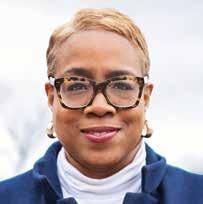
JAMES E. RANSOME has been honored with the 2023 Children's Literature Legacy Award by the American Library Association in recognition of his exceptional contributions to children's literature. With a career spanning more than 34 years, Ransome has illustrated more than 70 books. His passion for art began in Rich Square, North Carolina. As a teenager, he moved to Bergenfield, New Jersey, before pursuing a BFA from Pratt Institute in Brooklyn, New York, and his MFA from Lesley University. Ransome's talent has garnered him numerous accolades, including the prestigious Coretta Scott King Awards, ALA Notables, a Jane Addams Award, and NAACP Image Awards. He resides in Rhinebeck, New York.
LESA CLINE-RANSOME is the author of numerous nonfiction and historical fiction titles for picturebook, chapter book, middle grade, and young adult readers, and her work has been named to ALA Notable Books and Bank Street Best Children’s Book lists.
Her verse picturebook biography of Harriet Tubman, Before She Was Harriet, was nominated for an NAACP Image Award and received a Jane Addams Honor, a Christopher Award, and a Coretta Scott King Honor for Illustration. Finding Langston, the first in the Finding Langston trilogy, was the winner of the Scott O’Dell Award for Historical Fiction and received the Coretta Scott King Award Author Honor. One Big Open Sky, featuring the lives of three female narrators journeying along the Oregon Trail in 1879, is her debut novel in verse.
A 2022 MacDowell fellow, she serves on the SCBWI Advisory Council and is a host of KidLitTV's Past Present: Giving Past Stories New Life
Cline-Ransome is the mother of four and frequently collaborates with her husband, illustrator James Ransome. She lives and works in the Hudson Valley region of New York, where each day she takes long walks and short naps. In between she writes.
Session proposals and their descriptions were created by the session speakers and reviewed through a peer-review process. Session content does not necessarily reflect NCTE policies or positions.
7:00–8:45 A.M.
Sponsored by the Standing Committee on Affiliates
Join the celebration! The Affiliate Roundtable Breakfast provides an opportunity to celebrate the work of affiliates across the country as we recognize state, regional, and national affiliate activity. Affiliates and individuals will be recognized with awards for excellence, leadership and development, multicultural programming, intellectual freedom, and more.
Speakers: Antero Garcia, Stanford University, NCTE Vice President
Emily Kirkpatrick, NCTE Executive Director
Breakfast Cochairs: Amy Nyeholt, Cathy Sosnowski, Nathan Whitman
SCOA Chair: Amy Nyeholt, PA Cyber, Beaver Falls, PA; Pennsylvania Council of Teachers of English and Language Arts
Committee Members: Kathryn Kritzeck Anderson, Anoka-Hennepin ISD #11, Anoka, MN
Lois Marshall Barker, Texas Council of Teachers of English Language Arts
Stephanie Buelow, University of Hawaii at Manoa, Honolulu
Cheryl Golden, Hanover County Public Schools, Ashland, VA
Cathy Sosnowski, Curriculum Consultant
Nathan Whitman, Derby High School USD 260, Derby, KS

ANTERO GARCIA
NCTE Vice President

EMILY KIRKPATRICK
NCTE Executive Director
ANTERO GARCIA is an associate professor in the Graduate School of Education at Stanford University. His research explores the possibilities of speculative imagination and healing in educational research. Prior to completing his PhD, Garcia was an English teacher at a public high school in South Central Los Angeles. His recent research explores learning and literacies in tabletop roleplaying games like Dungeons & Dragons and the civic learning possibilities in various learning environments. Based on his research, Garcia co-designed the Critical Design and Gaming School—a public high school in South Central Los Angeles. His recent books include All through the Town: The School Bus as Educational Technology, Everyday Advocacy: Teachers Who Change the Literacy Narrative (coauthored with Cathy Fleischer), and Civics for the World to Come: Committing to Democracy in Every Classroom (coauthored with Nicole Mirra). Garcia currently coedits La Cuenta, an online publication centering the voices and perspectives of individuals labeled undocumented in the US.
Visit the NCTE Registration Desk to purchase a ticket to this meal event (pending availability).
9:00–11:45 A.M.
The CLASSROOM IDEA EXCHANGE is an opportunity for new classroom teachers, experienced teachers, and those preparing to become teachers to hear from presenters about what engages their students.
New teaching ideas can inspire and benefit you, whether you’re new to the profession or have decades of experience!
NCTE’s Classroom Idea Exchange will connect you with other literacy educators to share and receive best instructional practices. This unique event centers teacher expertise and facilitates the inspiring and affirming exchange of ideas that is the hallmark of our vibrant professional community.
Presenters will have five minutes to share a specific lesson, activity, or assignment, then answer questions from attendees at each table. Attendees will walk away with concrete and easily integrated teaching ideas for activities, assignments, or classroom planning.
Table assignments and presentation schedule will be available at the start of the Exchange.
Chair: Vanessa Heller, Oak Park Unified School District
Presentations include:
“What’s Going On?” A Group Mosaic of Marvin Gaye’s Music— Thomas Ohno-Machado, Howard University
10-Minute Experts—Shaista Fenwick, University of Oklahoma
Academics and Life Skills 101: Applying Lit and Comp to Real Life—Tera Johnson-Swartz
Activist or Agent? Students Engage with Controversy through Analysis and Argument—Lisa Beckelhimer, University of Cincinnati
AI Three Ways for Business English—Lori Muntz
American Studies: How a Cultural Studies Model Diversifies the Teaching of English by Embracing Culture—Matthew Helmers, Ransom Everglades School
American Vibes: What Does the American Dream Sound Like? — Kristi McGauley
Amplifying Curiosity in the Secondary Classroom—Maria Clinton, Northglenn High School, Northglenn, CO
Artificial Intelligence in Our Classrooms: A Student Partnership— Derek Snyder, University of Hawaii Maui College
Benefits of Recorded Feedback: Using Video Recording Techniques to Promote Reflection in a 1:1 ELA Classroom—Brian Campbell, Wellesley Public Schools
Best Part of Speech Full Class Debate—Mary Dibinga, Boston Latin Academy/Boston Public Schools
Beyond Captain Ahab and Tiny Tim: New Approaches to Ableism and Representation in the Secondary English Classroom—Joshua Cabat, Stony Brook University
Bridging the Gap: Leveraging Media Literacy in ELA Classrooms— Davina Sauthoff
Building Bright Futures: A Collaborative Approach to Empowering Students and Strengthening Family Bonds—Tonya Kelly M.Ed, Empower our Youth Foundation/KIPP Columbus Elementary Educator
Building Community through Collaborative Learning: A CrossLevel Educational Activity—Ana York
Business as (Un)usual: Creating Business Cards That Forecast What Education Students May Be Doing Ten Years in the Future!—Jennifer Kagan, Oswego State University
Characters of Life and Literacy—Timeka Ross
Checklist Grading: All the Data in One Place—Andrew Filler, Howard Gardner MI Charter School
Class Debate! —Thomas Ohno-Machado, Howard University
Community Building Activities—Ashley Nolette, Anderson University
Connecting Reading, Writing, and Research to the Real World— Shanda Boone-Hurdle
Session proposals and their descriptions were created by the session speakers and reviewed through a peer-review process. Session content does not necessarily reflect NCTE policies or positions.
9:00–11:45 A.M.
Session proposals and their descriptions were created by the session speakers and reviewed through a peer-review process. Session content does not necessarily reflect NCTE policies or positions.
Continuous Learning in Tech: Staying Relevant in a Rapidly Changing Field, a Guide to Continuous Learning for Educators— Kim Groshek, Pause Power Inc.
Crafting Authentic Personal Essays: Empowering Students in the Art of Self-Discovery—Nicole Conter, Teachers College, Columbia University
Creating a Black Language Chronology through Black Poetry, Literature, and Music—Dawn Thomas, Gainesville High School
Creating Change: A Research Project with Purpose—Erin Deerman, Vestavia Hills City School
Creating Classroom Charters with Student Groups—Grant King, Washington International School
Creative Writing for Social-Emotional Learning—Tanya Rose
Cultivate Freedom Writing among BIPOC Students—Wytinsea Jones, Muscogee County School District
Cultivating Mindful Education: A Pausing Approach for Impactful Teaching and Learning—Kim Groshek, Pause Power Inc.
Curriculum for Children with Developmental Delays—Symone Smith
Cut ’n Paste: Art in English Class—Melissa LaDuc, Rutherford County Schools
Defining Me: Using Characters to Shape Identity—Timeka Ross
Diving into Diversity: The Cultural Immersion Experience for High School Students—Sheena Zadai, Ekphrasis: Writing Based on Visual Art—Thomas Ohno-Machado, Howard University
Embodying the Burkean Parlor—Jill Giebutowski
Embracing Nature’s Elegance: A Haiku-Writing Adventure for Student Engagement—Stephanie Ford, Murray State University
Enacting Change via Storytelling of Culture, Cultural Rhetoric, Cultural Heritage—Shiva Mainaly, Engaged Grammar in Context, Teaching Students to Wordsmith in Groups on the Board—Johnathan Fisher
Engaging Student Voices and Participation: Whole-Class Spiderweb Discussion and Tracking Method—Caroline McAuliffe, Teachers College, Columbia University
Essay Conferences: Promoting Student Accountability and Reflective Practices—Kyra Muhs, University Preparatory High School
Essay Conferences: Promoting Student Accountability and Reflective Practices—Sabrina Sandoval,
Explicate: A Poetry Analysis Card Game—K. A. Keener, New York City Department of Education/New Directions Secondary School
Explicitly Focusing on Successful Speaking and Listening Skills in the Classroom and Beyond—Katherine Alford
Exploring Indigenous Cultures through Virtual Museum Exhibits— Alison Kreiss, Flathead High School
Exploring LGBTQ History through Stories, Songs, and Symbols— Kathleen Barker, History UnErased
Exploring Subtext through Role Play: Deepening Comprehension and Connection with Characters—Sandy Brehl, SCBWI
Fostering Compassionate, Critical Conversations in Our Classrooms and Beyond—Jan Stallones, Western States Center, Teacher Educator, Retired classroom teacher
Fostering Creative Collaboration and Multiliteracies: A Journey from Classroom to Community—Karina Fast
Hot Topics: Addressing Today’s News with Tomorrow’s Leaders— Jessica Shaw, Byram Hills High School
Humanity and Hope in Revision: Global and Local—Catherine Dean, USD 257
Ink-Shedding to Improve Writing, Reading, and Community Building—Matthew Sroka,
Let Humanity Take the Pen: Authentic Writing for High School Students—Kasey Stecher, Pawling Central School District
Literary Art: An Exhibit of Student Artifacts that Explore Literature through Art—Ariela Robinson, Rochelle Zell Jewish High School, Northbrook, Illinois
Living Wall: Jana McCarthy
Lizard People, Government Spies, and Bigfoot, Oh My! Harnessing the Allure of Conspiracy Theories to Teach Media Literacy and Argumentation—Tamara Empson, Louisiana State University Laboratory School
Making Grammar Physical—Claire Porter
Narrative Video Games as Literature in the Secondary Classroom—Katherine Green, Tech High School
Nurturing Workplace Well Being: A Holistic Approach to Staff Retention—Kim Groshek, Pause Power Inc.
Peer Review Speed Dating—Hannah Stevens
Peer-Assisted Prompts—Mary Hilbert, Lincoln-Way West High School
Phoneme Frog: A Lively Phonemic Awareness, Phonics, and Vocabulary Routine—Antony Smith, University of Washington Bothell
9:00–11:45 A.M.
Session proposals and their descriptions were created by the session speakers and reviewed through a peer-review process. Session content does not necessarily reflect NCTE policies or positions.
Power Words—Greg Marano, Liverpool Central School District
Reading Aloud Breathes Life into Our Classrooms—Joseph Pizzo, Black River Middle School
Reading-Writing Connected Teaching Model and Strategies— Samantha Goldstein, Kansas State University/Liberty North High School
Reflective Stations—Thomas Ohno-Machado, Howard University
Reinforcing Good Reader Habits through Independent Reading— Wendy Howard, Manhattan High School
RQQ: A Ritual for Reading All Souls, a South Boston Memoir, through Response, Questions, and Quotes—Elizabeth Gonsalves
Scaffolded Writing with Essay Packets—Kristin Cole, Antelope Valley High School District
Seeing Is Researching: Starting with an Image, not a Topic— Michael W. Young, University of Pittsburgh Sheep among Us—Jonathan Martin-Gilliam
Socratic Discussion Using AP Language Skills and Key Questions from the CED—Lloyd Hoshaw, Millard West High School
Student Creative Writing with “The Monsters Are Due On Maple Street”—Dayna Achilli
Student Voice and Connection in Literary Analysis—Jessica Owen
Student-Guided Socratic Seminars: Authentic Assessment Giving Students Ownership of Their Thinking—Katie Burnett, Edgewood High School
Student-Led Conferences—Adam Azia
Students Design Their Own Questions—Alyssa Dioguardi, Bronxville High School
Teach a Queer Utopia from the 17th Century! —Layla Aldousany, NC School of Science and Mathematics
Teaching Research Skills Using Social Issues in the Classroom— Lindsay King, Boys Latin of Philadelphia Charter High School
Teaching Shakespeare to Older Adults—lori lucas, University of Colorado
Teaching with Comics: Creating Empathetic Analytical Readers and Writers through a Humanities Approach—Tim Smyth, Wissahickon High School
Teaching with Twine!—Layla Aldousany, NC School of Science and Mathematics
Teaching World War II to Neurodivergent Students—Cheryl Gartsbeyn
Tell Me What Happened: A Fun Activity about Student Language Communities—Courtney Marshall
The “Writing Fortune Teller”: A Student-Created Story Generator— Katie Sciurba, San Diego State University
The Healing Power of Poetry: How Poetry Can Inspire Empathy and Hope in Students—Mary Hoyt
The Impact of Student Choice, Voice, and Volume in Reading— Megan Koppes, Kalispell Public Schools
The Powerful Impact and Engagement of Visual Literacy in Education from Pre-K through University in Comics, Picture Books, and Graphic Adaptations—Tim Smyth, Wissahickon High School
A Quick Lesson That Teaches Students the Difference between a Subject and Theme, and Gets Them to Write a Theme Based on Any Reading—James Mascia
Thinking Outside the Box—Isabella Gonzalez
Using a Student Acknowledgement to Foster a Culture of Inclusivity throughout the Semester—Johnathan Fisher
Using “Avatar the Last Airbender” in the English Classroom— Alyssa Connor
Using “Avatar the Last Airbender” in the English Classroom—Sarah Cohen, Wellesley Middle School
Using Magic School to Enhance Creativity and Efficiency in Lesson Planning—Savannah Armistead, University of Mississippi
Using Student-Directed Multimodal Critical Representations of American Literature and Modern Literature to Promote Social Justice—Kristen Srsen Kenney, Bay High School
Visualizing the Writing Process—Wendy Howard, Manhattan High School
Vocabulary Instruction That Works! —Adam Whitaker
Voice Carousel—Mary Hilbert, Lincoln-Way West High School
Weekly Observation Writing to Build Stamina and Use as a Formative Assessment—Kari Allen, Sant Bani School (teacher)
Which Is More Powerful--Fear or Hope?—Stephanie Flaming, Douglass Middle School
Word, Line, Stanza: An Aesthetic Approach to Poetry Analysis— Miller Raybon, Rutherford County Schools
Writing Leaders: Teaching Students to Take Ownership of Their Learning through Writing and Collaboration—Katherine Larson, Temecula Valley Unified School District
Writing to Heal the Heart of Humanity—Kefah Ayesh, Maarif School
Writing Workshop 2.0: Creating Student Agency through Student Mentor Workshops and Competency Based Assessment—Natalie Campbell, Don Tyson School of Innovatio
Session proposals and their descriptions were created by the session speakers and reviewed through a peer-review process. Session content does not necessarily reflect NCTE policies or positions.
Q.1 HS Matters—Patience and Persistence: Using Student Perceptions to Inform of Goal-Setting Practices in Writing Instruction


ROOM 162 B (LEVEL 1)
Sponsored by the Secondary Section Steering Committee
Since writing is a complex process, there is a need for pedagogical approaches that directly involve students within the process to enhance student engagement and motivation to improve their performance. In this session, we will share how English language arts teachers can foster students’ ownership of their writing through goalsetting practices.
Presenters: Erin Riley-Lepo, The College of New Jersey
Kayla Teeling, Mount Olive Township High School, NJ
Q.2 Home Pedagogies and Literacy Sponsorship: Writing Research That Connects to Our Humanity
ROOM 103 (LEVEL 1)

This research presentation will give the testimonio of a Chicana writing researcher whose story is rooted in a tradition of hope. As a scholar whose very existence is possible because of the struggle of those who came before me, my testimonio is not an individual story; it is one told in solidarity with the community of women who raised me. My mother and I will give this presentation together.
Presenters: MaryAnn Baldonado
Monica Baldonado-Ruiz, San Diego State University
Q.3 Poetic Ambiguity as a Source of Hope
ROOM 104 A (LEVEL 1)

How can we help students to navigate these uncertain times? We propose that by inviting uncertainty into classroom spaces through poetry instruction, both teachers and students might develop the comfort and skills that facilitate the navigation of uncertainty. We will discuss and practice ways to cultivate and explore uncertainty in poetry and uncertainty more broadly embedded within.
Presenters: Meghan Kuehnle, The Ohio State University
Lisa Pinkerton, The Ohio State University
Q.4 Thirty of the Best Diverse Jewish Books for Your Classroom ROOM 104 C (LEVEL 1)

To build a diverse and inclusive library, award-winning authors Chana Stiefel and Liza Wiemer will share 30 Jewish books in 30 minutes. Jewish joy, customs, culture, holidays, history, and traditions from around the world will be highlighted. These books will reflect intersectionality within the Jewish community. Lesson plans and resources for the best Jewish literature will be shared.
Presenters and Tradebook Authors/Illustrators: Chana Stiefel, author
Liza Wiemer, Penguin Random House/Kalaniot Books
Q.5 Finding Theme through Community: SocialEmotional Learning as an Instructional Tool in the Middle Grades
ROOM 150 (LEVEL 1)
Amid the instructional demands of teaching English, social-emotional learning (SEL) can feel like an added burden; however, SEL can be an effective, standardsbased tool for teaching theme in the middle grades. Through learning how to merge community-building circles with fishbowl discussions, participants gain strategies for integrating SEL and centering students’ experiences in their classrooms.
Presenter: Alyssa Topolsky, Thomas Starr King Middle School, Los Angeles, CA
Q.6 Empowering Critical Literacy: Exploring Censorship, Consent, and Student Rights in the Classroom ROOM 151 A (LEVEL 1)
Middle school students, alongside their empowered teachers, explored the underlying factors contributing to the challenges faced by these books. This endeavor enriched their understanding of intellectual freedom and censorship in the realm of children’s literature and education.
Presenters: Junko Sakoi, Tucson Unified School District Yoo Kyung Sung, University of New Mexico
Session proposals and their descriptions were created by the session speakers and reviewed through a peer-review process. Session content does not necessarily reflect NCTE policies or positions.
Q.7 Teachers as Freedom-Seekers: Mapping Teachers’ Journeys toward Liberation-Oriented Pedagogies


Q.11 Bringing Critical Thinking, Informational Text, Narrative, and Collaboration into Poetry

ROOM 151 B (LEVEL 1)
Through poetic portraits of three English teachers with a spectrum of experience, this presentation explores how, within the greater curriculum of America and its methods of teacher preparation, teachers pedagogically orient themselves to their students and their curriculum in service of liberation. The portraits are created as counternarratives of teachers of Black students.
Presenter: Candace Moore, Michigan State University
Q.8 Teaching Critical Pedagogy through Filipino/a/x American Literature
ROOM 152 (LEVEL 1)


Join us in tackling education’s evolving landscape by addressing challenges in teaching intricate higher education concepts to align with Ethnic Studies’ inclusion in California high school graduation requirements. Explore Jose Antonio Vargas’ Dear America: Notes of an Undocumented Citizen through blended, self-paced, and mastery-based learning.
Presenters: Avery Balasbas, The Modern Classrooms Project Toni Rose Deanon, The Modern Classrooms Project
Q.9 Hopeful Disruption: Imagining and Building Inquiry Groups That Respond to Teachers’ Questions
ROOM 153 C (LEVEL 1)


This interactive session will invite teachers to give thought to what they hope for their students, their classrooms, and their communities with the purpose of planning for collaborative inquiry in response to the questions they have about their teaching lives.
Presenters: Michelle Fowler-Amato, Old Dominion University Amber Warrington, Boise State University
Q.10 Environmental Literacies for Change: Cordel as a Multimodal Enactment of Critique, Hope, and Action
ROOM 156 A (LEVEL 1)


This presentation amplifies the multimodal instructional strategy of the Cordel as a model to empower and equip teachers with visions of critique, hope, and action related to intersectional environmental justice and activism. The presentation shares an overview of the instructional practice and the ways it has been enacted to support critical literacy around environmental justice.
Presenters: Lauren Fletcher, California State University, Stanislaus Erica Holyoke, University of Colorado Denver
ROOM 156 B (LEVEL 1)
Teaching poetry doesn’t have to be boring. Poetry can come alive with various approaches to teaching that vary from the traditional read-and-respond method.
Presenter: Krista Rodzinka, Canandaigua City Schools, NY
Q.12 Nurturing Hope: Empowering Educators through AI in the Classroom
ROOM 157 A (LEVEL 1)

This session will help teachers embrace the new age of AI with confidence and teach their students how to use AI to their benefit while still maintaining their own unique voice. From differentiation and leveling of texts to composition creation for students to review, AI is the future, and we want to fill teachers’ hearts with hope so they can spend more time sharing their humanity in the classroom.
Presenters: Theresa Rossell, Broad Run High School, Ashburn, VA (Loudoun County)
Ashley Strausser, Broad Run High School, Ashburn, VA (Loudoun County)
Q.13 Creating Space for Elementary Science in ELA: Adapting Curriculum to Teach ELA and Science through Interdisciplinary Centers ROOM 157 B (LEVEL 1)

Recent research strongly supports thematic learning models for young children. By aligning or even merging science and ELA curricula, this talk will show that science can be the context that motivates literacy skill acquisition. Using centers, educators can make space for students to explore and master ELA and science standards concurrently while including more ageappropriate learning styles.
Presenters: Elana Fruchtman, Aspire Public Schools–LA Region
Jennifer Scholz, Aspire Public Schools–LA Region
Session proposals and their descriptions were created by the session speakers and reviewed through a peer-review process. Session content does not necessarily reflect NCTE policies or positions.
Q.14 “Impossible Things before Breakfast”: Chatting with Victorian “Characters” in British Literature Using ChatGPT
ROOM 159 (LEVEL 1)
This session will explore the intersection of classic British literature with cutting-edge generative AI technology, highlighting the impact on contemporary literary education and pedagogical strategies. It aims to reveal how integrating generative AI can enhance student engagement and increase understanding in literary studies.
Presenter: Cindy Allen, Tarrant County College
Q.15 Reading and Listening to Images: Using Graphic Novels and Their Audiobook Adaptations in Secondary ELA Classrooms
ROOM 160 B (LEVEL 1)


Our students live in an increasingly multimodal and digital world. Analyzing, interpreting, and making multimodal texts is essential work. In this interactive session, attendees will learn ways to analyze and interpret graphic novels and their audiobook adaptations. The presenters will share a bibliography, practical teaching strategies, and high school student perspectives.
Presenters: Dani Kachorsky, Brophy College Preparatory
Stephanie Reid, University of Cincinnati
Q.17 Exploring Culturally Relevant Philosophies and Teaching Practices: A Multiple Case Study of Early Career Teachers


ROOM 161 (LEVEL 1)
This session highlights qualitative research that investigates secondary ELA early career teachers’ culturally relevant philosophies and instructional practices. The alignment of those beliefs and practices validates the significance of CRP-infused curriculum in teacher preparation programs and the need to provide ongoing professional development for early career teachers.
Presenter: Jolie Hicks, Oklahoma State University
Q.19 Toward the Beloved Community: ServiceLearning Action and Agency in the Literacy Classroom

The empowered literacy classroom enables students to turn their agency into action through reading, writing, speaking, and listening. In this session, two middle school educators present a literacy-based service-learning project that encourages young people to collaboratively investigate community inequities. Participants will leave with implementable materials and exemplars.
Presenters: Anna Bernstein, Metro Nashville Public Schools
Adam Knight, Metro Nashville Public Schools
Q.20 Writing with Confidence and Knowing Your Dream: Heart, Hope, and Humanity with Young Men in Community-Based Spaces
ROOM 203 (LEVEL 2)
Writing is a powerful way for youth to build community, empower their voices, and share their stories. By exploring the writing of young men of color who have been pushed out of traditional schooling spaces, participants will gain critically engaged writing strategies as they reflect on writing practices that support youth in traditional and community spaces.
Presenters: Caitlin M. Donovan, Duke University
Crystal Lee, North Carolina State University
Janell Miller, North Carolina State University
Q.21 Preparing Our Students to Write in the Workplace
ROOM 204 A (LEVEL 2)

Students graduating from high school or college may choose to continue their studies—or may head straight to work. And yet, writing programs don’t always provide instruction on writing in the workplace. By integrating key best practices for business writing into our instruction on rhetorical situations, we can set students up to communicate successfully in their early careers as well as in school.
Presenter: Erin Lebacqz, High-Value Writing LLC
Session proposals and their descriptions were created by the session speakers and reviewed through a peer-review process. Session content does not necessarily reflect NCTE policies or positions.
Q.22 Our Patchwork Stories: Elevating Student Voices in the High School English Classroom ROOM 204 B (LEVEL 2)
Elevate student voice in your classroom using Everything Sad Is Untrue by Daniel Nayeri. Because the exemplar text is a memoir which pulls in ancient myths and family legends, it encourages students to identify defining people and moments in their own lives. We will provide a unit plan and final project with detailed instructions, rubric, and student examples.
Presenter: Annie Hackney, Vestavia Hills City Schools
Q.23 Beyond Standardized Testing: Empowering Students through a Culturally and Historically Responsive Curriculum



ROOM 205 A (LEVEL 2)
The No Child Left Behind Act made standardized testing the main focus of K–12 education. As English language arts writers for Newark’s Board of Education, we have created a culturally responsive curriculum that adheres to standards and empowers students and teachers to challenge systems of oppression.
Presenters: Kevin Cataldo, Newark Board of Education
Elisa Lee, Newark Board of Education
Q.24 Using the Black Gaze Framework Mini-Lesson Plan as a Way to Center Blackness in Teacher Education

ROOM 205 B (LEVEL 2)
This session is practical in that the participants will be introduced to the Black Gaze Framework (BGF) minilesson template as a resource and starting point to begin to honor Black OGs as foundational and essential to being, learning, and teaching in teacher education. This template uses BGF as a model to guide educators in centering Blackness in their curricular practices.
Presenters: Shamaine Bertrand, The College of New Jersey
Kisha Porcher, University of Delaware
Q.25 Dive into the Dynamic Dance between Pictures and Words


ROOM 205 C (LEVEL 2)
Witness firsthand primary students’ quality art and writing as they participate in a unique, highly scaffolded, pictures-first approach to teaching writing. Experience the dynamic relationship between pictures and words as you practice “reading the picture” to access detail and description. Then watch the picture “come alive” as you process words and picture together. Listen to students reflect.
Presenter: Beth Olshansky, Center for the Advancement of ArtBased Literacy
Q.26 Analyzing Diverse Perspectives: Teaching Argumentation through Media
ROOM 206 A (LEVEL 2)

How do you engage students to connect past and present? How do you teach students to dissect essential questions and hone argumentation skills? Start with stories. Stories, particularly ones told from diverse viewpoints and hidden histories, attract students’ attention better than any other resource.
Presenters: Filiz Yargici, Retro Report
Kim Yates, Pineville High School, KY
Q.27 Novels in Verse Book Clubs: Bridging Historical Events with Poetry
ROOM 206 B (LEVEL 2)
The presenter will share a middle school level book club unit that used diverse novels in verse in combination with informational texts to bridge the gap between fiction and nonfiction texts. Listeners will hear about why it is important to center the real historical events in conjunction with powerful, diverse novels, as well as receive ready-to-use resources for implementing book clubs.
Presenter: Rebecca Brown, Warren Consolidated Schools, Sterling Heights, MI

Session proposals and their descriptions were created by the session speakers and reviewed through a peer-review process. Session content does not necessarily reflect NCTE policies or positions.
Q.28 Culturally Responsive Listening in English Language Arts Classrooms: Connecting to Curriculum for Cultural Engagement

ROOM 207 (LEVEL 2)
Sponsored by the Julia E. Berry Research Award
This project is funded by the 2022 NCTE Julia E. Berry Research Award. It aims to capture English teachers’ methods to create culturally responsive environments that foreground student assets and interests when working with required texts. It also shares teachers’ strategies to get to know their students and integrate what they learned from students into the curriculum.
Presenter: Erin McNeill, Central Indiana Education Service Center
Q.29 Accessing Literary Criticism in the Secondary Classroom

ROOM 208 (LEVEL 2)
This session features an examination of two methods of teaching literary criticism to high school students. Two ninth-grade English teachers will discuss the importance of applying lenses such as Marxism, feminism, postcolonialism, and ecocriticism to shared texts in order to examine community power structures, thus enabling students to analyze institutional patterns related to race and gender.
Presenters: Rachel Henry, Livingston High School
Rachel Skerker, Livingston High School
Q.30 Writing Workshop: Agentic Writers Authoring Their Funds of Identity


ROOM 209 (LEVEL 2)
The presentation showcases how early childhood teachers can support students in becoming agentic writers during the writing workshop. Writing workshops offer students the space to develop their identity as writers, naturally employ compositional techniques, explore writing structures, and author their Funds of Identity while fostering their academic success.
Presenters: Laura Cardona-Berrio, The University of Texas at San Antonio
Gilberto Lara, The University of Texas at San Antonio
Maria Leija, The University of Texas at San Antonio
Rosalba Garcia Rodriguez, SAISD-Mark Twain DLA
Q.31 Civic Discourse in K–12 Education: Offsetting Polarization and Echo Chambers
ROOM 211 (LEVEL 2)
This session will bring together educators to discuss civil discourse supports in the classroom, dissecting samples of these lessons to empower educators to guide students in a political landscape that feels hopeless and fractured. Participants will begin in whole-group dialogue and splinter into small groups for mini-lesson studies to develop practical pedagogical techniques and supports.
Presenter: Rachel Besharat Mann, Wesleyan University
Q.32 Big Reads and Beyond: Whole-School Reads
Foster Community Connection
ROOM 251 (LEVEL 2)
School- or district-wide readings of a single book can serve as a launch pad for meaningful and memorable curricular and community connections. From planning and funding to support and implementation, learn how to create a “Big Read” for your school(s) in this workshop with librarian and author Alexandra S. D. Hinrichs.
Presenter: Alexandra Hinrichs, Librarian/Author
Q.33 Closer to Home: Utilizing Literature of Place to Engage Disengaged Learners
ROOM 252 A (LEVEL 2)
This session will show participants how to utilize literature of place to engage disengaged learners. Participants will experience the dialogic practices I utilized to introduce my students to the racial literacies needed to put texts into conversation with their lived experiences and their communities. This will be a journey through an essay-building process ending with a glance at student work.
Presenter: Vernon Keeve, Teachers College, Columbia University/ Guttman Community College/Bard MicroCollege
Session proposals and their descriptions were created by the session speakers and reviewed through a peer-review process. Session content does not necessarily reflect NCTE policies or positions.
Q.34 The Heart of the Classroom: A Cross-Disciplinary Memoir Project ROOM 254 A (LEVEL 2)
The English curriculum gets filled quickly with novels, poetry, fiction, as well as expository and argumentative writing, and too often, this can leave memoir and narrative writing left out. This session will present a unit for a secondary classroom to re-center students’ own experiences through personal writing and then expand outward to reading about others’ lives.
Presenter: John Golden, Portland Public Schools
Q.35 Nurturing Trilingualism and Literacy with Heart and Hope: Lessons from US Transnational Families for Early Childhood Education ROOM 255 (LEVEL 2)

This session explores practical insights gained from research on how US transnational families actively foster multilingualism and literacies in their children across their daily language repertoire. We delve into the study’s impact on early childhood teaching methods, providing valuable guidance for practitioners in the field of multilingual early childhood education.
Presenters: Tuba Angay-Crowder
Jayoung Choi, Kennesaw State University
Zurisaray Espinosa
Mihaela Gazioglu
Q.36 The Power of Teaching Short Films: Literacy, Representation, Empathy, and Creativity

ROOM 256 (LEVEL 2)
This presentation will provide ELA secondary teachers with a 3–6-week unit on teaching short films, and it will cover why teaching short films is challenging, engaging, and extremely relevant to ELA education. Film is an essential part of visual literacy, and using short films allows students the opportunity to engage with a wide range of voices, contexts, and modes of communication.
Presenter: James Sieck, Oak Park and River Forest High School
Q.37 Analyzing 10 Years of NCTE Program Offerings: Exploring Indigeneity in Professional Teacher Organizations

ROOM 257 A (LEVEL 2)
This study explores the Annual Convention Programs of NCTE from 2013 to 2022 for quantitative and qualitative representation of Indigenous Peoples. Utilizing Indigenous research methodologies, this study hopes to provide a critical lens to NCTE to examine both positive and negative conceptions of Indigeneity and offer possible directions forward for the organization and future conferences.
Presenters: Joaquin Munoz, University of British Columbia Dawn Quigley, HarperCollins Children’s Books
Q.38 Reading as an Act of Critical Mobility: Resistance, Hopefulness, and Futurity in the Worlds of Young Men of Color
ROOM 257 B (LEVEL 2)


What does it take for a text to push young readers— particularly those who have experienced marginalization in social spaces—to rethink their worlds? In what ways does the act of reading catalyze, or mobilize, one’s criticality? This paper will explore how a group of young men of color utilize texts to resist dominant narratives that threaten the fullness of their humanity.
Presenter: Katie Sciurba, San Diego State University
Q.39 Amplify English Language Learners’ Vocabulary and Language through Talk, Texts, Play, and Joy ROOM 258 A (LEVEL 2)

Increasing vocabulary is the key English language learners need to feel successful across reading, writing, listening, and speaking in academic and social settings. With interdisciplinary learning templates, we will use purposeful talk, a broadened definition of texts, and dramatic play for joyful experiences where students learn, comfortably practice, and acquire connected multi-tier vocabulary.
Presenters: Katie Even, The Reading and Writing ProjectMossflower
Shanna Schwartz, Educators for Collaborative Literacy
Sara Thorne, P.S. 29 John M. Harrigan Elementary School, New York City Department of Education
Session proposals and their descriptions were created by the session speakers and reviewed through a peer-review process. Session content does not necessarily reflect NCTE policies or positions.
Q.40 Literacy on the Field: Reading and Writing in Athletic Coaching
ROOM 258 B (LEVEL 2)

Q.42 Critical Identity Exploration for Humanities Teachers

Making literacy connections from the classroom to the real world is an absolute necessity in today’s world. This presentation focuses on research conducted with athletic coaches which reveals a number of literacy and academic skills prevalent in athletics. See how athletes are compiling textual evidence, conducting close reads, and inferencing all while taking part in sports programs.
Presenter: Rebecca Harper, Augusta University Writing Project
Q.41 Podcasting to Reclaim Humanity (or How Two Teachers Learned to Stop Worrying about Boundaries and Instead to Listen to Their Students)

ROOM 258 C (LEVEL 2)
While the adult world marches toward division and disconnection, younger generations continue to innovate by breaking down genre boundaries. In this presentation, we will outline how students connected across state boundaries for the second year in a row (CT and AZ) to create podcasts that wove together narrative storytelling, research, and interviews to create organic, meaningful texts.
Presenters: Wesley Baron
Emily Genser, Conard High School
ROOM 259 A (LEVEL 2)
Through writing in social studies, students can explore history, civics, and issues of social and racial justice. This session offers critical identity exploration (CIE) as a framework to support preservice social studies teachers in enacting transformative writing instruction in these domains. We will engage the audience in CIE and present findings from the study that gave rise to the framework.
Presenters: Andrew del Calvo, University of Pennsylvania
Amy Guillotte, University of Pennsylvania
Q.43 Challenging the Script: Reclaiming Human Connections as the Heart of Curriculum Decisions
ROOM 259 B (LEVEL 2)

I will present examples from middle school and high school classrooms, coaching conversations, teacher education, and research that will prepare literacy educators to challenge scripted literacy instruction at the secondary level. Participants will leave the session with concrete strategies for creating high-quality, standards-aligned curriculum that sustains adolescents’ diverse identities.
Presenter: Kate Lechtenberg, University of Iowa

Session proposals and their descriptions were created by the session speakers and reviewed through a peer-review process. Session content does not necessarily reflect NCTE policies or positions.
R.1 SCOA Affiliate Extravaganza
ROOM 052 A (EXHIBIT LEVEL)
Sponsored by the Standing Committee on Affiliates
Meet with affiliate leaders from around the country as they present working models of successful programs and practices from their affiliates. Whether you are looking for support in attracting and retaining members, hosting advocacy initiatives, or gathering ideas for planning and executing successful state and regional meetings, this session will give you ample ideas and tips to try back home.
Presenters: Kathryn Kritzeck Anderson, Coon Rapids High School, MN/Minnesota Council of Teachers of English
Lois Marshall Barker
Stephanie Buelow, University of Hawaii at Manoa/Hawaii Writing Project/Hawaii Council of Teachers of English
Cheryl Golden, Hanover County Public Schools
Amy Nyeholt, SCOA PA Cyber
Cathy Sosnowski
Nathan Whitman, Derby High School USD 260
R.2 Multimodal Is at the HEART of the Essay
ROOM 052 B (EXHIBIT LEVEL)

Preparing students for college writing means preparing them to understand that we write for a variety of purposes, and therefore a variety of audiences. Students need to move away from thematic writing, written only for their English teacher, and into public spaces of writing styles that work for outside audiences (even if those audiences are imagined). Enter multimodal essaying!
Presenters: Kevin Barbero
Emily Genser, Conard High School
Ramona Puchalski-Piretti, Conard High School
Arri Weeks, New Canaan High School
R.3 WAKE UP! How to Mobilize against Book Banning


ROOM 102 A (LEVEL 1)
Sponsored by the Standing Committee on Diversity and Inclusivity
This roundtable will focus on equipping educators with a practical and proactive toolkit to counter escalating book bans and curricular censorship. Presenters will share actionable steps for teachers under attack, provide resources, and share organizations that support teachers to disrupt book banning.
Presenters: Edith Campbell, Indiana State University
Grace Enriquez, Lesley University
Sue Flis, Bridgewater State University
Roberta Price Gardner, Kennesaw State University
Stephanie Renee Jones, University of Georgia
Sarah Miller, NCTE Staff
Sanjuana Rodriguez, Kennesaw State University
Kamania Wynter-Hoyte, University of South Carolina
ROOM 102 B (LEVEL 1)
Sponsored by the Middle Level Section Steering Committee
In this session, you’ll learn strategies for promoting critical media literacy, particularly in an election year. Organized by NCTE’s Middle Level Section Steering Committee, the presentation aims to share practical approaches for guiding students in critically evaluating information sources for bias and ambiguity.
Presenter: Sonam Shahani
ROOM 103 (LEVEL 1)
For decades, the Arab narrative in Western literature has been riddled with harmful tropes and negative stereotypes of the angry, violent Arab. In this panel, we’ll discuss how Arab authors are reclaiming the narrative by writing books with alternative historical perspectives, telling stories filled with hope, joy, and beauty, and shattering stereotypes through more nuanced characters and stories.
Presenters and Tradebook Authors/Illustrators: Huda Fahmy, Penguin Random House
Aya Khalil, Little Brown Books for Young Readers
Hannah Moushabeck, Chronicle Books/Interlink Publishing
Rhonda Roumani, Union Square
Shifa Safadi
Safa Suleiman
Session proposals and their descriptions were created by the session speakers and reviewed through a peer-review process. Session content does not necessarily reflect NCTE policies or positions.
R.6 Building Students’ Writing Identities by Finding Our Own: Hope for Teachers Who Write with Heart for Authentic Writing Instruction
ROOM 104 A (LEVEL 1)
Join us to explore and reflect on classroom writing instruction. In this session, we will share strategies for developing the writers in your classroom, beginning first with the role of the teacher as a writer. Learn how to create opportunities for students to write freely and without fear, building their identities as writers who know the power of their voices.
Presenters: Alyssa Cameron Likens, Sterling School, Greenville County Schools
Kate Massey, Blythe Academy of Languages, Greenville County Schools
Abbey Miller, Jesse S. Bobo Elementary School/Furman University
R.7 Hearts, Minds, and AI: Preservice Teachers’ Approaches to Using ChatGPT for Lesson Planning and Instruction

ROOM 104 B (LEVEL 1)
In this panel presentation, teacher educators and preservice teachers share their experiences integrating ChatGPT into collaborative unit and lesson planning and share how they used it as a tool for critical framing, unit assessments, and more. Participants will engage with a framework for prompting ChatGPT and will share successes and challenges using generative AI for unit planning.
Presenters: Mike Frazier, Michigan State University
Sheri Seyka, East Lansing High School
Jennifer VanDerHeide, Michigan State University
R.8 Trouble Don’t Last Always: Using Middle Grade Literature to Help Young People Navigate Hard Times with Heart, Hope, and Humanity
ROOM 104 C (LEVEL 1)
In this panel, we invite the audience to join us in a discussion of middle grade novels written by Sherri Winston, Leah Stecher, and Kwame Mbalia. We will discuss how the authors handle big issues like mental health and family instability for young readers. Participants will leave our session with ideas for how to engage readers of all ages in difficult discussions using the three novels.
Presenters: Renata Love Jones, Georgia State University
Nicholl Montgomery, Simmons University
Tradebook Authors/Illustrators: Kwame Mbalia, Disney Publishing
Leah Stecher, Bloomsbury
Sherri Winston, Bloomsbury
R.9 The Work of Play in the Classroom: OpenEnded Student-Centered Prompts and Games to Transform Your Writing Classroom
ROOM 150 (LEVEL 1)
Discuss, watch, and play a series of original writing games and prompts fundamental to writing instruction that can be implemented in the classroom to great effect. The games will span age ranges, genres, techniques, forms, and literacy skills, and infuse joy into writing, while teaching craft concepts intrinsically. We’ll also look at how we design our games, so that you can build your own.
Presenter: Matthew Jellison, Writopia Lab
R.10 Opening Hearts, Transforming Families: Early Career Teachers on YA, Students, and Communities


ROOM 151 A (LEVEL 1)
This panel presentation focuses on early career teachers’ experiences with YA literature with an emphasis how these novels can engage adolescent readers in the classroom and bring together families and communities outside the classroom. The presenters speak to the undeniable immediacy of YA to address pressing issues like family dynamics, LGBTQ+ identities, toxic masculinity, and systemic racism.
Presenters: Michael Boatright, Western Carolina University
Rachel Clegg, Western Carolina University
Lauren Massey, Western Carolina University
Olivia Pulliam, Western Carolina University
Wyatt Wilson, Western Carolina University
R.11 Beyond Inclusion: The Humanity in Representation and Advocacy for the Disability Community ROOM 151 B (LEVEL 1)

“Disability is a social construct and one that others an entire group of humans.” The disability community has largely been omitted in discussions of representation, choice, and access. These two presentations aim to provide insight into authentic and actionable ways to advocate for and provide access to materials and strategies that humanize this often overlooked community.
Presenters: Joshua Cabat, Stony Brook University, “Beyond Captain Ahab and Tiny Tim: Ableism and Representation in the Secondary English Classroom”
Michael Kersulov, Springfield Platteview Community Schools, NE, “Catch-ing PBL and YPAR: Students Researching and Creating Comics for Readers with Low Vision”
Susan Scheer, Visions, "Beyond Captain Ahab and Tiny Tim: Ableism and Representation in the Secondary English Classroom"
Session proposals and their descriptions were created by the session speakers and reviewed through a peer-review process. Session content does not necessarily reflect NCTE policies or positions.
R.12 Humor in and across Learning Spaces: Laughter, Critique, and Moments of Rupture ROOM 152 (LEVEL 1)

Humor has the potential to open up spaces of critical inquiry and make room for critical play, but as a power equalizer, it is often seen as an unwelcome presence in serious sites of learning. Here, we examine productive, disruptive intersections of critical literacy and humor across a variety of relevant power structures.
Presenters: Alex Corbitt, SUNY Cortland
Karis Jones, Empire State University, SUNY
Angel Huynh Ky, DeWitt Middle School
David Low, California State University, Fresno
Scott Storm, University at Albany, SUNY
R.13 Assessments to Foster Student Agency and Growth
ROOM 153 C (LEVEL 1)


This session highlights formative assessment practices that foster student agency and growth as writers. One presenter shares an asset-based approach to formative assessment, and another shares a multimodal peer review process that prepares students for life after graduation.
Presenters: Leah Barnett, Oakland-Flint Writing Project/Royal Oak High School, “Assets-Based Assessment Practice: Engaging Students in Authentic Conversations That Foster Agency for Growth”
Taylor Holden, University of California Davis, “Crafting Meaningful Peer Review Assignments: Can Multimodal Peer Collaboration in the ELA Classroom Impact Multimodal Peer Communication in the Outside World?”
Derek Miller, Oakland-Genesee Writing Project/Royal Oak High School, “Assets-Based Assessment Practice: Engaging Students in Authentic Conversations That Foster Agency for Growth”
Chris Seal, Dare County Schools, “Crafting Meaningful Peer Review Assignments: Can Multimodal Peer Collaboration in the ELA Classroom Impact Multimodal Peer Communication in the Outside World?”
R.14 “Yes, and”: Using YA Literature to Facilitate Difficult Conversations
ROOM 154 (LEVEL 1)
Recognizing students’ need for fostering skills around nuance and uncertainty, four award-winning YA authors will model engaging with complex literature in ways that make room for diverse opinions. At roundtables, authors will share an excerpt from their newest book and join participants to brainstorm discussion questions that invite difficult, open-ended, and nuanced conversations.
Chair: Jennifer Buehler, Saint Louis University Tradebook Authors/Illustrators: Samira Ahmed, Little Brown Books for Young Readers
Elana K. Arnold, HarperCollins
Randy Ribay, Penguin Young Readers
Dashka Slater, Macmillan Children’s Publishing Group
R.15 Beyond Analysis: Poetry and Beauty in Secondary ELA Classrooms
ROOM 156 A (LEVEL MEETING LEVEL 1)


Some students have a difficult time with poetry. This session will offer two approaches to making poetry come alive for even reluctant readers. These presenters offer expertise and resources related to poetry: from bell ringers and community-focused reading to interdisciplinary projects and activities that bridge STEM, history, and English.
Presenters: Elise King Cohen, Collingwood School, “Bringing Heart: Poetry’s Interdisciplinary Power”
Meg Davis Roberts, SUNY New Paltz, “Cultivating a Literary Classroom Home: Practices with Poetry”
R.16 Writing from the Heart: Using Authors’ Messages of Heart, Hope, and Humanity to Teach and Inspire
ROOM 156 B (LEVEL 1)

Since the pandemic of 2020, there has been much discussion around learning loss related to disruption in the traditional educational setting, and, more important, educators and parents reported higher incidences of mental health issues among students. This interactive session shares instruction that utilizes the uplifting book Hope Wins as a mentor text for reading and writing.
Presenters and Tradebook Authors/Illustrators: James Bird, Macmillan/Feiwel & Friends
Rose Brock, Sam Houston University
Paul Hankins, Silver Creek High School
Susan James
Respondent: Bryan Ripley Crandall, Connecticut Writing Project/ Fairfield University
Session proposals and their descriptions were created by the session speakers and reviewed through a peer-review process. Session content does not necessarily reflect NCTE policies or positions.
R.17 LMS Voice & #TeachLivingPoets Live and In-Person with Poet Joseph Green ROOM 156 C (LEVEL 1)
Spoken word artist and poet Joseph Green will be in attendance as we highlight and celebrate his work. Green will give a reading, provide insight into his writing process and experience as an author, and answer questions. A panel of educators, including the founders of LMS Voice and #TeachLivingPoets, will share ideas for teaching poetry to inspire and empower students.
Presenters: Joseph Green
Brian Hannon, Hayfield Secondary School
Melissa Smith, Lake Norman Charter High School
R.18 Young Adult Literature for Hope and Healing ROOM 157 A (LEVEL 1)
This panel offers hope and healing to students through Native American, feminist, father/daughter narratives, and LGBTQi+ perspectives in young adult literature. Panelists are undergraduate and graduate students, a teacher in an alternative school, and an English educator. Chaired by the author of Mental Illness in Young Adult Literature.
Chair: Kia Jane Richmond, Northern Michigan University
Presenters: Cynthia DePetro, Marquette Alternative School
Erin O’Donnell, Northern Michigan University
Kelly Sassi, Northern Michigan University
Nicolette Visciano, Northern Michigan University
R.19 Getting to the Heart of Survival Stories: Bringing Hope and Humanity to Every Reader ROOM 157 B (LEVEL 1)

Survival stories not only keep young readers reading, they also help kids work through adversity in their own lives by using text-to-self connections to find strength and build empathy. This panel of award-winning authors will discuss what draws them to survival stories as a way to help engage, embolden, and bring hope to their readers as they confront difficult situations in real life.
Presenter: Melissa Thom, Bristow Middle School, West Hartford Public Schools
Tradebook Authors/Illustrators: Donna Barba Higuera
Amina Luqman-Dawson, Little Brown Books for Young Readers
Jennifer Nielsen, Scholastic
Erin Soderberg Downing, Scholastic
Christina Soontornvat, Scholastic
Padma Venkatraman, Penguin Random House
R.20 Trusting Our Readers: Understanding and Belonging in MG and YA Novels
ROOM 157 C (LEVEL 1)


A vivid future begins with trusting our youth. Authors layer trust through the intersections of reader support and representation on the pages of their novels. This panel of MG and YA storytellers will show how to build reader trust with inferencing, narrative gaps, authentic representation, scaffolding through complexity, and centering readers’ needs. A book list and exercises will be provided.
Presenters and Tradebook Authors/Illustrators: Jas Hammonds, Macmillan
Alison Green Myers, Highlights Foundation/Penguin Random House
NoNieqa Ramos, Lerner/Carolrhoda Books
Meera Trehan, Highlights Foundation/Candlewick Books
Alexandra Villasante, Highlights Foundation Penguin/Random House
R.21 Arrivals & Departures: Reimagining Inquiry through Drama and Performance in the ELA Classroom
ROOM 159 (LEVEL 1)
This interactive session will invite attendees to explore performative inquiry pedagogies and assessment strategies. We’ll provide resources attendees can take back to their classrooms. Together we’ll raise the curtain on performative inquiry and depart ready to take the stage with our students as we innovate, create, and make good ELA art.
Presenters: Nicholas Emmanuele, McDowell Intermediate High School
Glenda Funk, Pocatello/Chubbuck S.D. #25
Mary Luckritz, Rolling Meadows High School
Anthony Stripe
Gretchen Teague
Session proposals and their descriptions were created by the session speakers and reviewed through a peer-review process. Session content does not necessarily reflect NCTE policies or positions.
R.22 Making Space for Our Hearts: How Novels-inVerse Serve as an Invitation to Student Readers and Writers
ROOM 160 B (LEVEL 1)

R.24 Social Justice in Literature and Life
ROOM 161 (LEVEL 1)

Novels-in-verse, by their very nature, create space for a full range of human emotion, making them perfect catalysts for discussion in classroom and communitywide reads. Join six acclaimed authors and an educator known for sparking brave conversations in a heartfelt discussion of the power of poetry to inspire student readers and writers to reflect, connect, and share stories of their own.
Presenters: Aliza Werner, Bookelicious/Milwaukee Film
Tradebook Authors/Illustrators: Lesa Cline-Ransome, Simon & Schuster
Kate Messner, Bloomsbury Children’s Books
Mae Respicio, Random House Children’s Books
John Schu, Candlewick Press
Renée Watson, Bloomsbury Publishers
Alicia D. Williams, Simon & Schuster
R.23 Off the Mark: How Grades, Ratings, and Rankings Undermine Learning (but Don’t Have to)
ROOM 160 C (LEVEL 1)
Sponsored by the NCTE Standing Committee on Assessment
Learn about how we got into this predicament with grades, test scores, and transcripts, why we remain beholden to our outmoded forms of assessment, and what we can do to change course. Presenters will offer a range of practical reforms and suggestions for how to use assessment to both motivate students to learn and communicate meaningful information about what young people know and can do.
Chair: Carol Jago, University of California Los Angeles
Presenters: Ethan Hutt, The University of North Carolina at Chapel Hill
Jack Schneider, University of Massachusetts Amherst
Works of literature are read as a way to navigate into the conversation about social justice issues. Promoting service-learning through field trips and speakers enables a hands-on approach to how we organize our society— in economics and politics, in law and policy—that directly affects human dignity and the capacity for all individuals to grow in community.
Presenter: Victoria Frabotta
R.25 How Stories Can Help Students Feel Brave and Take Risks
ROOM 162 A (LEVEL 1)

Every day, teachers ask students to be brave and take risks with both academics and social interactions. Sometimes, though, students doubt their own bravery. That’s where books come in--they’re the perfect medium to help model courage in all its forms. This panel will discuss books with brave characters, including kids who challenge social stereotypes, battle mental illness, and fight monsters.
Presenters and Tradebook Authors/Illustrators: Adrianna Cuevas, HarperCollins
Lorien Lawrence, Westport Public Schools/Amulet/Abrams
Janae Marks, HarperCollins/Quill Tree Books
Dan Poblocki, Penguin Workshop
Mia Wenjen, Lee & Low
R.26 Facilitating the Fun: Using Picturebooks as a Springboard for Playful Writing Practice

ROOM 162 B (LEVEL 1)
Literally playing with words (and point of view, structure, and style!) lets us approach writing with more fun than fear, to tap into our core need to express ourselves from the heart. In this workshop, presenters will lead attendees in playful writing practices they can implement in their classrooms, growing students who bring confidence, creativity, individualism, and joy to their writing.
Presenters and Tradebook Authors/Illustrators: Kari Allen, Sant Bani School
Valerie Bolling, Chronicle/HarperCollins/Scholastic
Carrie Finison, Penguin Random House
All sessions will be held at the Boston Convention & Exhibition Center unless otherwise noted.
Session proposals and their descriptions were created by the session speakers and reviewed through a peer-review process. Session content does not necessarily reflect NCTE policies or positions.
R.27 Reading with Hope: Preparing Preservice Teachers to Resist Book Censorship ROOM 203 (LEVEL 2)

This presentation provides context of book bans/ challenges, explores the ways I restructured a required adolescent literature course to meet preservice teacher (PST) concerns, and, shares the thoughts of PSTs who have taken the course and will graduate into a world where their professionalism as teachers is under attack and there is a high likelihood that their text choices will be challenged.
Presenters: Sarah Buchli, University of Wisconsin-Eau Claire
Emily Freeman, University of Wisconsin-Eau Claire
Mackenzie Pfund, University of Wisconsin-Eau Claire
R.28 The Heart to Head Connection: Using Illustrated Narrative Nonfiction to Give Hope to Readers Struggling with Informational Text ROOM 204 A (LEVEL 2)

To be informed and humane citizens in a complex world, students need meaningful content from informational texts, but statistics show many struggle with comprehension and accessibility. This panel of educators and authors explores ways to empower students with specific “heart” and “head” strategies using illustrated narrative nonfiction as a bridge for understanding and writing informational texts.
Presenters: Beth Anderson, Astra Publishing Carolee Dean, Providence College, RI
Debbie Myers, Milton Hershey School
Jolene Gutiérrez, Denver Academy
R.29 Using Diverse Picturebooks to Build Students’ Background Knowledge and Vocabulary ROOM 204 B (LEVEL 2)
Four authors and illustrators will problematize, inquire, and discuss with the audience how to use literature to build vocabulary and background knowledge within explicit teaching frameworks. Creators de la Peña, Levinson, Lindstrom, and Bui will share their work and facilitate a discussion of how diverse children’s literature can facilitate vocabulary and background knowledge instruction.
Presenters and Tradebook Authors/Illustrators: Jackie Arnold, University of Dayton
Hanh Bui, Macmillan/Feiwel & Friends
Matt de la Peña
Cynthia Levinson, Simon & Schuster
Carole Lindstrom, Abrams Books for Young Readers
Mary-Kate Sableski, University of Dayton
R.30 Conflict Resolution in the Classroom: Lessons in Empathy and Humanity in Middle Grade Novels
ROOM 205 A (LEVEL 2)
Resolving conflicts in classrooms is perhaps one of the biggest challenges for educators. How can books written by middle grade authors encourage conflict resolution in the classroom? How can these books teach students lessons in empathy and humanity? Middle grade authors and author-educators lead interactive discussions and share examples of teaching activities.
Presenters and Tradebook Authors/Illustrators: Sarah Kapit, Author
Jen Malia, Norfolk State University/Beaming Books
Malia Maunakea, Penguin Workshop
Laura Stegman, Young Dragons Press/Tantor Media
R.31 Cultivating Cultural Competence in Future Educators
ROOM 205 B (LEVEL 2)



This presentation focuses on how three early childhood, elementary, and social foundations of education teacher educators used culturally responsive texts and critical ethnographic studies to prepare future teachers to foster cultural and humanizing awareness intentionally. Interactive and intercultural communications, such as literature circles and book clubs/book talks, were utilized.
Presenters: Julie Paul Flannery, The University of Alabama at Birmingham, “Lead for Culturally Responsive Literature Circles and Mixed-Media Journals”
Grace Jepkemboi, The University of Alabama at Birmingham, “Lead for Culturally Responsive Texts”
Vanessa Vega, University of South Florida, “Lead for Critical Ethnography Studies”
Session proposals and their descriptions were created by the session speakers and reviewed through a peer-review process. Session content does not necessarily reflect NCTE policies or positions.
R.32 Local Climate Activists Speaking Out: Boston Edition
ROOM 205 C (LEVEL 2)

Sponsored by the ELATE Commission for Climate Justice Inquiry and Action
Hear from Boston-based environmental justice advocates including aa grade 11student climate empowerment ambassador. We will discuss the role of RLA and literacy instruction in combating climate change misinformation and creating a greener future.
Presenters: Anne Gatling
Gauri Kumar
Catherine Lammert, Texas Tech University
R.33 Inspire Engagement and Motivation during Immersion in Writing Studies
ROOM 206 A (LEVEL 2)
During immersion—the first part of a writing study— students become inspired to write and learn to write better because teachers introduce them to the writing of engaging and relevant mentor authors. This session will help participants understand the why and how of immersion, and how to select mentor texts for immersion that create spaces inclusive of multiple perspectives and experiences.
Presenters: Carl Anderson, Author/Literacy Consultant
Emily Callahan, Smithville School District
Matt Glover, Matt Glover Consulting
Towanda Harris, Clark Atlanta University
R.34 Soul Stories: Exploring the Full Range of Black Life in Literature



ROOM 206 B (LEVEL 2)
How do we demonstrate that Black stories matter? Limited narratives can reinforce dangerous single stories and tropes that impact real lives. Four acclaimed educators and authors will share strategies and resources to support full inclusion of Black books in the classroom and beyond, and offer personal stories to inspire students in their development as readers, critical thinkers, and advocates.
Presenters and Tradebook Authors/Illustrators: Shanetia Clark, Salisbury University
Lamar Giles, Scholastic
Kelly Starling Lyons, HarperCollins/Penguin Random House/ Lee & Low/Albert Whitman/Founding Member of The Brown Bookshelf
Olugbemisola Rhuday-Perkovich, Random House Children’s Books
R.35 Playing from the Heart: Play and Literacy as Agents for Healing Change and Community ROOM 207 (LEVEL 2)


This session will feature a network of school-based educators who will give participants a window into their powerful collaboration as a thinktank that has led to a collective learning journey and advocacy for play in PreK–2 classrooms. Participants will leave with practical ways to apply play-based learning to support socialemotional development, literacy for change, and family partnerships.
Presenters: Tea Forsythe, New Bridges Elementary School
Liz Franchi, Roosevelt Elementary
Jackie Kovatch, Katonah Lewisboro School District
Lindsay Mann, University of Michigan
Fanny Naula, New Bridges Elementary
Alison Porcelli, Katonah-Lewisboro School District
Rachel Rothman-Perkins, We Grow Together
Aida Sanchez-Lobashov, Grant Avenue Elementary School, New York City Department of Education
Shan White, New York City Department of Education District 17
Session proposals and their descriptions were created by the session speakers and reviewed through a peer-review process. Session content does not necessarily reflect NCTE policies or positions.
R.36 Nurturing Field-Based Community Partnerships: Exploring Equitable Generative Dissonance as Sites of Learning for All


ROOM 208 (LEVEL 2)
Presenters share how they’ve designed new partnerships responsive to the needs and strengths of their COVID-era teacher candidates who are both eager for and tested by field-based learning. Their efforts and research-based findings evidence the importance of designing for generative equitable dissonance, interactive spaces where partners inhabit both “expert” and learner positionalities.
Presenters: Danielle Lillge, Illinois State University
Shannon Maney-Magnuson, Illinois State University
Elisa Palmer, Kingsley Junior High School
Brooklyn Vogel, Illinois State University
Respondent: Christopher Parsons, Keene State College
R.37 Ink and Ideas: Empowering Education with Graphic Novels
ROOM 209 (LEVEL 2)

This panel will explore the popularity of graphic novels among young readers, affirming their transformative power and ability to foster literacy, critical thinking, identity, and creativity among students. A diverse group of graphic novel authors, illustrators, and educators will help teachers and librarians develop a strategy for fostering an appreciation of books through this important medium.
Presenters and Tradebook Authors/Illustrators: Matthew Faulkner, Hollins University
George Jreije
Kristen Kiesling, Abrams
Sharon Langley, Abrams
Elizabeth Pagel-Hogan, McDaniel College
R.38 Teaching with Hope and Criticality for the World to Come: Digital Literacies in English Teacher Education

ROOM 210 C (LEVEL 2)
Sponsored by the ELATE Commission on Digital Literacies and Teacher Education
Members of the ELATE Commission on Digital Literacies and Teacher Education will share research and teaching ideas for using digital literacies to enact change, further the cause of justice, and expand the boundaries of English education. The session will include two rounds of presentations by English teacher educators. Join us to explore digital literacies in ways that are productive and critical.
Chair: Brady Nash, Miami University
Presenters: Johnny Allred, Brigham Young University
Maryanne Barrett, Roberts Wesleyan University
Jonathan Bartels, University of Michigan-Flint
Stefani Boutelier, Aquinas College
Kiernan Cantergiani, University of New Mexico
Mariana Castañon, University of New Mexico
Nicole Damico, University of Central Florida
Candance Doerr-Stevens, University of Wisconsin-Milwaukee Writing Project
William Fassbender, Montana State University
Andrea Gambino, North Carolina State University
Merideth Garcia, University of Wisconsin-La Crosse
Thor Gibbins, SUNY Oneonta
Stephen Goss, Kennesaw State University
Joseph Haughey, Northwest Missouri State University
Jamie Hogan, University of Georgia
Melanie Hundley, Vanderbilt University
Laura Jacobs, Towson University
Sara Kajder, University of Georgia
Benjamin Lathrop, Purdue University
Rick Marlatt, New Mexico State University
Ewa McGrail, Georgia State University
J. Patrick McGrail, Jacksonville State University
Janell Miller, North Carolina State University
Sarah Montello, North Carolina State University
Clarice Moran, Appalachian State University
Emily Pendergrass, Vanderbilt University
Amy Piotrowski, Utah State University
Beth Poteat, North Carolina State University
Mary Rice, University of New Mexico
Alicja Rieger, Valdosta State University
Sunshine Sullivan, Newberg-Dundee Public Schools
Abigail Sweinhart, Miami University
Kristen Turner, Drew Universit/ Drew Writing Project
Carl Young, North Carolina State University
Neisha Terry Young, Stony Brook University
Session proposals and their descriptions were created by the session speakers and reviewed through a peer-review process. Session content does not necessarily reflect NCTE policies or positions.
R.39 Beyond Food, Festivals, and Flags: Centering South Asian Identity through Heartfelt Conversations
ROOM 211 (LEVEL 2)
In this interactive presentation, award-winning authors share their lived experiences to inspire educators to go beyond cultural tokenism in centering South Asian identity in the classroom. Through personal, heartfelt stories, they discuss ways to expand world views and celebrate our shared humanity transcending borders. Attendees will leave with various crafts, resources, and activities.
Presenters and Tradebook Authors/Illustrators: Jyoti Rajan Gopal, Candlewick Press
Nadia Salomon, Philomel Books/PYR
Sheetal Sheth, Random House Children’s Books
Meera Sriram, Random House Children’s Books
R.40 Writing Assignment Designs Are Always Rough Drafts
ROOM 251 (LEVEL 2)

How can teachers create better writing assignments for their students? This presentation will explore how instructors can get honest feedback on their assignment designs and introduce three generative frameworks (choice, authenticity, scaffolding) teachers can use to reimagine their assignments. Audience members will be invited to discuss and revise their own assignments in a pop-up workshop.
Presenters: Kati Ahern, SUNY Cortland
Laura Davies, SUNY Cortland
Michael Turner, SUNY Cortland
R.41 The Words That Shape Us: Bite-Sized Phrases That Transform How Kids Think, Feel, and Function at School
ROOM 252 A (LEVEL 2)


Neuroscientific research suggests that language is not separate from thought, but a part of thought itself. Teachers who share bite-sized, brain-altering language with students (who repeat this language to themselves as positive self-talk) can transform how students feel, and therefore do, in the literacy classroom and beyond.
Presenters: Dana Clark, Gravity Goldberg LLC
Gravity Goldberg, Gravity Goldberg LLC/Wesleyan University
Lily Howard Scott, Bank Street College of Education
R.42 Fostering Voice Heart and Humanity through Writers’ Workshop
ROOM 252 B (LEVEL 2)

Discover the impact of an inclusive writers’ workshop on student voice and grade-level writing communities. Participants will explore a structured narrative model from the beginning to the end of the writing process and receive instructional materials. Learn how this approach transforms writing into an organic journey, empowers students, and underscores the humanity of shared writing experiences.
Presenters: Jeff Ball, Palm Desert Charter Middle School
Beth Bohn, Palm Desert Charter Middle School
Nanette Davis-Kirchhevel, Palm Desert Charter Middle School
Kathy O’Dowd, Palm Desert Charter Middle School
Kristin Wagner, Palm Desert Charter Middle School
R.43 Centering Black History as Humanity Affirming, Heart-Driven Knowledge Building for Reading Comprehension and Content Rich Writing

ROOM 254 A (LEVEL 2)
Is there knowledge that all students should know? If so, how do educators ensure that Black history is part of that knowledge all year? In this session, the educators and children’s book authors will explore content to center, along with methods of instruction in the ELA classroom to ensure that reading comprehension knowledge building is expansive, joyful, and antiracist.
Presenters and Tradebook Authors/Illustrators: Tameka Fryer Brown, HarperCollins
Sonja Cherry-Paul, Red Clay Educators
Colleen Cruz, M.C.C. LLC
Keisha Smith-Carrington, Princeton Public Schools
Carole Boston Weatherford, Atheneum
Michelle Yang-Kaczmarek, Dobbs Ferry School District
Ibi Zoboi, Children’s Book Author
Session proposals and their descriptions were created by the session speakers and reviewed through a peer-review process. Session content does not necessarily reflect NCTE policies or positions.
R.44 Supportive Spaces: Implementing High School
Writing Centers to Find the Pulse of a Diverse Student Body in the Heart of a Title I School District

ROOM 254 B (LEVEL 2)
In this presentation, our writing center team explores how they serve the needs and honor the disparate cultures of four historic high schools, favoring individualized approaches over a one-size-fits-all approach. Coordinators for these innovative spaces will share equitable strategies for supporting multilingual students, early college rigor, curricular development, and community partnerships.
Presenters: Erin Brock, George Washington High School, Indianapolis, IN
Carrie Gaffney, Arsenal Tech High School, Indianapolis, IN
Rebecca Huehls, Shortridge High School, Indianapolis, IN
Brooklyn Raines, Crispus Attucks High School, Indianapolis, IN
Chris Speckman, Indianapolis Public Schools, Indianapolis, IN
R.45 Culturally Sustaining Early Literacy Pedagogies and Our Futures
ROOM 255 (LEVEL 2)


In this dialogic panel presentation, coauthors (four classroom teachers, a principal, and one teacher educator) share the cultural sustenance view of reading (CSVR) that we have developed based on our eightyear collaboration. We ground the model in school and classroom examples from two richly diverse elementary school settings.
Presenters: Alicia Arce-Boardman, Northern Parkway School
Kerry Elson, Central Park East II
Kindel Nash, Appalachian State University
Roderick Peele, Northern Parkway School
Bilal Polson, Northern Parkway School
Erik Sumner, Northern Parkway School
R.46 Reimagining an Inclusive English Curriculum and Equitable Assessment Practices for Today’s Students

ROOM 256 (LEVEL 2)
An English department shares how it diversified the curriculum and reimagined assessment practices, so students could pursue existing interests and find new challenges in an expansive, antiracist, decolonized literature and writing curriculum. Participants will imagine truly inclusive curricula for their school communities and apply these goals and ideas directly in their current classrooms.
Presenters: Louis Hutchins, The Cambridge School of Weston
KB Kinkel, The Cambridge School of Weston
Jeannette Lee-Parikh, The Cambridge School of Weston
Dolores Minakakis, The Cambridge School of Weston
Nazgol Shifteh, The Cambridge School of Weston
Ayako Tanaka, The Cambridge School of Weston
Aidan Wang, The Cambridge School of Weston
R.47 Book Banning and Choice Book Battles That Matter
ROOM 257 A (LEVEL 2)

From book bans to offering book clubs in ELA classrooms, choice reading is under attack. These presenters offer their experiences with battling the exclusion of books and access to diverse topics and authors. One presenter team shares an inquiry into prison book bans and the other presenter shares how they integrated a choice book club to their curriculum.
Presenters: Arianna Banack, University of South Florida, “Learning from the Carceral System: Book Banning in Prisons and Schools”
Rosa Nam, Colorado State University, “Learning from the Carceral System: Book Banning in Prisons and Schools”
Audra Whetstone, Northview High School, “The Joy of Reading in English Classes: Fostering Opportunities for Choice”

Session proposals and their descriptions were created by the session speakers and reviewed through a peer-review process. Session content does not necessarily reflect NCTE policies or positions.
R.48 Nurturing Joy in Teaching: The Power of Community Building for Educators ROOM 257 B (LEVEL 2)
With a growing number of teachers leaving the profession and a scarcity of young teachers, it is imperative to delve into strategies to reignite the joy of teaching. The panel will discuss how building strong communities among educators can serve as a powerful antidote to the difficulties faced in the teaching profession.
Roundtable Leaders: Brooke Arrington
Tia Butler
Jenn Flynn
Shannon Martin
Jessica Robertson, Monongalia County Schools
R.49 “The Class Is Integral, Not Incidental, to Learning”: Exploring Collectivist Discussion Practices in the Secondary English Classroom ROOM 258 A (LEVEL 2)

The inherent uncertainty of student-led discussions can seem incompatible with the rigid learning objectives and high-stakes tests that characterize many neoliberal classrooms. However, as this session will substantiate, such discussions are vital in developing students’ sense of their own agency as learners and their investment in both the subject matter and the class community.
Presenters: Chelsey Barber, Teachers College Columbia University, “Punk Pedagogy: Facilitating Clash in the Classroom”
Jing Du, Teachers College, Columbia University, “Hearing All Voices in Race Discussions”
Tara Maria Fernandes, Teachers College, Columbia University, “Book Clubs: Literature in Community”
Kelsey Hammond, Teachers College, Columbia University, “Punk Pedagogy: Facilitating Clash in the Classroom”
Jillian Kaltman-Weiss, Teachers College, Columbia University, “The Socratic Seminar: Harnessing Student Voice and Choice in Language Arts and Beyond”
Vernon Keeve, Teachers College, Columbia University/Guttman Community College/Bard MicroCollege, “Get Somebody Else to Do It: Do Nows as Student-led Research”
Ellin Kim, Teachers College, Columbia University, “Critical Thinking Beyond the SAT: Skills That Last a Lifetime”
Edith Middleton, Teachers College, Columbia University, “Writing Routines That Listen: Collaborative Strategies for StudentCentered Learning”
Lauren Midgette, Teachers College, Columbia University, “What Do I Do? How to Navigate Biased Encounters”
Merit O’Hare, Teachers College, Columbia University, “Poetry Fridays: Authorizing Readers in the High-Stakes, TestingOriented Classroom”
R.50 The Past and Future of the Rainbow Strand: BIPoC Voices and the NCTE Community ROOM 258 B (LEVEL 2)
Sponsored by the Rainbow Strand
The BIPOC Caucuses and GSEA have worked hard to achieve recognition in NCTE—but our struggle continues in hostile sociopolitical times. This roundtable includes a panel on the histories of the Black, Latinx, American Indian, and Asian Caucuses, and GSEA, and space for discussion amongst educators about how to ensure continued proactive support.
Presenters: Juan Guerra, University of Washington
Betina Hsieh, University of Washington Seattle
Alfredo Lujan, Monte del Sol Charter School, Santa Fe, NM (retired)
Joaquin Munoz, University of British Columbia
Rae Oviatt, Eastern Michigan University
Tonya Perry, Miles College
Respondents: Michael Dominguez, San Diego State University
Tracey T. Flores, The University of Texas at Austin
Roundtable Leaders: Steven Alvarez, St. John’s University
Nadia Behizadeh, Georgia State University
Khadeidra Billingsley, Jacksonville State University
Yavanna Brownlee, University of Northern Colorado
Alethea Maldonado Cavin, Lockhart ISD
Victor Del Hierro, University of Florida
Carla España, Brooklyn College, CUNY
Ileana Jimenez, Teachers College, Columbia University
Jung Kim, Lewis University
Alexis Molina, Clark County School District
Sandra Lucia Osorio, Erikson Institute, Chicago
Rex Ovalle, Oak Park and River Forest High School
Stephanie Anne Shelton, The University of North Carolina at Chapel Hill
Leah Werther, Guilderland Central School District
Session proposals and their descriptions were created by the session speakers and reviewed through a peer-review process. Session content does not necessarily reflect NCTE policies or positions.
The
ROOM 258 C (LEVEL 2)
We will tell stories about our writing, share writing about traumatic events in our lives, and offer some invitations for the future. We hope to expand the trajectories of teacher writing communities, for the human beings who are teachers. Building on strong NCTE traditions of bearing witness, testifying, and holding space for each other, we invite you to share in both our pain and our growth.
Presenters: Annie Coburn-Kane
Ona Gabriel, State College Area School District
Angela Stockman, Daemen University
Anne Whitney, Penn State
R.52 Curating
ROOM 259 A (LEVEL 2)



This session will show how building multimodal text sets for read-alouds is an important and accessible tool for the K–5 classroom. We will share text sets that are rooted and designed at the core to support the study of social justice standards. Throughout the session, teachers will learn how vocabulary and listening comprehension will develop and grow across the texts that teachers share.
Presenters: Ashlie Guinness, 1st grade teacher, PS 59M, New York City
Carl Ciaramitaro, 5th grade teacher, The Ecole, New York City
Simone Fraser, assistant principal, PS 321, Brooklyn
Kristi Guinness, Staff Developer, Advancing Literacy
Amanda Hartman, Staff Developer, Advancing Literacy/Teachers College, Columbia University
Molly McKennan, 2nd grade teacher, PS 321, Brooklyn
R.53 Teaching Digital Writing in Communities with Heart, Hope, and Humanity

ROOM 259 B (LEVEL 2)
We take up this year’s call to find heart, humanity, and hope in the communal nature of digital writing. As people engage in mobile and digital communicative practices across identities, differences, and distances, what might this mean for teaching and learning? Three presentations demonstrate ways that teachers are using digital media and generative AI in order to foster writing communities.
Presenters: Alyse Campbell, University of Michigan
Anne Ruggles Gere, University of Michigan
Michelle Ratering, University of Michigan
Ebony Elizabeth Thomas, University of Michigan

Session proposals and their descriptions were created by the session speakers and reviewed through a peer-review process. Session content does not necessarily reflect NCTE policies or positions.
S.1 Grading for Motivation and Engagement
ROOM 052 B (EXHIBIT LEVEL)


“Is this graded?” School has become a pointsbased economy where students complete tasks in exchange for imaginary points, turning learning into an extrinsically motivated competition that forces teachers into using zeroes for punishment. Join us as we reimagine grading as a system that can intrinsically motivate, promote engagement, invite reflection, and accurately evaluate performance.
Presenters: Alexander Brown, Washingtonville Central School District, NY
Dana Clark, Gravity Goldberg LLC
John Curran, Washingtonville Middle School, NY
S.2 Connecting across Cultures: Jewish and Muslim Teens Write and Share Together
ROOM 102 A (LEVEL 1)
In the wake of war in Israel and Gaza, young Jewish and Muslim Americans are searching for ways to use their writing as a source of connection and understanding. Learn how two writing nonprofits, working with students in both Israel and America, created interfaith writing workshops to help students reflect, connect, and heal.
Presenters: Tasnim Hussain, Writopia Lab
Yael Schick, Writopia Lab
S.3 Reclaiming Black Humanity: Books and Teaching That Provide More Nuanced and Complex Representations of Blackness
ROOM 102 B (LEVEL 1)

Black authors, Black illustrators, and Black educators put their work in conversation with research on representation in books and curriculum and teaching that affirms Black readers and builds their critical consciousness. We provide analytical lenses for teaching with books by Black creators that provide more nuanced and inclusive representations of Blackness.
Presenters and Tradebook Authors/Illustrators: Janet Costa Bates, Candlewick Press
Arlène Casimir, Candlewick Press
Sonja Cherry-Paul, Red Clay Educators
Ekua Holmes, Candlewick Press
Frederick Joseph, Candlewick Press
Porsche Joseph, Candlewick Press
Phoebe Sinclair, Candlewick Press
Keisha Smith-Carrington, Princeton Public Schools
Carole Boston Weatherford, Atheneum
S.4 Tears and Triumphs: Reading and Writing with Humor and Heart ROOM 103 (LEVEL 1)


Readers’ humanity grows through fiction, mirroring the joys and sorrows of life. Join our panel of award-winning writers and teachers as they illuminate how novels rich in humor and heart explore the tears and triumphs of our world. This session offers engaging activities to ignite readers’ understanding, along with inspiring writing prompts to fuel the creation of their own narratives.
Presenters and Tradebook Authors/Illustrators: Christopher Paul Curtis, Penguin/Random House
Alison Green Myers, Highlights Foundation/Penguin Random House
Daniel Nayeri, Levine Querido
Padma Venkatraman, Penguin Random House
Alexandra Villasante, Highlights Foundation/Penguin Random House
S.5 Writing for Wellness and Healing
ROOM 104 A (LEVEL 1)


This presentation invites its audience to enter a more extensive dialogue around teaching and educators’ mental health. Recent publications, interviews, and autoethnographic data inform attendees of the prevalence, scholarship, implications, and personal experiences of teachers with conditions like major depression and anxiety as they navigate secondary and postsecondary classrooms.
Presenters: Jamie Marsh, California State University, Los Angeles, “Reclaiming the Heart of Teaching: Healing through a Teachersas-Writers Retreat”
Haley Sigler, Washington and Lee University, “Reclaiming the Heart of Teaching: Healing through a Teachers-as-Writers Retreat”
Emily Wilkinson, Teachers College, Columbia University, “I’m Stressed, I’m Depressed, I’m a Teacher: Opening the Dialogue on Teachers and Mental Health”
S.6 Power Sharing in the ELA Classroom: Engaging Students through Collaboration and CoConstruction
ROOM 104 B (LEVEL 1)


In this session, we share our methods for co-constructing essential questions, writing tasks, and projects with students. We aim to engage students in a purposeful and collaborative process that promotes critical thinking, honors their preferred literacy practices, and fosters learning opportunities that extend beyond test scores and grades.
Presenters: Kelly Lormand, Grand Valley State University, MI
Katie Whitley, Manchester Regional High School
Samantha Wolf, Bergen County Technical Schools
Session proposals and their descriptions were created by the session speakers and reviewed through a peer-review process. Session content does not necessarily reflect NCTE policies or positions.
S.7 Centering Student Interests and Emotions in ELA Classrooms
ROOM 104 C (LEVEL 1)

Affirming the needs, emotions, and interests of students is an important and difficult aspect of ELA teaching. This session offers an overview of how inquiry-based learning can center student learning and how social and emotional learning can be cultivated through the use of drama.
Presenters: Kathleen McGovern, The University of Southern Maine, “Promoting Social-Emotional Learning through Drama with Culturally and Linguistically Diverse Learners”
Vanessa O’Neil-White, “Dig Deeper, Make Waves: Inquiry for Social Change”
Jennifer McCarty Plucker, Mackin, “Dig Deeper, Make Waves: Inquiry for Social Change”
S.8 Step Outside!: Discovering the Heart of K–12 Writing in Connection to the Outdoors
ROOM 150 (LEVEL 1)
This panel redefines the writing classroom by expanding its boundaries to utilize the potential of the school campus. Emphasizing the integration of outdoor experiences, activities, and projects in teaching writing, the panelists encourage teachers to step outside traditional learning spaces to promote nature connection, foster curiosity, and unlock creativity in students.
Presenters: Jessica Early, Arizona State University
Stephanie Hampton, Central Arizona Writing Project
Kelly Hedberg, Rover Elementary School
S.9 Arts-Infused Writing Pedagogies from the Heart: Freedom Dreaming for Educational Justice ROOM 151 A (LEVEL 1)
How can we manifest visions of a more just, hopeful, and heart-filled educational system? Join National Writing Project teachers and students as we share the writing prompts and art projects that led to the creation of education freedom dreams. We provide imperatives and guidelines for fostering freedom dreaming in your own educational context through arts-infused writing pedagogies.
Chair: Lalitha Vasudevan, Teachers College, Columbia University
Presenters: Mandy Berghela, Middlebury College
Christina Pepe, Shenendehowa High School
Matt Pinchinat, New York State Teachers’ Retirement System
Amy Salamone, Capital District Writing Project
Chloe Tyson, Guilderland High School
Leah Werther, Guilderland Central School District
Kelly Wissman, University at Albany, SUNY
S.10 Centering Humanity: Making Space for Language, Culture, Gender, and Religion ROOM 152 (LEVEL 1)



This session combines two exciting presentations that both illuminate ways that literacy makes space for examinations of language, culture, gender, and religion. Learn concrete ways to incorporate autoethnography into ELA instruction and discover four YA WWII novels with strong female protagonists
Presenters: Callie Hammond, North Carolina State University, “’I Very Much Intended to Be Their Problem”: What Jewish, Female Protagonists in YA WWII Literature Teach Us about Heart, Hope, and Humanity”
Erin Ritchie, San Lorenzo Valley High School, “Contextualizing Ourselves: Humanizing Students through Autoethnography”
S.11 Centering Care for Preservice Teachers and Their Students
ROOM 153 C (LEVEL 1)


In the context of unprecedented challenges facing teachers, these presentations address the needs of preservice teachers and their students through concepts of care and support, including queer-care for ELA student teachers and online care communities for future teachers focused on equity and justice
Presenters: Brandon Haskey-Valerius, University of Missouri, “Queer-Care for ELA Student Teachers”
Crystal Zanders, University of Michigan, “Teaching the Pursuit of Diversity, Equity, Inclusion, and Justice through Online Care Communities”
S.12 New Teachers Working toward Antiracist Literature Instruction
ROOM 154 (LEVEL 1)

In this session, a teacher educator and first-year English teachers will share their learning from preservice coursework around antiracist literature units and their transition to their first year of teaching. The presenters will share challenges and lessons learned from putting this work into practice.
Presenters: Cristina Daddona
Emily Gribbin
Davianna Larocque
Katie Nagrotsky, University of Connecticut
Session proposals and their descriptions were created by the session speakers and reviewed through a peer-review process. Session content does not necessarily reflect NCTE policies or positions.
S.13 Centering Humanity through Heart, Humor, and Humanizing Writing Instruction
ROOM 156 A (LEVEL 1)

English language arts instruction is a crucial element in cultivating empathic, caring people who see themselves as connected to all humanity. These presentations advocate for restoring humanity in English education programs in the face of challenges like book bans and discuss building early-career teachers’ capacity for humanizing writing instruction through analysis of an early-career leadership institute through the National Writing Project.
Presenters: Christopher Mazura, New York State English Council/ Capital District Writing Project/Guilderland High School, “Leading from the Learning: Building Early Career Teachers’ Capacity for Humanizing Writing Instruction and Leadership”
Megan Van Deventer, Weber State University, “Teaching with Heart and Hope: How English Education Programs Can Restore the Humanity in Our Profession”
S.14 Graphic Novels You Should Be Reading and Teaching: Why and How
ROOM 156 B (LEVEL 1)
This panel is that friend that we all need who offers up great things for us to read, share with our students, and incorporate into our curriculum. This panel of educators explores graphic novels and comics that you should be reading for personal enjoyment and bringing to your classroom as well as tips for how to effectively teach and assess
Presenters: Michael Gianfrancesco, North Providence High School/LitX
Eric Kallenborn, Community High School District 218
Jason Nisavic
Ronell Whitaker
S.15 Reimagining and Preparing College Writers
ROOM 157 A (LEVEL 1)
What do college writers need to be successful? What does—what can—college writing look like? This session will respond to these questions drawing on the session presenters’ classroom experiences in both high school and college settings. We will specifically focus on the reading-writing connection, opportunities for low-stakes writing, teaching writer’s craft, and feedback as problem solving.
Presenters: Penny Kittle, Plymouth State University
Emily Meixner, The College of New Jersey
Avina Sharma, The College of New Jersey
S.16 Flavors of the Heart: “Plain Vanilla” Discussion in the Secondary Classroom
ROOM 157 B (LEVEL 1)
Panel members will share a culturally relevant academic discussion protocol, showing how to foster student engagement and thinking in class. They will help teachers understand how to scaffold discussions across grade levels, including students receiving ELL and SPED services. Teachers will leave with a set of resources to help establish and maintain meaningful, productive discussions in their class.
Presenters: Lucy Forbes, W.R. Farrington High School
Elianna Kantar, W.R. Farrington High School
Elizabeth Shiraki, W.R. Farrington High School
Brad Tanabe, W.R. Farrington High School
S.17 A Common Humanity: Marginalized Authors Share Tips and Tools That Inspire Hope and Empower Educators and Students to Write Their Own Heartfelt Stories ROOM 157 C (LEVEL 1)


Authors and students have much in common. Wondering what to write and how to write often challenges students and authors. This panel of authors with multiplicities of identities and cultures shares personal strategies on how to include life experiences in writing; tackling writer’s block and brainstorming writing ideas; the importance of revision; and why poetry and prose can be life-changing.
Presenters: Valerie Bolling, Chronicle/HarperCollins/Scholastic
Hanh Bui, Macmillan/Feiwel & Friends
Vivian Kirkfield, Calkins Creek/Astra/Holiday House
Meera Sriram, Random House Children’s Books
S.18 Heart, Hope, Humanity: Harnessing Halloween Salem’s Haunted History, and Supernatural Writings to Inspire Student Interests in Creative Writing and Reading ROOM 159 (LEVEL 1)

A lively presentation of the curriculum development behind a fresh, comprehensive, standards-based, robust unit on the supernatural and creative writing! Colleagues will be engaged in a dynamic and animated demonstration of literature, primary source documents, digital tools/resources, creative writing, and critical reading/analytical activities. Extensive resource handouts will be provided.
Presenters: Selene Castrovilla, Holiday House
Jennifer Kirchoff, Healing Roots Online School (retired volunteer)
Zach Sanzone, St. Mary’s School
Session proposals and their descriptions were created by the session speakers and reviewed through a peer-review process. Session content does not necessarily reflect NCTE policies or positions.
S.19 Teaching with Heart, Hope, and Humanity: The Intersection of Students, Families, Children’s Literature, and Community Cultural Wealth

ROOM 160 A (LEVEL 1)
Teaching with hope, humanity, and heart requires partnerships with our learners’ first teachers: their families. Presenters will share how Yosso’s theory of community cultural wealth (CCW) celebrates families’ assets through their own research in early childhood settings. CCW-aligned suggestions for family engagement and lists of children’s literature and digital resources will be shared.
Presenters: Mary Jade Haney, Horrell Hill Elementary School, Richland School District One
Rocio Herron, Jackson Creek Elementary School, Richland School District Two
Julia Lopez-Robertson, University of South Carolina
Melissa Wells, University of Mary Washington
S.20 Navigating the Margins: Writing Our Own Stories
ROOM 160 B (LEVEL 1)
Due to high-stakes testing and a push for AP coursework, teens have little time to satisfy their hunger for a creative outlet. A panel of educators, students, and authors will discuss the Navigating the Margins writing workshops. This creative writing program provides an outlet for students to hone their writing skills and get at the heart of their own stories with the support of mentor authors.
Presenters and Tradebook Authors/Illustrators: Danielle DuPuis, Howard County Public Schools
Ella Heiliger, Howard County Public Schools
Kathy MacMillan, Stories By Hand
Laura Shovan, Vermont College of Fine Arts
Respondent: Sara Ryan, Dutton
S.21 Voices for Hope and Humanity: Noisy Women in American History

ROOM 160 C (LEVEL 1)
This discussion with two authors of fiction (Lesa Cline-Ransome and Barbara Dee) and two authors of nonfiction (Sarah Aronson and Ann Burg) is about “noisy women” in American history: their achievements, their struggles to be heard, and how their stories can inspire student activism and hope for humanity’s future.
Presenters: Sarah Aronson, Calkins Creek/Highlights Foundation
Barbara Dee, Simon & Schuster
Lesa Cline-Ransome, Simon & Schuster
S.22 Earth Is What We Have In Common: Using Picturebooks about the Natural World ROOM 161 (LEVEL 1)
Children in today’s classrooms have lived their whole lives alongside climate change, species extinction, and mass deforestation, and it is our job to ensure they don’t give up hope in the face of such stark realities. In this passionate, interactive session, award-winning authors will discuss ways that picturebooks nurture awe, restore hope, and encourage action in young readers.
Presenters: Loree Griffin Burns, Candlewick/MITKids
Evan Griffith, Harper/Vermont College of Fine Arts
Liz Garton Scanlon, Random House Children’s Books
Anne Wynter
S.23 United Voices: Bridging Jewish and Arab Cultures through Children’s Literature ROOM 162 A (LEVEL 1)

We will explore how young readers can lean on books to present narratives of shared humanity using the example of Arab and Jewish populations. Jewish and Arab authors will help teachers and librarians develop a strategy for fostering empathy through addressing how books develop critical thinking skills, inform perspectives, and allow for positive representation.
Presenters and Tradebook Authors/Illustrators: George Jreije
Nedda Lewers, Putnam Young Readers/Penguin Young Readers
Stacy Nockowitz, Columbus Academy
S.24 Conflict and Connection: How Upper Middle Grade Friendship Novels Honor Students’ Humanity and Build Collaboration ROOM 162 B (LEVEL 1)
Four upper middle grade authors discuss how novels that center complex relationships between two characters can help teachers engage students and honor their humanity while preparing them to be agents of change. How can reading and discussing novels about friends, crushes, and rivals build empathy, communication, and collaboration skills so that students can work together to improve their world?
Presenters and Tradebook Authors/illustrators: Elizabeth Blye, Ossining Schools, AMD Middle School
Caroline Huntoon, Greenhills School/Feiwel & Friends/Macmillan
Laurie Morrison, ABRAMS Books/The Philadelphia School
E.L. Shen, FSG/Macmillan
Brigit Young
Session proposals and their descriptions were created by the session speakers and reviewed through a peer-review process. Session content does not necessarily reflect NCTE policies or positions.
S.25 It’s So Hard to Say Goodbye: A Re-examination of the Happy Ending in Realistic Fiction ROOM 203 (LEVEL 2)

This panel of writers and teachers will debunk the myth of “happily ever after” as the necessary default ending of literature for young people.
Presenters and Tradebook Authors/Illustrators: Jennifer De Leon, Simon & Schuster
Jo Knowles, Candlewick
Cathryn Mercier, Simmons University
Nicholl Montgomery, Simmons University
Olugbemisola Rhuday-Perkovich, Random House
S.26 I Got This: Picture Books That Celebrate Agency and Taking Action

ROOM 204 A (LEVEL 2)
In this panel, four picture book creators and one educator-author will highlight child characters who encounter challenges and display a sense of agency: a belief in one’s ability to take action. Audience members will gain insights into how presenting stories demonstrating child agency can inspire young learners to expand their sense of efficacy and capability in an increasingly complex world.
Presenters and Tradebook Authors/Illustrators: Lynnor Bontigao, Candlewick Press
Mary E. Cronin, Dennis-Yarmouth Regional Schools
Vicki Johnson, Little Bee Books
Pat Tanumihardja, Atheneum/Simon & Schuster
Brittany J. Thurman, Greenwillow/HarperCollins
S.27 Making Poetry Meaningful to Students
ROOM 205 A (LEVEL 2)
Wondering about how to up your poetry game as a teacher? Panelists will demonstrate how to help students develop confidence reading, reflecting, responding to, and writing their own poems. This interactive session will demonstrate methods for guiding students as they make deep connections with a genre that so many fear.
Presenters: Carol Jago, University of California, Los Angeles
Peter Kahn, Poet-Educator LLC
Christopher Monteiro, Northland High School/Columbus City Schools
Detra Price, The Ohio State University
S.28 Pedagogies of Liberation and Freedom among Teachers
ROOM 205 B (LEVEL 2)


In this session, presenters will discuss the role of abolition and freedom dreaming in the lives of teachers. Through participatory methods, presenters share research findings that emerge through collaboration with teachers who are purposeful in their quest for freedom.
Presenters: monét cooper, University of Michigan-Ann Arbor, “’This Conversation Has Got Hands!’: Remaking Teacher Realness, Learning, and Freedom in Afterschool Kitchen Table Talk”
Rubén González, Stanford University, “’We Need to Burn It All Down’: English Language Arts and Pedagogies of Abolitionist Praxis”
S.29 Using Middle Grade Novels to Build Students’ Background Knowledge and Vocabulary
ROOM 205 C (LEVEL 2)
Creators will share their new middle grade novels and facilitate a discussion of how children’s literature can inform vocabulary and background knowledge instruction. We will problematize, inquire, and discuss with the audience how to use literature to build vocabulary and background knowledge within explicit teaching frameworks.
Presenters and Tradebook Authors/Illustrators: Jackie Arnold, University of Dayton
Johnnie Christmas, HarperCollins
Sarah Everett, HarperCollins
Mary-Kate Sableski, University of Dayton
Gary Schmidt, HarperCollins
Christina Soontornvat, Scholastic
Jasmine Warga, Balzer + Bray/HarperCollins
S.30 Laying the Foundations: Key Approaches to Support Preservice and Early Career English Language Arts Educators

ROOM 206 B (LEVEL 2)
This presentation will share both theoretical and practical pedagogies to support preservice and early career ELA educators, considering structures of collaboration, reflection, and engagement. The inclusion of workshop activities targets this presentation toward an audience of teacher educators as well as secondary ELA teachers who are interested in refreshing their practices and curriculum.
Presenters: Michelle Glerum, Arizona State University
Sandra Saco, Arizona State University
Vanessa Sullivan, Arizona State University
Session proposals and their descriptions were created by the session speakers and reviewed through a peer-review process. Session content does not necessarily reflect NCTE policies or positions.
S.31 Preserving Dignity through Memory and Critical Literacy with Honor to the Japanese American Experience during WWII-Era Incarceration
ROOM 207 (LEVEL 2)


Explore the dynamic synergy of young adult literature, critical literacy, and civic engagement in this session. Led by field experts, delve into the transformative power of narratives, with a focus on the Japanese American experience during WWII-era incarceration. The session centers on critical literacy to examine societal contradictions and structured silence in instances of suffering.
Presenters: Cathlin Goulding, YURI Education Project
Emily Inouye Huey, Scholastic
Crystal Lee, North Carolina State University
Amber Moore, North Carolina State University
S.32 Wobbling with Hope: Using the Pose/Wobble/ Flow Model to Claim and Sustain Your Commitment to Antibias, Antiracist Teaching ROOM 208 (LEVEL 2)
In this interactive session, you will explore conceptual and practical ways—connected to an updated version of the Pose/Wobble/Flow model—to address the challenges present in today’s teaching contexts. By exploring key identities for teachers and students, you will develop strategies to move our profession forward toward a collective flow of freedom.
Presenters: Anna Austin, Cherry Creek School District/Colorado State University Writing Project
Sarah Bonner, University of North Carolina Wilmington
Cindy O’Donnell-Allen, Colorado State University
Molly Robbins
Robyn Seglem, Illinois State University
S.33 The Future Is Now: Exploring 21st-Century Teaching Ideas with the Next Generation of English Teachers

ROOM 210 B (LEVEL 2)
Sponsored by the ELATE-Graduate Strand
In this wide-ranging session sponsored by ELATEGS, undergraduate and master’s level preservice and novice English teachers from across the nation will lead presentations that explore 21st-century teaching ideas and research-driven pedagogical practices. Please join us to support the next generation of English teachers and NCTE members.
Chairs: Alan Brown, Wake Forest University
Luke Rodesiler, Purdue University Fort Wayne
Mentors: Greg Bartley, Oakland University
Sheila Benson, University of Northern Iowa
Deb Bieler, University of Delaware
Alan Brown, Wake Forest University
Rebekah Buchanan, Western Illinois University
Tamara Butler, College of Charleston’s Avery Research Center for African American History and Culture
Fawn Canady, Sonoma State University
Michael Cook, Auburn University
Dawan Coombs, Brigham Young University
Bryan Ripley Crandall, Connecticut Writing Project/Fairfield University
Thomas Crochunis, Shippensburg University
Janine Davis, University of Mary Washington
Keri Epps, Wake Forest University
Mark Fabrizi, Eastern Connecticut State University
Ricki Ginsberg, Colorado State University
C. H. Gonzalez, Austin Peay State University
Michelle Goodsite, Kennesaw State University
Paula Greathouse, University of West Florida
Keisha Green, University of Massachusetts Amhurst
Aimee Hendrix-Soto, Texas Woman’s University
Natasha Heny, University of Virginia
Katherine Higgs-Coulthard, Saint Mary’s College, Notre Dame, IN
Jamie Hogan, University of Georgia
Dulcey Hunter, University of South Florida
Laura Jacobs, Towson University
Theresa Johnson, Troy University
Katie Kelly, Furman University
Rebecca Lee, Michigan State University
Mark A. Lewis, James Madison University
Naitnaphit Limlamai, Colorado State University, Fort Collins
Tasha Lindo, University of Iowa
Michael Macaluso, University of Notre Dame
Victor Malo-Juvera, University of North Carolina Wilmington
Jenny Martin, Bridgewater College
Joan Mitchell, Wake Forest University
Clarice Moran, Appalachian State University
Allan Nail, Winthrop University
Elizabeth Thackeray Nelson, Utah Valley University
Rae Oviatt, Eastern Michigan University
Session proposals and their descriptions were created by the session speakers and reviewed through a peer-review process. Session content does not necessarily reflect NCTE policies or positions.
Emily Pendergrass, Vanderbilt University
Suzanne Porath, Kansas State University
Shameka Powell, Tufts University
Laurie Rabinowitz, Skidmore College
Luke Rodesiler, Purdue University Fort Wayne
Kelli Rushek, Miami University
David Schaafsma, University of Illinois Chicago
Pauline Schmidt, West Chester University
Melanie Shoffner, James Madison University
Nicole Sieben, SUNY Old Westbury
Kristie Smith, Kennesaw State University
Thomas Smith, Utah Valley University
Laura Snyder, Brown University
Erin Stutelberg, Salisbury University
Sarah Thomas, Bridgewater State University
Stephanie Toliver, University of Illinois Urbana-Champaign
Amy Tondreau, University of Maryland Baltimore County
Vanessa Valle, Florida International University
Deborah Van Duinen, Hope College
Jennifer VanDerHeide, Michigan State University
Allen Webb, Western Michigan University
Shuling Yang, University of Maryland Baltimore County
Respondents: Heather Barto-Wiley, RJ Reynolds High School
Crystal L. Beach, Towns County Schools
Brennan Davis, Columbia College
Sarah Donovan, Oklahoma State University
Michelle Falter, St. Norbert College
Jill Flynn, University of Delaware
Andrea LeMahieu Glaws, Colorado State University
Jolie Hicks, Oklahoma State University
Danielle Igra, Brandeis University
Lindy Johnson, William & Mary
Kimberly Jones, Chapel Hill Carrboro City Schools
Lauren Kelly, Rutgers University
Grace MyHyun Kim, The University of Texas at Austin
Rachel Knecht, Brigham Young University
Catherine Lammert, Texas Tech University
Danielle Lillge, Illinois State University
Sheryl Long, Meredith College
Steffany Maher, Indiana University Southeast
Emily Nemeth, Denison University
Tammie Pierce, Columbus State University/Harris County High School
Stephanie Reid, University of Cincinnati
Meg Davis Roberts, SUNY New Paltz
Stephanie Anne Shelton, The University of North Carolina at Chapel Hill
Liz Shults, Homewood High School
Darby Simpson, Arizona State University
Elisabeth Spinner, Alma College
Amanda Stearns-Pfeiffer, Oakland University
Terri Suico, Saint Mary’s College
Karoline Trepper, New York University
Nigel Waterton, Southern Oregon University
Wendy Williams, Arizona State University
Benjamin K. Woodcock, Okemos High School
Emily Zuccaro, Eastern Kentucky University
Arts Educators Connect to the Climate Crisis ROOM 210 C (LEVEL 2)
Sponsored by ELATE

Climate change impacts our world and will profoundly shape our students’ future. Solutions must include forces of story, hope, and empathy—key tenets of English language arts. How can the literary imagination help us to better understand the climate emergency, while also inspiring hope, justice, and action? How can teachers create spaces for critical inquiry and composing for brighter futures?
Roundtable Leaders:
Rebecca Woodard & Kristine Schutz, University of Illinois Chicago, “Touchstone Texts for Developing Water Literacy: Elementary Teachers Reading We Are Water Protectors and Thirst”
Kasey Short, Charlotte Country Day School & Nancy Castaldo, Clarion Books/Algonquin Young Readers/Lerner Books, “Finding Hope and Inspiring Action through Young Adult Literature”
Mary Richards, Otter Valley Union High School, VT, “The Transformative Power of Story to Co-Create Our Collective Future”
Andrea Gambino, North Carolina State University & Michaela Einsweiler, University of California, Los Angeles, “Cooking Up Our Existence: Combatting Cultural Erasure and the Climate Emergency through Student-Produced Critical Food Ecomedia”
Jeff Share, University of California, Los Angeles, “Who Will Speak for the Trees? The Rights of Nature Movement and the Power of Voice”
michelle bulla & Kerry Baird, Monroe-Woodbury High School, NY, “Creating Climate Warriors: How Cli-Fi Book Clubs and a ‘Climate Health Hope Project’ Position Students as Agents of Change”
Molly Marek, The University of Texas at Austin, “What Does the Earth Ask of Us? A Land-Centered Literature Unit for Elementary Preservice Teachers”
Ysaaca Axelrod & Denise Ives, University of Massachusetts Amherst and Candance Doerr-Stevens & Jenny Brownson, University of Wisconsin, Milwaukee, “Representations of Hope in Children & YA Literature on Environmental Disasters”
Tiffany Haguey, Hamilton High School, Milwaukee WI; Stephanie Rollag Yoon, Minnesota State University, Mankato & Alex Panos, University of Southern Florida, “Finding Flow: Exploring Climate Literacies through Place-Based Water Inquiries”
Candance Doerr-Stevens, University of Wisconsin-Milwaukee Writing Project; Stephanie Rollag Yoon, Minnesota State University, Mankato & Alex Panos, University of Southern Florida, “Curious Explorations of Kinship-Based Pedagogies”
Gabe Valdez, Pacifica High School, Oxnard, CA, “From the Drawing Board to the Board Room: Climate Inquiry and Action in a Southern California Comprehensive High School”
Fawn Canady, Sonoma State University & Erick Gordon, Credo High School, “Using Documentary Theater Strategies to Tell Climate Stories”
Session proposals and their descriptions were created by the session speakers and reviewed through a peer-review process. Session content does not necessarily reflect NCTE policies or positions.
Mark Sulzer, University of Cincinnati; Macy Bruner, Finneytown High School; Robert Cornwell, Incarnation Catholic School & Libby Worley, New Richmond High School, “The Art, Craft, and Ethics of Using Generative AI for Climate Literacies”
Ashley D. Black, Northwest Missouri State University, “Communal Acts of Resilience: Exploring Hurricane Katrina’s Impact in Jesmyn Ward’s Salvage the Bones”
Marek Oziewicz, Nick Kleese & Colleen Redmond, University of Minnesota-Twin Cities, “Teaching Active Hope and Climate Justice with Stories of Youth Climate Activism: The Climate Book, Drawn to Change the World, and Old Enough to Save the Planet”
Kerise Broome, James Island Charter High School, “Creating an Outdoor ELA Classroom”
Julianna Kershen, University of Oklahoma, “Claymores, ‘Slow Violence,’ and Climate Literacy: Using War Literature to Make Connections between Ecocidal Practices, War, and Environmental Justice; from Fallen Angels to The Poppy War”
Rich Novack, Fairfield Warde High School, “Power of Nature Poetry: Material Ecocriticism Meets Outdoor Literacies for Hope”
Allen Webb, Western Michigan University, “Writing Short Stories with ChatGPT to Explore Climate Futures”
Patricia Hans, Ridgewood High School, “Climate Justice and the Power of Words: Telling the Stories that Generate Hope”
Stephanie Rollag Yoon, Minnesota State University, Mankato, “Collaborative Learning: Interdisciplinary Environmental Humanities Connections”
Christopher Bass, Elmhurst University , “Reclaiming Campus: Seeing Hope in Trees through Native Languages”
Jade Cashman, University of Wisconsin, Milwaukee & Schlitz Audubon Nature Center, “Rooted in Heart, Hope, and Little Humans’ Phenology-Based Poetry Selections as Action in Promoting Environmental Literacies in Early Childhood Education”
S.35 What if Literacy Skills Alone Are Not Enough?
Assessment Cycles of Goal Setting and Reflection That Cultivate Students’ Agency
ROOM 251 (LEVEL 2)
What are the most critical pieces of liberatory grading and assessment that ensure students see the agency they have in school and beyond? When students drive their own learning, they are empowered to navigate any future. This session will describe how to implement ongoing cycles of student goal setting and reflection to position students as agents of the change they want to see.
Presenters: Paul Bursiek, Fairview High School
Ash Mattys, Fairview High School
Katie Miles, Fairview High School/Boulder Valley School District
Sarah Zerwin, Fairview High School
S.36 What Does Language Have to Do with It?:
Collaboration and Integration of ELA and Science/Engineering in Preservice Coursework
ROOM 252 A (LEVEL 2)


In this session, teacher educators with ELA and science expertise explore integrating disciplinary language instruction within a science investigation on force and motion. Their collaboration provides insights on disciplinary language tools to support science concept development and connections and tensions involved when integrating instruction across these fields of study.
Presenters: Tejaswini Dalvi, Center of Science and Math in Context, University of Massachusetts Boston
Victor Joyner
Jack McLarnon
Patricia Paugh, University of Massachusetts Boston
Alyson Wall
S.37 Girls Just Wanna ... Make History, Create Change, Be Respected: Narrative Nonfiction to Inspire Hope and Invite Learning
ROOM 252 B (LEVEL 2)

This panel of four acclaimed authors showcases how researching and writing narrative nonfiction inspires hope, opens eyes, and champions notable and noteworthy women/girls who’ve made history, even though their stories are often untold. Then, a middle school teacher will share strategies to captivate, complicate, and extend what students know about the power of story and the need for fair telling.
Chair: Nancy Johnson, Western Washington University
Presenter: Gloria Strydhorst-Piers, Singapore American School
Tradebook Authors/Illustrators: Candace Fleming, Random House Children’s Books
Susan Goldman Rubin, Astra Publishing House
Amra Sabic-El-Rayess, Macmillan
Sherri L. Smith, Scholastic
Session proposals and their descriptions were created by the session speakers and reviewed through a peer-review process. Session content does not necessarily reflect NCTE policies or positions.
S.38 Transformative Optimism in Middle Grade Science Fiction
ROOM 254 A (LEVEL 2)
Science fiction offers new ways to understand and navigate a rapidly transforming world. Starstuff is a forthcoming middle grade anthology of optimistic, scientifically rigorous, and horizon-expanding short stories that celebrate young agency and explore questions of identity. Join four contributing authors (and one coeditor) to explore how science fiction creates powerful cognitive tools for classroom use.
Presenters and Tradebook Authors/Illustrators: William Alexander, Hachette Book Group/Vermont College of Fine Arts
Kekla Magoon, Little Brown Books for Young Readers
Eliot Schrefer, Little Brown Books for Young Readers
S.39 Restorying Rurality: Using Adaptation Theory to Position Rural Learners as Agential Storytellers
ROOM 254 B (LEVEL 2)

This session explores insights from a teacher, teacher candidates, and teacher educators whose shared work invited learners to disrupt monolithic depictions of rurality and, as adaptors, restory rurality. For Thomas and Stornaiuolo, “restorying” invites youth “to push back, to reimagine…the world from their own perspectives.” Join us to consider socially just possibilities through adaptation.
Presenters: Maggie Morris Davis, Illinois State University
Kelsey Kern, Illinois State University
Lauren Lacy, Blue Ridge High School
Michael Rocco, Illinois State University
Brooklyn Vogel, Illinois State University
Respondent: Karen Eppley, Penn State University
S.40 Those Who Can, Teach: Keeping the Fire Burning in the ELA Classroom ROOM 255 (LEVEL 2)

In a landscape where fewer students are choosing to pursue education as a career and remain in the field, we must create classrooms that both model and inspire a life in education. In this session, a panel of veteran, beginner, and preservice educators will discuss how they built and continue to nourish a culture that attracts, encourages, and supports students to become future educators.
Presenters: Ashley Gomes, Trumbull High School
Kristen Kravecs, Trumbull High School
James McCaffrey, Trumbull High School
Kevin Pacelli, Trumbull High School
Anne Rizza, Trumbull High School
Karlen Shupp, Trumbull High School
Jessica Spillane, Trumbull High School
Julie Spillane, preservice teacher
S.41 What’s in a Grade?: Best Practices for Equitable Grading in the English Classroom
ROOM 256 (LEVEL 2)


Intrigued by standards-based grading or looking to strengthen your implementation of it? In this session, participants will review equitable grading practices that inform instruction and increase student motivation; explore methodologies for monitoring and determining student mastery; and come away with practical strategies and resources that can transform learning, regardless of the grading system your district uses.
Presenters: Kathryn Kritzeck Anderson, Coon Rapids High School, MN/Minnesota Council of Teachers of English
Ellen Gianakis, Holmdel Public Schools
Lorin Ottone, Colts Neck High School, NJ

Session proposals and their descriptions were created by the session speakers and reviewed through a peer-review process. Session content does not necessarily reflect NCTE policies or positions.
S.42 Cultivating Cultural Sustenance in the Midst of Cultural Erasure

ROOM 257 A (LEVEL 2)
This interactive and dialogic presentation will share information about attempts to erase and eradicate cultural histories in our current moment. Classroom teachers, a principal, and a teacher educator will share how book banning efforts, in particular, have impacted their practice in two very different contexts and what steps they are taking to address book banning and other forms of oppression.
Presenters: Alicia Arce-Boardman, Northern Parkway School
Kerry Elson, Central Park East II
Kindel Nash, Appalachian State University
Roderick Peele, Northern Parkway School
Bilal Polson, Northern Parkway School
Erik Sumner, Northern Parkway School
S.43 Disrupting the Rich and Famous Myth: Writing about Success and Happiness in FYC
ROOM 257 B (LEVEL 2)
First-year composition instructors can educate for heart and humanity using strategies that promote introspection and thoughtfulness when students write about their educational, career, and civic life goals. Drawing on Robert Waldinger’s “What Makes a Good Life” TED Talk and the habits of mind, attendees will practice multimodal activities, discuss narrative writing in FYC, and share ideas for making writing purposeful, critical, and fun in their own FYC writing units.
Presenter: Kristina ByBee, Arizona State University
S.44 American Creed: Photography, Hope, and Humanity in the Heart-Centered Writing Classroom
ROOM 258 A (LEVEL 2)
This session will explore ways we can center heart, hope, and humanity by using photography in the writing classroom as youth share stories about their communities. This work is inspired by photo essays and short films created for the American Creed public media initiative, an invitation for youth to develop their own visions of America’s ideals and what it means to be an engaged community citizen.
Roundtable Leaders: Janelle Bence, Colorado State University Writing Project, “American Creed in the Civically Engaged Classroom and Beyond”
Christina Cantrill, National Writing Project, “American Creed Youth Publishing via KQED’s Youth Media Challenge”
Bryn Orum, Greater Madison Writing Project, “C3WP + American Creed: Finding Stories and Arguments in Multimodal Compositions “
Heidi Renk, Boise State University Writing Project, “American Creed Document-Based Inquiry”
S.45 James Moffett, Spirituality, and Mindfulness: New Perspectives on Holistic Education
ROOM 258 B (LEVEL 2)
Sponsored by the Assembly for Expanded Perspectives on Learning (AEPL)
This panel, composed of teachers from across grade levels, will discuss James Moffett’s ideas on spirituality and mindfulness to connect them to modern educational contexts in the hopes of exploring how we understand his enduring legacy to our field and supporting teachers interested in the social, emotional, and spiritual dimensions of teaching and learning.
Presenters: Paige Arrington, Georgia Tech
Lisa Chong, Teachers College, Columbia University
Jonathan Marine, George Mason University
Cynthia Miecznikowski, University of North Carolina, Pembroke
S.46 Designing Cohesive Cycles of Small Group Instruction

ROOM 259 A (LEVEL 2)
This session will teach ways to plan small group reading instruction that is grounded in data and research. It will highlight ways to empower students to take ownership over their learning and support teachers with creating cycles of instruction that build upon each group to maximize student transfer of skills and knowledge.
Presenters: Ashlie Guinness, 1st grade teacher, PS 59M, New York City
Kristi Guinness, staff developer, Advancing Literacy/Teachers College, Columbia University
Beth Hickey, staff developer, Advancing Literacy/Teachers College, Columbia University
S.47 Harnessing Research to Make Grammar Instruction Joyful and Empowering for Students
ROOM 259 B (LEVEL 2)
This interactive session will explore ways teachers can connect research-based grammar practices with authentic writing opportunities. Participants will learn methods to ensure grammar instruction is joyful and empowering, helping students make decisions that impact how readers perceive their work. Demonstrations from elementary school students will bring these teaching methods to life.
Presenters: Katie Clements, The Reading & Writing Project at Mossflower
Thomas Nickerson, Lincoln School
Katherine Wischow, Reading and Writing Project
M
Session proposals and their descriptions were created by the session speakers and reviewed through a peer-review process. Session content does not necessarily reflect NCTE policies or positions.
S.48 Using Historical Verse Novels to Inspire Heart, Hope, and Humanity ROOM 151 B (LEVEL 1)
Delve into the world of historical verse novels in the classroom. During this session, participants will experience excerpts of the novels and practice using instructional methods that can immediately be applied in your ELA classroom. Authors of several of the highlighted novels will participate in the session to discuss their books and answer questions.
Presenters: Amy Bouch, Chartiers Valley Middle School/Western Pennsylvania Council of Teachers of English
Carol Frow
Presenter: Noah Golden, California State University, Long Beach S
Tradebook Authors/Illustrators: Ann Burg, Scholastic
Susan Hood, Susan Hood Books/Simon & Schuster
S.49 Building Knowledge on the Literacies of Educational Activism for Racial Justice ROOM 209 B (LEVEL 2)
TE S


This presentation focuses on the literacies of youth activism for racial justice in high schools in a west coast city. Youth organizers are working to build “RelationshipCentered Schools,” meaning humanizing schools that disrupt racism and inequities in literacy education. Connections between these literacies/pedagogies and necessary shifts in teacher education will be offered.
• Best practices compiled from positions statements and teacher expertise to aid in material selection and navigating censorship.
• Access to a robust rationale database with over 1400 rationales and more to come!
• A report form to notify NCTE of a censorship incident or other challenges to intellectual freedom.
Don’t prepare for or respond to book challenges alone! Benefit from the work of your colleagues and the staff at NCTE—your professional home—as you stand up for stories that matter.
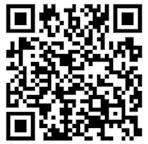
Session proposals and their descriptions were created by the session speakers and reviewed through a peer-review process. Session content does not necessarily reflect NCTE policies or positions.
SUNDAY BRUNCH — 10:30 A.M.–12:00 P.M.
“What is the brightest, most just, most loving vision of education you can imagine? What colors do you see? What sounds do you hear? How does your body move in this space? What captivates you? Now, imagine your students experiencing school as a place of freedom and justice. What do you see, hear, and feel? . . . How might this vision of education serve to ground and inspire you as you approach your students, your curriculum, and your colleagues?”
With these opening questions, Kelly Wissman, director of the Capital District Writing Project and associate professor in the Department of Literacy Teaching and Learning within the University at Albany School of Education, invites readers of her book Teaching with Arts-Infused Writing Pedagogies to engage in freedom dreaming for educational justice.
Come to the NWP Brunch to "dwell [if only for 90 minutes] in a space of affirmative possibility and to engage in creative acts of building new worlds reflective of that possibility." Drawing from her work with a multigenerational collective of writers, artists, students, and teachers, Wissman will share how arts-infused writing pedagogies can open up portals to educational worlds illuminated by heart, hope, and humanity. Join us for a morning of collaborative writing, artmaking, and freedom dreaming.
12:00–1:15 P.M.
On Sunday, participants are invited to the NCTE presidential address by NCTE President Shelley Rodrigo. Following the address, author Ada Limón will close out the Convention.
A book signing will follow the session.
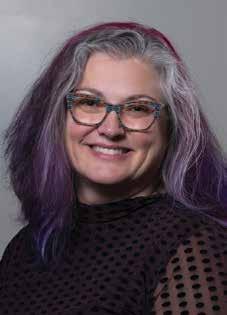

SHELLEY RODRIGO is the senior director of the writing program and professor in rhetoric, composition, and the teaching of English in the Department of English at the University of Arizona. Rodrigo teaches undergraduate and graduate courses in writing, rhetoric, and film studies, and has coauthored three editions of The Wadsworth/Cengage Guide to Research, coedited Rhetorically Rethinking Usability, and recently published the award-winning Teaching Literacy Online: Observing, Analyzing, and Producing in Multiple Media (NCTE). Currently NCTE President, Rodrigo also has served on the NCTE Executive Committee as the Chair of the College Section Steering Committee; the CCCC Executive Committee, both as an elected member and as Parliamentarian; TYCA West Executive Committee as elected Chair and Treasurer; and on the TYCA Executive Committee.
ADA LIMÓN is the author of six books of poetry, including The Carrying, which won the National Book Critics Circle Award; Bright Dead Things, which was nominated for the National Book Award, the National Book Critics Circle Award, and the Kingsley Tufts Poetry Award; and The Hurting Kind, which was short-listed for the Griffin Poetry Prize. Her upcoming children’s book, And, Too, the Fox, is scheduled for release in January 2025. Limón is the recipient of a Guggenheim Fellowship. Her new book, In Praise of Mystery, is a transcendent picturebook featuring the poem that will travel into space on NASA’s Europa Clipper spacecraft, which will be launched to the second moon of Jupiter in October 2024.
As the 24th Poet Laureate of the United States, her signature project, called You Are Here, focuses on how poetry can help connect us to the natural world. She will serve as Poet Laureate until the spring of 2025. In October 2023, she was awarded a MacArthur “Genius Grant” Fellowship, and she was named a TIME magazine Woman of the Year in 2024.
Session proposals and their descriptions were created by the session speakers and reviewed through a peer-review process. Session content does not necessarily reflect NCTE policies or positions.
Registration is required; visit the NCTE Registration Desk to register. These events are being held at the Boston Convention & Exhibition Center.
ROOM 153 A-B (LEVEL 1)

The phrase “LEADERSHIP matters” emphasizes that effective leadership plays a crucial role in achieving success, driving organizational growth, and influencing positive outcomes. Skilled, capable leaders inspire and guide others, set strategic goals, and create a positive and productive environment. On the other hand, “Leadership MATTERS” refers to the specific issues, challenges, and responsibilities that leaders face and carry. Matters of leadership can include decision making, communication, organizational culture, team dynamics, vision setting, problem solving, and many other factors that influence leadership effectiveness.
Both phrases highlight the critical role of leadership, but the former emphasizes the overall, global importance, while the latter focuses on the specific issues and considerations related to daily practices.
How do you juggle all the matters of leadership while envisioning and implementing initiatives to reimagine education? What leadership is needed to transform English education and our schools?
To learn more about leadership and to help answer these questions: ncte.org/groups/cel/convention/
KEYNOTE SPEAKERS:


Sunday, Nov. 24:
CAROL JAGO has taught English in middle and high school in public schools for over 30 years and is associate director of the California Reading and Literature Project at UCLA.
Monday, Nov. 25:
SONJA CHERRY-PAUL is an educator with more than 20 years of classroom experience and founder of Red Clay Educators, co-director of the Institute for Racial Equity in Literacy, and co-director of the Teach Black History All Year Institute.
ROOM 253 A-C (LEVEL 2)
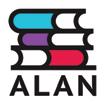
As our nation experiences the highest number of book challenges and book bannings it has faced in recent history, those of us who work with young people continue to fight to let them read books that are “windows, mirrors, sliding glass doors” (Sims Bishop, 1990) and “telescopes” (Toliver, 2021).
It is through books that readers can relate and connect to each other and to the world around them, making our world a better place. We know that the best way to plant the seed for the inclusive and understanding future that we strive for is by giving readers options to read about people different from themselves; that the best way to reduce the mental health crisis in our young people and to empower all of our students, specifically our historically marginalized students, to be their true, authentic selves is to let readers feel seen by reading about others like themselves; that the best way to learn about our world is to delve into narratives and information about it; and that it is through speculative stories that readers’ brains soar and see that possibilities are endless. It is for these reasons, and more, that we must continue to fight to LET THEM READ
To promote these goals, the 2024 ALAN Workshop will aim to grow our defenses, knowledge, and reach by featuring authors, illustrators, narrators, and editors who write for a variety of readers; are bold in their writing; and who want to cultivate a better future for young people.
During the 2023 NCTE Annual Convention, attendees shared their thoughts about the Convention and what it meant to them! Share your Convention stories this year!
IMPORTANT: Only NCTE voting members may participate in discussion and may vote at the meeting. NCTE staff will verify your membership at the door by checking your Convention registration badge and provide voting cards. Note to Directors: Please obtain your voting card at the door before the meeting.
A. RULES STATED IN THE NCTE CONSTITUTION AND BYLAWS. These rules cannot be altered at the Annual Business Meeting unless consideration of a Constitutional amendment has been announced to the membership a month in advance. (XIV.A)
1. The Board of Directors can act in an advisory capacity to the Executive Committee with regard to the Council’s internal operations and structure, making recommendations to the Executive Committee concerning Council programs and operations. (VI.A.1)
2. The Board of Directors and other NCTE members present at the Annual Business Meeting may debate and vote on position statements on educational issues and other matters. (VI.A.1)
3. Position statements on educational issues approved by a majority of those present and voting at the Annual Business Meeting will be sent by ballot to the membership for vote and comment. (XII.C)
In addition to the above, special rules of conduct are adopted each year for the Annual Business Meeting. The rules for this year are listed below.
1. Directors and other NCTE members must be identified by a voting card. Only properly identified Directors and voting members may participate in the meeting. Nonmembers may attend the meeting but not participate as voters or discussants.
2. A quorum of twenty percent of the members of the board is required for the transaction of business at the meeting.
3. Sturgis Standard Code of Parliamentary Procedure applies on questions of procedure and parliamentary law not specified in the Constitution, bylaws, or other rules adopted by NCTE.
4. The Parliamentarian interprets the rules and advises the presiding officer on parliamentary procedures.
5. A Director or other NCTE member wishing the floor should go to a microphone and give his or her name and affiliation or state when recognized by the presiding officer.
6. The chair may request that a motion be written and signed by the maker so that it might be read by the chair to the voting body.
7. In discussion of resolutions and all other motions except sense-of-the-house motions:
a. Three minutes will be allowed for each speaker each time.
b. No one may speak a second time on a subject until all who wish to speak have been heard.
c. The presiding officer will attempt to provide a balance in recognizing pro and con speakers. If there are no speakers opposing a motion under consideration, the chair may ask the house to move immediately to a vote in order to expedite the business.
d. Discussion will be limited to no more than 15 minutes (not including discussion of amendments) on any main motion or resolution; this time may be extended in 10-minute increments at the discretion of the presiding officer or by a majority of those voting.
e. Discussion of an amendment to a motion or resolution will be limited to no more than 10 minutes; this time may be extended in 6-minute increments at the discretion of the chair or by a majority of those voting.
f. Substitute motions or resolutions will not be accepted.
g. Amendments to amendments will not be accepted, in order to avoid confusion.
h. With regard to resolutions, only the RESOLVED sections are subject to a vote; accordingly, discussion of the RESOLVED sections and not the background statements is in order.
8. In discussion of all items of business, a motion to POSTPONE OR TABLE TEMPORARILY (i.e., without noting a specific time for reconsideration) is not debatable, and the main motion can be acted on at the current meeting only if the assembly votes to resume its consideration. A motion to POSTPONE OR TABLE UNTIL A SPECIFIC LATER TIME is debatable in terms of the reasons for postponement or the times specified.
9. A Director or other NCTE member at the Annual Business Meeting may offer a sense-of-the-house motion at the specified time. Such motions are advisory to the Executive Committee or other appropriate Council bodies. They do not constitute official Council policy.
10. Discussion of sense-of-the-house motions:
a. To be considered for deliberation, a sense-of-the-house motion must be prepared in writing, must not exceed 50 words, and must be submitted (three copies) to the President or Parliamentarian before the adoption of the agenda. (Brief prefatory statements in explanation of the motion are not part of the motion and need not be submitted in writing.)
b. A sense-of-the-house motion may not be amended, except for editorial changes acceptable to the mover.
c. Speakers on sense-of-the-house motions shall be limited to 2 minutes each, except by dispensation of the chair.
d. Discussion of a sense-of-the-house motion shall be limited to 10 minutes, except by dispensation of the chair.
e. If approved, sense-of-the-house motions are advisory to the Executive Committee or other Council bodies. They represent the opinion of the majority of members attending the Annual Business Meeting.
11. A Director or other NCTE member who wishes to call attention to a matter of concern to the Council may, at the discretion of the chair, make a personal declaration on the subject at the specified times, but no discussion or vote will follow. Declarations shall be limited to 3 minutes.
12. A Director or other NCTE member who wishes to introduce business not provided for in the agenda must move to suspend the rules of conduct for the meeting, which can be done with the assent of two-thirds of the Directors and other members attending. Business so introduced will be regarded as sense-of-the-house motions subject to the specifications in items 9 and 10 above.
13. Unfinished items of business at the hour set for adjournment can be resumed at a time set by the chair, if two-thirds of the Directors and other members attending approve a session at which business is to be resumed.
FRIDAY ... 10:00 A.M.–6:30 P.M. SATURDAY ... 11:00 A.M.–6:00 P.M. SUNDAY ... 8:00–11:30 A.M.
The NCTE Annual Convention offers a wide array of sessions, experiences, and opportunities from which attendees can choose. Each teacher’s experience, interests, and needs are different, and that’s why the Exhibit Hall at the NCTE Convention provides a diverse offering of trade publishers, nonprofit organizations, government entities, educational supply organizations, and consumer brands that are eager to connect with you. There is something for everyone in the more than 130 booths featuring a myriad of books, authors, initiatives, and products.
609 30-Minute Shakespeare 30minuteshakespeare.com
Based on twenty-years experience as a Folger Shakespeare Library teaching artist, each of Nick Newlin’s twenty “30-Minute Shakespeare” books offers several key scenes from a play, with stage directions, to get students up on their feet enjoying Shakespeare through performance. We also feature a Monologue Book with performance notes.
917 826 National 826digital.com
826 National is the largest youth writing network in the US. We serve students through our chapters in nine cities and via 826 Digital, a free platform for educators featuring resources designed to spark the joy of writing.
814 ABRAMS - The Art of Books abramsbooks.com
ACMRS Press is the publications division of the Arizona Center for Medieval and Renaissance Studies (acmrs. asu.edu/) at Arizona State University in Tempe, Arizona. Our mission is to publish, disseminate, and promote the most forward-looking, vanguard research in medieval and renaissance studies in Open Access, with the belief that leading edge scholarship should be affordable and available to all.
616 ACMRS Press acmrspress.com
ACMRS Press is the publications division of the Arizona Center for Medieval and Renaissance Studies at Arizona State University in Tempe, Arizona. We publish forwardlooking research in medieval and renaissance studies at competitive prices, including Open Access, with the belief that scholarship should be affordable and available to all.
237 ALAN alan-ya.org
The Assembly on Literature for Adolescents of NCTE (ALAN) promotes communication and cooperation among all individuals who have a special interest in adolescent literature, presents programs and conferences on this subject, promotes and increases the number of articles and publications devoted to it, and integrates the efforts of all those with an interest in this literature.
1029 ALEE myalee.com
ALEE is a tech-enabled but teacher-first instructional tool that provides embedded professional development for teachers through the interaction with our standardsaligned, adaptable curricular materials. ALEE improves job satisfaction for teachers by: expediting professional growth, increasing student achievement, and saving teachers tens of hours per week.
836 Agile Education Marketing agile-ed.com
Agile Education Marketing is focused solely on providing organizations with the best information and intelligence on the K–12 + Higher Education markets. Agile delivers the most accurate and comprehensive data, integrations into CRM and MA systems, custom database services, digital advertising + omnichannel marketing solutions, and best-in-class customer service.
200 American Psychological Association (APA) apastyle.apa.org
APA Style is the most widely used academic writing tool for concise, powerful, and persuasive communication. The Publication Manual of the American Psychological Association, with 17 million printed, and the Concise Guide to APA Style and the Mastering APA Style online workbook are indispensable resources for students.
505 Amplify amplify.com
A pioneer in K–12 education since 2000, Amplify is leading the way in next-generation curriculum and formative assessment. All of our programs provide teachers with powerful tools that help them understand and respond to the needs of their students. Amplify serves more than ten million students across all 50 states.
933 Annick Press annickpress.com
Annick Press publishes dynamic, ground-breaking fiction and nonfiction for children and teens. Our editorial vision has always been to publish books that reflect the society we live in, and to help enrich and inform the conversations happening in the real world. We aim to engage kids and spark a lifelong love of reading.
1014 Astra Books for Young Readers astrapublishinghouse.com
Astra Books for Young Readers features children’s books for preK–12 and includes the imprints Astra Young Readers (formerly Boyds Mills Press), Calkins Creek, Hippo Park, Kane Press, minerva/minedition, TOON Books, and Wordsong.
114 Authoring Action authoringaction.org
As a literary and performance arts organization, Authoring Action develops youth and adult authors to experience the power of creative writing, spoken word, and filmmaking as a transformational life process. Our signature creative writing process and spoken word methods provide tools to discover authentic voices, explore, and reshape lives.
408 Barefoot Books barefootbooks.com
Barefoot Books is an award-winning, independent children’s publisher committed to creating books that celebrate diversity, spark curiosity, and capture imaginations. For over 30 years, we have created picture books, activity decks, and more for ages 0–12, covering early learning, social-emotional learning, global awareness, health and wellness, and sustainability and STEAM.
925 Beacon Press beacon.org
Beacon Press® is an independent publisher of serious non-fiction. Our books often change the way readers think about fundamental issues; they promote such values as freedom of speech and thought; diversity, religious pluralism, and anti-racism; and respect for diversity in all areas of life.
613 Bedford, Freeman & Worth High School Publishers bfwpub.com/high-school/us
At Bedford, Freeman & Worth, we’ve built our reputation on producing the highest quality materials for AP® courses, and we’re proud to offer resources for a range of high school courses. Our groundbreaking books and media are based on changes in education, student populations, and accepted classroom best practices.
927 Benchmark Education benchmarkeducation.com
Benchmark Education Company is a leading publisher of inclusive; research-backed core, supplemental, and intervention literacy and language resources in English and Spanish; and a provider of exceptional professional development to educators. The company was founded and continues to operate with the firm belief that literacy mastery changes lives for the good. Our enduring goal is to empower all students with the agency and skills they need to succeed, and teachers with professional learning resources essential to their growth and effectiveness.
834 Blabbi Games blabbi.games
Blabel is an entertainment company founded by siblings Adrian and Olive Yu with their flagship party word game Blabbi, A Game of Made-Up Words: a hilarious twist on word games where players use topic cards to come up with fake words and definitions to test their creativity and public speaking.
612 Bloomsbury Publishing bloomsbury.com/us
Bloomsbury publishes award-winning books for children of all ages, from board books through teen.
923 Book Love Foundation booklovefoundation.org
The Book Love Foundation is dedicated to teachers. We grant funds to build classroom libraries and support teachers with ongoing professional learning. We believe all students every year deserve the deep rewards of reading books they choose. Since inception, the foundation has granted over 450 classroom libraries across North America.
436 Bookbreak bookbreaks.org
BookBreak is a platform that brings 2–4 bestselling elementary and middle school authors to schools each month via live stream. Events are geared toward specific grade cohorts such as K–2nd, 3rd–5th and 6th–8th and include lesson plans seamlessly integrating with teacher curricula. With over 1,500 partner schools and counting, our goal is to embed author talks as an integrated component of student learning. We believe that students engaging with inspiring authors can ignite enthusiasm for reading, spark a passion for writing, and help the literacy of even the most reluctant readers. By pooling the resources of thousands of schools into our author talk program, we’re breaking down barriers and expanding access to these transformative experiences.
725 Booksource booksource.com
Booksource is a leading distributor of trade books to K–12 classrooms across the US. They offer educators discounted pricing, free shipping, and expert customer service. Booksource provides a wide range of curated book collections tailored to educational needs, supporting literacy and learning through diverse, high-quality literature for all grade levels. Additionally, they offer various teaching resources to enhance classroom libraries and promote reading engagement among students.
330 CAMERA Education Institute camera-edu.org
The CAMERA Education Institute (CEI) exposes anti-Israel and anti-Jewish bias in educational materials and works to educate the public and redress abuses. The Institute focuses on K–12 schools and academia. CEI provides guidance and resources to students, parents, educators, concerned citizens, and communities.
116 Caezik Academic arcmanorbooks.com/academic
Arc Manor publishes educational materials through its Caezik Academic and Curiosity Creations imprints. We also offer fully customized books in both paper and digital formats for schools and colleges.
714 Candlewick Press candlewick.com
Candlewick Press publishes award-winning children’s books for readers of all ages. Our imprints include Big Picture Press, Candlewick Entertainment, Candlewick Studio, MIT Kids Press, MITeen Press, and Templar Books. Walker Books US is a division. Together we focus on creating and publishing the very best stories for young readers.
617 Capti (Charmtech Labs LLC) captivoice.com/assess
Capti Assess with ETS ReadBasix is the deepest diagnostic of 6 key reading skills in 3–12. Capti leverages the Science of Reading to deliver the most comprehensive and accurate evaluation of students’ reading abilities. Use Capti for screening, diagnosing, informing RTI/MTSS strategy, progress monitoring, and matching students to books with Lexile.
708 Cardinal Publishers Group cardinalpub.com
Cardinal Publishers Group has been representing quality independent press since 2000. The imprints we represent produce high quality, award-winning, and top-selling in a wide variety of categories distributing books for children, early readers, young adults, and adults.
735 Carnegie Learning carnegielearning.com
Carnegie Learning is building lifelong learners by delivering groundbreaking solutions to education’s toughest challenges. With the highest-quality offerings for K–12 literacy, we are creating powerful results for teachers and students alike. Lenses on Literature is our upcoming 6–12 core literacy solution that immerses every student in rich and complex texts and prepares them for the bold future they deserve. Students will drive their own learning and use literature to better understand themselves, each other, and the society they are helping shape.
912 Charlesbridge Publishing charlesbridge.com
Charlesbridge publishes high-quality books for children, with a goal of creating lifelong readers and lifelong learners. Our books encourage reading and discovery in the classroom, library, and home. We believe that books for children should offer accurate information, promote a positive worldview, and embrace a child’s innate sense of wonder and fun. To this end, we continually strive to seek new voices, new visions, and new directions in children’s literature.
235 Children’s Literature Assembly of NCTE childrensliteratureassembly.org
The Children’s Literature Assembly is a professional community of children’s literature enthusiasts who advocate for the centrality of literature in children’s academic and personal lives. This assembly provides a forum for interested people with all points of view and levels of experience in the field of children’s literature. It undertakes programs and projects of special concern to people interested in children’s literature, promotes the field of children’s literature, and serves as a clearinghouse for information on this topic. The assembly offers sessions at the NCTE Annual Convention, including a breakfast and art auction, an expert class, a Notable Children’s Books in the Language Arts book award session, as well as other concurrent sessions that include authors and illustrators. Their Journal of Children’s Literature, a refereed journal published twice a year, features critical analyses, innovative research, and discussions of trends and issues in children’s literature. It also features book reviews, author and illustrator interviews, as well as curricular materials and educational practices. Each year, the Assembly awards grants for research in children’s literature as well as the Bonnie Campbell Hill National Literacy Leader Award.
1023 Chronicle Books 1025 chroniclebooks.com
Chronicle Books is an independent publisher based in San Francisco and home to numerous award-winning authors and bestselling series. Chronicle is inspired by the enduring magic of books, and by sparking the passions of others. Chronicle believes in partnering with creators and organizations that represent the diversity of our world.
336 Classroom Library Company classroomlibrarycompany.com
Established in 2011, our mission is to provide every student access to quality literature. Driven by a commitment to educational excellence, we are a premier online supplier direct-to-schools as well as a trusted partner to clients looking to bridge the gap between their products and the education community.
414 Clemson University College of Education clemson.edu/education
The Clemson University College of Education is a transformative leader in improving education, with a particular focus on rural and underserved schools and communities. The college includes award-winning, nationally recognized undergraduate and graduate programs that prepare teachers, school counselors, school leaders, and other professionals working in education and allied fields.
117 Collaborative Classroom collaborativeclassroom.org
Collaborative Classroom is a mission-driven, nonprofit organization committed to ensuring that all students become readers, writers, and thinkers who learn from, care for, and respect one another. Our evidence-based programs help children develop as proficient readers and writers.
1015 Combined Book Exhibit combinedbook.com
The Combined Book Exhibit showcases books from independent and self-published authors. A catalog listing all titles and descriptions is available at the booth and online.
905 CommonLit commonlit.org
CommonLit is a digital literacy program founded by teachers, for teachers. Our full literacy program includes a library with over 3,000 reading lessons; a comprehensive ELA curriculum for grades 6–12; assessments to track student progress; and digital tools for educators and students.
323 Corwin corwin.com
With Corwin Literacy, you can be certain of the quality of our research-based and classroom-tested professional development books for all K–12 literacy educators. Whether you’re looking for guidance in writing, reading, or balanced literacy instruction, you’ll find timely resources to expand your expertise and improve literacy skills for all students.
1030 Coursemojo: AI Powered Teaching Assistant coursemojo.com
Coursemojo offers a curriculum-aligned, AI-powered teaching assistant “Mojo,” that supports individualized instructional differentiation to students (of different reading levels, home languages), and provides real-time data on student thinking to teachers. Mojo provides teachers with a library of activities aligned to the texts their MS ELA students are reading. Come try it!
131 Curipod curipod.com
Curipod is an interactive presentation tool that uses AI to build lessons. You can build a lesson on any learning standard with interactive activities focusing on student agency and collaboration. Curipod is founded on the belief that learning is social and that technology should foster collaboration.
914 DBQ Project dbqproject.com
A company of master teachers, The DBQ Project's inquiry units help students of ALL skill levels succeed. Our influential 6-Step Teaching Method, along with our DBQ Online platform and outstanding professional development, have helped teachers in thousands of schools do the hard work of teaching evidence-based writing, grades 3–12.
831 Daffodil Hill Press daffodilhillpress.com
Daffodil Hill Press makes brief, engaging decodable texts that provide students with opportunities to apply phonics knowledge and encounter a diverse group of characters. Each decodable text collection comes with teacher-facing resources like blending lines, a list of high frequency words taught, and a lesson plan for each book.
822 Disney Publishing Worldwide disneybooks.com
Disney Publishing publishes award-winning books for all ages. Imprints include: Disney Hyperion, Disney/ Marvel/Lucasfilm Press, Rick Riordan Presents, Melissa de la Cruz Studio, Freedom Fire, Hyperion Avenue, Andscape, and National Geographic.
32 EARTHDAY.ORG earthday.org
EARTHDAY.ORG’s mission is to diversify, educate, and activate the environmental movement worldwide. Growing out of the first Earth Day in 1970, EARTHDAY.ORG is the world’s largest recruiter to the environmental movement, working with more than 150,000 partners in over 192 countries to drive positive action for our planet.
231 Echoes & Reflections echoesandreflections.org
Echoes & Reflections, a partnership of ADL, the USC Shoah Foundation, and Yad Vashem, helps guide the way that teachers and students understand, process, and navigate the topic of the Holocaust by providing resources to educate students about the complex themes of the Holocaust and to understand its lasting effects.
113 EdPro Design teacherunits.com
We support dedicated professionals in reaping the rewards of their efforts by designing quality-first instruction, which makes explicit the connection between rigorous unit outcomes and the daily instruction necessary for success. Teachers who implement these units find refinement and greater clarity in their planning and increased student achievement!
915 edreports edreports.org
EdReports is an independent nonprofit designed to improve K-12 education. EdReports increases the capacity of teachers, administrators, and leaders to seek, identify, and demand the highest quality instructional materials. Drawing upon expert educators, our reviews of instructional materials and support of smart adoption processes equip teachers with excellent materials nationwide.
115 English Language Programs, US Department of State elprograms.org
English Language Programs places highly qualified US citizen educators in the field of TESOL on projects funded by the US Department of State to assist US Embassies in delivering English language programs and supporting public diplomacy and mutual understanding through cultural exchange.
517 Fabled Films fabledfilms.com
Independent children’s book publisher bringing original content with strong literary value to middle grade & early readers, including The Nocturnals by Tracey Hecht, Pippa Park by Erin Yun, and NEW Hannah Edwards by Ashley Hards. Book programs and classroom materials are developed with educators and reading specialists to support reading skills.
931 Facing History & Ourselves facinghistory.org
Facing History & Ourselves uses lessons of history to challenge teachers and their students to stand up to bigotry and hate. Our approach combines best-in-class professional learning, evidence-based pedagogy, and engaging curricular resources to help teachers build dynamic classroom experiences where students can reach their full potential.
337 Fishtank Learning fishtanklearning.org/?utm_campaign=ft_acq&utm_ medium=conference&utm_source=ncte
Fishtank ELA is a comprehensive K–12 curriculum designed to engage, challenge, and inspire students. We’ve designed highly rated, knowledge-building lesson plans so teachers can focus their attention on what really matters—their students. Each course offers intellectual prep resources, unit and lesson plans centered around thoughtfully selected texts, and aligned assessments.
424 Forrest T. Jones & Company ftj.com/NCTE
Forrest T. Jones provides NCTE members “Top in the industry” insurance benefits that include Life, Disability, Professional Liability, Dental, Vision, Identity Theft, and much more. These products are available on an individual voluntary basis. NCTE members can learn more about the Member Insurance Program by visiting our website.
130 Framingham State University framingham.edu
Founded in 1839 as the nation’s first Public Normal School dedicated to the preparation of teachers, Framingham State University has evolved over the past 185 years into a comprehensive university with standout academic programs across a wide range of disciplines, including the arts, humanities, education, business, social sciences, hard sciences, and more.
104 Fulbright Teacher Exchanges fulbrightteacherexchanges.org
Fulbright Teacher Exchanges offer professional learning opportunities abroad for elementary and secondary educators across the country and around the world.
232 GSOLE gsole.org
The Global Society of Online Literacy Educators (GSOLE) supports online literacy instruction across disciplines, aiming to establish shared values for sound online, hybrid, and digitally enhanced educational practices. GSOLE connects educators teaching digital literacies and promotes diversity, inclusivity, and access through research, conferences, webinars, professional development, and open-access journals.
1022 Gale, A Cengage Company gale.com/thorndike
Thorndike Press publishes unabridged reprints in large print format for middle grade and young adult readers. Our commitment to producing highquality, high-interest, large-print books supports young readers as they develop the skills necessary to become successful, confident, lifelong readers. Our catalog of over 1,000 titles grows monthly with contemporary classics, award winners, and bestsellers.
712 Gareth Hinds garethhinds.com
Meet the creator of award-winning graphic novel adaptations which help students engage more deeply with classic texts such as The Odyssey, The Iliad, Macbeth, Beowulf, and more.
326 Great Minds PBC greatminds.org
Created by Great Minds PBC®, Wit & Wisdom (greatminds.org/english/witwisdom) is a K–8 ELA curriculum that fosters reading, writing, and speaking and listening skills. It develops student knowledge on important topics to support language comprehension and vocabulary acquisition. The curriculum is organized around award-winning books that promote a love of reading.
711 Hachette Book Group hachettebookgroup.com
Hachette is a US general-interest book publisher made up of dozens of esteemed imprints. We also provide custom distribution, fulfillment, and sales services to other publishing companies. We are committed to diversity in our company and to fostering an inclusive culture for all our employees and authors.
334 Half Price Books hpb.com
Half Price Books is the largest family-owned new and used bookstore chain with 120 retail locations in 19 states. Stores buy and sell new and used books, magazines, comics, records, CDs, DVDs, and collectible items. Learn more at our website and follow us on facebook.com/halfpricebooks, twitter.com/halfpricebooks, and instagram.com/halfpricebooks
926 HarperCollins Adult Books harperacademic.com
HarperCollins is proud to publish books such as How to Read Literature Like a Professor by Thomas C. Foster, Brave New World by Aldous Huxley, Understanding Comics by Scott McCloud, Yellowface by R.F. Kuang, and the works of Richard Wright and Zora Neale Hurston.
922 HarperCollins Children’s Books harpercollinschildrens.com
HarperCollins Children’s Books is one of the leading publishers of children’s and teen books. Respected worldwide for its tradition of publishing quality, awardwinning books for young readers, HarperCollins is home to many timeless treasures and bestsellers. You can also visit HarperCollins Children’s Books at www.epicreads. com and HarperCollins Publishers at corporate.HC.com.
123 Heinemann Publishing heinemann.com
Heinemann is dedicated to teachers helping children become literate, compassionate, engaged citizens of the world and supporting the modernization of the teaching profession. Heinemann authors are exemplary educators eager to support other teachers with professional books, podcasts, blogs, and professional learning experiences, both live and online.
131 Highlights Foundation highlightsfoundation.org
The Highlights Foundation positively impacts children by amplifying the voices of storytellers who inform, educate, and inspire children to become their best selves. We host professional development and in-community experiences for authors, illustrators, educators, and storytellers online and at our retreat center in Northeastern Pennsylvania.
715 Holiday House/Peachtree/Pixel+Ink holidayhouse.com
Sister companies Holiday House, Peachtree, and Pixel+Ink are the award-winning publishers of picture books through YAs, including graphic novels and books in Spanish. We feature the imprints of Margaret Ferguson Books, Neal Porter Books, and Margaret Quinlin Books, as well as Peachtree Teen and I Like to Read®.
214 I’m Your Neighbor Books imyourneighborbooks.org
A nonprofit building Immigrant and New Generation book collections and companion conversations for schools and libraries. The American Association of School Librarians commended the organization’s Welcoming Library project for creating a “stronger culture of welcoming and belonging” in school communities.
901 Inquiry By Design inquirybydesign.com
IBD is a leading provider of language arts curriculum committed to student-driven literacy. We believe that all students deserve equitable access to a rigorous, culturally relevant curriculum. Carefully selected texts are embedded in coherent courses built on sequenced units designed to continually reinforce the integral relationship between reading and writing.
916 Interlink Publishing Inc. interlinkbooks.com
Interlink Books publishes a general trade list of adult fiction and nonfiction with an emphasis on books that have a wide appeal while also meeting high intellectual and literary standards. Series include: Traveller’s Histories · Travellers’ Wine Guides · International Folk Tale Series · Interlink Cultural Histories · Interlink Cultural Guides · Interlink Travellers’ Companions · Interlink On-the-Road Histories · Interlink Travellers’ Wildlife Guides · Interlink World Fiction · Interlink Pocket Explorers · Interlink Pocket Timelines.
935 Kids Can Press kidscanpress.com
Kids Can Press is known for its acclaimed literary picture books, character-driven franchises with global and crossover appeal, like Franklin the Turtle, and awardwinning STEM– and social issues–based nonfiction. The publisher’s catalog has over 700 active titles for children and young adults enjoyed by readers around the world.
1027 Kind World Publishing kindworldpublishing.com
Connecting the world through stories. At Kind World Publishing, we connect the world through stories—stories that express kids’ big feelings, big questions, and big dreams, stories that celebrate curiosity and build bridges. Our goal is to start conversations that create a kinder world.
108 Kodansha USA Publishing kodansha.us
Kodansha USA Publishing is the English-language publisher of some of the world’s most recognizable manga properties, including Attack on Titan, AKIRA, Pretty Guardian Sailor Moon, and Blue Lock, along with a robust catalog of English-language Japanese novels, cookbooks, craft guides, historical and cultural literature, and more.
233 Latinx KidLit Book Festival latinxkidlitbookfestival.com
The Latinx Kidlit Book Festival is a FREE virtual celebration of Latinx KidLit authors, illustrators, and books for all students, educators, and book lovers around the globe. The Festival offers a combination of educational materials and virtual literary content in the form of panels, craft sessions, and illustrator draw-offs with best-selling and award-winning Latinx authors and illustrators of picture books, middle grade, young adult, graphic novels, comic books, and poetry. The sessions are geared toward all schools, educators, students, and book lovers, not just those identifying as Latinx. Everyone is welcome! The Latinx Kidlit Book Festival is a 501(c)(3) non-profit organization.
833 Lerner Publishing Group lernerbooks.com
Lerner Publishing Group creates high-quality fiction and nonfiction for grades K–12, including early reader, picturebooks, middle grade, YA, and high-interest nonfiction. Imprints include Carolrhoda Books, Carolrhoda Lab, Millbrook Press, Gecko Press, Graphic Universe, Lerner Publications, Darby Creek, Twenty-First Century Books, Zest Books, Lerner Digital, and Lerner Publisher Services.
723 Lesley University lesley.edu
Lesley University is a small, private university located near Boston in the vibrant city of Cambridge, Massachusetts. Lesley is renowned for its unique programs focused on Education, Mental Health and Well-Being and Art and Design, as well Business and Liberal Arts and a special program called Threshold, for neurodiverse individuals.
1024 Library Ideas libraryideas.com
Library Ideas is a global media company focused on libraries and schools. Our product suite includes Freegal Music+, VOX Books, Fiero Code, iVOX, IR Books, Fiero Club, the Online Book Club, Freading ebooks and Rocket Languages. We offer a wide range of digital and interactive content to enhance educational experiences.
812 Library Journal mediasourceinc.com
Media Source Inc. unites AKJ Education, Junior Library Guild, and School Library Journal, forming an educational powerhouse. Together, we offer unparalleled resources, expertly curated books, and premier information services, seamlessly integrating quality, innovation, and dedication to the enrichment of learning and literacy.
513 Library of Congress loc.gov/teachers
Historical photographs, film clips, diaries, drafts, and newspapers from the Library of Congress can engage students, contextualize literature, and launch investigations. Explore these free primary sources and teacher resources including primary source sets, blog posts, and videos modeling instructional approaches. Additionally learn about free poetry and literature resources.
731 Little, Brown Books for Young Readers lbyr.com
Little, Brown Books for Young Readers began publishing books for children in 1926. We publish a diverse, carefully curated list of the finest books for young readers of all ages and backgrounds. Our mission is to inspire a lifelong love of reading.
331 Loyola Press languagearts.loyolapress.com
Loyola Press serves schools through the development of supplemental language arts programs for grades K–8. Central to our mission is dedication to quality, commitment to ongoing educational research, and creation of effective instructional solutions for teachers and students. Loyola Press provides grammar, writing, phonics, vocabulary, and ELL programs.
1037 MCI
If you are interested in adding sponsorships or buying booths for next year, please visit the MCI booth.
202 Mackin home.mackin.com
For over 40 years, Mackin has provided PK–12 libraries and classrooms with access to over 4.2 million titles. The multi-award-winning digital content management system, MackinVIA, along with divisions Mackin Classroom, MackinMaker, Mackin Learning, and the brand-new whole-school resource management system, MackinVision, help to create this uniquely robust educational resource company.
604 Macmillan Children’s Publishing Group mackidsschoolandlibrary.com
Macmillan Children’s Publishing Group is home to some of the most highly acclaimed and noteworthy children’s imprints in the publishing industry. MCPG comprises Balzer + Bray, Farrar, Straus and Giroux Books for Young Readers, Feiwel & Friends, First Second, Henry Holt Books for Young Readers, Neon Squid, Odd Dot, Priddy Books, Roaring Brook Press, and Square Fish.
605 Macmillan Publishers academic.macmillan.com
Macmillan Publishers is home to some of your classroom's favorite books, from Elie Wiesel’s Night to José Olivarez’s Promises of Gold. At Macmillan, we believe in the power of books to create meaningful change, amplify diverse voices, and make a lasting impact in the world. Visit Academic. Macmillan.com for more information.
230 Maitri Learning maitrilearning.com
Women-led, eco-conscious makers of research-based educational materials that nurture optimal development. Our literacy resources blend neuroscience with the science of reading and Montessori, offering a fresh approach to language arts. From comprehensive teacher guides to innovative classroom tools, we’re here to elevate your pedagogical toolkit.
705 Membean membean.com
We know the transformative effect a strong vocabulary has on student reading, writing, and academic confidence. Membean is an online multi-modal vocabulary program that meets students at their unique ability level, from GT to ELL. Students can access Membean from any device for differentiated, personalized vocabulary instruction. The teacher dashboard offers detailed usage reports and differentiated assessments, saving teachers valuable planning and instruction time. Come check out a demo, say hello, and learn how students in 40,000+ classrooms develop long-term word retention with Membean.
422 Middlebury Bread Loaf School of English middlebury.edu/school-english
Middlebury Bread Loaf School of English is an intensive summer graduate program ideal for teachers seeking meaningful professional development or a master’s degree. At campuses in Vermont, Oxford, and California, students encounter texts and ideas with renowned faculty and emerge ready to read, write, teach, and interpret in revolutionary ways.
103 Modern Language Association mla.org
Founded in 1883, the Modern Language Association has worked for more than a century to strengthen the study and teaching of languages and literatures. The MLA publishes the MLA International Bibliography online research database and a digital resource for MLA Style, MLA Handbook Plus.
934 Mrs. Nelson’s Book Company mrsnelsons.com
Mrs. Nelson’s Book Company combines wholesale book ordering, a book bindery, and pre-owned textbook sales and buyback services to extend the life of books, generate revenue for schools, and promote the love of reading and learning.
815 myShakespeare myshakespeare.com
myShakespeare provides media-rich, digital editions of six Shakespeare plays as a free, online resource. We replace traditional footnotes with interactive media and classroom features including quizzes and note-taking tools.
930 National Consortium for Teaching about Asia (NCTA) nctasia.org
The National Consortium for Teaching about Asia (NCTA), funded by the Freeman Foundation, is a multi-year initiative to encourage and facilitate teaching and learning about East Asia in elementary and secondary schools nationwide. NCTA is a premier provider of professional development on East Asia and is a collaboration between seven East Asian Studies programs to support primary and secondary teachers in incorporating East Asia into their classrooms and to build a global competency for students. NCTA provides learning opportunities through workshops, seminars, book groups, and more for K–12 educators nationwide. The Freeman Book Awards recognize quality books for children and young adults that contribute meaningfully to an understanding of East and Southeast Asia.
213 National English Honor Society for Secondary Schools nehs.us
The English Honor Societies work with students excelling in all fields of the English language arts and their faculty supporters. We are Sigma Tau Delta, the International English Honor Society (4–year colleges and universities); the National English Honor Society (grades 9–12); and the English Language Arts Honor Society (grades 6–9).
303 National Writing Project nwp.org
National Writing Project (NWP) sites have been working with educators for 50 years to improve the teaching of writing in classrooms and beyond. Stop by our booth to join us in celebrating our 50th birthday!
335 Newsela newsela.com
Newsela takes authentic, real world content from trusted sources and makes it instruction—ready for K–12 classrooms. Texts are published at five reading levels, so content is accessible to every learner. With over 16,000 texts and more published daily across 20+ genres, Newsela enables educators to go deep on any topic.
413 NoRedInk noredink.com
NoRedInk helps millions of students in Grades 3–12 become better writers. NoRedInk’s platform includes diagnostics, instructional resources, practice exercises, writing activities, and actionable performance data that enables teachers and administrators to differentiate instruction, monitor trends, and track student progress toward mastery of specific skills covered by key standards and tests.
402 Nosy Crow nosycrow.us
Nosy Crow is a multi-award-winning, independent children’s book publishing company and a subsidiary of the award-winning, London-based publisher Nosy Crow Ltd. We make child-focused, parent-friendly children’s books for ages 0–12. We strive to create books that inspire children to read for pleasure and, ultimately, to become lifelong readers.
223 Orca Book Publishers orcabook.com
Orca Book Publishers is an independently owned Canadian children’s publisher of award-winning, bestselling books in several genres. Orca prides itself on publishing Canadian authors and illustrators and bringing them to a wider market to illuminate diverse and underrepresented voices.
911 Peace Corps Response peacecorps.gov/volunteer/peace-corps-response Peace Corps Response seeks experienced professionals with diverse skills for short-term, high-impact service assignments around the world. Peace Corps Response Volunteers work with communities on locally prioritized projects for up to 12 months.
1001; Penguin Random House
1011 Author Autograph area in the rear of the Exhibit Hall; see the Meet the Author booklet for details.
1003 Penguin Random House Education penguinrandomhouseeducation.com
Home to award-winning, classroom-favorite authors, such as Maya Angelou, James Baldwin, Sandra Cisneros, Tommy Orange, R.J. Palacio, and Jacqueline Woodson, Penguin Random House Education offers an array of classic and contemporary titles. Visit our booth to browse books by grade level and subject area, and learn about our classroom collections.
1000 Penguin Young Readers penguinclassroom.com
Penguin Young Readers is one of the leading children’s book publishers in the United States and publishes books ranging from birth to young adults in a variety of formats. Whether fiction or nonfiction, classic authors and illustrators or exciting new licensed properties, we strive to make the perfect book for every reader. With an award winning backlist, PYR continues to publish outstanding books for readers of all ages. The company owns a wide range of imprints and trademarks, including Dial Books, Dutton, Kokila, Nancy Paulsen Books, Penguin Workshop, Philomel, Rocky Pond, Flamingo, G. P. Putnam’s Sons, and Viking.
805 Perma-Bound Books perma-bound.com
A pioneer in the library binding industry for nearly 70 years, Perma-Bound proudly serves PreK–12 schools, school libraries, and public libraries in the US and Canada. With millions of titles from more than 1,000 publishers, we offer strong title selection, comprehensive teaching materials, distance learning and online learning, and more!
830 Pioneer Valley Books pioneervalleybooks.com
Pioneer Valley Books is proud to offer high-quality print and digital products designed to meet the diverse needs of every classroom. We are committed to providing engaging solutions for literacy instruction for pre–K through sixth grade. With more than 25 years of dedication to education, our mission is clear: to empower teachers, educate young readers, and foster a love of reading. Let’s ignite our passion for literacy together!
412 Prestwick House, Inc. prestwickhouse.com
Prestwick House, Inc. empowers K–12 educators with top-tier English and language arts materials. Since 1981, we’ve inspired a love of learning through innovative vocabulary programs, literary guides, and standards-aligned resources. Our mission: to enhance education by supporting teachers and engaging students in meaningful, effective instruction.
504 Publisher Spotlight publisherspotlight.com/
Publisher Spotlight is your discovery spot for books for children and teens from around the world. Featured publishers include Charlesbridge, Lee & Low, Eerdmans, Manga Classics, Tiger Tales, Gecko Press, and Diamond Book Distributors.
810 Pulitzer Center pulitzercenter.org
The Pulitzer Center is a journalism and community engagement organization that champions the power of stories to make complex issues relevant and inspire action. Our education initiatives illuminate and encourage action on five global issues: climate and environment, global health, human rights, peace and conflict, and information and artificial intelligence.
327 Quill.org quill.org
Quill.org is a nonprofit, education technology organization dedicated to helping students build literacy, writing, and critical thinking skills. Quill.org's unique AI-powered tools have been used by over 3 million students and 50,000 teachers nationwide.
1006 Random House Children’s Books rhteacherslibrarians.com
Random House Children’s Books publishes quality books—hardcovers to paperbacks, preschool through young adult, encompassing fifteen imprints. Visit us at our website and connect with us on Facebook, X, YouTube, and Pinterest.
508 Retro Report
retroreport.org/education
Retro Report is a nonprofit journalism organization with a library of 275+ short videos that connect history to today. Our resources foster engagement and critical thinking skills through media literacy, argumentation, and a focus on narratives. Our FREE resources are perfect for use across Humanities, Social Science, and English/ ELA courses.
416 Sadlier sadlierschool.com
To prepare children for the world of tomorrow, it takes a partner with experience. At Sadlier, we’ve got 192 years of it. We have made it our priority to help educators teach K–12 students with proven methods that work in countless settings across the country. Stop by Booth 416 and take a look at our amazing ELA programs.
132 Safran Publishing Egumpp.comtext
EGUMPP is a highly interactive online software program for teaching and learning English grammar, usage, punctuation, and writing mechanics. EGUMPP is designed for students in middle school, high school, and post-secondary school. In addition, many ELL students have benefited from completing EGUMPP. The EGUMPP software provides students with an understanding of grammar terminology, sentence structure, and rules application necessary to improve their writing, editing, and oral communication skills and achieve higher scores on standardized tests such as the SAT and ACT.
210 Sambasivan & Parikh sambasivanandparikh.com
Sambasivan & Parikh is a women-owned small press amplifying diasporic perspectives in children’s literature. Recognized by the American Library Association, National Council for the Social Studies, and South Asia National Outreach Consortium, our books make wonderful additions to home, classroom, and library collections. Our imprints are Yali Books and Modern Marigold Books.
405 Savvas Learning Company savvas.com
At Savvas, we believe learning should inspire. Our next-generation K–12 learning solutions, developed by leading authors and educators, leverage the power of adaptive learning and advanced technology to deliver immersive, personalized, and engaging content that connects teachers and students with real-world learning experiences, helping all learners discover their greatness.
212 SAYWORD! by Dopamine Designs saywordgame.com
SAYWORD!®? is a game of words, wisdom, bluffing, and balderdash. There is no other game like it! Playing SAYWORD! will forever change how you see words. Not only will you level up your vocabulary, but you’ll do so while you die laughing!
310 Scholastic Inc scholastic.com
For over 100 years, Scholastic has partnered with schools to support student learning. Today, the Company is the world’s largest publisher and distributor of children’s books, a leading provider of literacy curriculum, professional services and classroom magazines, and a producer of educational and entertaining children’s media.
813 Shakespeare & Social Justice/The Shakespeare Center of Los Angeles shakespeareandsocialjustice.org
Shakespeare & Social Justice (SSJ) a program of The Shakespeare Center of Los Angeles, offers free innovative curricula that combines language arts, theatrical techniques, and social justice principles. Through a national partnership of teachers and artists, SSJ engages students in close reading leading to artistic action: Shakespeare plays authorize students to write and enact what matters in their lives.
903 Simmons University simmons.edu/graduate/academic-programs
Simmons University offers renowned graduate programs in library and information science and children’s literature, including single and dual degree programs on two different campuses. Combining current practices with emerging trends, our programs of study prepare students to work in a variety of settings including academic, public, special libraries, and archives.
512 Simon & Schuster simonandschuster.com
Simon & Schuster, a global leader in general interest publishing, is dedicated to providing the best in fiction and nonfiction for readers of all ages, and in all printed, digital, and audio formats. Its distinguished roster of authors includes many of the world’s most popular and widely recognized writers, and winners of the most prestigious literary honors and awards. It is home to numerous well-known imprints and divisions such as Simon & Schuster, Scribner, Atria Books, Gallery Books, Adams Media, Avid Reader Press, Simon & Schuster Children’s Publishing, Simon & Schuster Audio, and international companies in Australia, Canada, India, and the United Kingdom, and proudly brings the works of its authors to readers in more than 200 countries and territories.
133 Society of Children’s Book Writers and Illustrators (SCBWI) New England urlscbwi.org/regions/newengland
The Society of Children’s Book Writers and Illustrators New England provides resources, professional networking, and community-building opportunities around the art of creating and publishing children’s books. Use tools such as our school visit directory to learn about the children’s books and creators that come from right here in New England!
215 Sourcebooks read.sourcebooks.com
Sourcebooks is an independent publishing company dedicated to innovation and the belief that books change lives. We publish 300 new titles each year in the children’s, young adult, adult, nonfiction, gift, and education categories.
509 Sphere Education Initiatives sphere-ed.org
Sphere Education Initiatives is a nonpartisan organization that works with grades 5–12 educators and administrators to provide them with the knowledge, experience, professional development, and viewpoint diverse resources to bring difficult conversations on the most pressing issues to the classroom and equip our country’s students to engage in civil discourse.
203; Stenhouse Publishers
205 routledge.com/go/stenhouse-publishing
Stenhouse, now a part of Routledge, publishes professional books written: “for teachers, by teachers.” We believe in creating a space for teachers’ voices, and we believe in the power of professional books to be such a space for educators to learn from one another’s ideas, practices, and expertise.
216 Teachers College Press tcpress.com/ncte2024
Teachers College Press (Teachers College, Columbia University) publishes work at the cutting edge of theory, research, and practice in education and specializes in areas such as literacy, ELL/DLL, multicultural education, social justice education, leadership, education policy, early childhood education, special education, and curriculum.
333 Teaching the World teachingtheworld.net
Teaching the World is a collection of Title VI National Resource Centers (NRCs), which are higher education areas or international studies centers partially funded by the US Department of Education. NRCs offer resources to K–16 educators and students, such as classroom visits, professional development workshops, lesson plans, and more.
1026 The Juice Learning thejuicelearning.com
The Juice is an interactive learning platform that delivers engaging daily articles at student’s reading levels while giving educators and administrators actionable progress monitoring data. The Juice has thousands of current articles covering politics, science, technology, pop culture, economics, and sports, with five new articles written daily. As students use The Juice, the reading algorithm dynamically adjusts your their reading level. Articles improve student’s world knowledge and informational literacy.
426 The New York Times Education Subscription Program nytimes.com/subscription/groups
The New York Times's mission is to seek the truth and help people understand the world. Our goal in education is to help today's students become tomorrow's global citizens by providing a dynamic resource that enables them to seek
227 The Right Question Institute rightquestion.org
The Right Question Institute (RQI) is a nonprofit organization that advances simple, powerful strategies to build people’s skills to ask better questions and participate more effectively in decisions that affect them. We offer hundreds of free resources for educators to learn the strategy and immediately implement it with students.
105 The Shakespeare Oxford Fellowship shakespeareandsocialjustice.org
The Shakespeare Oxford Fellowship is a nonprofit educational organization dedicated to investigating the Shakespeare authorship question and disseminating the evidence that Edward de Vere, the 17th Earl of Oxford (1550–1604), is the true author of the poems and plays published under the pseudonym “William Shakespeare.”
322 The Silver Unicorn Bookstore silverunicornbooks.com
The Silver Unicorn Bookstore is Acton, Massachusetts’ independent bookstore. We welcome and serve people of all ages by stressing convenience, curation and community. We love teachers and schools – stop by our booth to sign up for our educator-only newsletter and learn more about how we can help you!
910 ThinkCERCA thinkcerca.com
ThinkCERCA’s personalized literacy platform helps educators teach critical thinking. Through standardsaligned close reading and academic writing lessons for English language arts, science, social studies, and math, our schoolwide approach to literacy instruction prepares students for post-secondary life by building up their analytical skills in every subject from grades 3 to 12.
332 Townsend Press townsend press.com
Townsend Press publishes the acclaimed Ten Steps to College Reading Series and the Townsend Press Vocabulary Series plus writing textbooks, all available in digital and paper formats used in countless schools and colleges. We are the creators of the King Series (K–2) and The Bluford Series (5–12) plus the Townsend Press Library.
704 Union Square & Co. unionsquareandco.com
Union Square & Co.’s diverse list showcases top-tier talent and brands and gives space to unique perspectives and strong voices. Union Square Kids publishes fiction and nonfiction titles that engage, enrich, and excite a diverse audience of young readers.
101 United States Holocaust Memorial Museum ushmm.org
A living memorial to the Holocaust, the United States Holocaust Memorial Museum inspires citizens and leaders worldwide to confront hatred, prevent genocide, and promote human dignity. Federal support guarantees the Museum’s permanent place on the National Mall, and its far-reaching educational programs and global impact are made possible by generous donors.
417 University of Nebraska at Kearney, Department of English go.unk.edu/englishma
The University of Nebraska at Kearney is a fully accredited, campus university that offers an online Master of Arts in English. It is designed primarily for active, inservice teachers seeking further professional and personal development. It can also serve as preparation for those looking to enter a Ph.D. program in English or an MFA Program. The program has four emphasis options: Childhood and Youth Studies; Composition, Rhetoric, and Language; Creative Writing; and Literature.
110 University of New Hampshire cola.unh.edu/english/program/mst/english
The University of New Hampshire's Graduate School, offers exceptional graduate programs, including a unique Master of Science in Teaching for practicing teachers and a Ph.D. in English focusing on Rhetoric, Literacy, and Composition Studies. Both provide rich research opportunities, are close to Boston and the Seacoas, and celebrate close collaboration with renowned faculty.
804 Vibrant Publishers LLC vibrantpublishers.com
Vibrant Publishers LLC specializes in SAT prep books that simplify complex topics, making them ideal for school teachers to use in the classroom. Our materials are tailored for the digital SAT, offering clear explanations, practice questions, and strategies to help students achieve their best scores. Vibrant recently released Online Practice Tests with identical screen that replicates the format and layout of the official digital SAT and have administrative access capabilities for teachers.
430 Vocabulary.com vocabulary.com
Vocabulary.com’s smart, award-winning adaptive engine helps learners master new words, not just memorize them. Offering customizable activities for instruction, review, and assessment, Vocabulary.com boosts students’ reading comprehension and systematically improves their vocabulary. With over 13,000 ready-made resources, Vocabulary.com can align with any teachers’s existing curriculum.
825 W. W. Norton & Company High School Group wwnorton.com/catalog/high-school/language-arts
For 100 years, Norton has been dedicated to books that educate, inspire, and endure. Our language arts catalog represents textbooks written by experts in their fields, instructor resources authored by experienced teachers, and digital resources designed to engage your students while supporting them in developing skills essential for course success.
823 W.W. Norton & Company seagull.wwnorton.com/composition
Independent since 1923, Norton publishes books that educate, inspire, and endure.
208 Wm. B. Eerdmans Publishing Co. eerdmans.com/youngreaders
Eerdmans Books for Young Readers, an imprint of Wm. B. Eerdmans Publishing Company, offers board books, picturebooks, middle readers, novels, nonfiction, and religious titles for children and young adults.
434 Zinc Reading Labs zinclearninglabs.com
Zinc Reading Labs is passionate about creating a world where all students love to read and have the skills to read successfully. Aligned with the Science of Reading methodology, Zinc offers a suite of choice-based, autodifferentiated reading programs and tools that provide direct reading and vocabulary instruction, independent reading opportunities, and assessments.
“Word Nerds,” it’s your time to shine. Visit the NCTE Central booth and keep the spirit of Heart, Hope, and Humanity going long after the Convention. Which shirt is coming home with you? New NCTE merchandise available at NCTE Central near registration.
Booth Hours:
Wed. 11/20: 4:00–7:00 p.m.
Thurs. 11/21: 7:00 a.m.–6:30 p.m.
Fri. 11/22: 6:30 am–6:00 p.m.
Sat. 11/23: 6:30 am–5:00 p.m.
Sun. 11/24: 8:00 am–12:00 p.m.
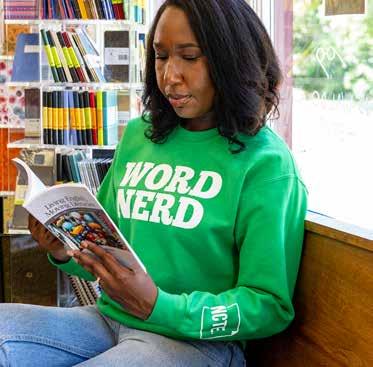
ANNUAL CONVENTION NOVEMBER 21–24 BOSTON, MA
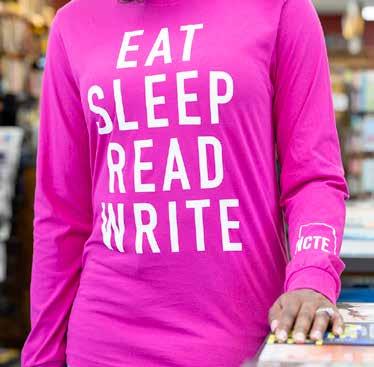



Penguin Random House publishes authentic, award-winning, and inclusive fiction and narrative non-fiction ideal for PreK through high school and beyond. Visit our booth to browse books by grade level and subject area, pick up teacher resources, and learn about our classroom collections.

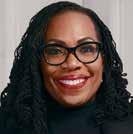
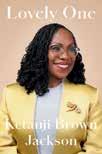



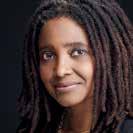


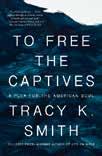







Create a book collection that reflects the uniqueness of your students, their reading levels, and their wide range of interests. Start with a particular theme or build it from the ground up!







Sample Collections Include:
• AANHPI Creators • ALA Award Winners & Honorees
• Anxiety & Mental Health • Interesting Careers
• Spanish Language
Women in Science



Looking for text sets and instructional strategies for your thematic units of study? The PRH Education Thematic Guides provide practical approaches and cohesive connections to topics that help students understand important concepts and encourage big picture thinking.
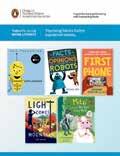
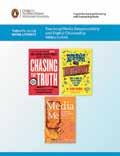
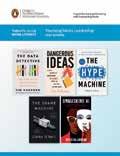

Phonics Books, a part of DK Learning, publishes truly decodable fiction and nonfiction books—and accompanying photocopiable activity books—for beginner and catch-up readers ages 4–14+






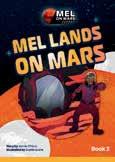









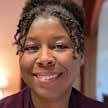
12:00–1:00 PM

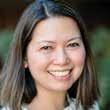
Vicky Fang Rain is Wet!: An Acorn Book (Best Buddies #3)

Valerie Bolling The Orange Wall: An Acorn Book (Rainbow Days #3) 2:00–3:00 PM Gholdy Muhammad Unearthing Joy 11:00 M–12:00 PM Ann E. Burg Force of Nature: A Novel of Rachel Carson Nell Cross Beckerman Volcanoes 10:00–10:45 M Sherri L. Smith Pearl Ali Terese Free Period SC N OR MOBILE SCHEDULE



2:00–3:00 PM Natalie Lloyd The Witching Wind Jamar Nicholas Leon: Worst Friends Forever: A Graphic Novel (Leon #2)
4:00–5:00 PM


Diana Farid The Light of Home: A story of family, creativity, and belonging Christina Soontornvat The Squad: The Stakes Have Never Been Higher




3:00–4:00 PM Aida Salazar Ultraviolet Sayantani DasGupta The Ghost Forest (Secrets of the Sky #3) 1:00–2:00 PM Neal Bascomb The Salt Thief: Ghandi’s Heroic March to Freedom Lamar Giles Ruin Road
5:00–6:00 PM Amar Shah Take the Shot (Play the Game #2)



3:30–4:30 PM

Adriana Hernández Bergstrom Tumble 10:00–11:00 M David L. Harrison Partner Poems and Word Ladders


Joanna Ho We Who Produce Pearls
12:00–1:00 PM

Hena Khan Like a Boss (Best Wishes #4) S TURD 11.23
JaNay Brown-Wood Changing Tunes (Love Puppies #5)
2:30–3:30 PM

Stephanie Harvey From Striving to Thriving
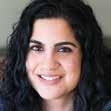

Dan SaSuWeh Jones
Stealing Little Moon: The Legacy of the American Indian Boarding Schools
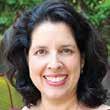
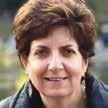
Cecilia M. Espinosa Rooted in Strength

Julia LópezRobertson Celebrating Our Cuentos 11:15 M–12:00 PM
1:00–2:00 PM



Candace Fleming The Enigma Girls 2:00–3:00 PM
Amy S. King Attack of the Black Rectangles
3:00–4:00 PM

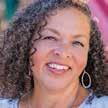
3:30–4:30 PM
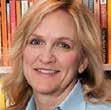
Nikki Shannon Smith Stranded

Rebecca Gardyn Levington Little Dreidel Learns to Spin

Penny Kittle Micro Mentor Texts
Debbie Dadey Dragons Don’t Cook Pizza: (The Adventures of the Bailey School Kids #4) 5:00–6:00 PM

Scott McCloud The Cartoonists Club
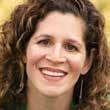
Erin Soderberg Downing Just Keep Walking
Jennifer Nielsen Uprising 4:00–5:00 PM

Pam Munoz Ryan Mañanaland 11:15 M–12:00 PM
Laura AscenziMoreno Rooted in Strength SUND 11.24

Rekha S. Rajan Blizzard Rescue: A Branches Book (Disaster Squad #3)
Raina Telgemeier The Cartoonists Club 8:15–9:15 M

Brian Selznick Run Away With Me









Sunday General Session, 11/24/2024 12:00 p.m.
US Poet Laureate Ada Limón strives to connect people to the natural world in her poetry. Her upcoming picture book, And, Too, the Fox, pulses with the joyful energy of a fox bounding through backyards, piecing together a living in his own way. Paired with lush illustrations by Gaby D’Alessandro, this picture book brings Limón’s work to a new generation.
Author signing of advance copies following the session

lernerbooks.com
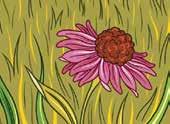

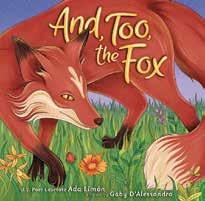

On Sale 1/7/2025
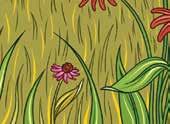




LEARN MORE seagull.wwnorton.com/hs-ncte-24





“My students’ AP® scores were off the charts; [the] Norton text made following the College Board Units easy and helpful.”
—Cheri O’Reilly, Bishop O’Connell High School, VA
“Reading through Barber and Smith’s The Norton Guide to AP® Literature. It is a revelation.”
—Josefina Kasuyama, Los Angeles Unified School District, CA
“. . . The Norton Field Guide to Writing with Readings and Handbook is worth every penny, and I plan to continue to use it as the primary textbook in my course for many years to come.”
—Susan Capron, Cookeville High School, TN



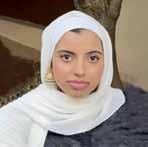





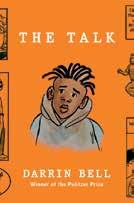
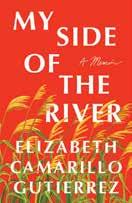


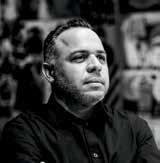


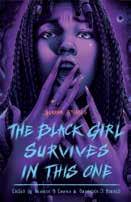


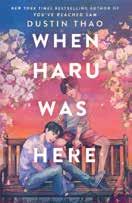
Scan the QR code or visit https://bit.ly/MCPGatNCTE24 to explore all of our in-booth author signings and events!
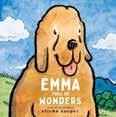





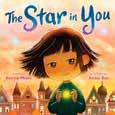
































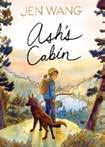



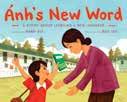

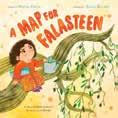

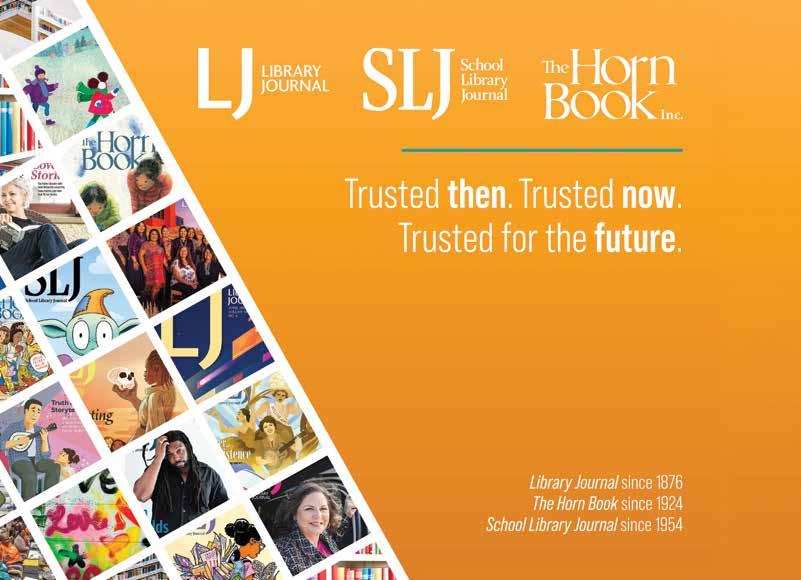






































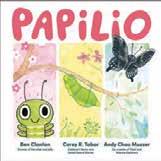












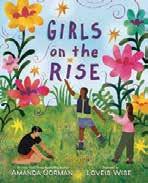



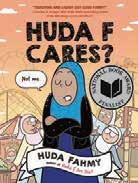




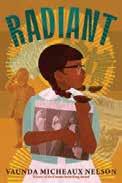







































































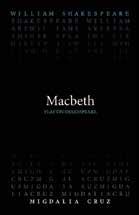
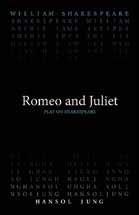
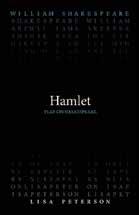



Play On! Shakespeare was an ambitious undertaking from the Oregon Shakespeare Festival that commissioned new translations of 39 Shakespeare plays. These translations present the Bard’s work in language accessible to modern audiences while never losing the beauty of Shakespeare’s verse. Enlisting the talents of a diverse group of contemporary playwrights, screenwriters, and dramaturges from diverse backgrounds, this project reenvisions Shakespeare for the twenty-first century. These volumes make these works available for the first time in print — a new First Folio for a new era. www.acmrspress.com/playonshakes
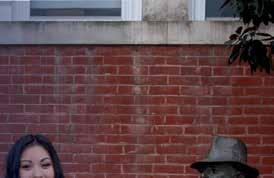








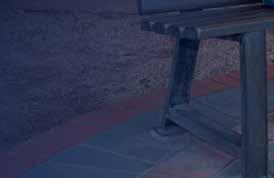
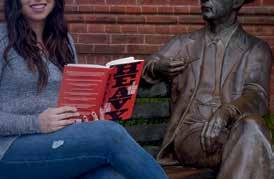







Practical, actionable ideas for your classroom
Grounded in research, eminently readable

Used by 4100 schools in 50 countries!
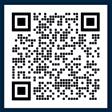
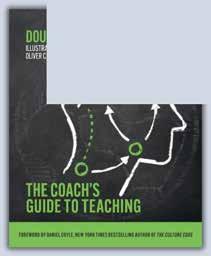

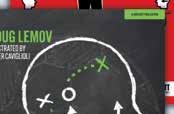
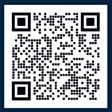
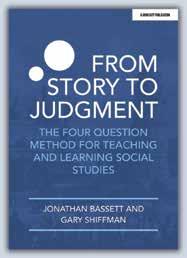
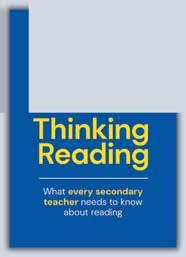

AAbarca, Cecy, E.25ali
Abbott, Clara, F.32
Abdeljaber, Furat, M.14
Abdon, Brandon, W.7, F.48, J.29
Aberg-Riger, Ariel, N.14
Abonado, Albert, F.36
Abrams, Eric, POS, H.1
Abrams, Oona, F.5
Accurso, Kathryn, B.5, O.15
Acevedo Aquino, Maria, POS
Acevedo, Gabriel, K.8, N.4
Aceves, Aaron, J.47
Achilli, Dayna, CIE
Acker, Monica, N.22
Adair, Allison, L.24
Adams, Rebekah, G.34
Adams, Stacey, POS
Adamson, Susan, F.13
Addy, Elizabeth, B.23, N.54
Adkins, Kelly, G.20, O.31
Adu-Gyamfi, Mary, A.12
Agbozo, G. Edzordzi, G.23
Ahern, Kati, R.40
Ahiyya, Vera, A.15, K.14, O.43
Ahlbrand, Susan, A.27
Ahmed, Kathryn Struthers, B.21
Ahmed, Samira, BYS, P.51, R.14
Ahnrud, Brittany, N.56
Akbari, Thomas, I.43
Albee, Sarah, G.47
Albright, Michael, G.6
Albus, Kate, A.18, E.14
Aldeman, Gabriella, B.40, P.45
Aldousany, Layla, CIE
Aleo, Trevor, G.51, J.56, O.19
Alessandri, Alexandra, E.20, O.11, P.43
Alexander, Kwame, G.19
Alexander, Lori, E.49
Alexander, William, E.28, N.19, S.38
Alford, Katherine, CIE, G.54
Alford, Scott, E.11, N.24
Algee, Lauren, I.52
Ali, Khalilah, Fri-Featured
Alko, Selina, J.55, CBA-L
Allen, Ashleigh, E.51, SIG.3
Allen, Autumn, B.31, F.22
Allen, Charlene, N.49
allen, cindy, Q.14
Allen, Crystal, J.54
Allen, Kari, R.26, CIE
Allen, Lindsey, B.42
Allen, Mercedes, E.51, O.2, P.24
Allison, Paul, K.31
Allred, Johnny, W.3, R.38
Almeda, Cheryl, G.54
Alonso, Nathalie, E.10
Alt, Emily, F.8, P.38
Alter, Elyse, E.11, N.24
Alvarado-Slatis, Violet, G.21
Alvarez, Kristine, C.13
Alvarez, Steven, R.50
Alvarez-Sims, Luz, P.30
Amato, Jarred, K.40
Amato, Michelle, F.29
Amevuvor, Jocelyn, N.4
Amstutz, Lisa, K.13
Anderson, Beth, R.28
Anderson, Carl, J.21, R.33
Anderson, Heather, I.25
Anderson, Kathryn Kritzeck, E.9, F.38, P.3, AFF-B, R.1, S.41
Anderson, Kiesia, POS
Andrade, Alexander Parra, N.53
Andre, Lissa Levine, O.20
Andrews, Casey, G.15
Andrus, Patrick, P.12
Angay-Crowder, Tuba, Q.35
Angel, April, ES-E.02
Anger, Athena, O.18
Anggriawan, Robby, POS
Angleberger, Tom, N.40
Angleton, Christie, O.55
Anker, Christina, NOW
Anstett, Heather, L.27
Anta, Julio, F.28
Antoine, Nadrian, N.4
Antos, Pam, E.7
Appleget, Carin, B.3
Appleman, Deborah, B.17, F.26, G.46, K.24
Aguillon, Nathalie Arias, F.45
Arakelian, Ani, J.16
Arasin, Melissa, B.3
Arce-Boardman, Alicia, R.45, S.42
Arcuri, Julia, J.42, N.50
Armas, Raquel, G.20
Armistead, Savannah, I.27, CIE
Arnold, Andrea, M.11
Arnold, Elana K., R.14
Arnold, Jackie, R.29, S.29
Arnold, Lucy, I.20, J.56, P.19
Aronson, Sarah, F.56, S.21
Arrington, Brooke, R.48
Arrington, Paige, S.45
Arriola, Abby, H.33
Arrowtop, Jake, G.1
Artabane, Brian, P.48
Ascenzi-Moreno, Laura, K.59, P.50
Ashley, Adele, N.7, N.53, P.48
Ashley, Rachel, F.20
Ashley, Rebecca, G.31, N.44
Asmus, Briana, A.19, SIG.3
Aste-Mayer, Kristina, POS
Astorga-Licardie, Yuliana, J.34
Atilano, Ever, K.35
Atkins, Caitlin, I.19
Atkins, Jeannine, E.27, G.26
Atkins, Kiby, M.34
Atkins, Marcie, G.26, BYS, O.42
Atkinson-Jones, Abbie, W.3
Atwood, Oz, B.28
Atwood, Robin, G.20, N.56, O.44
Aubuchon, Cindy, J.19
Aufses, Robin Dissin, ES-O.02
Austin, Anna, P.54, S.32
Austin, Kurt, E.2
Aviles, Aliana, O.27, P.10
Axelrod, Daryl, O.6
Axelrod, Ysaaca, S.34
Ayesh, Kefah, E.40, BYS, N.57, CIE
Azano, Amy, A.31
Azia, Adam, CIE
BBaca, Isabel, K.35
Bacon, Sunshine, P.16
Bader, Jacinta, H.32
Badua, Tracy, J.47
Baeta, Sabrina, O.12
Bailey, Jessica, K.47
Bailey, Sara, H.8
Baines, Janice, Fri-Featured, POS, P.9
Baird, Kerry, N.42, P.23, S.34
Bajaj, Varsha, K.58
Bakehorn, Kristen, E.1
Baker, Frank, NOW
Baker, Jennifer, B.31
Baker, Katelyn, A.14, B.23, N.54
Baker, Tanya, G.13, K.31, N.56
Baker-Bell, April, E.43
Balasbas, Avery, Q.8
Baldizon, Jessica, B.44
Baldonado, MaryAnn, Q.2
Baldonado-Ruiz, Monica, N.33, Q.2
Ball, Jeff, R.42
Ballinger, Shelly, B.27
Banack, Arianna, E.51, J.32, O.57, R.47
Banat, Hadi, E.8
Bang-Jensen, Valerie, M.27
Banks, William P., O.1
Baptiste, Ricarma Jean, POS
Baptiste, Tracey, J.54, N.46, P.51
Baranik, Liz, J.49
Barber, Chelsey, POS, K.29, R.49
Barber, Susan, J.12, K.36, O.14
Barbero, Kevin, R.2
Bardin, Matt, ES-L.01 Barker, Evan, F.48
Barker, Kathleen, N.9, CIE
Barker, Lois Marshall, P.3, AFF-B, R.1
Barley, Bridget, POS
Barnes, Derrick, E.52
Barnes, Meghan, J.56, P.19
Barnett, Leah, G.20, N.56, R.13
Barnhart, Ginger, K.54
Baron, Chris, E.52, K.15, O.47 Baron, Wesley, Q.41
Barr, Margaret, POS Barrett, Delaney, E.6
KEY:
ThursGS = General Session, Thursday
ELEM-GT = Elementary Section Get-Together, Thursday
MID-MU = Middle Level Meet Up, Thursday
SEC-GT = Secondary Section Get-Together, Thursday
COLL-GT = College Section Get-Together, Thursday
CNV = Cultivating New Voices among Scholars of Color Reception & Mentor Panel, Thursday
FIRST = First-Timer’s Welcome Breakfast, Friday
BYS = Build Your Stack sessions, Friday & Saturday
POS = Poster Sessions, Friday & Saturday
Fri-Featured = Featured Sessions, Friday
ELATE-L = ELATE Luncheon, Friday
MID-L = Middle Level Luncheon, Friday
FriEve = NCTE in Primetime, Friday
CULTURAL = Cultural Celebration, Friday
ALAN-B = ALAN Breakfast, Saturday
AWARDS = Awards Session, Saturday
NOW = Now Screening Film Festival, Saturday
Sat-Featured = Featured Sessions, Saturday
SEC-L = Secondary Section Luncheon, Saturday
CBA-L = Children's Book Awards Luncheon, Saturday
AFF-B = Affiliate Breakfast, Sunday
CLA-B = Children's Literature Assembly Breakfast, Sunday
CIE = Classroom Idea Exchange, Sunday
NWP-B = NWP Brunch, Sunday
Barrett, Maryanne, R.38
Barron, Betsy, F.43
Bartels, Jonathan, B.3, K.4, R.38
Bartholomew, Monica, E.3, P.18
Bartley, Greg, J.51, P.58, S.33
Barton, Heather, E.42
Barton, Reka, H.28, K.2, M.50
Barto-Wiley, Heather, S.33
Bascomb, Neal, F.51
Bass, Bill, W.3
Bass, Christopher, N.53, S.34
Bass, Erika, A.31, E.51
Bass-Riccio, Allison, J.52
Batchelor, Katherine, E.6, O.16
Bates, Janet Costa, S.3
Bathina, Jyothi, M.28
Bawany, Mueze, K.3
Bayer, Scott, J.9, O.10
Bayron, Kalynn, E.23
Bazemore, Jasmine, B.37
Beach, Crystal L., A.31, P.58, S.33
Bean-Folkes, Jane, E.50, F.5
Beatty, Erin, ES-N.02
Beaudwin, Nicole, J.52
Beaumont, Julia, E.6
Beauzil, David, J.46
Beck, Sarah, G.55
Beckelhimer, Lisa, CIE
Becker, Eve, B.19
Beckerman, Nell Cross, A.13, E.57
Beckwith, Danny, J.53
Bedford, Melissa, O.57
Beers, Kylene, J.33, K.37, P.47
Beers, Sara, P.44
Begum, Sonia, B.21
Behizadeh, Nadia, B.13, H.53, J.57, K.51, N.10, P.59, R.50
Belko, Tammi, A.27
Bell, Jordan, F.54
Bell, Julie, K.54
Bell, Lauren DeJulio, A.28
Bellinger, Kristin, POS
Belote, Ashley, B.30
Belt, Gabriela Orozco, B.40, H.48, P.45
Bence, Janelle, F.25, G.18, J.56, S.44
Bender, Ashley, F.12
Bene, Emma, K.51, SIG.3
Benham, Sarah Hubbard, N.51
Benko, Susanna, N.56
Bennett, Kerri, I.45
Benson, Sheila, S.33
Bentley, Erinn, G.54
Bentley, Giselle, F.25
Bentum, Bonnee, B.27, K.31
Berg, Bethany, H.32
Berger, Kristen, E.55
Berghela, Mandy, S.9
Bergstrom, Adriana Hernández, A.13, J.37, O.11
Berman, Ben, L.24
Bernard, Luis, L.55, N.35
Bernstein, Anna, Q.19
Berry, Almitra, L.10
Berry, Jodi, E.43
Berry, Kelly, K.47
Berstein, Yael, POS
Bertrand, Shamaine, D.31, Q.24
Bessette, Shelby, L.18
Bible, Ashley, POS
Bickmore, Steven, A.19, B.48, G.53
Bielecki, Mary (Katie) Tasch, SIG.3
Bieler, Deb, SIG.3, S.33
Bildner, Phil, P.51
Billings, Jennifer, POS
Billingsley, Khadeidra, R.50
Billotti, Michael, B.37, E.52
Bilton, Justin, D.37
Bird, James, J.34, K.15, P.12, R.16
Biscoe, Claire, G.7
Bishop, Ashlan, O.5
Bishop, Jenn, K.28, O.26
Bixler, Heather, C.9
Black, Ashley, J.51, S.34
Black, Tamara, O.41
Blackburn, Maria, P.28
Blackburn, Mollie, N.10
Blais, Kristin, H.8
Blakelock, Kallie, E.35
Blasingame, James, E.51
Blaske, Christa, POS
Blau, Sheridan, A.24, F.26, H.53, J.10, P.59
Blom, Nathan, N.53
Bloome, David, B.24
Blye, Elizabeth, N.31, O.46, S.24
Boatright, Michael, R.10
Bober, Tom, C.2
Boehm, Shelby, K.54
Bofferding, Laura, N.25
Bohmann, Karen, N.49
Bohn, Beth, R.42
Bolden, Tonya, A.25, F.56
Bolf-Beliveau, Laura, i.1
Bolhuis, Audra, K.16
Bolling, Valerie, J.22, O.43, R.26, S.17
Bolter, Annie, POS
Bolyard, Stephanie, ES-B.01
Bond, Chanea, G.39, J.9, K.36, N.29
Bond, Katherine, N.15
Bond, Marissa, K.35
Bondo, Abusana Micky, F.29
Bonner, Sarah, E.4, K.2, S.32, MID-MU
Bontigao, Lynnor, S.26
Booher, Kate, O.55
Booker, Willeena, CBA-L, SIG.11
Boone-Hurdle, Shanda, CIE
Boquet, Elizabeth, A.16
Borsheim-Black, Carlin, A.31, G.31
Bosley, Shannon, W.19
Bostick, Rachel, M.10
Boswell, Kelly, O.25
Botelho, Maria Jose, C.40
Bouch, Amy, E.48, SIG.9, S.48
Boughton, Simon, F.51
Bouldin, Chelsea, K.21
Bourdage, Kristin, A.14, B.23
Bourque, Paula, G.27
Boutelier, Stefani, K.27, M.16, P.53, R.38
Boutte, Gloria, P.9
Bouwman, H.M., N.19
Boveda, Leah, O.27, P.10
Bowden, Amy, B.37
Bowen, Em, E.26
Bowles, David, E.23, G.48
Bowman, Donna Janell, F.52, G.42
Box, Stephanie, J.15
Boyd, Ashley, A.31, B.48, J.3, O.57
Boyd, Lisa, G.53
Boyd, Ryan, O.41
Boyles, Will, Fri-Featured
Braden, Ann, N.36, O.46, P.28
Braden, Eliza, E.57, CBA-L, SIG.14
Bradley, Jeanette, E.12, P.29
Bradley, Kimberly Brubaker, F.56, G.48, K.46
Brady, Chip, ES-F.01
Branch, Heidi, G.44
Brand, Lindsay, B.20
Brando-Subis, Christina, L.49
Branstetter, Kayla, E.29
Breaux, Megan, B.10, G.16, J.38
Breeden, Nohea, A.16
Brehl, Sandy, CIE
Brennan, Trisha, L.21
Brewer, Amanda, H.53
Brewer, Noah, P.21
Brew-Hammond, Nana Ekua, E.57
Breznau, Mia, P.23
Briceño, Allison, H.2
Bridges, Alexandria Estrella, N.35
Bright, Alison, POS
Bright, Robin, D.47
Brioso, Rubi, P.50
Briseño, Kayla, A.7, P.39
Briseño, Stephen, A.7, N.11
Brisk, Maria Estela, G.50
Brock, Erin, R.44
Brock, Rose, R.16
Brockenbrough, Martha, G.32, N.46
Broeckel, Tara, K.56
Broeker, Tim, E.32
Brooks, Earl, G.56
Brooks, Joyce, BYS
Brooks, Rebekah, J.20
Brooks-Pannell, Rachel, B.22
Broome, Kerise, S.34
Brosch, Tracy, N.56
Brosnan, Jessica, C.8
Brosnan, Taryn, N.51
Broughton, Anthony, P.9
Brower, Mary, C.24
Brown, Alan, E.1, J.51, P.58, S.33
Brown, Alexander, S.1
Brown, Carla-Ann, POS
Brown, Clara Lee, SIG.13
Brown, Jace, M.22
Brown, Julie, POS
Brown, Karen, G.53, O.2
Brown, Rebecca, Q.27
Brown, Sally, POS
Brown, Shelly, P.12
Brown, Tameka Fryer, CBA-L, R.43
Browne, Susan, E.25, G.35, N.15
Browning, Adam, D.47
Brownlee, Yavanna, R.50
Brownson, Jennifer, N.53, S.34
Brown-Wood, JaNay, P.20
Broyles, Anne, K.20
Bruce, Allie, N.32
Bruce, David, B.52
Bruner, Macy, S.34
Brunson, Fatima, Fri-Featured
Bryan, Nathaniel, A.5
Bryant, Jazmine, K.51
Bryant, Lori, G.44
Bryant, Maggie, B.37, E.51
Bryant, Mathias, G.44
Bryant, Nancy Carol, C.36
Bryce, Julie, O.18
Bryce, Nadine, H.13, SIG.3
Buccella, Zoe, A.31, K.56, N.18
Buchanan, Judy, B.45
Buchanan, Rebekah, A.31, G.54, S.33
Buchanan-Rivera, Erica, B.32, F.13
Buchli, Sarah, R.27
Buchmann, Sarah, D.33
Buckett, Katherine, B.28, J.34
Buckner, Carrie, A.33
Buehler, Jennifer, A.20, G.49, J.13, O.12, P.49, R.14
Buelow, Stephanie, K.54, N.56, P.3, AFF-B, R.1
Bui, Hanh, K.25, R.29, S.17
buie, allyson, D.41
Bulla, Michelle, L.26, N.42, P.23, S.34
Buolamwini, Dr. Joy, Fri-Featured, FriEve
Burg, Ann E., A.27, N.21, S.48
Burke, Clifford, M.30
Burke, Jim, E.30, F.26, G.46
Burke, Nathaniel, H.44
Burkins, Lynsey, BYS, K.44
Burks, Kimberly, POS
Burks-Wright, Andrew, O.28
Burnap, Lesley, J.37
Burnett, Katie, E.45, G.33, CIE Burnett, Kelsie, D.14, BYS Burns, Loree Griffin, G.47, S.22 Burns, Ryan, B.42
Burr, Nathan, B.37
Burrows-Stone, Katie, B.27
Bursiek, Paul, S.35
Bush, Aaron, E.43
Bush, Jonathan, O.1, COLL-GT
Butler, Tamara, Fri-Featured, S.33
Butler, Tia, R.48
ByBee, Kristina, O.57, S.43
CCaasi, Erica, P.58
Cabat, Joshua, R.11, CIE
Caccuitto, Kara Kalmer, D.41
Cahill, Jen McLaughlin, B.42, N.56
Caillouet, Ruth, E.51, F.46
Calderon, Darlene, N.56
Caldwell, Leni, J.51
Cale, Tawny (Good Woman), W.8
Calkins, Lucy, O.53
Callahan, Emily, J.21, N.50, R.33
Calonita, Jen, E.23
Calway, Nick, B.28
Cameron, Rob, O.4
Cammon, Noelle, N.43
Camp, Kristie, E.55, P.58
Campano, Gerald, O.27
Campbell, Alyse, R.53
Campbell, Brian, CIE
Campbell, Edith, R.3
Campbell, Liz, W.12
Campbell, Natalie, B.37, H.33, CIE
Campbell, Sarah, POS
Canady, Fawn, A.19, B.48, H.53, K.56, P.59, S.34, S.33
Cancienne, Mary Beth, N.38
Cane, Tina, E.12
Cangemi, Karen, ES-M.01
Cantergiani, Kiernan, R.38
Cantrill, Christina, B.27, S.44
Cappiello, Mary Ann, N.17, SIG.6
Cappy, Kirsten, F.29
Caraballo, Limarys, F.47
Caradonna, Marie, O.49
Cardona-Berrio, Laura, Q.30
Carillo, Ellen, M.20
Carlisle, Duane, N.25
Carlson, Caroline, N.19
Carlton, Chris, P.37
Carlton, Lauren, D.46, F.18
Carmichael, L.E., J.55, CBA-L
Carmichael, Lindsey, P.37
Carpenter, Brooke, G.38
Carpenter, Nora Shalaway, A.17, B.28, G.48, J.34, SIG.12
Cartano, Andrew, G.55
Cartaya, Pablo, MID-MU
Carter, Catherine, G.6
Cashman, Jade, S.34
Casimir, Arlène, S.3
Casimiro, Sarah, A.26
Cass, Alexandra, K.25
Cass, Marshella, K.25
Castaldo, Nancy, S.34
Castañon, Mariana, SIG.3, R.38
Caster, Kathryn, N.7
Castillo, Jennifer, J.53
Castillo, Natalie Landaeta, ES-O.02
Castleman, Michele, POS
Castro, Elizabeth, B.41
Castro, Luciana, G.15
Castro, Mariana, B.9
Castrovilla, Selene, S.18
Cataldo, Kevin, L.48, Q.23
Catena, Emily Plummer, POS
Caudill, Jamie, A.22
Causey, Cora, ES-H.01
Cavin, Alethea Maldonado, F.43, J.2, O.23, O.4, R.50
Caycedo-Kimura, Aaron, F.36
Celaya, Anthony, E.54, F.31
Celaya, Cristina, N.35
Ceneskie, Jill, K.6
Cercone, James, O.21
Cerra, Kerry, B.28, J.34, N.21
Chae, Kyungae, F.57
Champeau, Kathy, O.53
Chan, Melissa, N.54
Chan, Ruth, O.4
Chandler-Olcott, Kelly, E.55
Chang, Joy, B.19
Charest, Brian, P.58
Charmelo, Ana Contreras, A.6
Charlton-Trujillo, e.E, A.1
Chase, Janice, O.18
Chatham-Vazquez, Rebecca, A.31, K.54
Chaudhri, Amina, SIG.6
Che, Charissa, G.56, N.2
Cheek, Lexi, POS
Chen, Andy, B.41, F.21, G.23
Chen, Sylvia, J.31, N.11
Cherry-Paul, Sonja, K.33, R.43, S.3
Chesnakas, Ling-Se, F.18
Chessman, Sarah, H.35
Cheung, Floyd, F.22
Chiet, Katherine, G.44
Chiger, Stephen, N.34
Chin, Beverly Ann, W.7
Chingren-Lockhart, Kelsey, POS
Chisholm, Glenda, H.34, N.58
Chisholm, James, E.54
Choi, Grace, J.55, CBA-L, P.40
Choi, Jayoung, Q.35
Choi, Julie, POS, O.33
Choldenko, Gennifer, B.33, O.4
Chong, Lisa, S.45
Chow, Karen S., E.49, P.43
Chrisman, Alyssa, E.51
Christel, Mary, NOW
Christensen, Jeanie, P.24
Christensen, Linda, W.15, D.21
Christensen, Scott, E.13, J.16
Christian, Cindy, P.5
Christmas, Johnnie, S.29
Christopher, Emily, O.37
Chung, Huy, N.30
Chung, Sunah, POS
Churnin, Nancy, E.10
Ciaramitaro, Carl, R.52
Cisneros, Ernesto, W.1, K.28
Clark, Amy, N.56
Clark, Dana, R.41, S.1
Clark, Emily, J.26
Clark, Kathryn, H.51
Clark, Kenya, M.24
Clark, Michelle, POS
Clark, Shanetia, R.34
Clark, Zack Loran, O.4
Clarke, Carolyn, G.3
Clarke, Lane, D.35
Clayton, Dhonielle, P.51
Clegg, Rachel, R.10
Clements, Brian, F.41
Clements, Katie, S.47
Cline-Ransome, Lesa, G.30, CLA-B, R.22, S.21
Clinton, Maria, K.5, CIE
Coakley-Fields, Mary, P.4
Cobos, Casie, K.34
Coburn-Kane, Annie, R.51
Coffey, Heather, P.19
Cohen, Elise King, R.15
Cohen, Sarah, CIE
Cohen, Stacy, D.42
Colantonio-Yurko, Kathleen, P.58 Cole, David, K.31
Cole, Johnny, H.14
Cole, Kristin, CIE
Colecchi, Jessica, POS Coleman, Josh, P.13
Coles, Justin A., O.27
Colindres, Judy, K.34
Collard III, Sneed B., CBA-L. J.55
Collins, Claire, A.5
Collins, Kathy, N.50
Collins, Samantha, A.11
Collins, Saudah, P.9
Colwell, Ryan, CBA-L, SIG.11
Combs, Trey, POS
Comment, Kristin, O.49
Commeret, Michelle, g.8, I.33
Condon, Frankie, E.44
Condon, Maura, J.20
Condor, Mark, ES-O.01
Conduah, Maame, ES-I.01
Conklin, Melanie, F.56, G.43, K.45
Connor, Alyssa, CIE
Conter, Nicole, H.41, P.5, CIE
Cook, Michael, G.57, K.54, P.21, S.33
Cook, Plymouth-Ann, P.31
Coombs, Dawan, P.24, S.33
Coombs, Linda, J.2, K.48
Cooper, Elisha, F.56
Cooper, Kaitlynn, B.37
cooper, monét, POS, S.28
Cooper, Sara, A.30
Cooper, Shoshana, J.26
Copper, Jenna, POS
Corazza, Justin, J.51, P.58
Corbitt, Alex, E.4, J.53, K.2, O.4, R.12
Cordes, Katherine E., ES-O.02
Cordi, Kevin, E.51, SIG.10
Cordova, Sarah, O.9
Cornwell, Robert, S.34
Coronel, Raquel, F.34
Costner, Suzanne, J.55, CBA-L
Cotta, Jill, POS
Cotten, Andrew, I.21
Courtmanche, Jason, N.56
Courtney, Pamela, E.10, J.15, N.11
Covington, Hannah, D.3, L.16
Covino-Poutasse, Katharine, A.21, B.13, G.33, H.53, K.54, M.49, P.59
Coyne Ritter, Jessica, POS
Crabtree, Alissa, W.4, E.48
Crandall, Bryan Ripley, A.16, B.44, G.13, J.56, N.56, P.58, R.16, S.33
Crandall, Cara, G.31
Crandall, Taylor, J.51
Crawford, Alex, B.27, F.59
Crawford, Angela, B.27
Crawford, Kyle, F.59
Crawford-McKinney, Kathleen, K.42
Crawley, Adam, B.42
Crede, Phaea, B.7
Creider, Sarah, N.7
Crenshaw, Courtney, N.27
Crews, Nina, G.14, K.20
Crisp, Courtney, POS
Crochunis, Thomas, N.53, P.58, S.33
Crochunis-Brown, Catherine, N.53
Cromwell, Ben, POS
Cromwell, Raven, POS
Cronin, Mary E., B.6, S.26
Cross, Brittany, G.31
Crovitz, Darren, G.24, P.21
Crow, Jake, K.56
Crowe, Chris, B.48, E.51, P.58
Crowell, Caryl, J.55, CBA-L, O.23, BYS
Crowther, Michael, I.26
Crozier, Mandy, B.45
Cruz, Colleen, K.33, R.43
Cueto, Desiree, E.25, K.42
Culp, Kelley, M.40
Curbishley, Cheryl, E.33
Curiel, Lucia Cardenas, B.9, M.32
Curlee, Amber, N.39
Curran, John, S.1
Curry, Tina, O.29
Curtis, Christopher Paul, S.4
Cusolito, Michelle, N.17
Czaplinski, Emma, L.12
Czarnecki, Seth, C.19
DDa Silva Iddings, Ana Christina, F.30
Da Silva Junior, Gilberto Anastacio, G.15
Daddona, Cristina, S.12
Dahlen, Sarah Park, O.30
Dail, Jennifer, F.41, J.56, O.22, P.21
Dalton, Joanna, A.16
Dalvi, Tejaswini, S.36
Daly, Kate, J.52
Damann, Autumn Frykholm, D.29
Damico, Nicole, E.19, R.38
Daniel, Liz, N.53
Danielson, Kelly, I.17
Danielson, Sara, P.41
Darius, Regine, N.3
Darnton, Kyra, O.40
Darragh, Janine, A.31, B.48, M.44, O.57
Darrington, Fredeisha Harper, K.53, O.29
DasGupta, Sayantani, E.36, O.46
DaSilva, Ana Beatriz, G.15
Daspit, Toby, G.16, N.56
David, Ann, A.21, F.33, G.33
Davidhizar, Megan, B.37, D.5
Davidson, Kavitha, E.1
Davies, Laura, G.54, R.40
Davila, Denise, SIG.7
Davis, Brennan, S.33
Davis, Elizabeth, J.51
Davis, Janine, S.33
Davis, Jewel, SIG.5
Davis, Maggie Morris, S.39
Davis, Teri Ellen Cross, N.38
Davis-Kirchhevel, Nanette, R.42
Davis-Porada, Natalie, A.24
Dawes, Erika, SIG.6
Dawson, Christine, F.55, G.54
Day, Deanna, K.42, CBA-L, SIG.11 de Grazia, Giuliana, F.32
De La Cruz, Gilda, N.34 de la Pena, Matt, N.41, O.9, R.29
De Leon, Jennifer, P.49, S.25 de Los Rios, Catí V., SIG.7, CNV de Silva, Aurelia, O.45
De Souza, Eduardo, G.15
Dean, Carolee, R.28
Dean, Catherine, CIE
Dean, Deborah, O.2
Dean, Meagan Pike, A.29, K.50
Deanon, Toni Rose, Q.8
DeBenedetti, Donna, POS
DeCiccio, Ann, O.18
Decker, Rebecca, B.37, D.1
Dee, Barbara, K.46, N.31, S.21
Dee, Jon, SIG.3
Deems, Don, P.58
Deerman, Erin, CIE
DeFauw, Danielle, E.55, K.3
Degener, Rebekah, N.55, P.58
Dejean, Latesha, J.47
De León Perez, Esmeraldas, F.34 del Calvo, Andrew, Q.42
Del Hierro, Victor, K.34, R.50 del Riego, Erica, D.23
Del Russo, Celeste, N.15
Delacre, Lulu, J.55, CBA-L, O.11
Delgadillo, Roberto, SIG.4
Deliman, Amanda, M.42
DeLuca, Katelynn, F.15
Dempsey, Liam, W.18, N.43, O.32
Denecker, Christine, K.26
Denise, Anika Aldamuy, B.26, F.23
Denizé, Donna, O.32
Denstaedt, Linda, G.20, N.56, O.31
Dentler, Minda, E.31
Denton, William, POS
DeOliveira, Ketly, G.15
DePamphilis, Jessica, POS
DePetro, Cynthia, R.18
DePew, Kevin Eric, W.9, P.33
Deroo, Matthew, O.6
DeRosa, Jill, POS
Derrig, Danielle, P.50
DeSimony, Amber, H.45
DeStigter, Todd, F.15, G.45
Detlefsen, Lisl, K.13
Devereaux, Cathryn, E.56
Devereaux, Michelle, F.60, G.24
DeVirgilio, Michele, D.39, E.55, L.26
Dewar, Tim, F.26, J.38
Dey, Amanda, B.43, E.37
Diaz-Heppler, Adriana, POS, SIG.4
DiBeneditto, Jessica, B.43, E.37
Dibinga, Mary, F.45, I.30, CIE
DiCicco, Michael, L.35
Diederich, Nicole, K.26
Dietzman, Alisha, F.36
DiGloria, Rachel, POS
DiGrazia, Jennifer, N.56
Dikkers, Amy Garrett, E.51
Dilger, Bradley, E.8
Dillon, Joe, B.27, F.59
Dills, Scott, A.14, B.23
Dimopoulos, Elaine, P.12
Dines, Jennifer, G.50
Dioguardi, Alyssa, L.36, CIE
Diring, Maddie, O.51
DiSabato, Emelio, B.39
Diuguid, Darryn, B.42, CBA-L
Dixon, Cindy, G.53
Dixon, Liz, W.18
DiZebba, Christina, O.38
Dobbs, Amy, C.36
Dobbs, Christina, G.33, K.1
Dodds, Chelsea, H.17
Doerr, Tiffany, M.19, O.57
Doerr-Stevens, Candance, B.52, K.43, P.23, R.38, S.34
Doiley, Pamela, D.28, F.45
Dolan, Morgan, L.9
Doleac, Hannah, O.44
Dominguez, Michael, B.29, E.4, SIG.7, R.50
Dominguez, Monique, K.35
Donahue, Emily, J.20
Donlan, Jill, B.28, J.34
Donovan, Caitlin M., O.34, Q.20
Donovan, Sarah, A.27, G.54, I.46, M.16, O.57, P.58, S.33
Donovan-Scane, Clare, O.53
Doolittle, Samantha, D.7
Dorfman, Lynne, F.37, K.23
Doss, Norah, K.56, N.18
Dotlich, Rebecca Kai, CBA-L, SIG.11
Doucette, Crystal, O.52, SIG.7
Douglas, Kristian, E.53
Dowell, Margaret-Mary Sulentic, N.56
Downing, Erin Soderberg, P.28, R.19
Downing, Ted, F.34
Draper, Sharon, B.33, P.47
Dredger, Katie, P.58
Drew, Dan Cogan, ES-G.02
Drier, Alicia, M.26
Droller, Julie, O.53
Du, Jing, C.17, R.49
Du, Xiaochen, J.35
Dubroc, Anita, O.57
Ducote, Kaitlin, O.57
Dues, Rachel, POS
Duff, Meghan Wilson, N.13, P.29
Dugan, Sheila, B.37
Duggan, Tim, N.53
Duke, Samantha, POS
Dukes, Vivett, F.47, G.39, POS, L.26, BYS, O.1
Dukuray, Mariam, H.12
Duley, Emily, A.4
Dumbuya, Amber, W.24
Dunbar, Jennifer, B.27
Dunkerly, Judith, B.34
Dunlap, Sydney, G.43
Dunn, Jeffrey, E.7
Dunn, John, D.30
Dunn, Mandie, K.54, SIG.3
Dunn, Patricia, E.18
DuPuis, Danielle, S.20
Durand, Sybil, E.51, SIG.7
Durham, Holly, M.35
Durst, Sarah Beth, K.46
Dury, Christina, F.7
Dutra, Meredith, J.26
Dutro, Elizabeth, E.54
Duvall, LaQuita Ngando, N.35
Dziedzic, Mark, G.20
Earl, Chanel, F.33
Early, Jessica, F.26, G.13, K.31, N.39, S.8
Eaton, Jenni, G.54
Ebarvia, Tricia, F.22, J.36, K.33
Ebersole, Jennifer, A.14, B.23
Eck, Leigh Anne, E.33, G.48
Eckart, Erika, F.53
Edgmon, H.E., F.56, O.4
Edmiston, Faye, J.53
Edwards, Jessica, B.13
Edwards, Shannon, E.11
Egger, Miranda, B.27
Egwim-Chima, Onyinyechi, O.34
Ehrenworth, Mary, B.50
Eidman-Aadahl, Elyse, B.27
Einsweiler, Michaela, S.34
Eisenbach, Brooke, B.28, J.34
Ejzak, Will, F.53
Ekster, Carol Gordon, B.7
Eldemire, Flavia, Fri-Featured
Eliopulos, Nick, O.4
Eller, Katie Harlan, SIG.3
Elmore, Patricia, K.5
Elson, Kerry, R.45, S.42
Emdin, Chris, J.28
Emeran, Christine, A.21, G.33
Emert, Toby, B.42, N.53
Emmanuele, Nicholas, F.5, R.21
Empson, Tamara, C.12, F.11, CIE
Enciso, Patricia, SIG.7
Engle, Margarita, A.17, O.43
Enriquez, Grace, G.30, R.3
Epkin, Esther, N.27
Eppley, Karen, K.8, S.39
Epps, Keri, B.38, J.51, S.33
Eppskrier, Jason, J.20
Erebia, Federico, E.51, N.13, P.49
Eressy, Katie, G.31
Erford, Jamie, K.26
Ergin-Cakmak, Selen, POS
Esberger, Sarah, A.11
Esenwine, Matt Forrest, K.10
Eshelman, Andrea, ES-E.02
Espada, Eduardo, G.15
Espaillat, Shinelle, F.54
España, Carla, F.28, N.52, R.50
Espinosa de Rosales, Celina-Maria, K.22
Espinosa, Alani, K.41
Espinosa, Cecilia, G.25, J.55, K.59, CBA-L, P.50
Espinosa, Zurisaray, Q.35
Espinosa-Castro, Mathew, SIG.16
Evans, Kristen, P.18
Even, Katie, I.6, Q.39
Everard, Wendy, A.27
Everett, Sarah, J.55, CBA-L, S.29
Ewald, Kirstey, N.56
Ezell, Sonja, P.46
FFabrizi, Mark, S.33
Fagen, Jessica, O.3
Fahmy, Huda, G.49, R.5
Fahrenbruck, Mary L, K.42
Fain, Jeanne, E.50, CBA-L
Faison, Sarah, K.56
Falkner, Anna, BYS
Falter, Michelle, J.51, O.57, S.33 Fang, Vicky, N.11
Farizan, Sara, P.58
Farren, Maggie, K.41
Fassbender, William, K.54, N.56, R.38
Fast, Karina, CIE
Faulkner, Matthew, R.37
Fecho, Bob, K.29
Fehr-Thompson, Kristen, POS
feldman, erin, G.21
Feliciano-Barrett, Christine, E.54, J.46
Fenwick, Shaista, CIE
Ferguson, Jen, J.47, N.45
Ferguson, Latrice, B.27
Fernandes, Tara Maria, C.17, POS, R.49
Fernbach, Jennifer, J.51
Feucht, Florian, POS Fields, Cathy, POS Fields, Christina, B.13
Figueroa, Junior Pena, B.28
Filler, Andrew, POS, CIE
Fimbres, Viridiana, M.29
Finison, Carrie, J.31, R.26
Fink, Lisa, G.56
Finkielsztein, Jany, POS
Finnegan, Emily, B.28, J.34
Finnegan, Makenna, POS
Fipps, Lisa, B.6, E.52, F.56, O.47
Firmani, Aimee, C.41
Fischer, Sarah, K.25
Fisher, Douglas, H.24
Fisher, Hailey, POS
Fisher, Johnathan, CIE
Fisher, Lori, CIE
Fisher, Robin, L.30
Fisher, Stacey, POS
Fitch, Kristin, K.11
Fitzpatrick, David, L.27
Flaming, Stephanie, CIE
Flanagan, Andrew, B.4
Flanagan, Nora, G.45
Flannery, Julie Paul, POS, R.31
Fleck, Stephanie, B.36
Fleischer, Cathy, F.1, O.12
Fleming, Candace, A.25, F.51, G.30, S.37
Fleming, Sarah, E.55, O.57
Fletcher, Jennifer, O.14
Fletcher, Khary, J.48
Fletcher, Lauren, W.10, C.7, Q.10
Fletcher, Ralph, J.21
Fliegelman, Heidi, B.42, N.6
Flinn, Alexandra, B.28, J.34
Flis, Sue, R.3
Flood, Nancy Bo, O.54
Flores, Tracey T., B.9, F.43, CULTURAL, K.22, L.8, O.23, P.59, SIG.7, SIG.14, R.50
Flowers, Tiffany A., B.41, G.23
Flynn, Jenn, R.48
Flynn, Jill, E.54, F.3, S.33
Flynn, Kerri, W.20
Flynn-Carson, Keira, H.10
Fong, Debbie, K.2
Foos, Kristen, M.22
Forbes, Lucy, S.16
Ford, Robert, P.58
Ford, Stephanie, K.57, O.7, CIE
Forsythe, Tea, R.35
Fort, Valerie Byrd, POS
Fortune, Donna, P.52
Foster, Amber, O.41
Foster, Sylvia, B.15
Fotouchi, Golnar, P.55
Fowler, Debra, N.9
Fowler-Amato, Michelle, W.9, Q.9
Fox, Lily, O.19
Frabotta, Victoria, R.24
Fraga, Lucretia, O.45
Frakl, Kaitlyn, POS
Franchi, Liz, N.27, R.35
Frandsen, Gitte, O.7
Franklin, Lindsey, POS
Fránquiz, María E., CBA-L, SIG.7
Franz, Hannah, J.6
Fraser, Simone, R.52
Frazier, Jennipher, F.2, N.35
Frazier, Mike, R.7
Frazin, Shana, F.10
Freed, Jennifer, B.27, F.32
Freeman, Dan, E.51
Freeman, Daphne, B.28, J.34
Freeman, Eloise, J.15
Freeman, Emily, G.7, R.27
Freeman, Nathan, B.38
Freeman, Sophie, F.17
Freifelder, June, B.27
Freire-Ferraz, Sandra, H.50
Freitas, Timm, W.7
Frey, Maargaret, N.26
Frey, Nancy, H.24
Friesen, Kerry, O.51
Fritts, Carolyn, J.44
Froehlich, Hannah, O.57
Frontczak, Kylie, SIG.4
Frontier, Amy, I.34
Frow, Carol, E.48, S.48
Fruchtman, Elana, Q.13
Fry, Michelle, N.25
Frydman, Jason, B.28, J.34
Fulco, David, N.43
Fulton, Jennifer, E.51
Fumiatti, Stephanie, POS
Funderburgh, Amber, H.31
Funk, Glenda, G.56, CBA-L, O.14, R.21
Funk, Josh, F.56, BYS, N.40, O.43
Furnia, Christine, L.26
Fussner, Kate, N.45
GGabriel, Ona, R.51
Gabriel, Rachael, O.53, P.25
Gaddis, Brittany, F.31
Gaetano, Christine, G.38
Gaffney, Carrie, R.44
Gainer, Jesse, O.33, P.30
Galarza, Josh, O.57
Galeza, Abbey, POS, O.16
Gallagher, Bridgette, H.19, L.26
Gallagher, Christine, E.35
Gallagher, Kelly, F.26, G.19, ES-L.02
Gallo, Emily, D.24
Gallo, Jessica, K.54, N.16
Galvin, Harris, F.34
Gama Fagundes, Livia, POS
Gambino, Andrea, L.13, R.38, S.34
Gamble, Michelle, H.12
Gamez, Eduar Lopez, G.15
Gammella, Nicole, O.18
Gann, Marjorie, POS
Gannon, Madison, G.34, K.54
Ganske, Briget, N.28
Garcia, Alice, F.46, J.51
Garcia, Antero, SIG.7, AFF-B
Garcia, Melissa, C.21, SIG.15
Garcia, Merideth, H.53, J.56, N.16, P.59, R.38
Garcia, Theresa, POS
Gardner, Roberta Price, L.47, R.3
Gardy, Jacquie, POS
Garg, Rabani, B.27, F.32, G.51
Garlick, Sianne, O.40
Garrett, Princess, P.32
Gartsbeyn, Cheryl, CIE
Garvoille, Alexa, E.39
Garza, Joel, J.12, K.36, O.10
Gascon, Deborah, W.18
Gaskill, Bryan, O.35
Gately, Karen, D.4
Gatling, Anne, R.32
Gayman, Sarah, F.20, I.29
Gazioglu, Mihaela, Q.35
Gear, Adrienne, L.25
Gearheart, Piper, M.11
Gee, Brianna, G.5
Gehman, Catherine, F.37
Gellin, Laura, E.39
Gennosa, Elizabeth, C.43, E.21
Genser, Emily, Q.41, R.2
Gentry, Christine, SIG.10
George, Marshall, N.10
Georges, Danielle Legros, F.36
Gerard, Rebekah, C.23
Gerchick, Billy, P.58
Gere, Anne Ruggles, R.53
Geren, Kristin, K.43
Gerkens, Rafaela Cleeve, POS, O.33
German, Lorena, F.28, G.39, J.36
Germán, Roberto, F.28
Ghiso, Maria Paola, O.27
Gianakis, Ellen, E.9, F.38, S.41
Gianfrancesco, Michael, A.3, S.14
Gibb, Kathryn, P.17
Gibbins, Thor, N.56, R.38
Gibson, Valente’, F.2
Giebutowski, Jill, CIE
Gifford, Madysen, I.29
Giggie, Stacy, C.23
Giles, Chrystal D., A.18, E.14
Giles, Lamar, E.12, N.40, R.34
Gill, Victoria, E.51
Gilles, Carol, O.55
Gillis, Abby, P.53
Gilson, Brent, N.26
Ginsberg, Ricki, F.57, J.32, K.48, S.33
Giordano, Joanne Baird, J.41, N.2, O.1
Giorgis, Cyndi, B.1, F.51
Giso, Richard, O.20
Gittlen, Mia, J.53
Giuffre, Mary, D.17, POS, K.49
Giunco, Kierstin, B.13, E.54
Glasgow, Kathleen, A.20
Glaws, Andrea LeMahieu, E.51, J.7, O.57, S.33
Glazer, Jeremy, K.54
Glenn, Wendy, A.31, P.58
Glerum, Michelle, E.51, G.54, S.30
Glover, Crystal, G.57, M.43
Glover, Matt, N.50, R.33
Gobin, Shantel, J.15
Godard, Nicole, N.44
Goering, Christian Z., J.56, M.52, N.10
Goff, Maria, E.54
Goins, Eva, A.1, E.48
Goldberg, Gravity, P.25, R.41
Golden, Cheryl, P.3, AFF-B, R.1
Golden, John, L.42, Q.34
Golden, Noah, SIG.3, S.49
Goldfajn, Tal, POS
Goldfine, Michael, H.30
Goldman, Tiffany, POS
Goldstein, Samantha, CIE
Gomes, Ashley, S.40
Gomez, Betsy, J.45
Gomez, Cynthia, E.2
Gomez, Halli, N.13, P.16
Gomez, Jorge, N.4
Gómez, Margarita, M.25
Gonsalves, Elizabeth, CIE
Gonzales, Laura, P.59
Gonzalez Jr, Juan, F.28
Gonzalez Jr., Juan Edgar, A.15
González Ybarra, Mónica, K.21
Gonzalez, Adrianna, A.12
Gonzalez, Amy, I.30
Gonzalez, C. H., S.33
Gonzalez, Elvira, B.1
Gonzalez, Isabella, CIE
González, Rubén, POS, J.14, SIG.3, S.28
Gonzalez, Xiaralix, F.34
Goodman, Jonathan, F.34
Goodsite, Michelle, K.54, S.33
Gopal, Jyoti Rajan, A.32, O.17, R.39
Goransson, Jenny, E.54, POS
Gordon, Erick, S.34
Gordon, Noah, F.26
Gorrivan, Krysten, D.35
Gort, Mileidis, B.9
Goss, Abigail, H.51
Goss, Stephen, N.53, R.38
Gossett, Jessie, F.25, P.54
Gottbrath, Jessica, F.15
Gottlieb, Lauren, D.36
Gottlieb, Madeline, B.24
Gould, Lauren, P.5
Goulding, Cathlin, S.31
Grace, Matthew, F.25, P.54
Grady, Mary, E.3
Graff, Jennifer, SIG.6
Graham, Allyssa, W.12, B.36, C.20, F.8, P.38
Graham, Holly, O.15
Graham, Janet, M.5
Granillo, Ashley, P.43
Graves, Daren, B.31
Grayson, Mara Lee, B.24, C.6, F.26
Greathouse, Paula, S.33
Green, Erin, M.41
Green, Joseph, R.17
Green, Katherine, CIE
Green, Keisha, H.53, J.57, N.10, P.59, S.33
Green, Kimberly, K.53
Green, Neisha Anne, E.44
Greene, Jen, N.56
Gribbin, Emily, S.12
Gribbin, Jordan, F.5
Griffin, Tilifayea, POS
Griffith, David, F.6
Griffith, Evan, F.35, G.42, S.22
Griffith, Jason, E.54, J.55, CBA-L Griffith, Robin, K.54
Griggs, Julie, A.23, M.34
Groenke, Susan, G.31
Groshek, Kim, POS, CIE
Gross, Abby, POS Grove, Emily, G.34, J.50
Gruhler, Danielle, P.18
Guan, Emilie, F.34
Guarino, Jennifer, J.52
Guarnaccia, Steve, P.12
Guelzo, Jonathan, I.49
Guerra, Juan, R.50
Guerrero, Cynthia Lopez, W.9
Guerrera, Merry, E.7
Guerrero, Rebecca, G.54
Guerrero, Tomas, W.9
Guerrette, Melissa, G.47
Guevara, Michael, B.37, O.14
Guillotte, Amy, Q.42
Guinness, Ashlie, R.52, S.46
Guinness, Kristi, R.52, S.46
Gulshan, Rima, POS
Gurung, Menuka, K.35
Gutiérrez, Amy, J.16
Gutiérrez, Jolene, R.28
HHaas, Ian, M.36
Haberberger, Michelle Arellano, L.32
Hacket, Andrew, E.52, J.31, N.22
Hackett-Hill, Kathryn, F.31, M.52
Hackl, Jo, N.21
Hackney, Annie, M.17, Q.22
Hadjioannou, Xenia, P.22
Hagen, Lynn, B.37, N.26
Hagey, Tiffany, K.43, S.34
Hahn, Stacey, E.42
Haidari, Haia, J.14
Haiken, Michele, P.1
Haines, Nicholas, F.54
Haldar, Raj, J.55, CBA-L
Hale, Heather, O.37
Hale, Margaret, E.36
Hale, Nathan, F.56
Halford, Hannah, K.50
Halkias, Maria, POS
Hall, H. Bernard, D.39, E.55
Hall, Michelle, E.13
Hallahan, Kristen, L.11, M.23
Hallowell, Becky, L.45
Hamel, Erin, M.43
Hammond, Callie, E.51, S.10
Hammond, Diana, J.38
Hammond, Kelsey, K.29, R.49
Hammonds, Jas, K.48, P.49, R.20
Hampton, Stephanie, S.8
Handelman, David, NOW
Haney, Laura, BYS
Haney, Mary Jade, BYS, S.19
Hankins, Paul, R.16
Hanninen, Camryn, O.18
Hannon, Brian, N.38, R.17
Hans, Patricia, S.34
Hansen, Angie, C.3, E.51
Harahap, Al, K.18
Hargrave, Meghan, M.54
Harless, Jordan, O.34
Harowitz, Megan, N.34
Harper, Rebecca, W.21, N.56, P.58, Q.40
Harpster, Jillian, P.41
Harrell, Rob, O.4
Harrington, Janice N., K.13
Harris, Karen, H.10
Harris, Nicole, E.58
Harris, Towanda, E.53, O.25, P.53, R.33
Harrison, David L., I.7
Harrison, Dorian, P.12, SIG.14
Harrison, KC, M.51
Harten, Michael, I.17
Hartman, Amanda, K.33, R.52
Hartman, Pamela, H.53, N.53, P.59
Harton, Lisa, B.32
Harvey, Lizzie, N.51
Harvey, Stephanie, J.33
Hashem, Danah, I.35, J.1, M.47
Haskey-Valerius, Brandon, B.42, F.17, S.11
Hass, Chris, J.49, K.39, N.35
Hassan, Alyssa, F.36, J.28
Hasty, Stephanie, E.11, POS, N.24
Haughey, Joseph, POS, R.38
Haun, Peter, G.18, J.56
Hauptman, Ally, P.12
Hauver, Justin, E.56
Hawkins, Jessica, I.20
Hawkins, Peter, P.58
Hayhurst, Jennifer, POS
Haynes-Moore, Stacy, A.21, G.57, SIG.3
Hays, Alice, E.54, H.53, O.57, P.59, P.58
Hazel, Jodi-Beth, F.56
Heard, Georgia, K.37
Hebert, Jamie, O.18
Hedberg, Kelly, S.8
Heilers, Anna, C.28
Heiliger, Ella, S.20
Heineman, Joanie, K.17
Heinemann, Jolene, W.12, B.36, F.53
Heise, Jillian, K.14
Heisel, Rina, A.18
Heller, Vanessa, O.29, CIE
Helmers, Matthew, F.5, CIE
Helton, Jack, N.4
Henderson, Jennifer, B.27, F.59
Henderson-Green, Sonjanika, K.53
Hendrix, John, B.33, F.56
Hendrix, TJ, N.38
Hendrix-Soto, Aimee, J.4, N.20, S.33
Henkin, Roxanne, O.45
Henry, Apryl, P.17
Henry, Rachel, Q.29
Henry, Rebecca, M.15
Heny, Natasha, S.33
Herard, Dominique, C.35, D.28
Herb, Maggie, N.56
Herbeck, Joyce, P.12
Hermann-Wilmarth, Jill, B.42, G.34, P.4
Hernandez, Sabrina, F.34
Hernandez, Vanessa, N.32
Herndon, Tiffany, I.31
Herrera, Luz Yadira, F.28, BYS
Herrick, Christina, L.12
Herring, Jennifer, I.31
Herrmann, Bailey, K.54
Herron, Rocio, K.59, S.19
Heywood, Rolyn, B.27
Hickey, Beth, S.46
Hicks, Jolie, Q.17, S.33
Hicks, Troy, B.14, J.56, K.56, N.56
Higgs, Jennifer M, B.8
Higgs-Coulthard, Katherine, E.55, K.3, P.58, S.33
Hightower, Damara, Fri-Featured
Higuera, Donna Barba, F.56, J.13, O.4, R.19
Hikida, Michiko, F.30
Hilbert, Mary, CIE
Hill, Crag, W.22, B.48, J.38, N.56, O.51
Hill, Guy, E.1, P.58
Hill, Julie Ann, E.32
Hill, Lauren, P.34
Hill, Nakia, I.30
Hill, Sharon, J.21
Himalaya, Danielle, P.27
Hinds, Gareth, O.57
Hinds, Mikayla, O.27, P.10
Hines, Christian, A.3, B.16
Hines, Mary Beth, E.51
Hingano, Matti, P.24
Hinrichs, Alexandra, Q.32
Hinton-Johnson, KaaVonia, B.48, SIG.5
Hiranandani, Veera, F.35, K.46, O.4
Ho, Jannie, H.15
Ho, Joanna, O.30, P.15
Ho, Kevin, C.31
Hoang, Haivan, H.36
Hoang, Jamie Jo, P.49
Hoang, Linh, POS
Hoang, Zara Gonzalez, P.45
Hochman, Judith C., ES-E.01, ES-K.01
Hockwater, Michael, POS
Hodge, Ben, J.45
Hodges, Tracey, E.50, POS
Hoeve, Sara, B.13, J.39, P.13
Hoffman, Julie, BYS
Hoffmann, Whitney, A.12, F.1
Hogan, Ashley, P.42
Hogan, Jamie, R.38, S.33
Hogan, Reese, B.28
Hogue, Breanya, N.25
Hogue, Caitlin, POS
Hohle, Hannah, POS
Holden, Taylor, R.13
Holland, Barbara, F.46
Holmes, Ekua, S.3
Holt, Karianne, O.47
Holyoke, Erica, W.10, L.51, Q.10
Hong, Huili, B.24
Honigsfeld, Andrea, POS
Honore, Sarah, C.10, D.13, H.6, I.37
Hood, Susan, E.27, O.39, S.48
Hooper, Don, B.31
Hope, Kate, G.54
Hopkins, Ellen, A.20, E.52, O.12
Hopper, Peggy, POS
Horst, Paige, P.52
Hosford, Kate, M.21
Hoshaw, Lloyd, L.3, CIE
Houts, Michelle, BYS, K.13
Howard, Wendy, CIE
Howard-Obamoh, Tonya, G.35
Howell, Emily, N.56
Hower, Aileen, F.37, K.23
Hoyt, Mary, CIE
Hrubik, Jessica, F.33, K.38, P.18
Hruby, Alison, POS
Hruby, George, O.53
Hsieh, Betina, L.6, N.29, SIG.1, R.50, CNV
Hsieh, Ivy Haoyin, POS
Hu, Esther, POS
Hu, Yang, P.44
Hudock, Laura, P.12
Huehls, Rebecca, R.44
Huey, Emily Inouye, S.31
Huff, Dana, F.18, N.3
Hulan, Nancy, O.50
Hundley, Melanie, B.48, E.23, G.57, K.27, SIG.3, R.38
Hunt, Tracy, W.22, POS, O.51
Hunter, Dulcey, E.54, SIG.3, S.33
Hunter, Jessica, P.7
Huntoon, Caroline, J.47, N.45, S.24
Hussain, Tasnim, S.2
Hutchins, Louis, R.46
Hutson, Patricia Flores, C.14
Hutt, Ethan, R.23
Hwang, Kyungjin, K.22
Hylton, Rhonda, G.22
IIbrahim, Emily Williamson, H.47
Iceberg, Karina, A.17
Igra, Danielle, S.33
Ihara, Rachel, J.41
Ikeda, Cathy, F.44
Ilderton, Layne, A.31, POS
Illich, Lindsay, O.41
Inman, Katy, POS
Irvine, Kim, K.56
Isbell, Karen, M.8
Isello, Ashley, N.56
Islam, Abdul-Qadir, B.4, H.23
Istel, John, O.57
Ives, Denise, S.34
Ives, Lindsey, E.18, G.54, G.57, P.21
JJabak, Zainab, B.37, E.36, BYS
Jaber, Sawsan, W.9, B.13, F.42, N.14
Jackson, Davena, N.32
Jackson, Jarvais, A.33, N.35, P.9
Jackson, Jessica, J.32
Jackson, Ketanji Brown, ThursGS
Jackson, Morgan, F.56
Jackson, Patricia, J.45
Jackson, Sarah E., N.55
Jackson, Tiffany, K.40
Jackson, Virginie, N.35
Jacob, Sam, E.17
Jacobs, Laura, E.19, F.31, G.37, R.38, S.33
Jacobs, Laura-Ann, N.33
Jacobs, Lisa, K.11
Jacobson, Brad, G.54, SIG.4
Jacobus, Ann, O.54
Jaggers, Wanda, J.11
Jago, Carol, G.46, N.34, R.23, S.27
Jalloh, Rabiyatu, B.41
James, Dawnavyn, L.4
James, Natalie, POS
James, Rashaun, H.4
James, Susan, B.28, J.34, K.15, R.16
Jane, Deborah, POS, K.17
Jaster, Brenda, G.34, N.51
Jellison, Matthew, R.9
Jenkins, Rhonda, O.39
Jennings, Erica, BYS
Jensen, Amber, F.33, G.54, N.56
Jensen, Lauren, J.51
Jensen, Megan, ES-B.01
Jenson-Elliott, Cindy, D.15
Jepkemboi, Grace, POS, R.31
Jepsen, Jennifer, POS
Jerath, Harshita, E.49
Jeter, Gage, F.12
Jewell, Tiffany, F.50
Jiang, Jia, B.21
Jimenez, Ileana, SIG.7, R.50
Jimenez, Laura, G.34, N.51
Jin, Chenlu, G.2
Jochman, Stefanie, O.32
Johns-O’Leary, Emily, POS
Johnson, Adrianna, K.51
Johnson, Aeriale, K.33, N.41
Johnson, Brianne, W.22, POS, O.51
Johnson, Dana, G.28
Johnson, Denise, POS
Johnson, Dinah, K.20
Johnson, Erica, E.33
Johnson, Erika, POS
Johnson, George, P.9
Johnson, George M., B.1, O.57
Johnson, Janet, J.24, N.56, SIG.3
Johnson, Janet Sumner, J.31, K.28
Johnson, Jennifer, A.19
Johnson, Kenesha, N.12
Johnson, Kim, B.31
Johnson, Kimberly, A.27
Johnson, Latrise P., POS, N.10, CNV
Johnson, Lindy, J.56, S.33
Johnson, Nancy, K.30, S.37
Johnson, Sarah Z., G.56, O.1
Johnson, Savannah, A.28
Johnson, Susana Ibarra, B.9
Johnson, Tempestt, H.28
Johnson, Theresa, S.33
Johnson, Vicki, J.55, CBA-L, P.29, S.26
Johnson, Wintre, B.13, L.14
Johnson-Swartz, Tera, CIE
Johnston, Kelly, E.55, SIG.15
Johnston, Tara, P.6
Jones, Alora, POS
Jones, Angela, H.42
Jones, Dan SaSuWeh, O.4
Jones, Heather, P.58
Jones, Jasmyn, M.9
Jones, Karis, E.4, G.51, J.53, R.12
Jones, Kimberly, J.51, S.33
Jones, Nashae, D.5, G.29
Jones, Raven, O.1
Jones, Renata Love, B.5, M.6, N.34, R.8
Jones, Stephanie, D.38
Jones, Stephanie Renee, N.56, R.3
Jones, Wytinsea, POS, CIE
Jones-Greer, Kelsey, A.31, SIG.3
Jordan, Lori, B.37
Jorgensen, Elizabeth, POS, L.33
Joseph, Danielle, E.20
Joseph, Frederick, S.3
Joseph, Porsche, S.3
Joshua, Jonell, G.49, O.4
Jostad, Zachary, F.16
Jowett, Jennifer, A.27
Joyce, Madeline, A.2
Joyner, Victor, S.36
Jreije, George, J.30, R.37, S.23
Judkins, Ryan, A.11
Judson, Chris, W.7
Jung, Jin Kyeong, K.51
Jung, Mike, E.28, J.43, N.36
Jungkunz, Mariel, P.45
Juzwik, Mary, O.48, P.13
KKaback, Suzanne, POS
Kachorsky, Dani, Q.15
Kagan, Jennifer, CIE
Kahn, Elizabeth, K.54
Kahn, Jennifer, O.6
Kahn, Peter, W.6, K.41, S.27
Kajder, Sara, K.54, R.38
Kaler-Jones, Cierra, E.55
Kallenborn, Eric, S.14
Kaltman-Weiss, Jillian, R.49
Kaminski, Rebecca, J.7
Kantar, Elianna, S.16
Kapit, Sarah, R.30
Karcher, Allison, F.55
Karki, Tirtha, N.25
Karpel, Ari, D.6
Kastberg, Signe, N.25
Kato, Jessica, P.27
Katsarelis, Madeline, J.51
Katwala, Darshna, N.56
Katz, Ana, POS
Katz, Anne, I.10
Katz, Laurie, B.24, F.30
Kaufman, Douglas, F.39, G.57
Kaya, Meral, POS
Keeling, Bret, I.43
Keene, Ellin, K.37
Keener, K. A., H.37, CIE
Keesling, Amy, ES-B.01
Keeve, Vernon, Q.33, R.49
Keier, Katie, J.18
Kelley, Jane, A.2, E.50
Kelley, Dr. Tori, B.28, J.34
Kelly, David, E.44
Kelly, Elizabeth, W.12
Kelly, Kate, I.41
Kelly, Kathleen Buchanan, F.26
Kelly, Katie, G.57, K.39, S.33
Kelly, Kim, B.42
Kelly, Lauren, J.23, P.10, S.33, CNV
Kelly, Lynne, F.35, N.21
Kelly, Ryan, I.39
Kelly, Tonya, CIE
Kelt, Deb, M.53, N.56
Kemmery, Jennifer, E.31
Kemper, Jackie, POS
Kennard, Elizabeth, J.51
Kennedy, Megan, N.56
Kenney, Kristen Srsen, G.9, CIE
Kent, Chelsea, O.57
Kern, Kelsey, S.39
Kershen, Julianna, W.22, POS, H.53, K.54, O.51, P.59, S.34
Kersulov, Michael, R.11
Kesler, Ted, B.24, K.12
Kester, Brittany, K.7
Keyser, Wendy, G.40
Khadka, Ambir, K.35
Khalil, Aya, R.5
Khalil, Haleema, I.16
Khan, Hena, K.45, N.31, O.4
Khan, Zainab, N.11, P.16
Kharod, Deepti, O.45
Khatiwada, Renuka, K.35
Khiani, Darshana, F.29
Kiesling, Kristen, J.30, R.37
Kiggins, Stacey, G.9
Killian-Lund, Virginia, J.53
Kilmer, Ronelle, C.25
Kim, Ellin, E.18, POS, R.49
Kim, Grace MyHyun, A.5, J.56, S.33
Kim, Hee Young, C.4, K.42
Kim, Jung, J.43, K.22, L.6, SIG.1, R.50
Kim, MinJeong, POS, P.55
Kim, Soo Joung, POS
Kim, Yeji, G.2
Kimmel, Sue, POS
King, Adina, F.35
King, Amy Sarig (A.S. King), G.19, J.34
King, Ashley Houston, N.32, N.51
King, Danetra, P.7
King, Grant, K.6, CIE
King, Lindsay, CIE
King, Morgan, P.58
King, William, B.44
Kingsland, Christopher, I.9, POS, P.4
Kinkel, KB, R.46
Kinloch, Valerie, Fri-Featured
Kirchoff, Jennifer, S.18
Kirkfield, Vivian, E.10, S.17
Kirkland, Pamela, J.51
Kirkpatrick, Emily, FIRST, AFF-B
Kirsh, Celeste, W.3
Kist, William, G.51, NOW
Kittle, Penny, B.37, F.8, G.19, K.41, P.47, S.15
Kleese, Nick, S.34
Klein, Adria, P.35
Klimenko, Nadya, K.56
Kline, Christopher, G.18
Klusman, Meredith, POS
Knecht, Rachel, D.25, S.33
Kneeland, Jillian, L.9
Knight, Adam, Q.19
Knight, Rachel, J.40
Knoell, Donna, A.25, B.33
Knowles, Jo, A.20, B.6, G.33, S.25
Knuth, Emily, E.7
Kohn, Zach, B.39
Kohnen, Angela, N.59
Konerman, Tanya, O.42
Kopitsky, Karen, POS
Koppes, Megan, POS, CIE
Koppitch, Megan, K.7
Koruna, Beth, B.22
Koshy, Sonia, F.27
Koss, Melanie, POS, N.46
Koudelka, Cindi, G.53, BYS
Kouyoumjian, Lori, G.15
Kovac, Amanda Schoepflin, POS
Koval, Matthew, J.51
Koval, Rachel, J.51
Kovatch, Jackie, R.35
Kowarick, Kaley, F.6
Koza, Michelle, G.21
Kozak, Donna, C.26
Kozelinski, Patrick, SIG.3
Kramaroff, Dana, K.23, P.12
Krane, Jake, G.1
Kravecs, Kristen, S.40
Krawczyk, Andie, P.22
Kreamer, H. Michelle, B.10, G.16, N.56
Krebs, Denise, A.27
Kreiss, Alison, CIE
Kriner, Kelly, E.55
Kritzer, Charlotte Frambaugh, K.54
Krone, Beth, J.53, K.51, O.19
Kruger, Mollie Welsh, C.34
Kruger-Ross, Matthew, W.16, N.53
Krupp, Brenda, K.23
Kucinski, Dr. Steve, I.3
Kuehl, Rachelle, A.31, K.8
Kuehnle, Meghan, L.54, Q.3
Kugler, Sara, B.43, E.37
Kuhn, Mason, C.39
Kuhns, Jewel Yoder, J.5
Kumar, Gauri, R.32
Kunkel, Angela Burke, B.26, G.14
Kuriny, David, E.51, F.31
Kutub, Naz, P.26
Kwon, Jungmin, G.2
Ky, Angel Huynh, G.51, R.12
LLa Rocca, Whitney, J.42, N.50
LaBelle, Melissa Tobey, F.49
LaCaze, Melissa, C.15, H.4
Lacy, Lauren, S.39
Ladd, Sophie, E.57
LaDuc, Melissa, M.18, CIE
Lafayette, Tracey, F.39
Lafferty, Kristine, N.15
LaGarde, Jennifer, G.32
Lainez, Rene Colato, W.1
Lally, Benjamin, E.39
Laman, Tasha Tropp, B.18, J.11
Lamb, Sacha, J.13, O.4
Lamb, Staci, POS
LaMear, Rachel, POS, O.6
Laminack, Lester, G.57, K.39, P.35
Lamm, Robert, I.45
Lammert, Catherine, H.53, M.5, P.59, R.32, S.33
Lanan, Jessica, F.56, P.12
Landaiche, Emma, B.10
Landaverde, Yadi, P.30
Lande, Erica, A.28
Landen, Kelly, B.37
Lander, Jessica, A.26, F.52
Landrigan, Clare, BYS, N.41
Lang, Heather, J.37
Lange, Petra, F.14, H.46, N.4
Lange-Fazio, Robin, E.4, J.53
Langlais, Caroline, P.27
Langley, Kaija, E.47
Langley, Sharon, R.37
Langlois, Alexander, E.8
Lankford, Jordann (Bright Trail Woman), W.8
Lannin, Amy, J.38, O.35
Lapera, Anna, O.4
Lapina, Lisa, F.40
LaPorta, Lauren, K.6
Lapsley, Keira, N.28
Lara, Gilberto, Q.30
LaRocca, Rajani, G.47, K.58, O.47
LaRoche, Katharine, F.34
Larocque, Davianna, S.12
Larson, Katherine, CIE
Larson, Kirsten, CBA-L, J.55
Larson, Tiffany, F.33, O.28
Larson, Whitney, B.22, P.11
Latham, Irene, E.27
Lathem-Ballard, Angela, POS
Lathrop, Benjamin, F.31, J.19, R.38
Lathrop, Ellen, F.50
Lavelle, Kari, G.14, P.12
LaVergne, Matthew, F.11
Lawton, Jeff, N.56
Lawrence, Lorien, R.25
Lawrence, Nathan, J.53
Lawson, Kimberly, N.20
Lawson-Fountain, Shonterrius, G.18, K.53, O.29
Layne-Allen, Kyle, N.3
Leali, Michael, B.30
Leasure, LaVie, O.1
Lebacqz, Erin, Q.21
Lechtenberg, Kate, Q.43
Lee, Clifford, B.8
Lee, Crystal, I.16, Q.20, S.31
Lee, Deedra, BYS
Lee, Elisa, Q.23
Lee, Huy Voun, K.30
Lee, Janet, POS
Lee, Jina, F.54
Lee, Joo-Young, POS
Lee, Rebecca, E.54, POS, S.33
Lee, Sonia, M.31
Lee, Valarie, G.35, N.15
Lee-Diaz, Robyn, G.52
LeeKeenan, Kira, J.4
Leep, Rachel, K.16
Lee-Parikh, Jeannette, G.21, R.46
Lehman, Christopher, J.48, P.53
Lehman, Coley, E.51, N.4
Leider, Christine Montecillo, K.1
Leigh, S. Rebecca, N.53
Leija, Maria, J.55, CBA-L, Q.30
Leishman, JC, P.24
LeJeune, Marie, B.1, F.51
LeKachman, Jacqueline, G.55, O.19
Lemanski, Laura, K.52
Lemar, Alicia, J.51, P.58
Lemerise, Therese, O.18
Lemon, J.S., F.56, O.4
Lenhart, Andie, C.3
Leon, Adele, L.57
Leone, Chase, C.13
Lerman-Gluck, Allison, F.48
Lerner, Jarrett, E.52, G.27, N.31, P.12
Leshinsky, Amy, POS, I.41
Lessing, Avram, O.13
Lesus, Melina, G.45
Letcher, Mark, E.51, G.33, SIG.5
Levasseur, Madeline, K.56, N.18
Levin, Lainie, J.27
Levine, John, P.8
Levinson, Cynthia, F.52, K.20, R.29
Levis, Caron, K.45
Lew, Deana, POS
Lewers, Nedda, E.47, S.23
Lewis, Elizabeth, W.5
Lewis, Mark A., E.1, J.51, O.57, P.58, S.33
Lewis, Taylor, B.42
Li, CoCo, J.35, K.22
Li, Qinchun, O.5
Liang, Lauren, O.57, P.22
Lietz, Liz, F.5
Likens, Alyssa Cameron, G.57, R.6
Lillge, Danielle, G.20, H.53, O.31, P.59, SIG.3, R.36, S.33
Limlamai, Naitnaphit, A.30, D.9, E.51, H.53, N.33, P.59, SIG.3, S.33
Limón, Ada, SunGS
Limric, Max, A.16
Lin, Samantha, F.34
Lindblom, Kenneth, M.3
Lindo, Tasha, G.36, S.33
Lindstrom, Carole, F.56, K.14, CBA-L, R.29
Lipkin, Arthur, O.49
Litterio, Lisa, POS
Little, Kiley, H.16
Litwin, Megan, O.17
Liu, Diana, B.19, G.36, J.46
Liu, Jiaqi, F.34
Liu, Sylvia, A.18, E.14
Liu-Grossman, Maichen, W.12
Livingston, Violet, K.18
Lizárraga, José Ramón, B.8
Lize, Kristine, F.5
Llanos, Mariana, N.48
Llerena, Carmen Lugo, J.40
Llopiz, Joel, N.17
Lloyd, Natalie, F.56, O.4, P.28
Lo, Cassie, POS
Lochte, Hilary, N.56, SIG.3
Lockwood, Christopher, N.23, O.24
Loney, Andrea J., E.24
Long, Kaitlin, G.29
Long, Sheryl, J.51, S.33
Long, Susi, F.58
Longhurst, Cristin, O.1
Lopez, Minda, POS
Lopez-Robertson, Julia, E.38, G.25, J.55, K.59, CBA-L, O.23, BYS, S.19
LoPorto, Nicole, POS
Lorentz, Dayna, N.49
Lormand, Kelly, E.22, S.6
Louth, Richard, W.2
Love, Molly, B.37
Love, TJ, E.44
Low, David, I.24, R.12
lucas, lori, CIE
Luckritz, Mary, R.21
Ludwig, Trudy, A.9
Luettchau, Kristen, N.34
Luft, Susan, J.26
Lujan, Alfredo, G.56, O.45, R.50
Lukoff, Kyle, K.14
Lundberg, Ken, L.52
Lundy, Jamie, D.18
Luo, Xuwei, N.25
Luqman-Dawson, Amina, R.19
Luszeck, Mandy, E.51, O.57
Ly, Chu, J.43
Lyga, Barry, E.12
Lyons, Kelly Starling, J.54, R.34
MMaamuujav, Undraa, N.30
Macaluso, Michael, S.33
MacDonald, Elizabeth, G.50
Machado, Emily, SIG.7
MacMillan, Kathy, S.20
Macro, Katherine, N.56, N.53
Madan, Vikram, O.43
Madden, Marjorie, G.35, N.15
Madewell, Cassie, I.14
Madhani, Rina, D.22
Madsen, Peter, F.16
Magaziner, Lauren, B.30
Magee, Jenny, G.20
Magellan, Marta, O.11
Magliozzi, Dennis, B.15, J.25
Magoon, Kekla, B.30, N.19, S.38
Mah, Christopher, F.27, POS
Maher, Steffany, H.53, J.39, O.57, P.59, S.33
Mainaly, Shiva, CIE
Makgill, Roess, O.34
Malanka, Lauren, E.22
Maldonado, Becki, J.55, CBA-L
Maldonado, Torrey, W.1, E.52, O.54
Malia, Jen, P.16, R.30
Malin, Michael, POS
Malo-Juvera, Victor, B.48, J.51, O.57, S.33
Maloney, Dana H, E.22, POS
Maloney-Price, Laura, SIG.4
Maloy, Brittany, POS
Maloy, Robert, K.27
Maltby, Charlotte, E.17
Mancillas, Mónica, N.36, P.43
Maney-Magnuson, Shannon, SIG.3, R.36
Mann, Emily, G.11
Mann, Lindsay, E.17, R.35
Mann, Rachel Besharat, H.37, Q.31
Manning, Amanda, C.32
Manno, Amanda, B.43, E.37
Marano, Greg, CIE
Marchant, Abigail, P.24
Marciano, Joanne, F.30, SIG.3
Marek, Molly, E.54, K.50, O.52, S.34
Marine, Jonathan, J.38, K.51, SIG.8, S.45
Markel, Michelle, K.20
Marks, Janae, O.39, R.25
Marks, Shaylyn, E.51, G.4, O.57
Marlatt, Rick, J.56, K.27, R.38
Marsh, Jamie, S.5
Marsh, Katherine, G.32, J.55, N.19 Marshall, Amy, F.5
Marshall, Courtney, CIE
Marshall, Ty, W.15, D.21
Marshall, Zero, E.51
Martin, Dimple, H.5
Martin, Jenny, S.33
Martin, Madison, B.37
Martin, Michael, K.51
Martin, Shannon, R.48
martin, shea wesley, E.34, POS, N.14, P.2
Martin, Wes, K.26
Martinez, Danny, B.8, O.27, SIG.7
Martinez, Miriam, P.46
Martin-Gilliam, Jonathan, CIE
Maryanow, Lea, I.15, POS
Mascia, James, CIE
Mason, Alyssa, J.24
Mason, Maggie, G.44
Mason, Pamela, G.33
Massey, Kate, R.6
Massey, Lauren, R.10
Masso, Marisol, O.5
Mata, Frank, F.21
Matheson, Kole, W.9
Mathews, Jessyca, F.22, J.12, O.10
Mathews, Sarah, C.27
Mathis, Janelle, J.55, K.42, CBA-L, BYS
Mattenson, Lauri, POS
Mattern, Carrie, B.16, E.34
Matthews, Kelly, SIG.3
Matthusen, Amy, I.12, L.37
Mattox, Jessica, W.9
Mattys, Ash, S.35
Mauldin, Courtney, K.21
Maunakea, Malia, B.47, R.30
Maupin, Amy, L.23
May, Lauren, C.18
Mayo, Russell, A.17, B.52
Mays, Jovan, F.59
Maysonet, Melody, B.28, J.34
Mazeika, Katie, G.14, N.13, P.16
Mazor, Rachel, L.31
Mazura, Christopher, L.26, S.13
Mbalia, Kwame, R.8
McAfee, Lindsay, N.32
McAlpine, Sabine, ES-K.02
McAuliffe, Caroline, CIE
McBride, Amber, E.52, K.15, P.2
McCabe, Allyssa, POS
McCaffrey, James, S.40
McCall, Guadalupe Garcia, E.23
McCann, Matthew, M.49
McCarney, Bailey, B.28, J.34
McCarthy, Jana, CIE, F.45
McCarthy, Joellen, A.9, BYS, K.32, P.53
McCarthy, Whitney, POS
McCleaf, Kayla, O.37
McCollum-Clark, Kim, C.37
McConnaha, Maggie, E.51
McConnell, Anne, C.12
McCorkle, Ben, B.52
McCormick, Meghan, K.1
McCray, Carissa, C.22, D.27
McCreight, Jen, B.5, O.16
McDaniel, Dominique, K.51, O.6
McDermott, Lucy, J.52
McDonald, Emily, A.29, BYS
McElwain, Gloria, D.24
McFarlane, Leah, K.56, N.18
McGauley, Kristi, CIE
McGee, Alexis, CULTURAL, L.7
McGee, Patty, N.37
McGlone Smith, Morgan, G.18
McGovern, Kathleen, I.18, S.7
McGrail, Ewa, W.3, B.52, P.58, R.38
McGrail, J. Patrick, W.3, B.52, P.58, R.38
McGrail, Katherine, POS
McGregor, Tanny, G.27, I.42
McGuire, Katie, C.35
McHenry, Katherine, O.53
McHugh, Steph, B.30
McIlhagga, Kristin, N.51
McIntosh, Latoya, G.52
McIntyre-McCullough, Keisha, C.27, P.31
McKay, Tatisha, C.33
McKennan, Molly, R.52
McKinnon, Kate, FriGS
McLarnon, Jack, S.36
McMurtry, Teaira, M.1
McNamara, Peggy, C.34
McNeill, Erin, Q.28
McPherson, Kris, N.27
McWhorter, Rachel, B.20
McWilliams, Brooke, O.44
Meadows, Tiffany, L.14
Meadows-Fuller, Robin, B.45
Meas, Sambat, K.30
Meehan, Melanie, J.27, K.11
Mehta, Mohit, POS
Meier, Emma, K.1
Meilands, Jason, F.60
Meixner, Emily, F.5, S.15
Mejía, Alex Feliciano, POS
Melleby, Nicole, POS
Melo, Scarlet, ES-N.01
Mendez, Cristina Selena, POS
Mendis, Ken, B.15
Menefee, Doricka, I.50, P.7
Mercedes, Yarbel, D.10
Mercier, Cathryn, S.25
Mercurio, Megan, B.17
Messer, Amanda, N.20
Messer, Dee Dee, E.16
Messer, Kris, O.1
Messner, Kate, B.6, G.47, R.22
Metcalf, Lindsay H., N.11
Meyer, Tom, N.56
Micek, Greg, BYS
Michalak, Jamie, E.12
Middleton, Edith, F.47, R.49
Midgette, Lauren, L.2, M.39, R.49
Miecznikowski, Cynthia, S.45
Miles, Katie, S.35
Miley, Jillian, B.16, I.33, POS
Miller, Abbey, R.6
Miller, Ashton, P.17
Miller, Derek, R.13
Miller, Donalyn, A.20, F.56
Miller, Henry “Cody,” B.16, E.34, F.5
Miller, J.P., J.15
Miller, Janell, E.19, G.37, Q.20, R.38
Miller, Jessie, J.42
Miller, Megan, POS
Miller, Nicholas, POS
Miller, Sarah, R.3
Miller-Lachmann, Arlyn, P.16
Millette, Mary, F.60
Millington, Allie, E.52, G.29
Mills, Afrika Afeni, A.8
Minakakis, Dolores, R.46
Minnery, Adrienne, POS
Minnich, Cindy, C.37, F.56
Minor, Cornelius, P.51
Minteer, Valerie, E.12
Mirabella, Amanda, N.51
Mirchandani, Raakhee, A.15, K.14, O.30
Mirra, Nicole, B.27, E.54, F.2, G.18, F.59, J.56, O.27, O.8, SIG.15
Miskec, Jennifer, P.6
Mitch, Nathan, B.23
Mitchell, Jennifer, J.44
Mitchell, Joan, J.51, S.33
Mitlak, Rochelle, POS
Mize, Nicole, H.31
Mizell, Jason, O.15
Mizerny, Cheryl, B.47, K.45
Moffit, Char, B.34
Mohamed, Heather, E.17
Molina, Alexis, B.29, R.50
Monaco, Rob, N.56
Monroe, Neal, SIG.13
Montague, Brad, O.9
Monteiro, Christopher, S.27
Montello, Sarah, G.37, R.38
Montgomery, Molly, F.27
Montgomery, Nicholl, E.27, R.8, S.25
Montgomery, Rob, G.24
Mooney, Anne, I.35, J.1, M.47
Mooney, Brian, I.23, J.46
Mooneyham, John, SIG.13
Moore, Amber, E.51, S.31
moore, candace, Q.7
Moore, Daniel, O.57
Moore, Daniel P., C.31, K.3
Moore, Katrina, K.45
Moore, Kristy, E.12
Moore, Lisa, O.38
Moos, Melinda, K.41, P.11
Moquino, Trisha, F.50
Morales, Joanelle, G.4, POS
Morales, P. Zitlali, SIG.14
Moran, Clarice, J.56, K.27, N.56, R.38, S.33
Moran, Michael, J.44
Moreland, Kelly, B.51
Moreno, Renee, O.1
Morera, Jackie, B.40
Morgan, Denise, F.33, g.8, P.18
Morgan, Natalie, K.29
Morgan, Rachel, G.3
Morgan, Valarie Ann, O.57
Moriarty, Caitlin, A.21
Morningsnow, Blueberry, F.14, K.56
Morrell, Ernest, Fri-Featured Morris, Chad, P.12
Morris, Claudine, POS
Morris, Heather, E.33
Morris, Lesli, E.50, G.5, J.16
Morris, Sarah, N.56, P.5
Morrison, Jennifer, B.49, E.38
Morrison, Laurie, O.26, P.20, S.24
Morrow, Marion, P.24
Moses, Lindsey, K.12
Moss, Marissa, A.9
Motta, Stephanie, N.51
Moulton, Heather, J.6
Moushabeck, Hannah, E.40, F.42, R.5
Mousseau, Evan, H.52
Moye, Kellee, E.51, SIG.5
Mudd, Katie, N.23, O.24
Muhammad, Gholdy, E.56, G.39, SECGT
Muhs, Kyra, CIE
Mulcahy, Cara, B.13, SIG.3
Mundorf, Jon, B.16
Mundt, Angela, POS
Munoz, Ana, SIG.4
Munoz, Joaquin, B.5, G.1, J.47, CULTURAL, L.5, Q.37, R.50
Muntz, Lori, CIE
Murad, Nora Lester, F.42
Muralles, Daniela, F.34
Murchie, Sharon, A.6
Murff, Dennisha, B.32, F.13
Murphy, Monica, POS
Murray, Danielle, B.45
Murray, Liz, O.33
Murray, Meredith, J.3
Muse, Alexa, POS
Mustafa, Mona, E.40, N.57, POS
Mustafa, Rashida, B.19, C.11, POS
Myer, Sarah, G.49
Myers, Aimee, F.12
Myers, Alison Green, R.20, S.4
Myers, Debbie, E.31, N.36, R.28
Myers, Michele, J.51
Myers, Suzanne, POS
Myers, Tianna, J.49
NNa, Taiyo, F.21
Nagle, Christopher, A.19
Nagrotsky, Katie, S.12
Nail, Allan, S.33
Najib, Amanda, D.43
Nalchajian, Emma, I.24
Nalewajk, Guin, POS, O.51
Nam, Rosa, R.47
Narvaez, Crystal, POS
Nash, Brady, H.53, J.53, P.59, R.38
Nash, Jennifer, J.29
Nash, Kindel, R.45, S.42
Nasser, Stephanie, E.13
Nastal, Jessica, O.1
Naula, Fanny, N.27, R.35
Nava, Nicole, SIG.4
Navarro, Janet, H.50
Navikonis, Carolyn, G.11
Nayeri, Daniel, F.56, S.4
Naynaha, Siskanna, O.1
Ndimee, Michael, F.34
Neal, Erica, POS
Neal-Stanley, Amber, N.25
Negrette, Giselle Martinez, P.14
Nelson, Kelsey, F.20, I.29
Nelson, Kobi, E.11
Nelson, Liz Thackeray, O.57, S.33
Nelson, SD, O.54
Nemeth, Emily, S.33
Nesbet, Anne, O.46
Newberry-Wortham, Maile, POS
Newkirk, Thomas, J.25
Newland, Rebecca, C.2
Newman, Andrew, J.10
Newman, Beatrice, P.33
Newman, Lesléa, A.20, P.29
Newman, Patricia, E.57
Newsome, Nicky, N.50
Newvine, Keith, A.21
Ng, Celeste, SEC-L
Nguyen, Alisha, J.35, K.22
Nicholas, Jamar, F.56, MID-MU
Nichols, Evan, P.8
Nichols, Maria, P.35
Nicholson, Cynthia, E.11, H.53, N.24, P.59, SIG.3
Nickerson, Thomas, S.47
Nickolai, Carole, D.18
Nielsen, Jennifer, R.19
Nielson, Annika, O.2
Nisavic, Jason, S.14
Niska, Emily, SIG.4
Nixon, Annie, POS
No, Lugyi, P.55
Nockowitz, Stacy, S.23
Nolan, Charlene Montaño, B.18
Nolette, Ashley, CIE
Nordengren, Betty, N.24
Norova, Nasiba, E.8, I.40
Norsworthy, Sarah, P.53
North, Cheryl, E.51, O.57
Northey, Erin, POS
Nott, Dan, J.55, CBA-L
Novack, Richard, N.42, S.34
Nowell, Shanedra, E.15, L.30, N.56
Nuguid, Eloisa, N.25
Nuñez, Idalia, K.21, O.5, P.14
Nyeholt, Amy, P.3, AFF-B, R.1
OOates-Robesch, Colleen, POS
O’Brien, Catherine, POS
O’Brien, Peggy, O.32
O’Brien, Sharon, E.25
O’Byrne, Ian, J.56
Ochoa, Jennifer, J.33
O’Connell, Kathrina, POS
O’Connor, Caitlin, E.51, I.28, N.29
Odeh, Maysa, K.14
Odlum, Lakisha, D.40, O.8
O’Donnell, Erin, R.18
O’Donnell-Allen, Cindy, F.25, N.56, P.54, S.32
O’Dowd, Kathy, R.42
Oehler-Marx, Linda, E.14
Offsay, Charlotte, E.24
Ogden, Meridith, K.12
Ogle, Rex, E.52
Oh, Ellen, J.36, ALAN-B, P.51
OHagan, Jaclyn, POS
O’Hara, Evelyn, A.18
O’Hare, Merit, POS, R.49
Ohno-Machado, Thomas, D.19, I.49, CIE
Olan, Elsie Lindy, G.54, O.57, P.59
O’Leary, Erin, D.17, POS, K.49
Oleksiak, Timothy, K.18
Oliphant-Ingham, Rosemary, POS
Olivarez, José, W.6
Oliveira, Gabriela, G.11 Oliver, Lauren, O.34
O’Loughlin, Heather-Ann, J.8, P.34
Olsen, Allison Wynhoff, K.54, N.56
Olshansky, Beth, H.40, M.7, Q.25
Olshefski, Christopher, POS
Olson, Carol Booth, F.26, N.30
Oluo, Ijeoma, ELATE-L
O’Neil-White, Vanessa, O.21, S.7
Onwujuba, Chinwe, E.55
Opatz, Margaret, O.57, P.46
O’Riley, Maggie, F.25, P.54
O’Rourke, Daniel, POS
Ortiz, Raquel M, C.21
Ortmeier-Hooper, Christina, O.18
Orum, Bryn, F.25, G.20, S.44
Orzulak, Melinda McBee, O.57
Osborn, Anna, K.33, N.26
Osborn, Elizabeth R., POS
Osei-Tutu, Araba, N.25
Oslick, Mary Ellen, E.50, POS
Osongco, Claire, K.48
Osorio, Abigail, J.23
Osorio, Sandra Lucia, N.35, R.50, SIG.7
Ostenson, Jon, W.3
Ostrich, Jessica, K.55
O’Sullivan, Maureen, E.56
Oswald, Pete, E.52
Otheguy, Emma, K.58, N.40
Otoshi, Kathryn, A.9
Ott, Erin, L.21, O.55
Ottone, Lorin, E.9, F.38, S.41
Ouellette, Kimberly, B.37
Outlaw, LaQuita, F.56, K.32
Ovalle, Rex, F.53, O.13, R.50
Oviatt, Rae, B.42, SIG.3, R.50, S.33
Owen, Jessica, CIE
Owens, Shawnta, K.53
Oziewicz, Marek, S.34
Ozvan, Aria, F.34
PPacelli, Kevin, S.40
Pacheco, Mark, POS
Paciga, Kathleen, POS
Pacitti, Joe, G.38
Packard, Don, I.34
Padia, Lilly, L.55, N.35
Padron, Angela, E.20, G.47, N.48
Page, Adam, M.10
Pagel-Hogan, Elizabeth, R.37
Palacesnarita, Katherine, W.1
Palasz, Nicole, K.17
Palmer, Elisa, R.36
Palmeri, J, B.52
Palumbo, Jayna, P.58
Pan, Rani, J.43
Pandey, Ishaan, J.52
Pandey, Manan, B.19
Panos, Alexandra, K.43, S.34
Panozzo, Matthew, K.8
Paolucci, Lisa, POS
Papesh, Katie, O.5
Papile, Lucia, POS
Paredes, Veronica, N.7
Park, Patricia, A.16
Parker, Jerry Bradford, POS
Parker, Kim, J.36, K.33, N.41
Parker, Mary Ann, POS
Parks, Bitsy, BYS
Parks, Melissa, E.50, POS
Parnum, Laura, G.29
Parrish, Sara, J.5, P.22
Parsons, Christopher, K.54, N.16, R.36
Parton, Chea, A.31, F.15, SIG.12
Pasquantonio, Victoria, POS, N.28
Pastore-Capuana, Kristen, K.54
Patel, Leigh, POS, CNV
Patmon, Denise, D.28, N.56
Patmon, Luke, N.56
Patterson, Joi, POS
Patterson, LaToya, I.12
Paudel, Shankar, K.35
Paugh, Patricia, S.36
Paul, Laney, J.52
Paulson, Kristine, J.48, P.53
Pavelnko, Olesia, O.18
Peachey, Katie, E.19, H.11
Pease, Mona, J.15
Peck, Chris M., B.2
Pedersen, Joelle, F.33, POS
Peele, Roderick, K.32, R.45, S.42
Peeples, Shanna, K.7
Pegram, David, E.9, F.38, P.58
Peixoto, Sinelia, SIG.3
Pena, Sabrina Emilia Hernandez, F.42
Pendergrass, Emily, E.23, G.57, K.27, SIG.3, R.38, S.33
Pendleton, Kaden, L.45
Pennell, Summer, B.42, O.57
Penniman, Bruce, G.21
Pennington, Casey, K.2
Pennington, Kimberly, H.38
Pennington, Lisa, P.52
Peot, Margaret, E.57
Pepe, Christina, S.9
Peracchia, Tara, N.6
Percival, Jennifer, POS
Percival, Kari, B.7
Perez, Esmeraldas De León, F.42
Perez-Castellano, Jennifer, F.43
Perez-Prado, Aixa, B.40, P.6
Perkins, Erin, POS
Perrillo, Jonna, A.11, J.10
Perron, Emma, POS
Perrow, Margaret, W.23, POS, N.56
Perry, Erin, F.14, H.46, N.4
Perry, Rhonda, K.19, O.53
Perry, Sarah, E.56
Perry, Tonya B., Fri-Featured, O.29, R.50, FIRST
Perschall, Amanda, POS
Petershack, Gregory, F.47
Peterson, Catie, K.56
Peterson, Kristina, B.15, J.25
Peterson, Laura, E.42
Peterson, Lauren, J.29
Peterson, Maggie, G.54, N.56
Peterson-Davis, Michelle, BYS, L.26, POS
Petrone, Robert, G.1
Pezet, Marcel, K.19
Pfund, Mackenzie, R.27
Phalen, Lena, POS
Pham, Hung, A.23, N.53
Pham, LeUyen, SIG.5
Pham, Thien, J.43
Pham, Tien, I.13
Phaneuf, Gelsey, P.22
Phelps, Darius, B.41, F.21, P.26
Philippin, Michelle, H.21
Phillips, Miles, G.28
Phillips, Sam, K.18
Phillips, Sidonie, G.28
Picard, Lauren, I.8
Pierce, Kathryn, O.55
Pierce, Tammie, S.33
Pierre, Stacy, K.51
Pilakowski, Dr Melissa, C.25
Pinchinat, Matt, S.9
Pineda, Jacob, SIG.4
Pinede, Nadine, E.27, G.26
Pineiro, Victor, A.18
Pinkerton, Lisa, Q.3
Pino, Enrique Lopez, N.52
Piotrowski, Amy, J.56, K.27, R.38
Pirolla, Tobi, F.25
Pirouzian, Tala, N.39
Pischner, Neil, D.28
Pitre, Leilya, A.27, E.51, O.57
Pitts, Brianne, P.4
Pixley, Marcella, K.15, O.47
Pizana, Orlando A., I.2
Pizzo, Joseph, CBA-L, SIG.11, CIE
Plackowski, Amy, F.60
Plaizier, Amanda, G.54
Player, Grace, K.21, O.27, P.10
Plonski, Katie, J.19
Plotinsky, Miriam, I.13
Plucker, Jennifer McCarty, S.7
Poblocki, Dan, R.25
Pointer, Lindsey, N.49
Poirier, Abbey, B.10
Polleck, Jody, L.46
Pollins, Evelyn, POS
Polos, Susan, CBA-L
Polson, Bilal, R.45, S.42
Polydoros, Lori, POS
Pomerantz, Francesca, O.20
Pope, Caroline, J.51
Porath, Suzanne, POS, S.33
Porcelli, Alison, R.35
Porcher, Kisha, D.31, F.3, H.12, Q.24
Porter, Claire, CIE
Porter, Nina, F.43, O.23
Possin, Jessica, B.51
Poteat, Beth, E.19, H.11, R.38
Potter, Charlie, POS
Potter, Lee Ann, FriEve
Potts, Shannon, A.24, B.39, K.51
Powell, Brittany, H.12
Powell, Shameka, S.33
Powers, Amy, O.20
Powers, Glenn, POS
Powless, JoAnne, CBA-L
Prather, Courtney, B.29
Pratt, Sharon, POS
Preston, Jacqueline, G.7
Pribesh, Shana, POS
Price, Detra, J.56, K.44, S.27
Price, Vincent, L.34
Prichard, Joshua, H.18
Pritchett, Taria, H.12
Probst, Robert, P.47
Probst, Whitney, P.11
Proctor, Patrick, B.5
Proulx, Emily, POS
Provost, Rachelle, I.36
Pruitt, Cedar, A.13
Pryle, Marilyn, POS
Puchalski-Piretti, Ramona, D.2, H.26, I.53, L.20, R.2
Pulliam, Olivia, R.10
Puntel, Christina, B.27, G.18, J.56
Puou, Naturalee, F.44
Pyle, Bridget, K.16
Pyles, Damiana Gibbons, B.52
Pytash, Kristine, g.8, K.38, N.1, P.18
QQarooni, Nawal, BYS, P.15
Qiu, Tairan, POS, J.35
Quach, Jeremy, L.40
Quigley, Dawn, E.24, Q.37
Quinones, Fabiola, F.47
Quintanilla, Katrina Jansky, POS
RRabalais, Caroline B, C.1, F.9, G.51
Rabinowitz, Laurie, E.17, S.33
Ragsdale, David, E.39
Rahahleh, Serena, I.29
Raines, Brooklyn, R.44
Rajan, Rekha, O.4
Ramirez, Agustin, M.28
Ramirez, Kendra, F.34
Ramirez-Torres, Tamara, POS
Ramos, Ivelisse, E.56
Ramos, NoNieqa, B.26, N.52, R.20
Ransome, James E., CLA-B
Rapp, Katherine, O.21
Rasnic, Jackie, D.16, E.46, O.51
Ratering, Michelle, R.53
Rauch, Jeanine, M.48
Ray, Satoria, L.2
Raybon, Miller, M.18, CIE
Raymond, Maggie, POS
Recko, Julia, K.13
Redmond, Colleen, S.34
Reece, Laura, A.8
Reed III, Sam, B.27
Reed, Brian, F.8
Reed, Emily, E.50
Regalado, Yvette, POS
Rehbein, Tiffany, J.55, CBA-L
Reicherter, Alissa, P.44
Reichmuth, Heather, B.9
Reid, Louann, N.10
Reid, Sarah, POS, O.55
Reid, Stephanie, M.50, Q.15, S.33
Reilly, Christine, A.22
Reilly, Kathleen, L.38
Reischl, Virginia, H.25
Reitz, Peter, J.53
Rejan, Andrew, F.26
Rellihan, Anne, B.47
Ren, Zhen, POS
Renier, Alice, ES-J.01
Renk, Heidi, S.44
Renner, Nicole, A.26
Renteria, Stephanie, E.43
Respicio, Mae, O.4, P.20, R.22
Revelle, Carol, N.56
Reyes, Jose, F.18
Reynolds, Constance, K.51
Reynolds, Jeanie, N.56
Reynolds, Todd, H.53, K.54, P.59
Reynoso-Morris, Alyssa, B.40, F.22, CBA-L, J.55
Rhoades, Glenn, A.29, N.9
Rhodes, Jewell Parker, A.17, G.48, N.21
Rhodes-Simmons, Veronica, K.53
Rhuday-Perkovich, Olugbemisola, O.4, R.34, S.25
Ribay, Randy, F.22, J.36, K.48, R.14
Rice, Mary, J.56, R.38
Rice, Peggy, N.53
Richard, Kristin, H.45
Richard, Sarah, D.40
Richards, Lily, J.51
Richards, Mary, S.34
Richards, Mary Louise, G.18, J.56
Richardson, Sue Ellen, N.25
Richmond, Kia Jane, O.57, R.18
Richmond, Susan Edwards, J.37
Riddle, Derek, C.7
Rief, Linda, P.47
Rieger, Alicja, P.58, R.38
Riesco, Holly, M.52
Riley, Kathleen, G.34
Riley, Scott, K.30, SIG.6
Riley-Lepo, Erin, Q.1
Rimer, Beth, N.56
Rink, Nicholas, G.1
Rinsema-Sybenga, Sarah, K.16
Rios, Ambyr, O.51
Ritchie, Erin, S.10
Ritchie, Kristen, E.55, K.51
Rivas, David, D.45
Rivera Guerrero, Anel V., N.52
Rivera, Roque Raquel Salas, F.36
Rivera-Mueller, Jessica, A.30
Rivera-Orellana, Jackelyn, O.55
Rivers, Sera, N.48
Rizza, Anne, S.40
Roach, Kevin, B.42, O.55
Robb, Audra, O.38
Robbins, Molly, B.27, F.25, G.18, J.56, P.54, S.32
Robek, Mandy, BYS
Roberts, Jill, G.55
Roberts, Kate, P.25
Roberts, Meg Davis, A.24, D.44, O.51, R.15, S.33
Robertson, Jessica, R.48
Robertson, Marla, M.42
Robeson, Teresa, O.42
Robillard, Candence, F.11
Robillard, Stephanie, E.51, J.14, O.8, SIG.3
Robinson, Anna, I.27
Robinson, Ariela, C.44, N.53, CIE
Robinson, Casey, F.23
Robinson, Diane, J.44
Rocco, Michael, S.39
Roche, Corina, L.28
Rockeymoore, Mark, E.11
Rodesiler, Luke, E.1, J.51, P.58, S.33
Rodewald, Lucas, C.42
Rodrigo, Shelley, P.33, SunGS
Rodriguez, Cindy L., W.1, B.40, F.23
Rodriguez, Noreen, BYS
Rodriguez, R Joseph, G.56, P.53
Rodriguez, Rosalba Garcia, Q.30
Rodriguez, Samuel, SIG.4
Rodriguez, Sanjuana, E.57, F.43, L.47, SIG.7, R.3
Rodriguez-Astacio, René M., B.16
Rodriguez-Mojica, Claudia, H.2
Rodzinka, Krista, Q.11
Roe, Shannon, K.55
Roessing, Lesley, N.21
Roettiger, Laura, B.25
Rogers, Andrea, F.56, O.4
Rogers, Jasmyne, J.7
Rogers, Paul, F.26, J.38
Romero Rodriguez, Leslie, P.44
Romero, Christina, N.53
Romero, Rachael Maria, F.56
Romo, Carrie, F.14
Roosevelt, Maura, A.24
Rose, Deborah, D.22
Rose, Tanya, CIE
Roseboro, Anna J. Small, A.19, G.56
Roseboro, Roz, G.56
Rosen, Rachel, J.51
Rosenstock, Barb, SIG.6
Rose-Wood, Jen, G.12
Ross, Christine, D.8, E.45
Ross, Javaha, F.40
Ross, Timeka, CIE
Rossell, Theresa, Q.12
Rosser, Barrett, B.27, F.32, L.22, N.56
Rossetti, Angelo, F.44
Rossi, Ginette, N.39
Rossi, John, POS
Rossi, Reanne, J.11, K.51
Rosswood, Eric, P.29
Roth, Carol, B.45
Roth, Jonathan, N.47
Rothman-Perkins, Rachel, R.35
Rothstein, Dan, ES-I.01
Roumani, Rhonda, E.47, R.5
Roundtree, Sherita, G.23
Roy, Jon, H.14
Roy, Katherine, B.30, CBA-L
Roy, Khalil, H.9
Royan, Emma, P.18
Royster, Rochele, K.21
Rubin, Susan Goldman, S.37
Ruiz, Cristina, B.28
Rumohr, Gretchen, A.19, B.48, O.57
Rundo, Heather, P.18
Rush, Leslie, N.10
Rushek, Kelli, E.6, O.16, S.33
Rusnak, Katie, POS
Rusoja, Alicia, O.27
Russell, Katie, BYS
Russell, Sasha, J.52
Rutledge, Brett, F.7, POS
Ryall, Melissa, H.38
Ryan, Caitlin, B.42, G.34
Ryan, Lisa, A.10
Ryan, Pam Munoz, P.47
Ryan, Sara, S.20
Ryder, Dan, POS
Ryman, Cynthia, C.4, K.42
SSabic-El-Rayess, Amra, B.1, O.4, S.37
Sabin, Deb, ES-G.01
Sableski, Mary-Kate, CBA-L, SIG.11, R.29, S.29
Sachdeva, Danielle, POS, L.19
Sack, Jessica, A.10
Sacks, Ariel, POS
Saco, Sandra, K.51, N.33, S.30
Safadi, Shifa Saltagi, F.22, J.36, N.41, R.5
Saffery, Lydia, F.44
Saguisag, Lara, P.23
Saidy, Christina, G.54, SIG.4
Sainvilier, Alex, A.28
Sakoi, Junko, G.25, BYS, CBA-L, SIG.11, Q.6
Salamone, Amy, S.9
Salas, Laura Purdie, K.10
Salazar, Aida, E.52, F.28, O.47
Salazar, Christina, N.20
Saldana, Danny, K.48
Saldana, Rene, A.19
Salgado, Reina, B.42
Saliman, Jon, B.27
Salmeron, Cori, M.6
Salomon, Nadia, G.14, R.39
Sampson, Paula, J.20
Samuel, Kyanna, N.35
Samuels, Cameron, J.45
Samuels, David, J.52
San Pedro, Timothy, G.1, SIG.7
Sanchez, Laura, O.52
Sanchez-Lobashov, Aida, R.35
Sanchez-Ortiz, Karina, F.20
Sanders, Sarah, POS
Sandoval, Sabrina, CIE
Santana, Luz, ES-I.01
Santana, Uendel Batista, G.15
Santat, Dan, E.52, J.30
Santilli, Katelyn, F.34
Santos, Amy, F.3
Santo-Thomas, Carrie, BYS
Sanzen, Keith, J.24
Sanzone, Zach, S.18
Sapkota, Muna, N.25
Sardar, Maya, POS
Sarigianides, Sophia, G.31, N.44
Sassi, Kelly, E.51, G.56, R.18
Sauthoff, Davina, CIE
Sawyerr, Hannah V., J.47, P.49
Saylors, Sharon, SIG.9
Scanlon, Lawrence, ES-O.02
Scanlon, Liz Garton, B.30, S.22
Schaafsma, David, S.33
Schafer, Rachel, F.7
Schaub, Michelle, A.13, K.10
Scheer, Susan, R.11
Schepers, Ofelia, N.25
Schey, Ryan, E.26, F.30, G.34
Schick, Yael, S.2
Schimel, Lawrence, P.22
Schindler, Emily, J.53
Schmidt, Gary, S.29
Schmidt, Pauline, W.16, N.56, N.53, S.33
Schneewind, Hannah, A.8, G.57, J.42
Schneider, Gillian, E.39
Schneider, Jack, R.23
Schneider, Lindsay, J.51
Schneider, Molly, G.22
Schneringer, Jennifer, POS
Schoenborn, Andy, A.6, B.14, G.57, N.56
Schofield, Meghan, C.30
Schofield, Tiffany, ES-K.02
Scholz, Jennifer, Q.13
Schonour, Shantel, C.29
Schoonhoven, Meredith, D.33
Schrefer, Eliot, S.38
Schroder, Jay, W.23
Schrodt, Katie, J.38, N.56
Schroeder, Gretchen, A.31, E.51
Schu, John, O.39, R.22
Schuett, Kurt, POS
Schultz, Andrew, J.44
Schulz, Janina, POS
Schulz, Leona, J.16
Schutz, Kristine, BYS, S.34
Schwartz, Shanna, I.6, Q.39
Schweinfurth, Marissa, C.39, POS
Scialdone, Matthew, F.31
Sciurba, Katie, Q.38, CIE
Scoggin, Jennifer, A.8, G.57
Scoresby, Abby, O.2, P.24
Scott, Lily Howard, R.41
Scott, Erik, K.1
Scudder, Beth, K.11
Seal, Chris, R.13
Sealey-Ruiz, Yolanda, E.55, Sat-Featured
Seeker, Elizabeth, E.23
Seely Flint, Amy, J.11
Seglem, Robyn, B.29, E.4, S.32
Seidel, Adam, J.28
seidel, sam, J.28
Seltzer, Kate, B.9
Senatore, Krista, M.38
Sendin, Emily, M.46
Sepetys, Ruta, MID-L, K.49
Sewell, Leah, ES-L.01
Seyfried, Philip, B.50
Seyka, Sheri, R.7
Shaffer, Ava, E.6
Shaffer, Haley, A.1, J.2
Shaffer, Shelly, O.57
Shah, Amar, G.43, O.26, P.20
Shah, Rachael, H.7
Shanahan, Melissa S. Meola, M.4
Shahani, Sonam, O.4, R.4
Shanks, Liz, O.57
Share, Jeff, L.13, S.34
Sharma, Avina, S.15
Sharp, Caron, E.58
Sharp, Colby, F.56
Shaw, Jennifer, L.37
Shaw, Jessica, CIE
Shaw, Louise, B.13, SIG.3
Shea, Renée H., ES-O.02
Shea, Timothy, L.17
Sheahan, Annmarie, J.10
Sheckells, Neve, B.28
Sheerman, Julie, O.35
Sheinkin, Steve, MID-L, K.49
Shelton, Ellen, J.7, N.56, P.5
Shelton, Stephanie Anne, A.31, B.42, SIG.3, R.50, S.33
Shelton, William, M.13
Shen, E.L., P.43, S.24
Shepard, Ray Anthony, A.25
Sheth, Sheetal, R.39
Shettel, Jennifer, C.37
Shifteh, Nazgol, R.46
Shin, Sun Yung, O.30
Shiraki, Elizabeth, S.16
Shoffner, Melanie, K.54, N.10, O.57, S.33
Short, Kasey, S.34
Short, Kathy G., BYS, K.42, SIG.6
Shovan, Laura, BYS, S.20
Shubitz, Stacey, J.27
Shults, Liz, F.24, J.51, S.33
Shum, Benson, P.26
Shumaker, Debra, N.47, O.42
Shupp, Karlen, B.37, S.40
Siagel, Casey, H.14
Sibberson, Franki, BYS, K.44
Sieben, Nicole, B.42, F.55, G.54, P.58, SIG.3, S.33
Sieck, James, C.38, O.13, Q.36
Siffrinn, Nicole, E.31, N.56
Sigler, Haley, S.5
Sigwalt, Dany, B.34
Silva, Bethany, O.18
Silva, Mary Lourdes, P.33
Silva, Layra Souza, G.15
Silvas, Tiana, F.22, K.33
Silver, Judith, F.6
Silverman, Lily, POS
Simmons, Dena, B.32
Simon, Margaret, A.27
Simons, Suzanne, ES-B.01
Simonyi, Stacy, POS
Simpson, Darby, S.33
Simpson, Madison, O.2, P.24
Sims, Rebekah, E.8
Sinclair, Phoebe, B.6, O.39, S.3
Singerman, Leah, A.11
Singh, Michelle, I.11
Singh, Rina, A.32
Singh, Sita, E.20, N.48
Singleton, Will, A.28
Sivashankar, Nithya, N.55
Sjostrom, Kate, G.54
Skanks, Liz, J.51
Skerker, Rachel, Q.29
Skerrett, Allison, E.3
Skillings, Semaj, J.23
Slater, Dashka, F.56, G.32, K.40, R.14
Slayton, Bonner, O.51, SIG.17
Sloan, Megan, K.30
Sloat, Mary, K.47
Sluiter, Katie, A.19, J.39, O.57
Smalarz, Jennifer, POS
Smedley, Kaylee, D.25, E.51, P.24
Smilack, Jacqueline, I.32
Smith Jr., Charles R., K.32
Smith, Ann Marie, O.57
Smith, Anna, B.8
Smith, Antony, POS, CIE
Smith, Cheryl Hogue, F.26, J.41
Smith, Dywanna, E.51, N.12
Smith, Hiawatha, J.55, CBA-L
Smith, Janine, ES-N.02
Smith, Jennifer, K.54
Smith, Jess, C.28, POS
Smith, Karen, O.19
Smith, Katy, O.29
Smith, Kelly, J.53
Smith, Kristin Conradi, POS
Smith, Kristie, S.33
Smith, Kyle, B.42, N.32
Smith, Leora, D.6
Smith, Libby, M.36
Smith, Melissa, W.6, J.12, P.57, R.17
Smith, Michael, F.26, K.24
Smith, Nichole Paquet, A.23, N.53
Smith, Nikki Shannon, O.46
Smith, Osha Lynette, P.12
Smith, Savannah, J.51
Smith, Sherri L., F.56, S.37
Smith, Symone, CIE
Smith, Thomas, B.2, S.33
Smith, Tracy K., COLL-GT
Smith, Trey, F.40
Smith, Trixie, N.56
Smith-Carrington, Keisha, W.17, BYS, K.33, O.25, R.43, S.3
Smith-Traore, Myriama, O.34
Smyth, Tim, J.30, CIE
Snaider, Carolina, A.5
Snider, Grant, O.36
Snyder, Derek, CIE
Snyder, Laura, F.34, S.33
Solomon, Marva, POS
Solorza, Cristian, N.7
Somerville-Braun, Jessica, M.38
Sonenshine, Randi, A.13
Song, Jessie, B.21
Song, Victoria, B.21
Sooklall, Oumwatie, B.21
Soontornvat, Christina, O.30, R.19, S.29
Sorell, Traci, E.57, G.30, J.55, P.12, CBA-L
Sosnowski, Cathy, P.3, AFF-B, R.1
Southworth, Alicia, POS
Souza, Gabriele, G.15
Sowerbrower, Kelli, G.53, J.51, P.58
Spears, Molly, B.22, P.11
Speckman, Chris, R.44
Speer, Jessica B., A.18, B.47
Spence, Tashema, L.43
Spenceley, Lauren, G.41, F.5
Spencer, Amelia, ES-H.01
Spencer, Danielle, F.45
Spethman, Michelle, P.41
Spicer, Elizabeth, F.16
Spillane, Jessica, S.40
Spillane, Julie, S.40
Spina, Leslie, B.45
Spinner, Elisabeth, A.30, D.9, E.51, O.57, S.33
Springstubb, Tricia, G.43, BYS, K.28
Sriram, Meera, K.58, P.20, R.39, S.17
Sroka, Matthew, CIE
Staats, Ann McCallum, N.47
Stalder, Brenda, I.22
Staley, Sara, E.26
Stallones, Jan, M.12, CIE
Stamatis, Kristina, F.59
Stamm, Brett, POS
Stappert, Lindsay, C.20, F.8, P.38
Staton, Kevin, I.48, J.54
Stearns-Pfeiffer, Amanda, G.54, P.58, S.33
Stecher, Kasey, CIE
Stecher, Leah, R.8
Stedronsky, Jill, B.14
Steelman, Sheridan, G.56, G.10, K.9, N.8
Stefanelli, Joseph, D.1
Stegman, Laura, R.30
Stelson, Caren, J.55, CBA-L
Stemple, Heidi E.Y., O.43
Stepanova, Natalya, P.36
Stephens, Wendy, P.22
Stephenson, Jason, G.41, F.5
Stephenson-Reaves, Jessica, F.41
Sterba, Alison, D.16, E.46, O.51
Sterling, Fran, E.15
Sterner, Sara, A.2, K.52, SIG.6
Stevens, Hannah, CIE
Stevenson, Bryan, SatGS
Stevenson, Cori, ES-J.01
Steveson, Nanci Turner, G.48
Stewart, Melissa, W.1, G.30, J.37
Stiefel, Chana, B.25, E.24, Q.4
Still, Kim, ES-F.01
Stockdell, Kaylyn, J.19
Stockman, Angela, R.51
Stockwell, Dan, O.57
Stokes, Margaret, G.44
Stolzer, Jacqui, M.45
Stone Leahy, Elisa, K.28
Stone, Nic, K.40
Storm, Scott, E.4, O.19, R.12
Stornaiuolo, Amy, B.27, F.32
Stortz, Rebecca, N.56
Strauss, Rochelle, P.37
Strausser, Ashley, Q.12
Strenger, Alice, G.28
Strickland, T. Hunter, B.48, E.51
Stringfellow, Lisa, J.22, K.58
Stripe, Anthony, R.21
Stroman, Kara, W.15, D.21
Strozier, Tonya, E.25
Strydhorst-Piers, Gloria, S.37
Stutelberg, Erin, S.33
Styf, Sarah, M.26
Stygles, Justin, C.30, I.5, L.15, N.37
Subramaniam, Suma, A.32, J.22
Suico, Terri, O.57, S.33
Suleiman, Safa, E.47, F.42, R.5
Sullivan, Kathrine, P.39
Sullivan, Sunshine, B.52, R.38
Sullivan, Vanessa, G.54, H.53, P.59, S.30
Sultana, Mahbuba, O.18
Sulzer, Mark, E.19, O.48, S.34
Sumner, Erik, R.45, S.42
Sumor, Amy, POS
Sung, Yoo Kyung, J.55, K.42, CBA-L, Q.6
Sunico, Coralyn, F.44
Suralski, Andrew, P.8
Suskind, Dorothy, G.57, N.56
Suszek, Ron, K.16
Sutherland, Joanna, L.57
Suzuki, Tadayuki, A.21, B.42, E.31, G.33
Swank, Jeanette, W.12
Swartz, Elly, O.39
Sweeney, Bethany, N.2
Sweeney, Patrick, E.12
Sweet, Joseph, E.54
Sweinhart, Abigail, J.53, R.38
Swemba, Kelly, N.22
Sylvia, J. J., F.33
Syrett, Katie, K.55
Sywulka, Karissa, I.51
Szakmary, Linda, POS
TTackett, Mary, P.52
Talbert, Rachel, B.50
Talian, Emmy, B.27, F.32
Tan, Susan, E.28, N.36
Tanabe, Brad, S.16
Tanaka, Ayako, R.46
Tanis, Cathline, BYS, F.5, P.53
Tanner, Lindsay, ES-J.01
Tanumihardja, Pat, S.26
Tarbett, Leslee, O.50
Tarver, Germaine, H.3
Tash, Sarvenaz, O.4
Tate, Don, J.54
Tate, Kimetrice, J.55, CBA-L
Tauheed, Islah, F.50, P.53
Tavares, Matt, J.55, CBA-L
Taylor, Blake, D.20, H.39
Taylor, Chelsea, POS
Taylor, Helen, N.47
Taylor, Kiedra, F.39
Taylor, Lindsay Coleman, G.34
Taylor, Merlong, I.4
Taylor, Morgan, D.32
Taylor, Nicole, Fri-Featured
Taylor, Valerie, F.33, K.50
Teague, Gretchen, R.21
Teeling, Kayla, Q.1
Teitelbaum, Sophie, F.50, P.53
Tekobbe, Cindy, L.5
Tello, Jessica Velez, N.7
Templeton, Tran, SIG.15
Tenon, Susan, POS
Tenore, Blake, K.54, POS
Teo, Ling, K.19
Teresi, Ali, O.4
Tessier, Marissa, E.23
Testa, Geoffrey, O.21
Thakur, Sanjana, O.27, P.10
Thakurta, Ankhi, POS, K.51, K.2
Thom, Melissa, R.19
Thoma, Megan, F.34
Thomas, Dawn, CIE
Thomas, Ebony Elizabeth, B.27, J.54, P.2, R.53
Thomas, Jameka, K.53
Thomas, Leah, J.27
Thomas, Paul, A.31, G.57, O.53
Thomas, Sarah, F.49, S.33
Thompson, Allison, POS
Thompson, Christy, J.18, P.40
Thompson, Faith, A.4, G.4
Thompson, Josh, F.17, K.8, SEC-GT
Thompson, Wyceta, B.38
Thorn, Judi, H.27
Thorne, Sara, I.6, Q.39
Thornton, Amanda, G.38
Thornton, Natasha, Fri-Featured
Thrailkill, Darian, J.53
Thurman, Brittany J., S.26
Thyer, Lisa, O.3
Tilley, Amber, L.41
Tily, Susan, L.51
Timmons-Long, LaMar, O.8, P.2
Tinch, Kristen, G.41, F.5
Tirado, Marisa, D.44
Tisby, Markesha, BYS, P.53
Tobin, Dan, I.30
Todd, Marc, B.50
Tokuda-Hall, Maggie, F.22
Toliver, Stephanie, P.2, SIG.15, S.33
Tomizawa, Paul, J.26
Tonatiuh, Duncan, F.56, J.55, CBA-L
Tondreau, Amy, E.17, J.17, S.33
Toomoth, Leandra, E.29
Topolsky, Alyssa, Q.5
Torres, Andrew, G.8
Torres, Francisco, O.57, SIG.14
Torrez, Estrella, H.20, M.32
Touhey-Childress, Kelly, B.15
Towne, Meredith, F.48
Trammell, Kara, P.24
Tran, Phuong, E.8
Trautman, Katie, B.9, BYS
Trehan, Meera, R.20
Trejo, Renee, SIG.4
Trent, Brandie, POS
Trepper, Karoline, g.8, S.33
Trevett, Kea, ES-J.01
Tronrud, Wendy, G.7
Truitt, Emilee, K.25
Trust, Torrey, K.27
Tucker, Traci, N.27
Tucker-Raymond, Eli, J.28
Turchi, Laura, ES-J.01
Turner, Jennifer, E.55
Turner, Jennifer, POS
Turner, Kristen, B.14, E.56, G.13, N.56, R.38
Turner, Michael, R.40
Turner, Rachel, M.42
Tyson, Chloe, S.9
UUbuntu, Esty, H.16
Udeagha, Samantha, D.11
Ugland, Kristi, H.43
Underhill, Edward, N.45
Underwood, Kayla, POS
Unsicker-Durham, Shelly K., W.22, O.51
Uzomba, Asia Thomas, A.31, I.38
VVagedes, Caitlin, ES-N.02
Vahey, Lisa, O.53
Vaida, Jennifer, H.22
Valauri, Anne, A.33
Valdés B., Judith, CBA-L, J.55
Valdez, Carmela, M.53
Valdez, Gabe, K.56
Valdez, Gabriel, A.17, G.18, S.34
Valdez-Gainer, Nancy, F.2, P.30, ELEMGT
Valerio, Meghan, G.57
Valle, Vanessa, S.33
Valter, Sarah, J.27, K.55
Van Deventer, Megan, K.52, P.46, S.13
Van Duinen, Deborah, G.54, K.16, S.33
Vancza, Valerie, N.4
VanDerHeide, Jennifer, R.7, S.33
VanderLugt, Dana, K.16
VanEyk, Kristin, K.16
VanLinder, Alyssa, POS
Vaquero, Raúl, N.52
Var, Amy, C.5
Varadarajan, Gita, O.25
Varga-Dobai, Kinga, L.50
Vasquez, Kiley, F.34
Vasquez, Olivia, O.27
Vasquez, Vivian, G.3, K.39
Vasudevan, Lalitha, S.9
Vaughan, Pam, F.23
Vaughn, Emma, POS
Vazquez, April, E.21
Vazquez, Blanca, O.27, P.10
Vega, Vanessa, D.34, R.31
Velazquez, Ivelisa, P.53
Velazquez-Smith, Tyana, L.22
Venkat, Srividhya, A.32
Venkatraman, Padma, A.17, J.22, R.19, S.4
Venus, Maria, G.15
Verde, Susan, K.45
Veresan, Cristina, M.30
Vick, Alyson, I.14
Vilceus, Sophia, F.3
Villalba, Stella, P.15
Villasante, Alexandra, N.52, R.20, S.4
Viloria, Nicole, M.46
Vincent, Jennifer, BYS, N.40
Vinz, Ruth, F.26
Visciano, Nicolette, R.18
Visco, William, N.6, POS
Vitalone-Raccaro, Nancy, E.56
Vlach, Saba, D.10, F.14, H.29
Vo, Catriona, POS
Voetberg, Debbie, POS
Vogel, Brooklyn, R.36, S.39
Vogelsinger, Brett, Fri-Featured, K.36, O.36
Vogler, Erin, P.39
Volpi, Jessica, K.56, N.18
von Gillern, Sam, O.6
Voulgarides, Anthony, E.54, POS, SIG.3
Vredevoogd, Ingrid, K.27
Vujaklija, Amy, POS
WWade, Danny, H.53, O.51, P.59, SIG.17
Waff, Diane, B.45
Wagner, Kristin, R.42
Wagnon, Amber, K.51
Walker, Hillary, F.27, N.56, POS
Walker, Micah, F.51
Walkes, Christian, D.28, N.56
Wall, Alyson, S.36
Wallace, Imani J., N.38
Walsh, Jessica, BYS
Walsh-Moorman, Beth, G.22, K.38, N.1, P.18
Walter, Amy, E.19
Walther, Maria, A.15, BYS
Wang, Aidan, R.46
Wang, Andrea, B.47, G.43
Wang, Jen, J.13, P.49
Wang, Yang, J.35, K.22
Warchut, Rebecca, K.11
Ware, Kendall, POS
Warga, Jasmine, F.35, BYS, P.28, S.29
Wargo, Jon, J.40, K.2
Warmerdam, Tara, J.8
Warren, Jean Hoffheimer, N.53
Warren, Kimberly Parker, E.16
Warrington, Amber, A.21, N.16, Q.9
Warwick, Joan, G.38
Washburn, Jocelyn, POS
Waters, Charles, J.55, K.10, CBA-L, P.12
Waters, Desiree, F.10
Waters, Michelle Boyd, W.22, POS, O.51
Waterton, Nigel, S.33
Watkins, Amy, P.39
Watkins, Naomi, G.41, F.5, L.53
Watkins, Steve, A.25, K.48
Watson, Renée, R.22
Waugh, Julie, SIG.6
Wayland, April Halprin, CBA-L
Weatherford, Carole Boston, E.27, R.43, S.3
Weaver, Caitlin, I.32
Weaver, Tony, B.28, F.56, O.4
Webb, Allen, P.23, SIG.3, S.34, S.33
Webb, Snow, E.51
Webber, Meredith, G.31
Weber, Abigail, F.8
Webster, Sarah, POS
Wedekind, Kassia Omohundro, J.18
Wee, Jongsun, CBA-L
Weeda, Giulia, A.31
Weeks, Alexa, N.35
Weeks, Arri, R.2
Weinzapfel, Kristen, P.8
Weishar, Brian, POS
Weiss, Dina, K.12
Wellington, Dianne, G.51, J.35, M.9, SIG.3
Wells, Allen, J.15, P.29
Wells, Melissa, E.38, J.55, CBA-L, S.19, BYS
Wendelin, Christopher, O.3
Wender, Emily, K.54
Wenjen, Mia, R.25
Werner, Aliza, K.46, BYS, R.22
Werther, Leah, F.22, R.50, S.9
Werthwine, Katharine, K.43
Wessel-Powell, Christie, N.25
West, C. Will, J.53
West, Tara, K.8
Westbrook, Sarah, D.46, F.18, ES-H.01
West-Puckett, Stephanie, K.18
Wexler, Natalie, ES-E.01, ES-G.02, ES-K.01
Wheatley, Robert, H.44
Wheatley, Torie C., B.42
Whetstone, Audra, G.10, K.9, R.47
Whetstone, Jacob, P.58
Whetstone, Joanna, P.33
Whitaker, Adam, CIE
Whitaker, Ronell, S.14
Whitaker, Westry, L.19
White, Alisha, A.31, N.53
White, Dianne, E.49, O.17
White, Heather, E.55
White, Lisa, O.53
White, Shan, N.27, R.35
Whitecotton, Emily, J.49
White-Wright, Nikkia, K.53
Whitfield, Meghan, C.40, POS
Whitford, Alyssa, G.40
Whitley, Alicia, POS
Whitley, Katie, POS, S.6
Whitman, Nathan, P.3, AFF-B, R.1
Whitman, Taylor, J.51
Whitney, Anne, F.26, R.51
Whitten, Clint, F.17
Wickencamp, Greg, F.14
Wiederhold, Joseph, F.33
Wiehe, Elsa, H.47
Wiemer, Liza, B.25, Q.4
Wieser-Weryackwe, Kimberly, L.5
Wilbur, Caitlyn, SIG.3
Wilcox, Adelyn, K.16
Wiley, DeAnn, P.29
Wiley, Heather Barto, J.51
Wilfrid, Karen, I.44
Wilhelm, Jeffrey, E.30, F.26, K.24
Wilkinson, Emily, B.42, POS, S.5
Wilkinson, Eric, K.16
Williams, Alicia D., E.52, P.28, R.22
Williams, Amy, F.33
Williams, Catherine, O.44
Williams, Dylan, O.44
Williams, Jada, N.12
Williams, Justine, B.18
Williams, Kelly, N.45
Williams, Wendy, H.53, J.3, N.53, P.59, S.33
Williams, William, O.57
Williams-Eddy, Amy, E.39
Williamson, Justin, K.34
Williamson, Peter, B.17
Williamson, Thea, B.9, SIG.3
Willner, Rebecca, F.34
Wills-Keely, Alisa, P.54
Wilson, David, O.26
Wilson, Fran, P.12
Wilson, Heather, J.20
Wilson, Kip, G.26
Wilson, Lakita, B.30
Wilson, Lisa, C.26, L.25
Wilson, Misty, O.26
Wilson, Nichole, D.20, E.16
Wilson, Rob, S.34
Wilson, Wyatt, R.10
Wimby, Darius B., F.17
Wimmer, Jennifer, E.57
Windness, Kaz, N.22
Winegardner, Ross, L.56
Winfield, Grover, J.12, P.57
Winikur, Geoffrey, B.27
Winn, Catherine, L.1
Winslow, Jonathan, C.24
Winston, Sherri, R.8
Winterle, Jen, B.45
Wischow, Katherine, F.10, K.19, S.47
Wish, Katia, H.15
Wishingrad, Alysa, A.18, E.14
Wissman, Kelly, NWP-B, S.9 Witcher, Stephanie, E.29
Wittchow, Ashlynn, A.24, H.53, P.59
Witte, Shelbie, J.56, O.22
Wohlust, Michael, B.27
Wolf, Samantha, S.6
Wolfe, Jenn, POS
Wolfe, Naomi, J.52
Wolff, Katie Ann, G.18
Wolfsdorf, Adam, P.48
Wolney, Rachael, J.3, O.57
Wolter, Deborah, J.5
Wong, Joanna, M.25
Wong, Samantha, B.21
Wong, Stella, A.26
Wood, Diane, L.38
Woodall, Arden, J.19
Woodard, Rebecca, S.34
Woodard, Sarah, B.27, F.59
Woodcock, Benjamin K., J.51, P.58, S.33
Woodham, Lauren, POS
Wood-Krueger, Odia, D.12, L.29
Wooley, Dave, N.38
Worley, Libby, S.34
Wright, Heather Lynn, C.18
Wright, Mollie, N.51
Wurth, Megan Pittman, G.18
Wyer-Bello, Samantha, ES-J.01
Wyman, Christie, E.33
Wynter, Anne, S.22
Wynter-Hoyte, Kamania, Fri-Featured, N.35, R.3
XXu, Shuai, O.5
Xue, Mengying, N.25
YYalciner, Ozge, SIG.14
Yang, Gene Luen, SIG.5
Yang, Shuling, B.3, J.17, K.51, S.33
Yang, William, J.26
Yang-Kaczmarek, Michelle, W.17, BYS, K.33, R.43
Yarborough, Elle, P.58
Yargici, Filiz, D.12, L.29, O.40, Q.26
Yasmin, Seema, J.13
Yates, Kim, L.29, O.40, Q.26
Ybarra, Adrianna González, POS
Yeom, Mijin, F.47
Yolen, Jane, O.43
Yoon, Haeny, J.40
Yoon, Stephanie Rollag, B.51, J.56, K.43, S.34
York, Ana, CIE
Young, Allyson, E.19
Young, Brigit, S.24
Young, Carl, E.19, F.31, G.37, J.51, K.27, R.38
Young, Craig, B.42
Young, Francine, M.33
Young, Michael, G.57
Young, Michael W., POS, CIE
Young, Neisha Terry, POS, R.38
Young, Vershawn, E.44
Youngblood, Kate, J.51
Younge, Lesley, I.19
Yu, Adrian, ES-H.02
Yu, Min, G.2
Yu, Olive, ES-H.02
Yu, Shelley, L.44
Yuan, Ting, E.55
ZZadai, Sheena, CIE
Zajac, Kim, G.27
Zanders, Crystal, S.11
Zandstra, Christine, BYS, POS Zapata, Angie, A.12, F.1, SIG.7, ELEM-GT
Zarate, Anthony Andre, I.47
Zarchen, Janet, P.53
Zemelman, Steven, N.56, O.29
Zeng, Hongye, K.4
Zentner, Jeff, F.8
Zerwin, Sarah, W.12, N.34, S.35
Zhang, Hong, POS
Zhang, Jing, K.22
Zheng, Han, POS
Zhou, Xuanya, N.59
Ziemke, Kristin, K.44, P.53
Zietlow-Miller, Pat, B.26, K.20
Zirneklis, Christine, N.28
Zoboi, Ibi, B.31, R.43
Zollmann, Deb, B.42
Zoss, Michelle, N.53
Zuba, Clay, L.39
Zuccaro, Emily, S.33
Zuckerman, Jared, E.32
Zuliani, Frank, K.11
Zuniga, Rochelle, P.31

